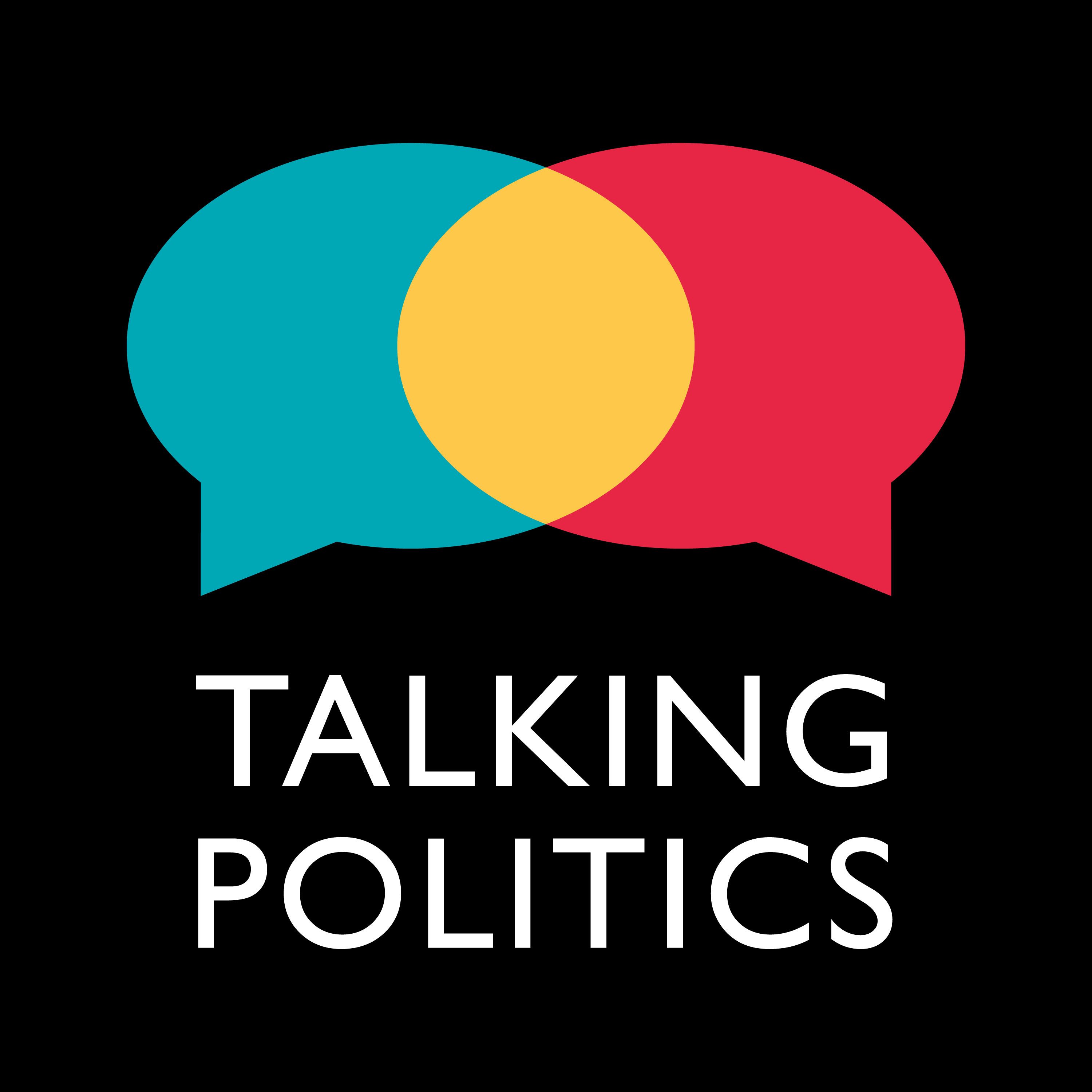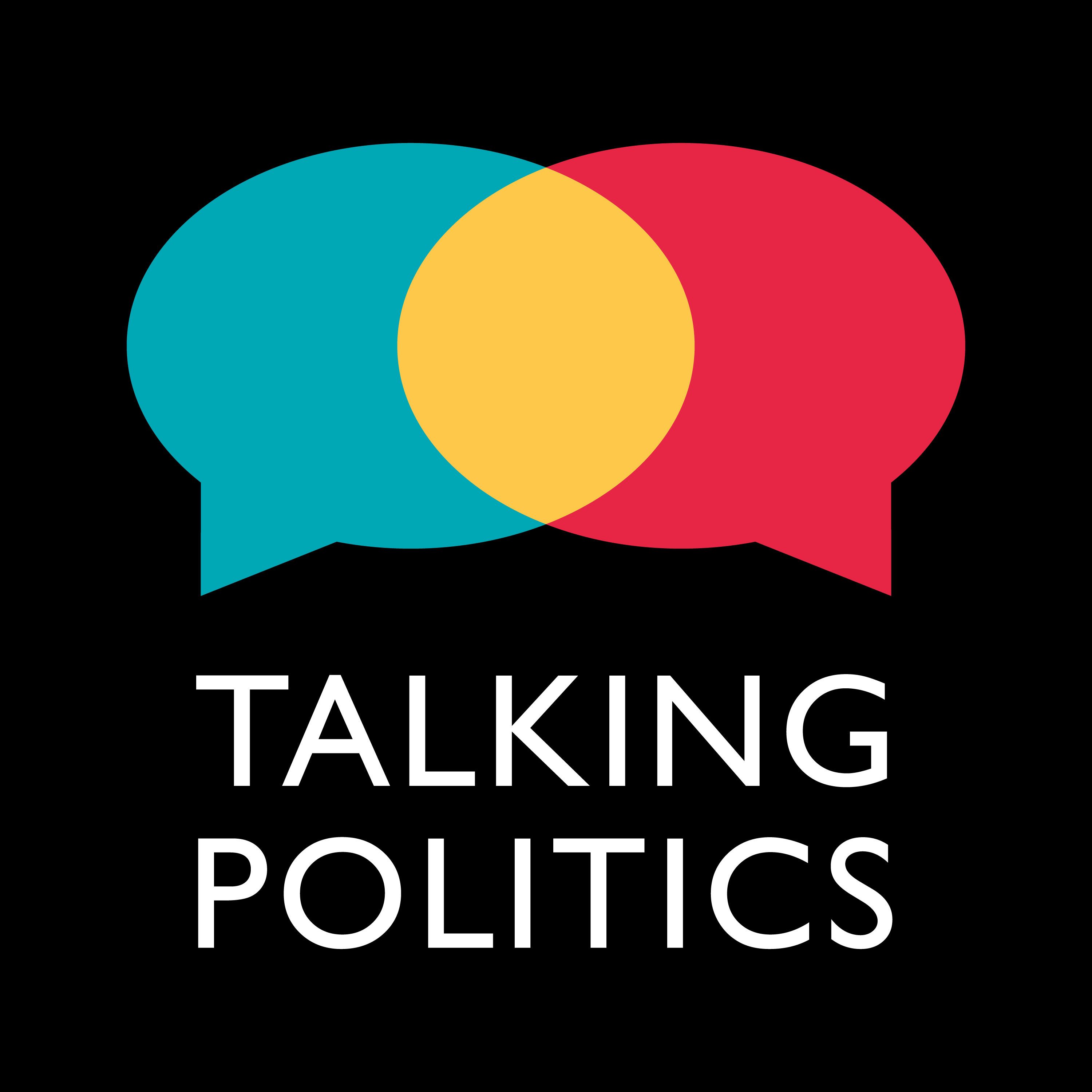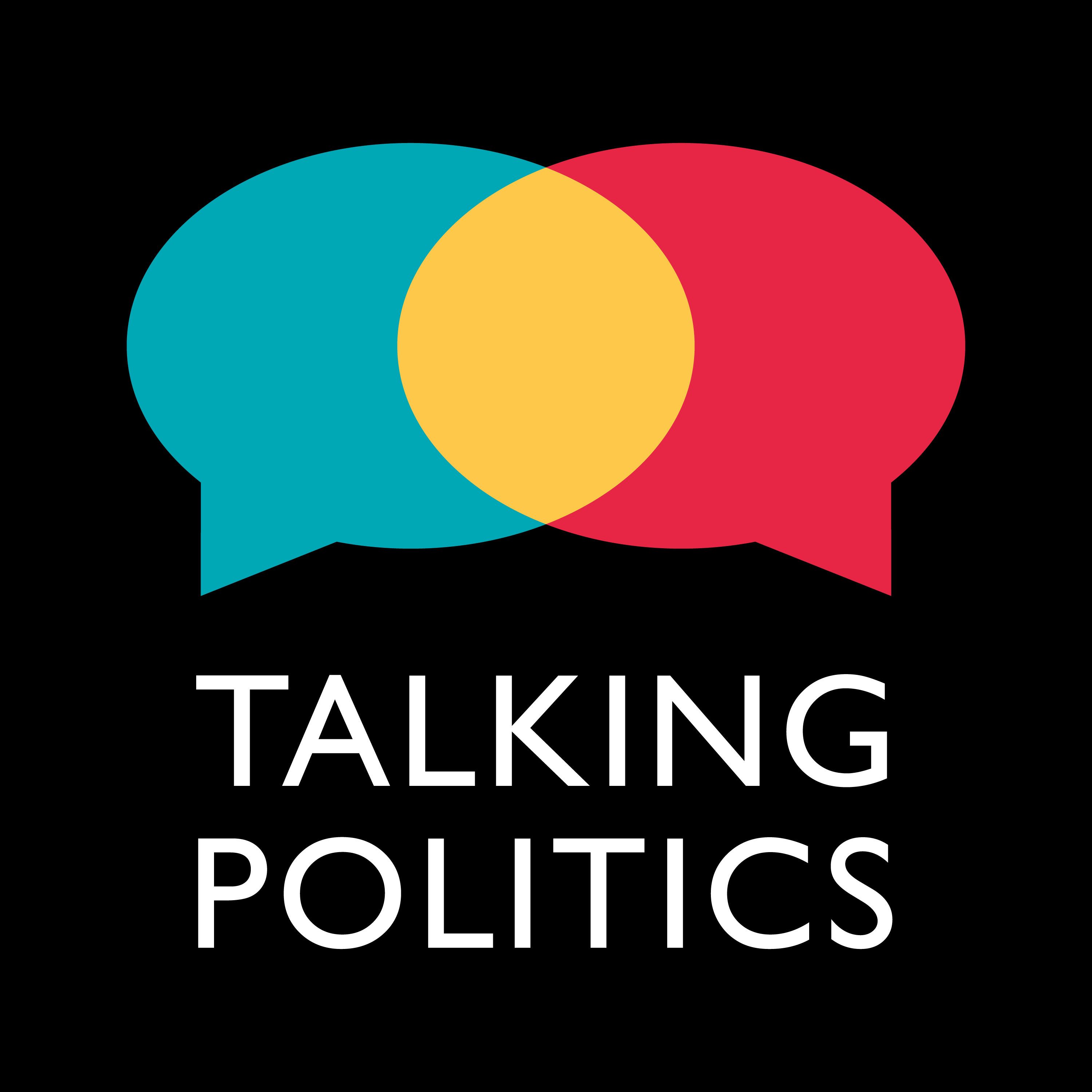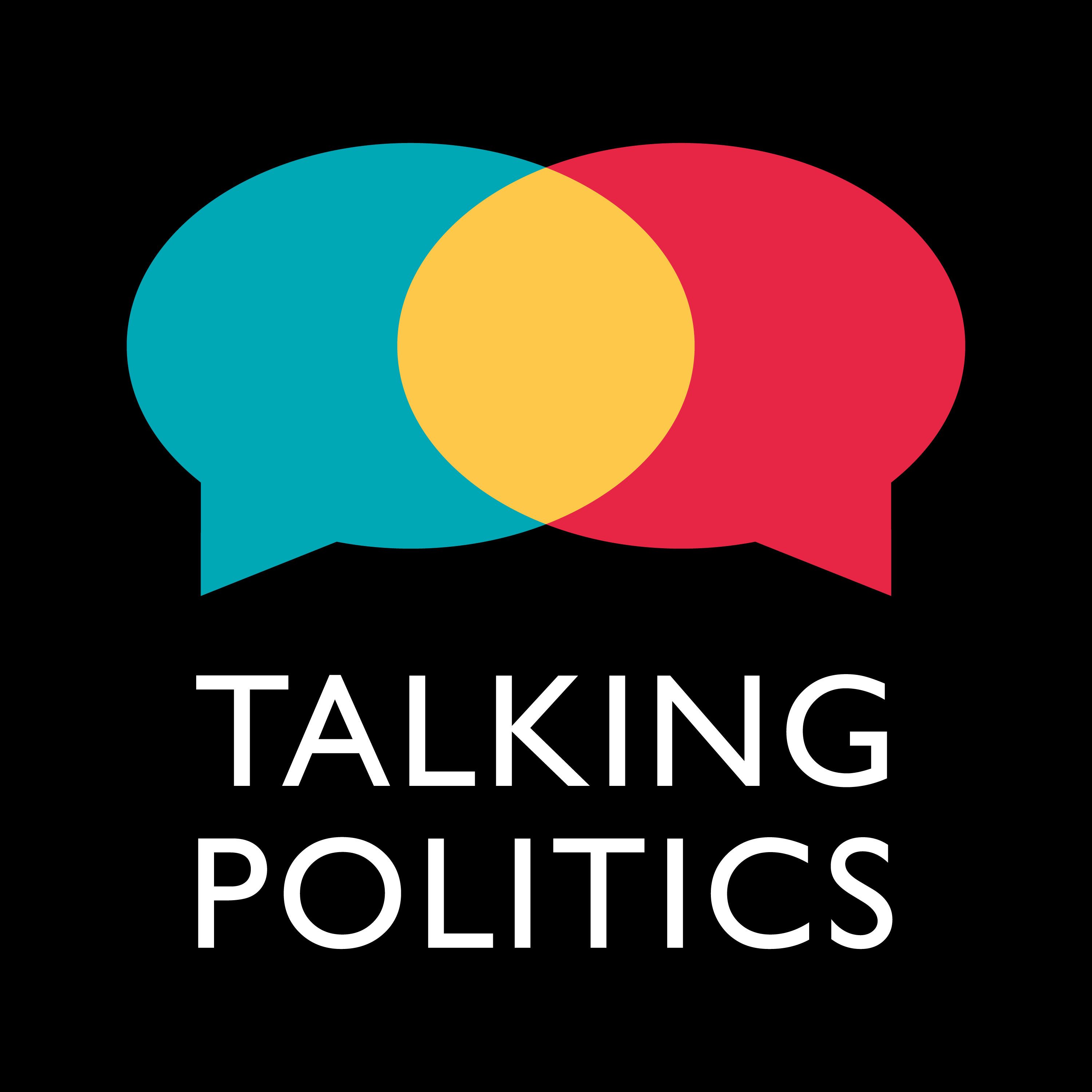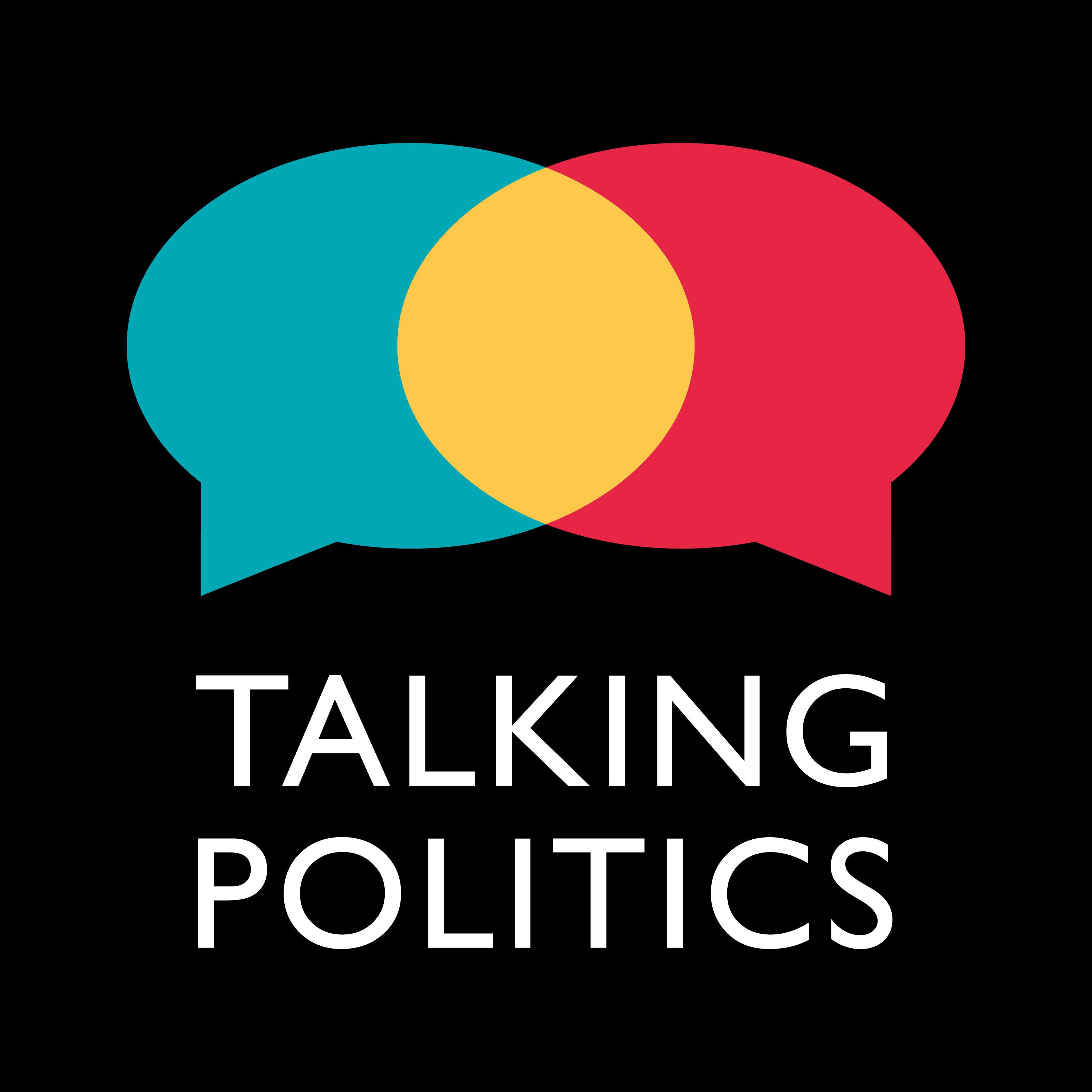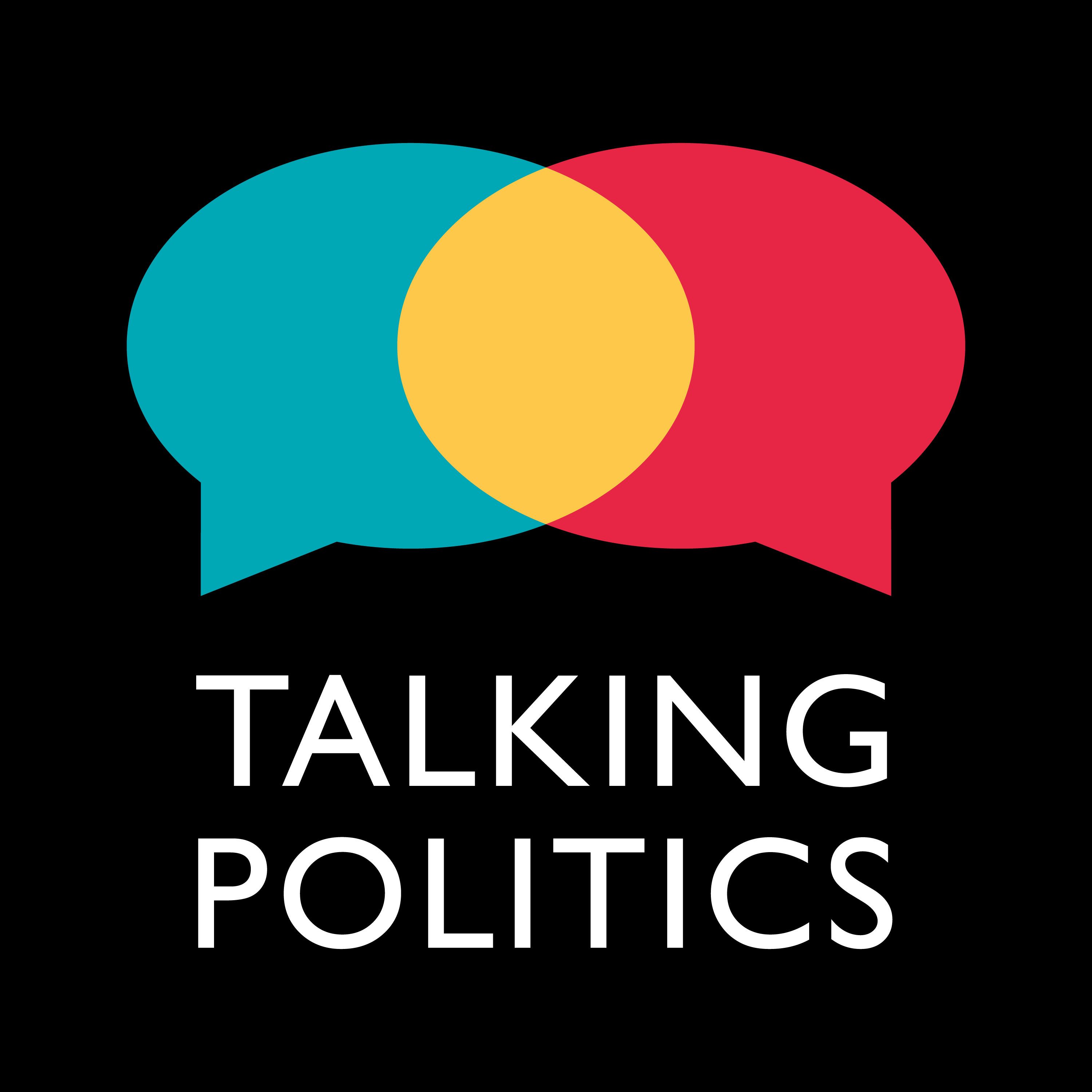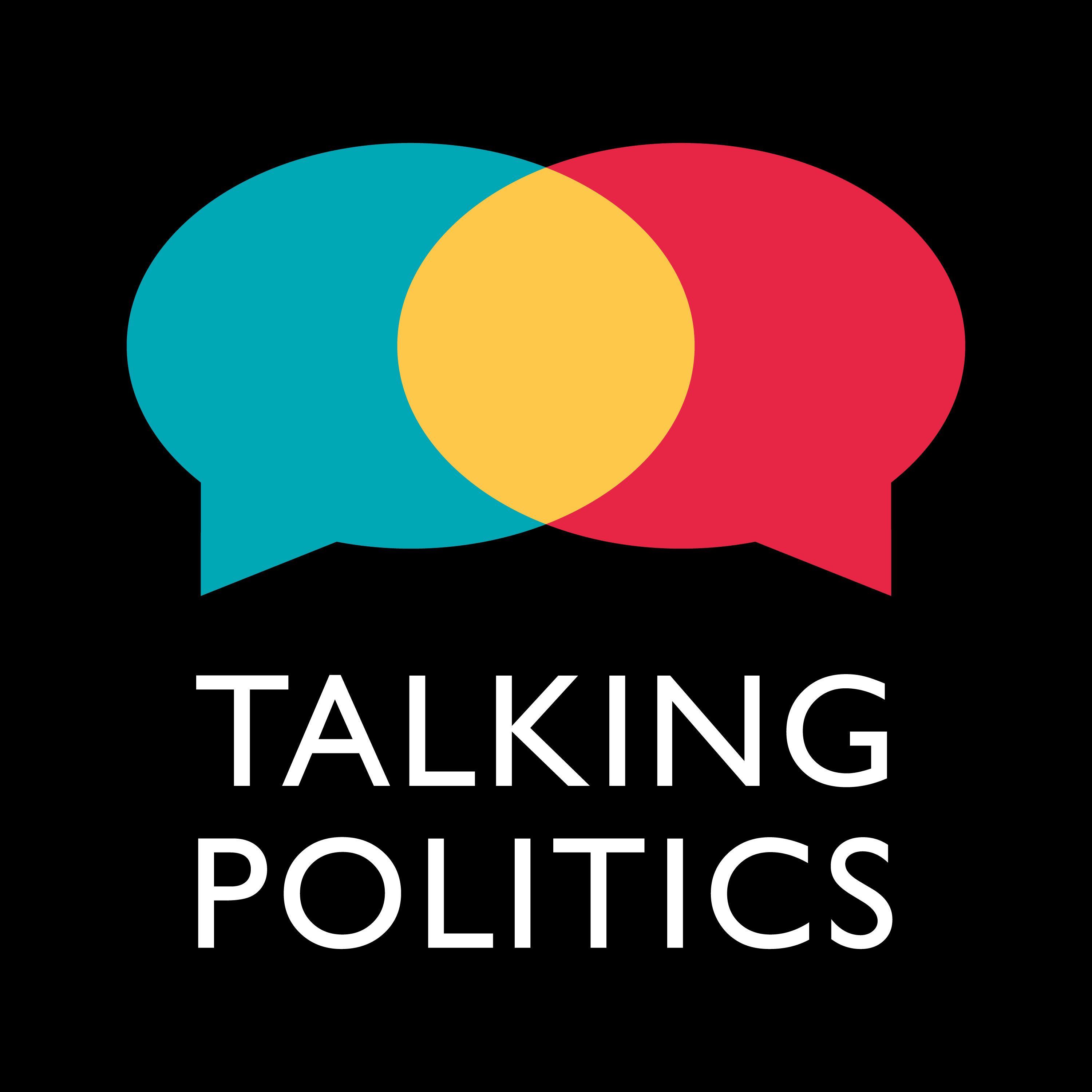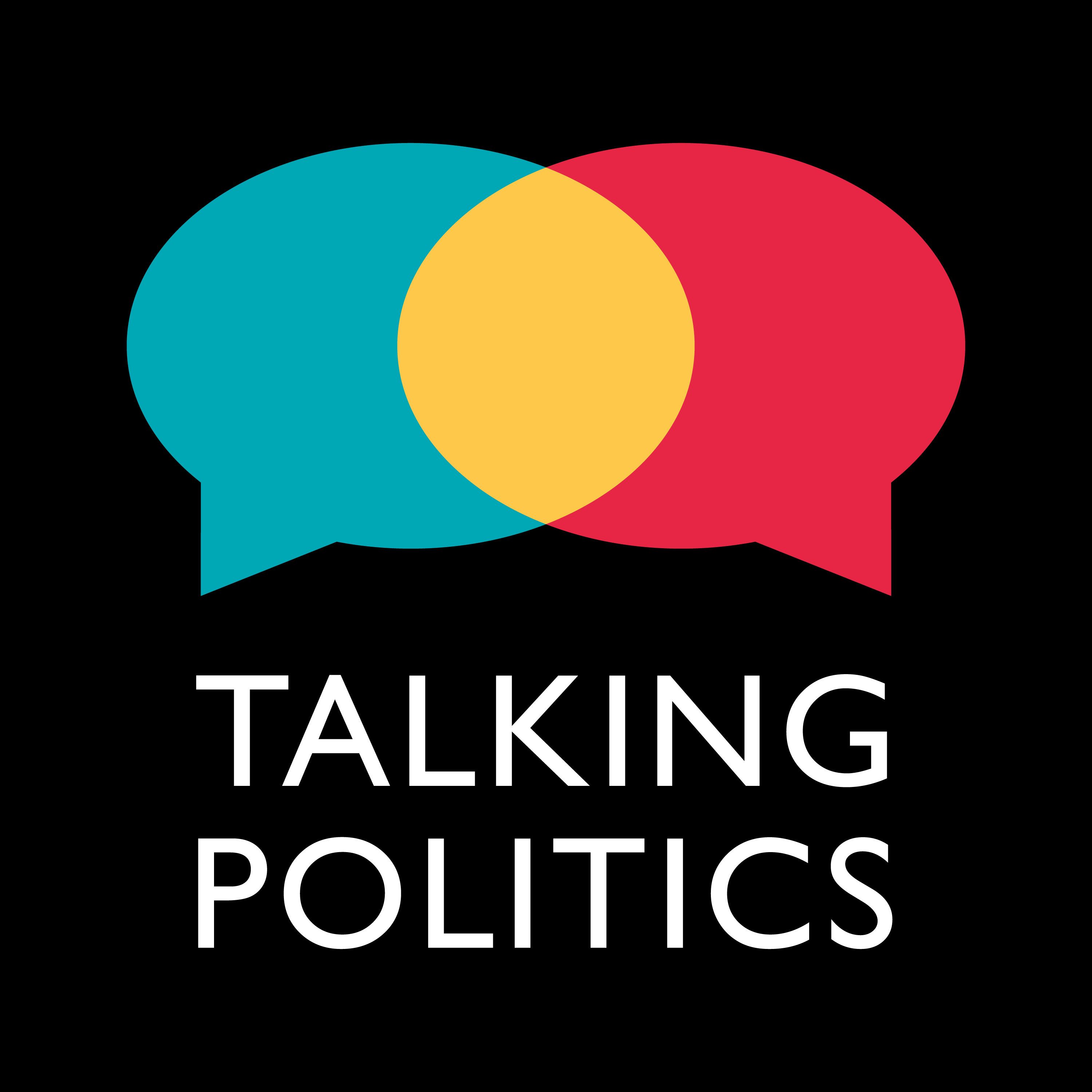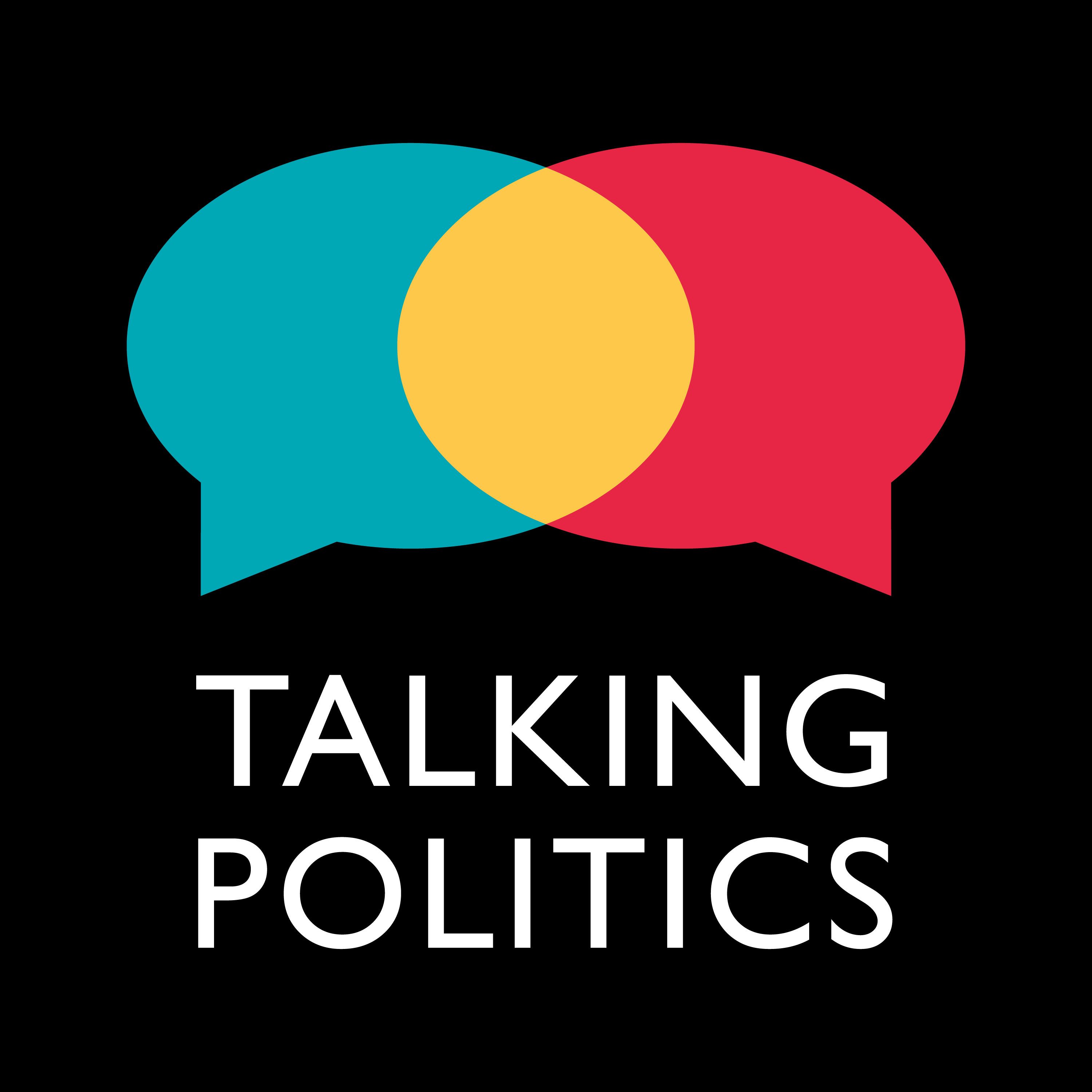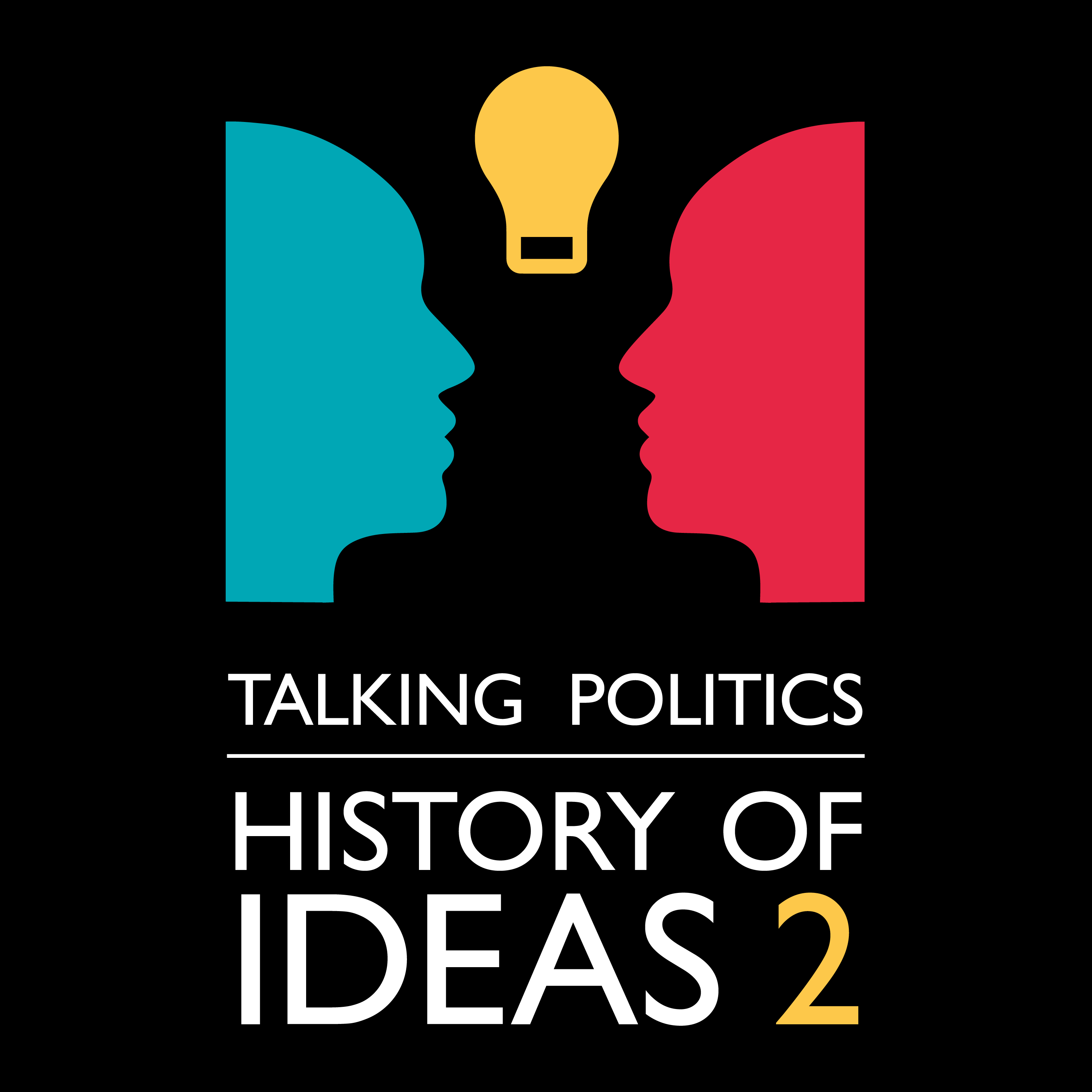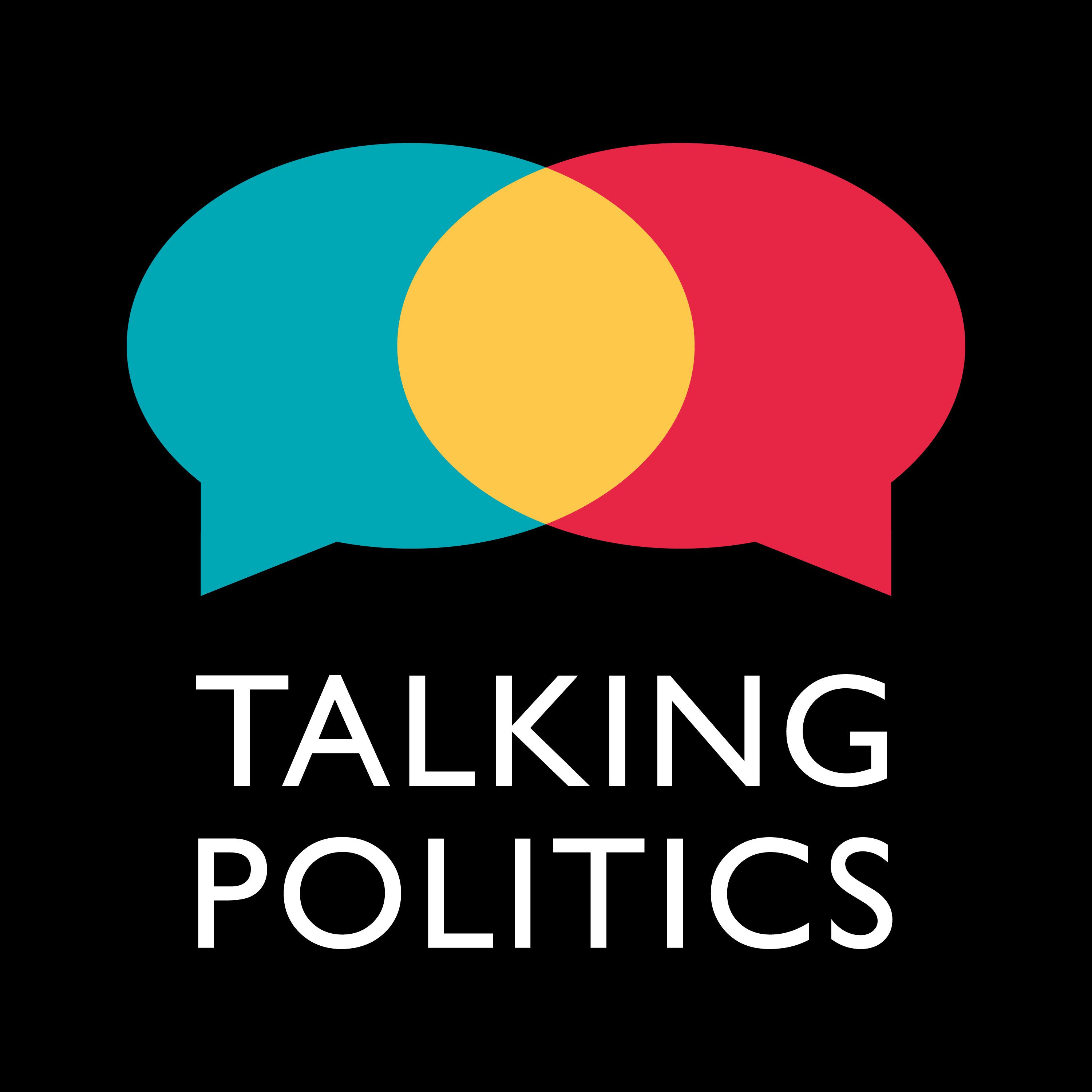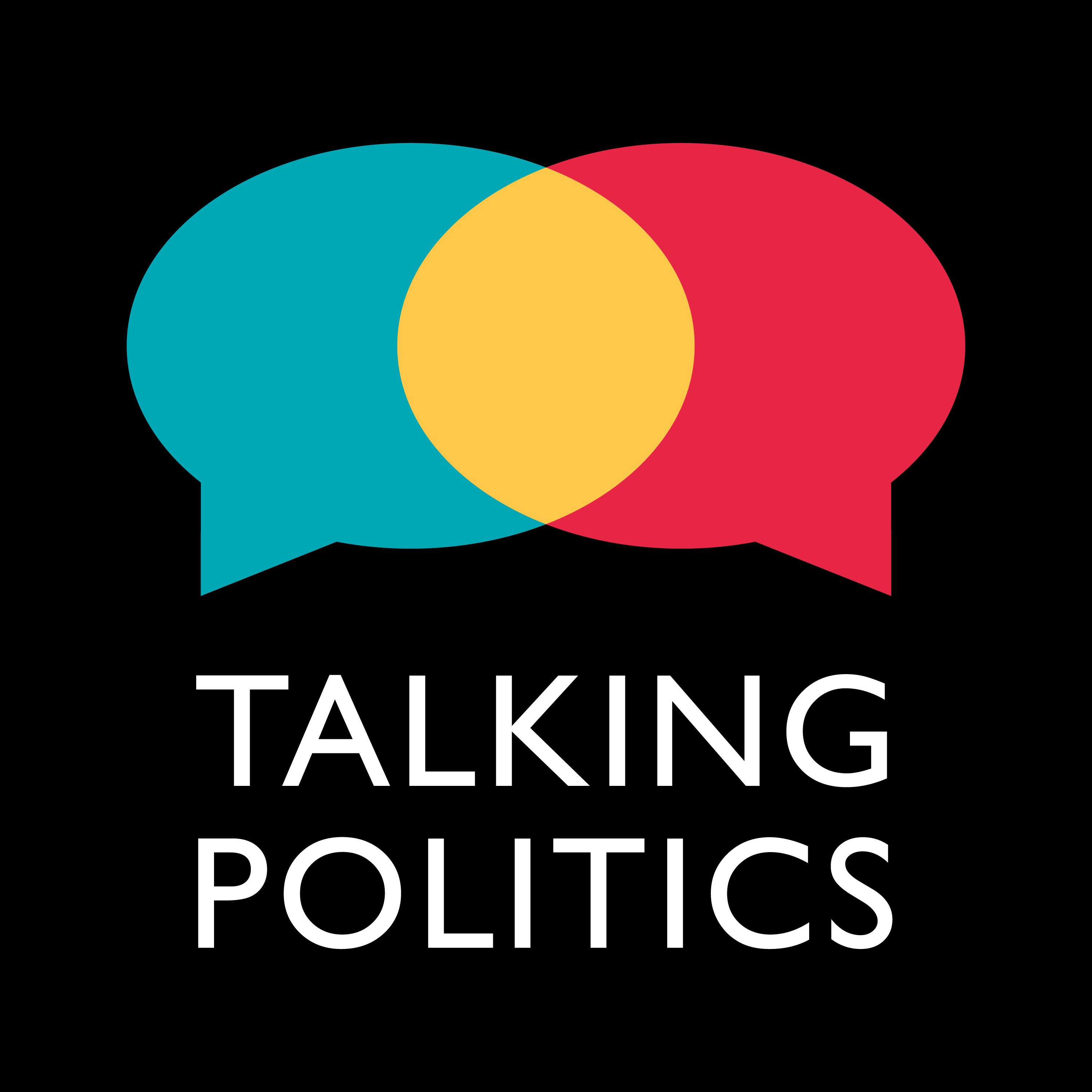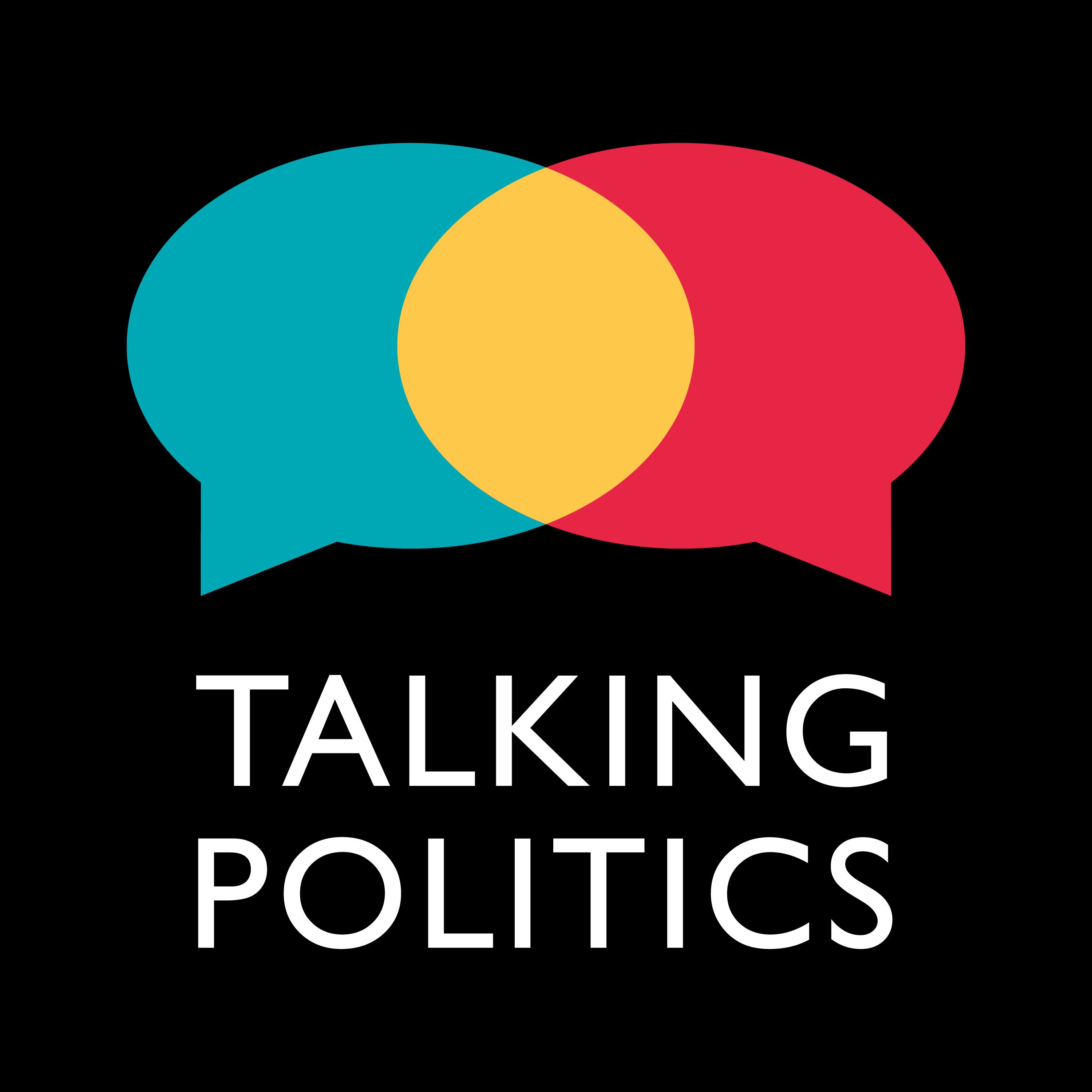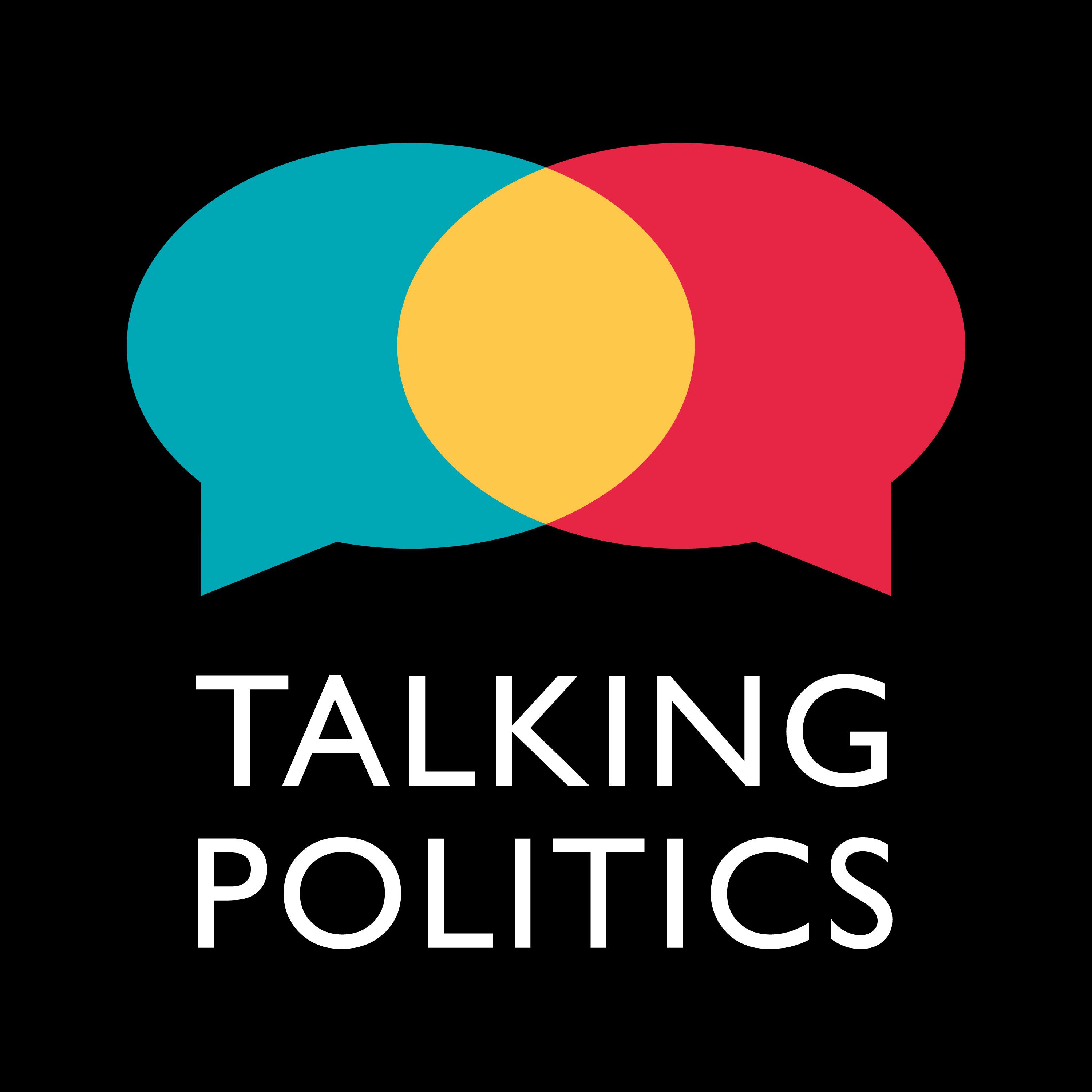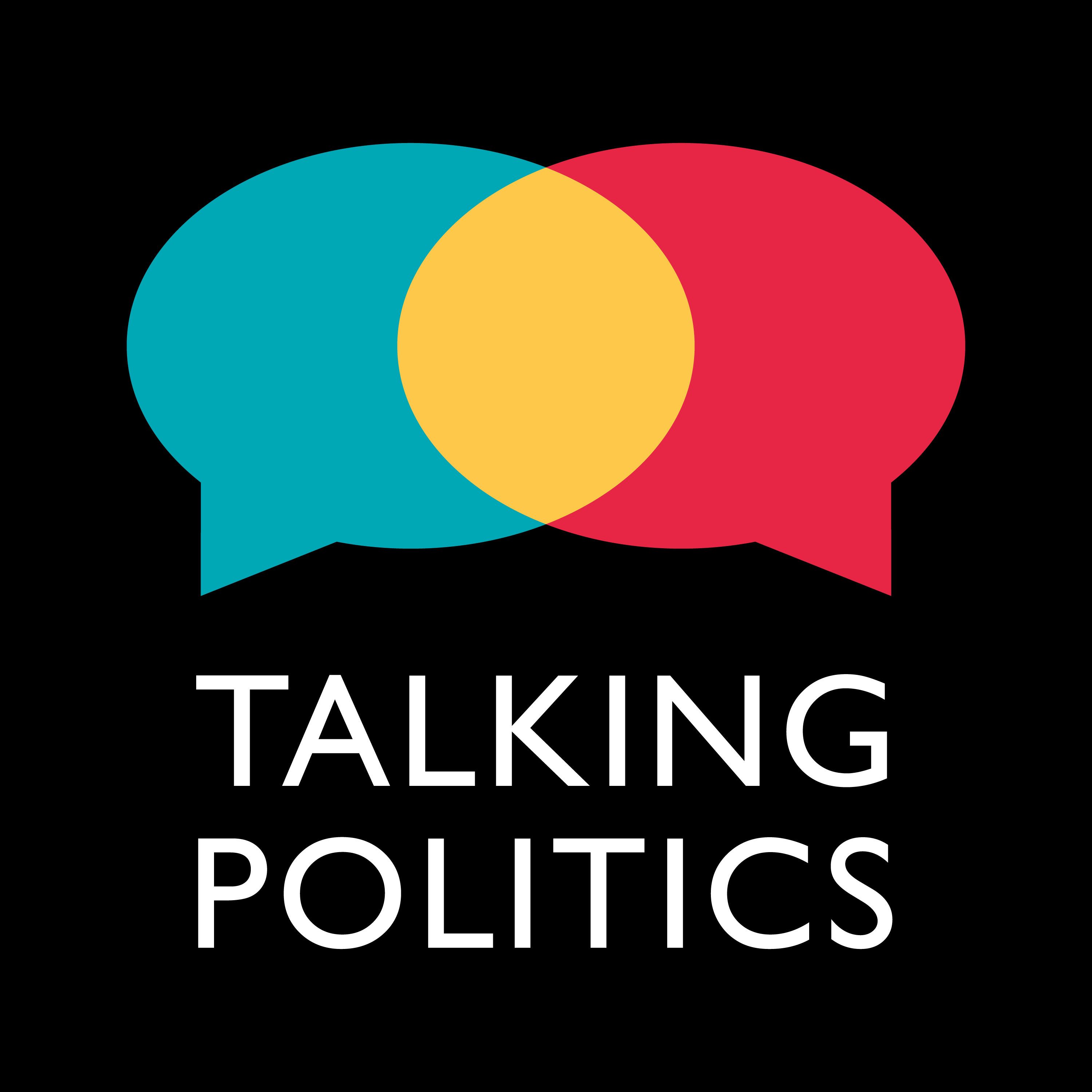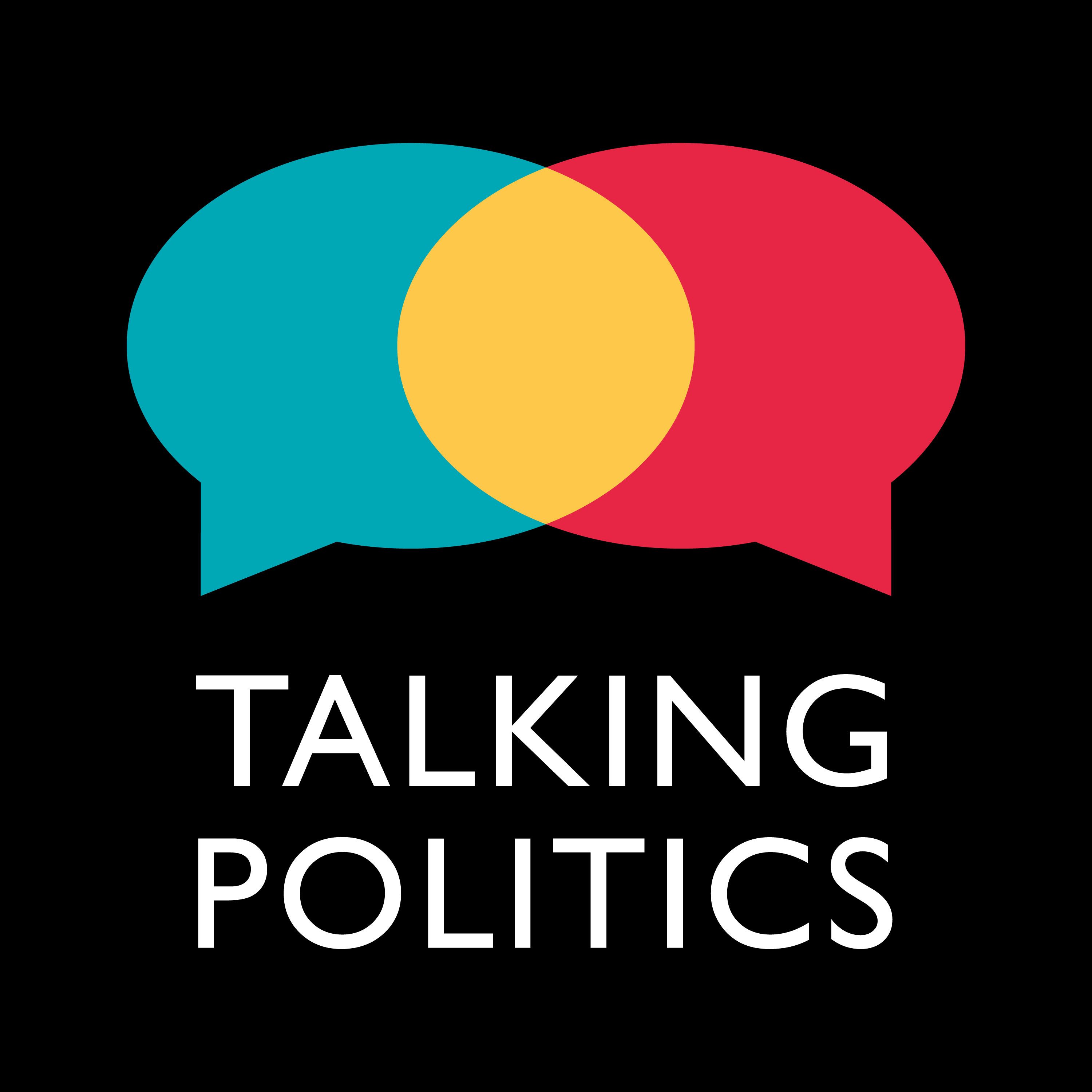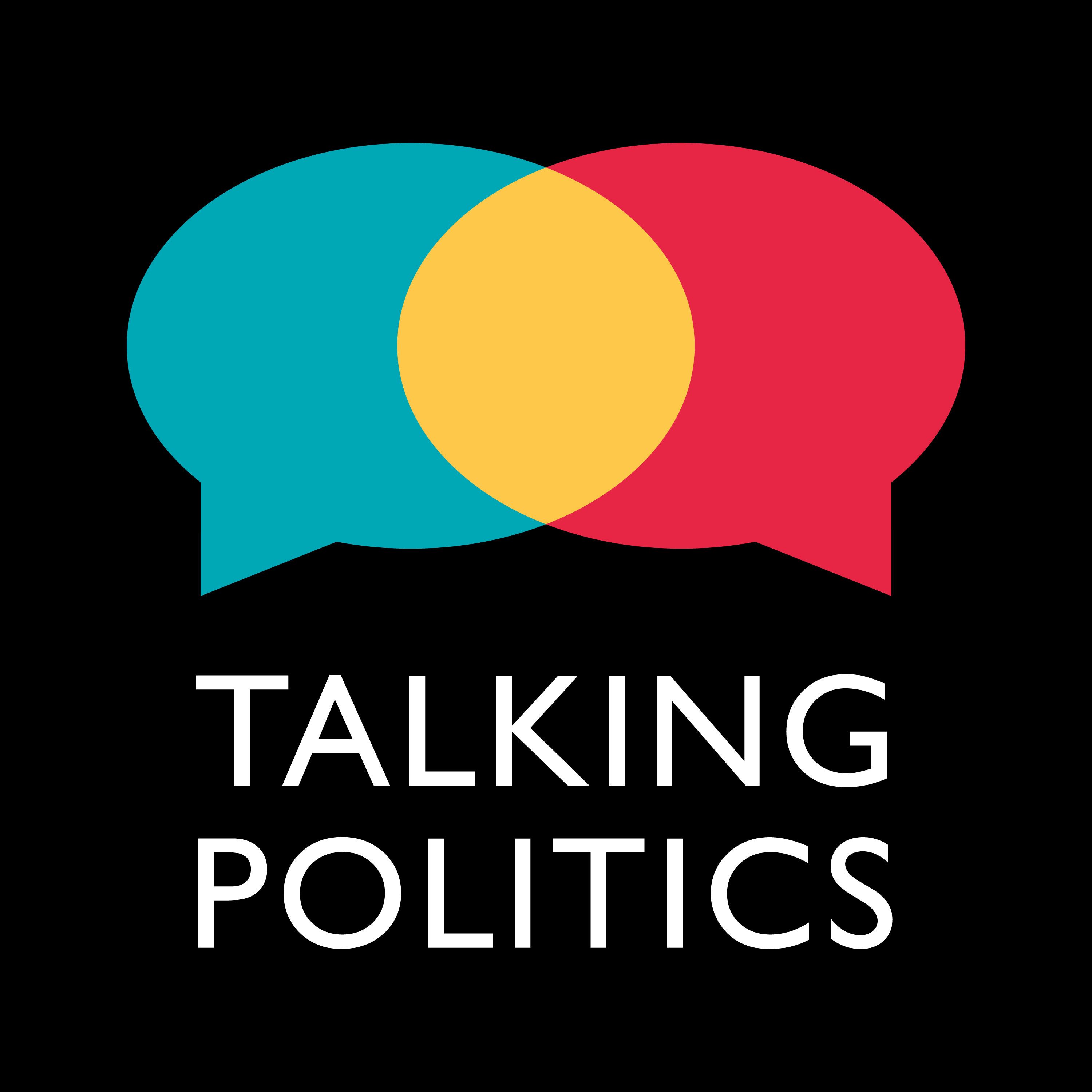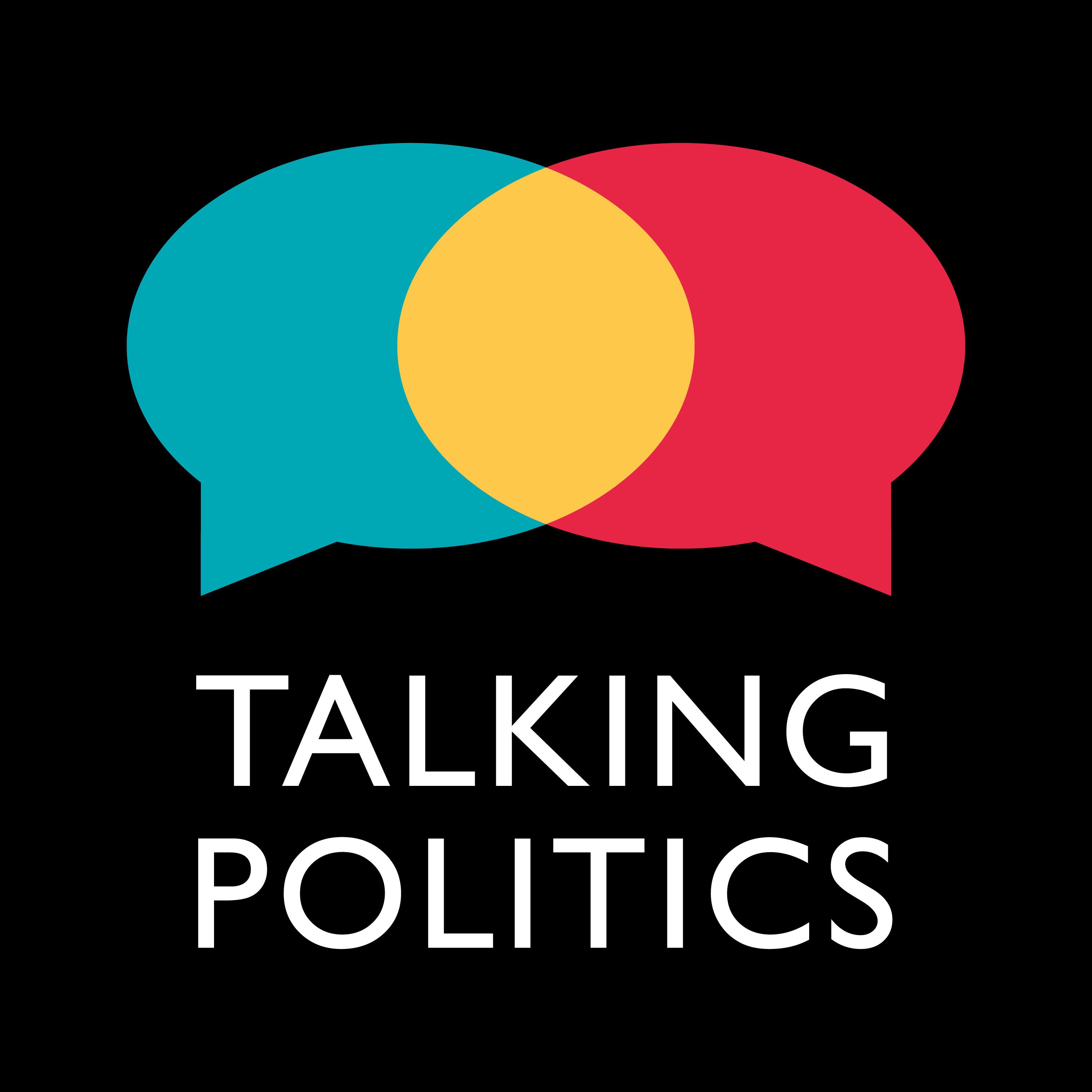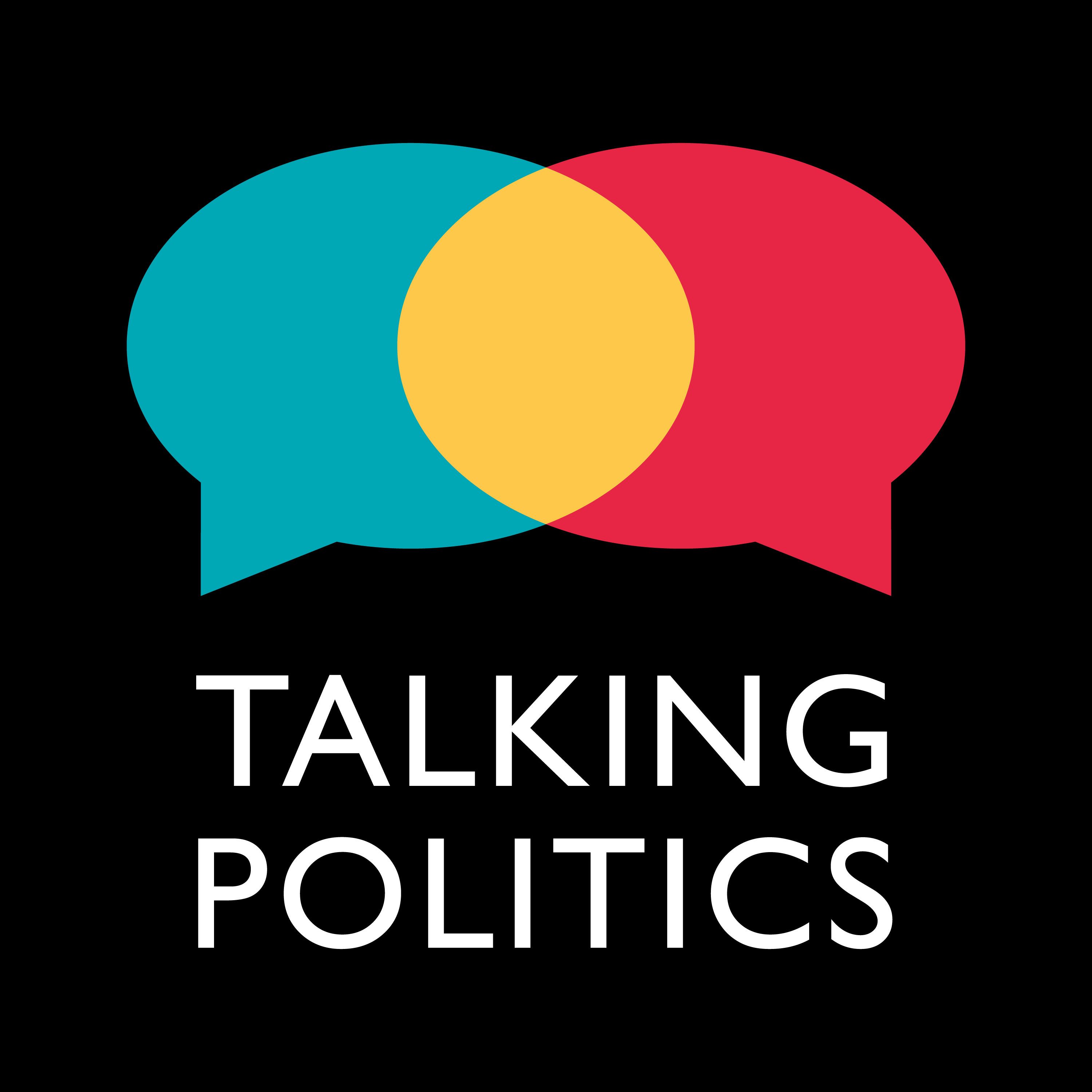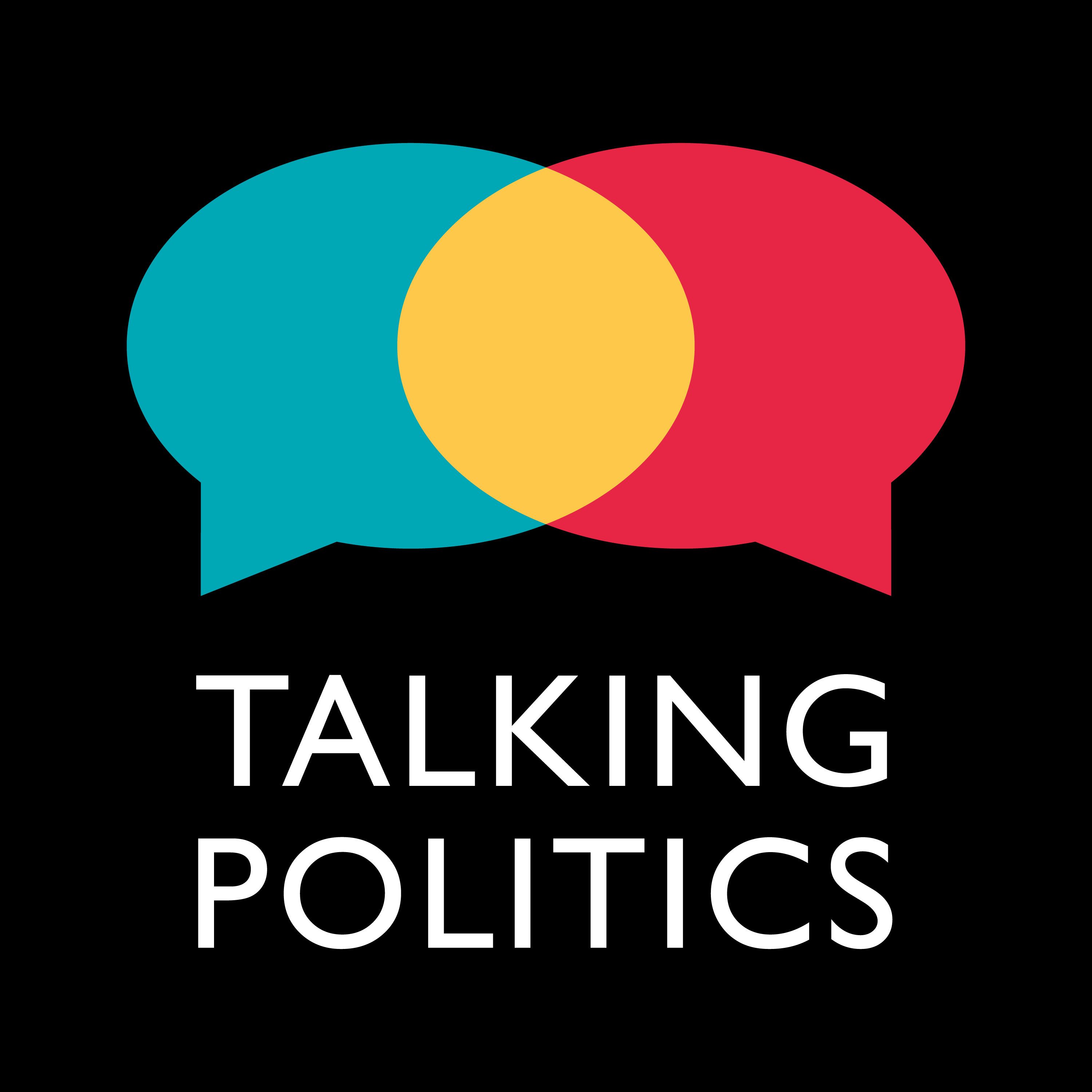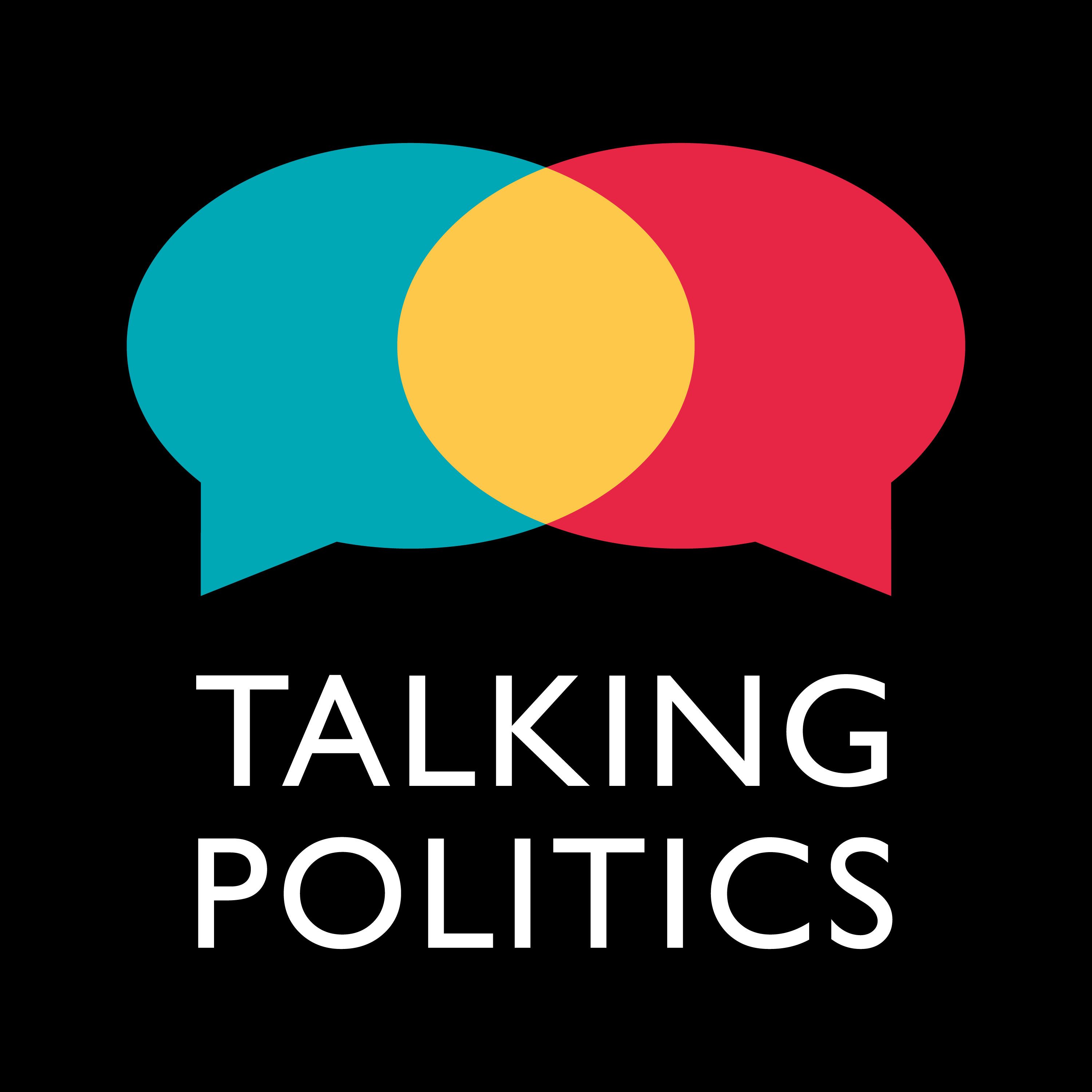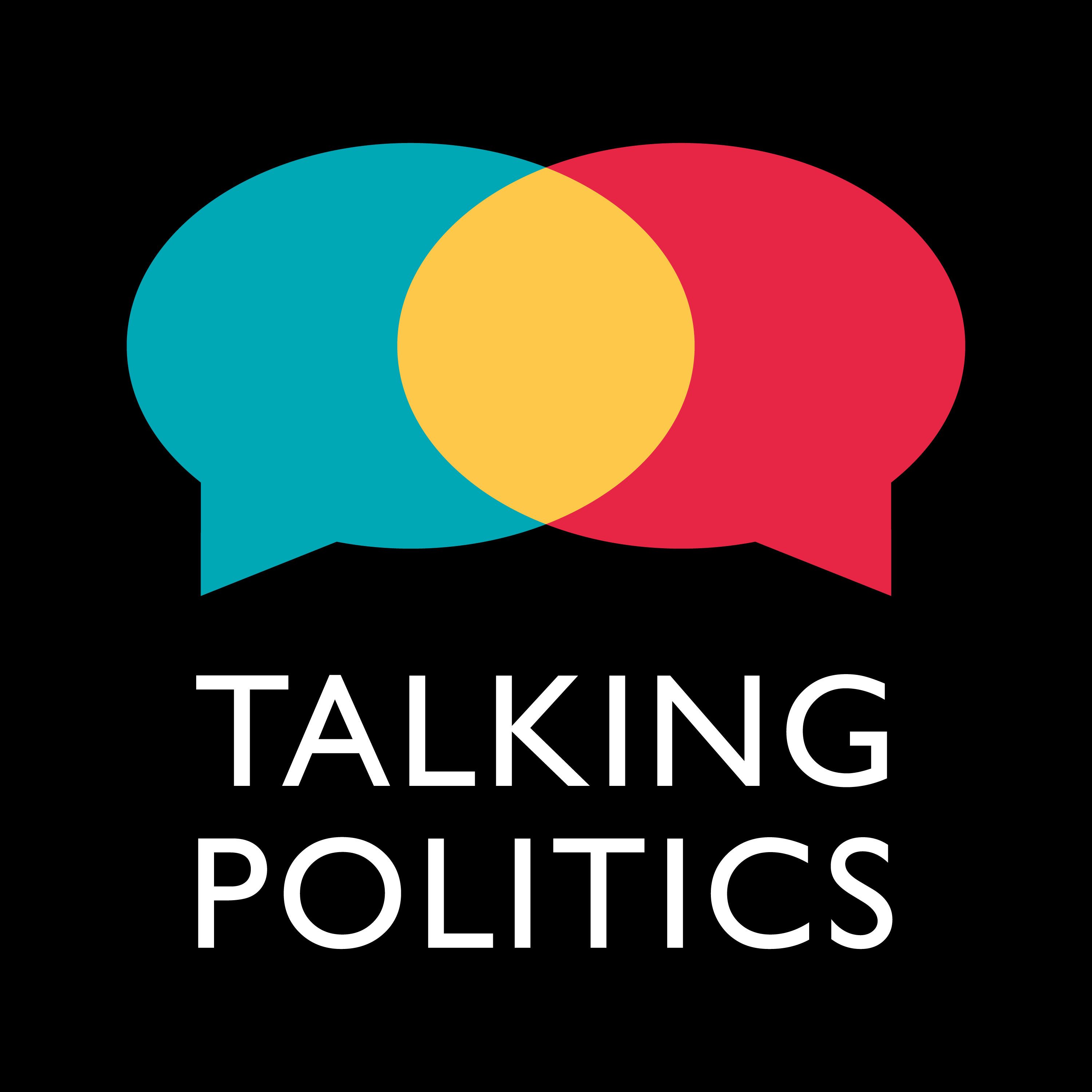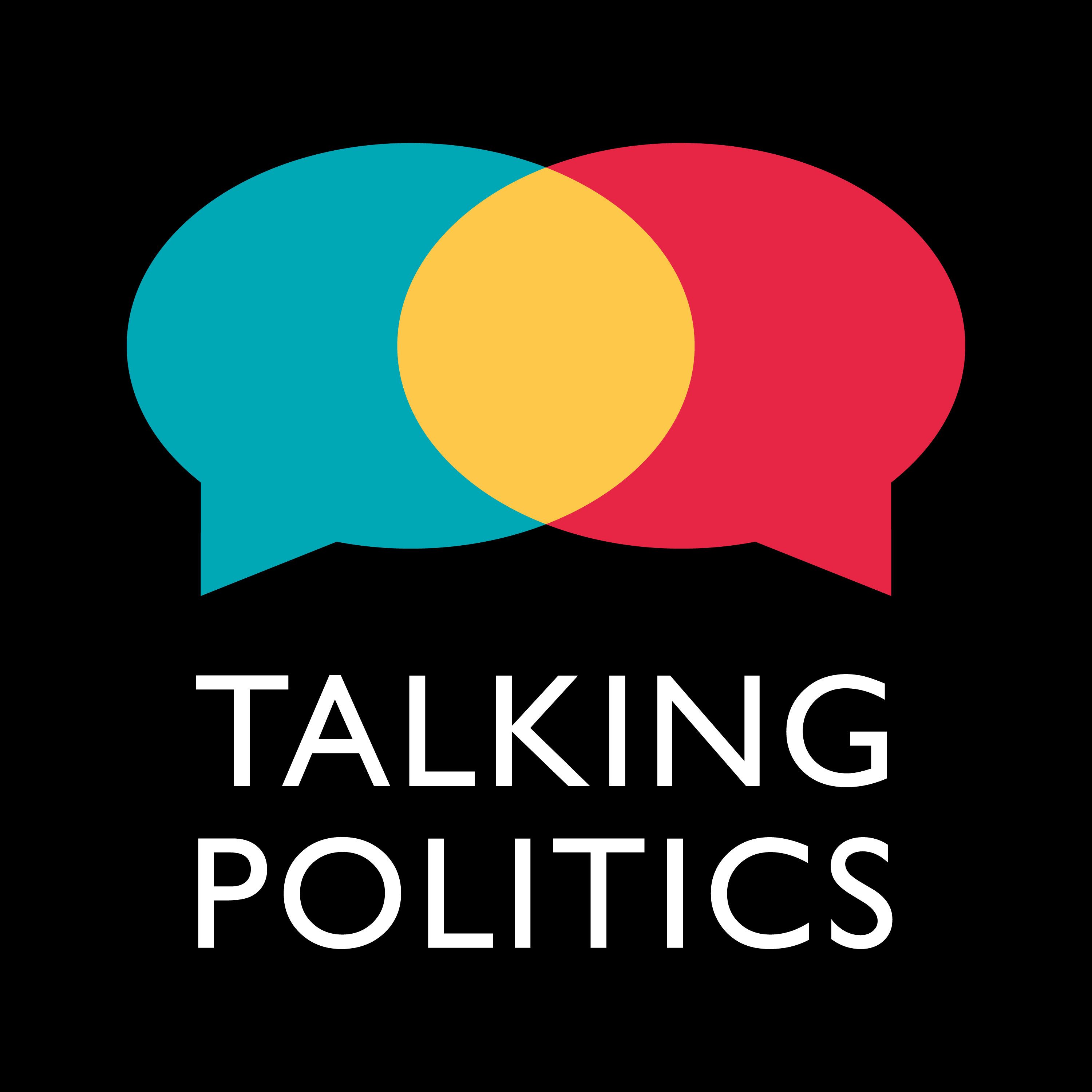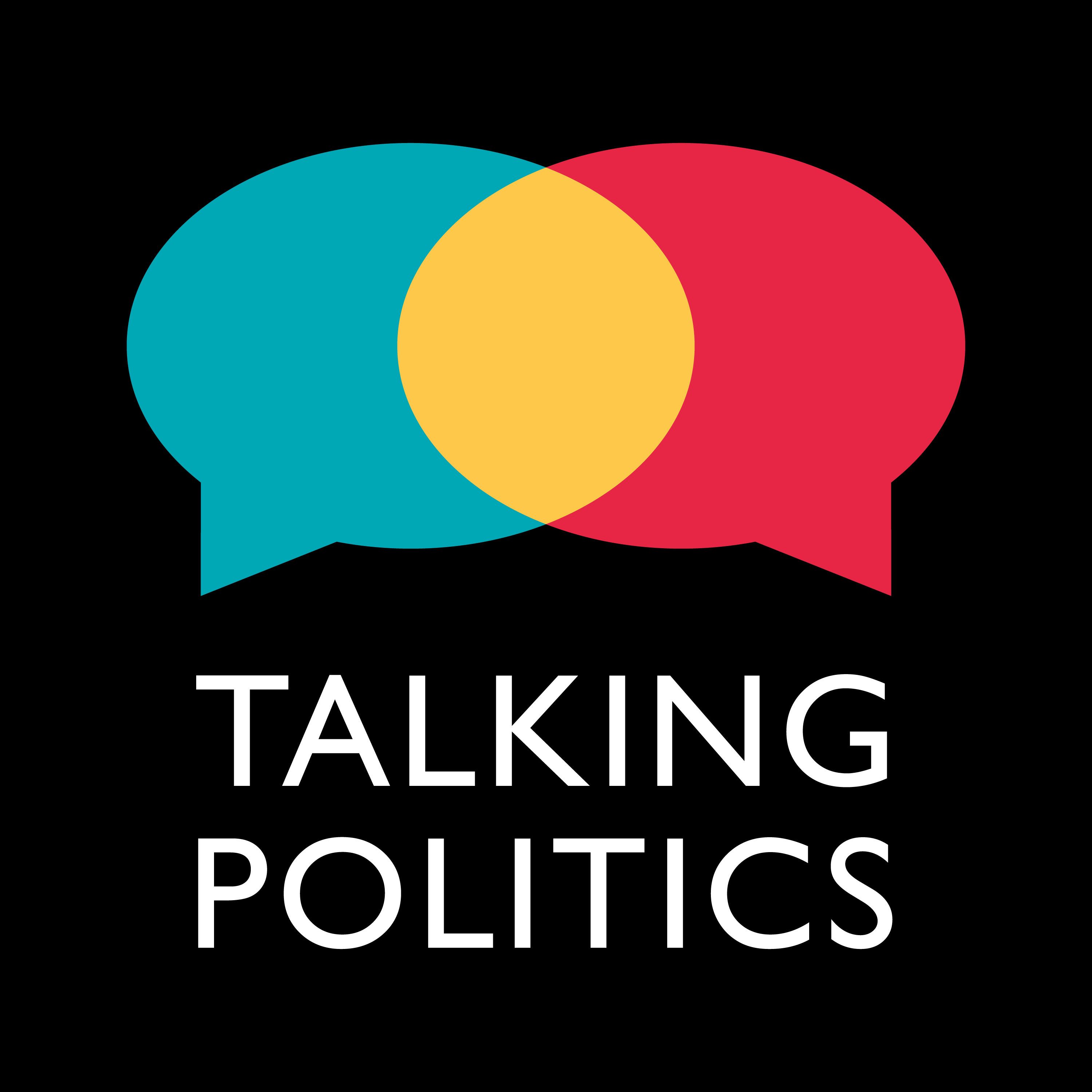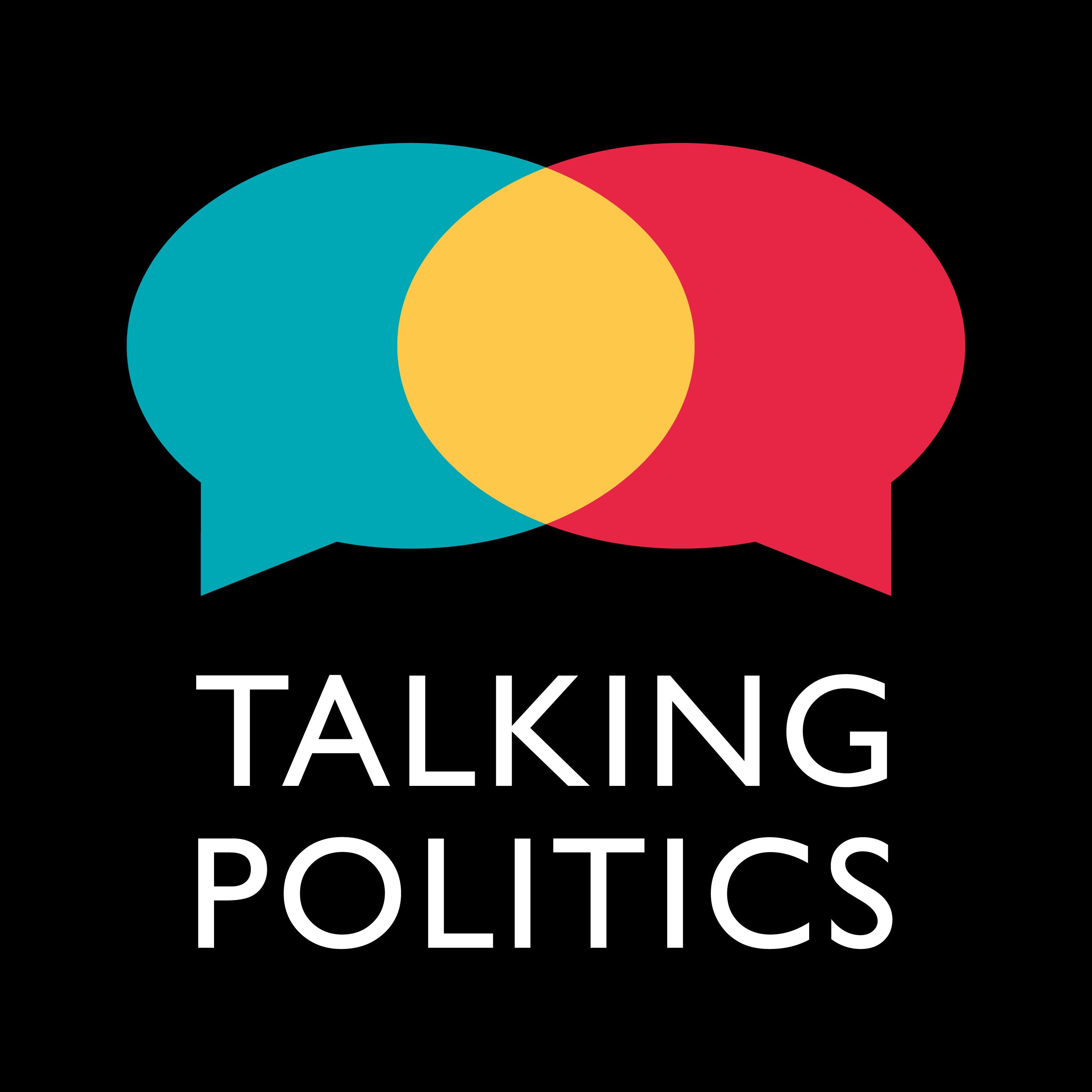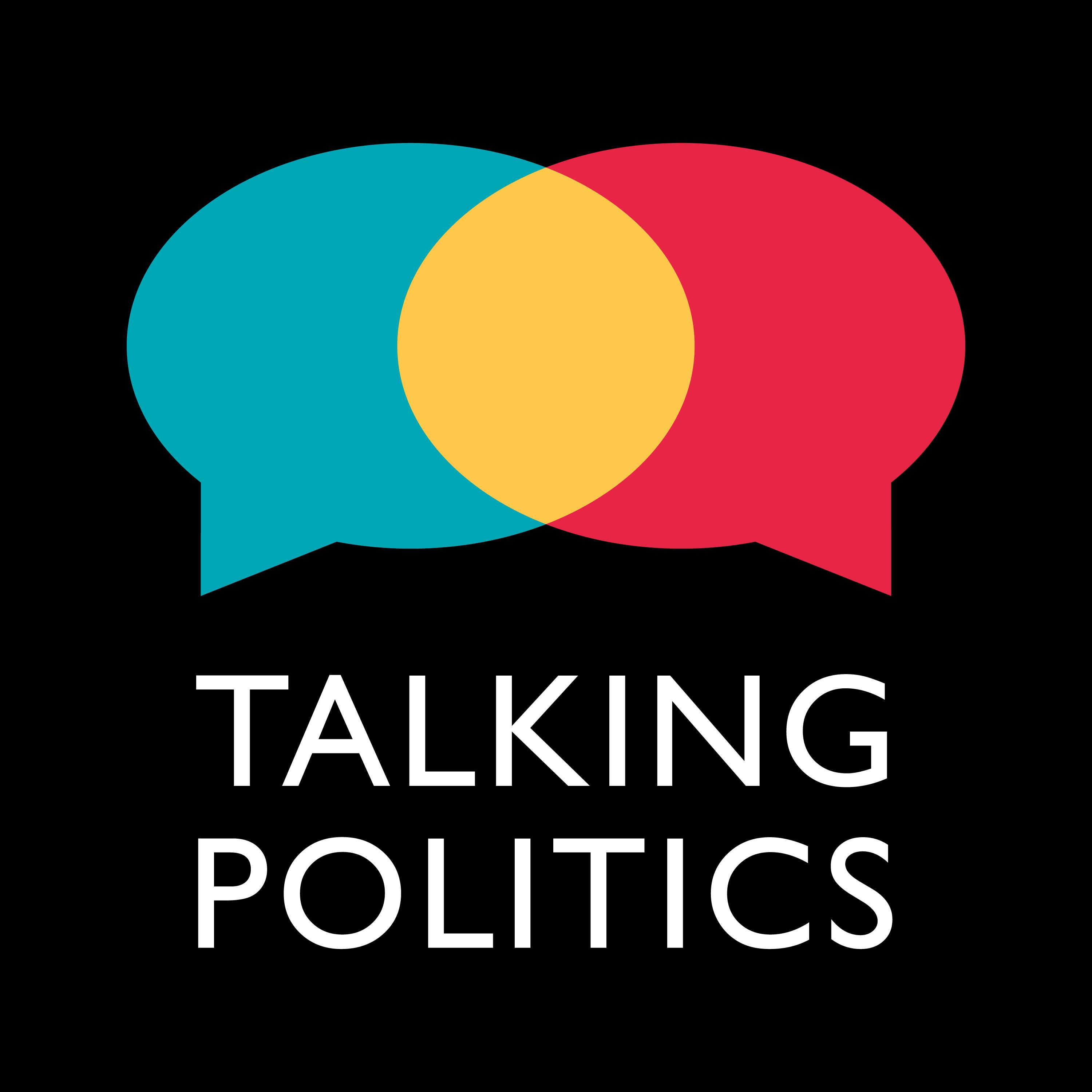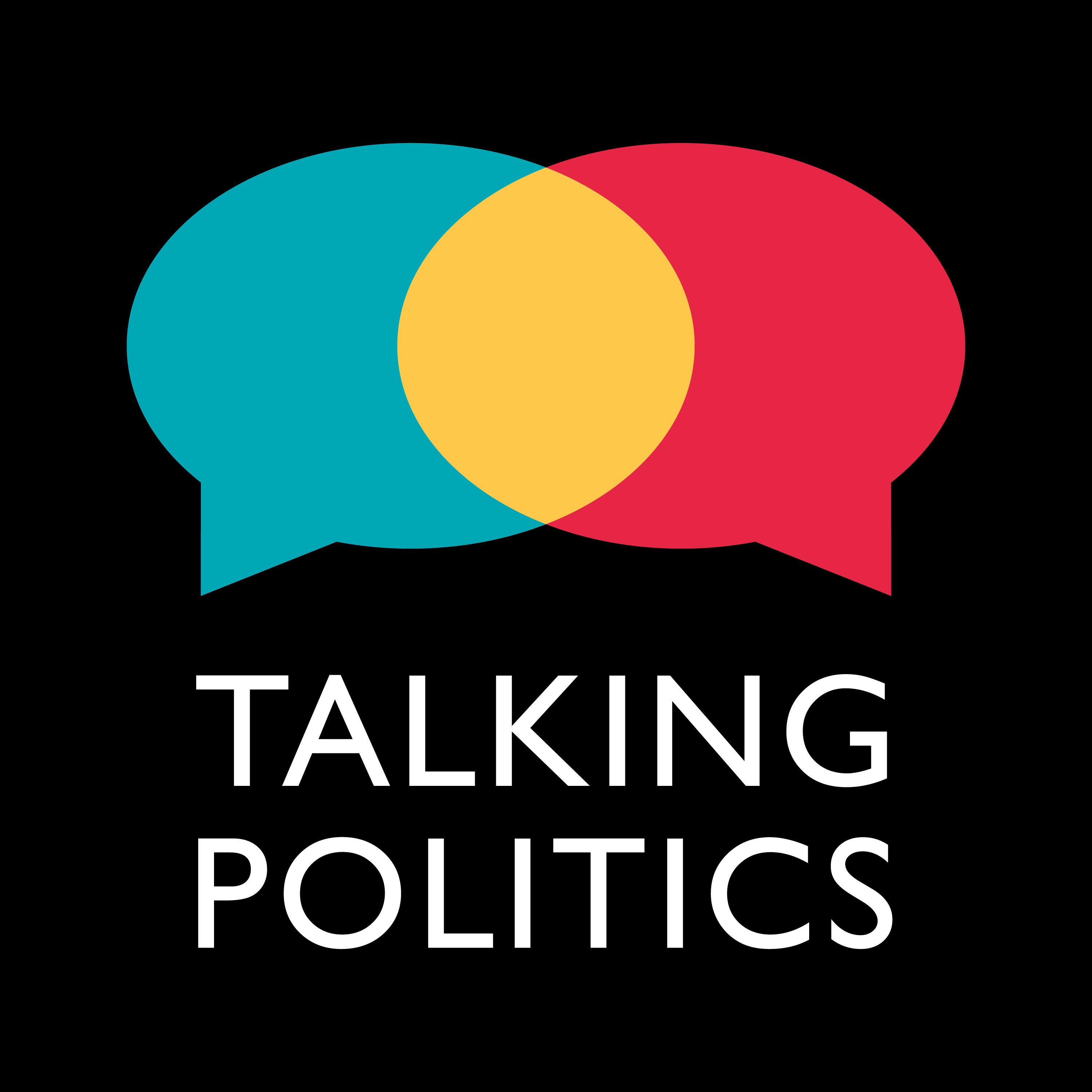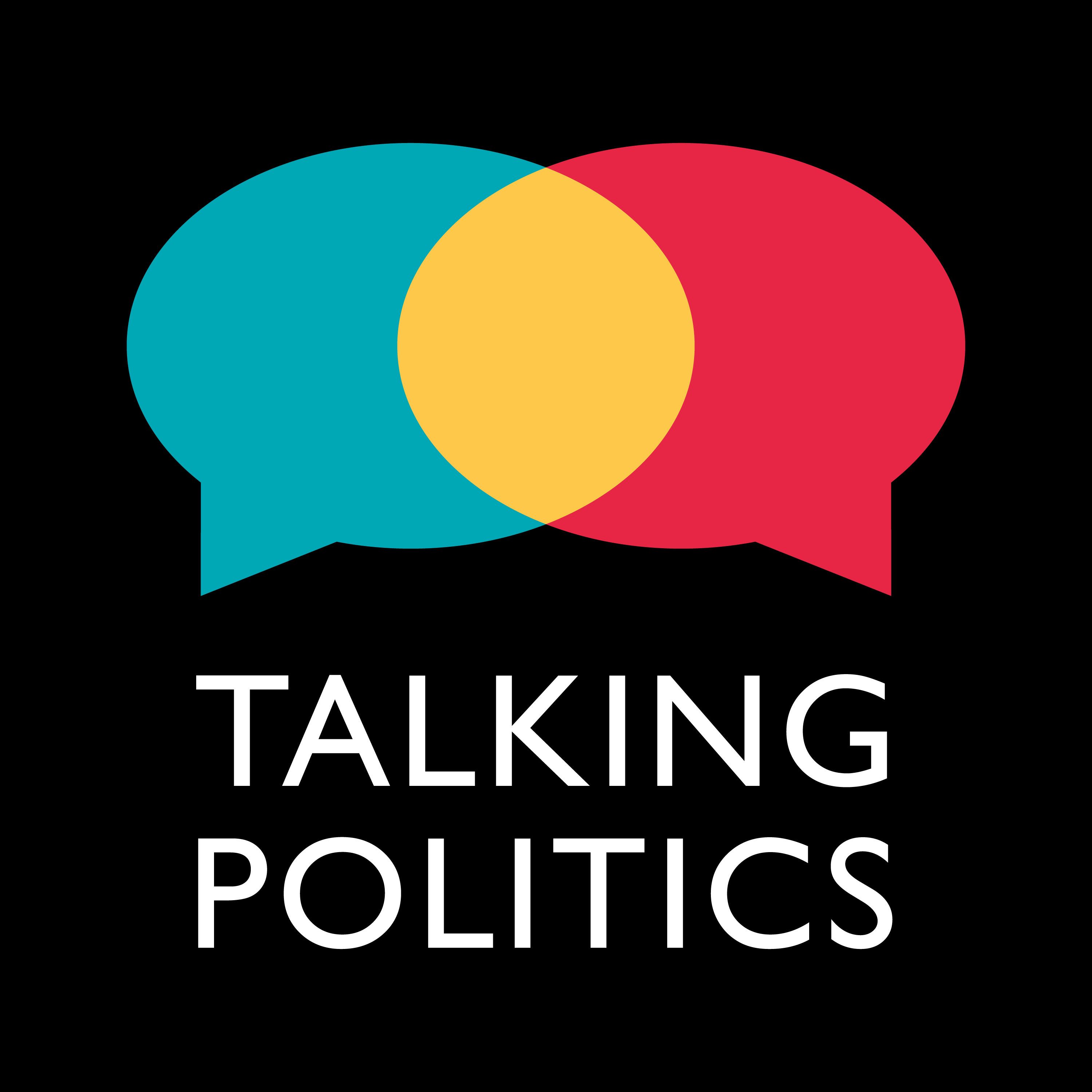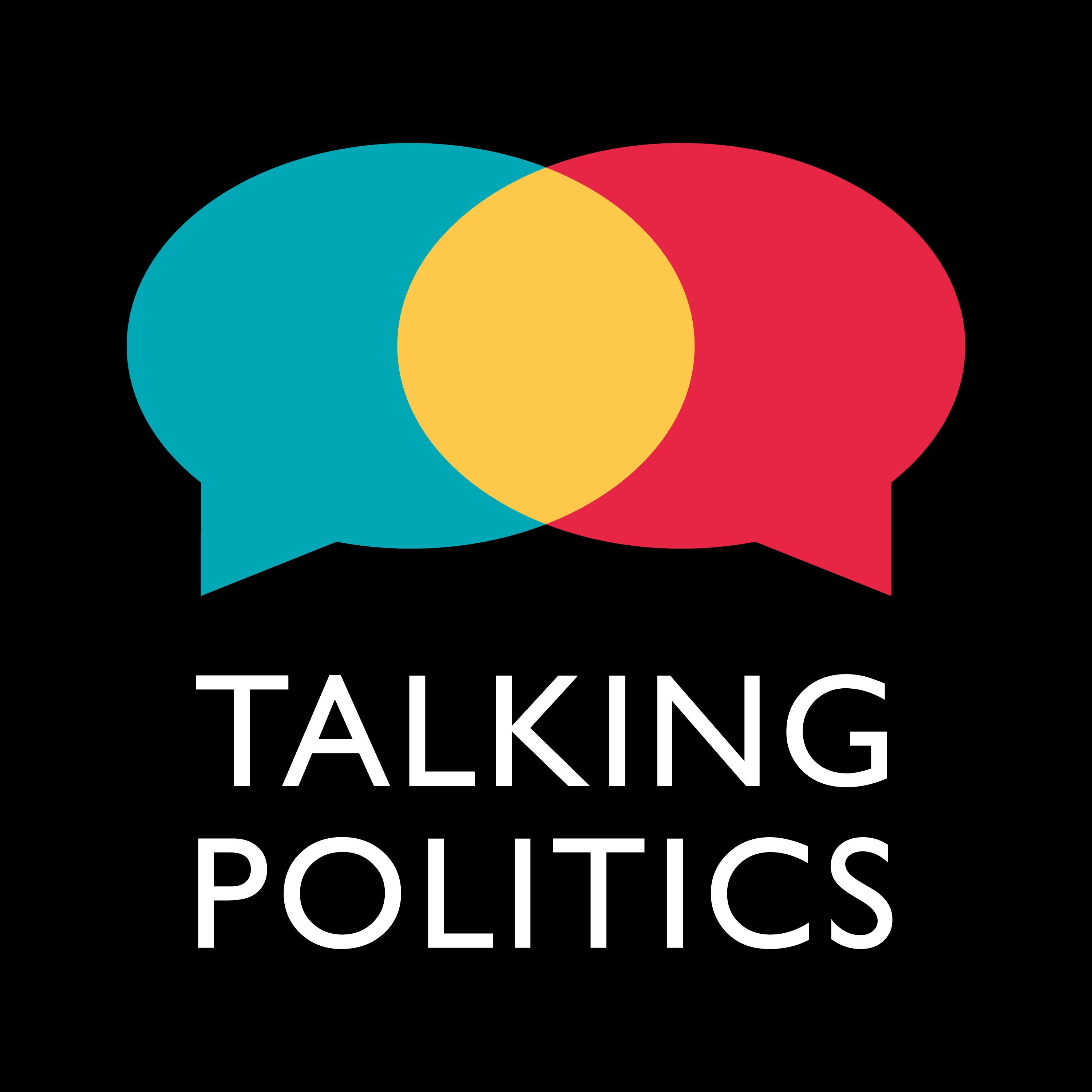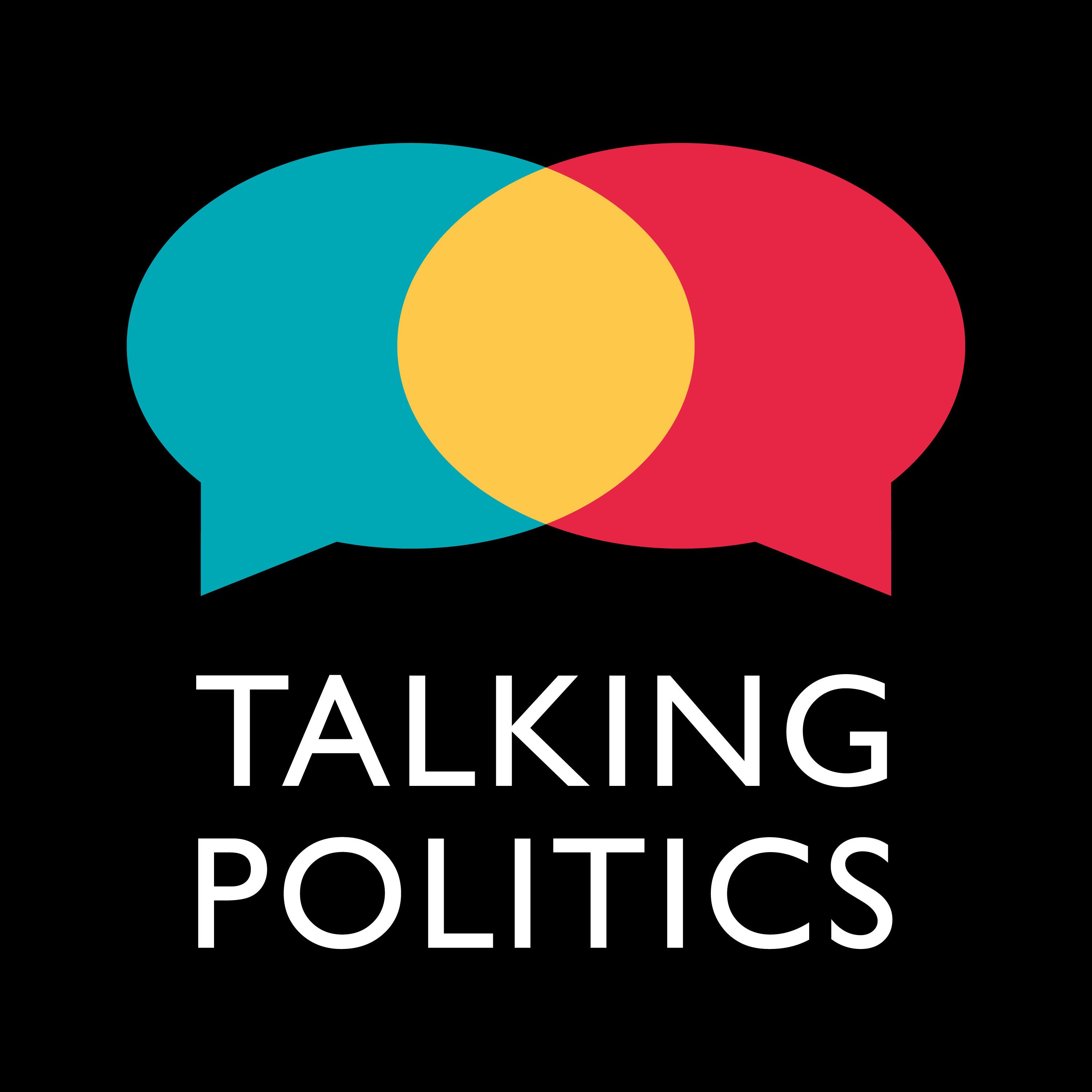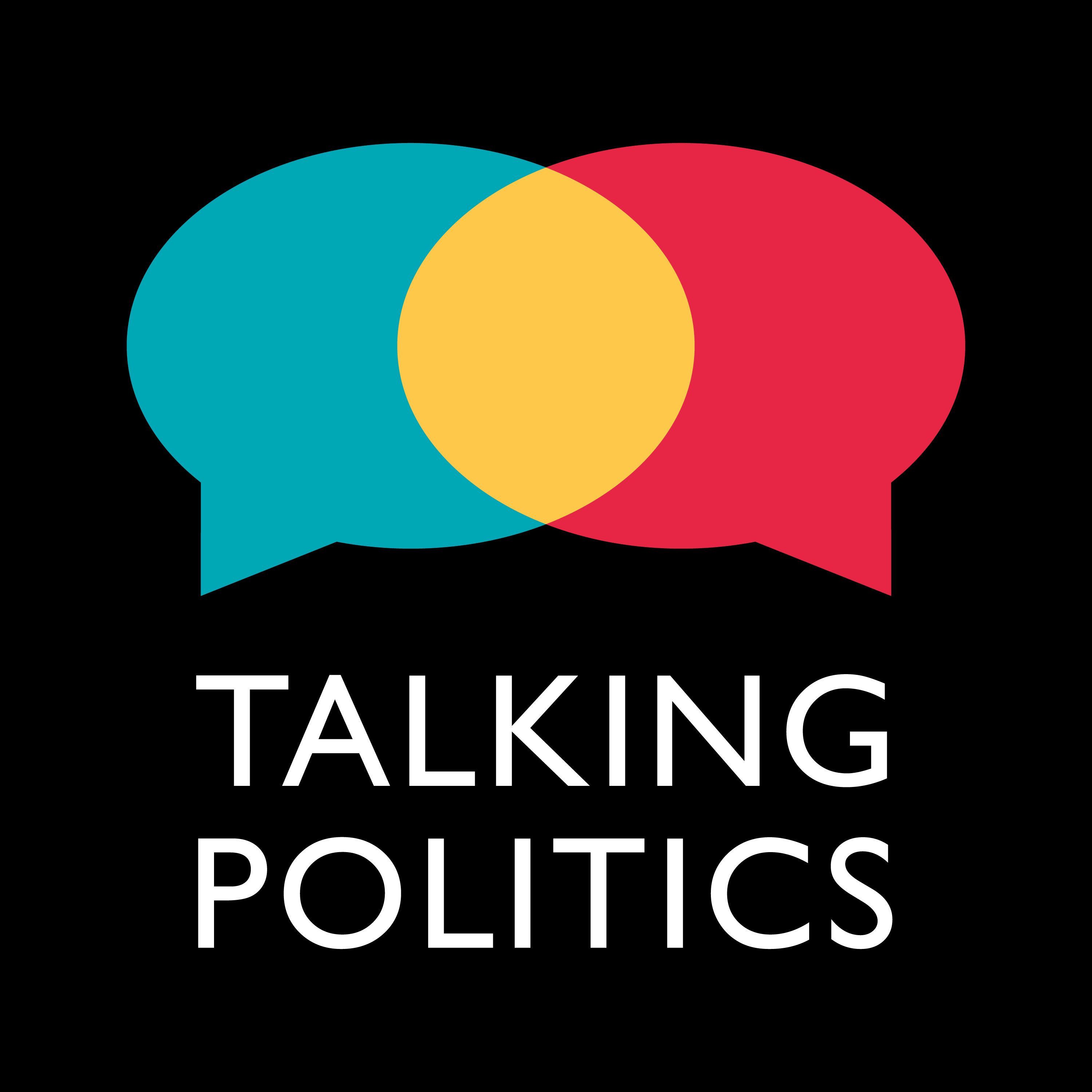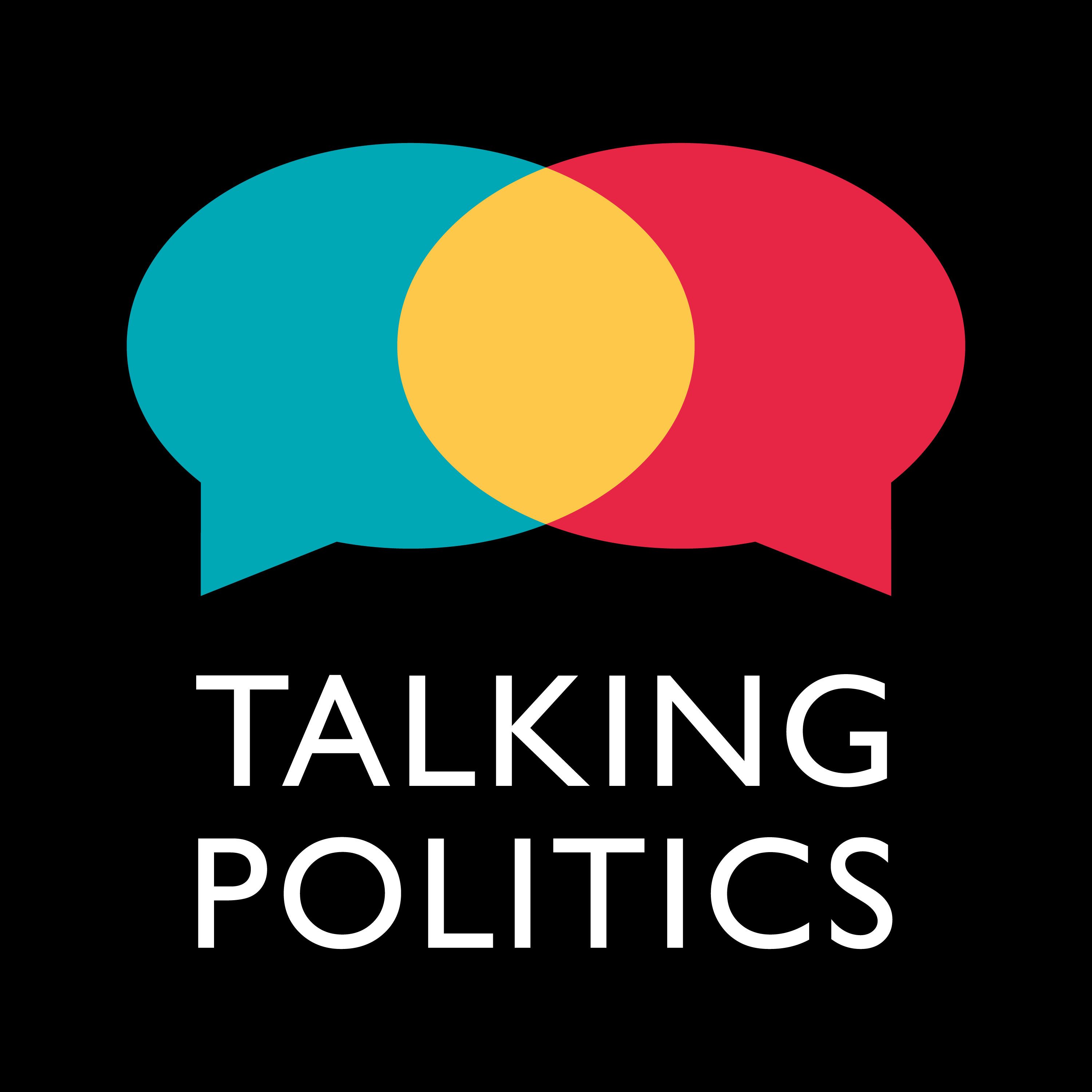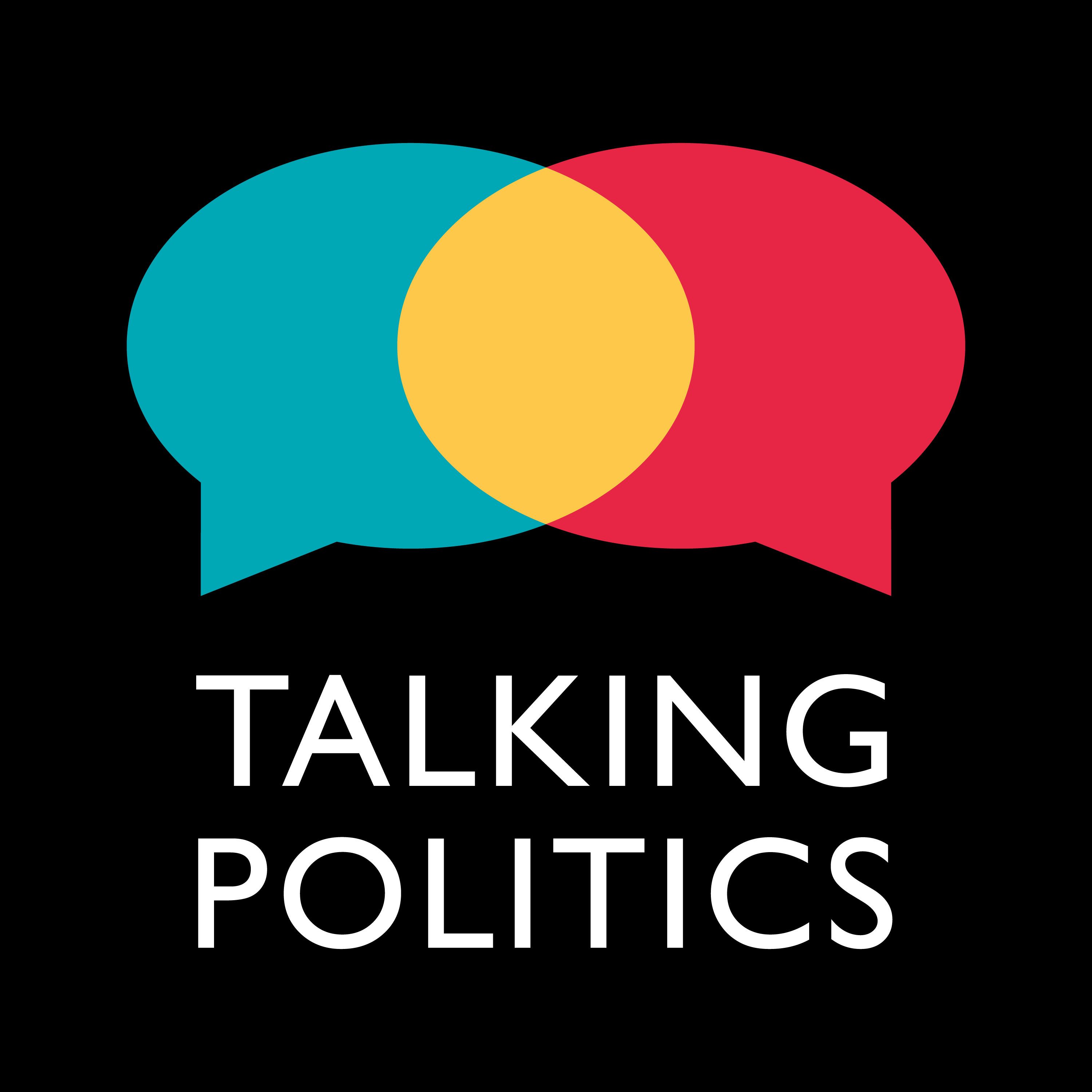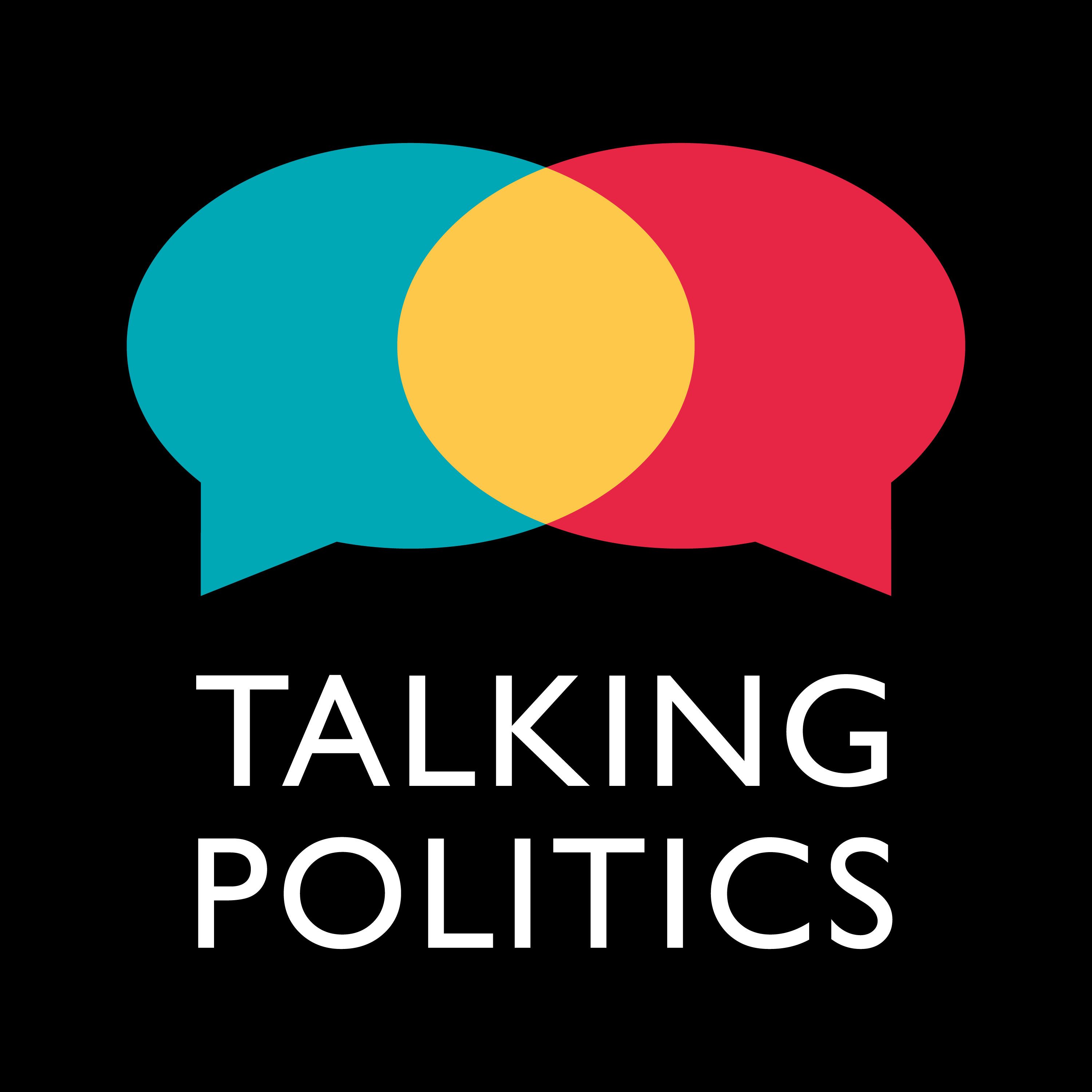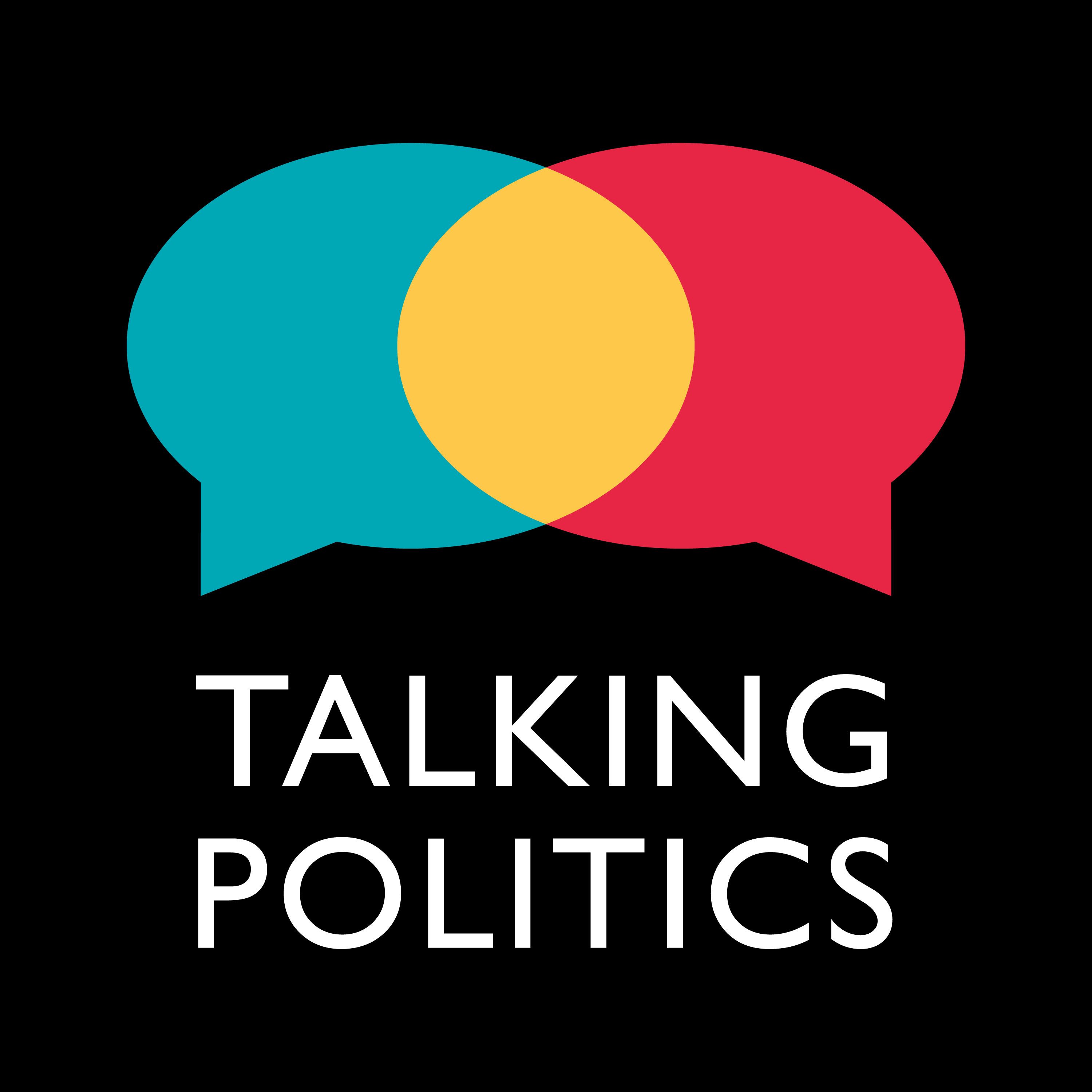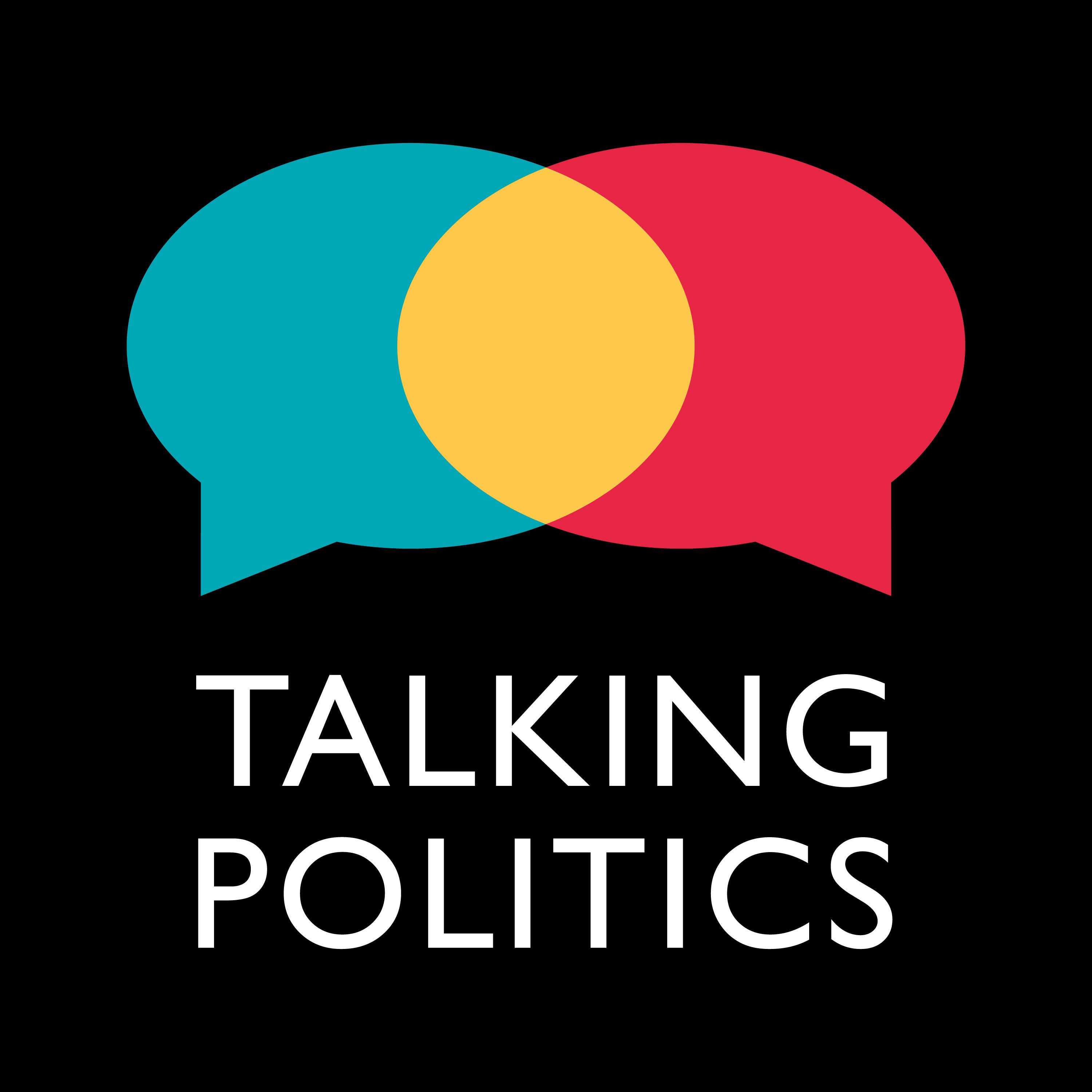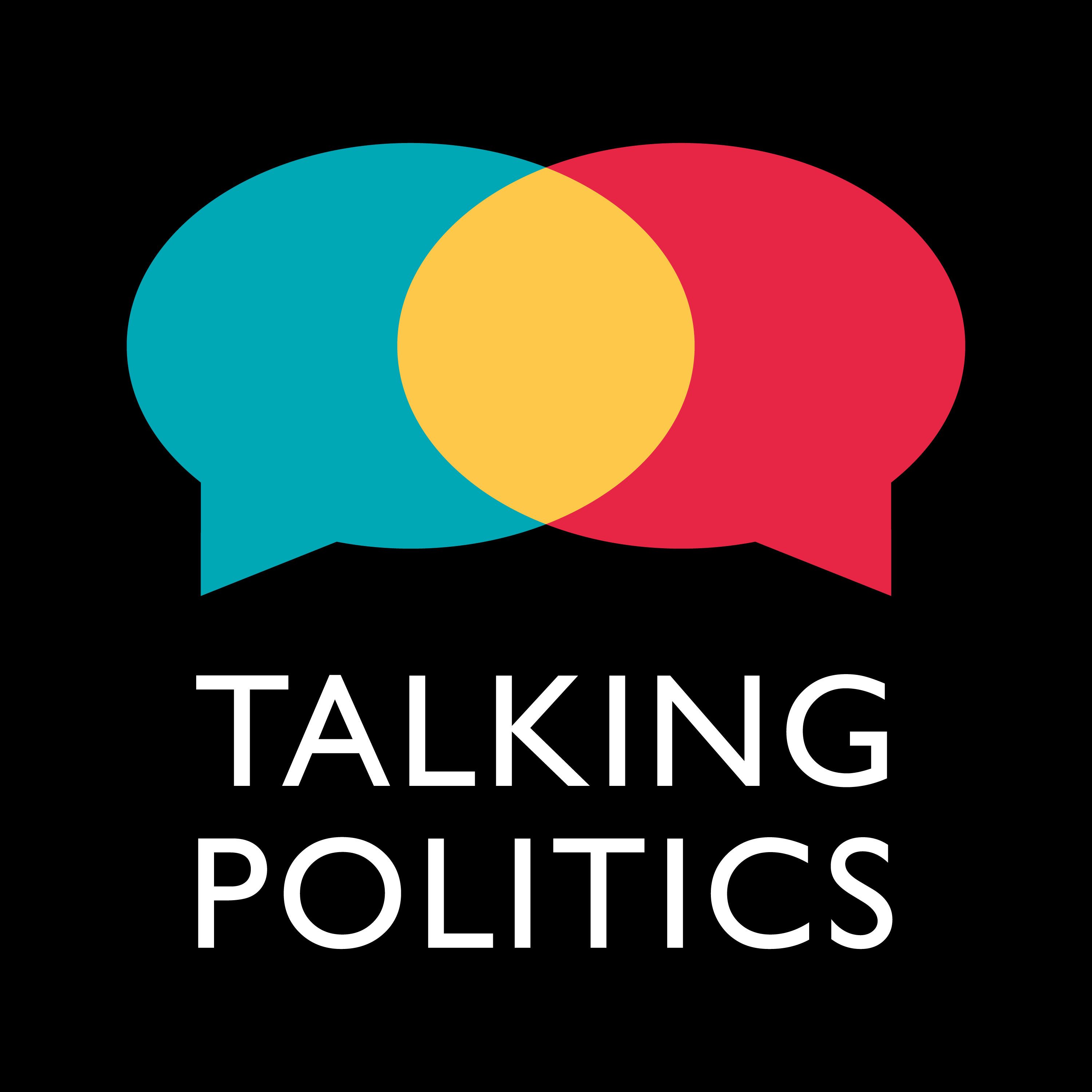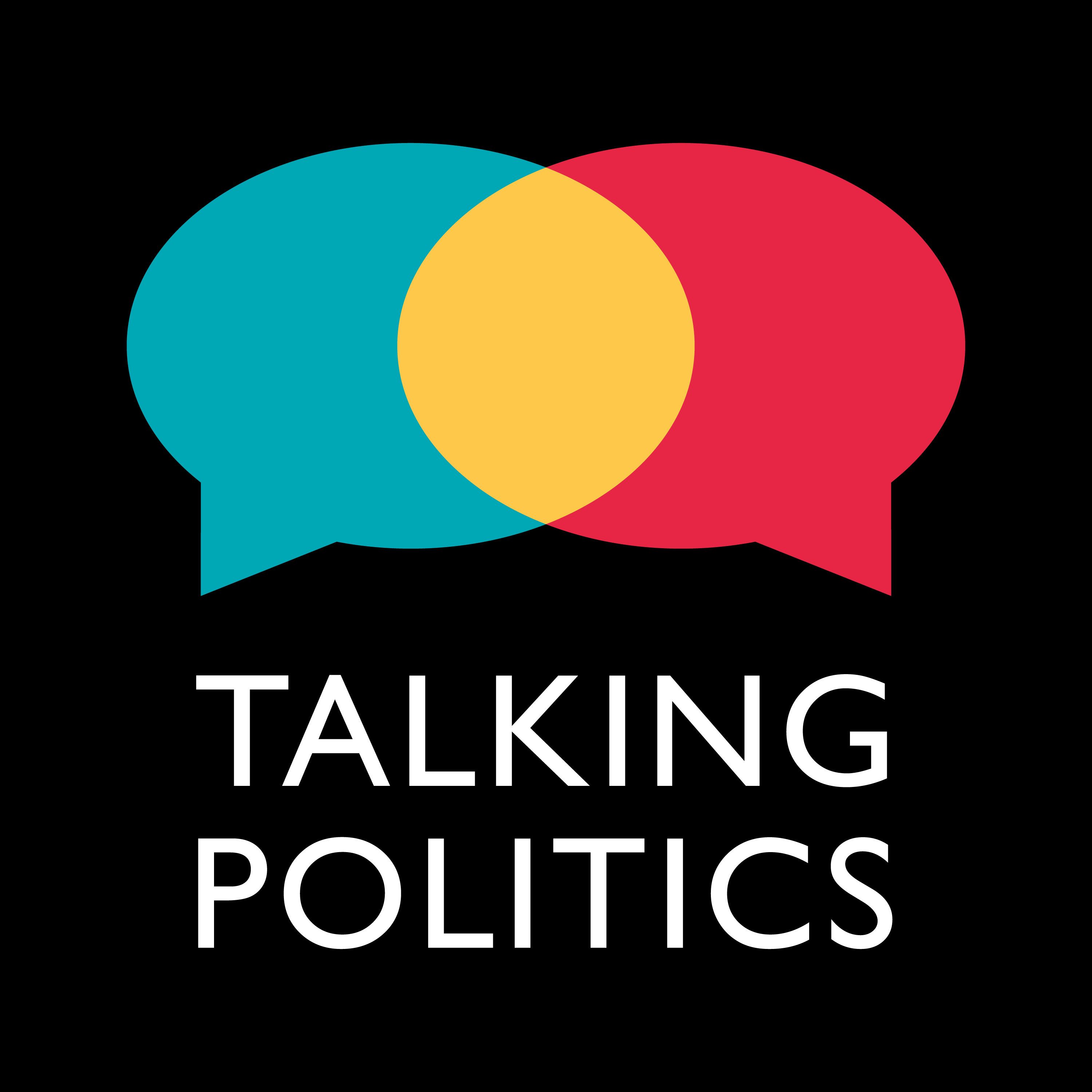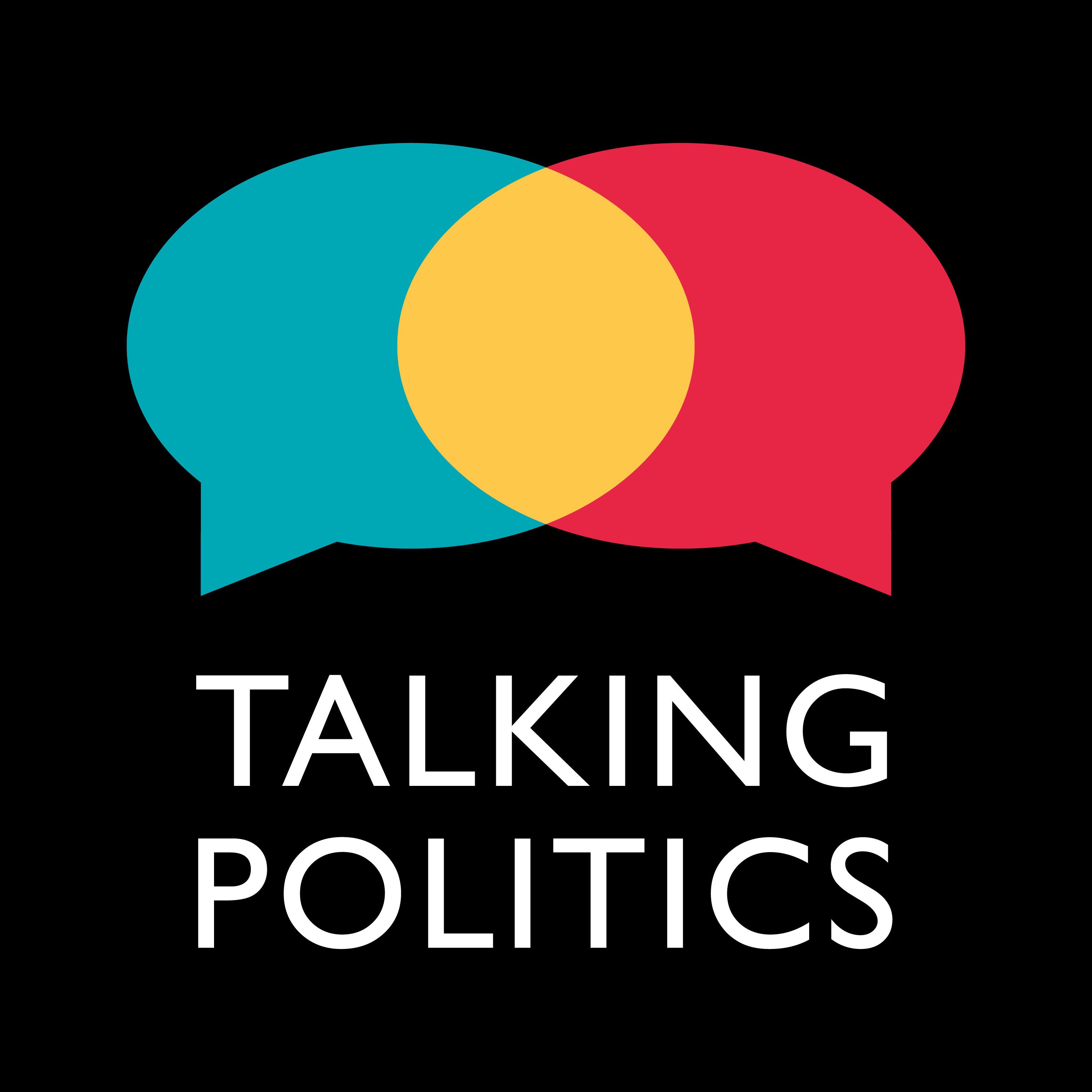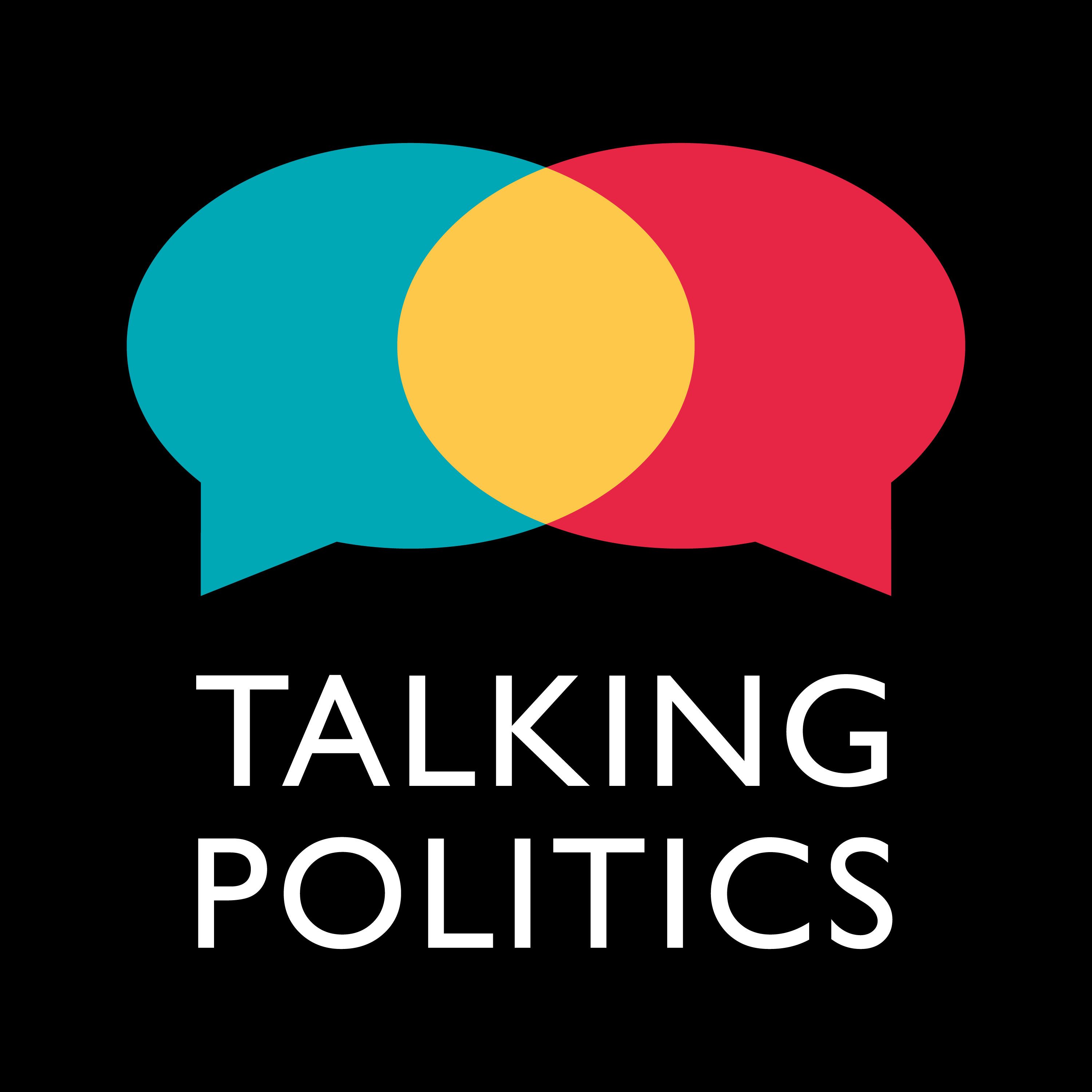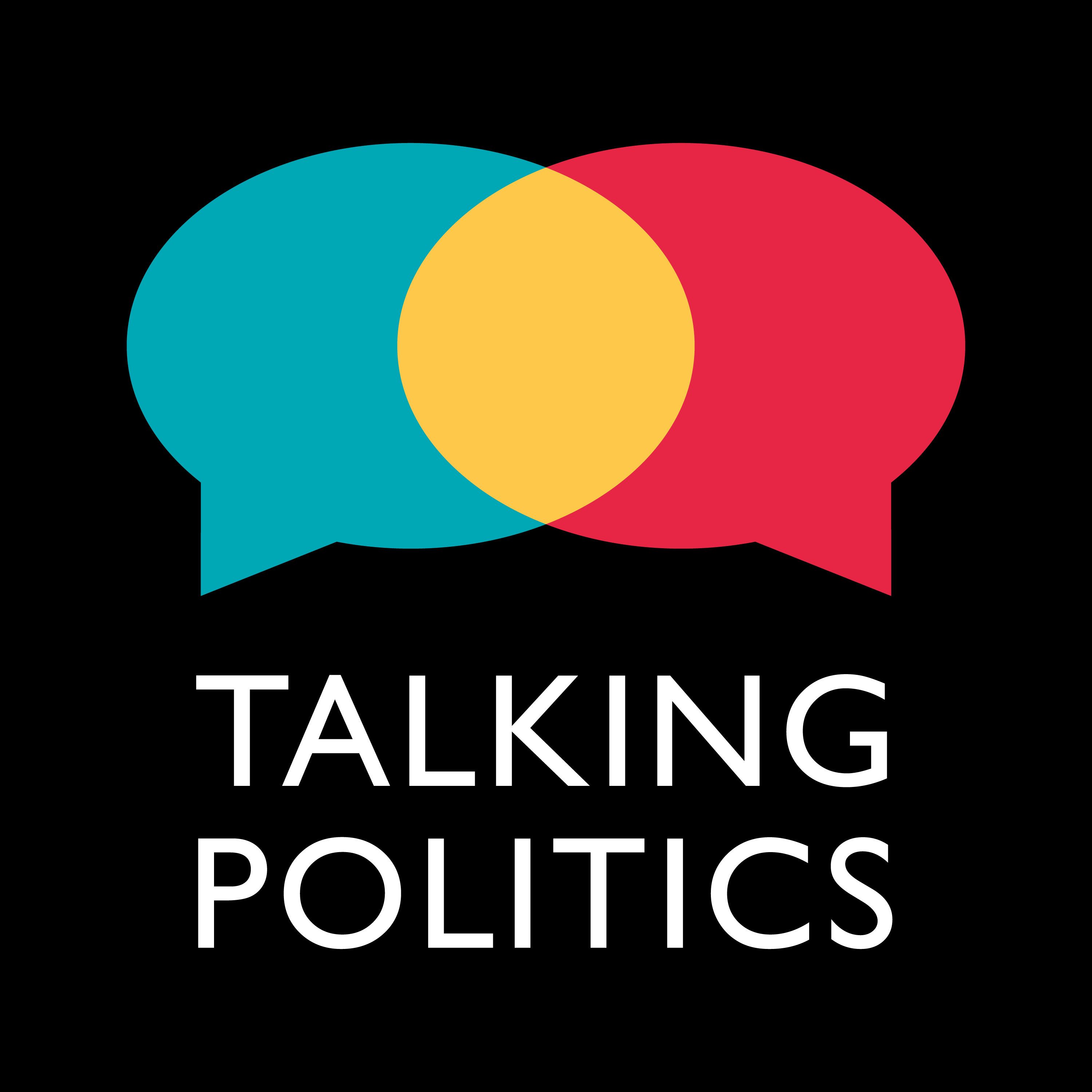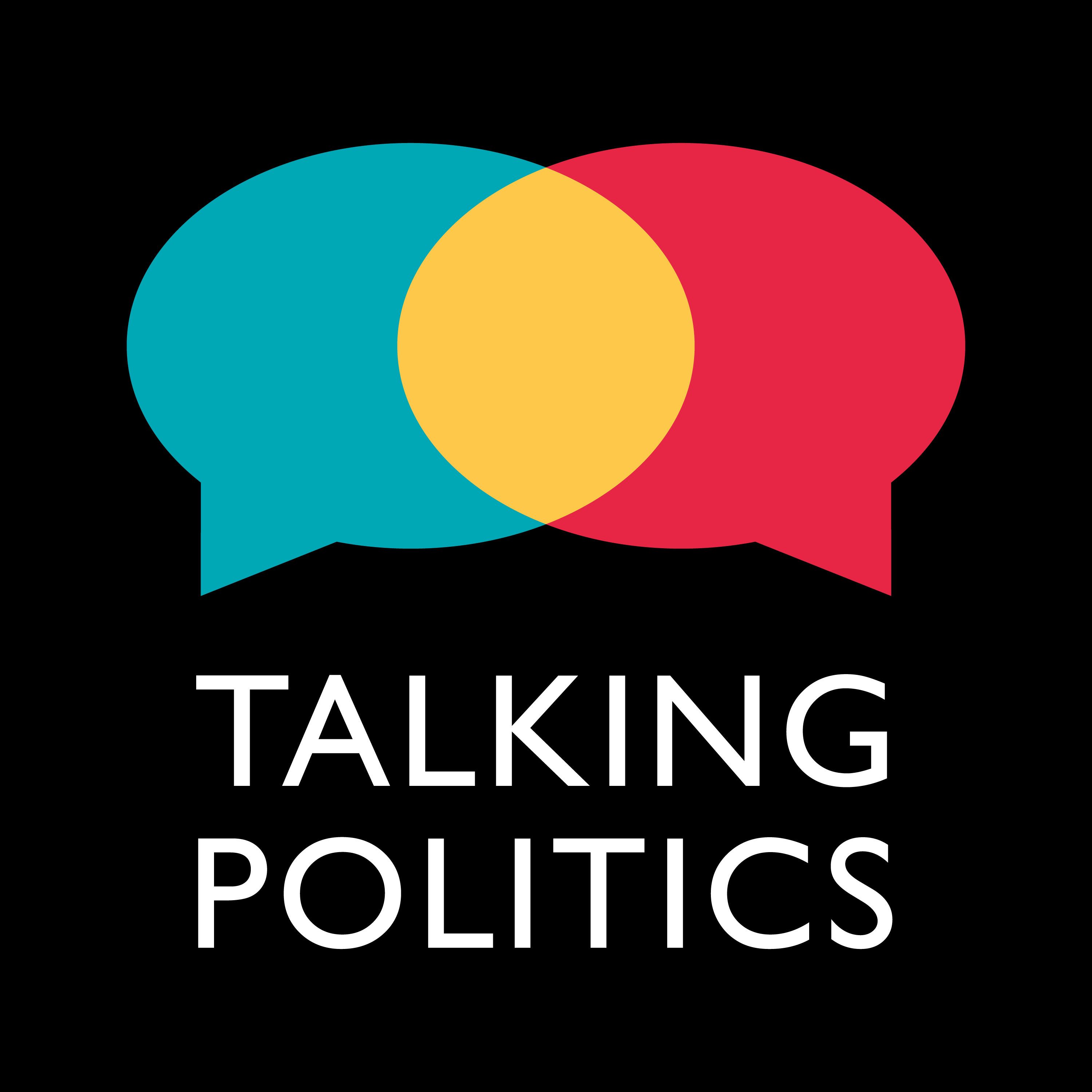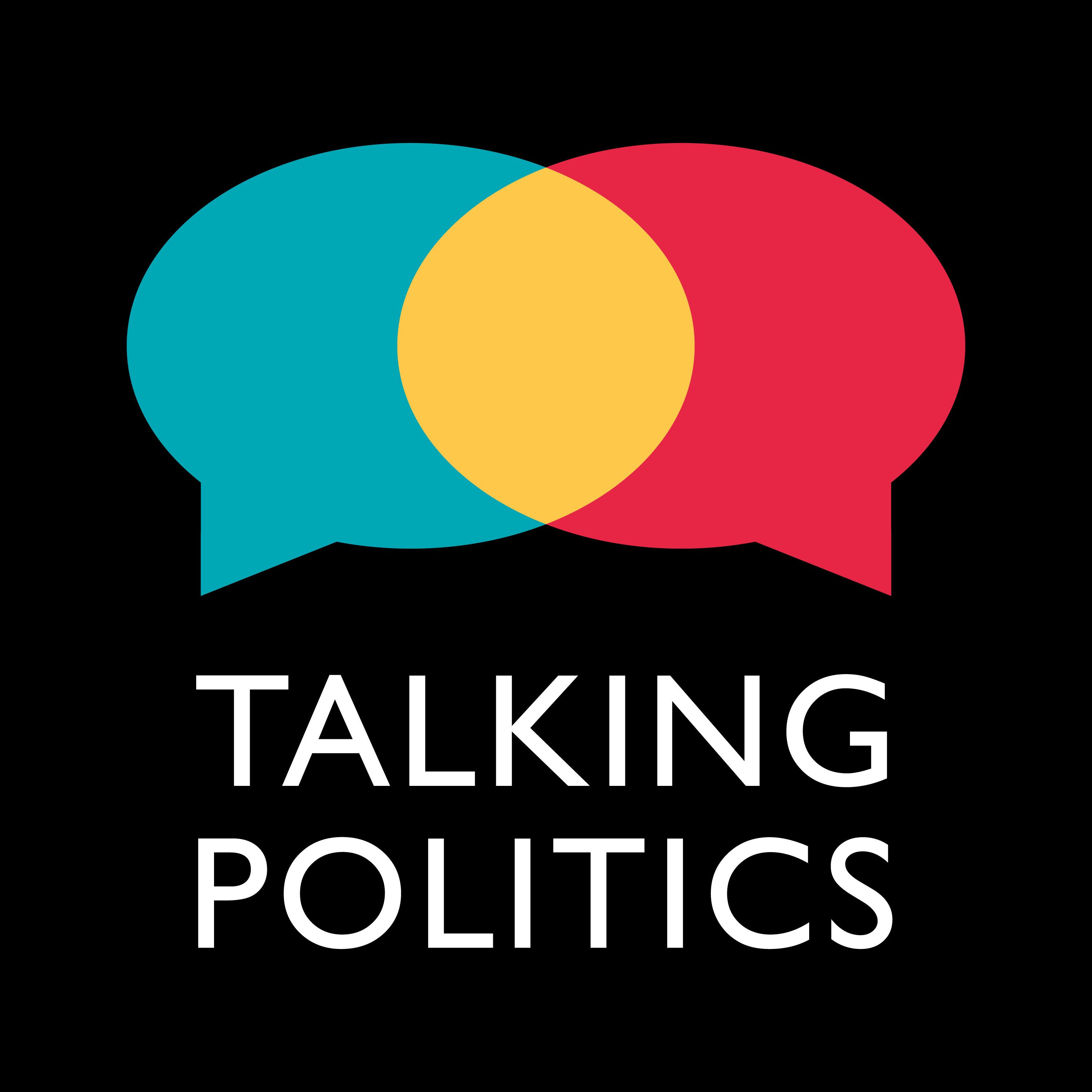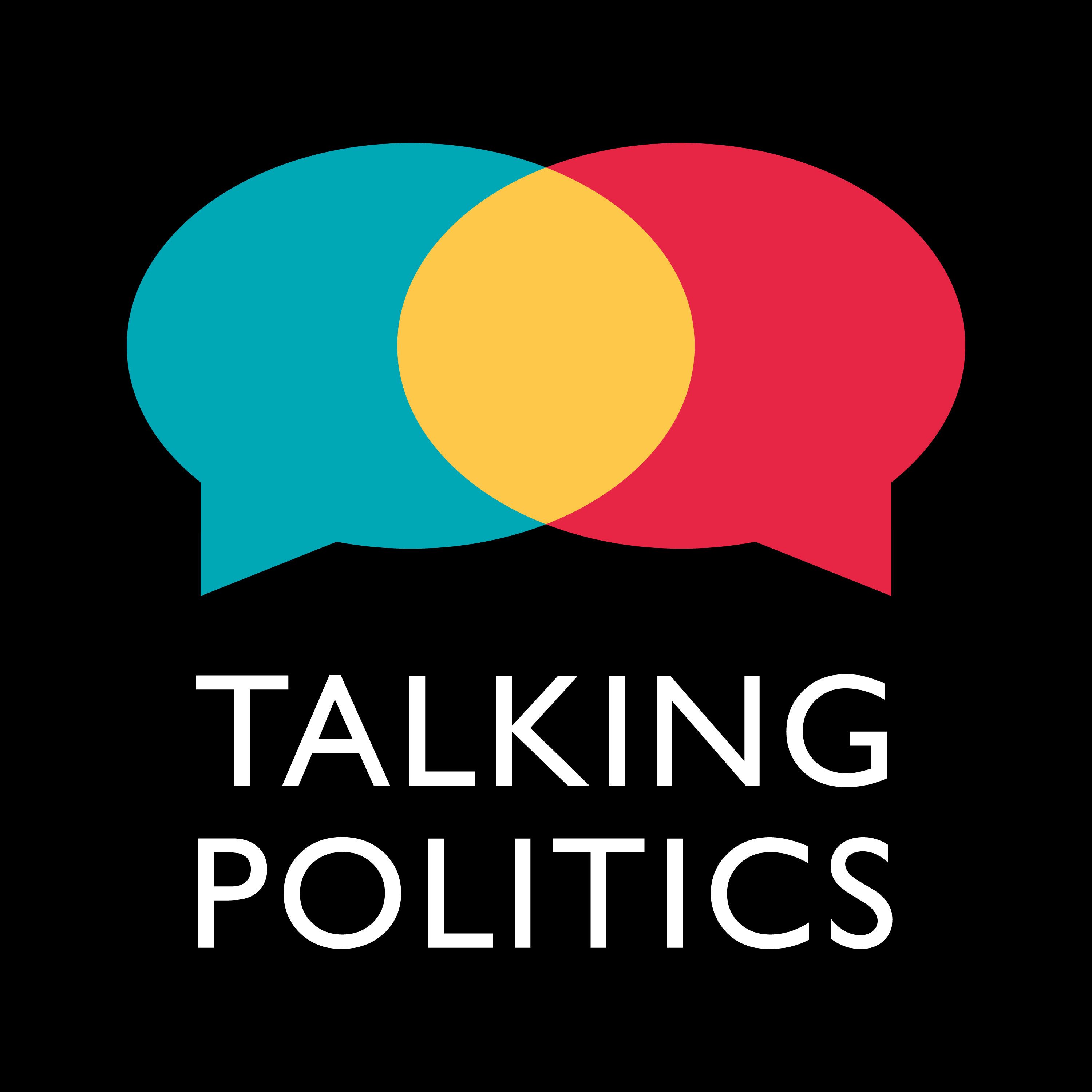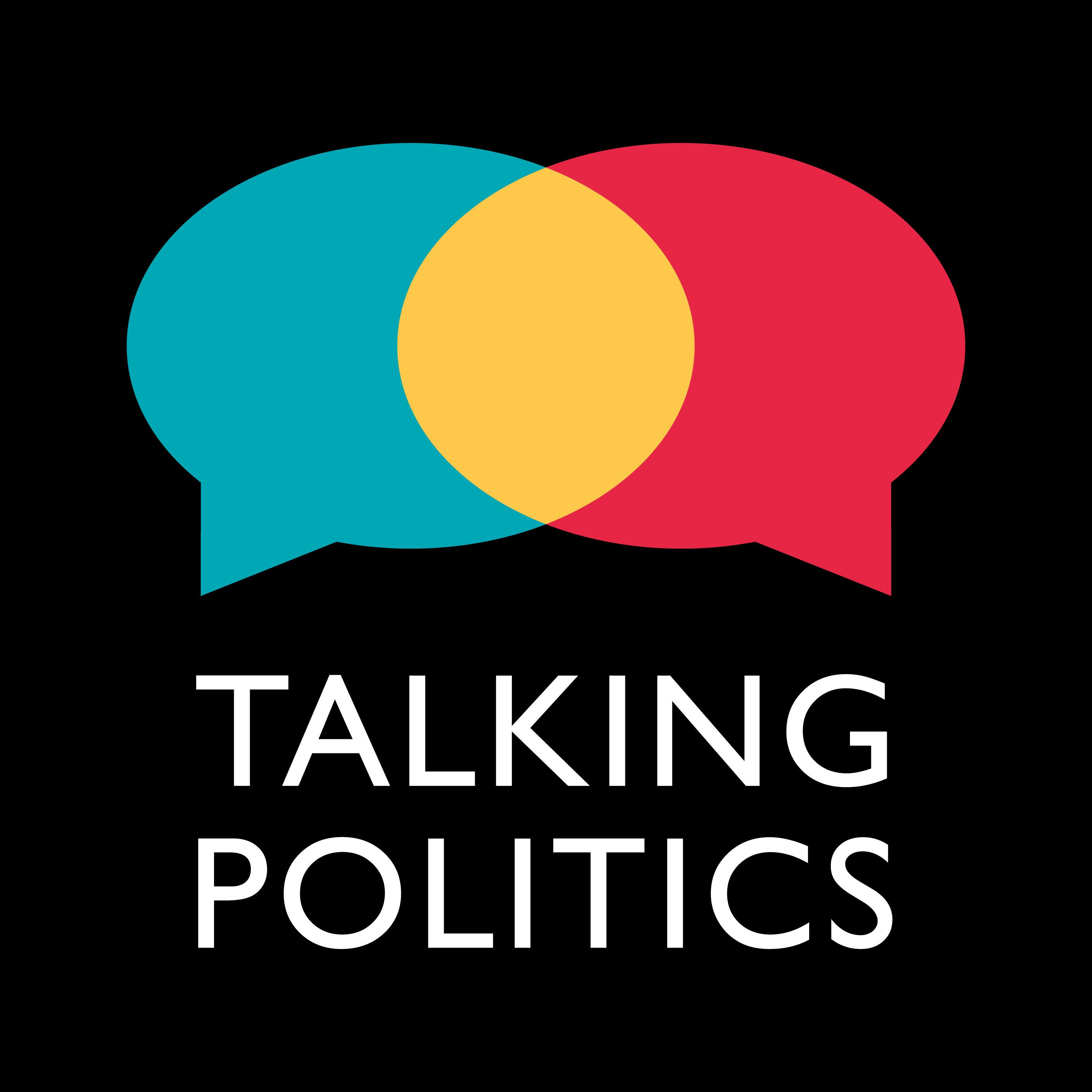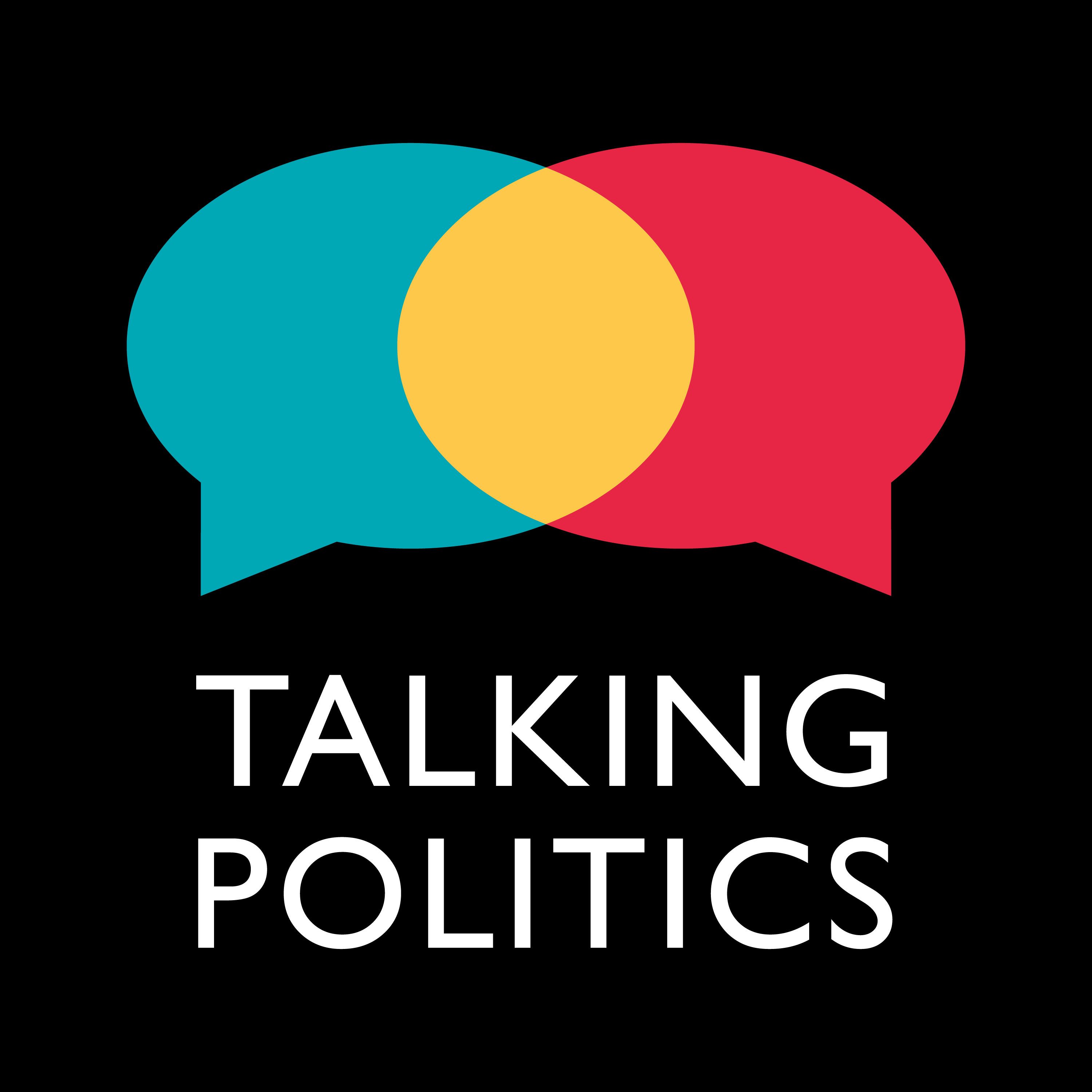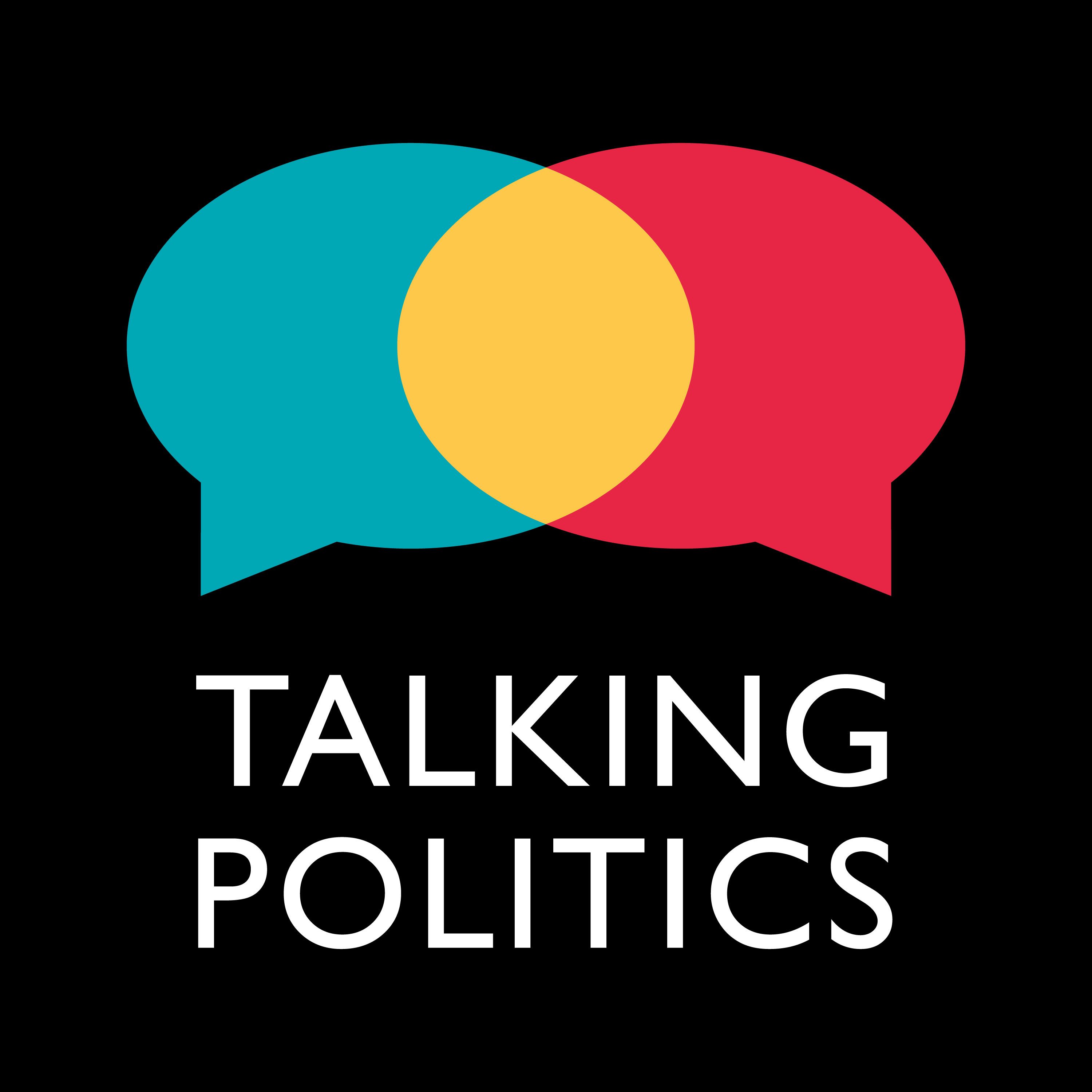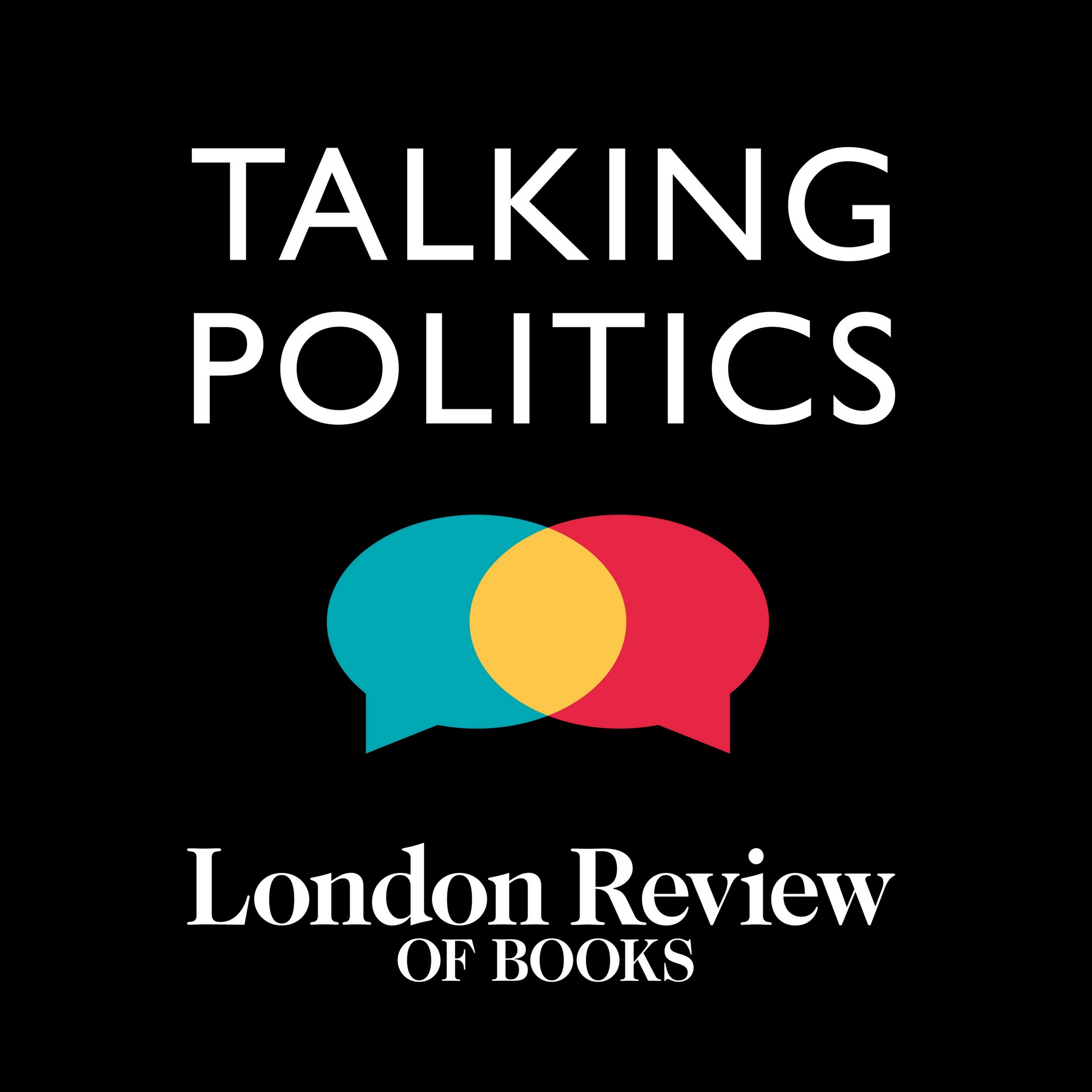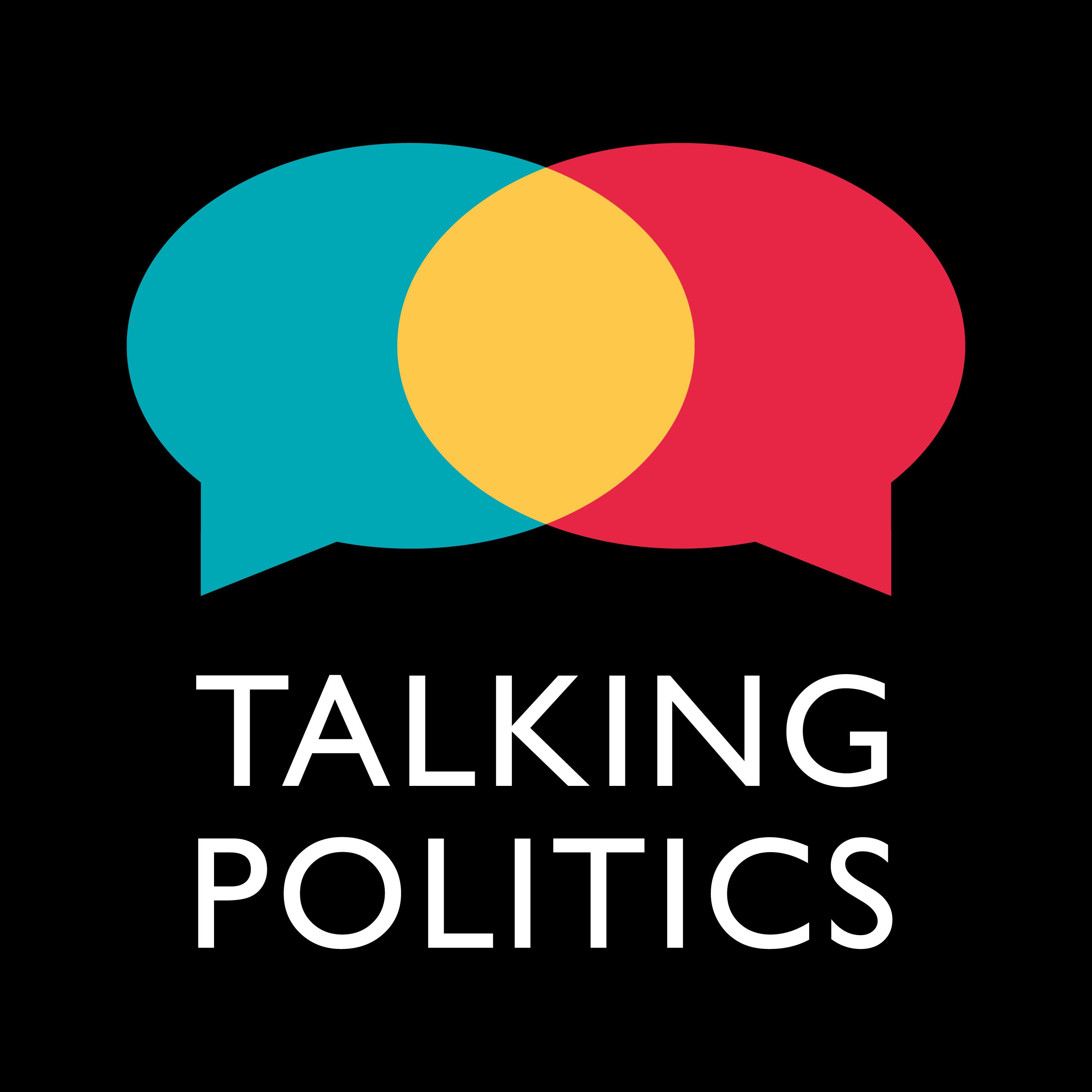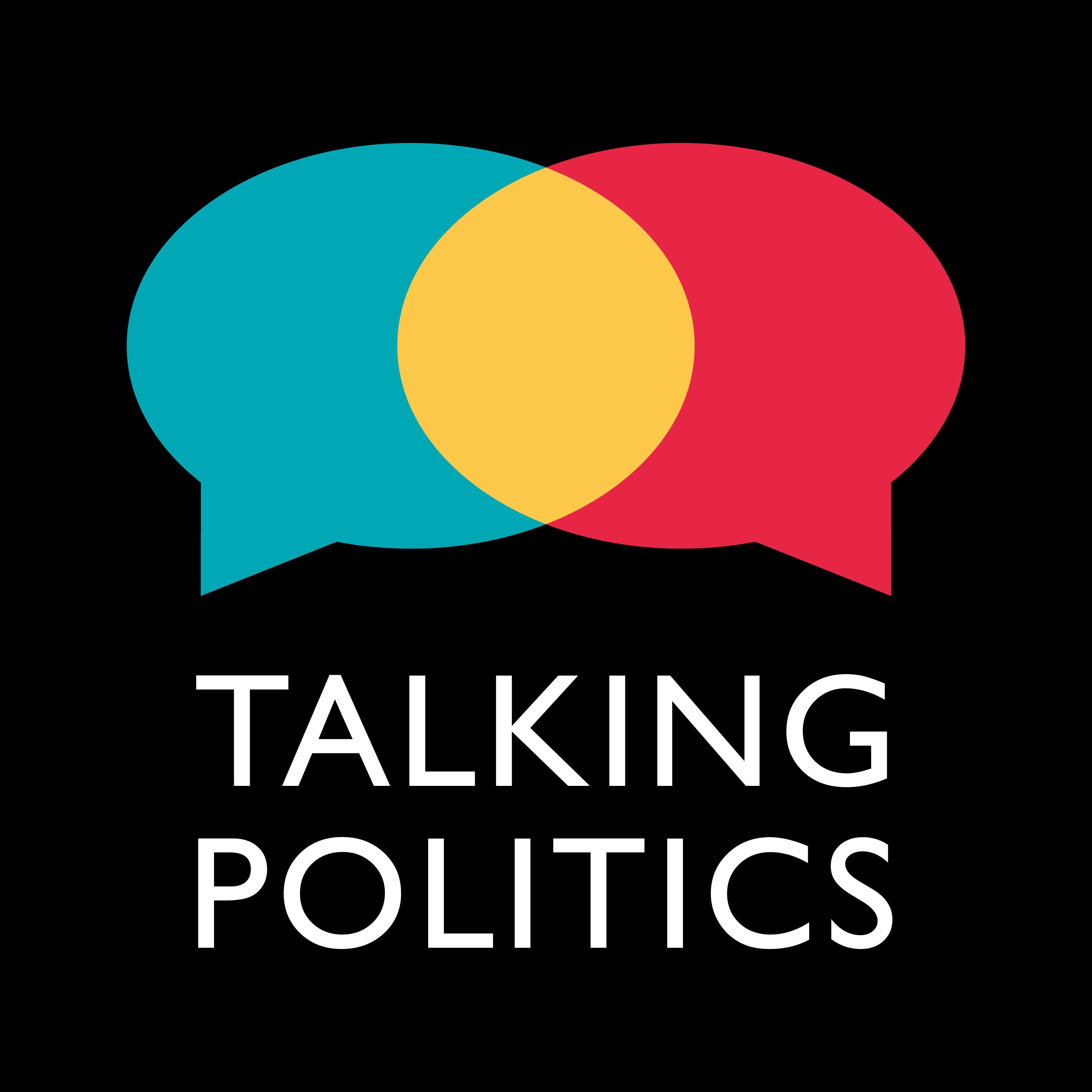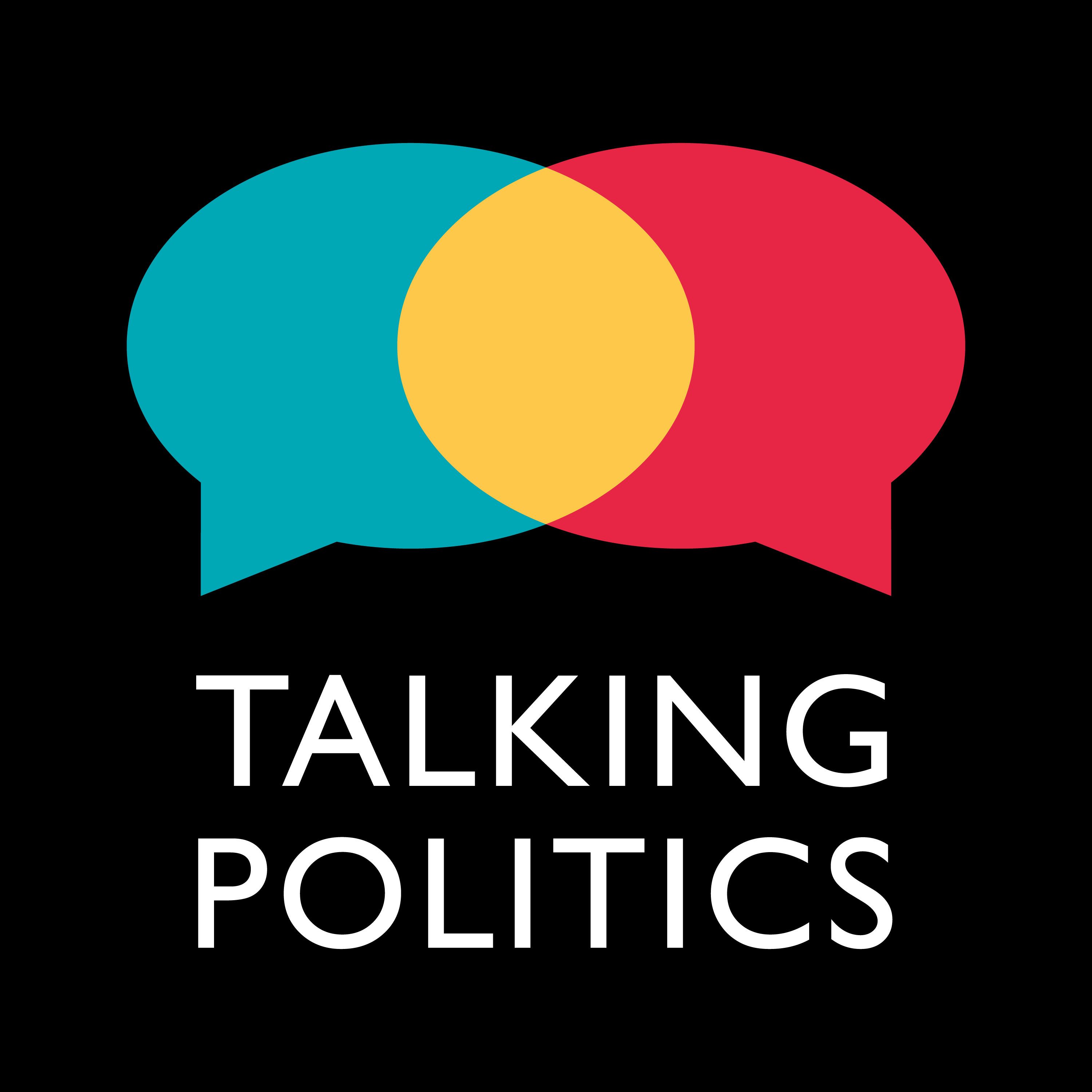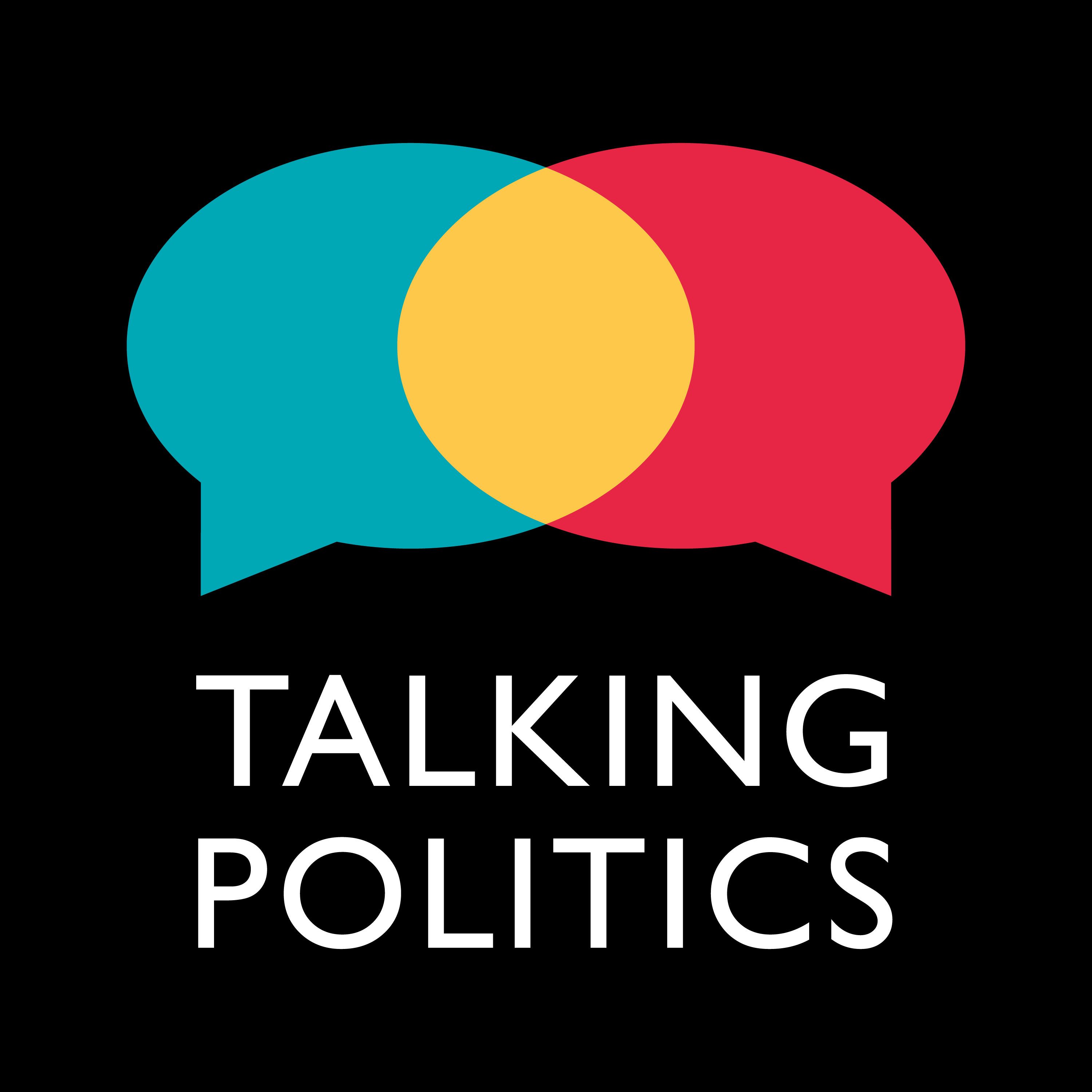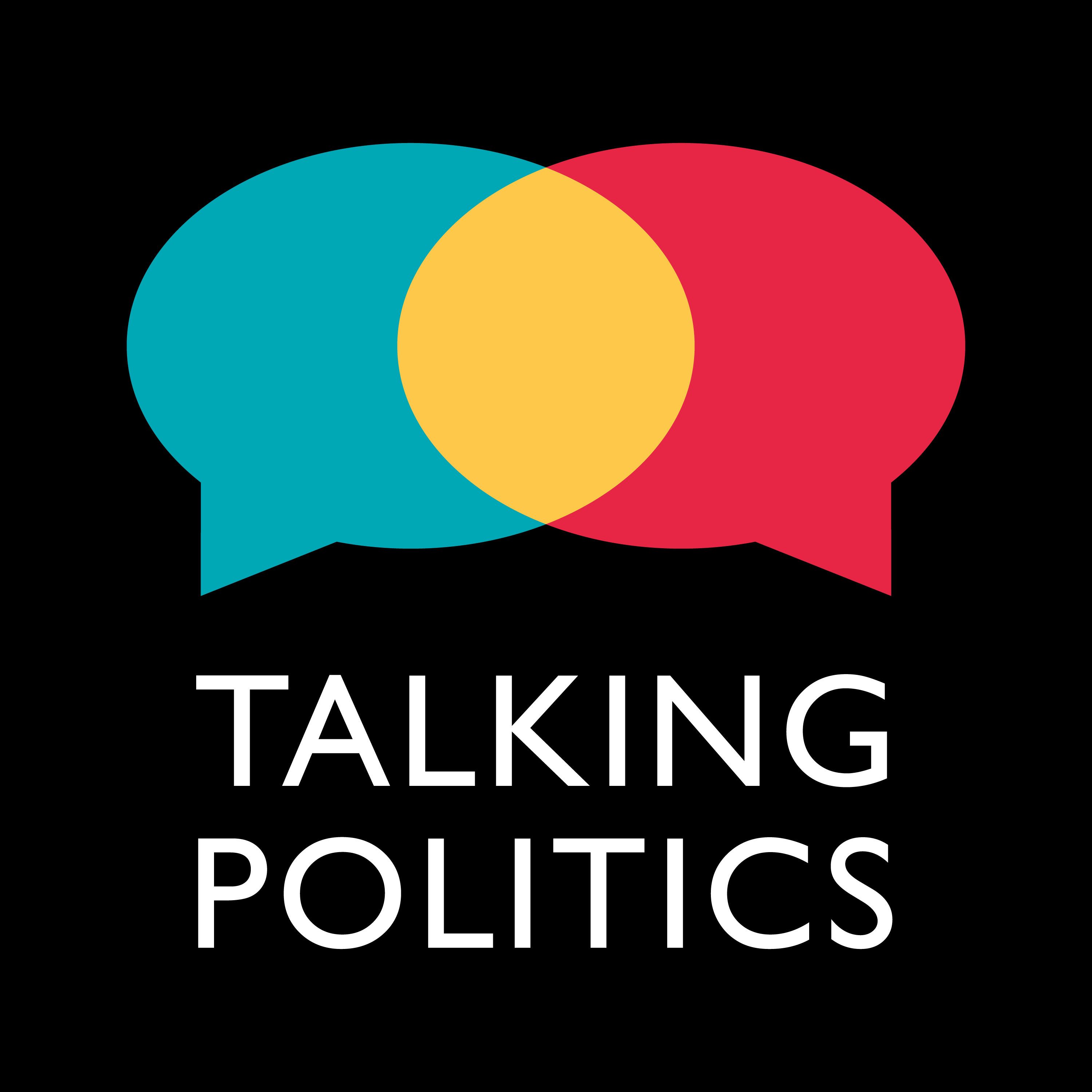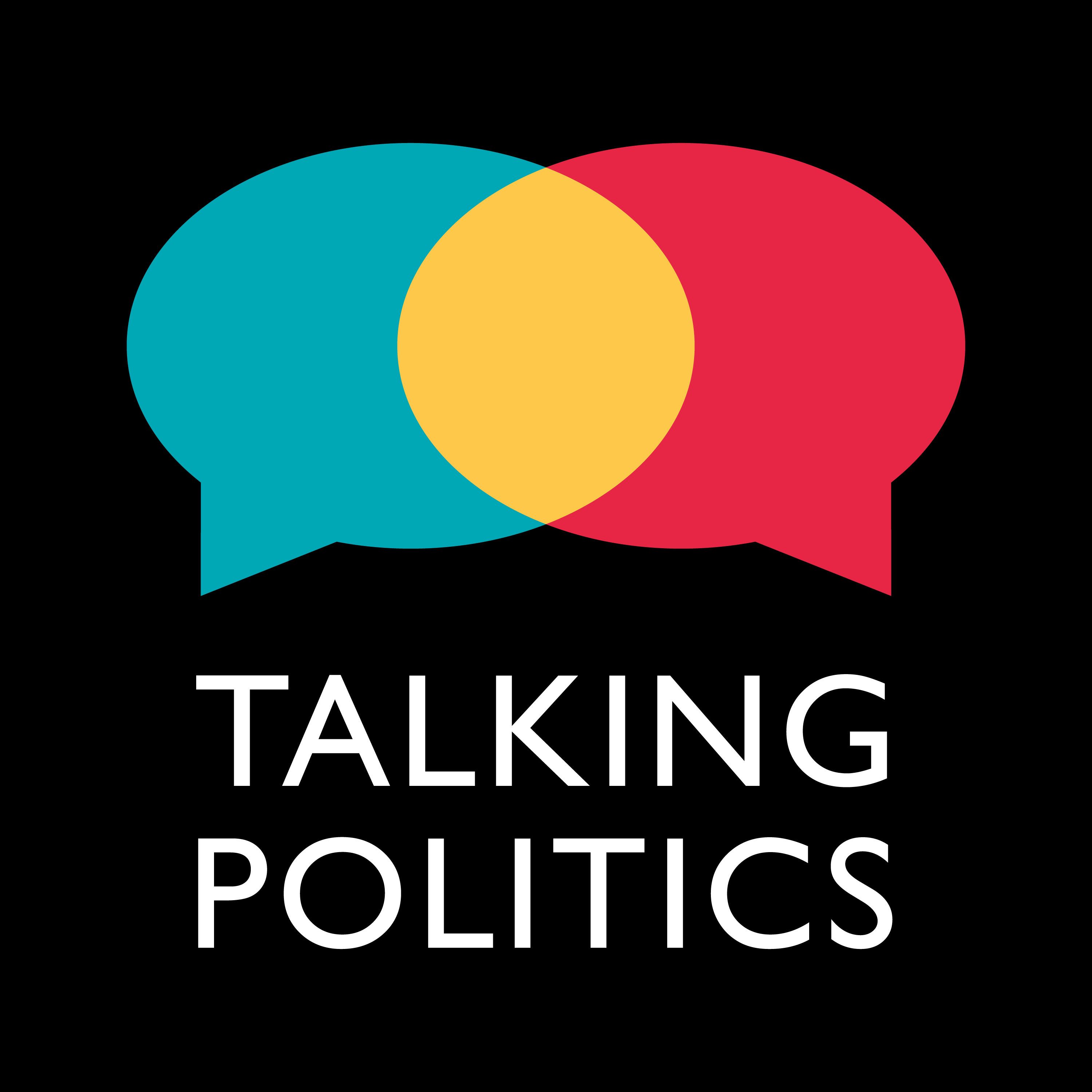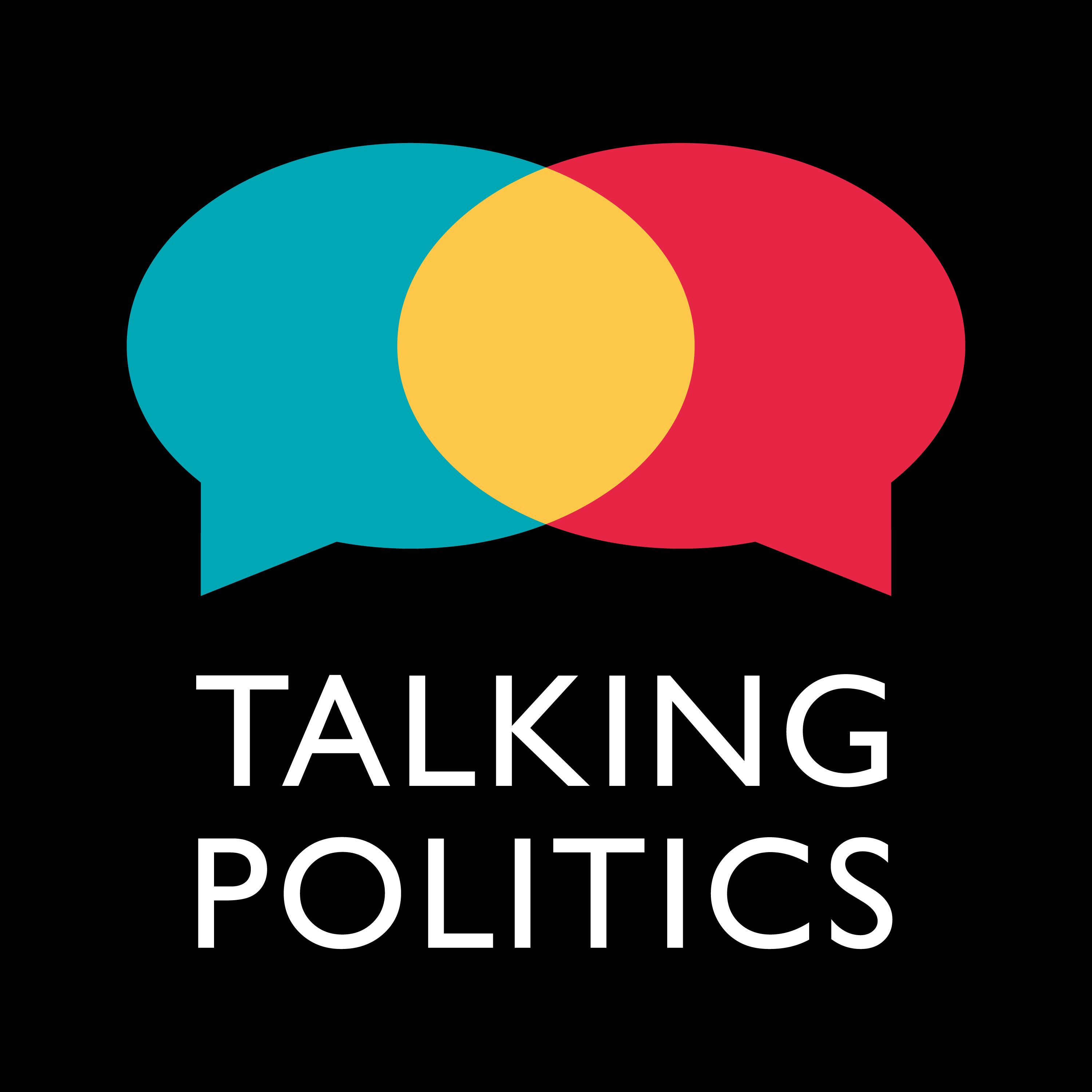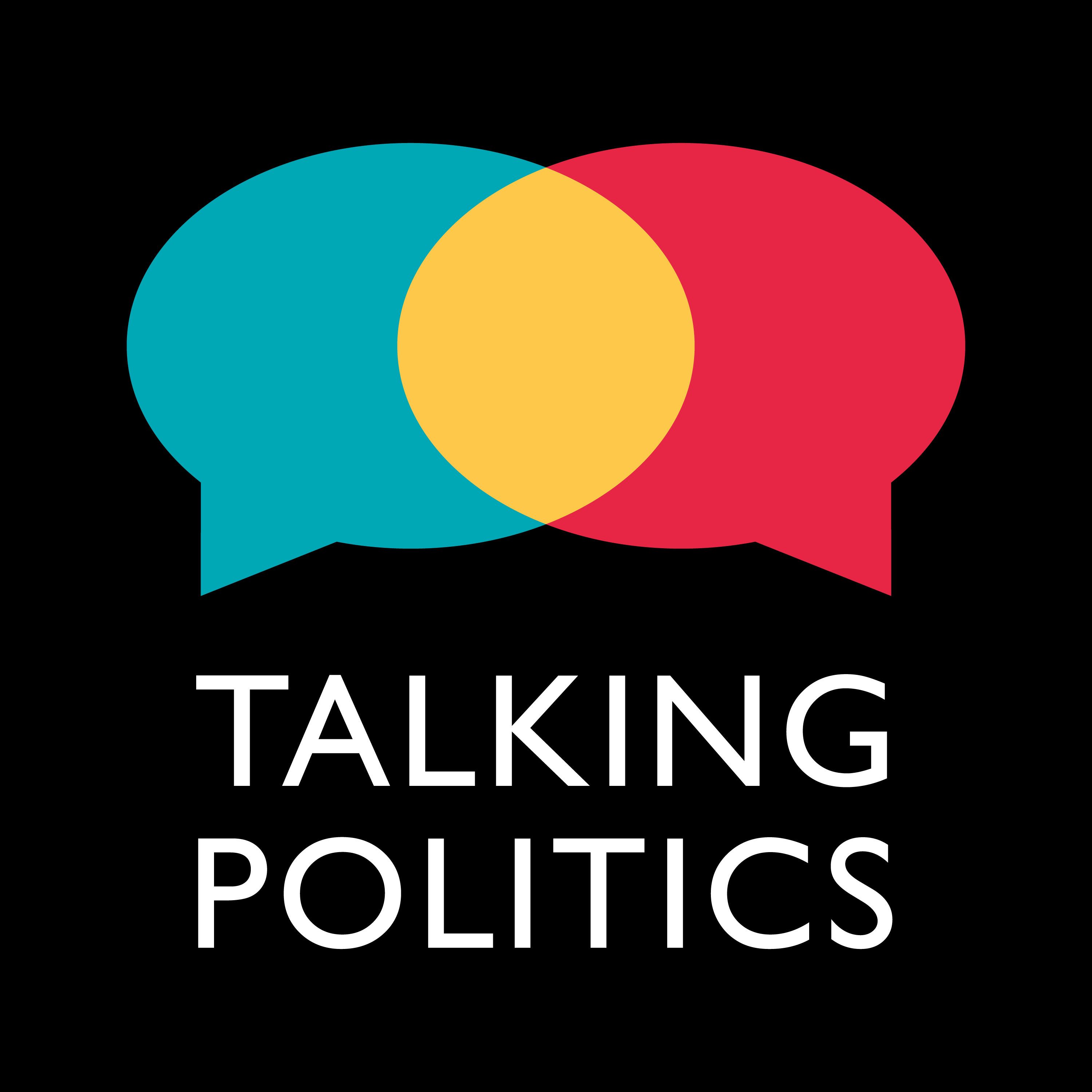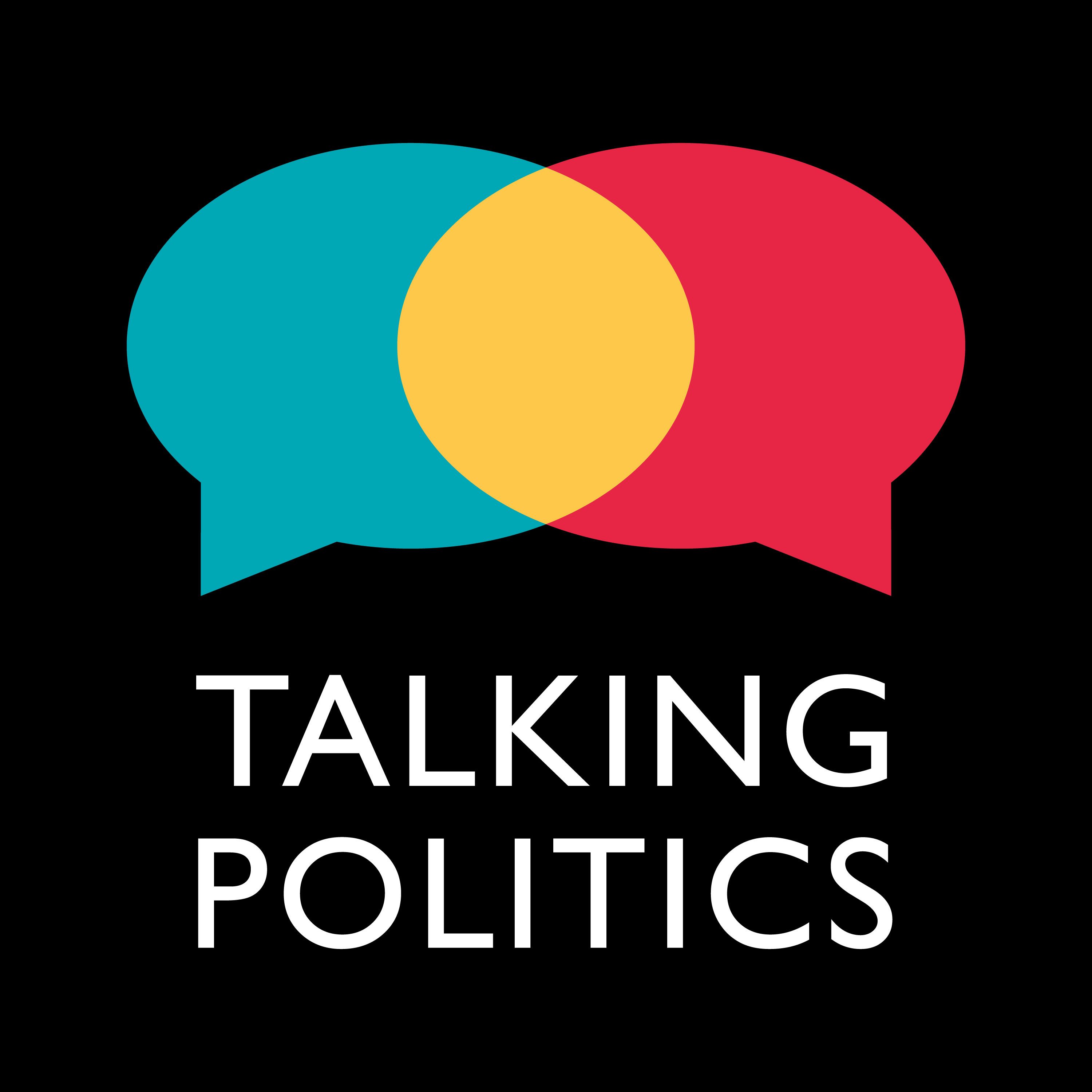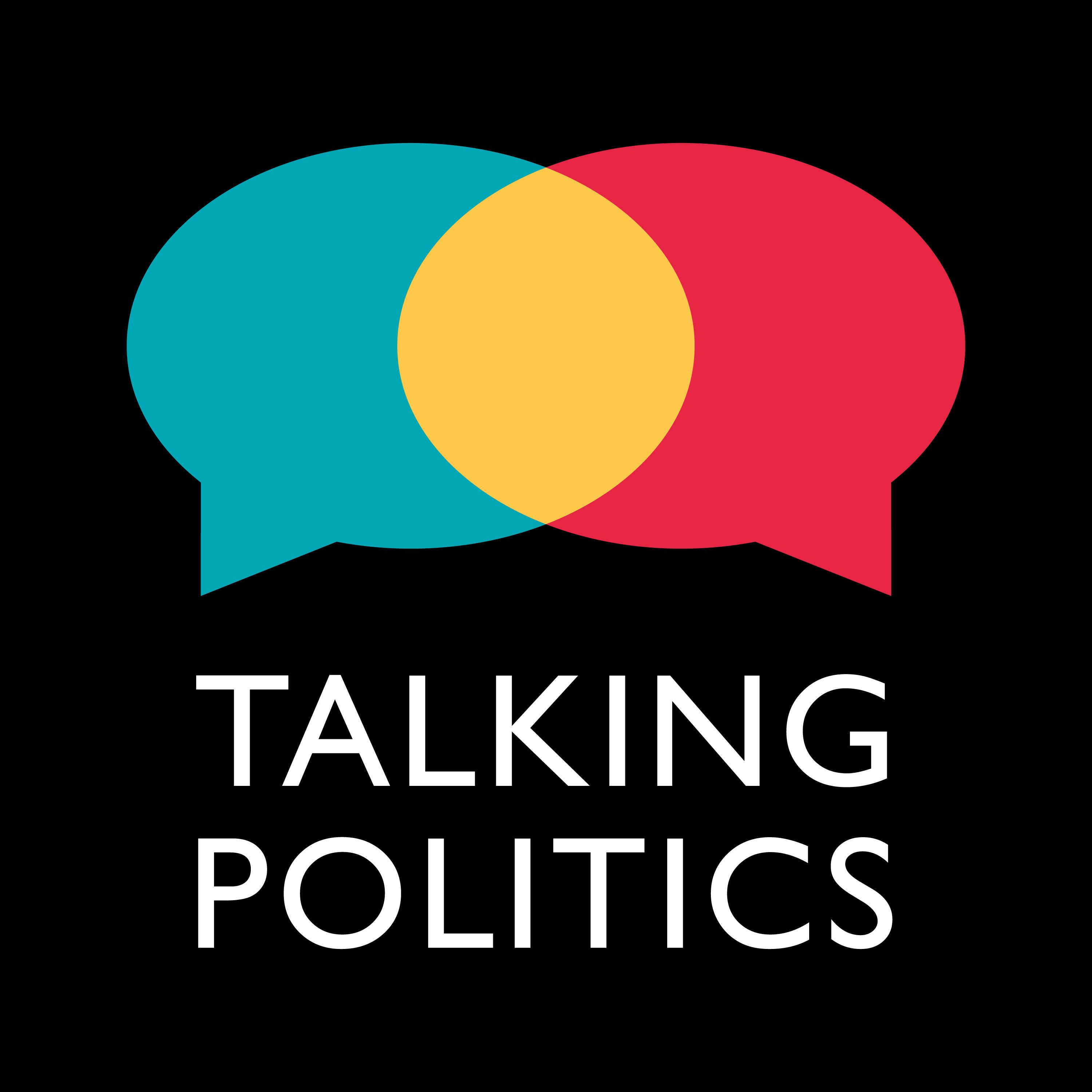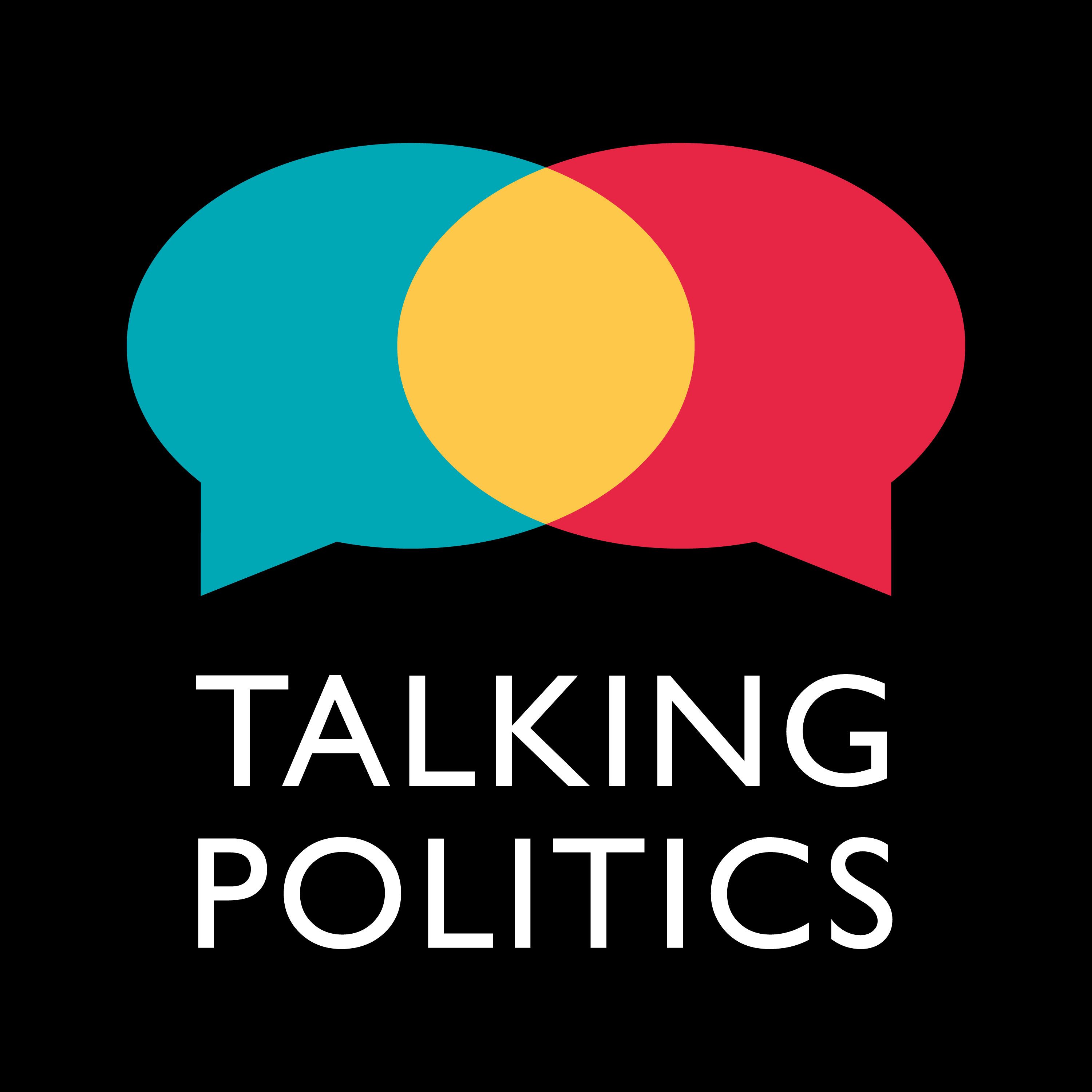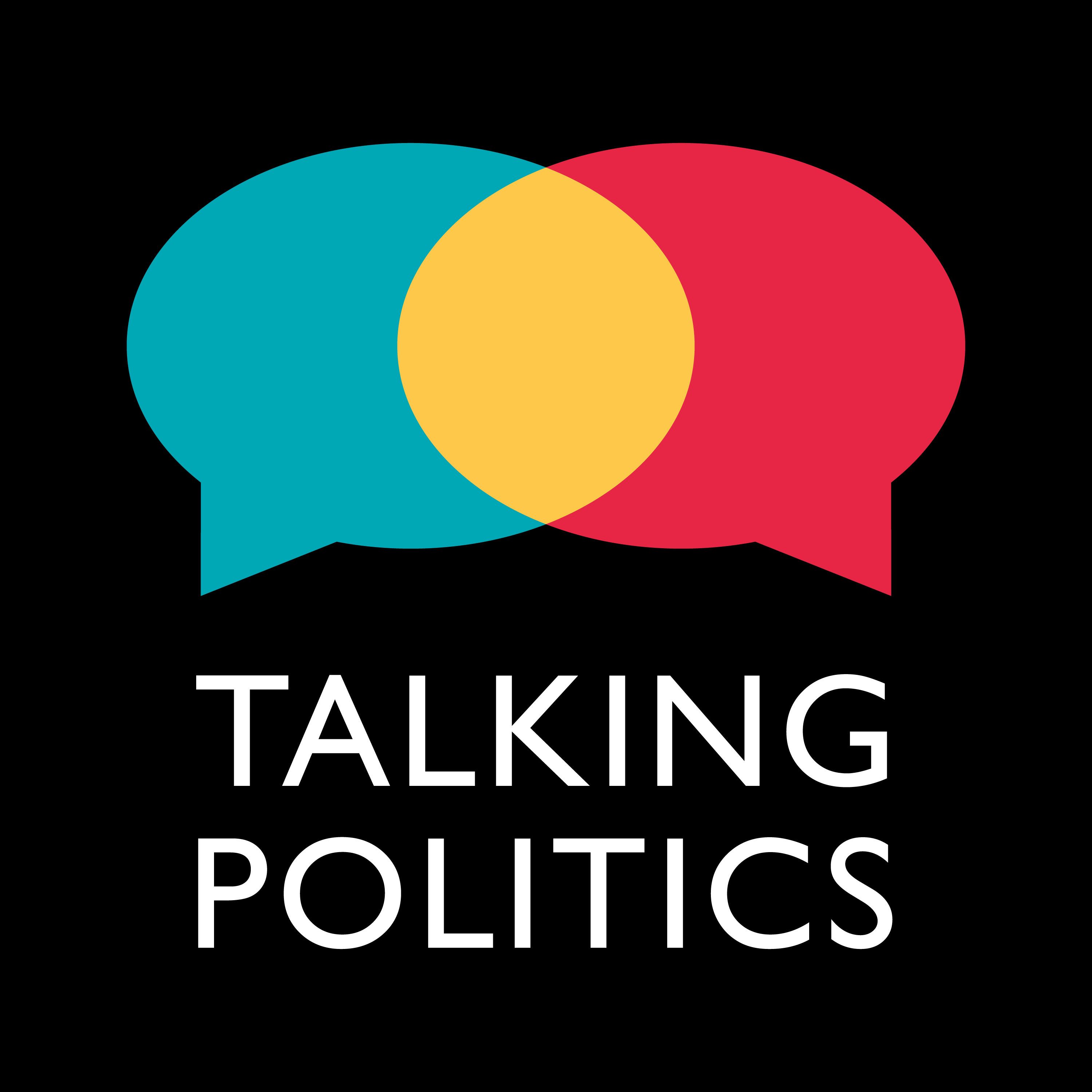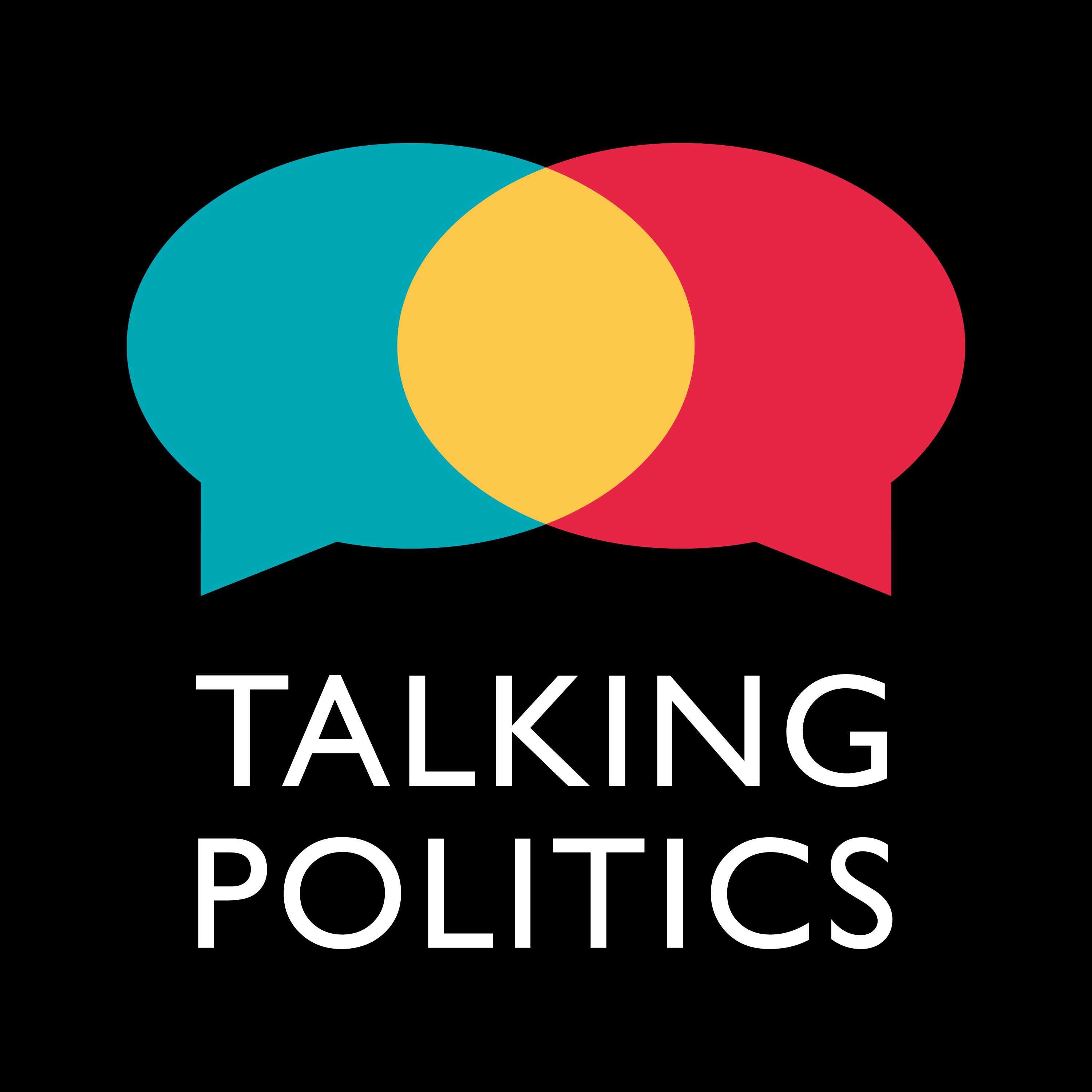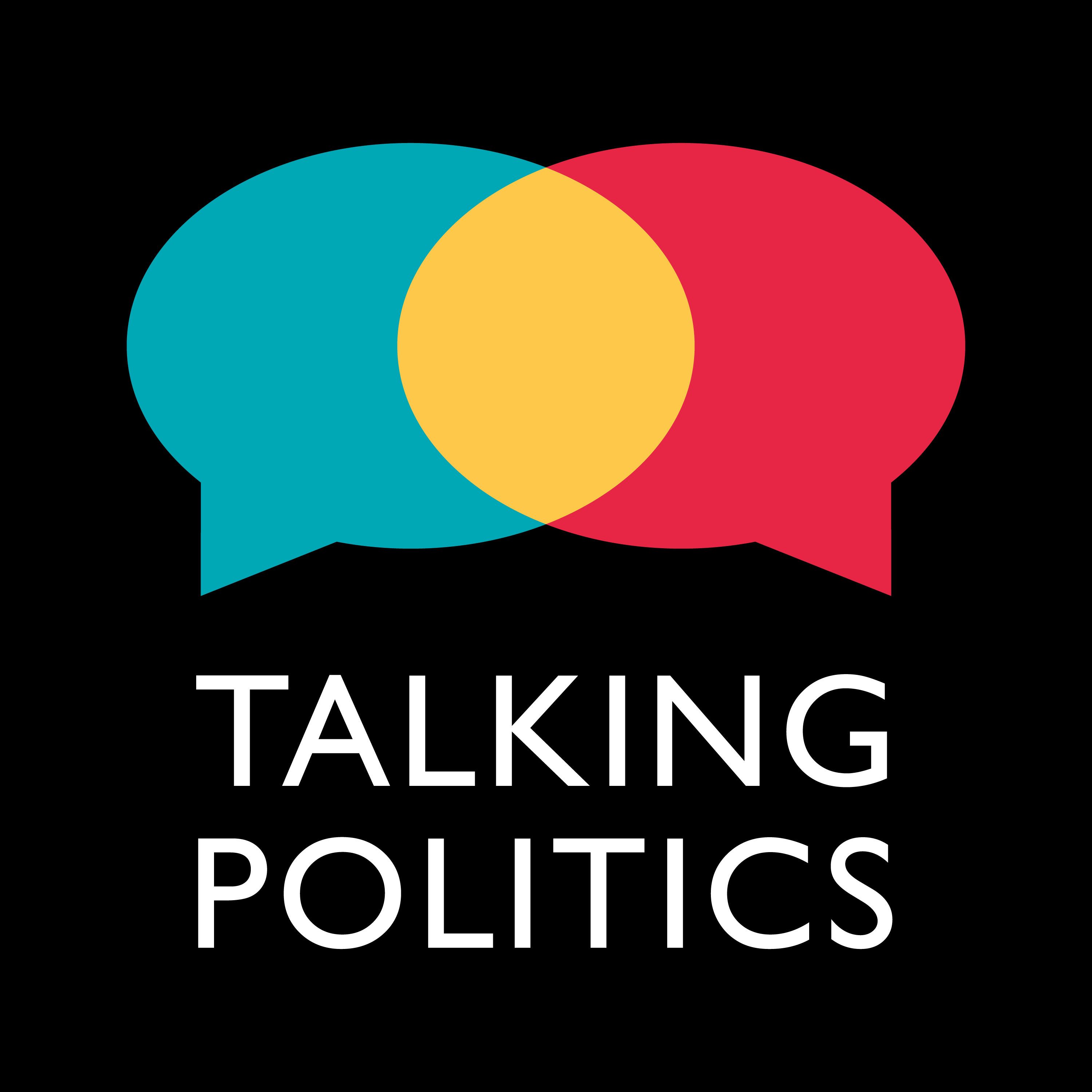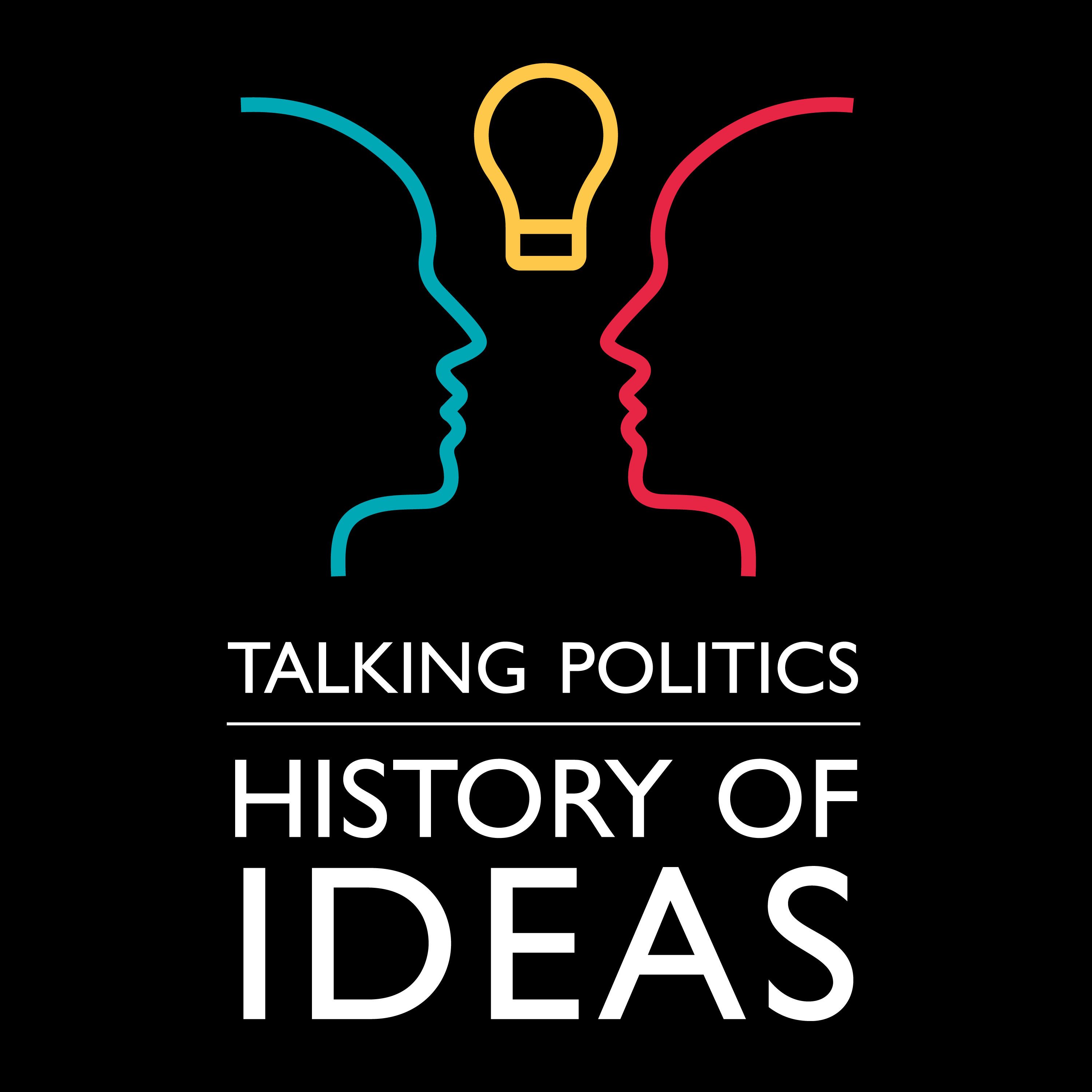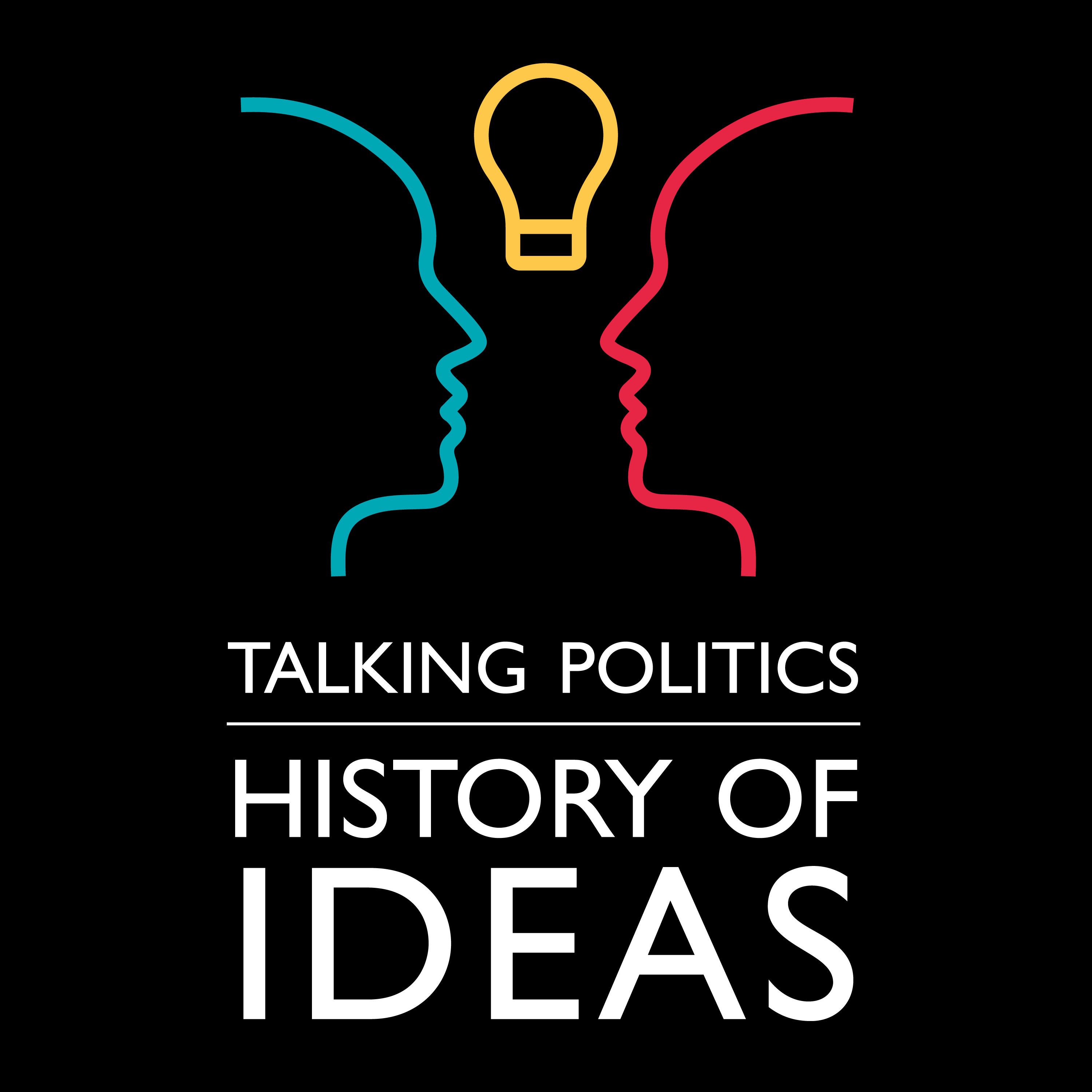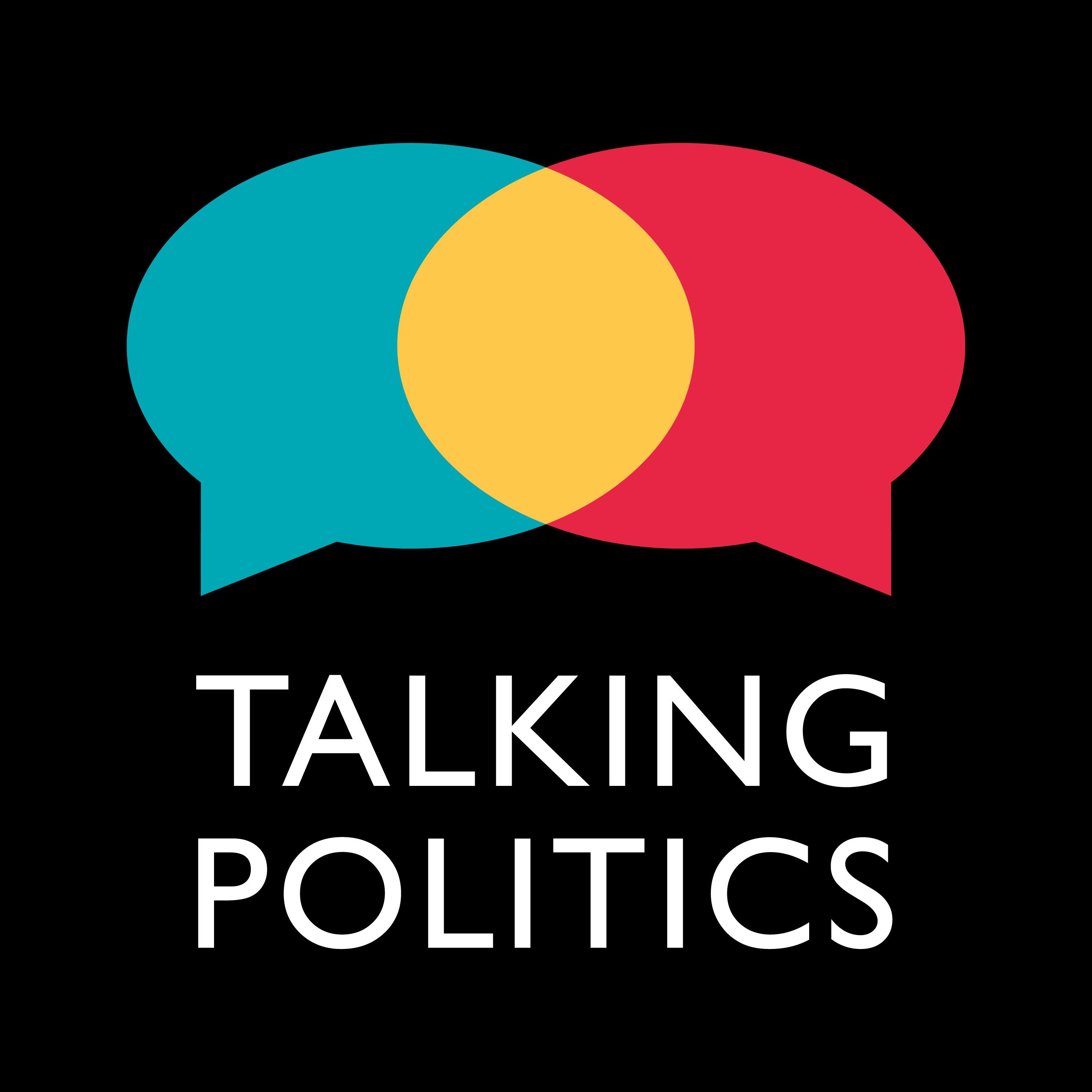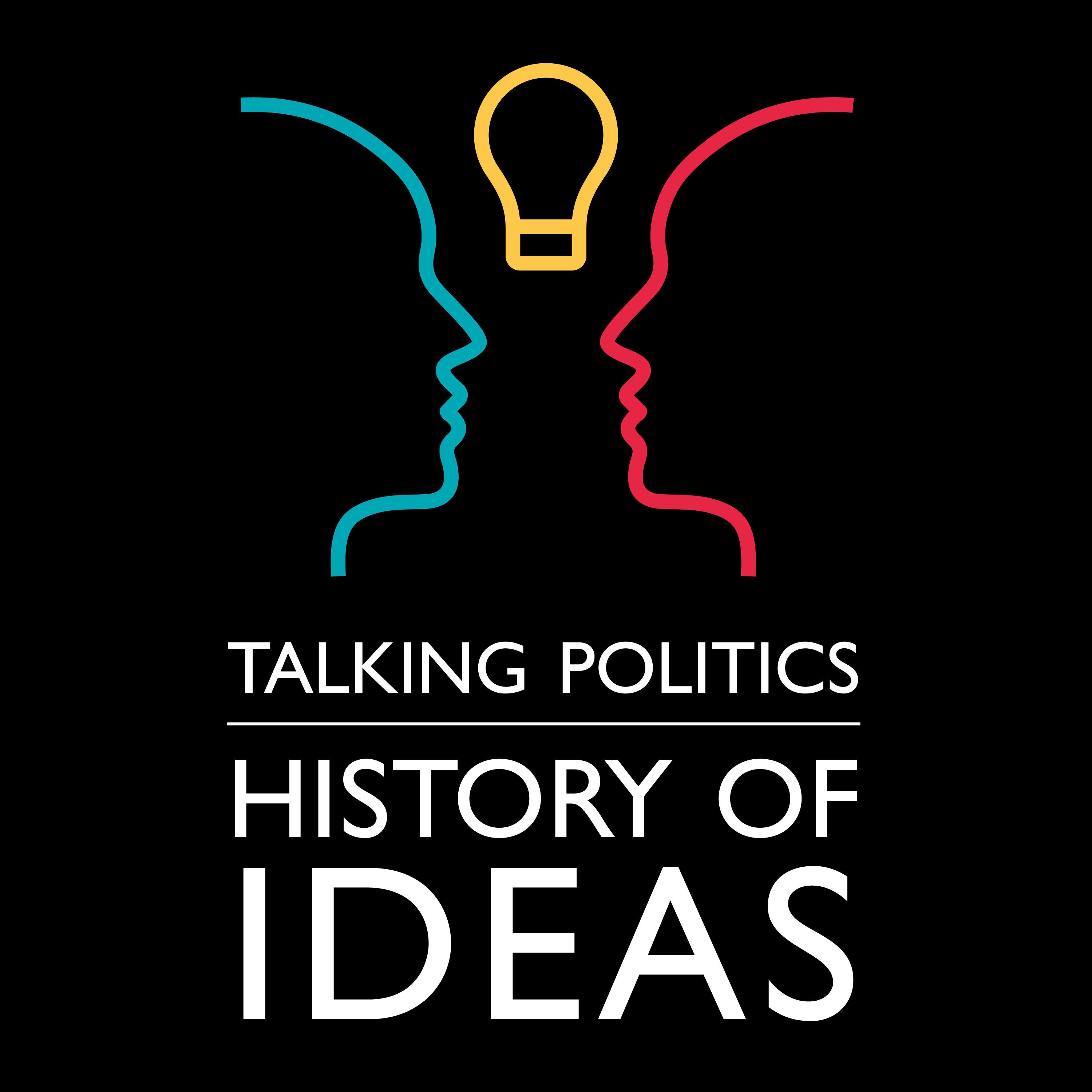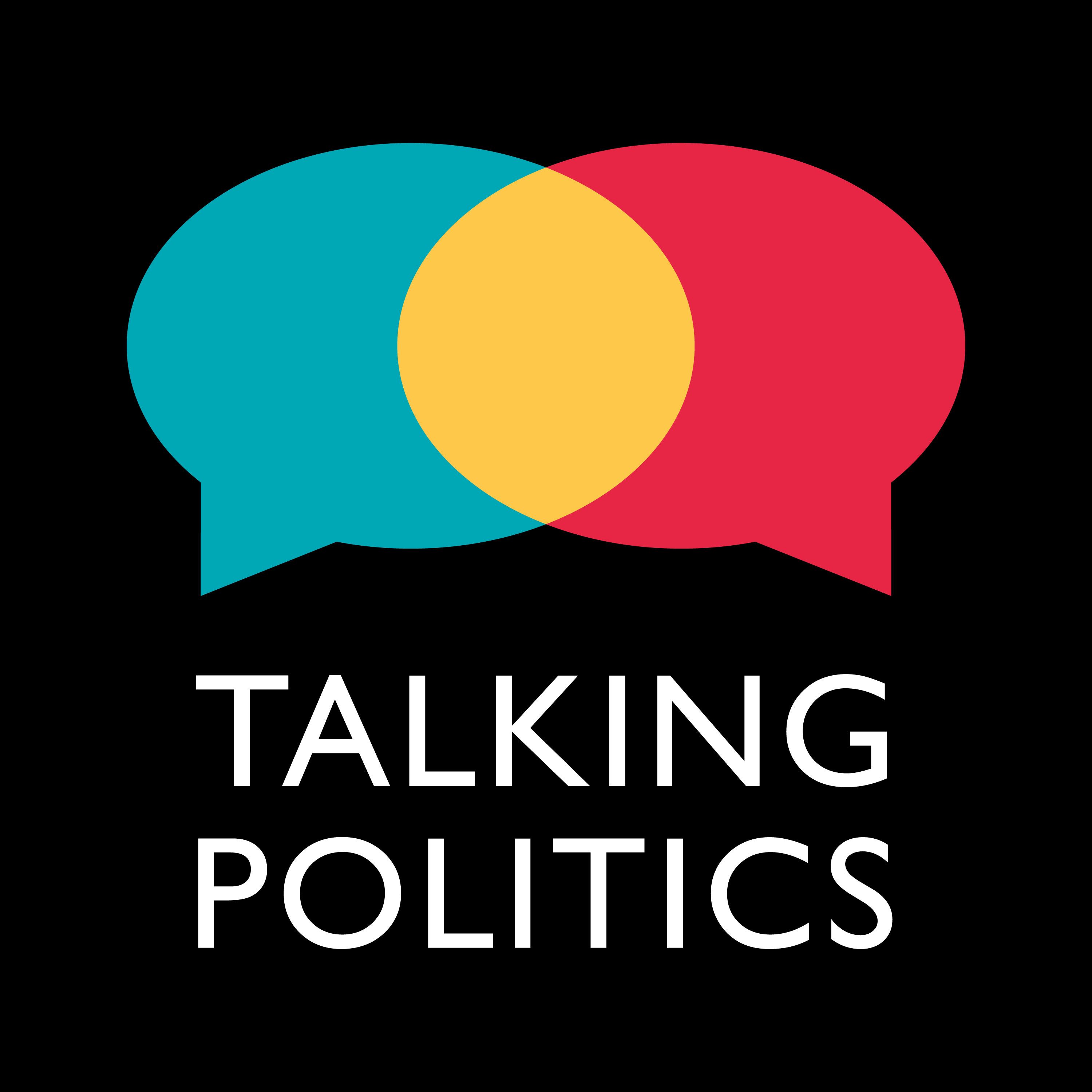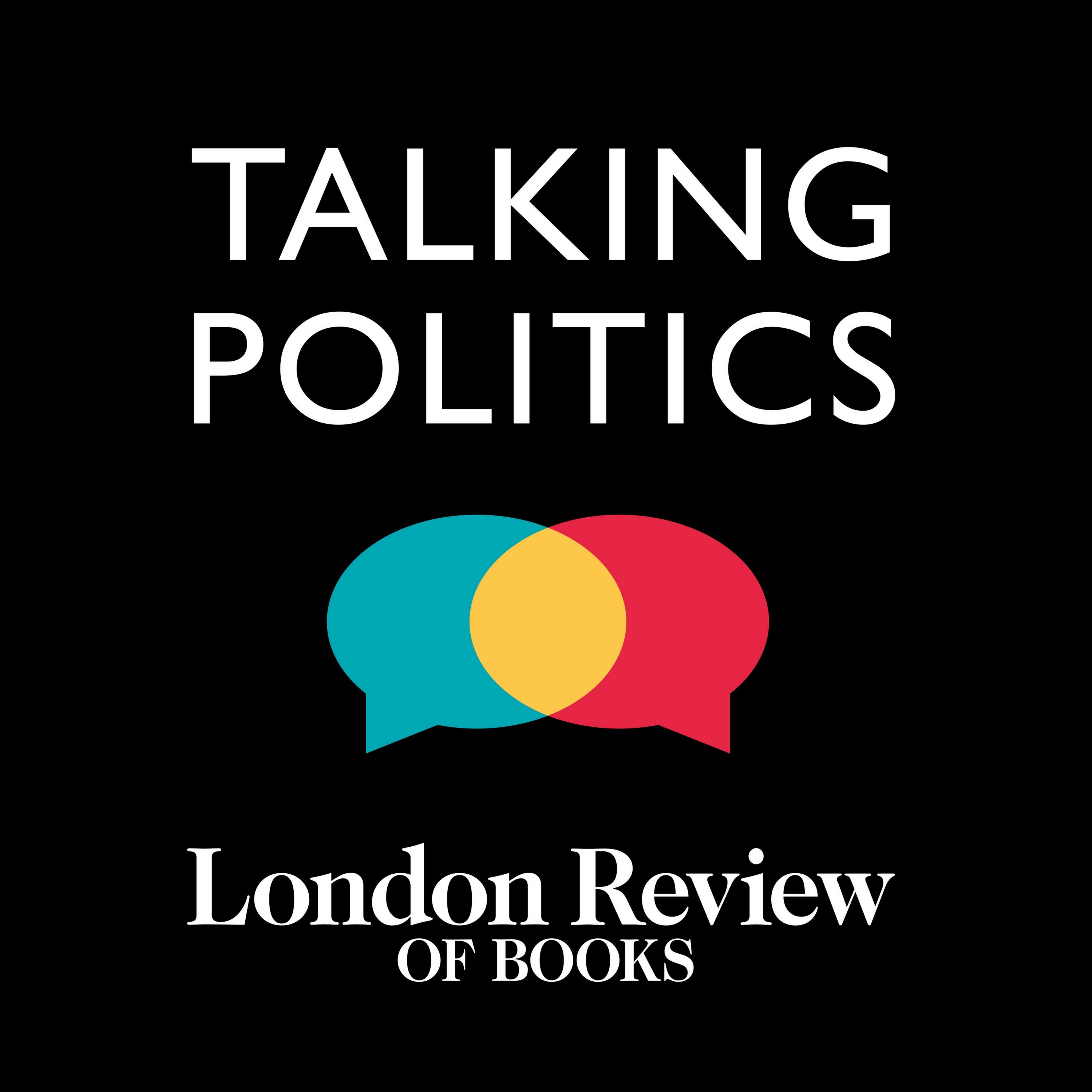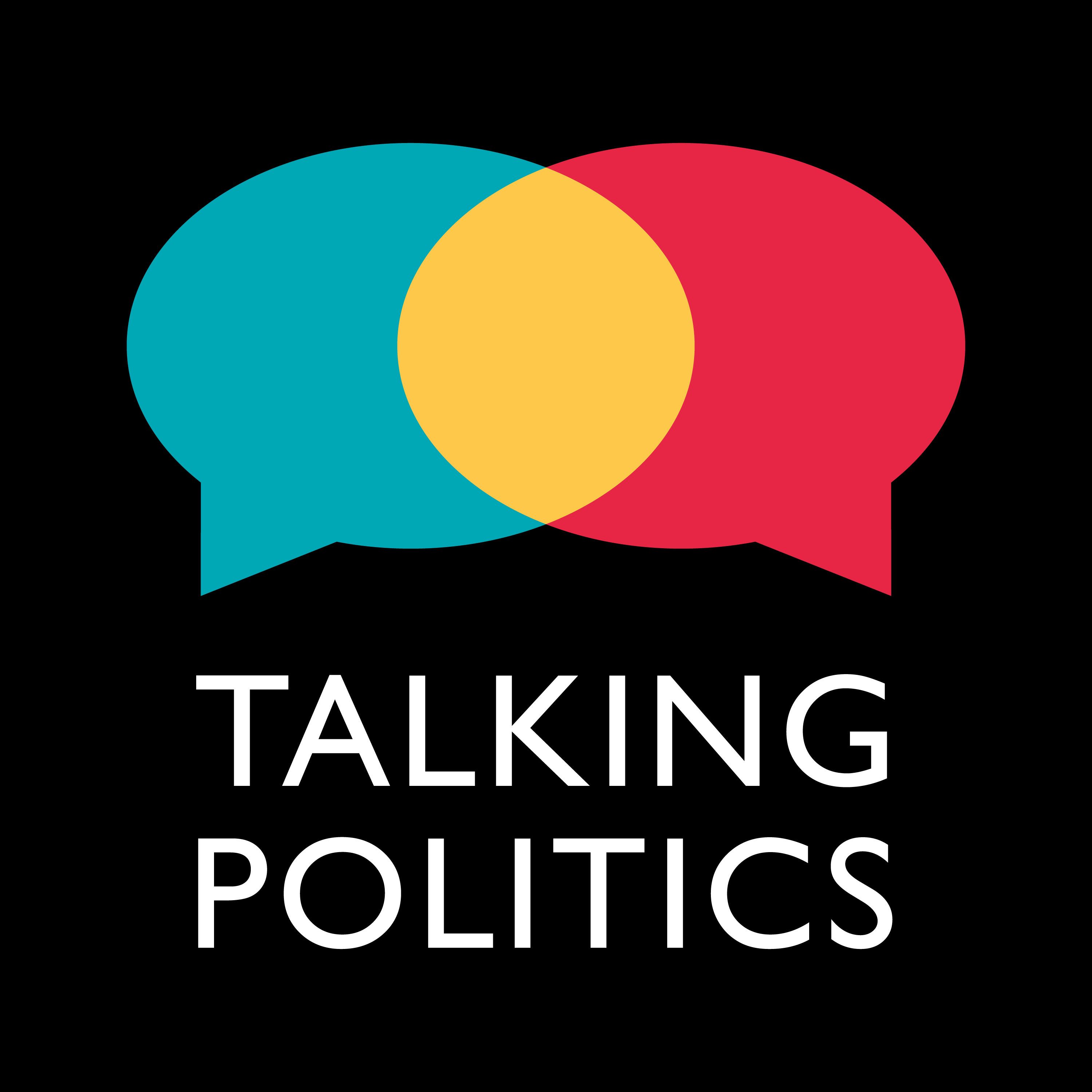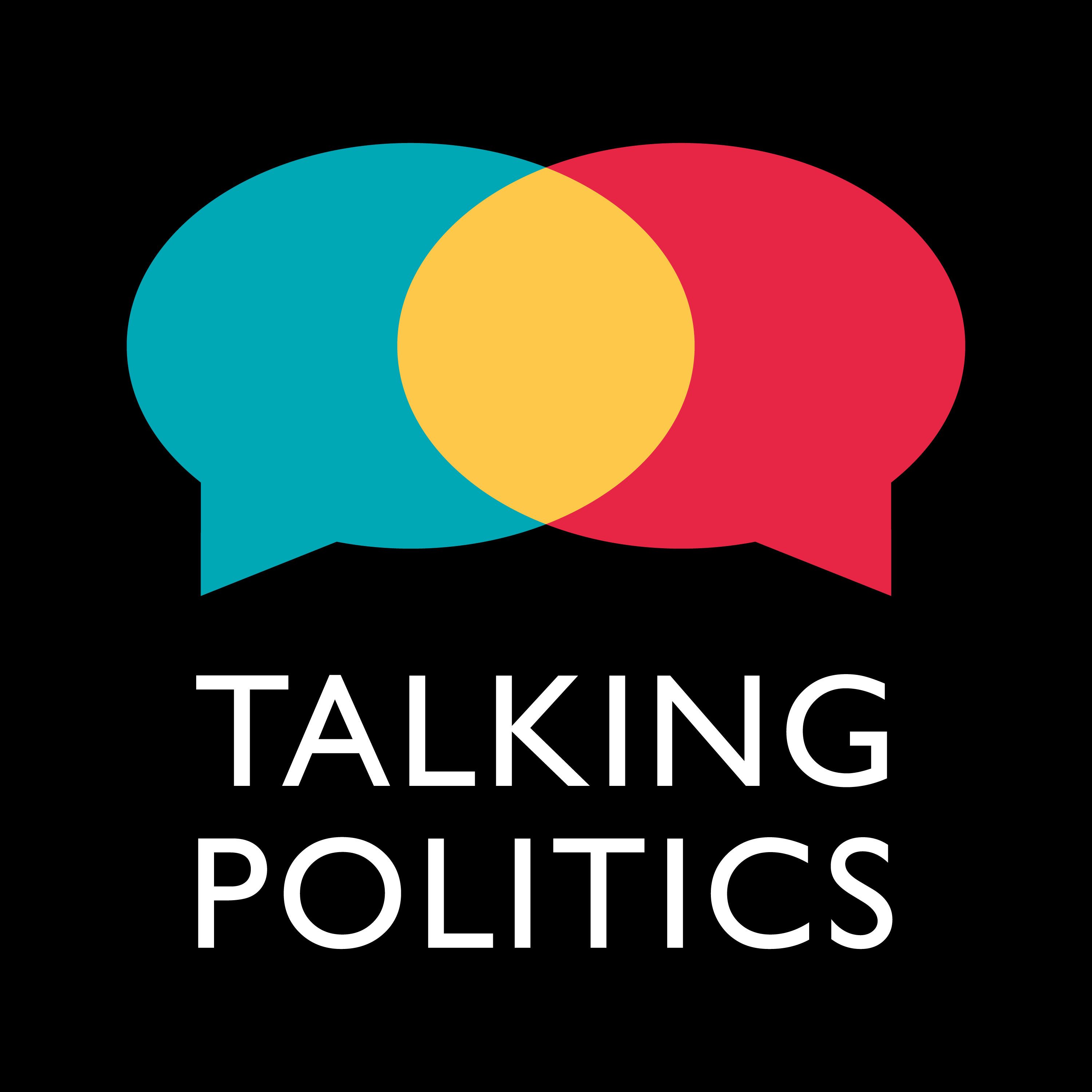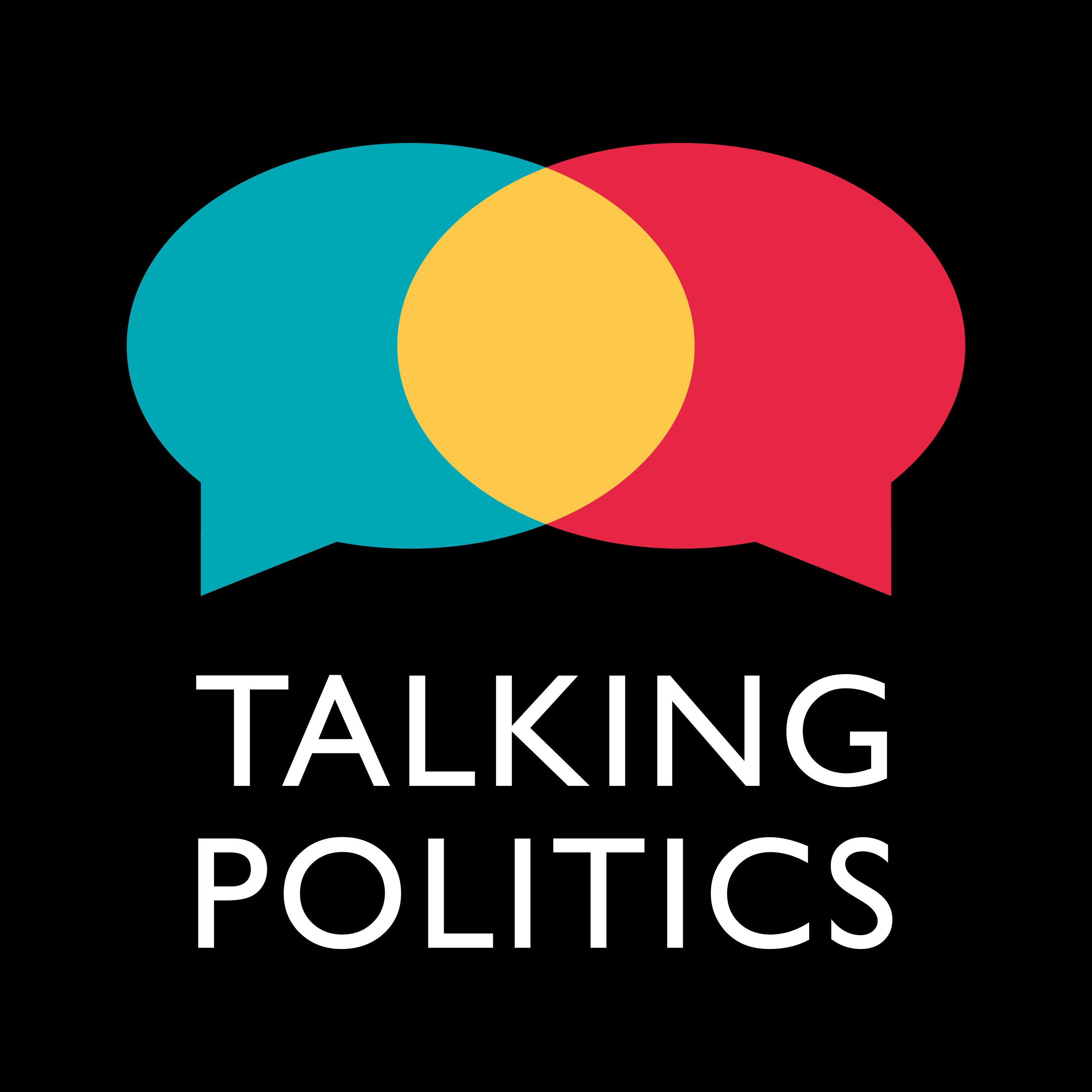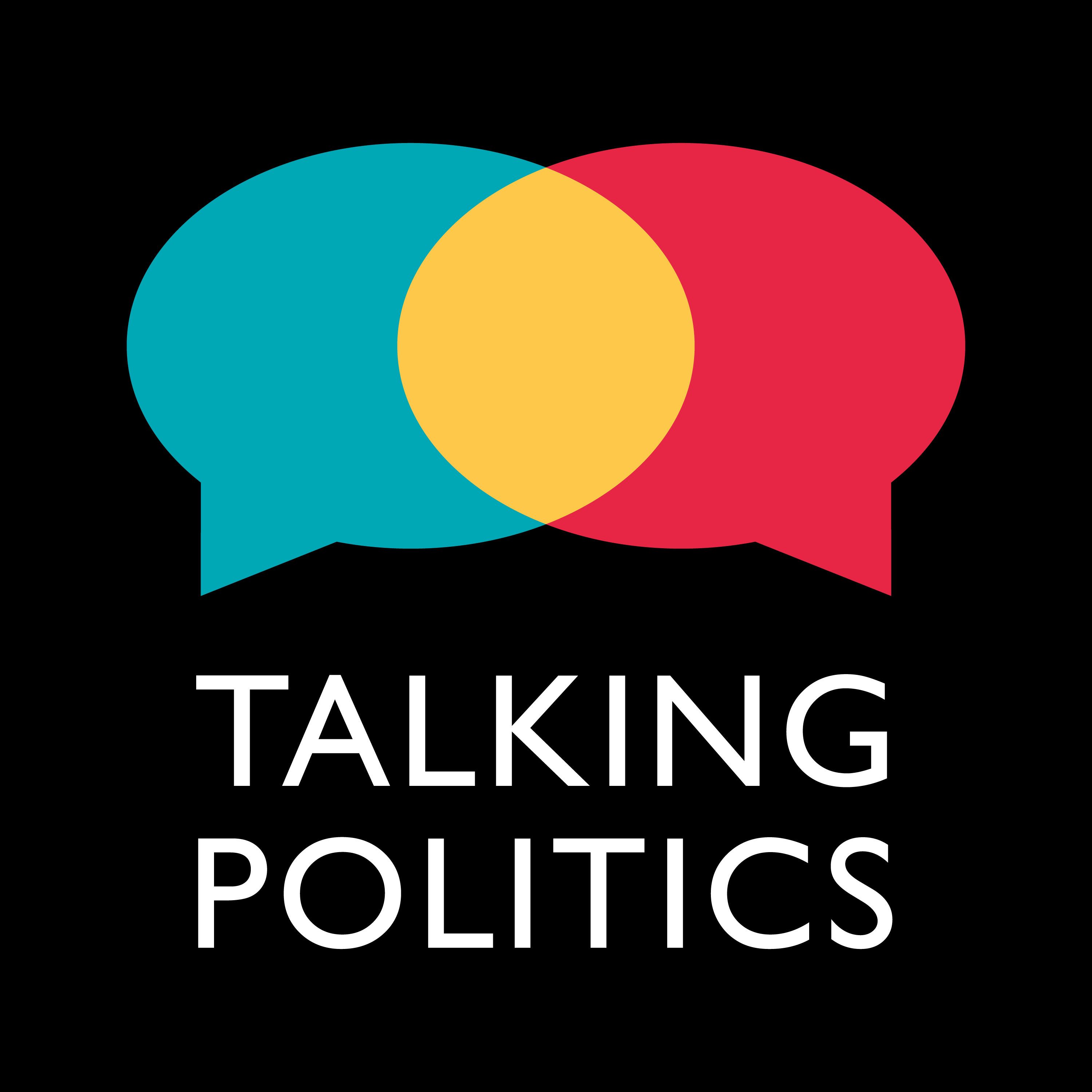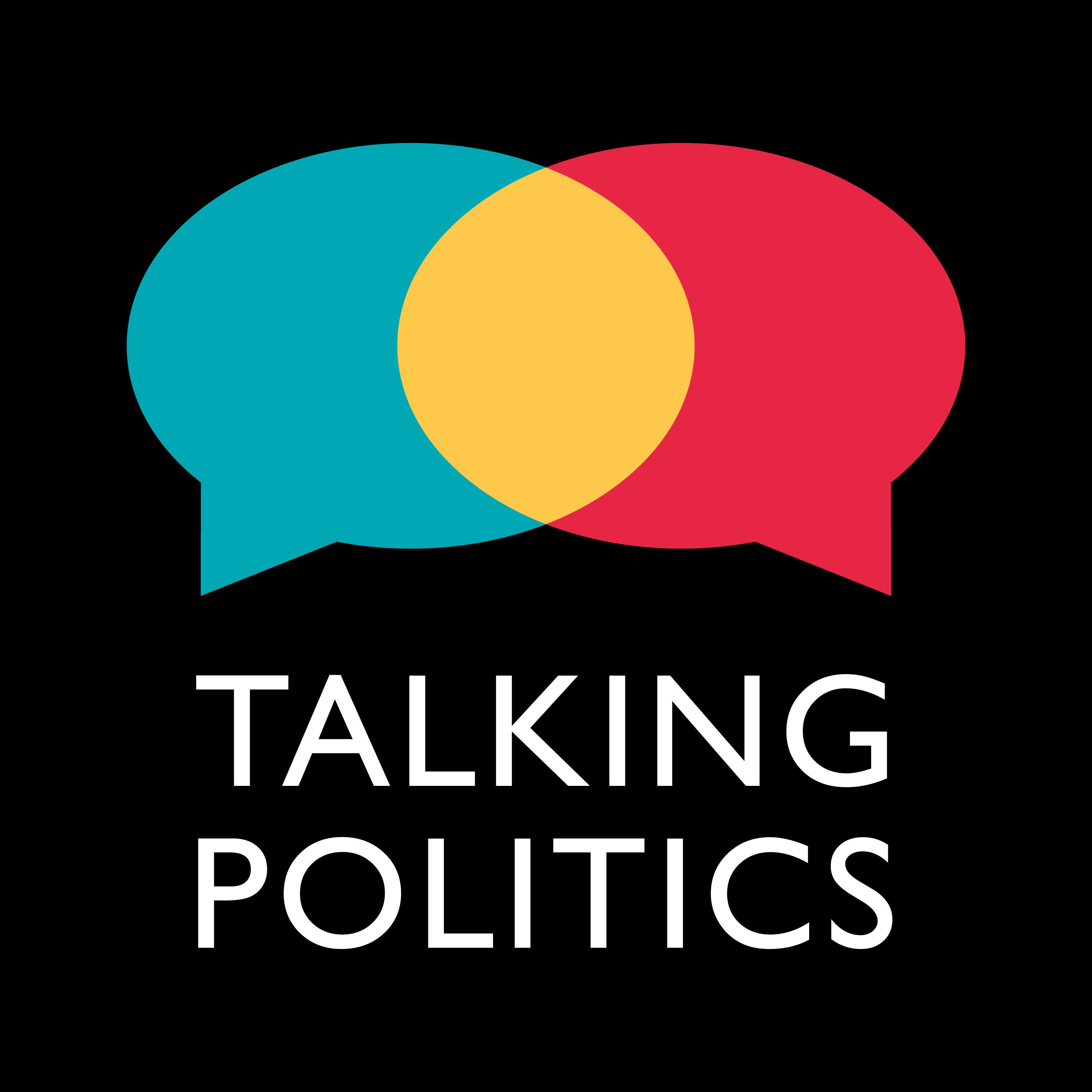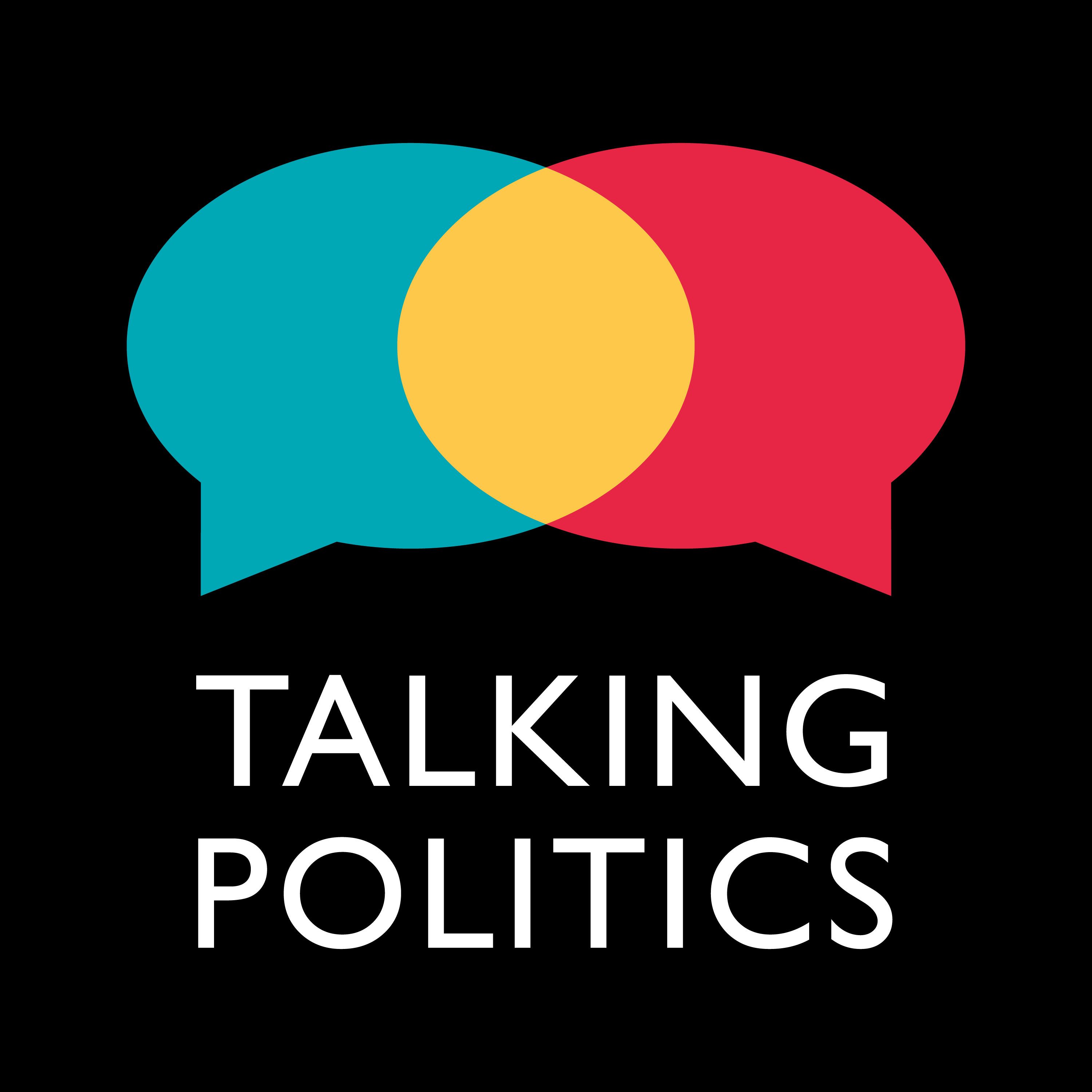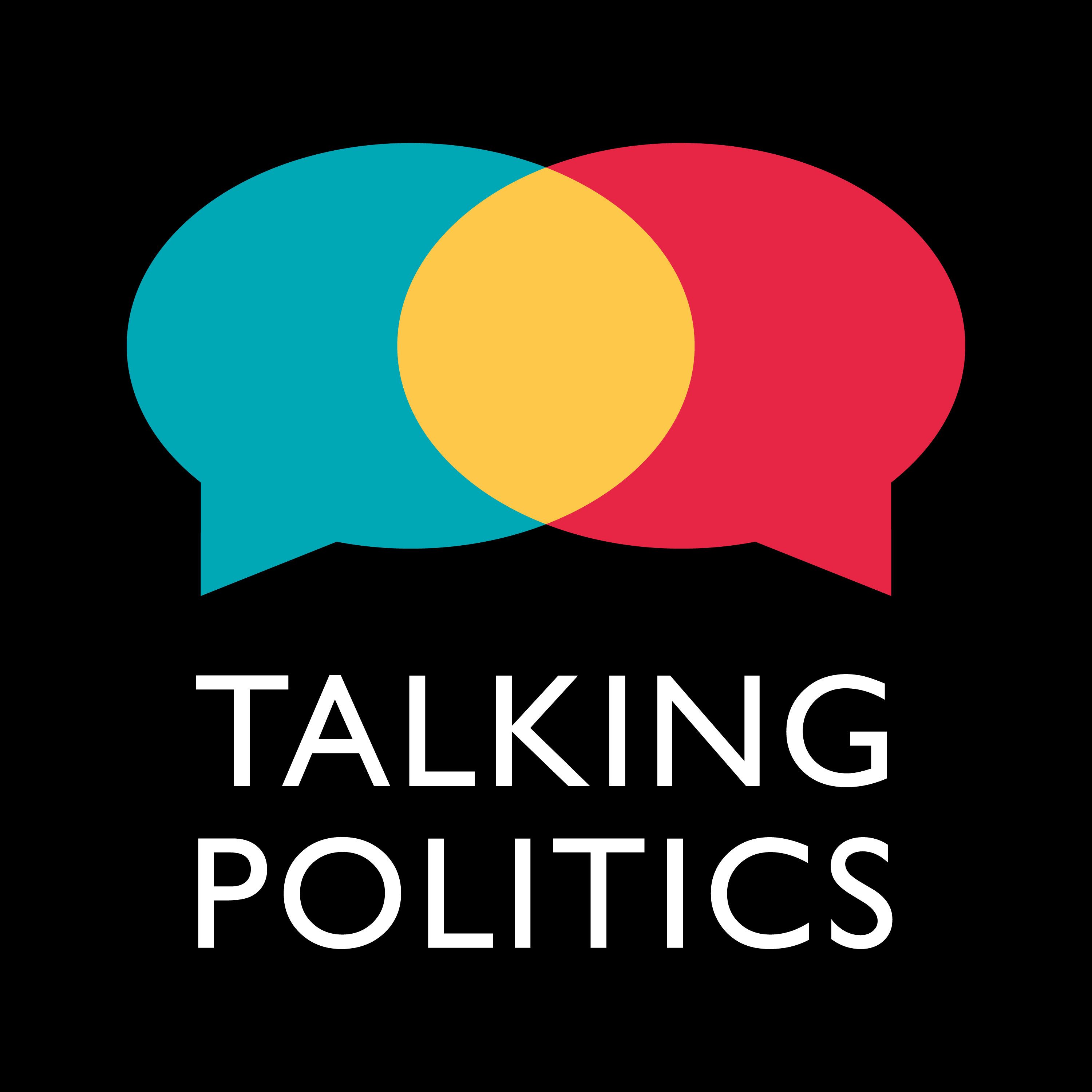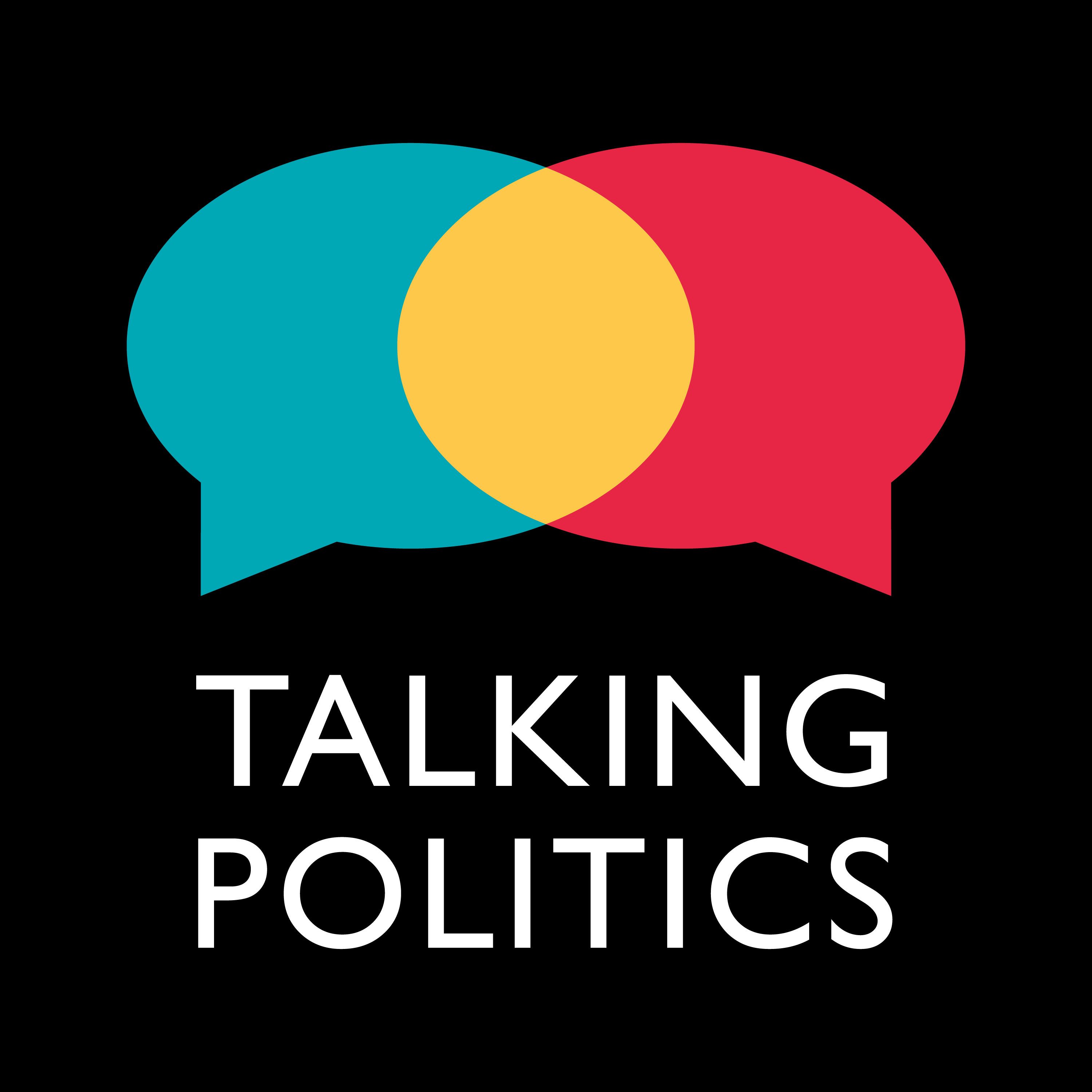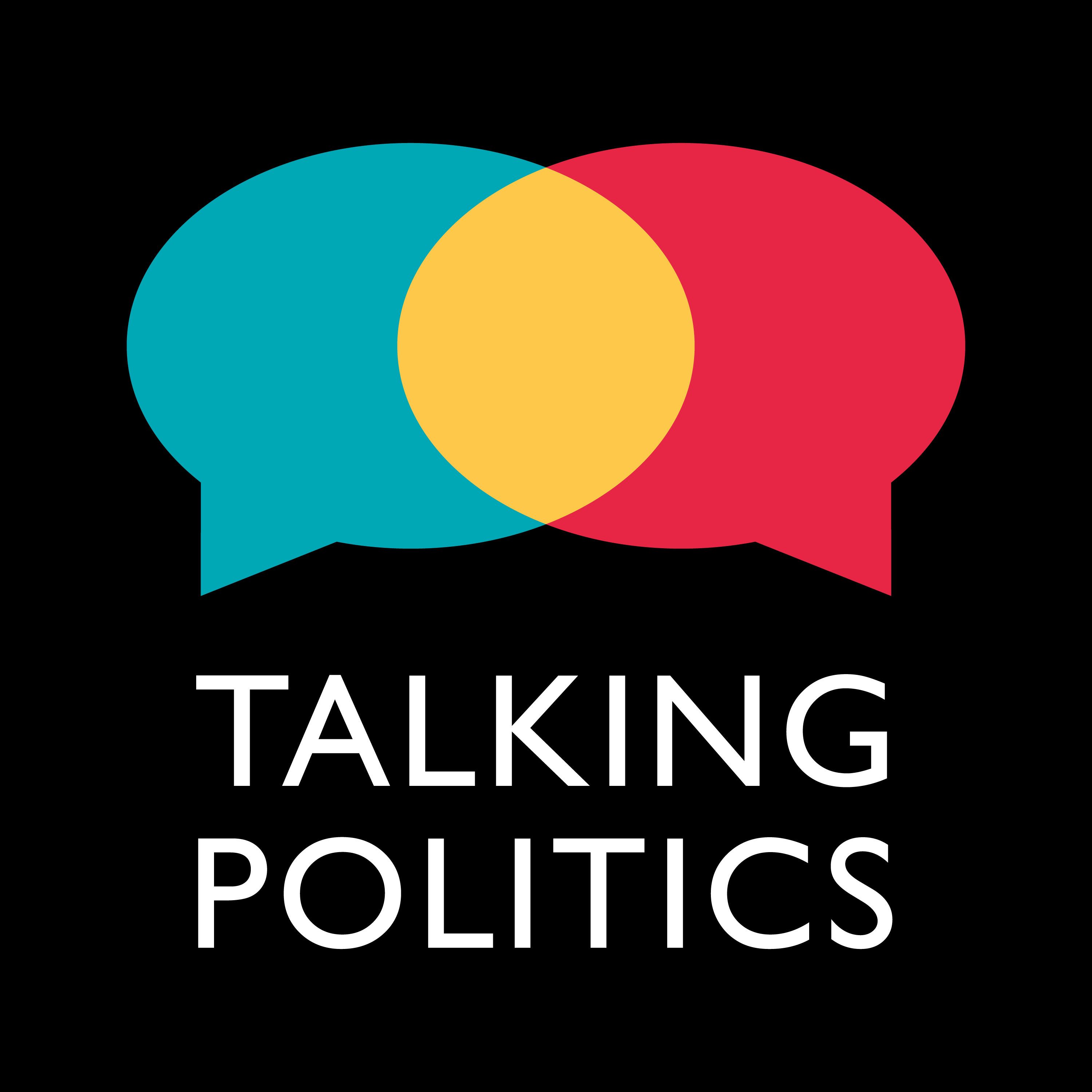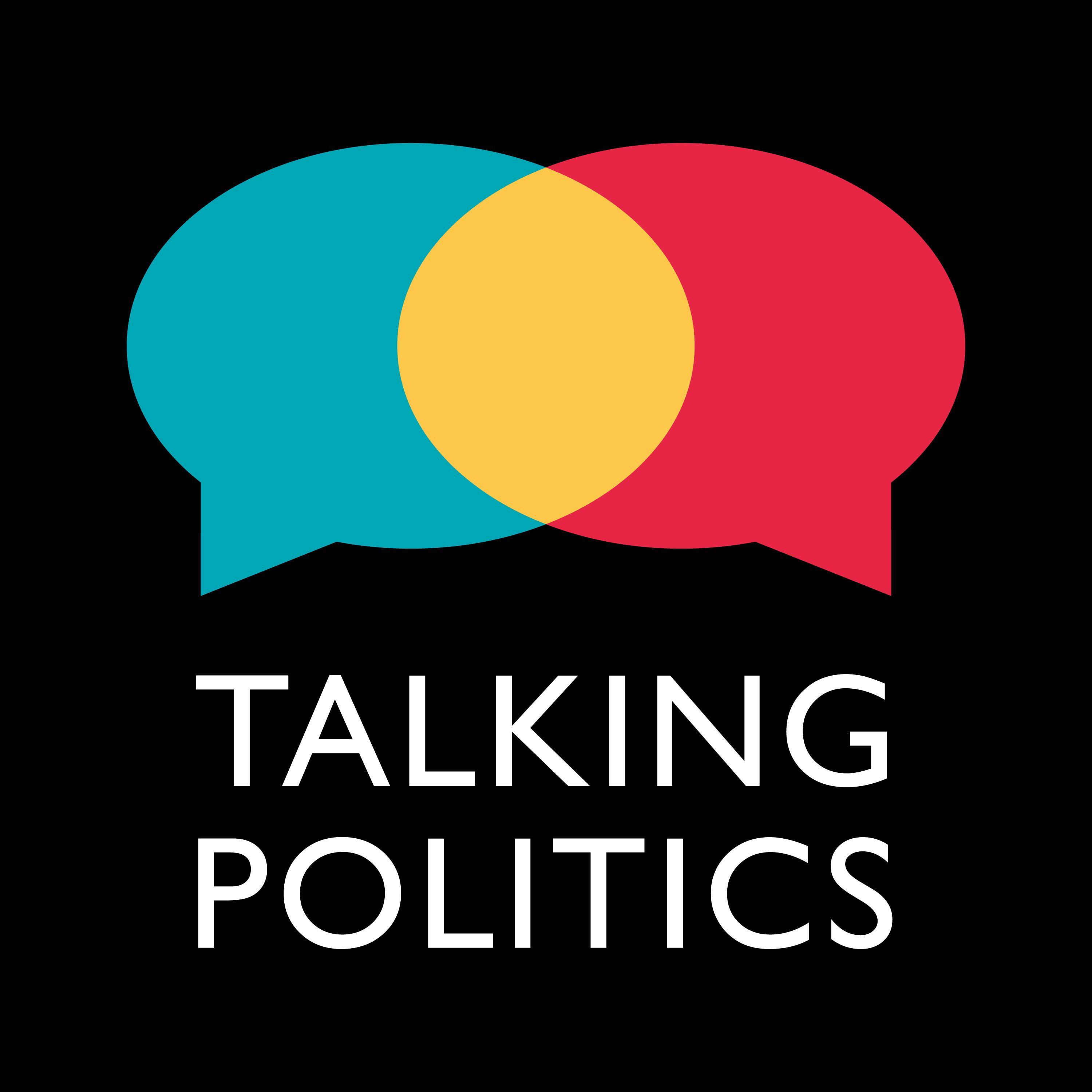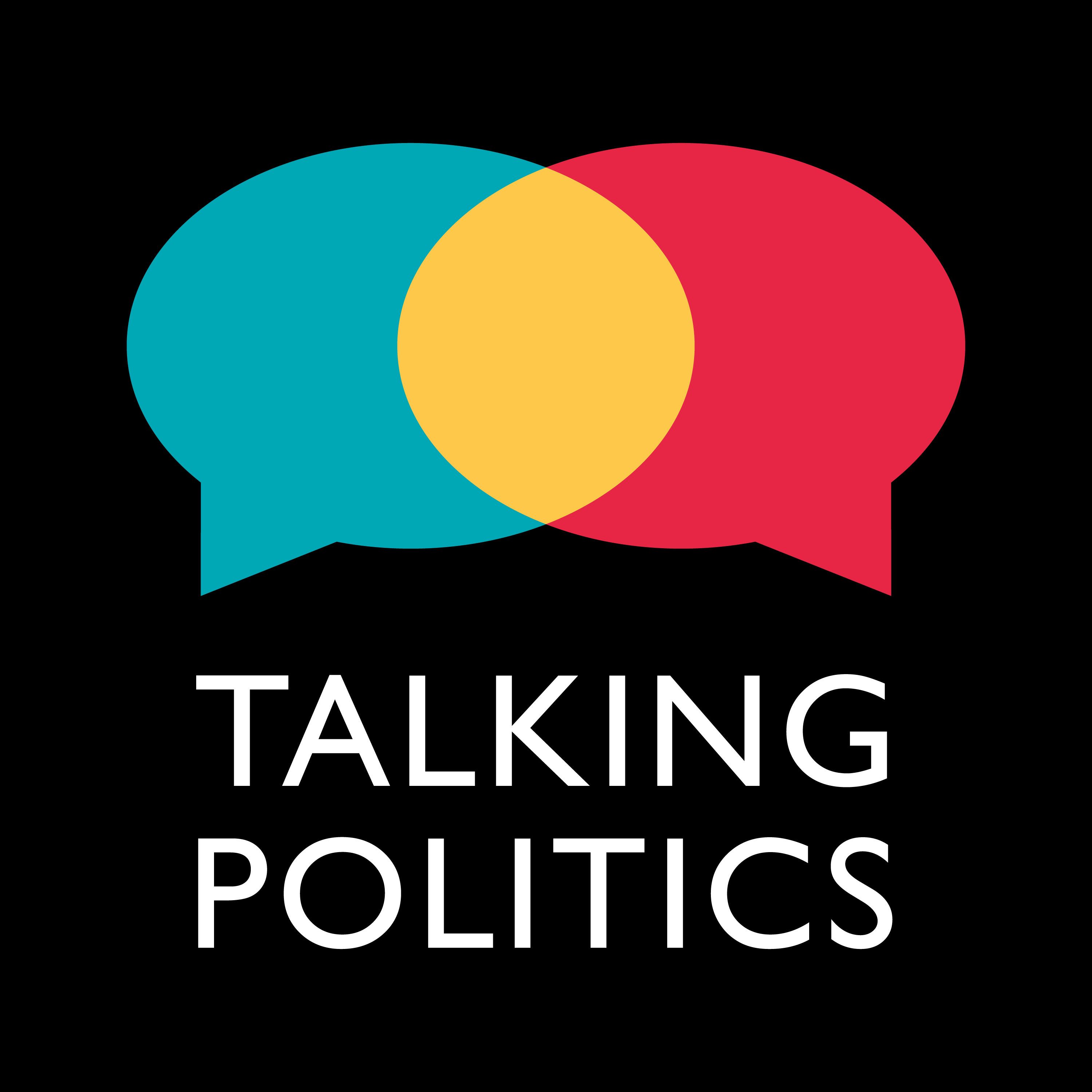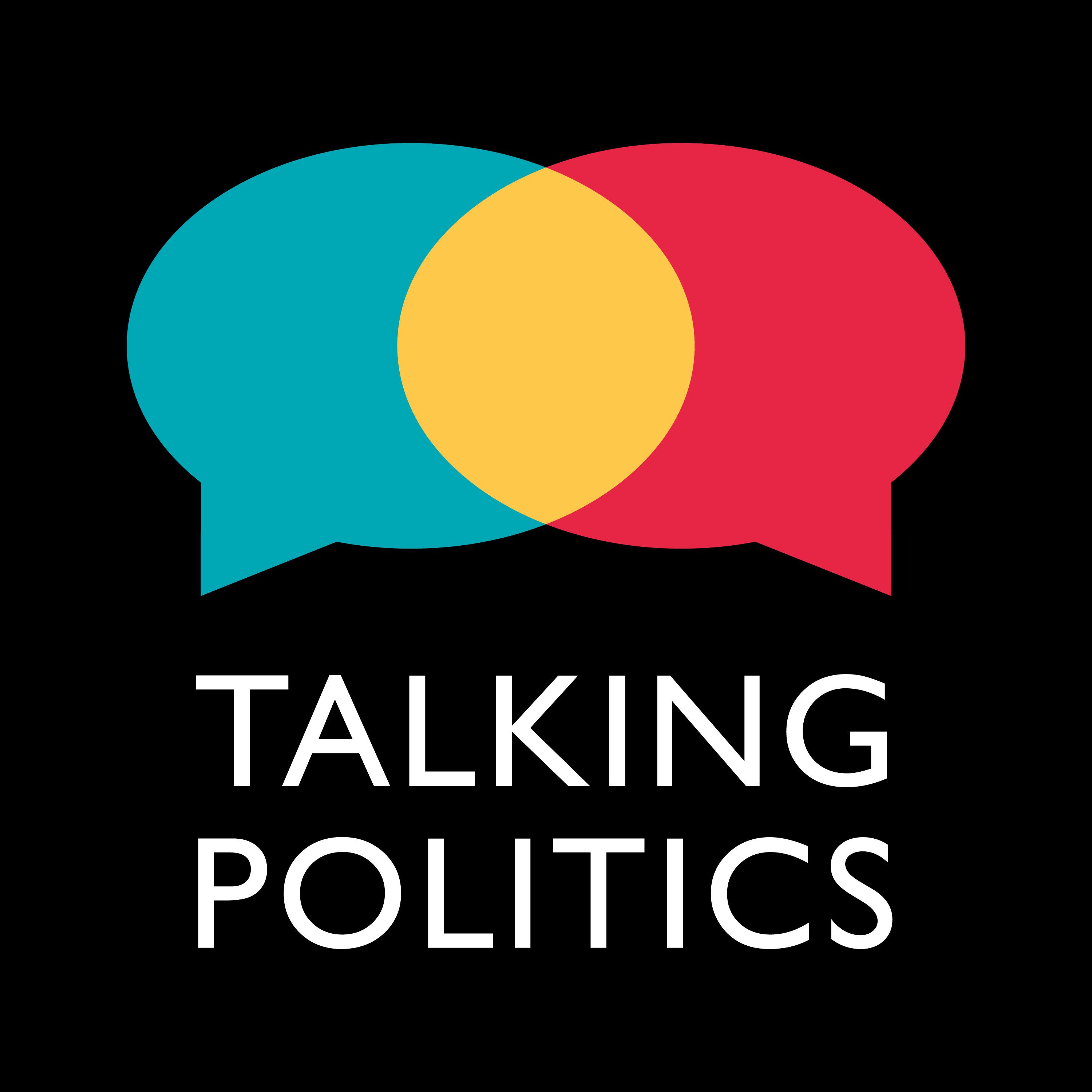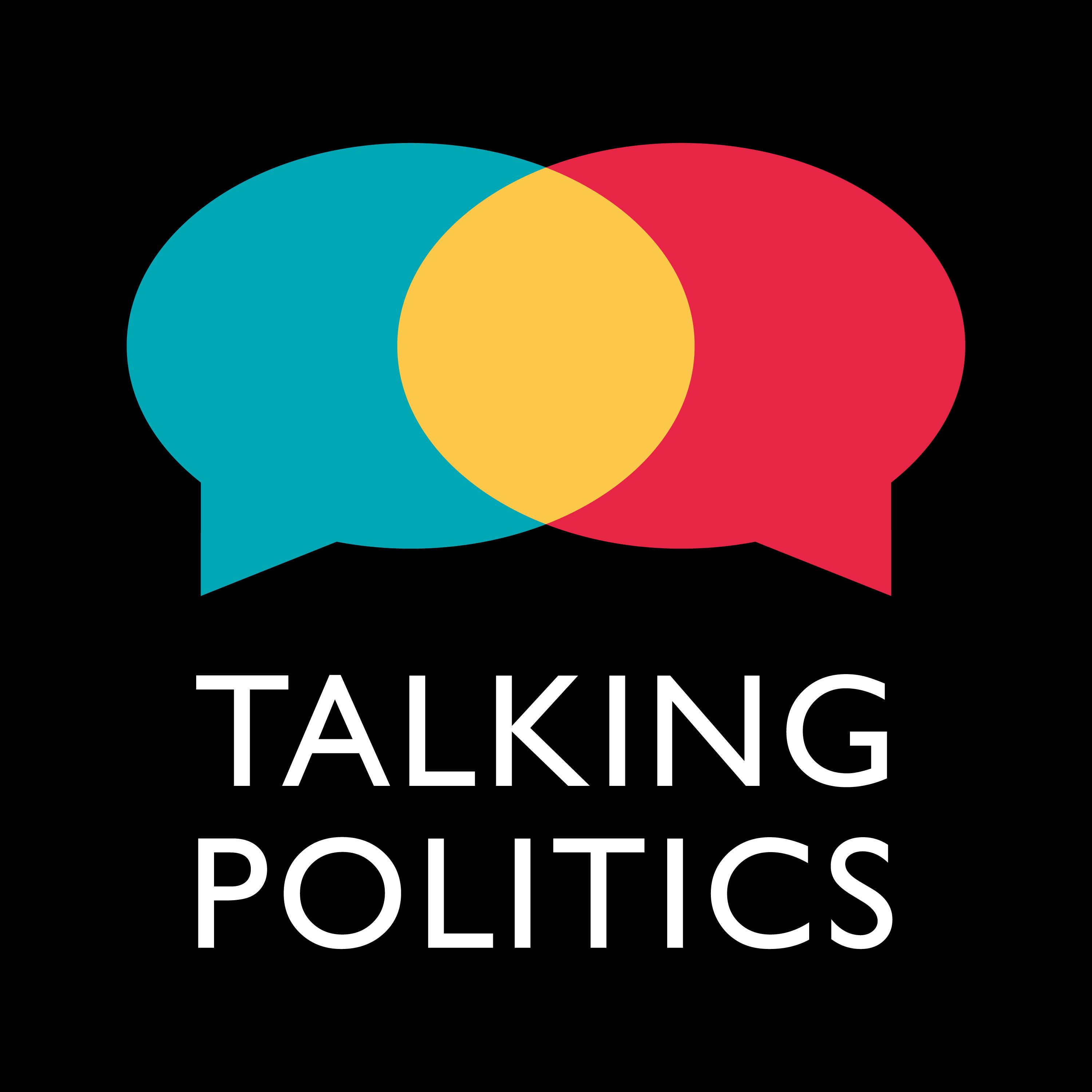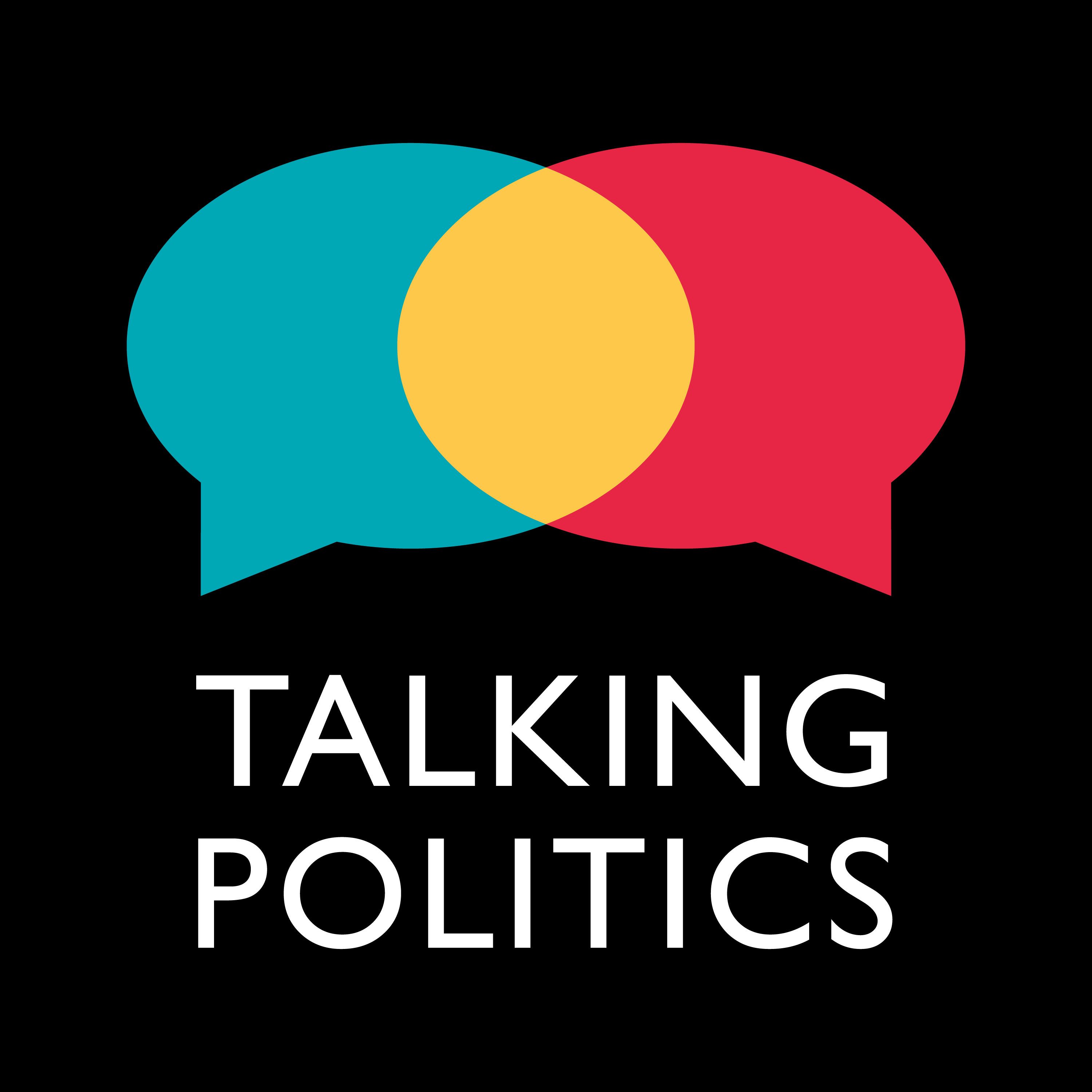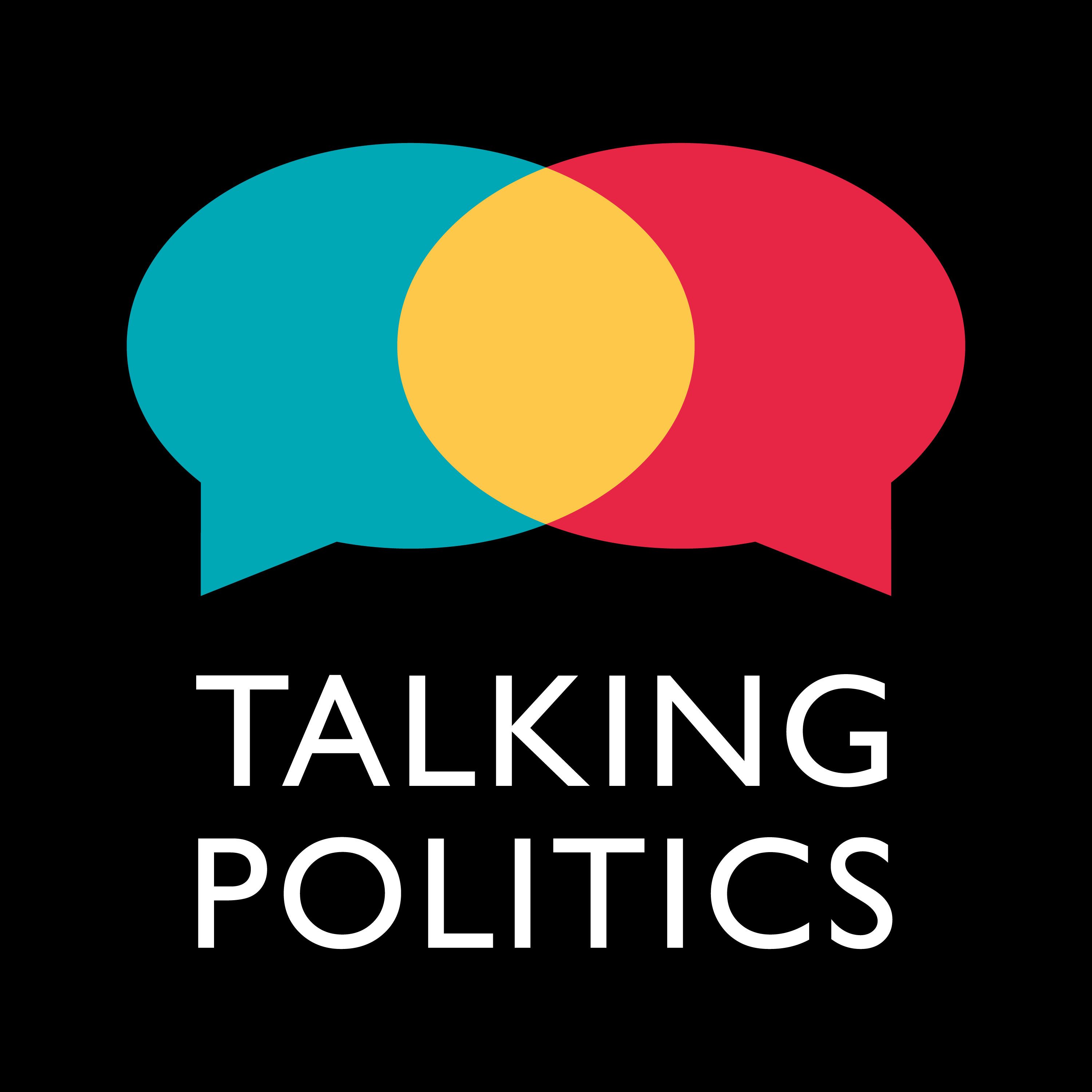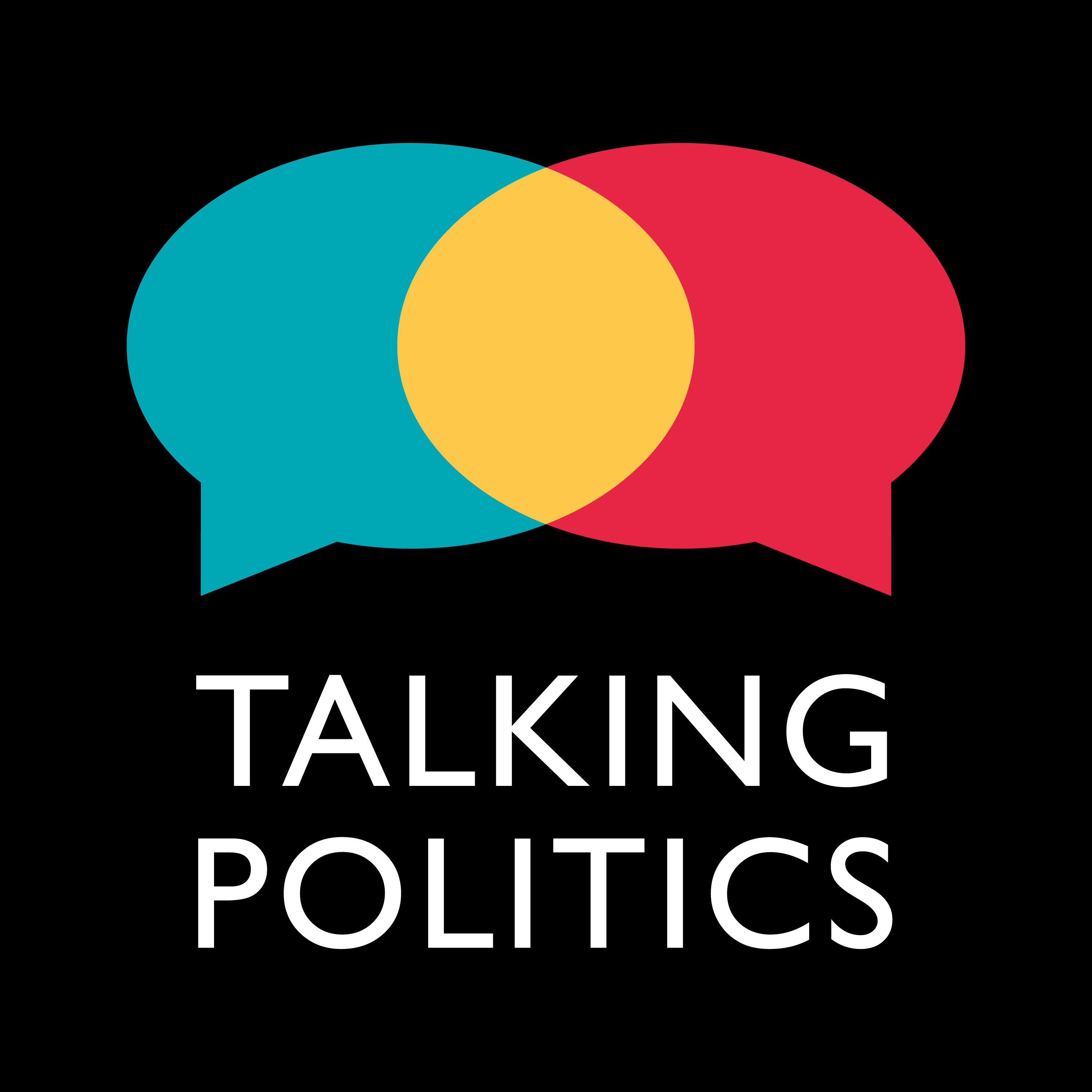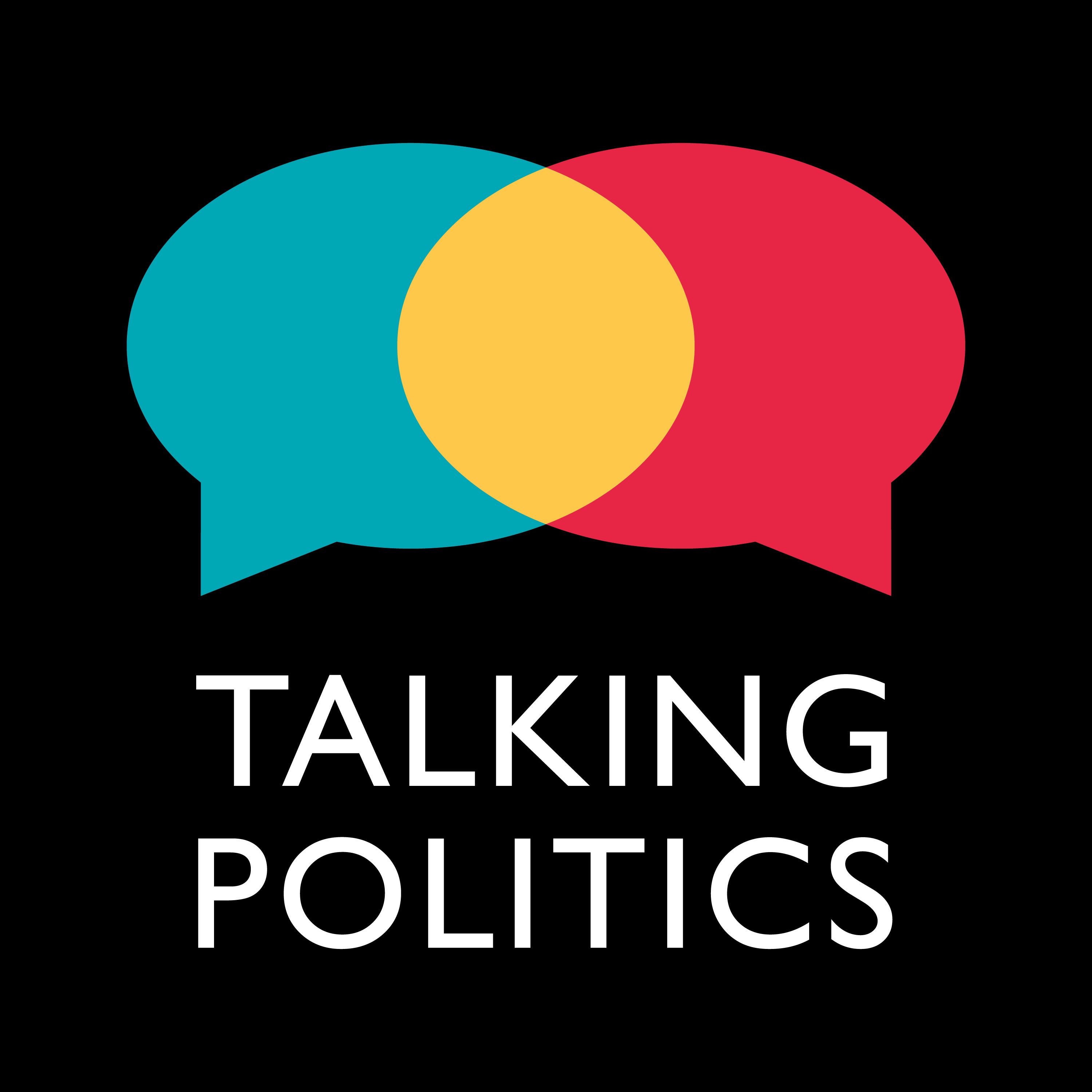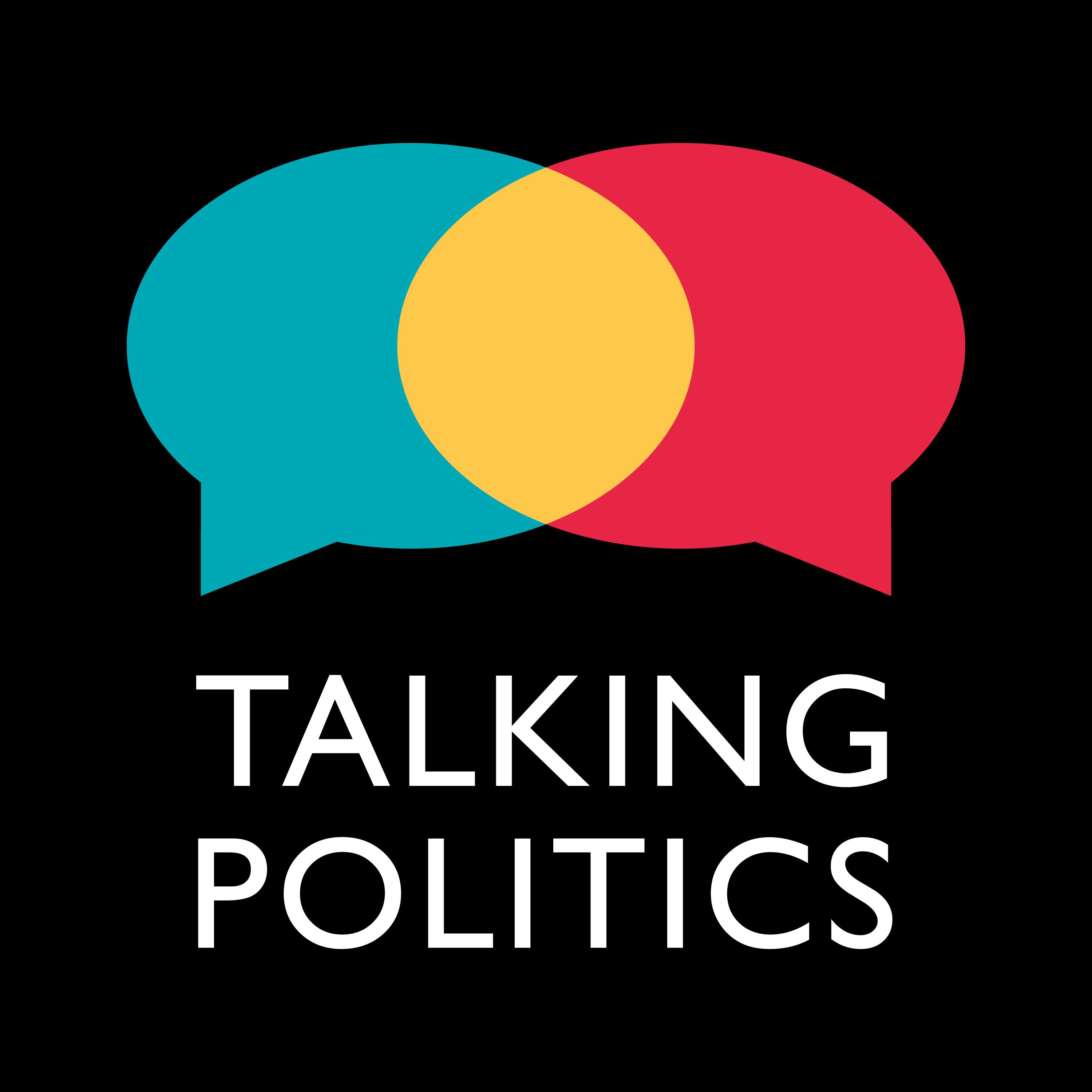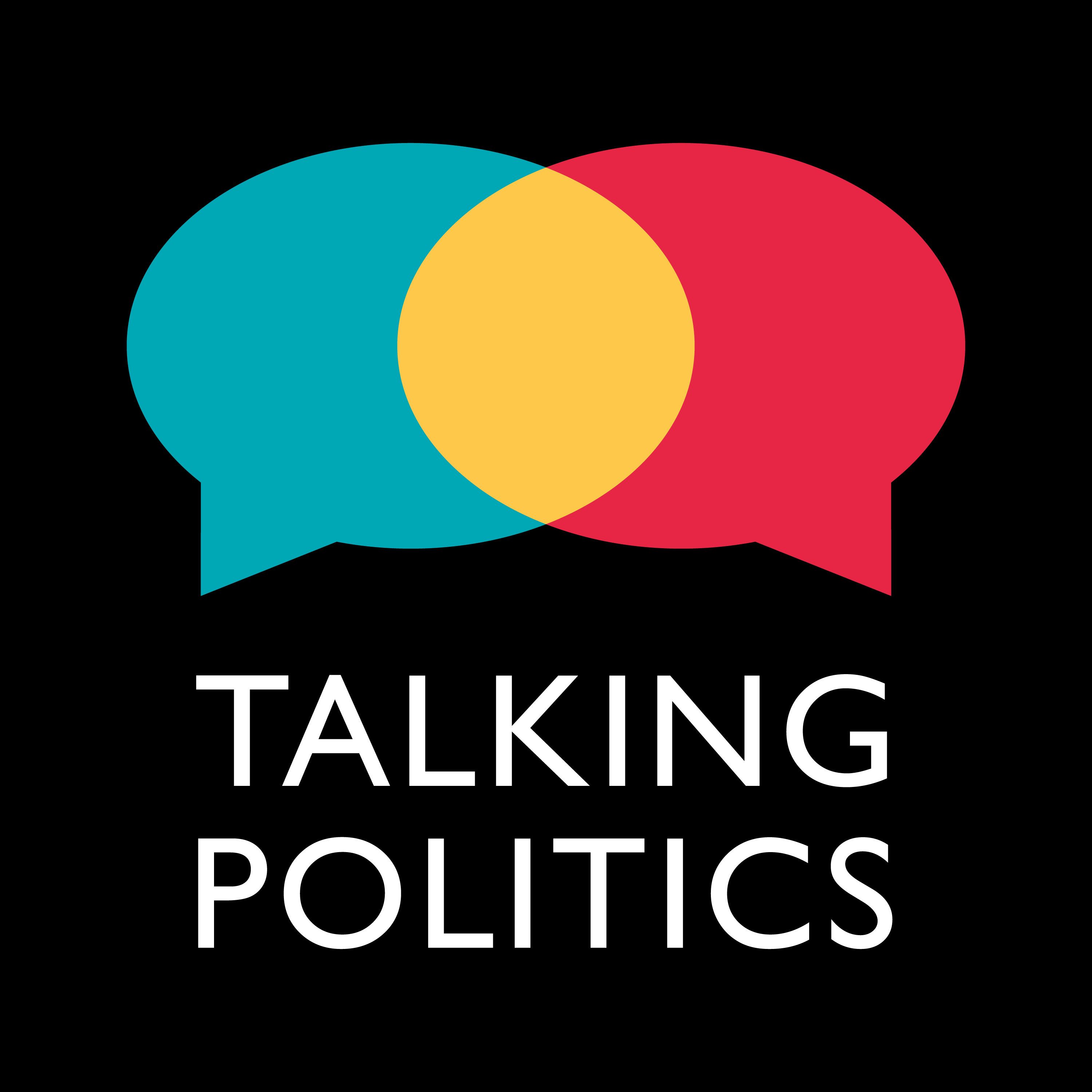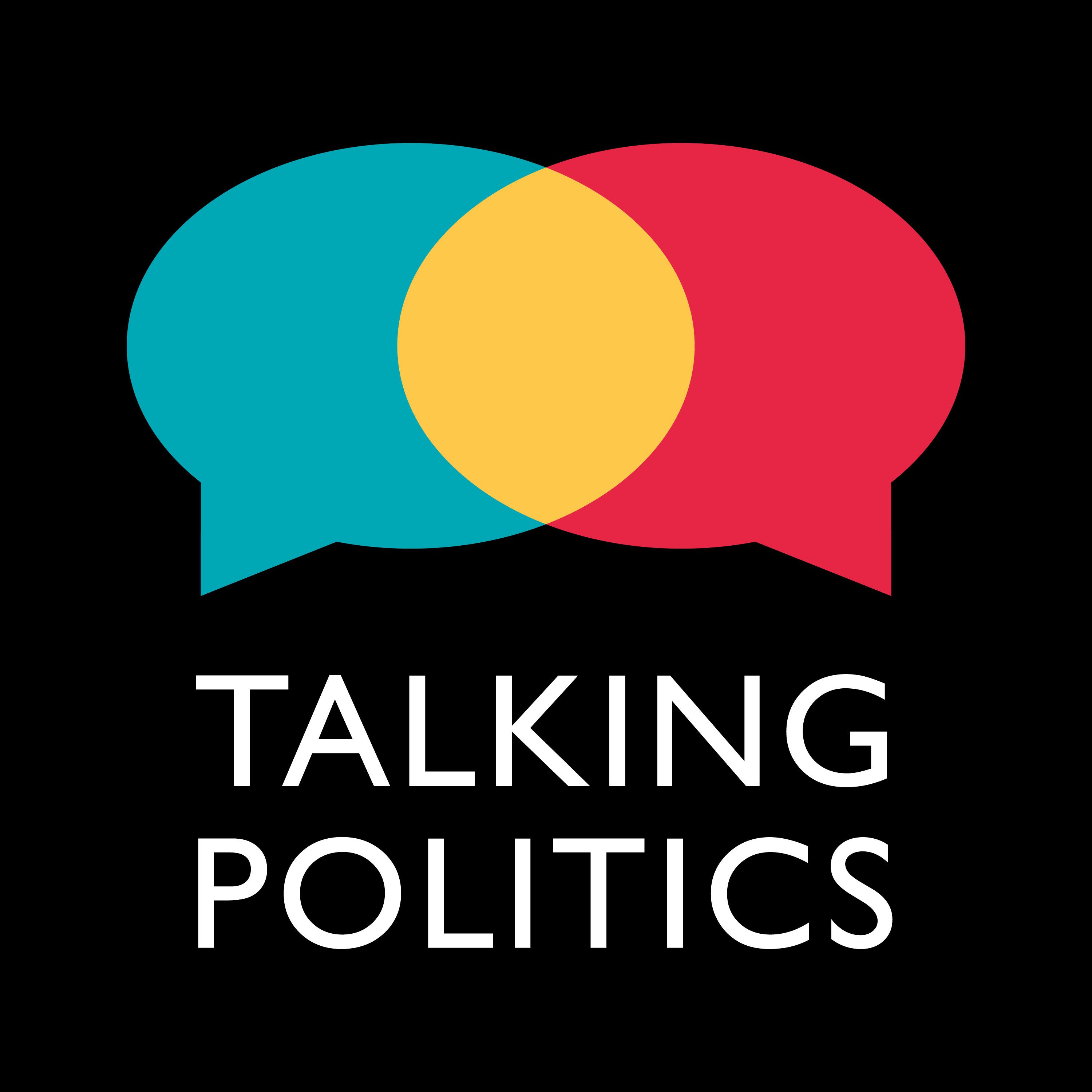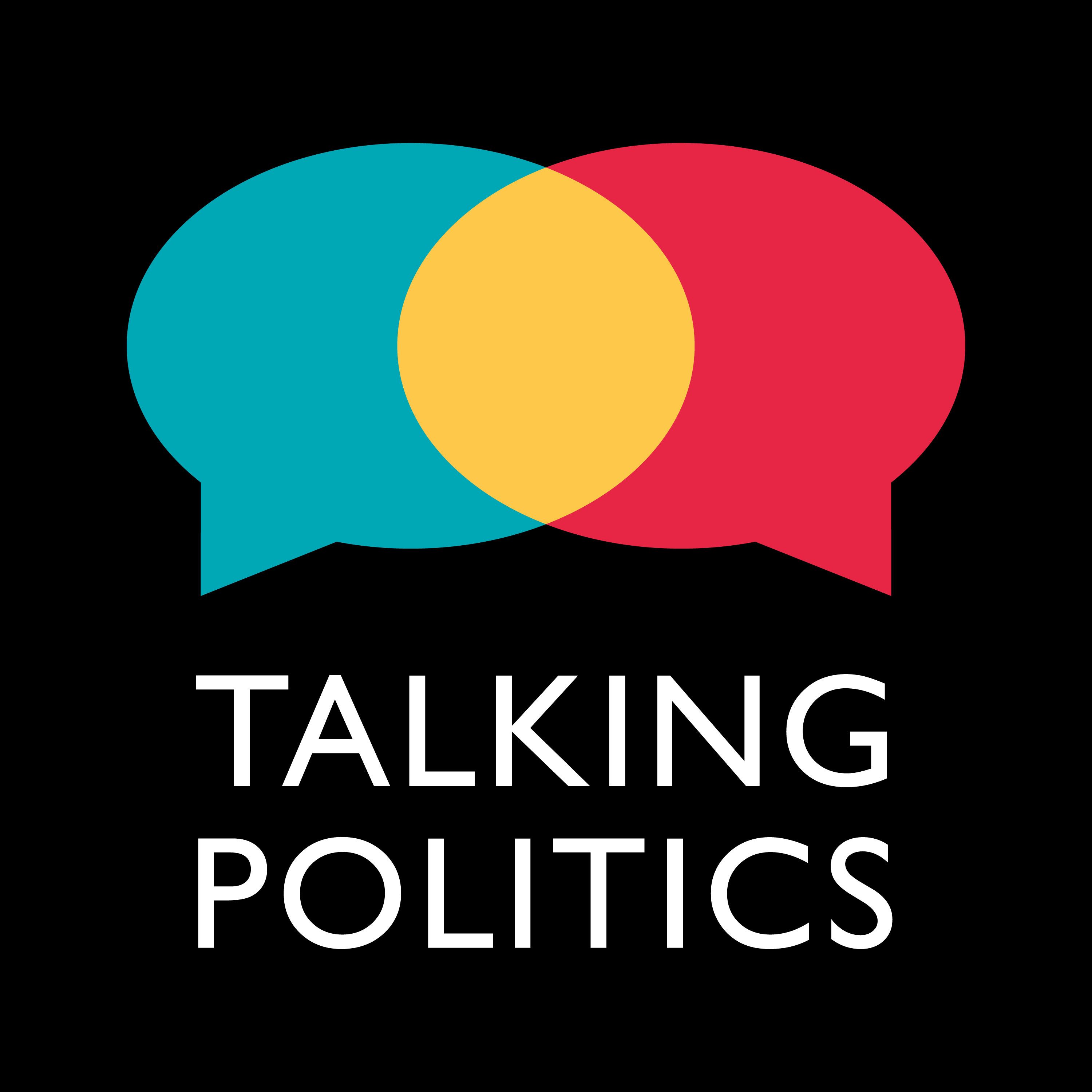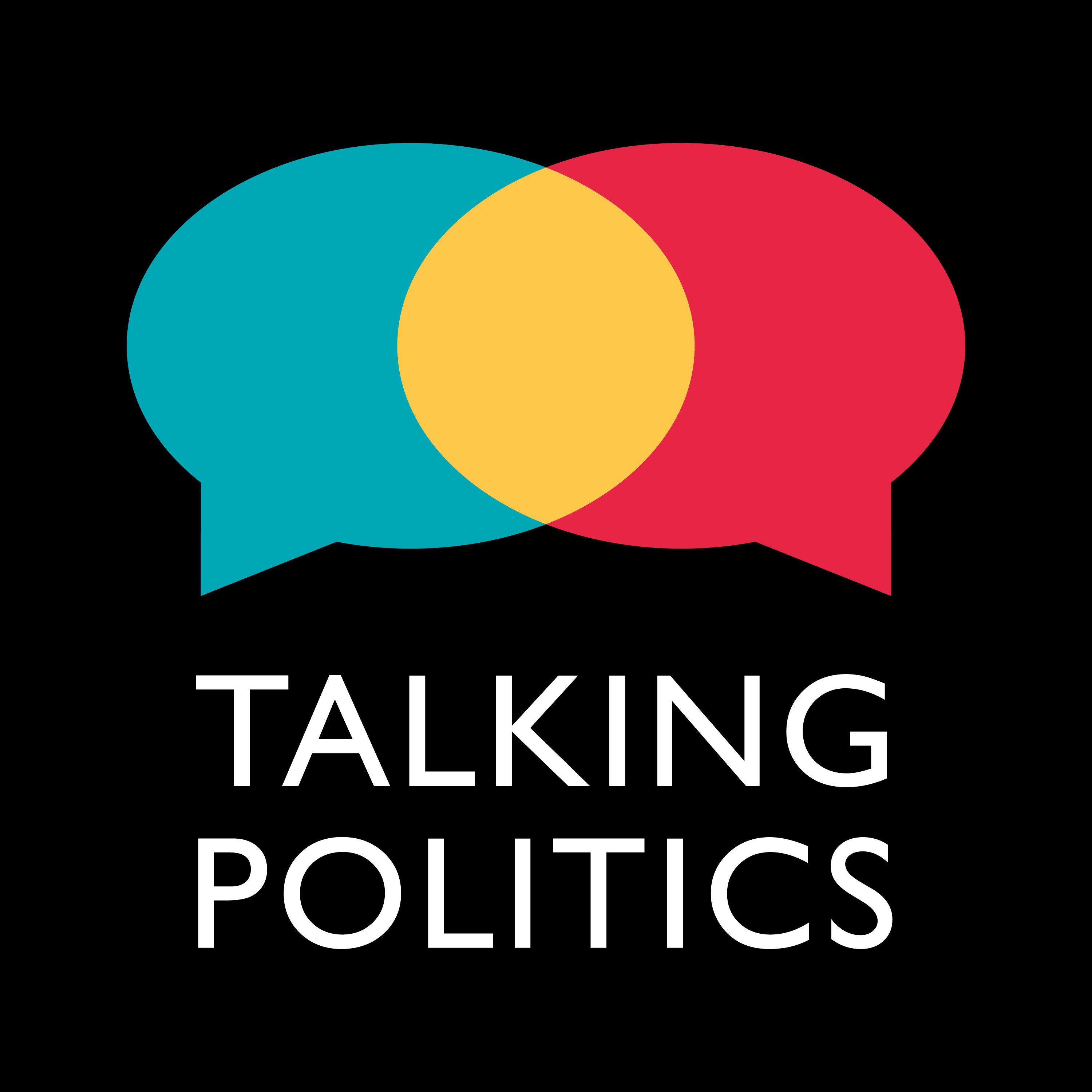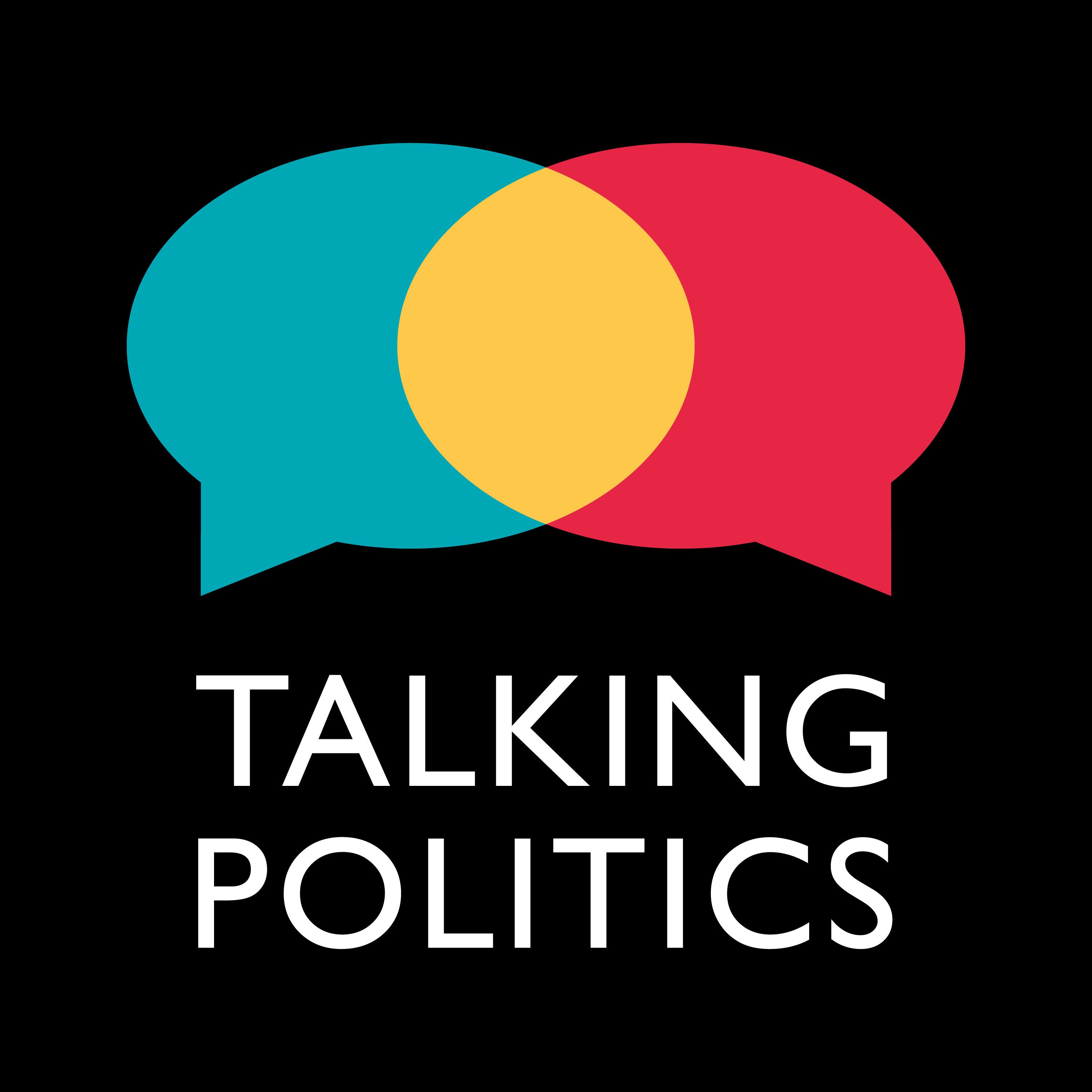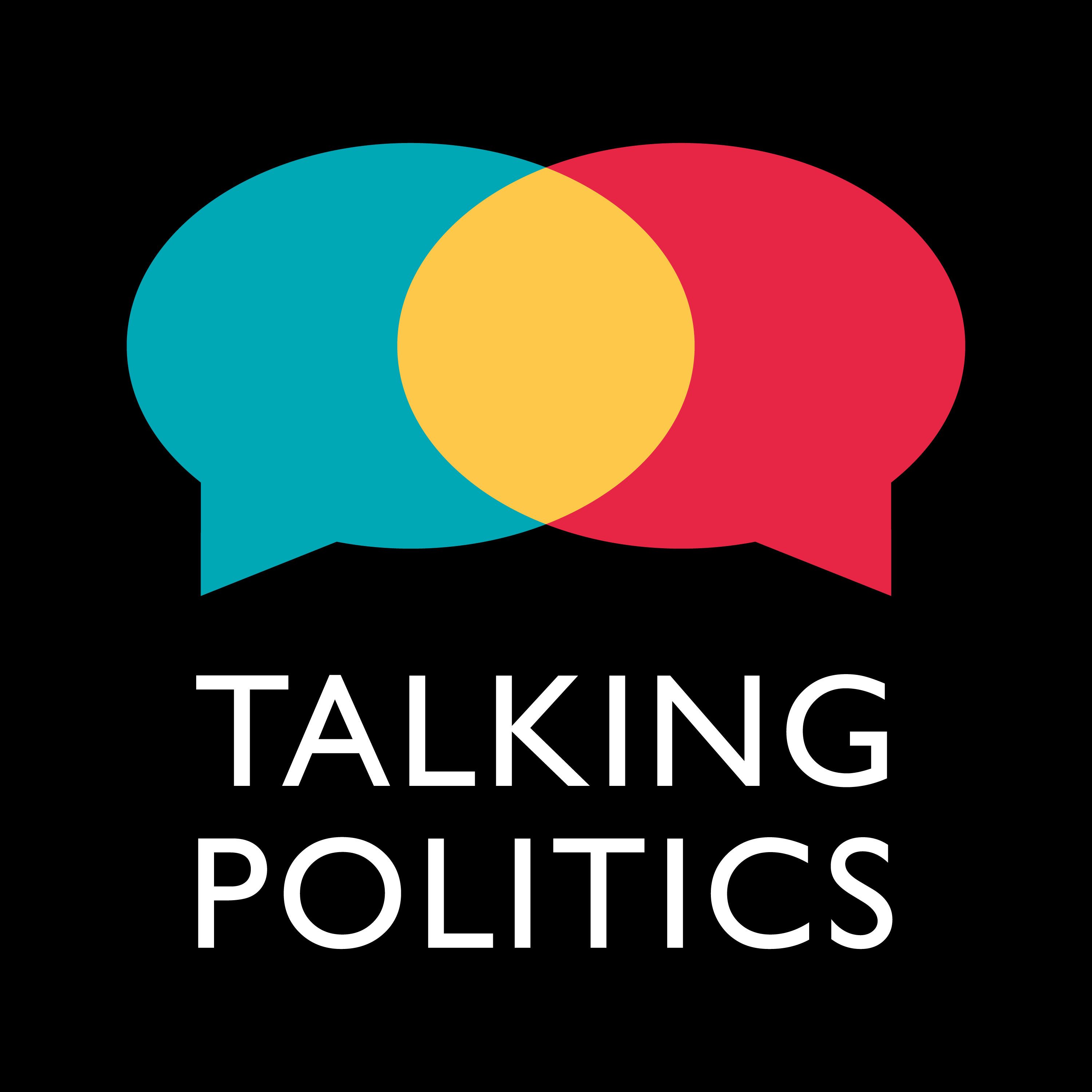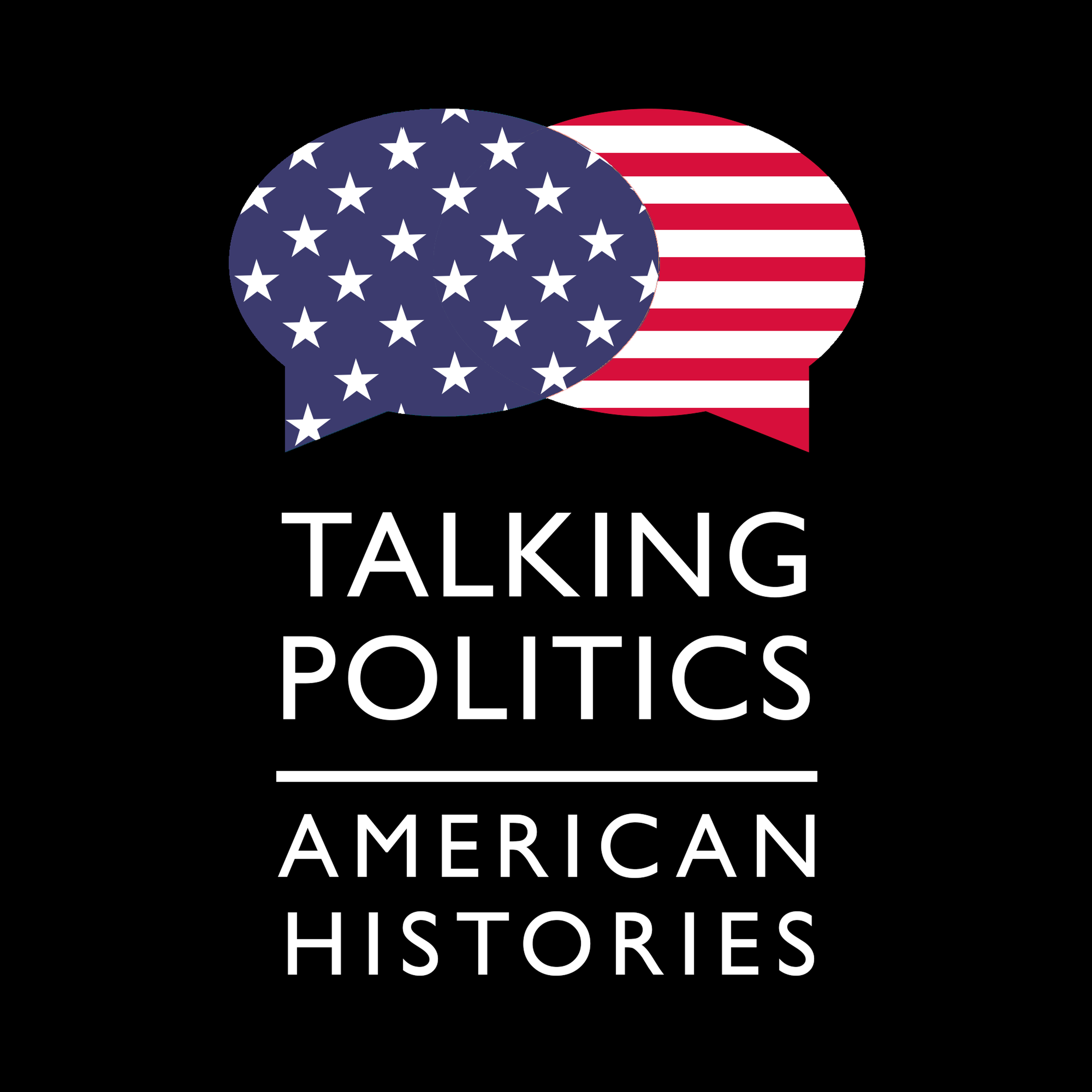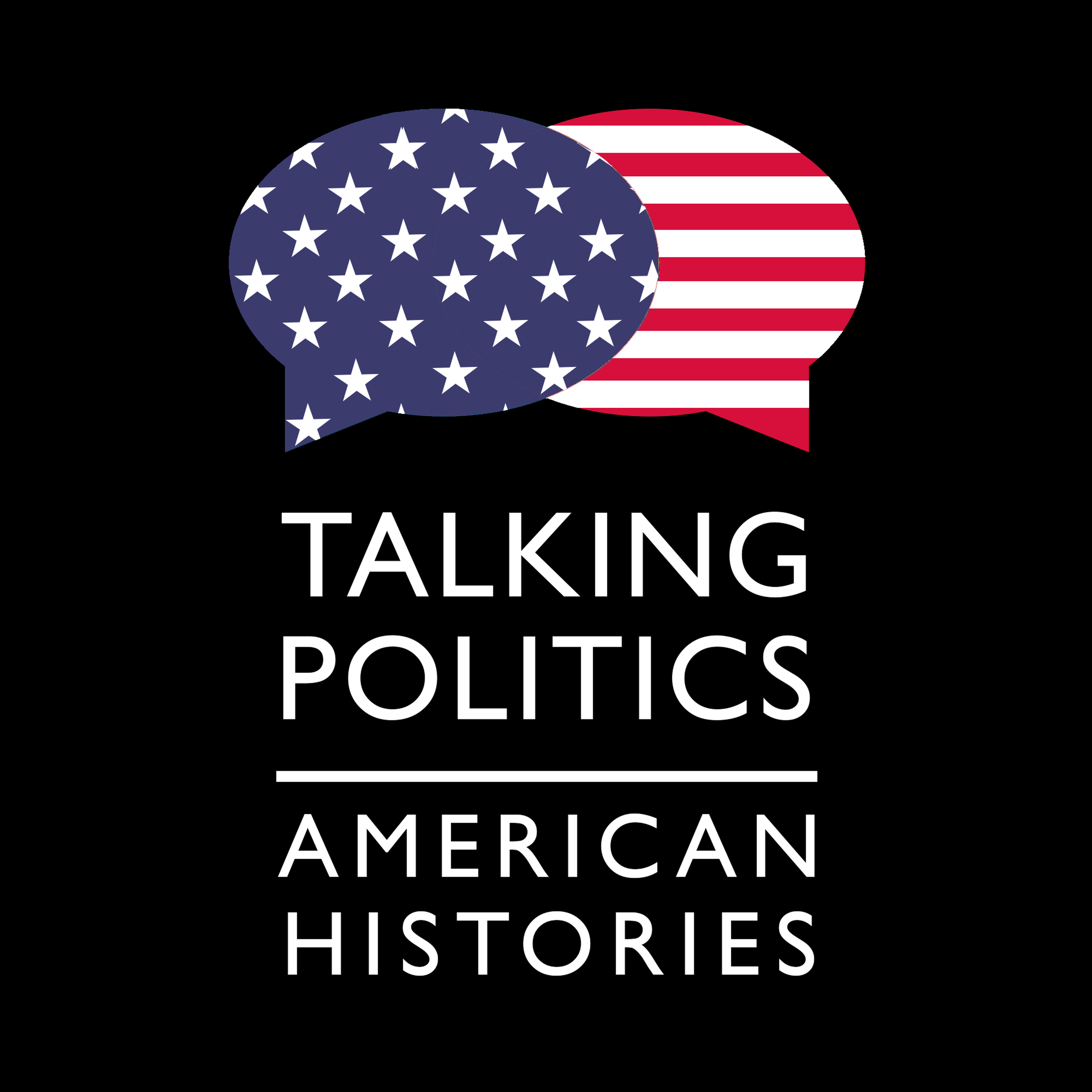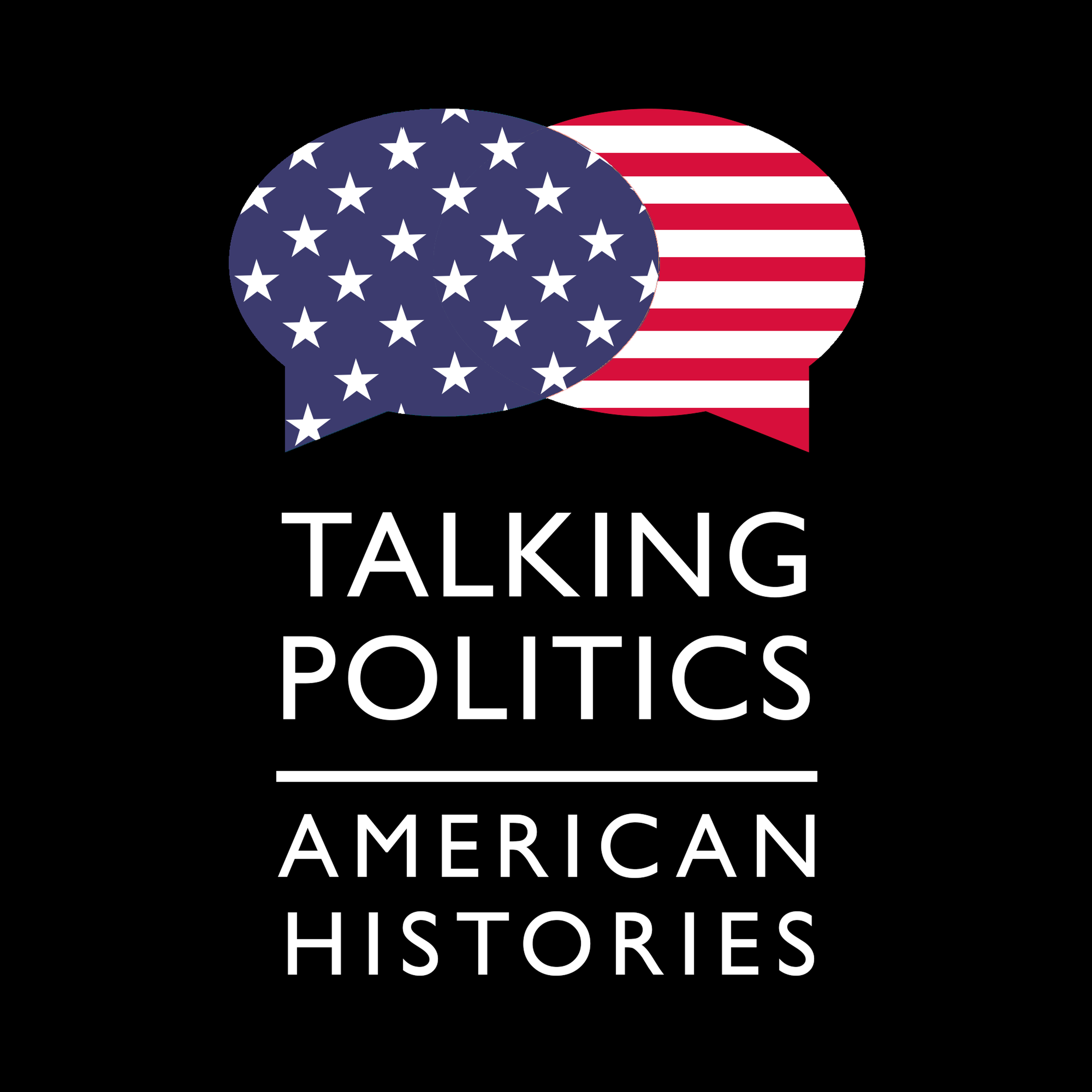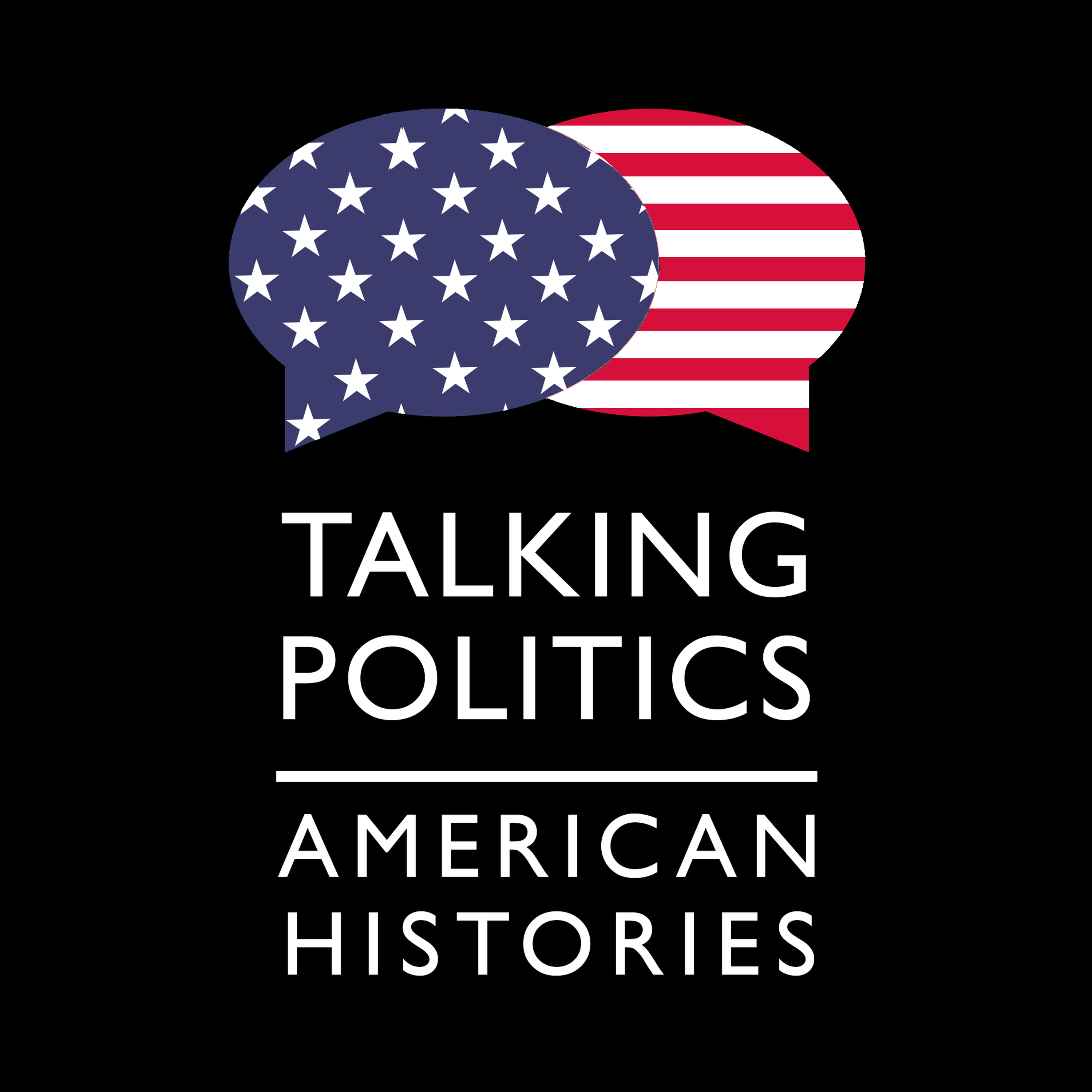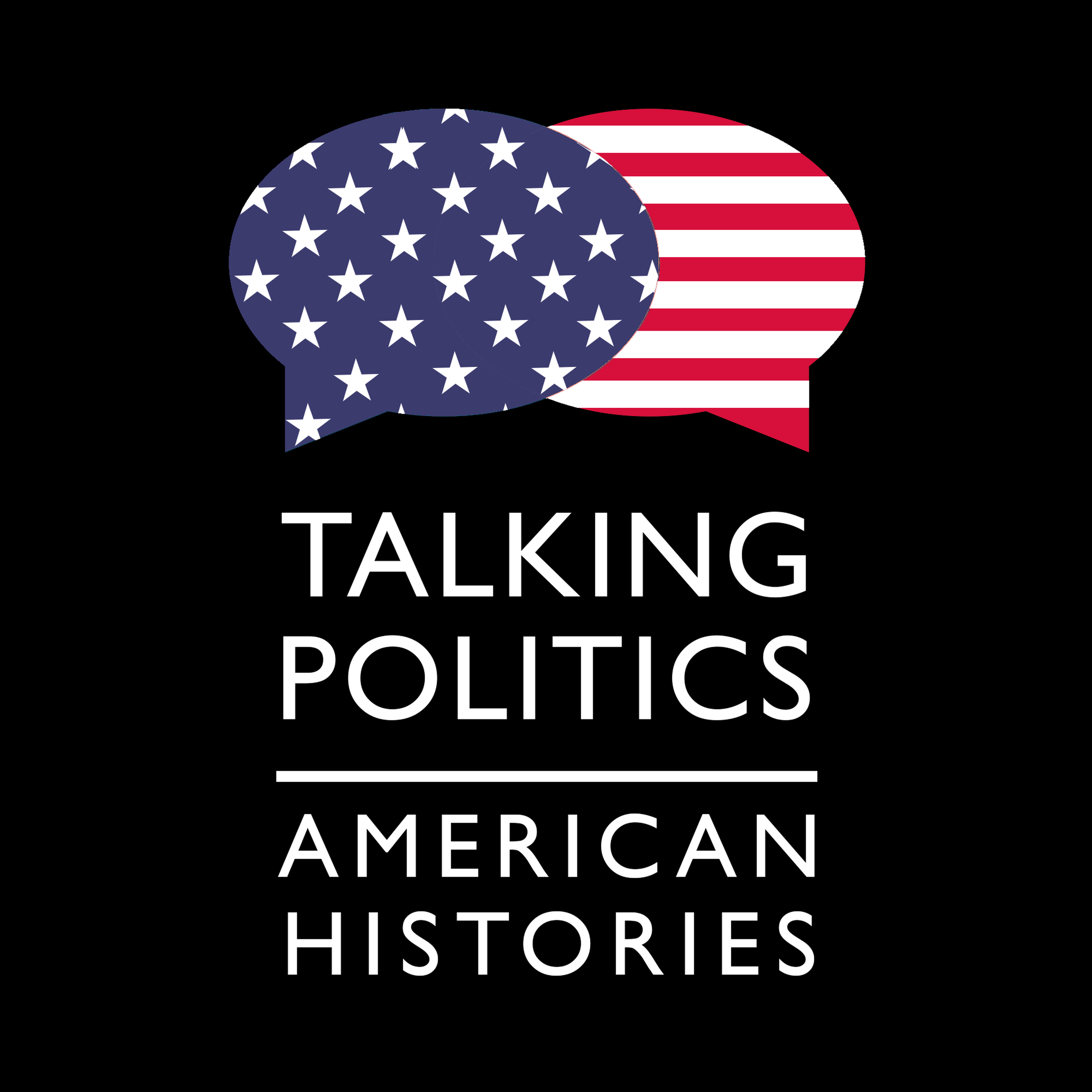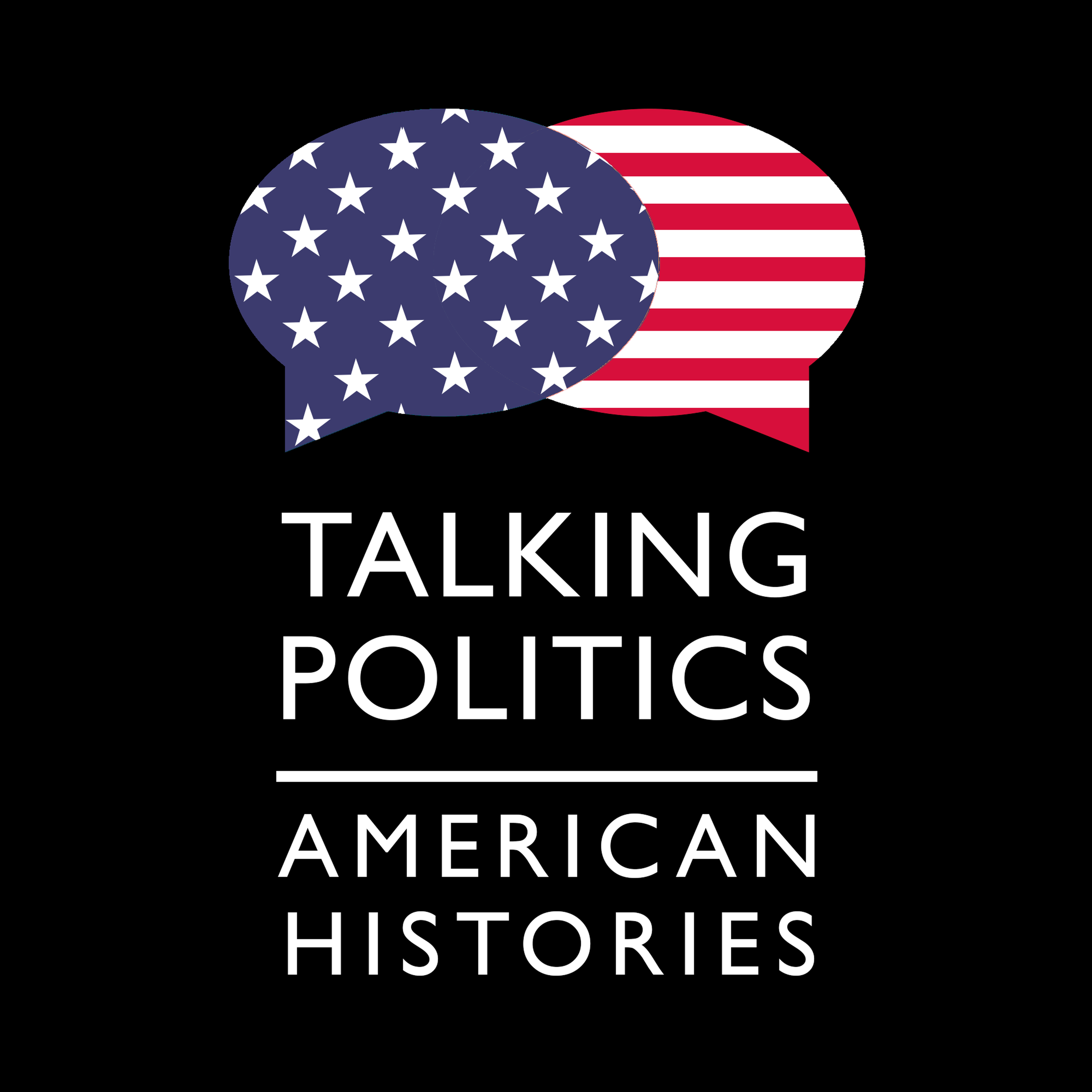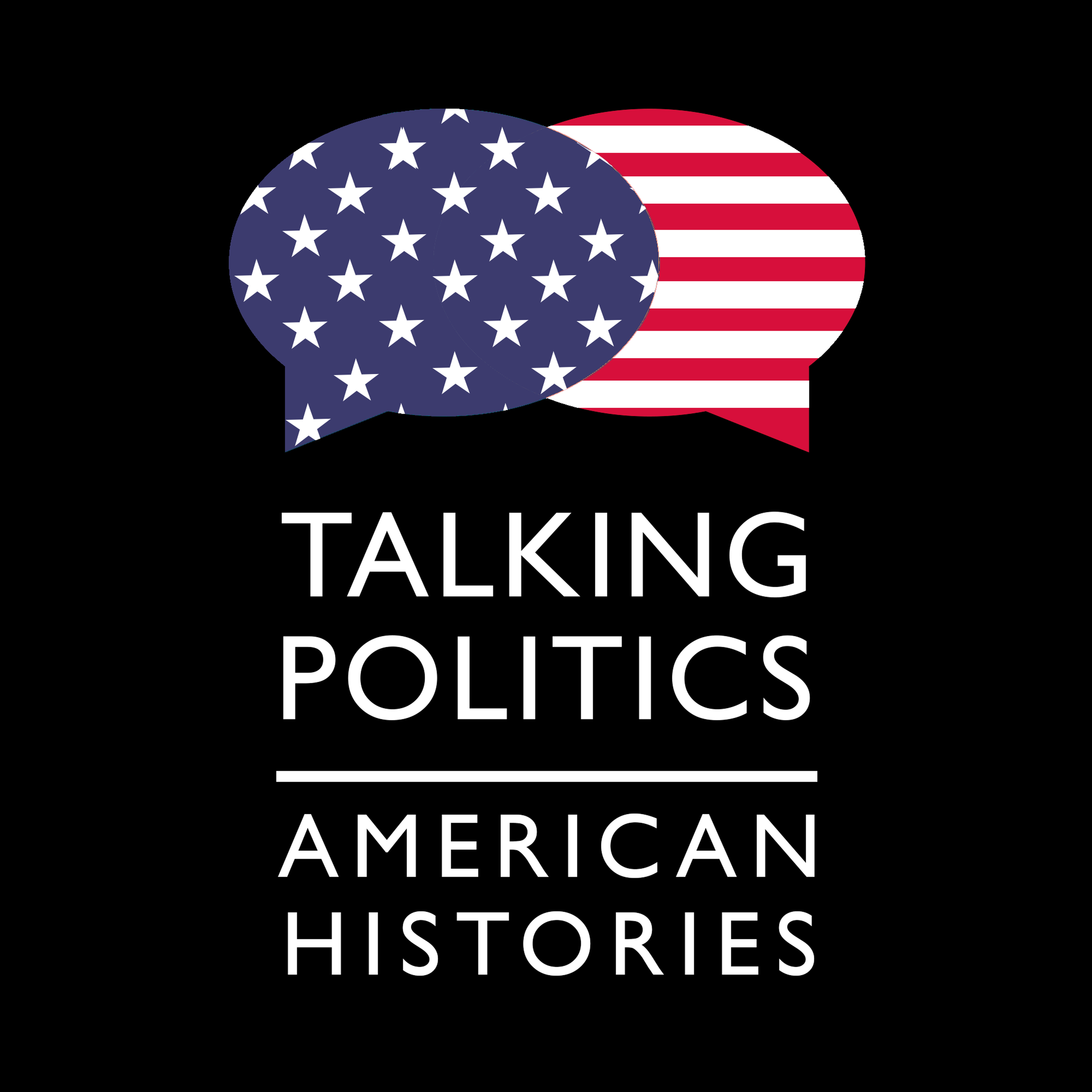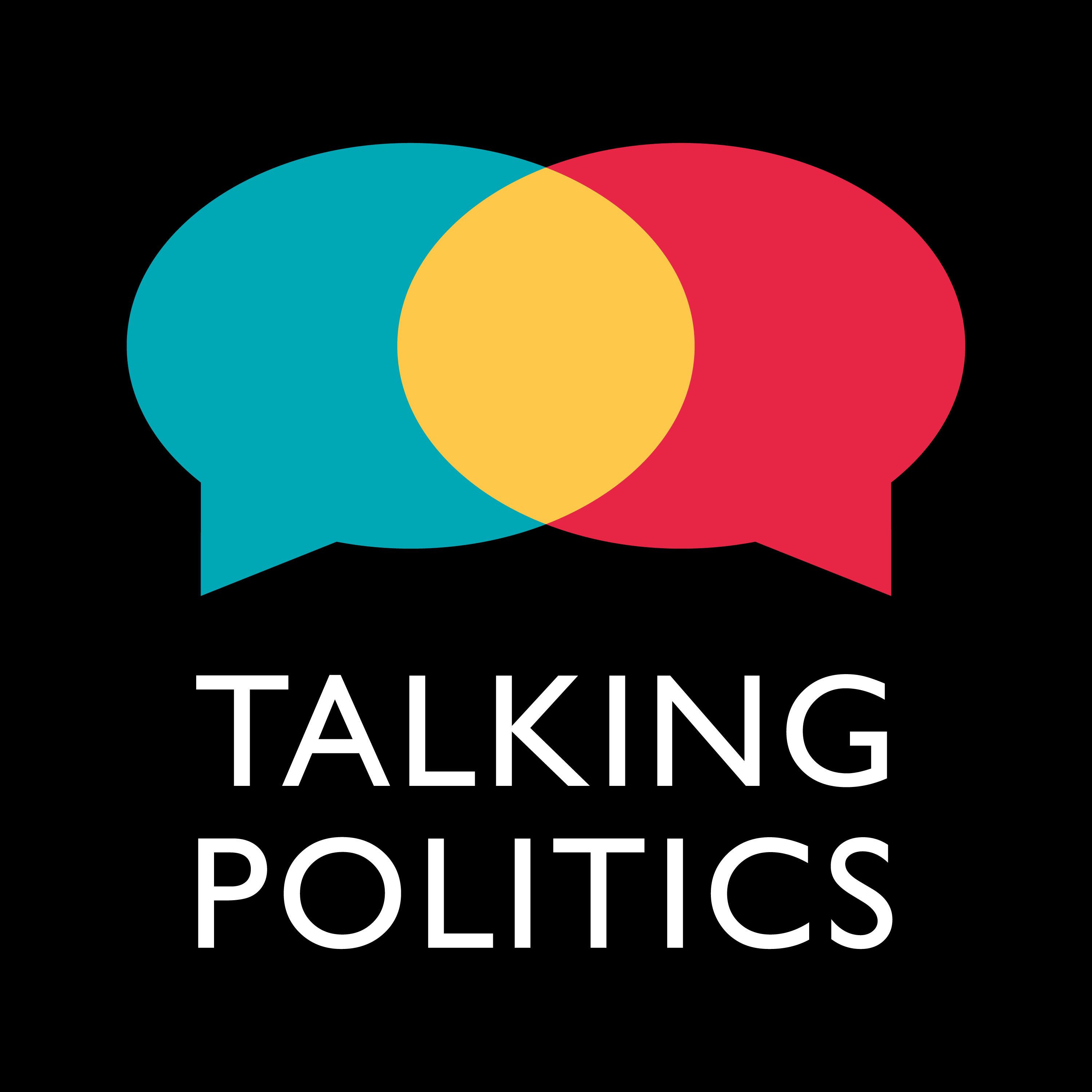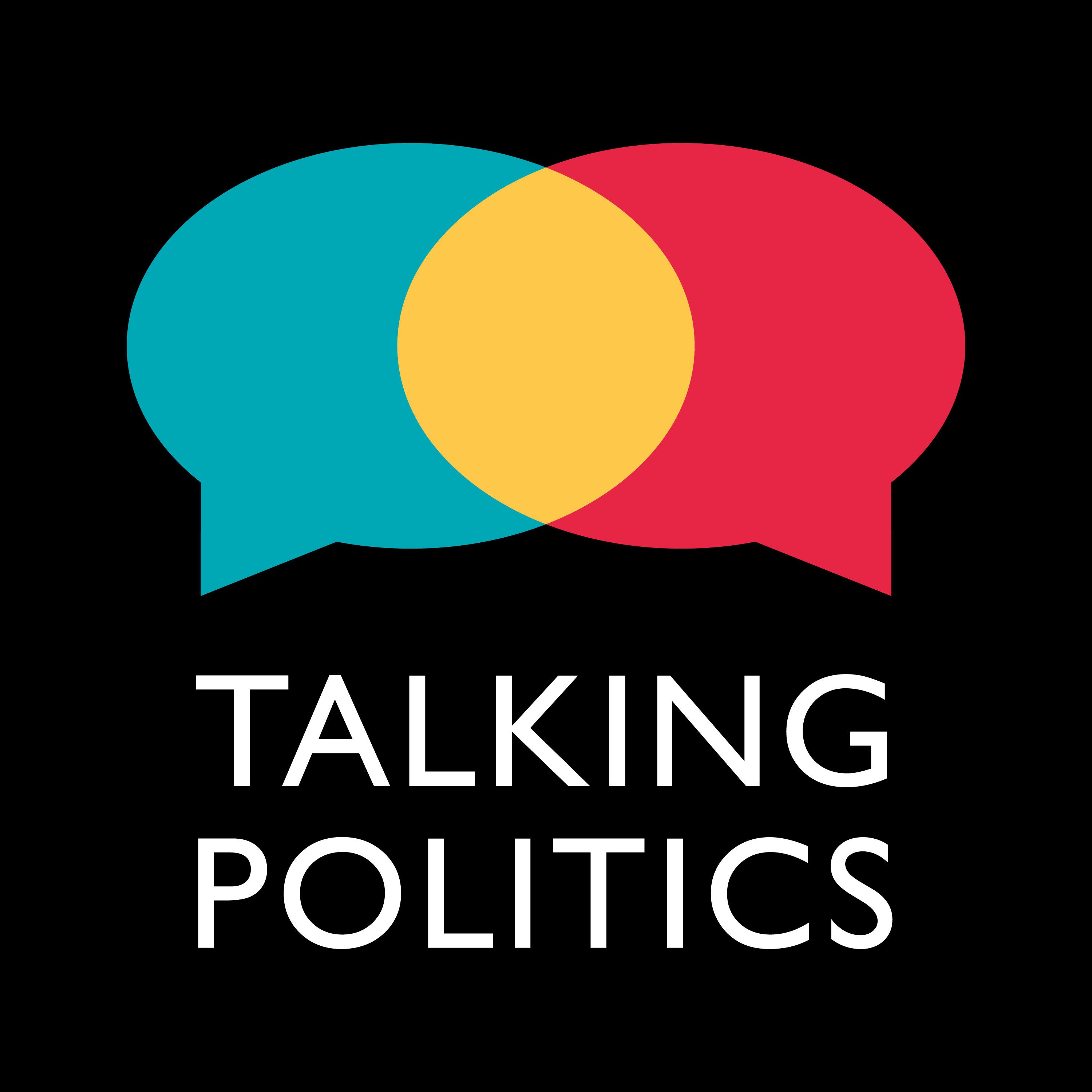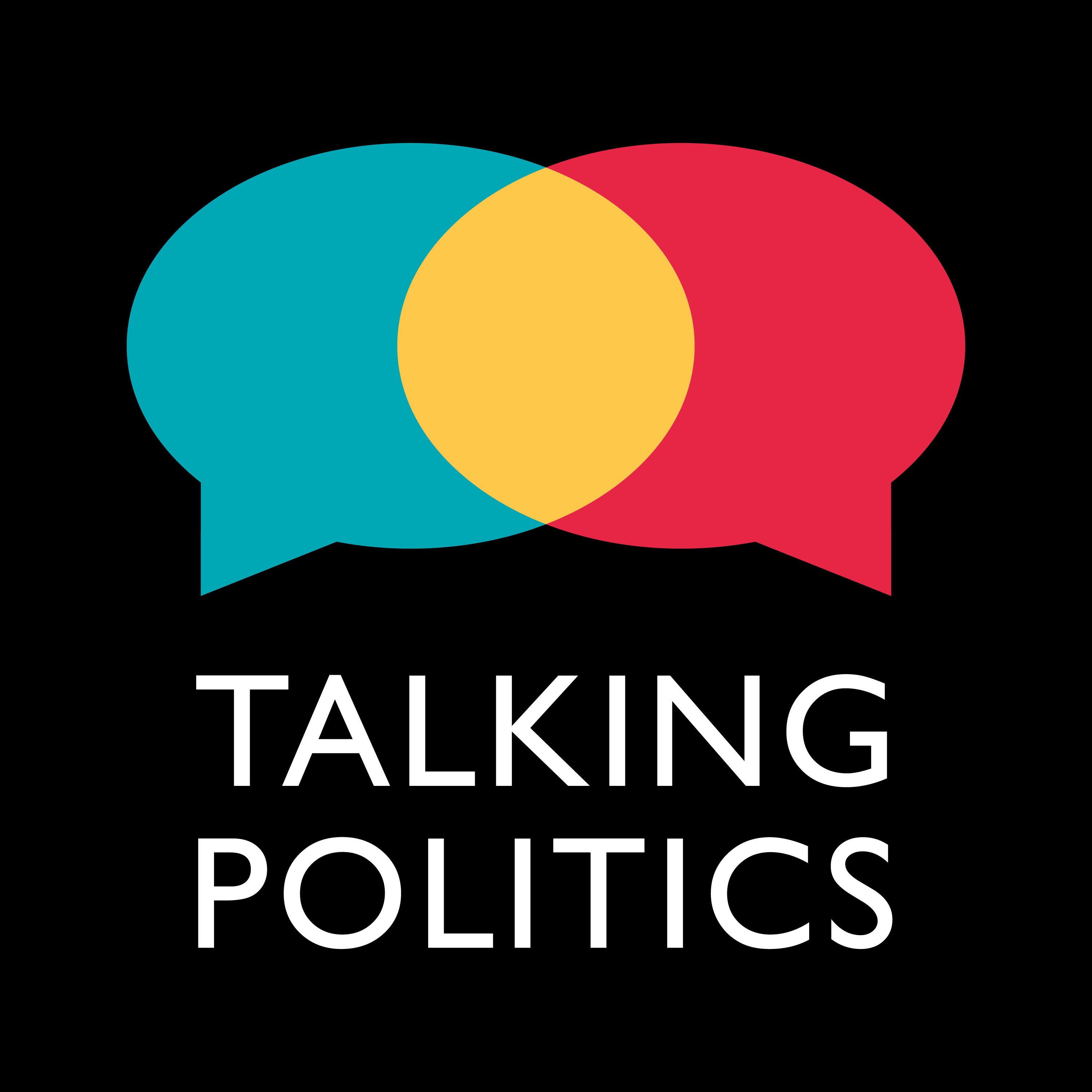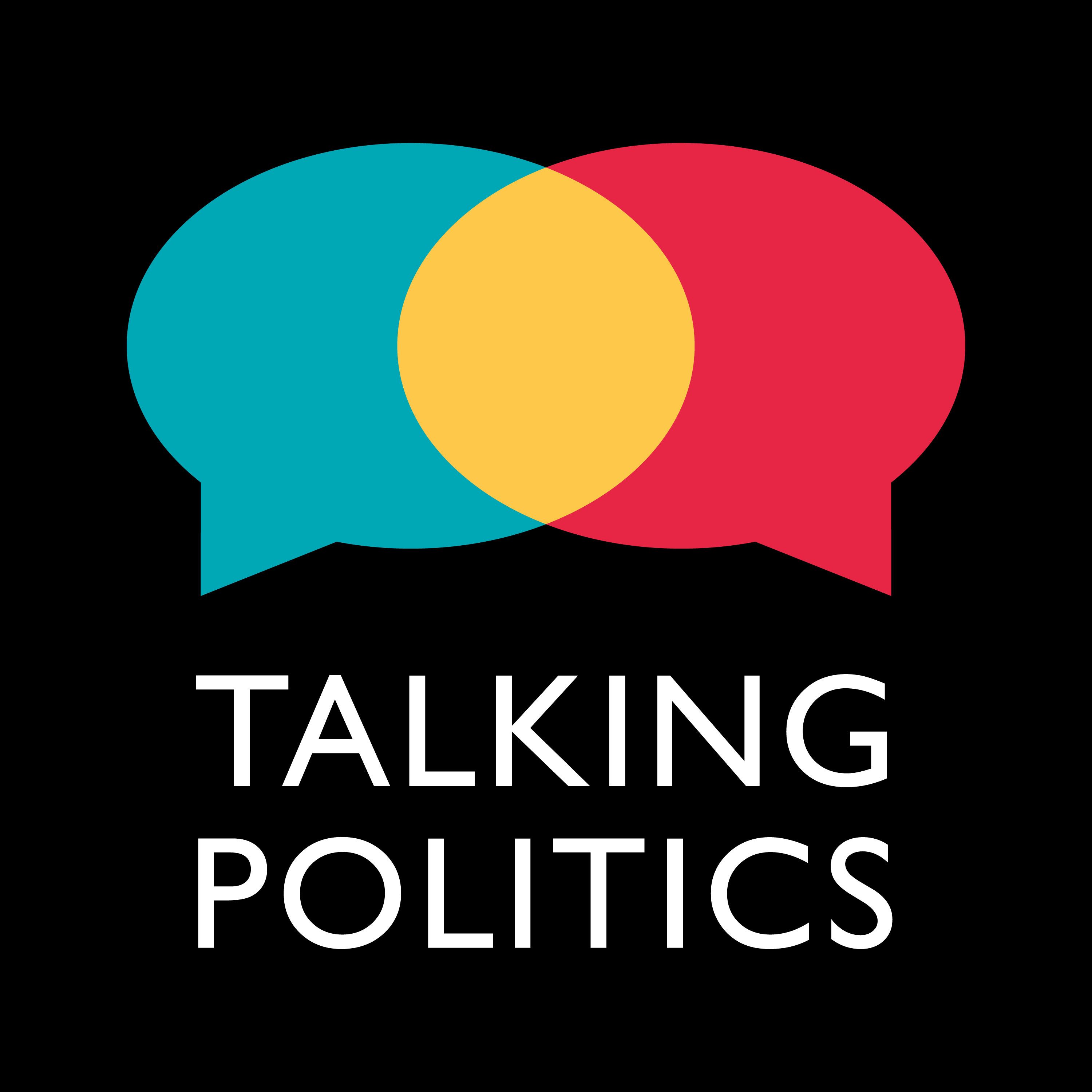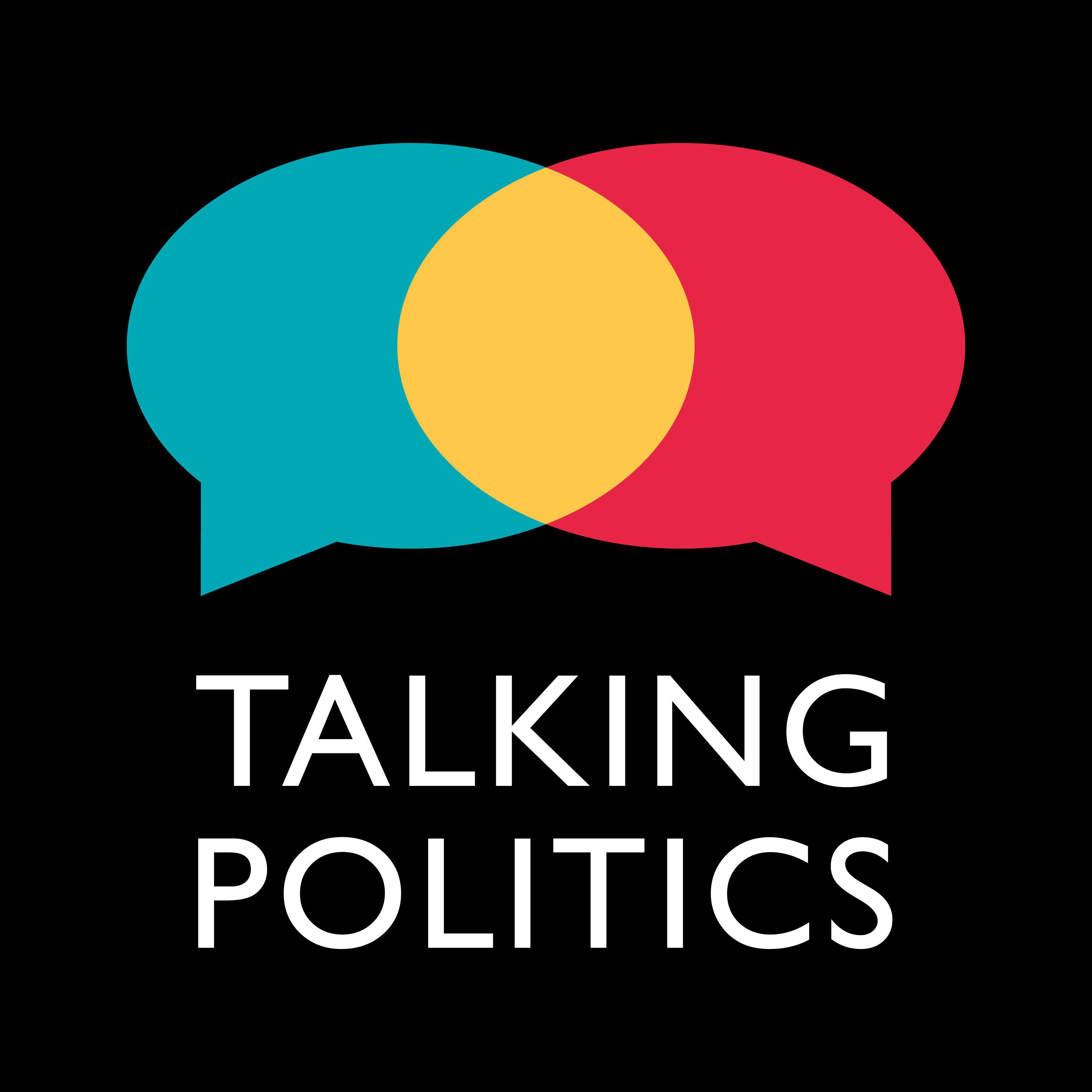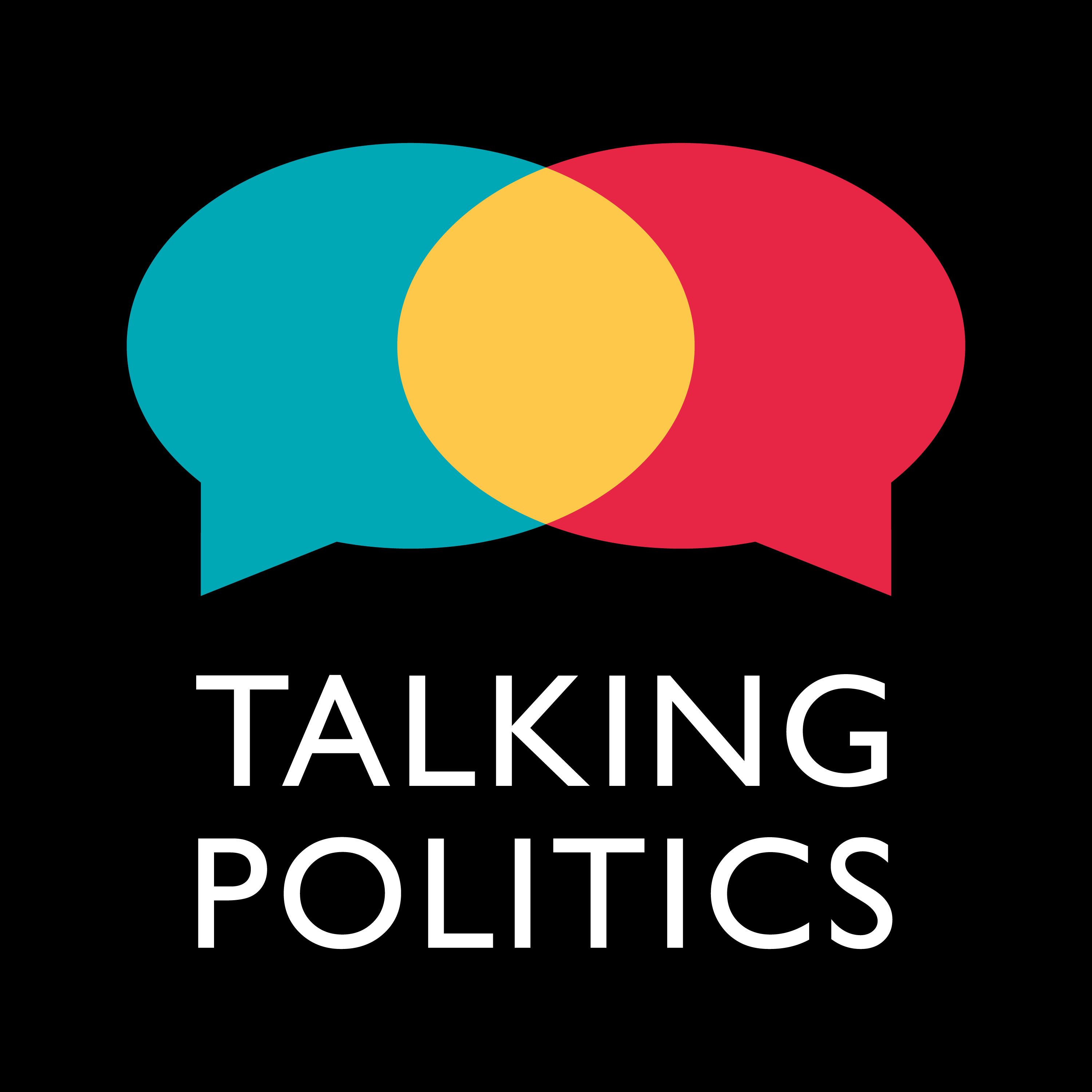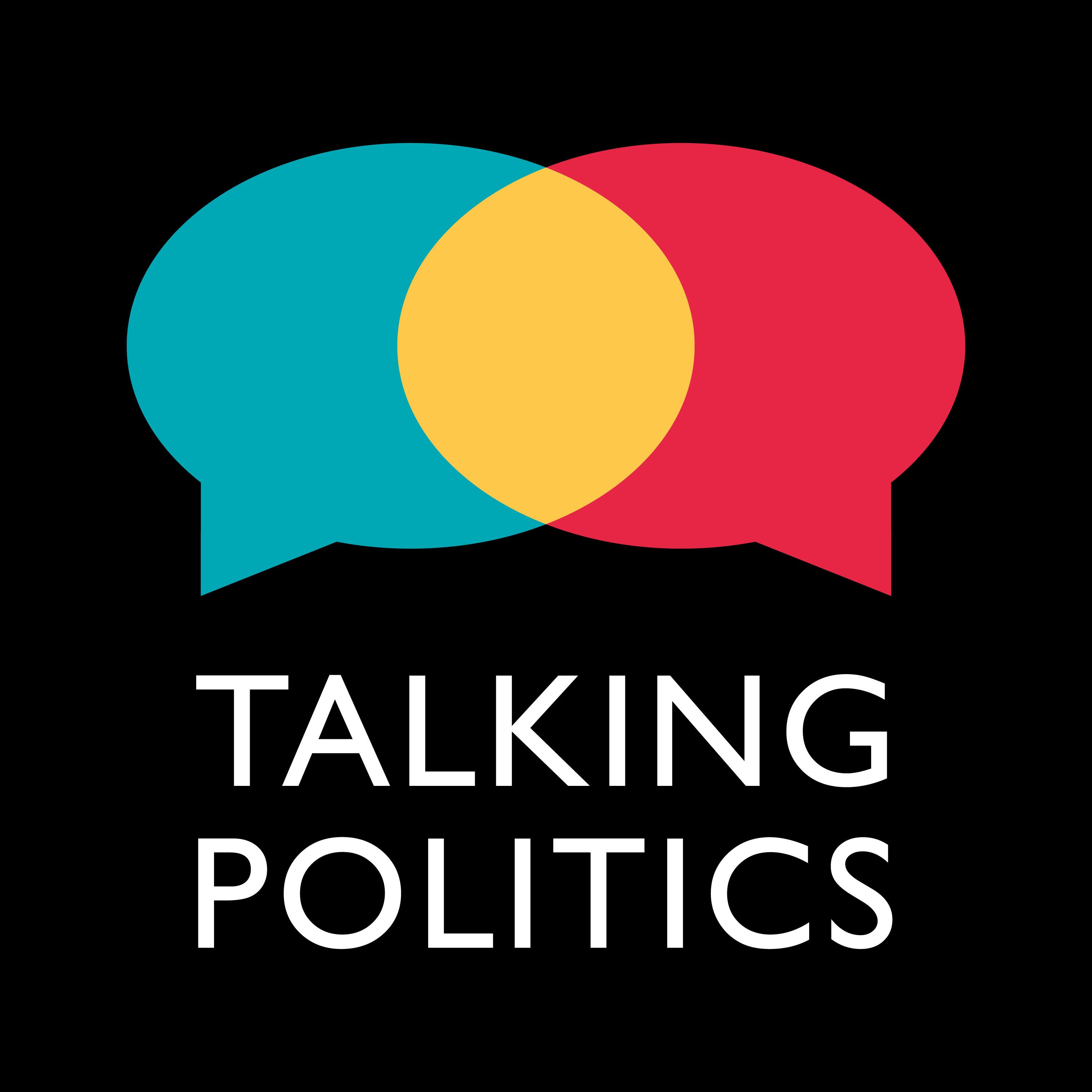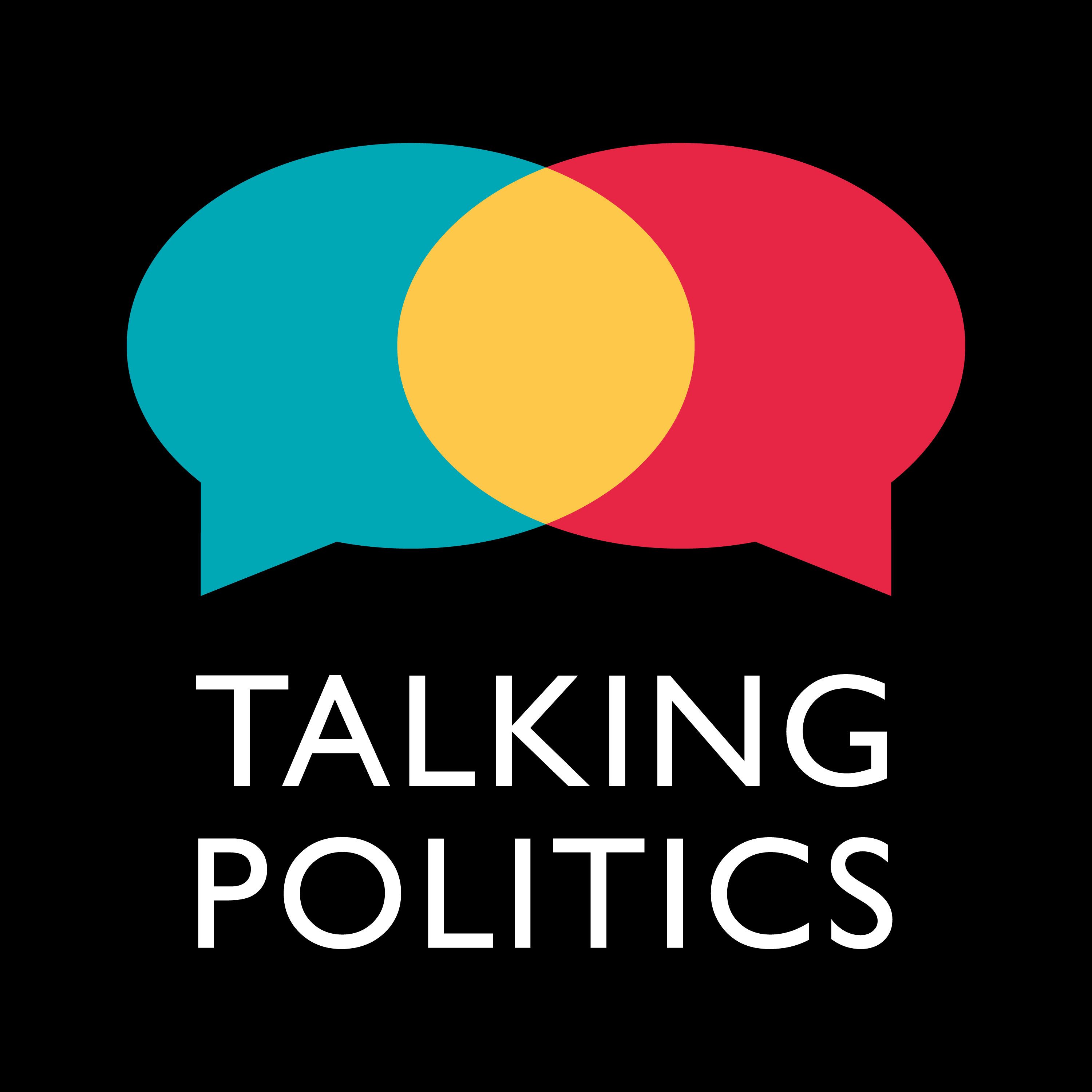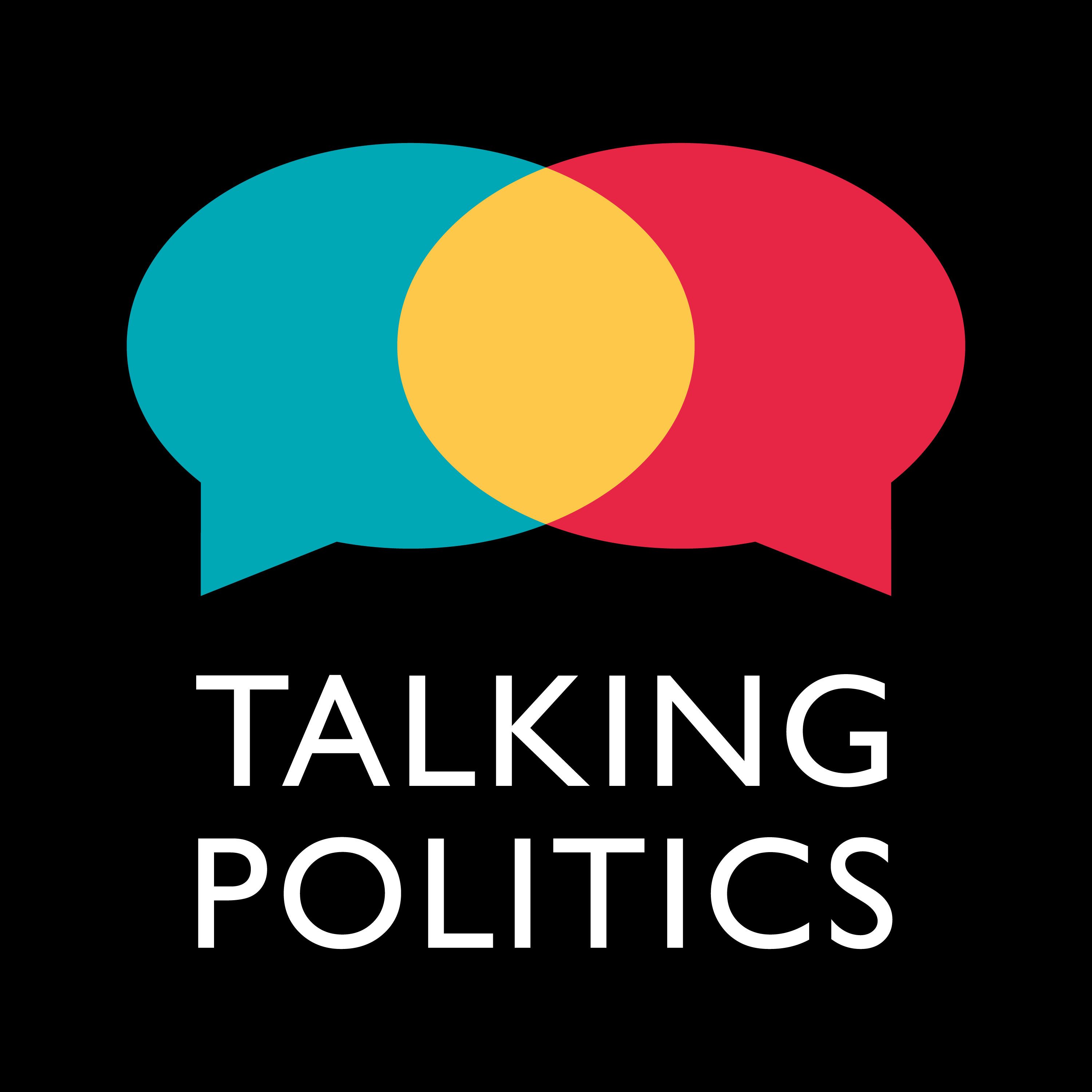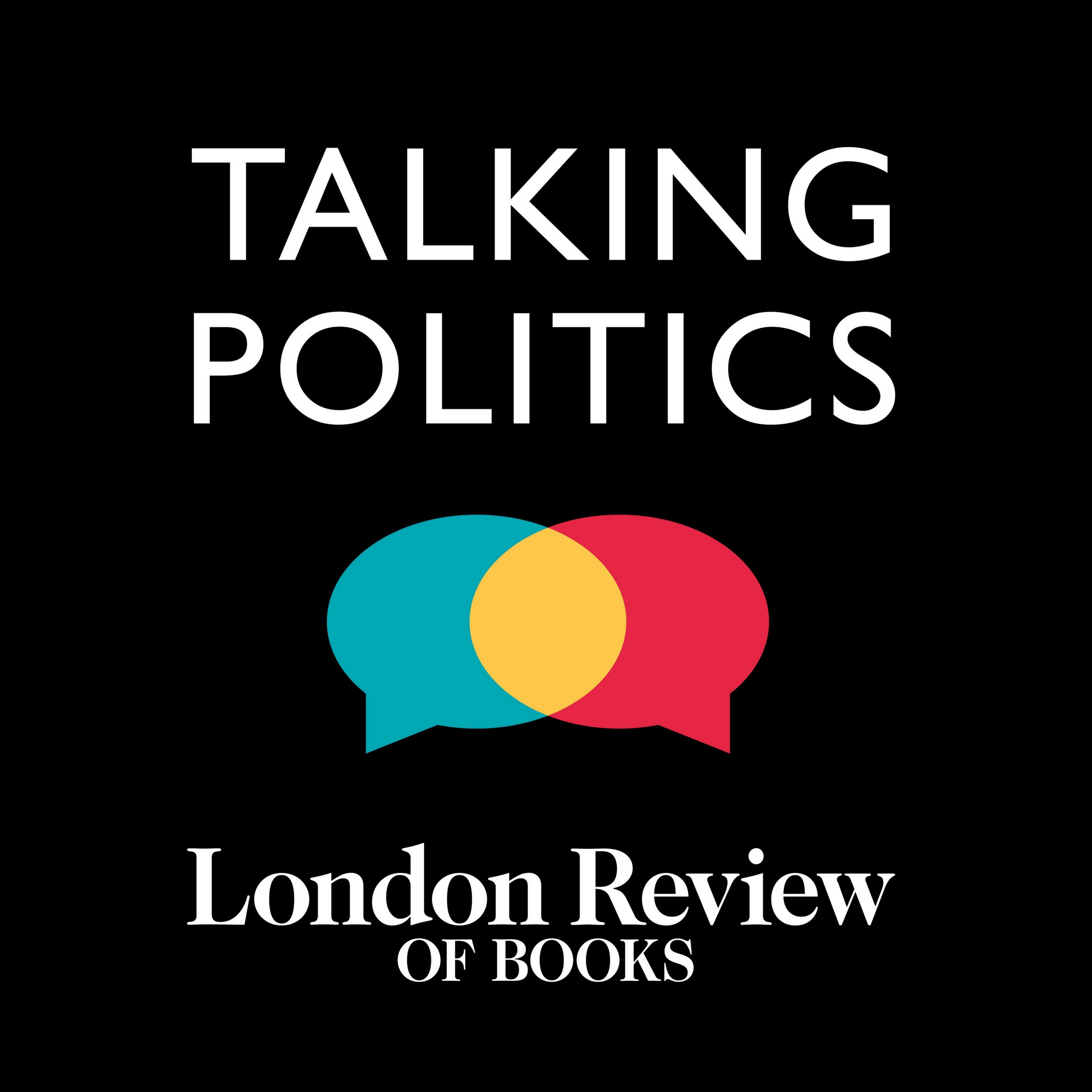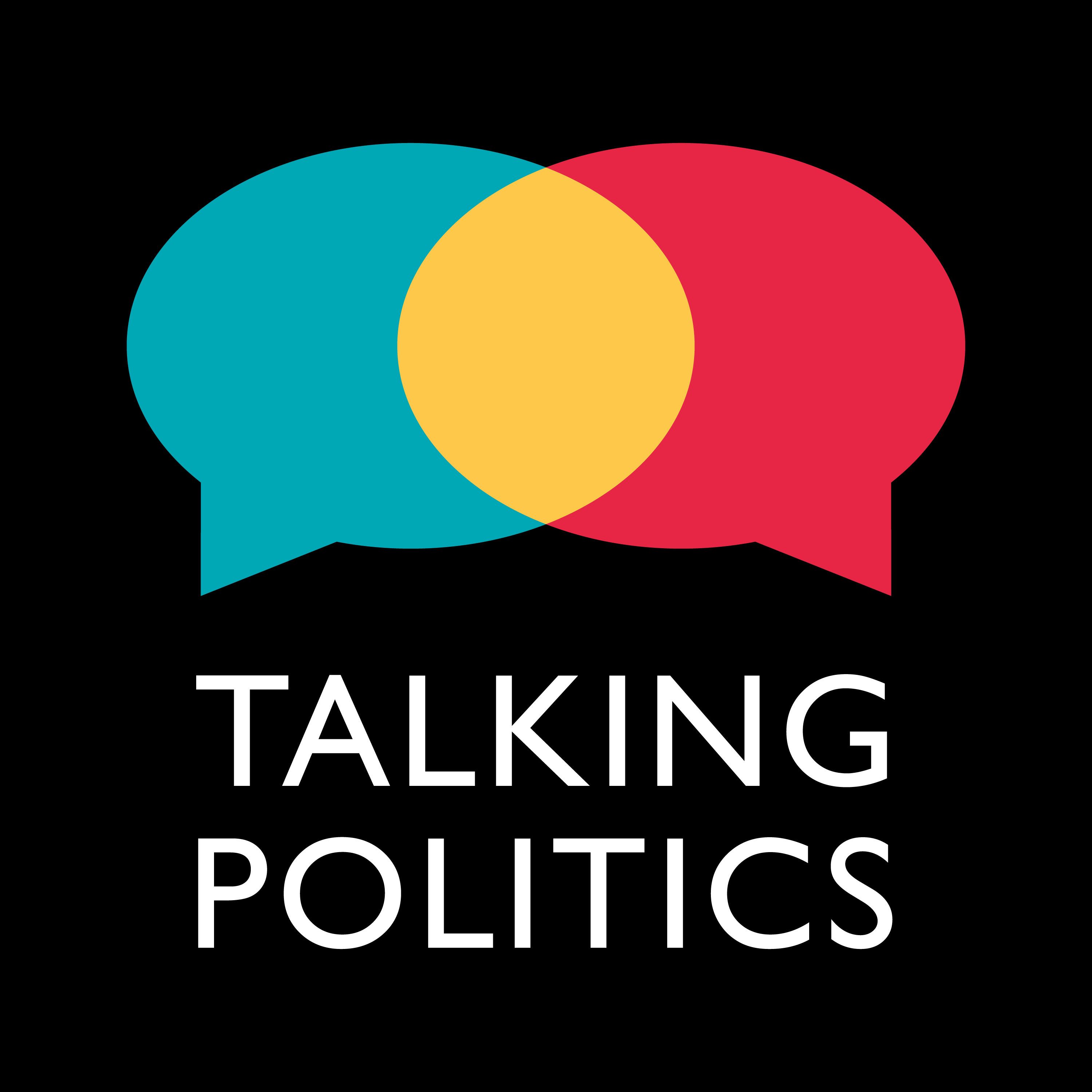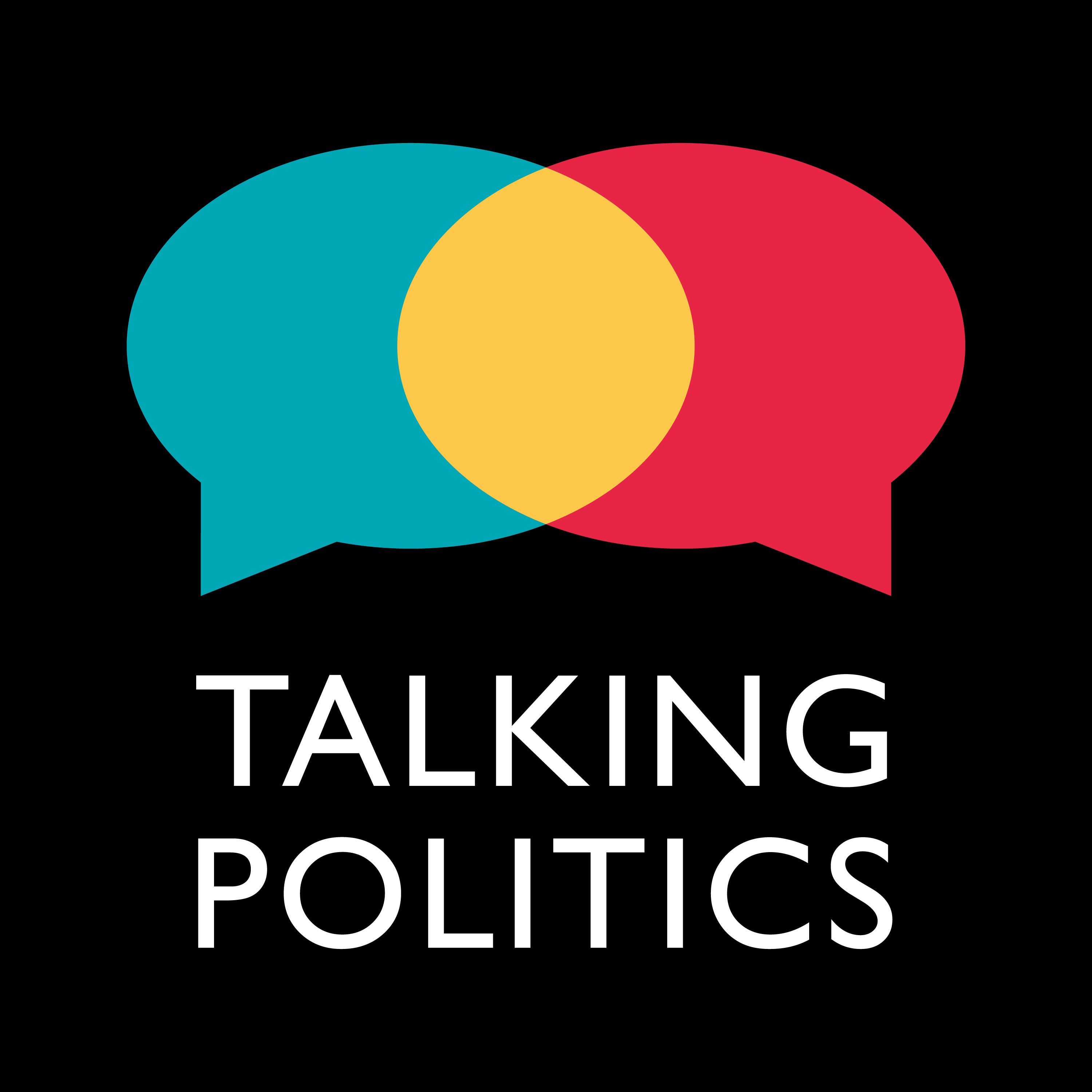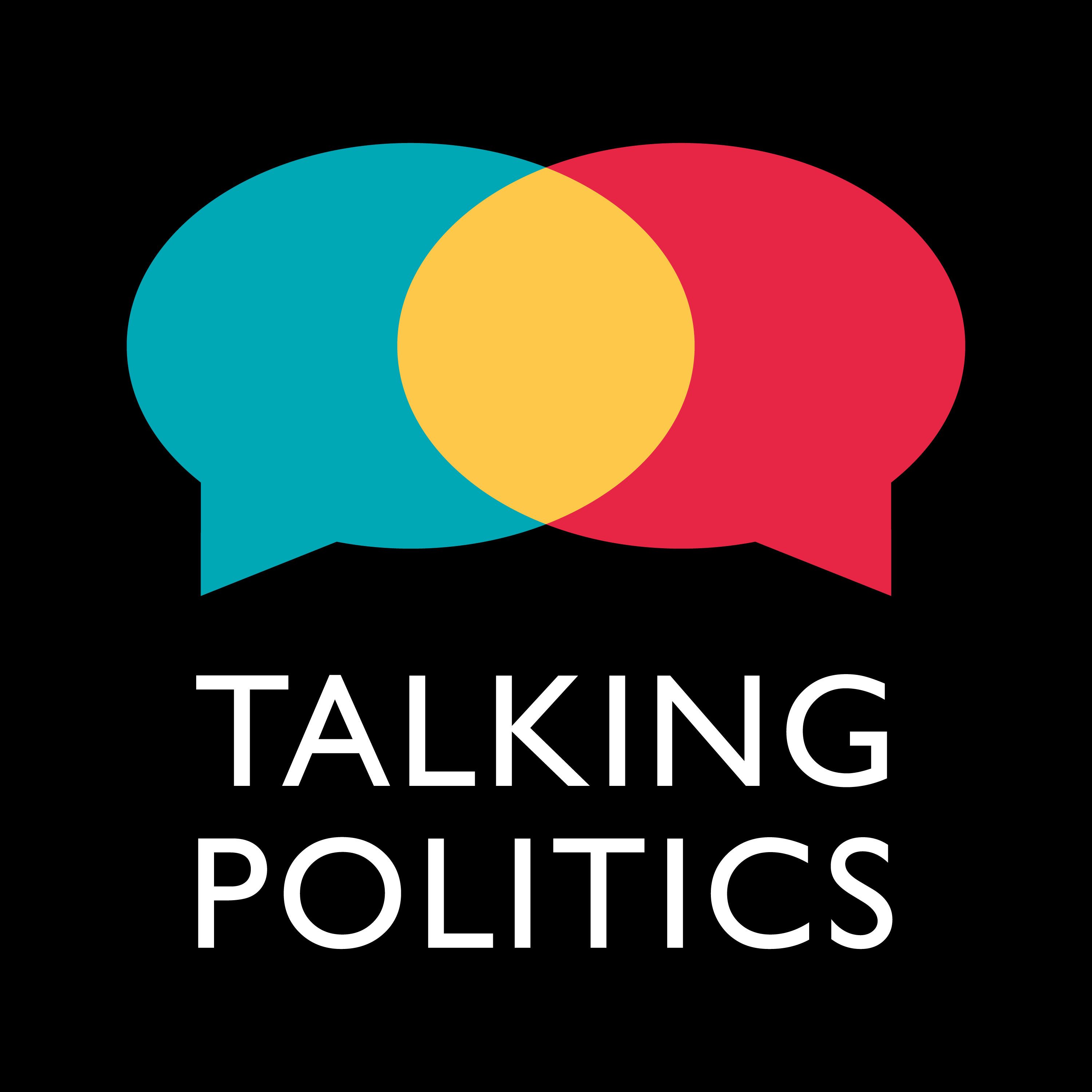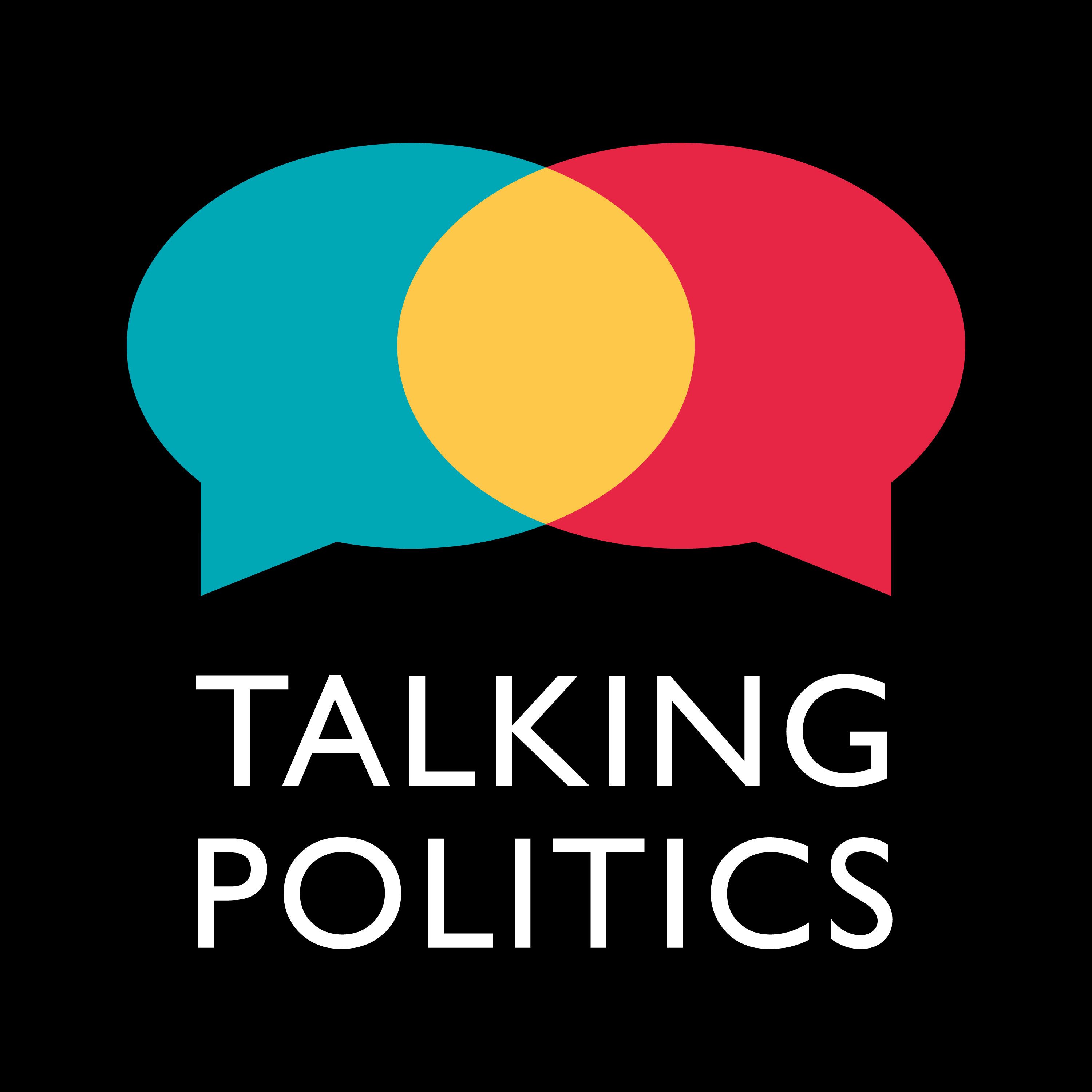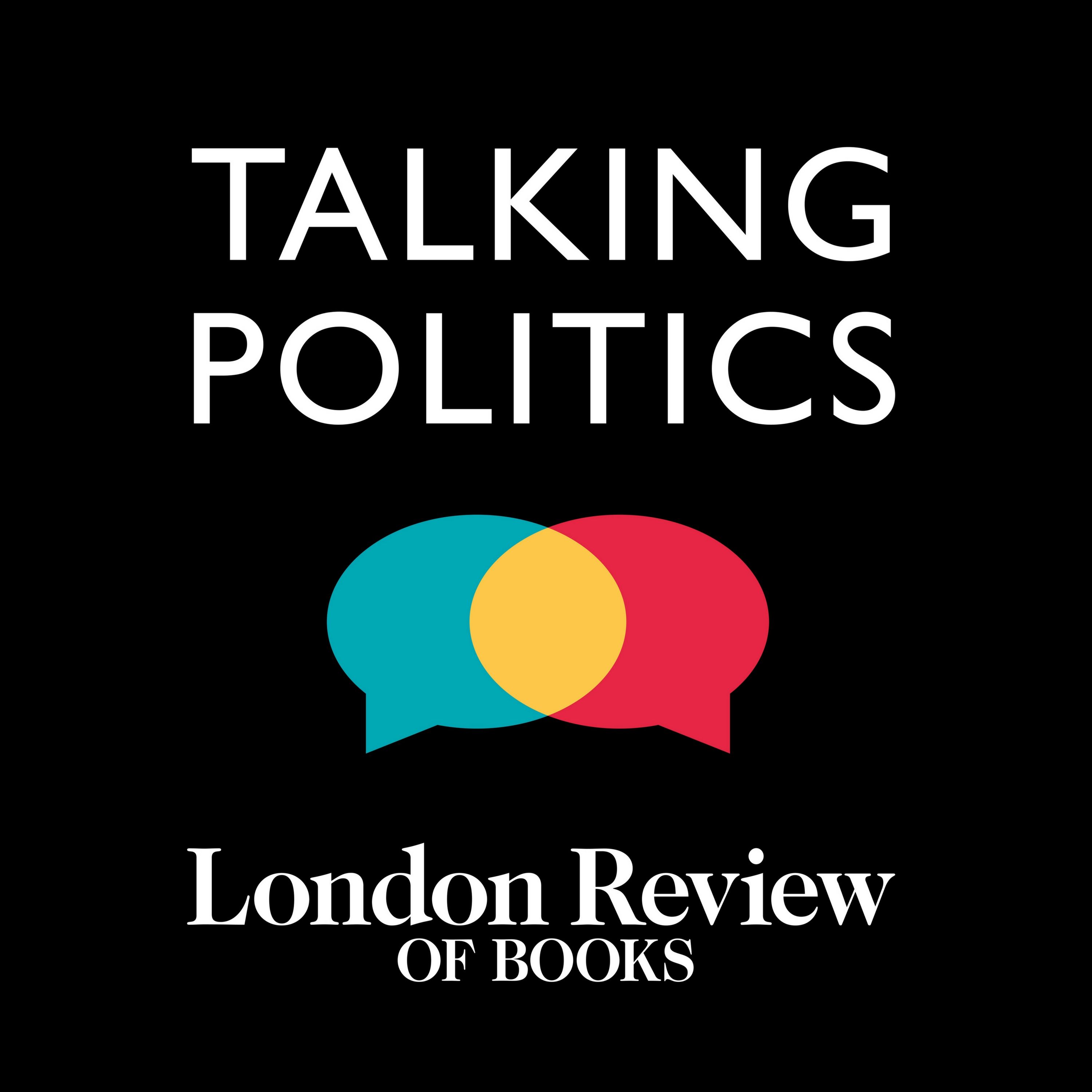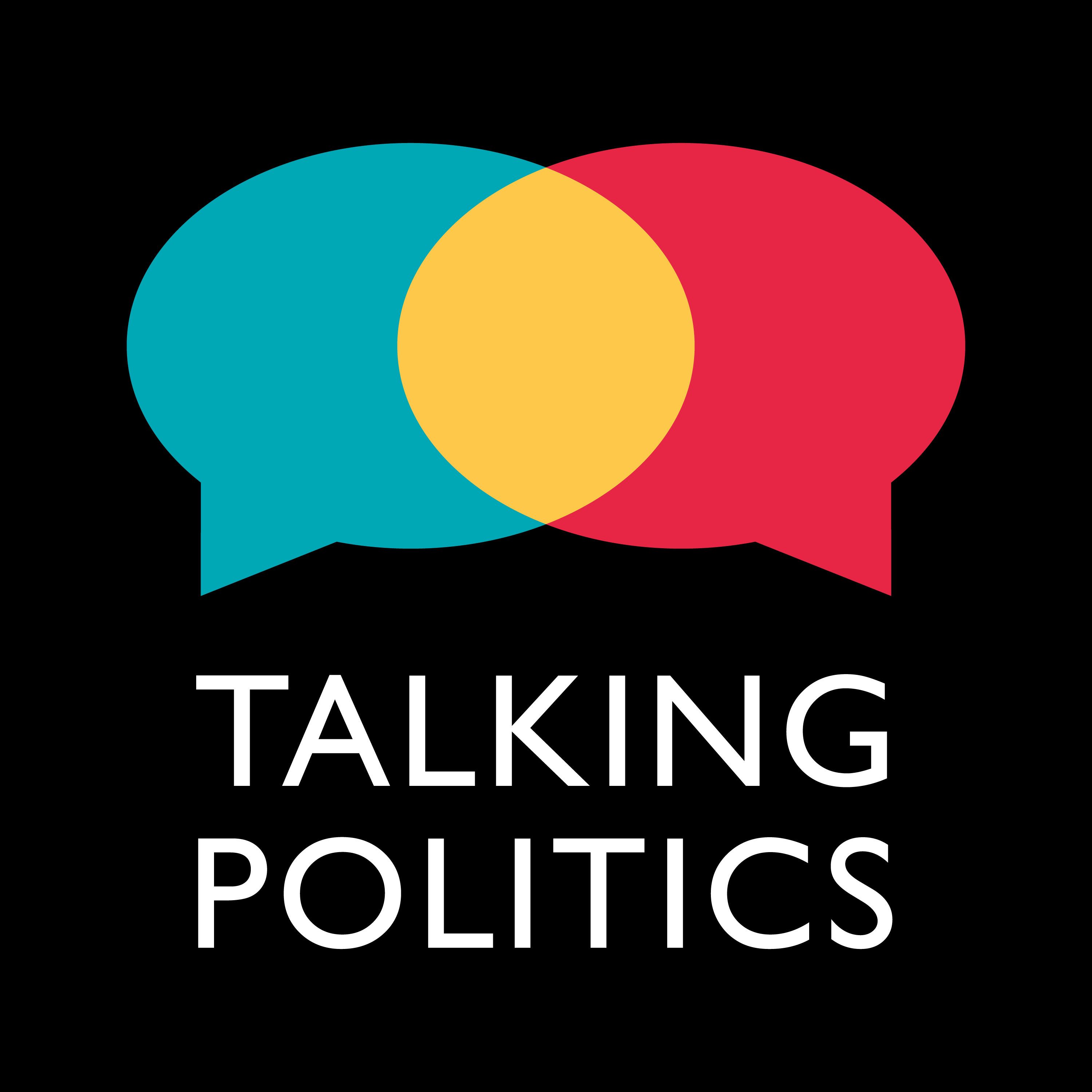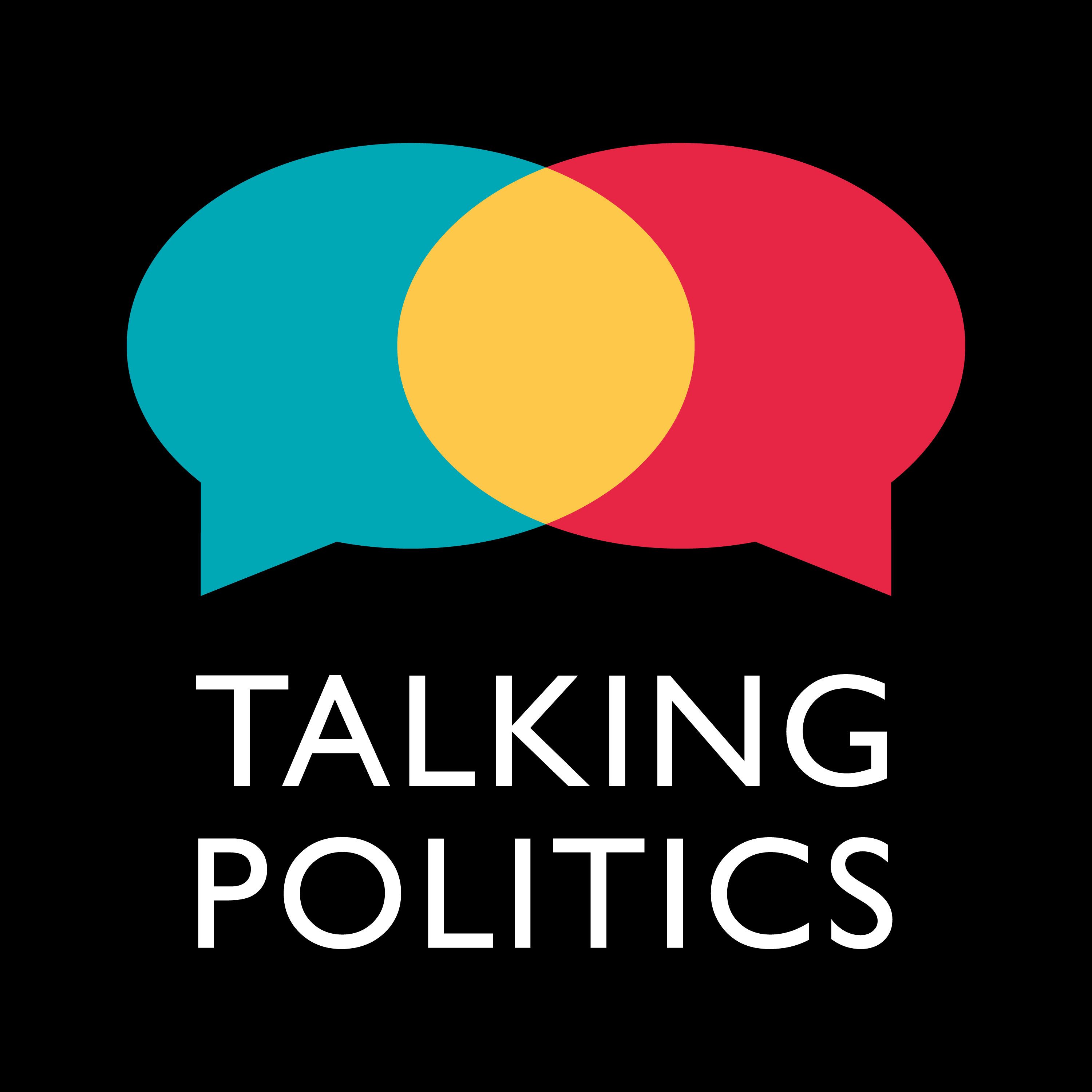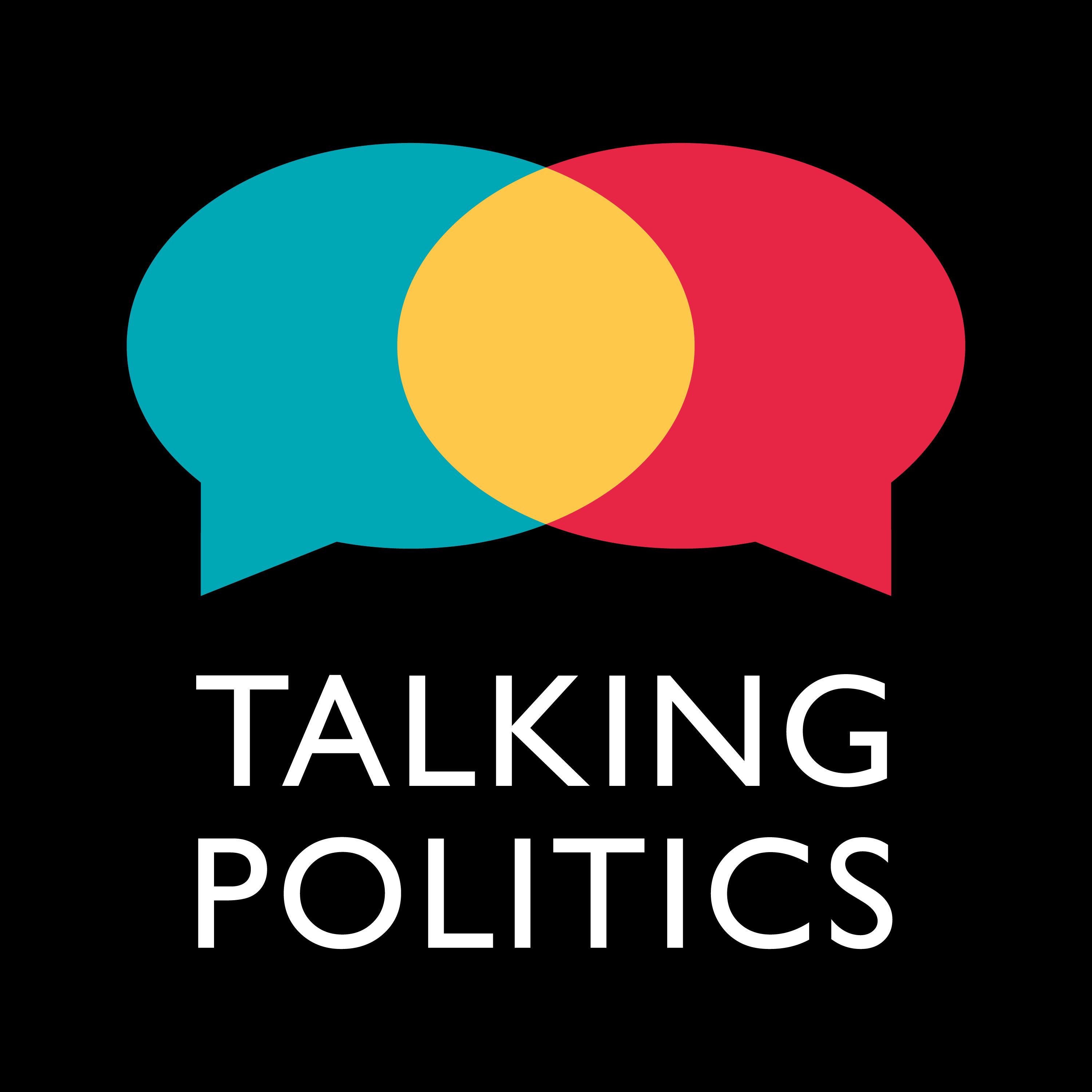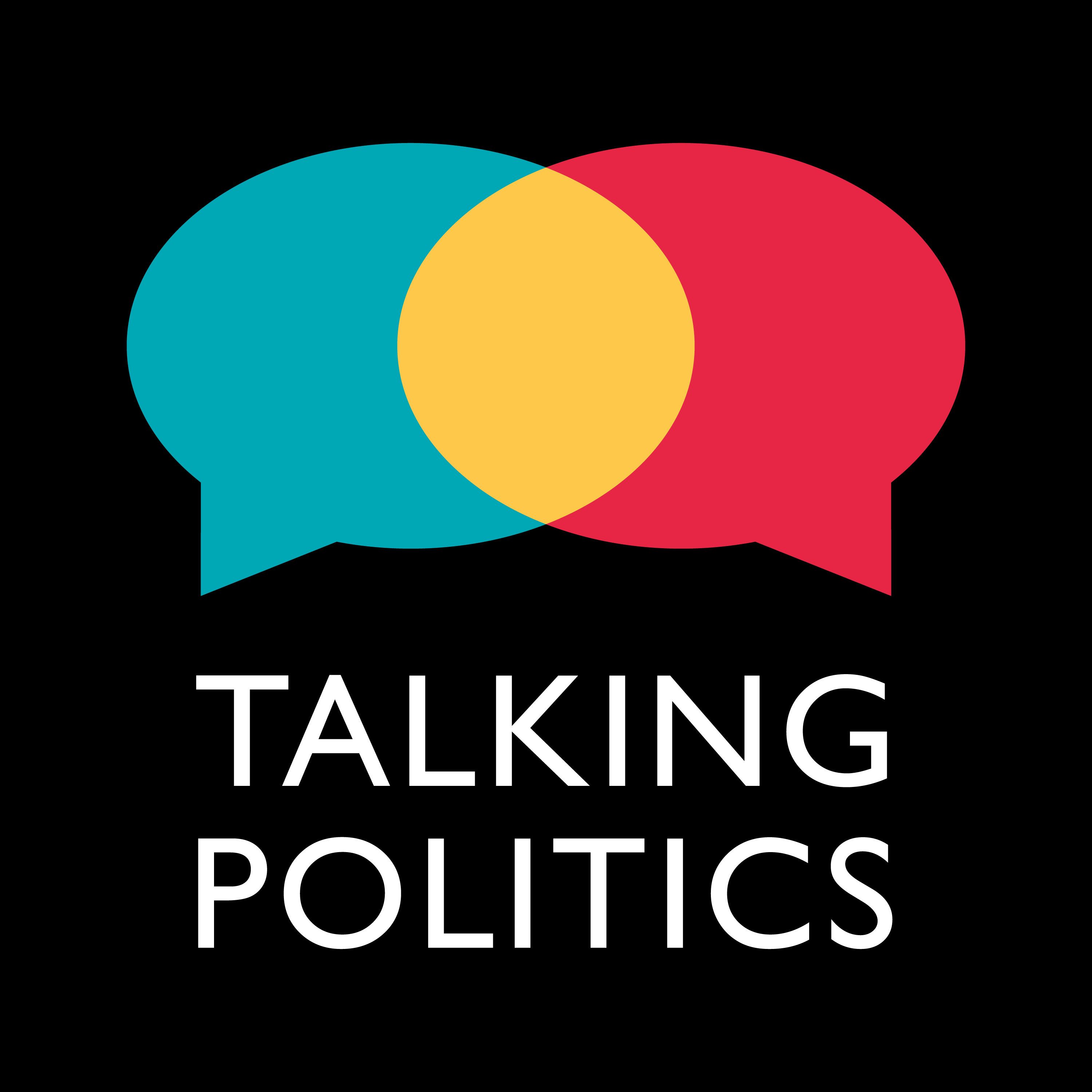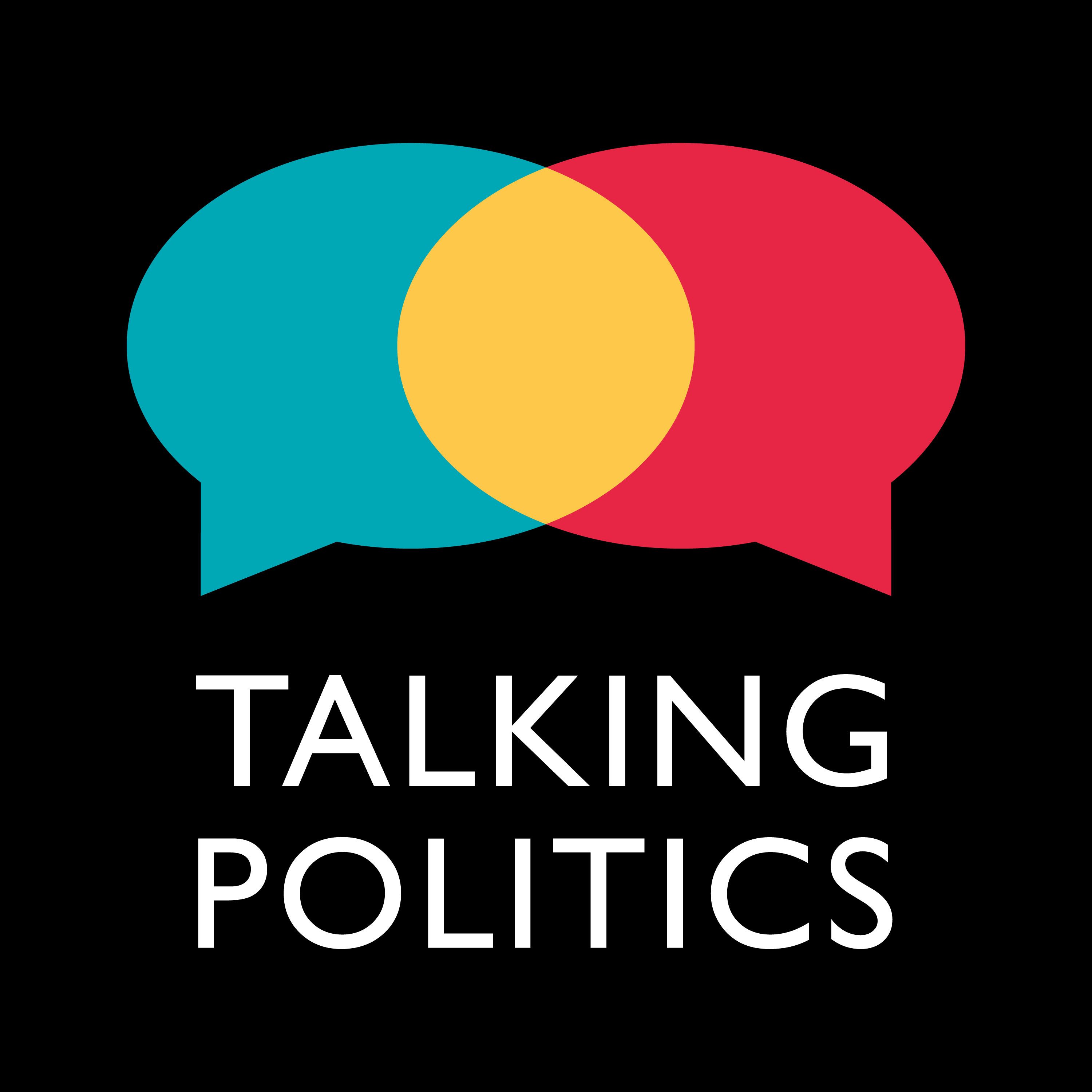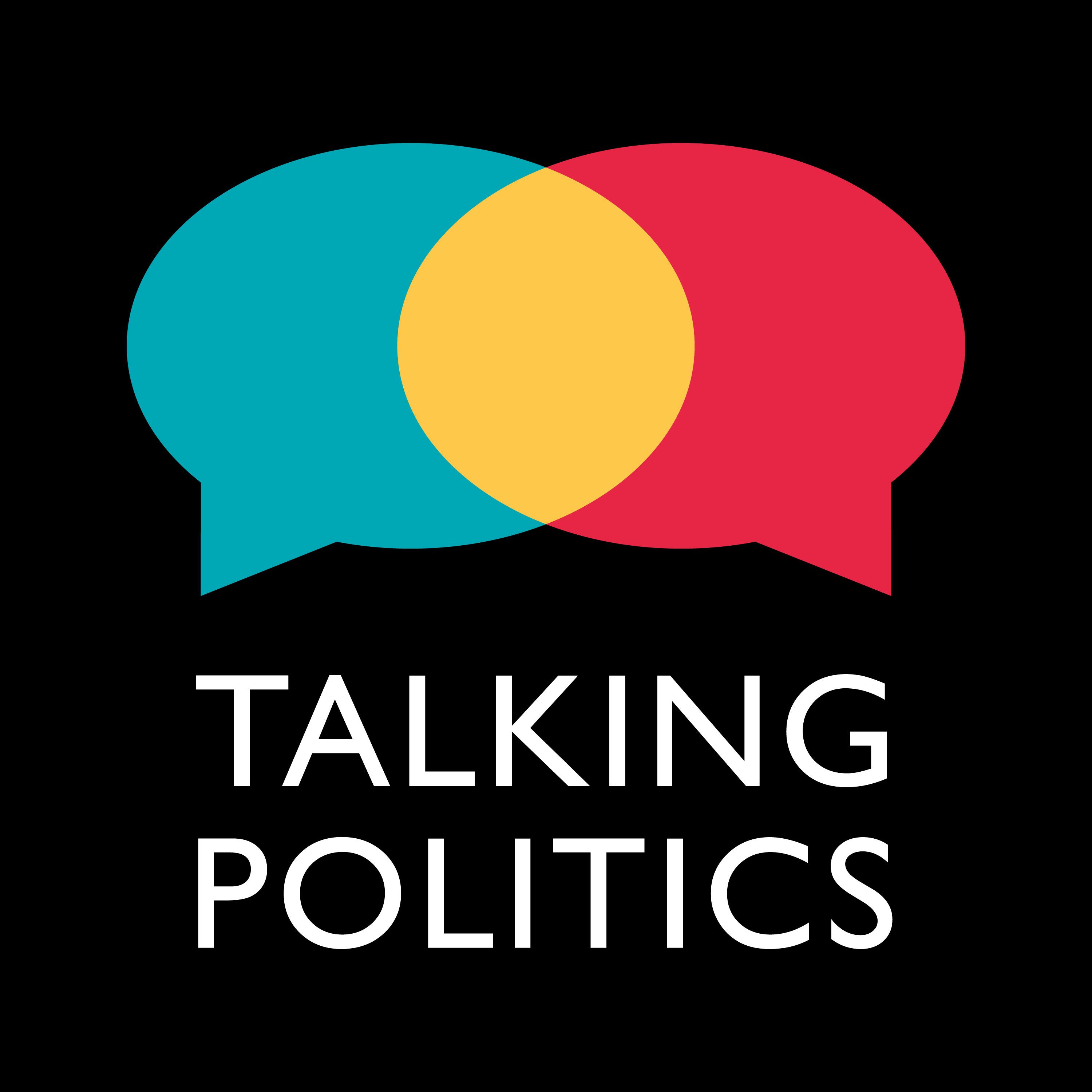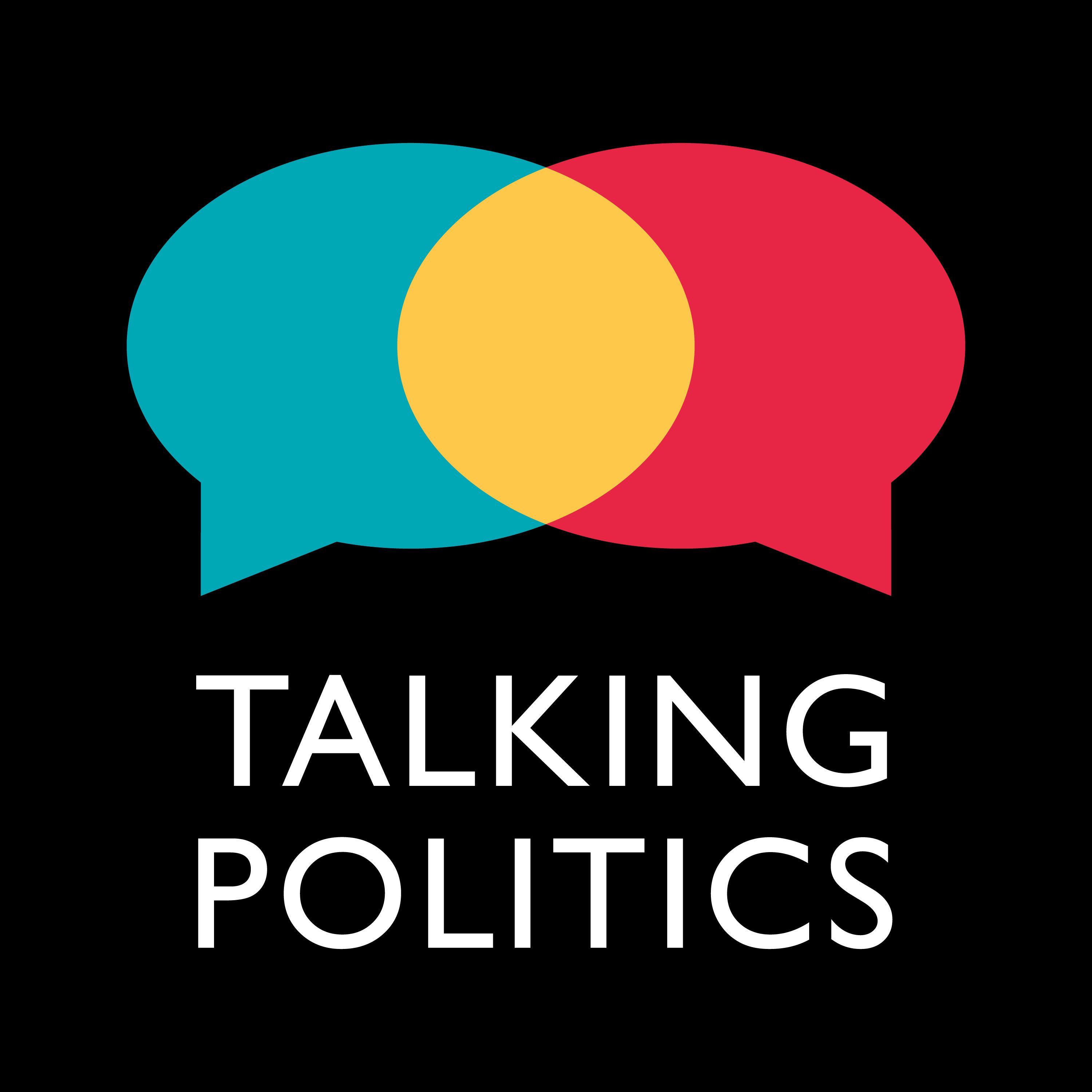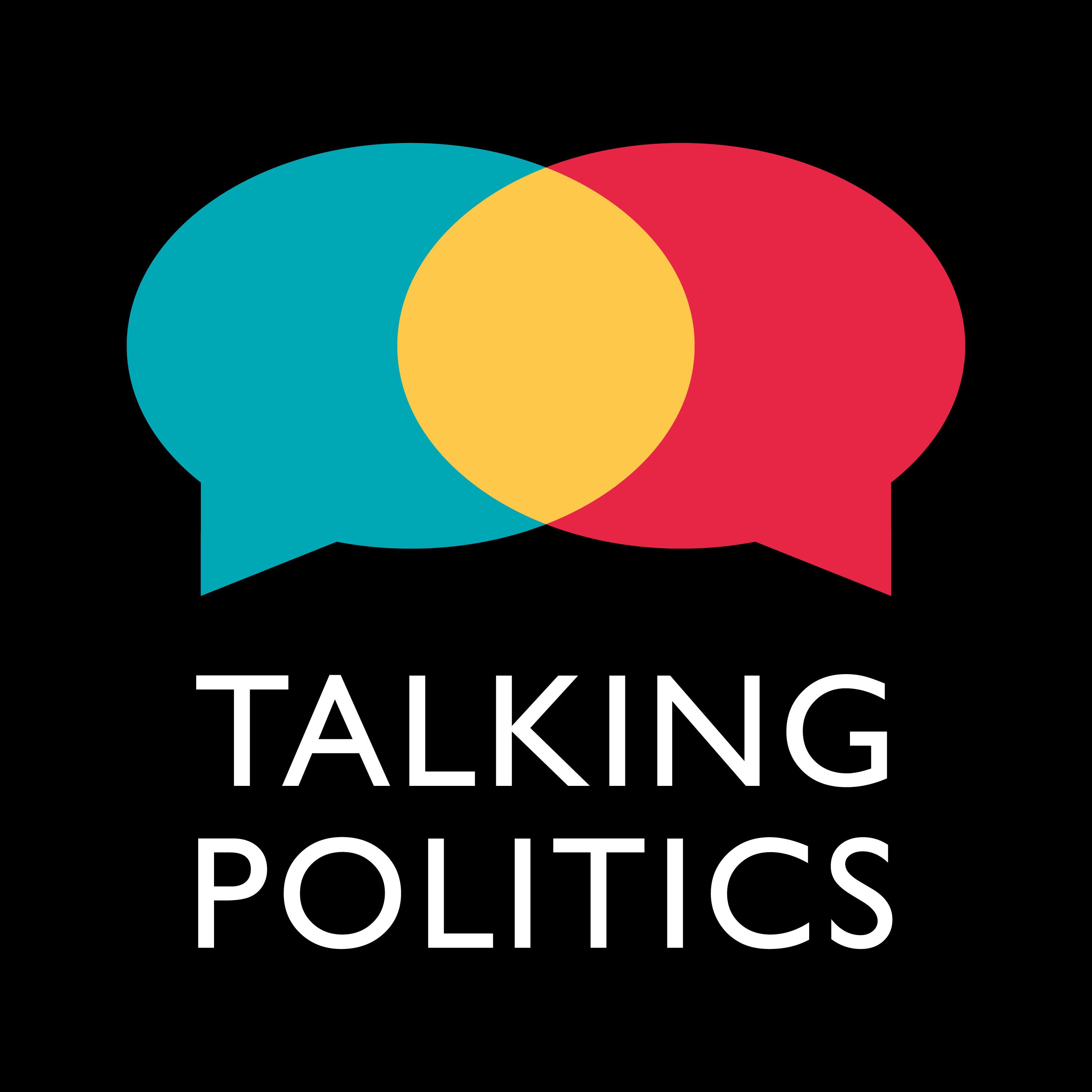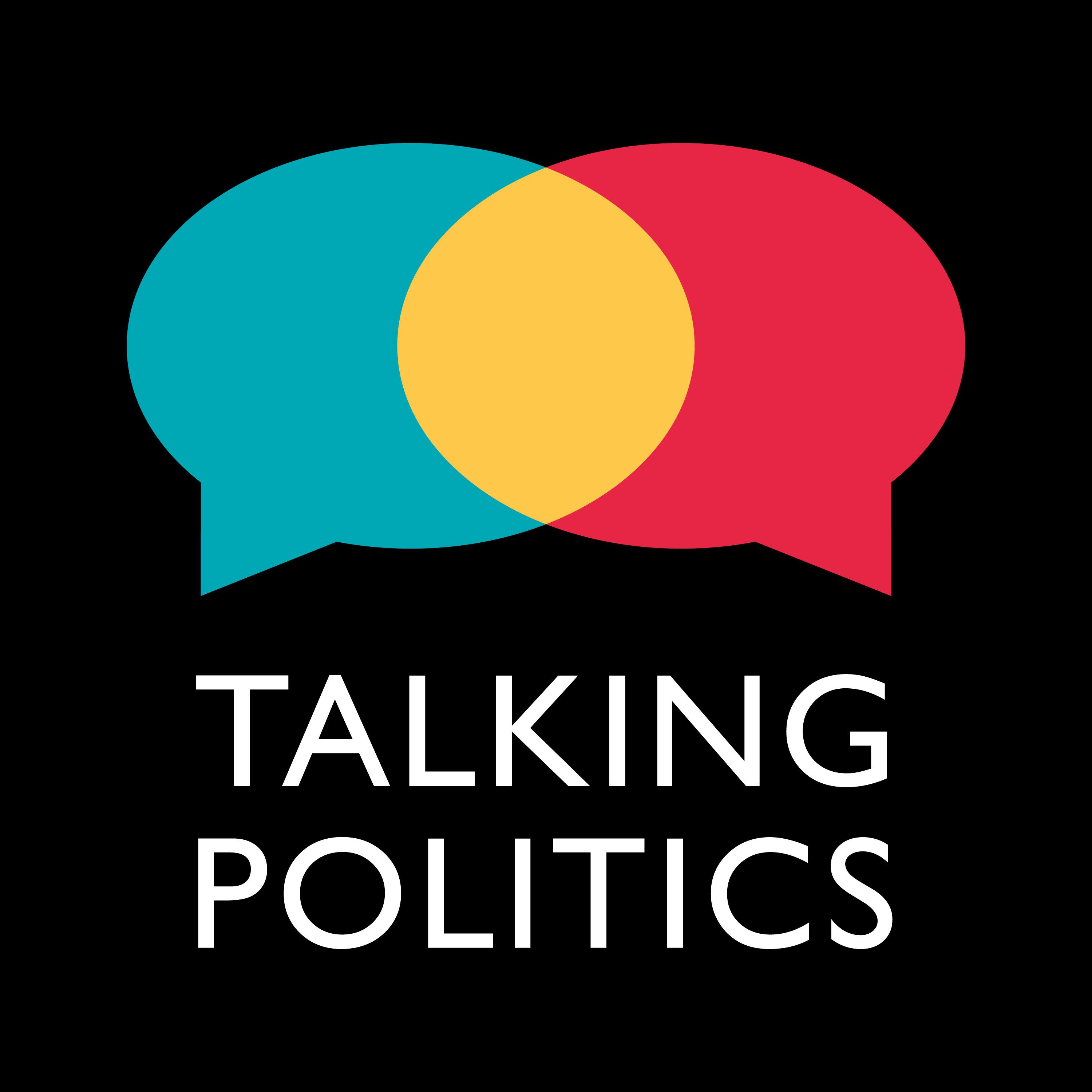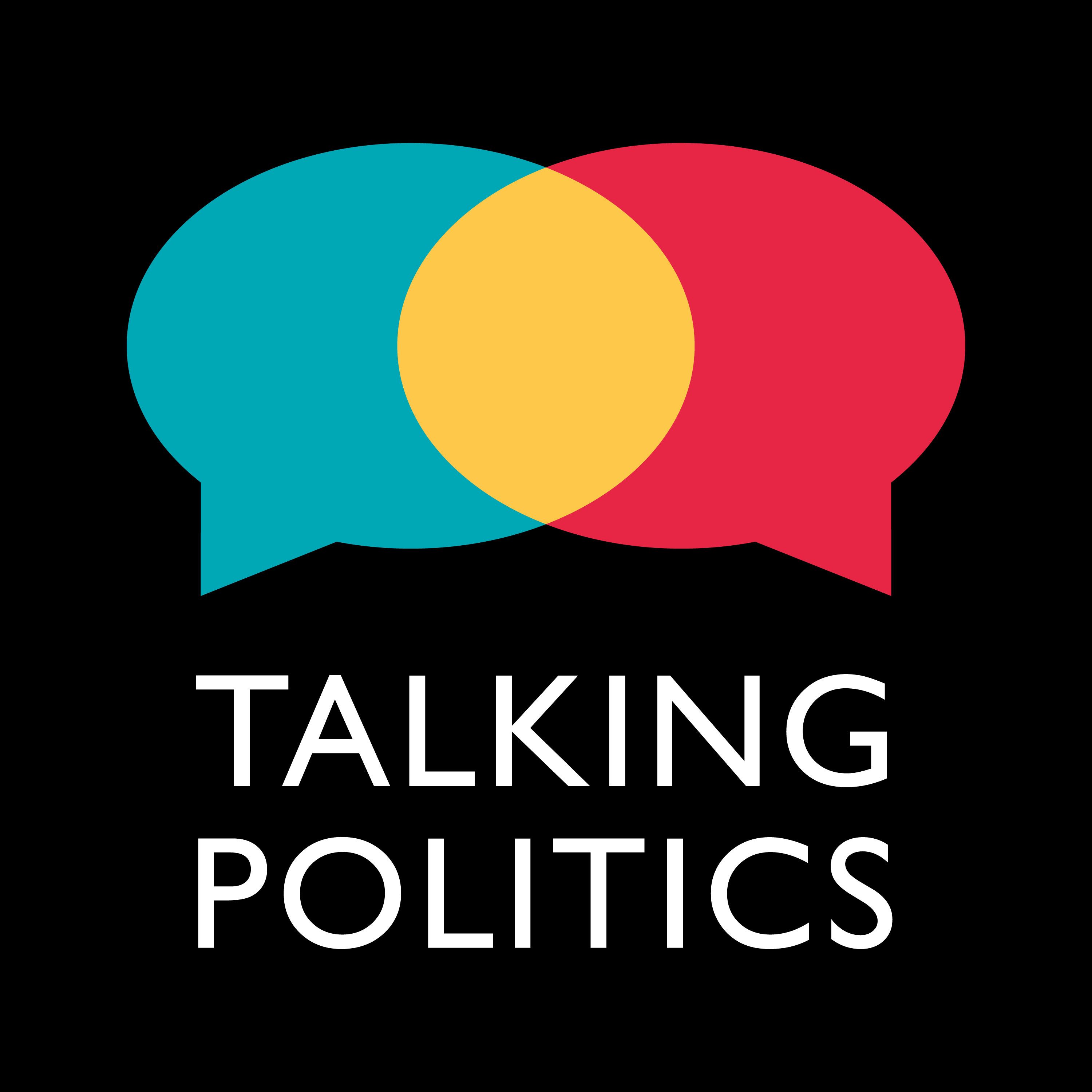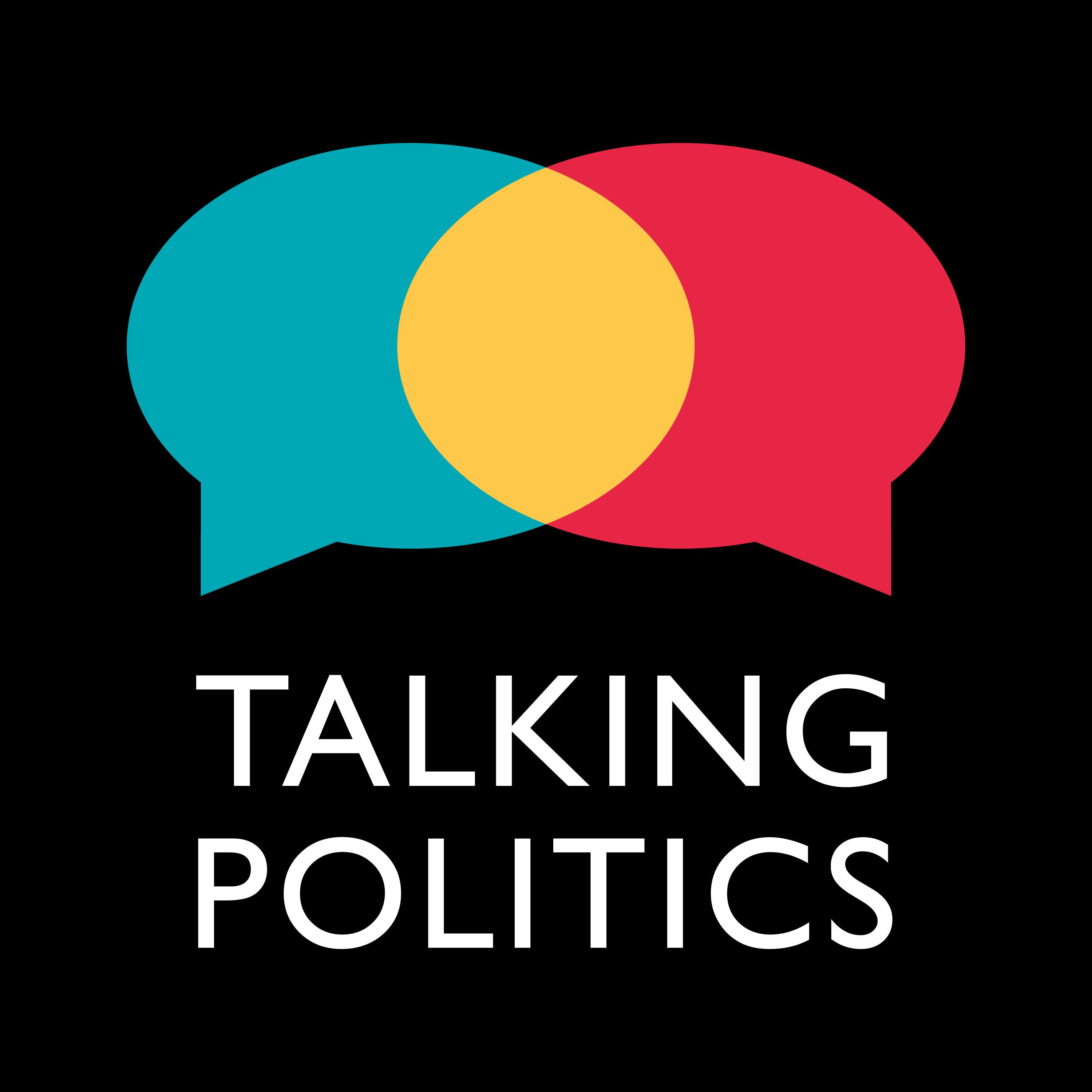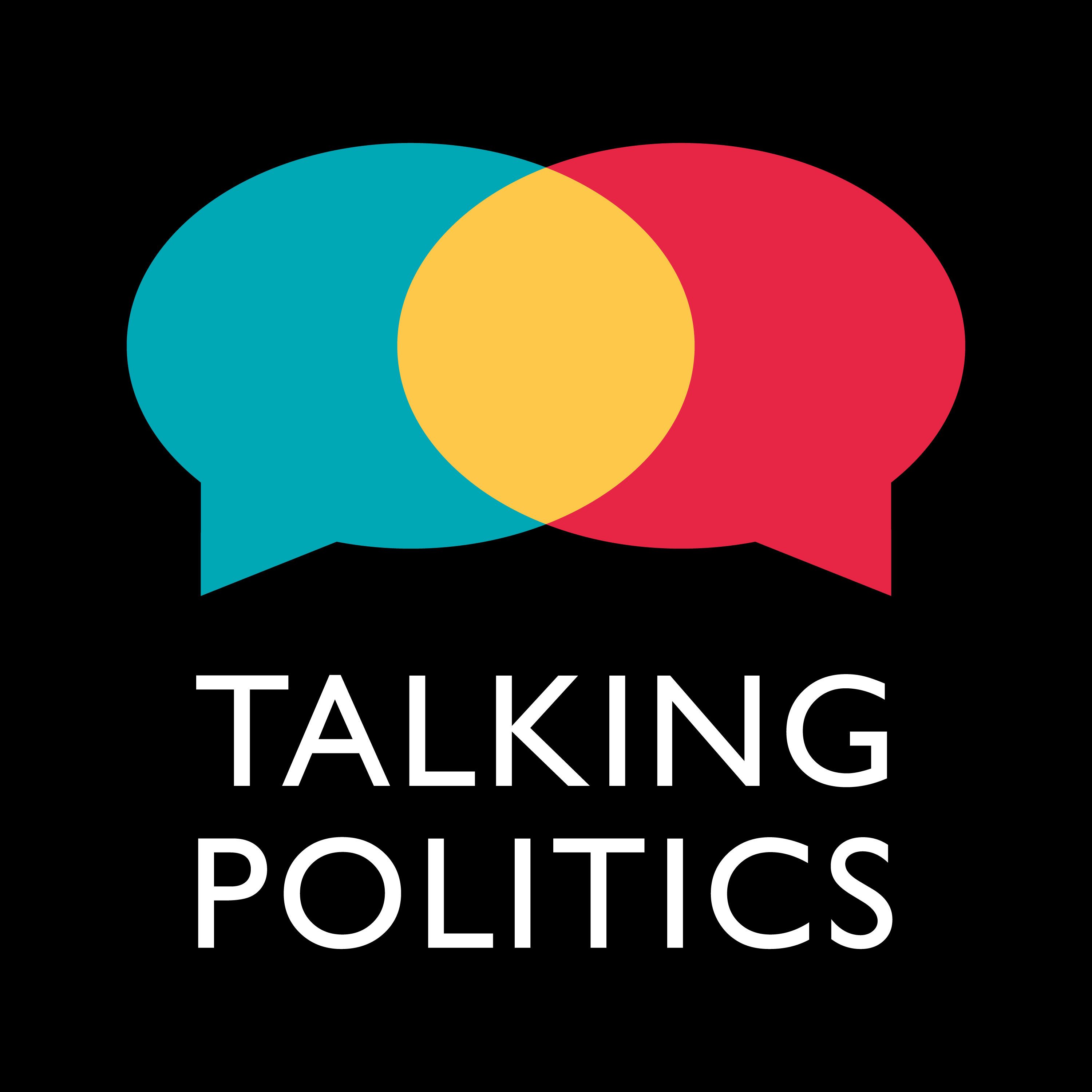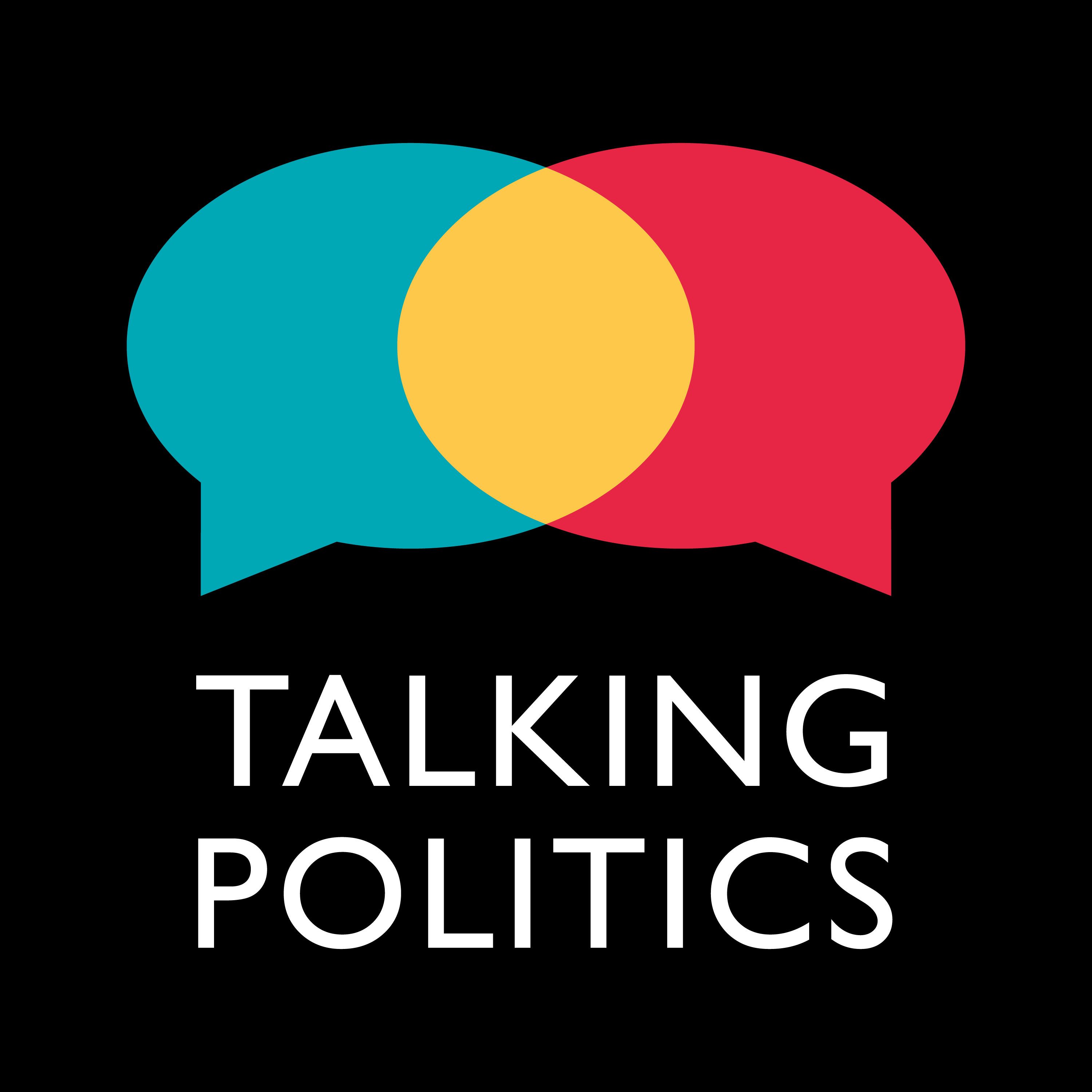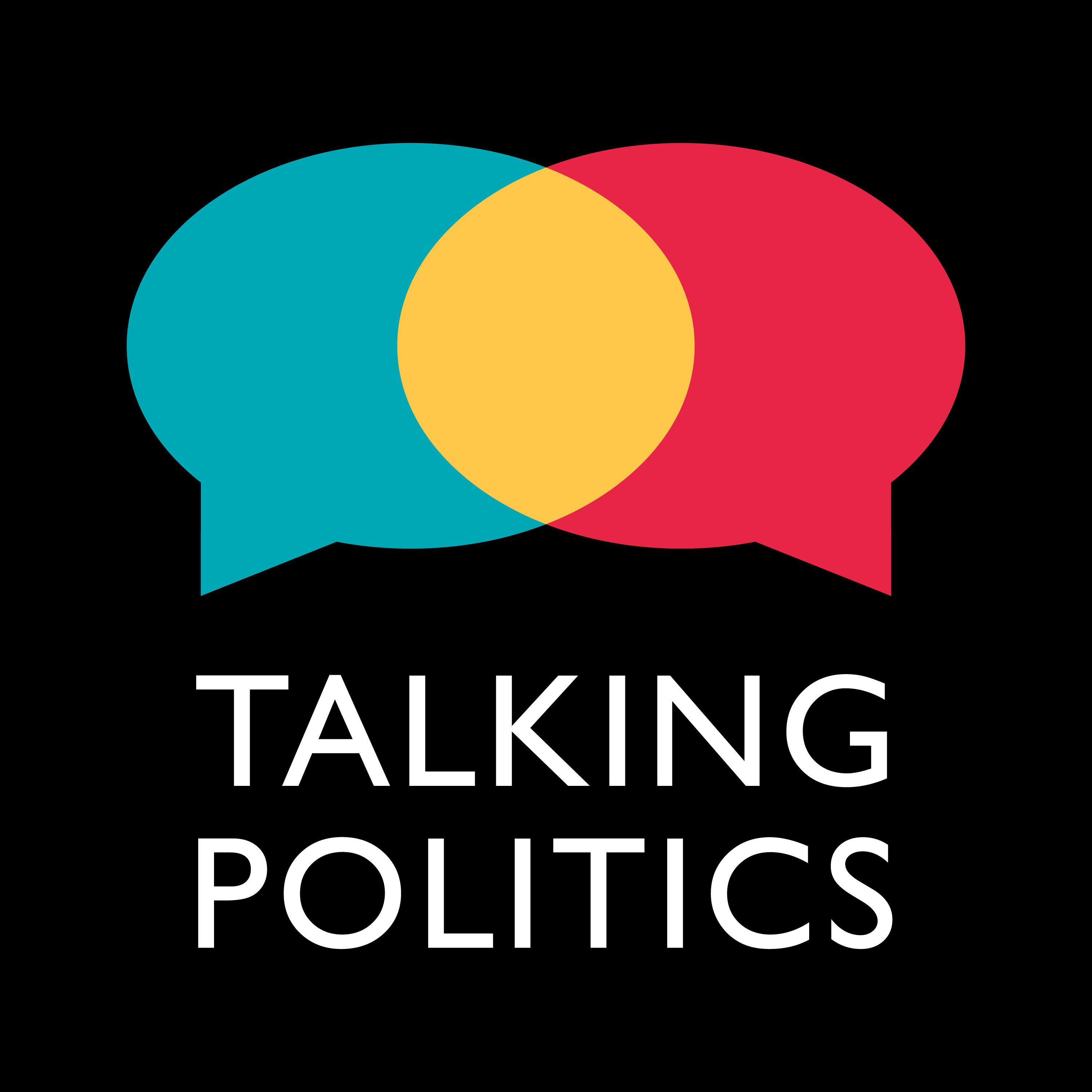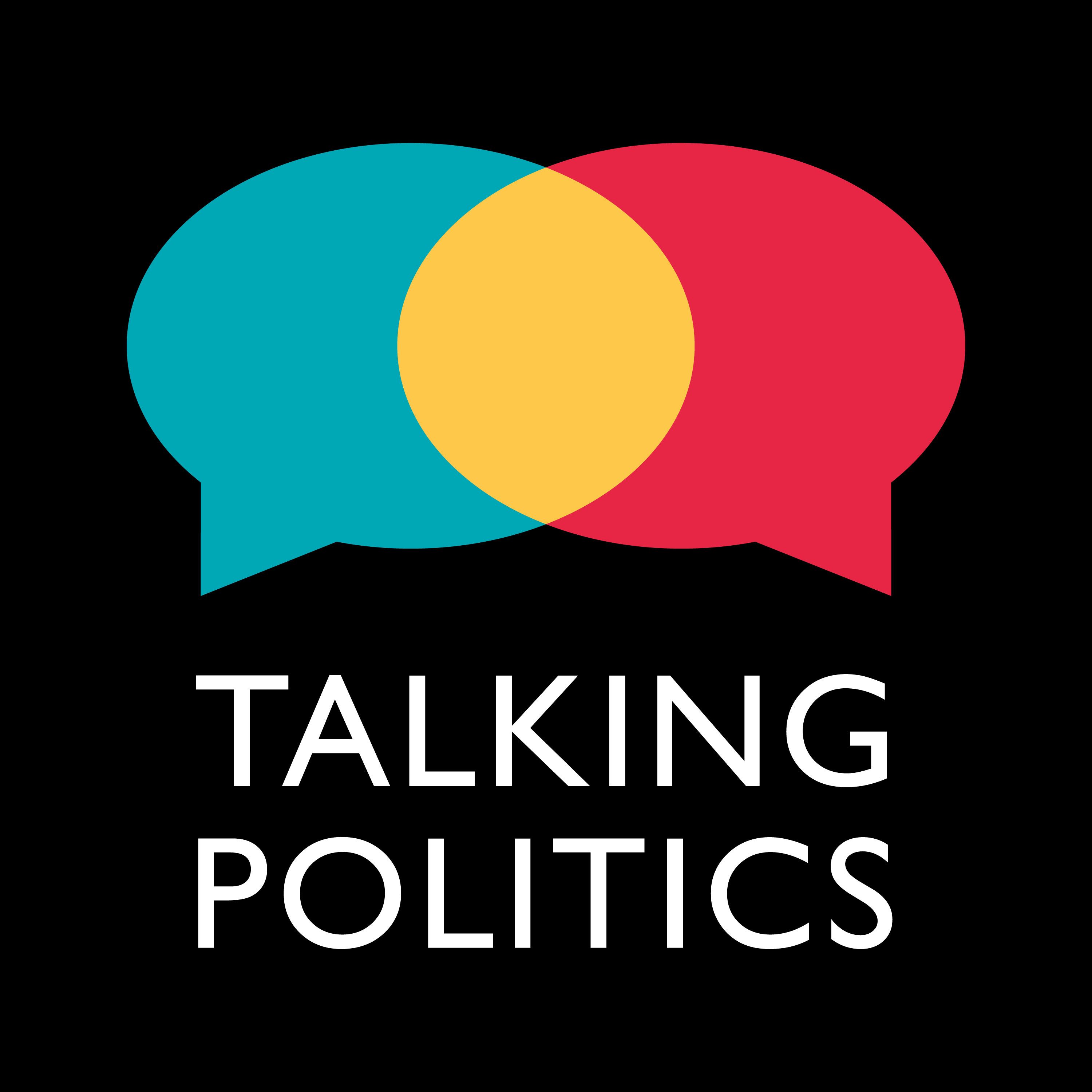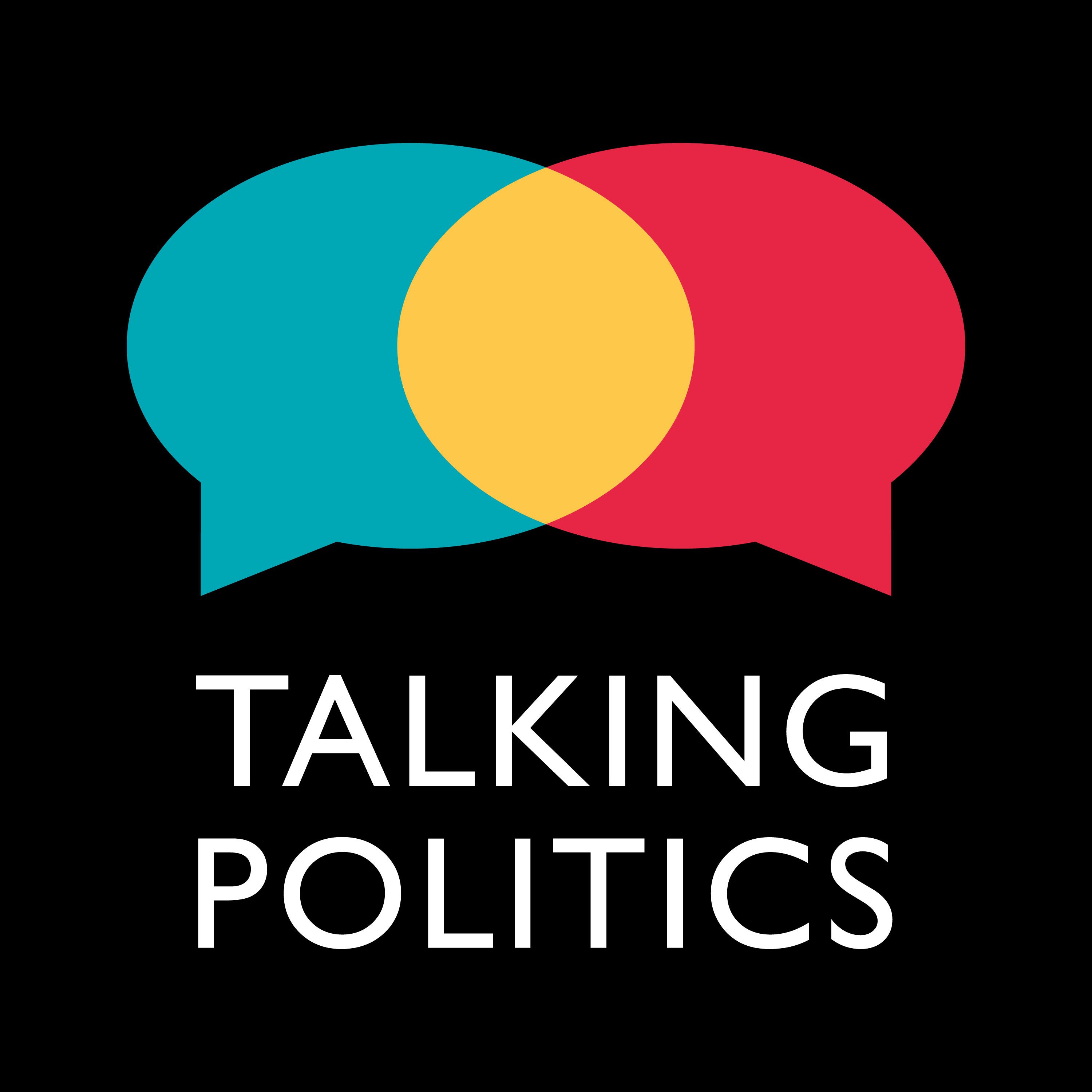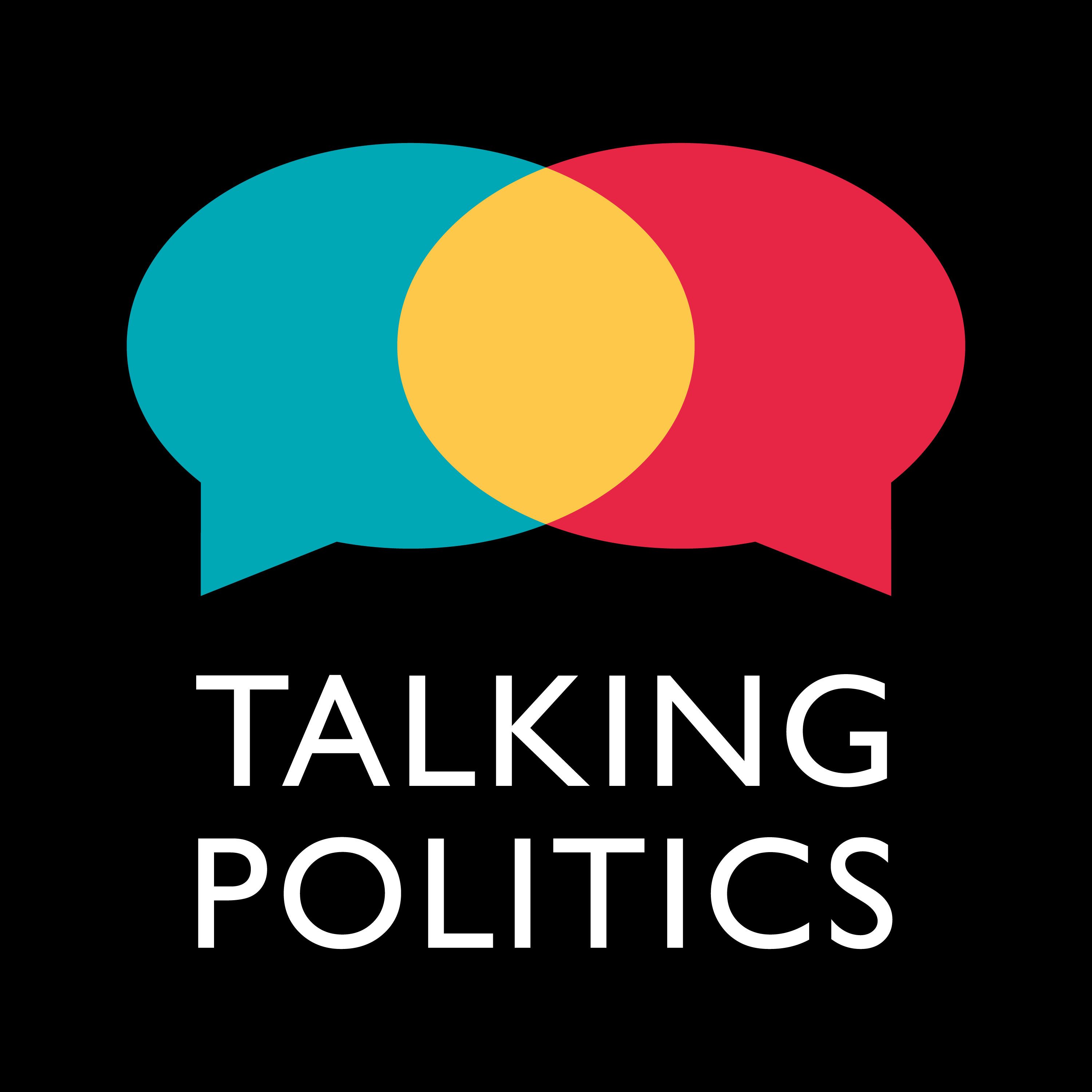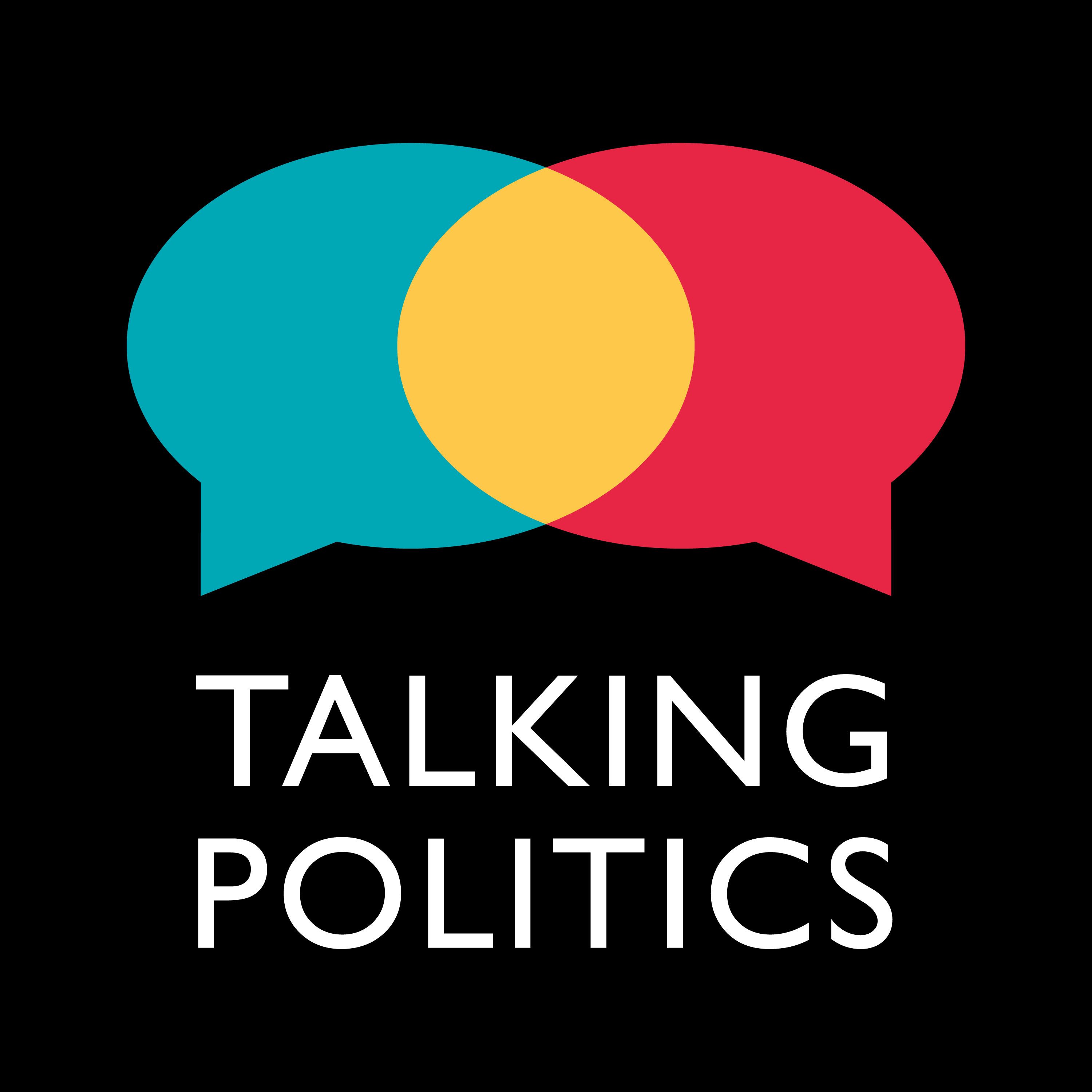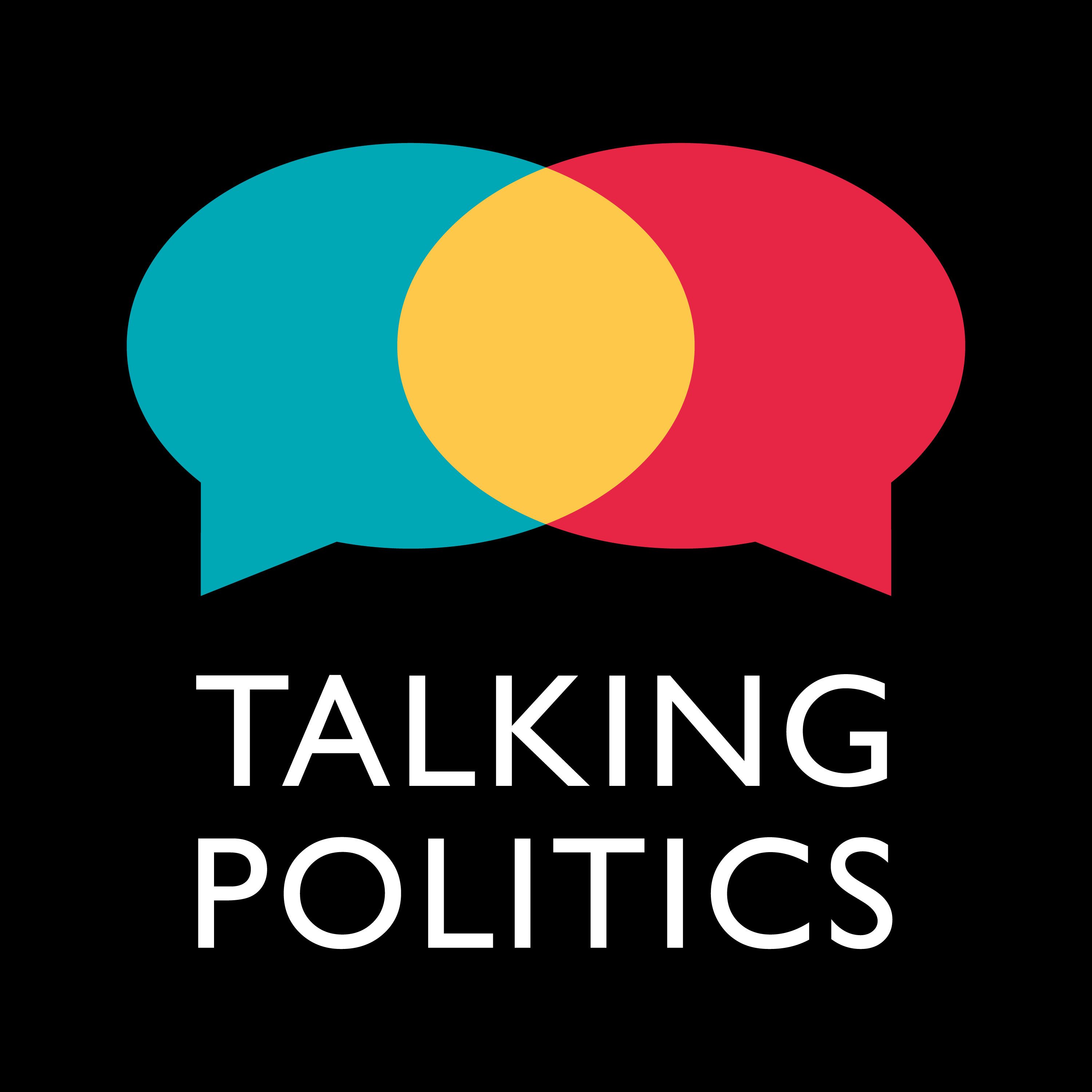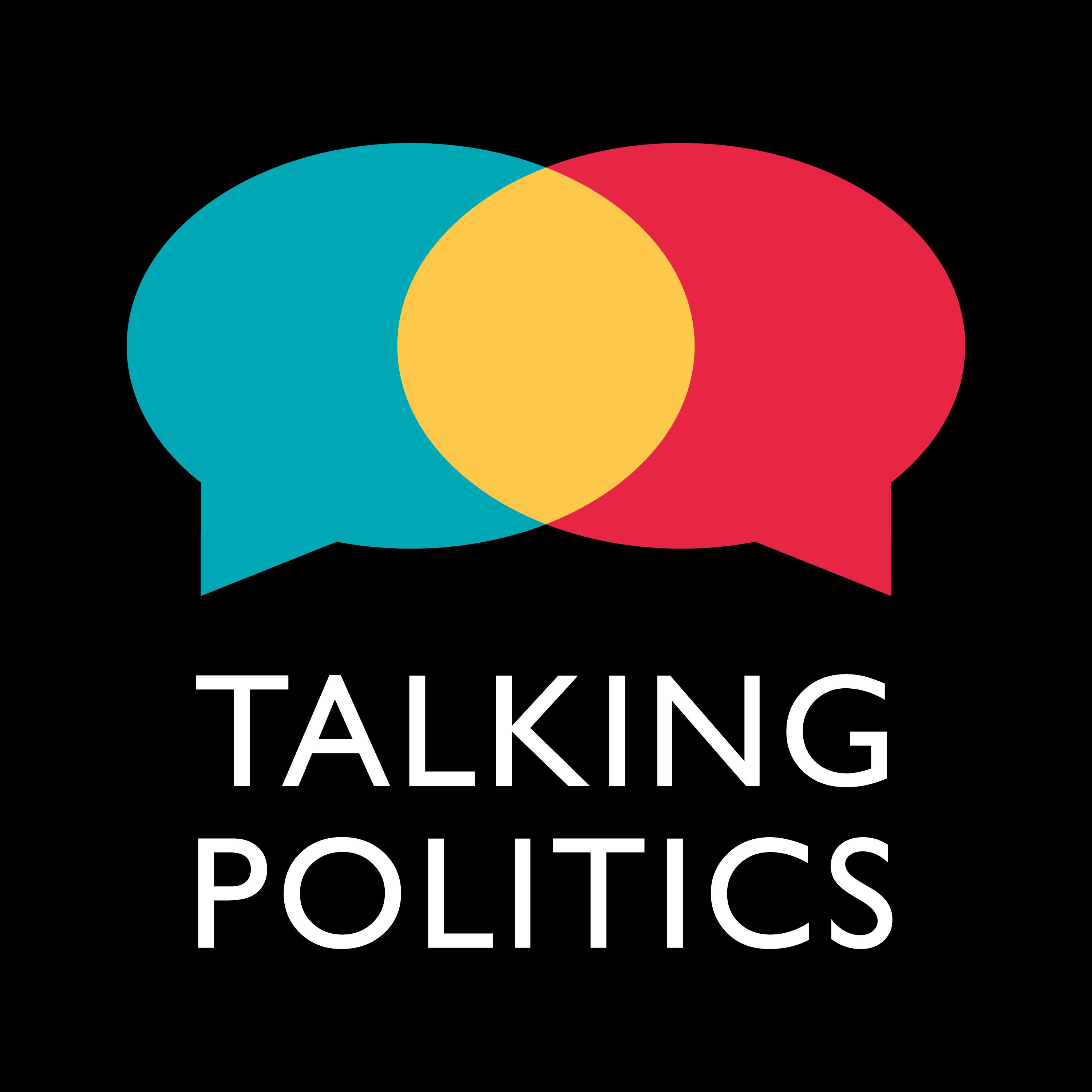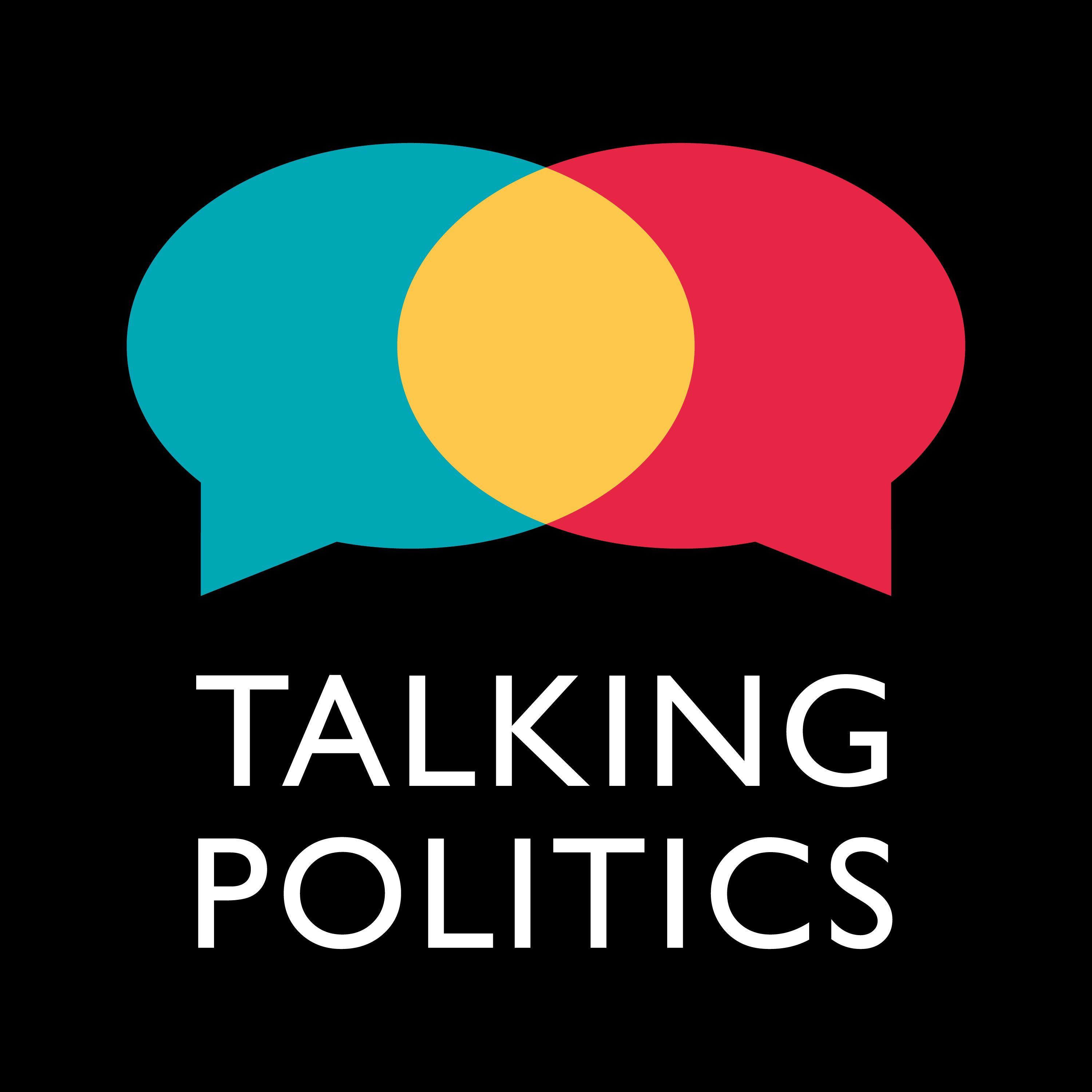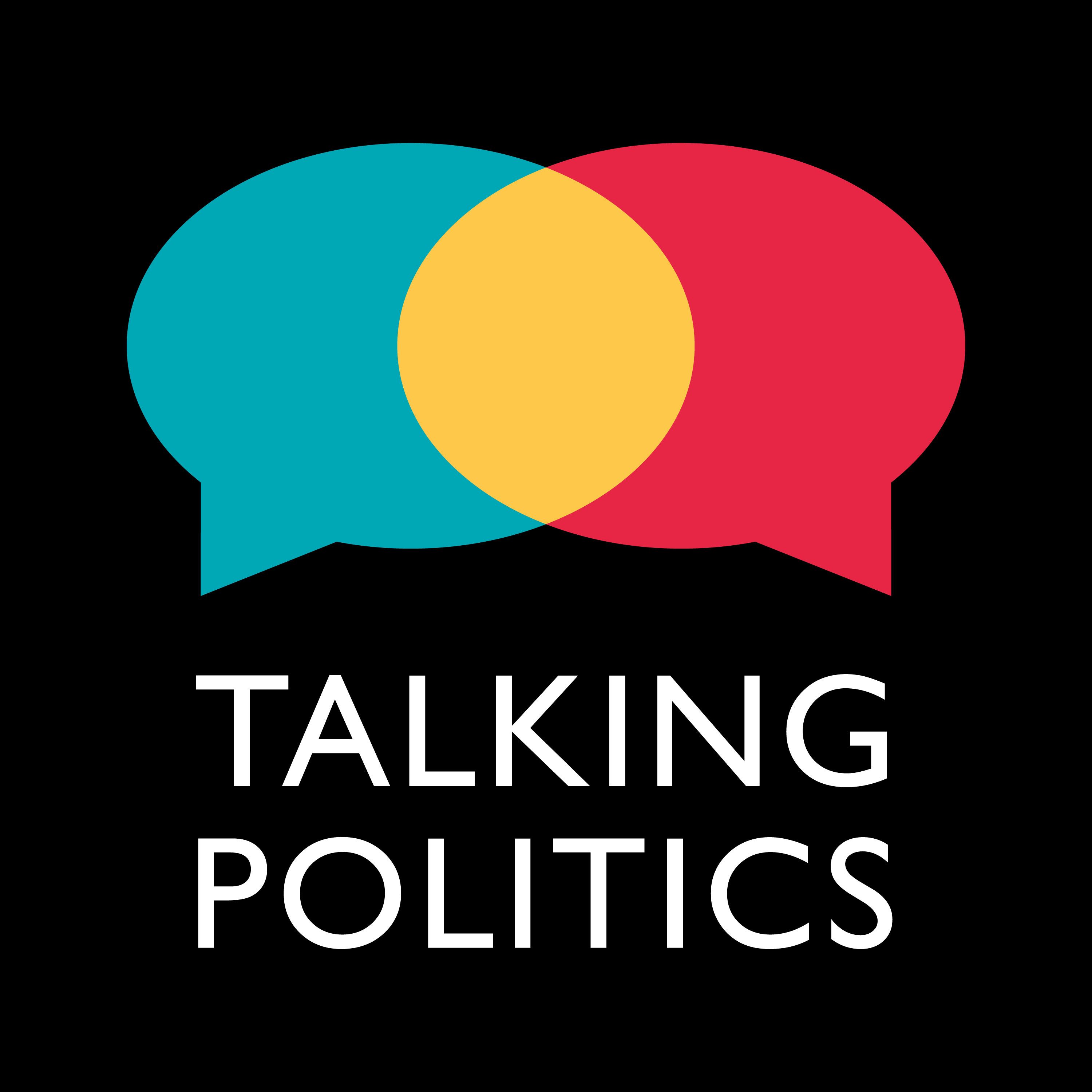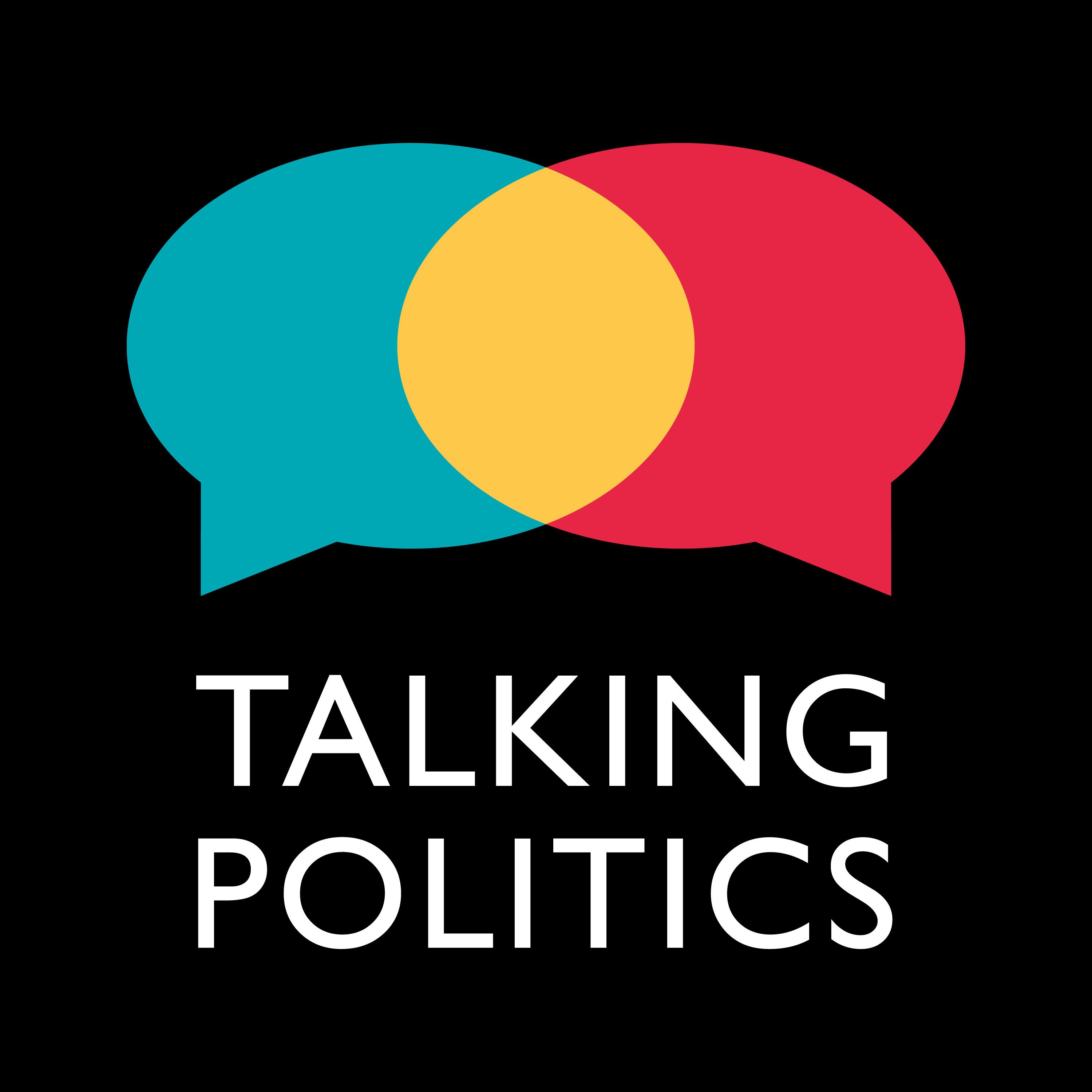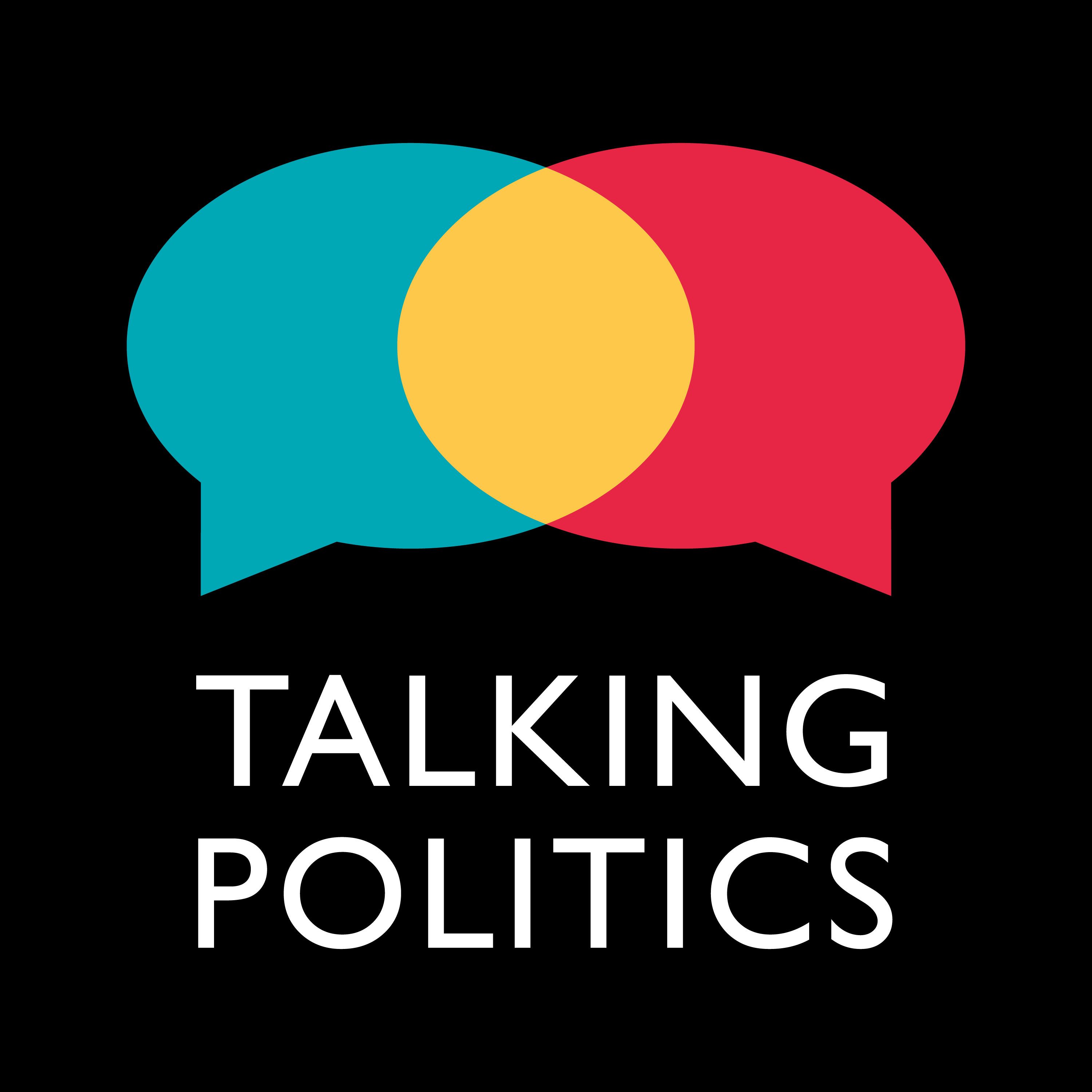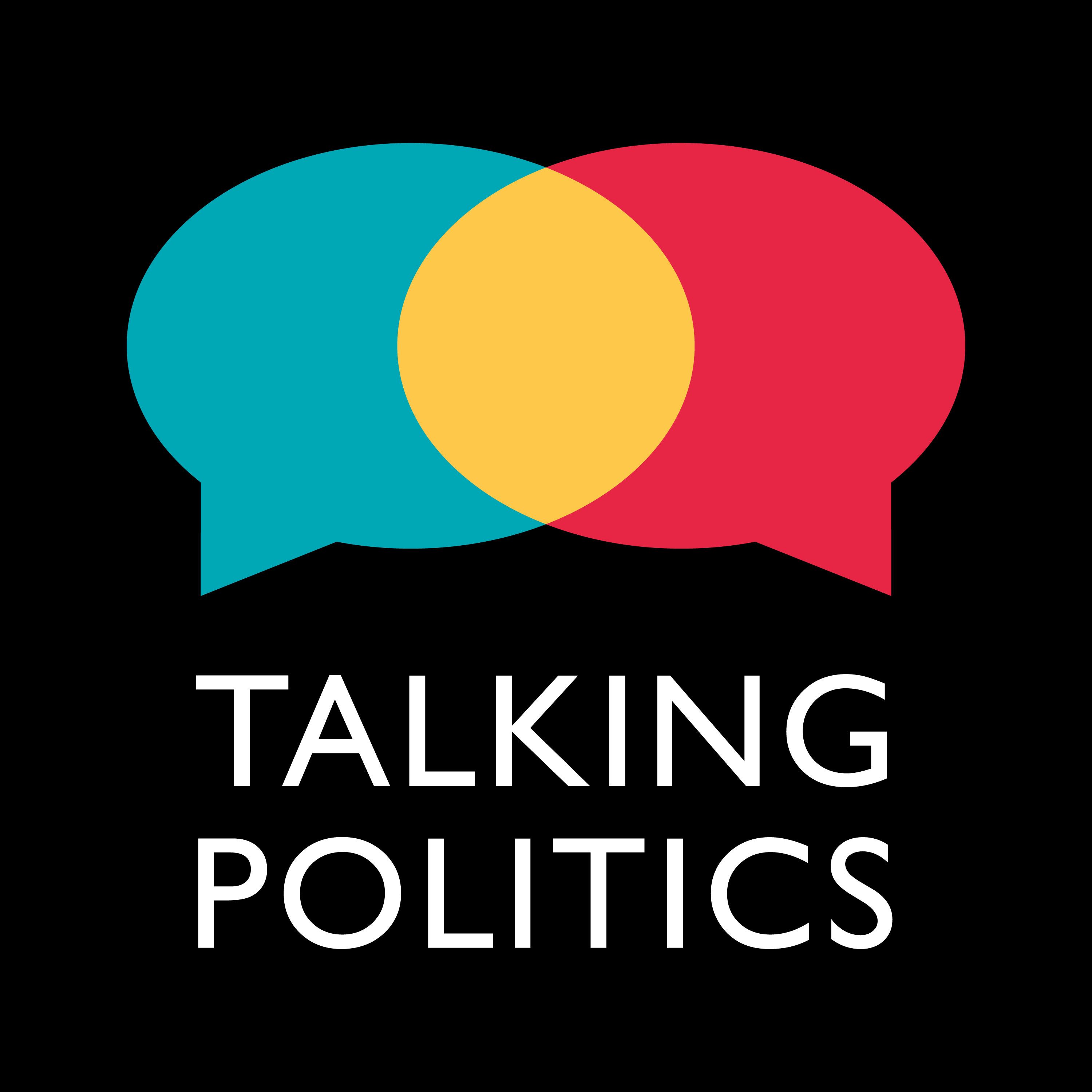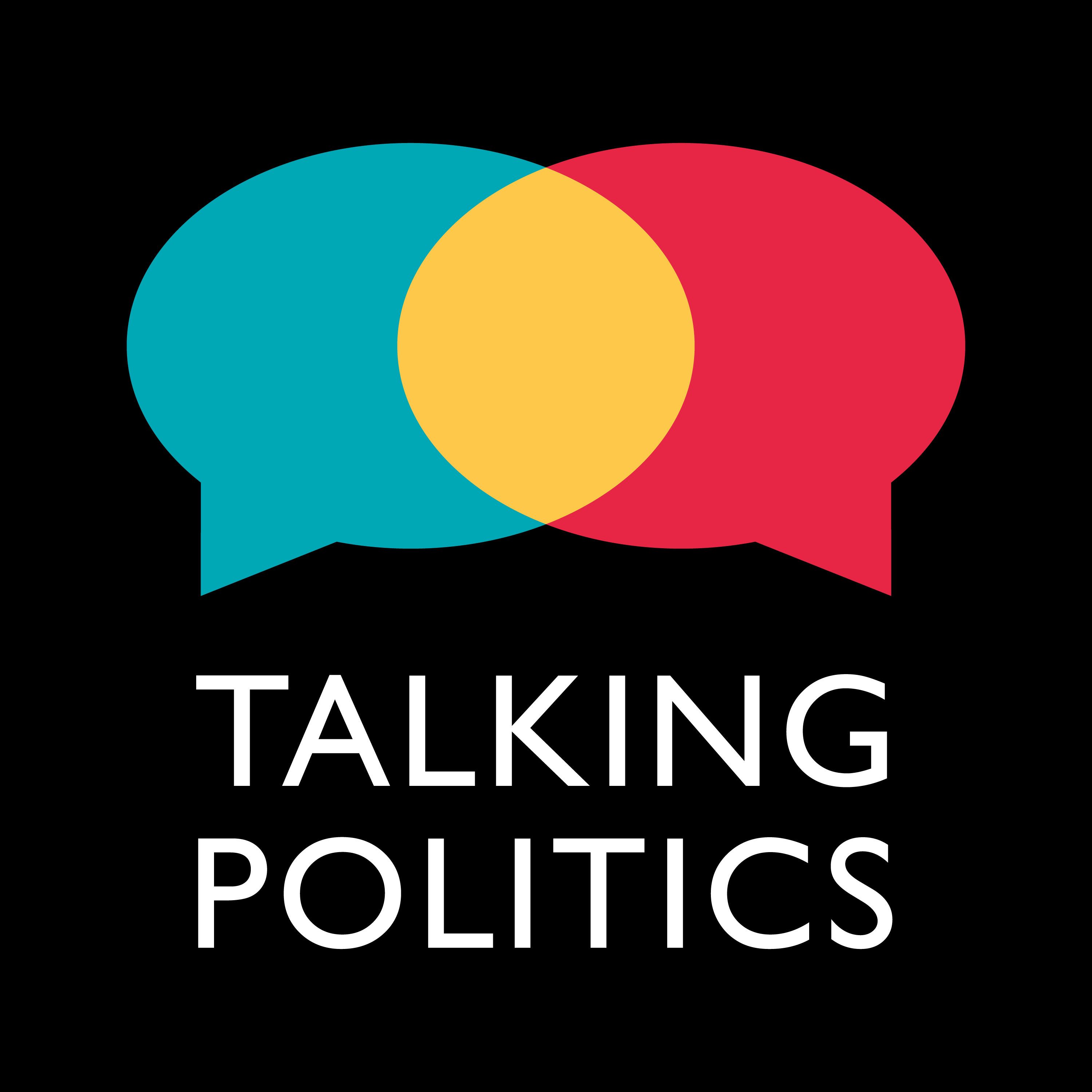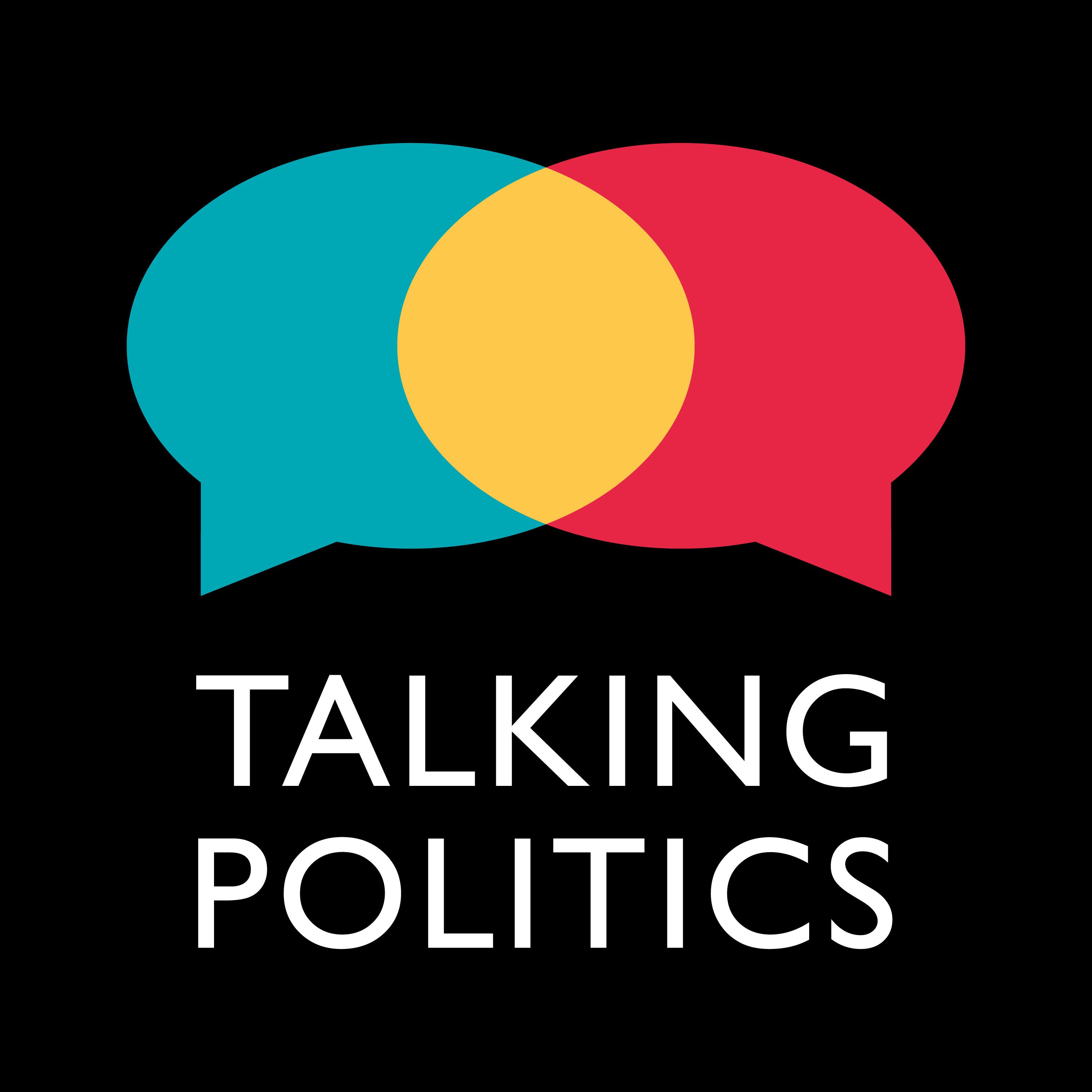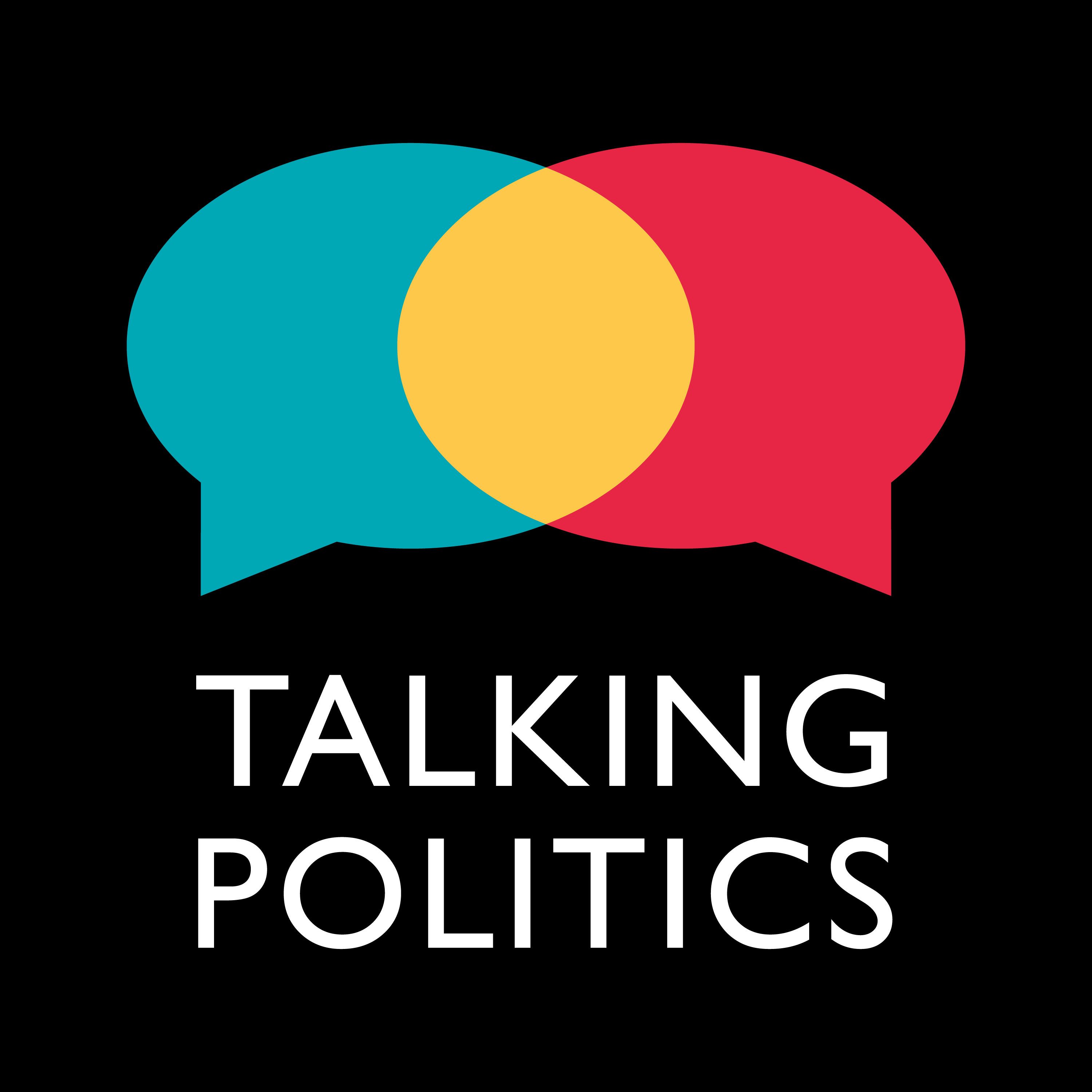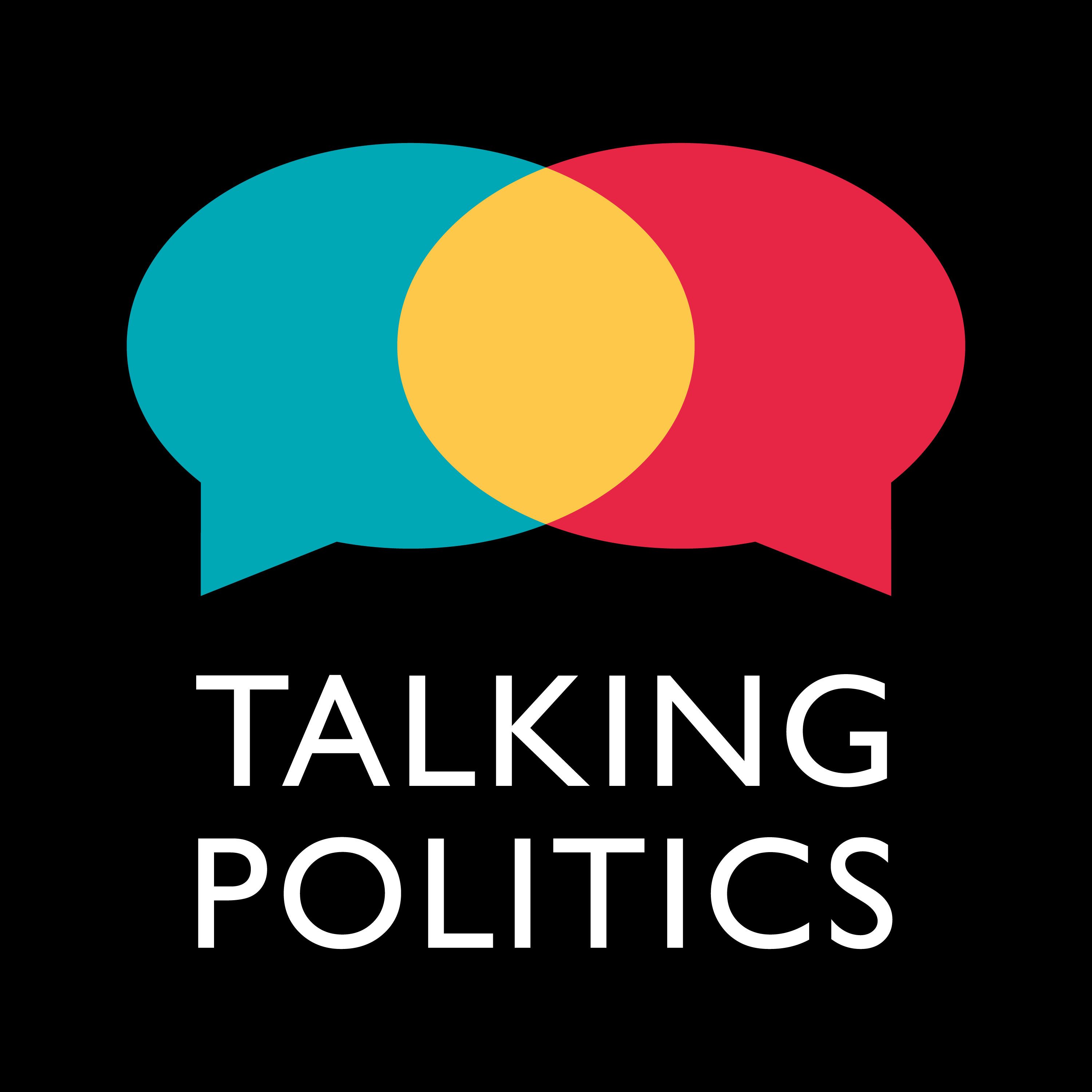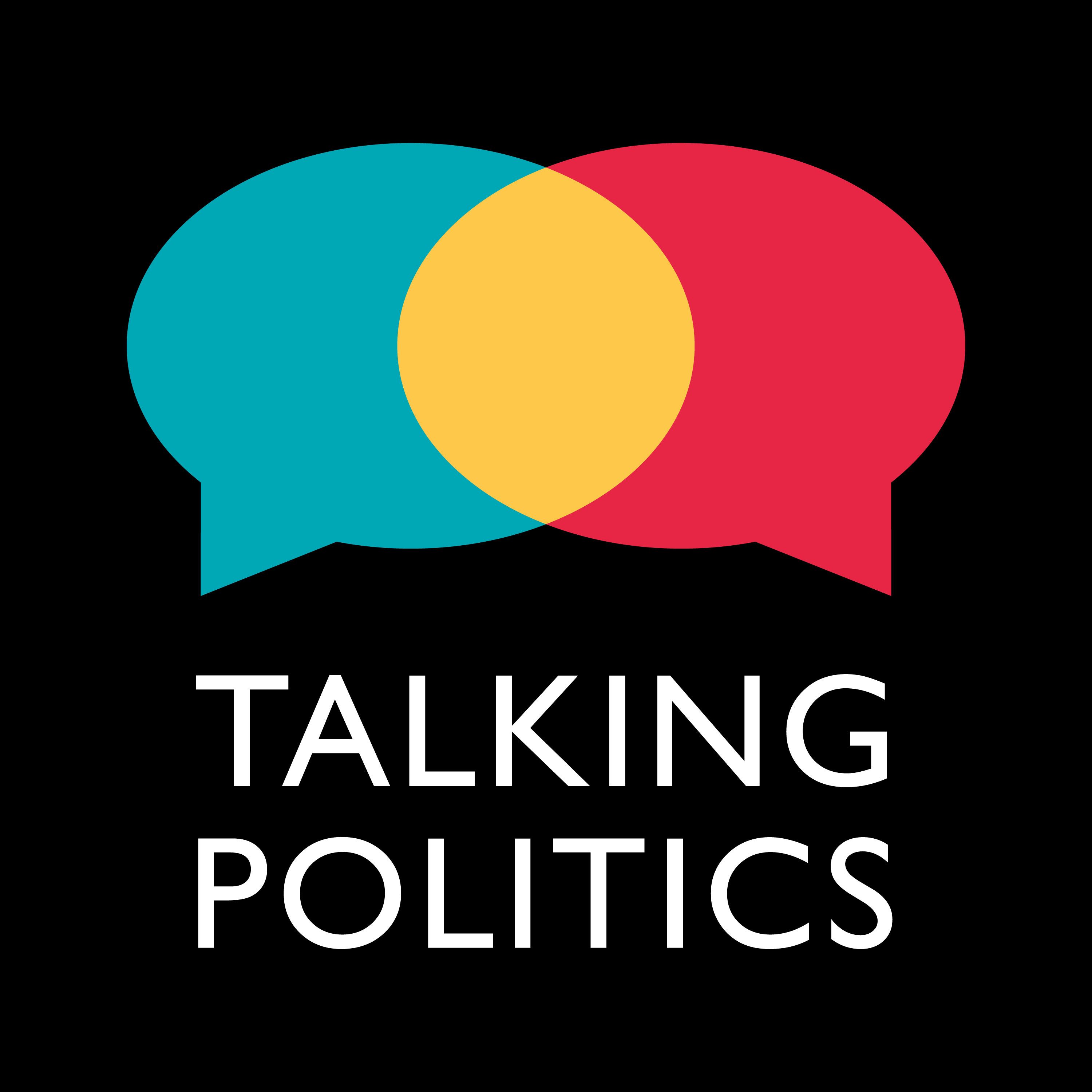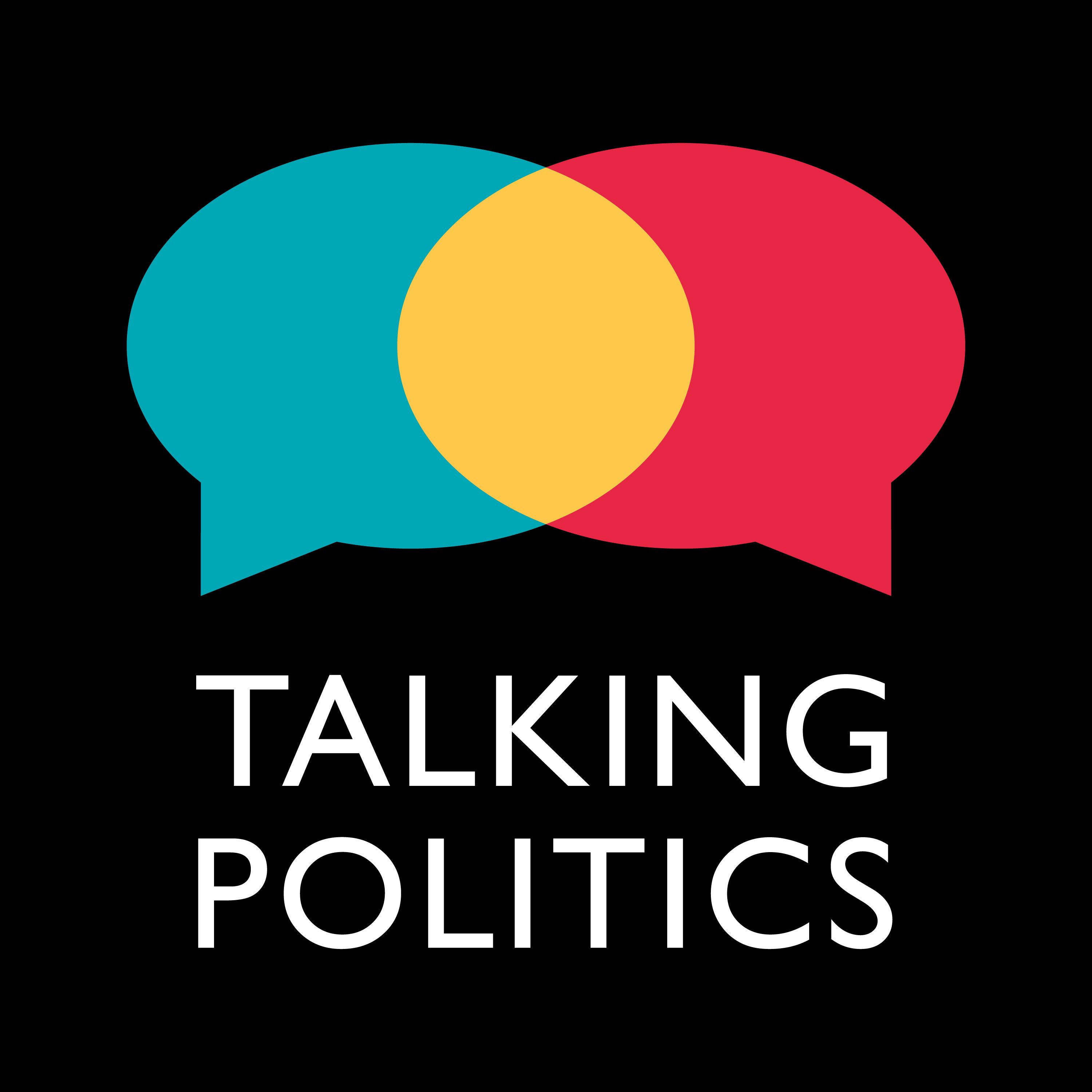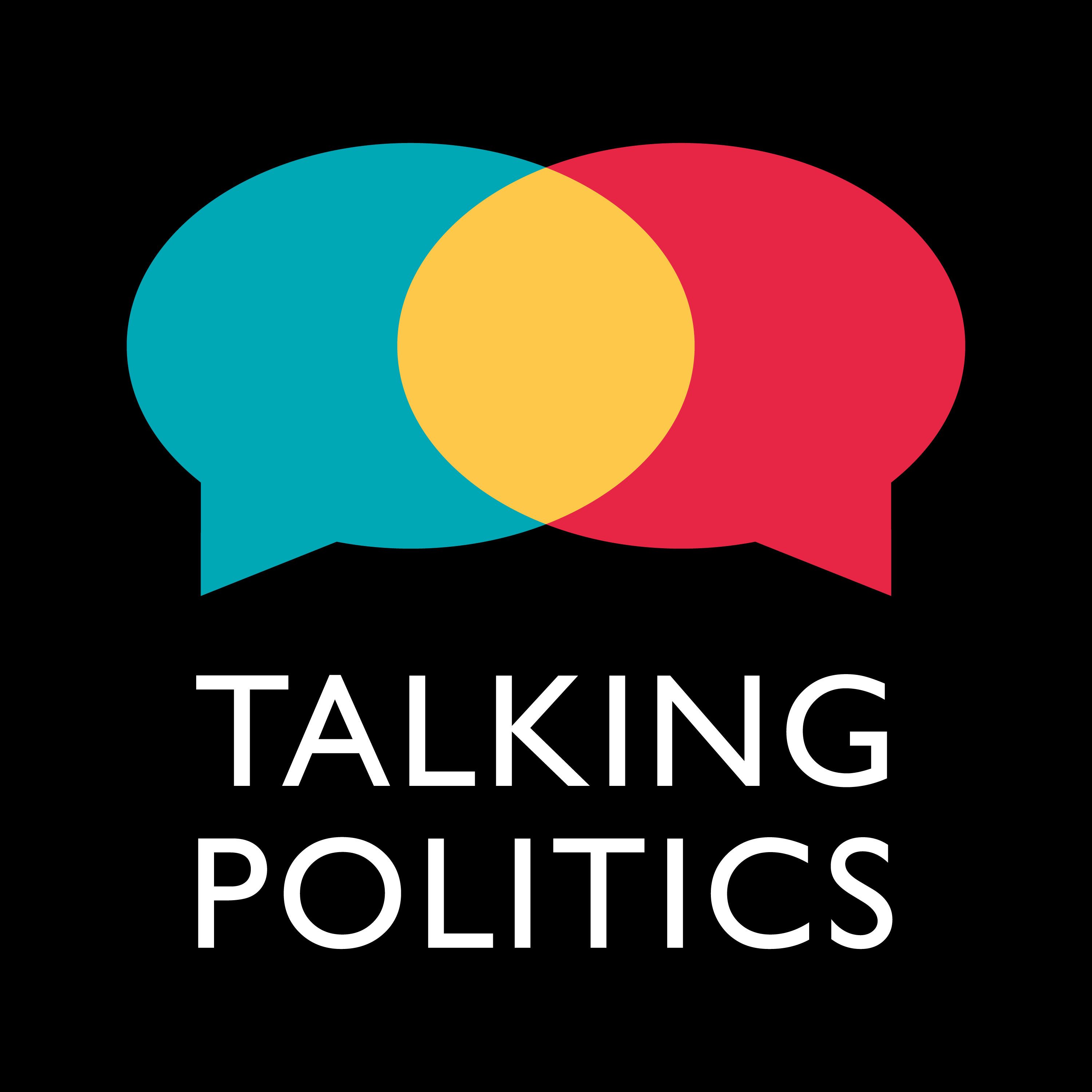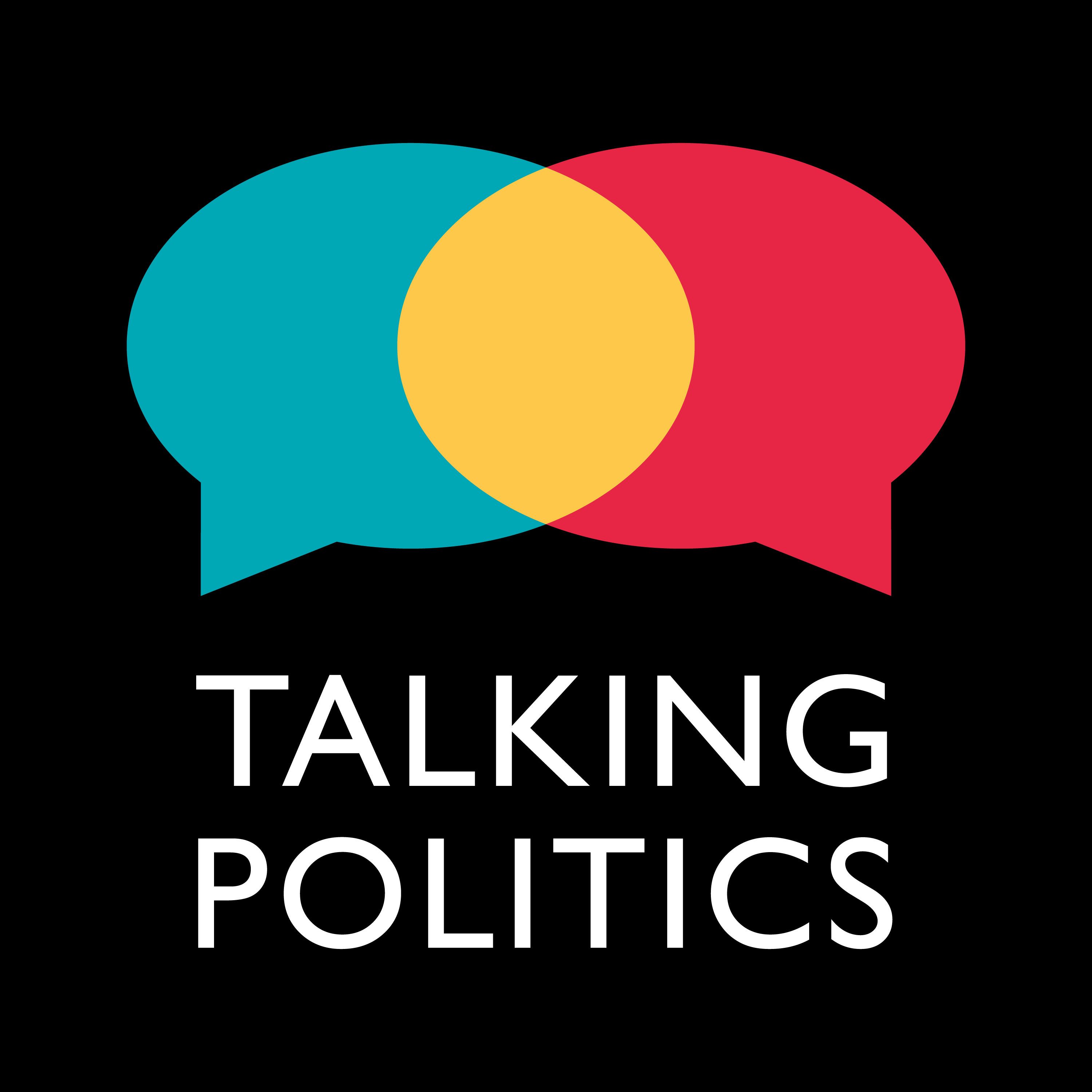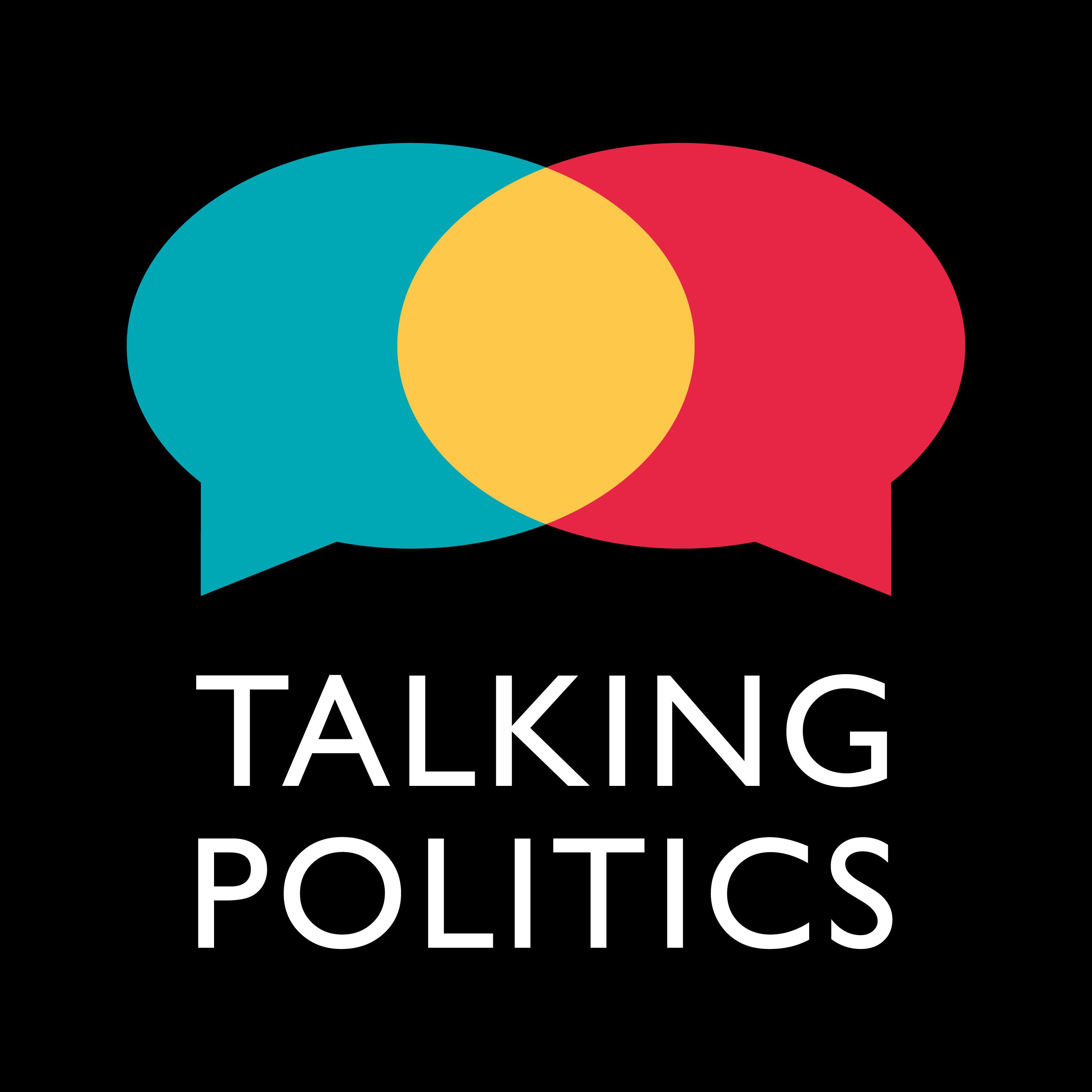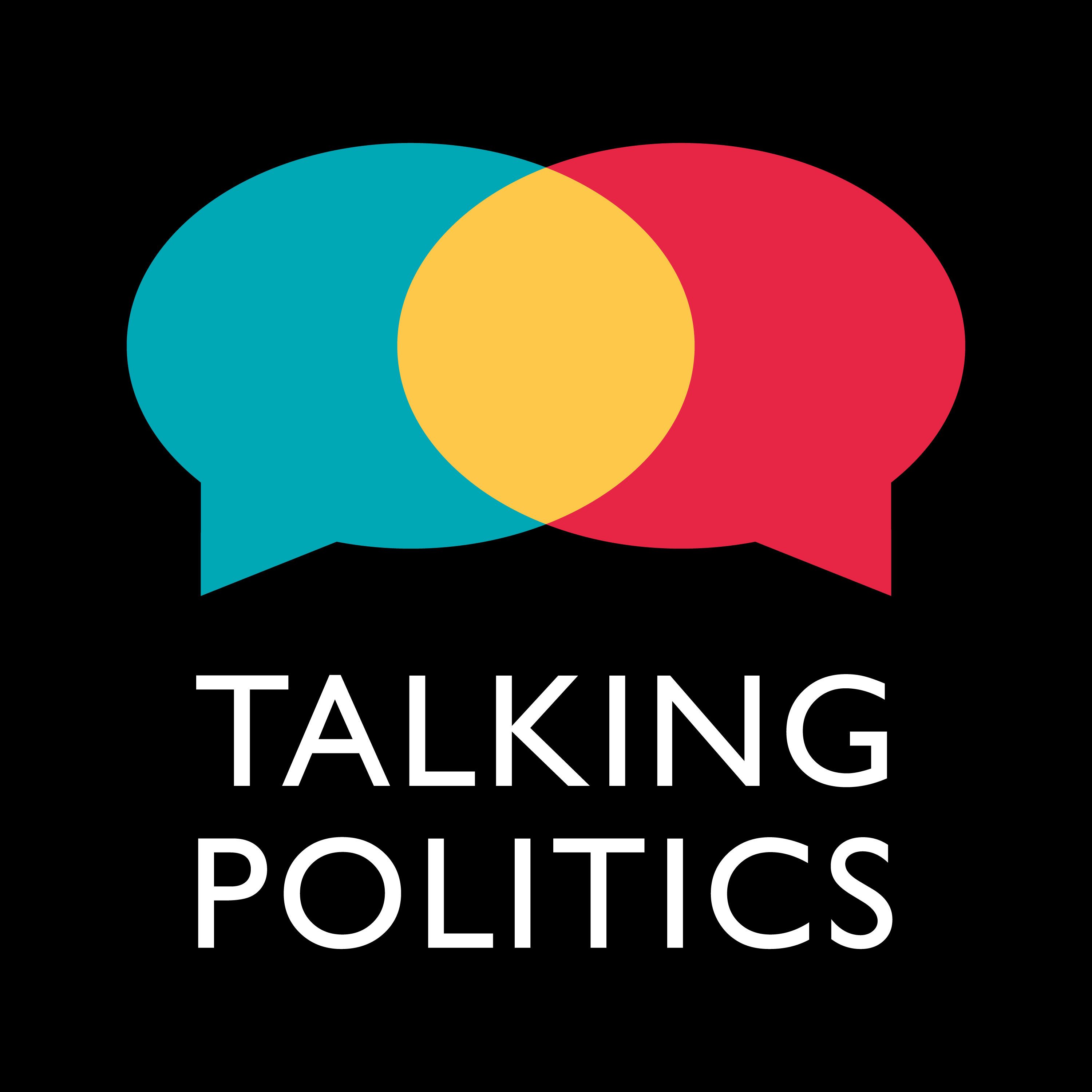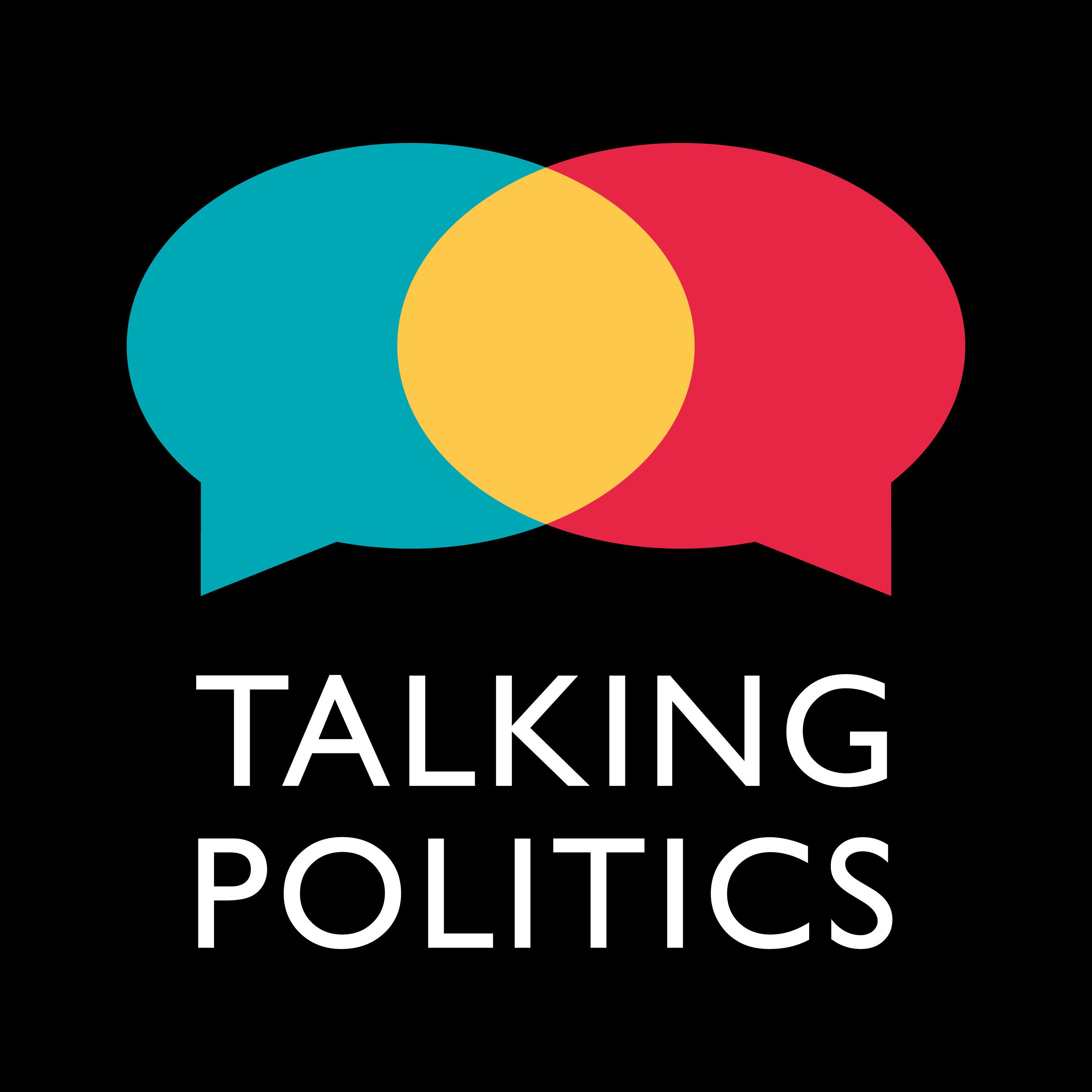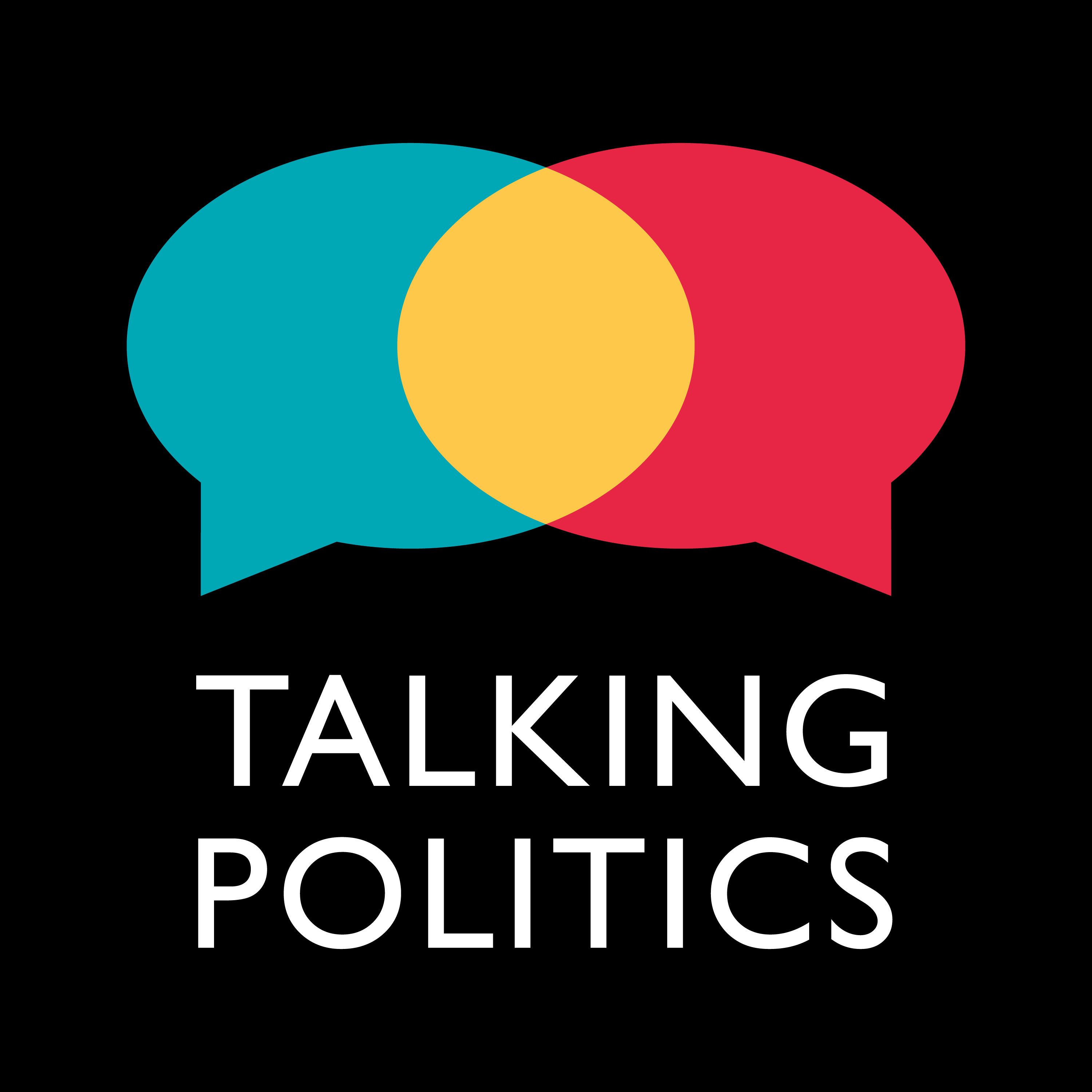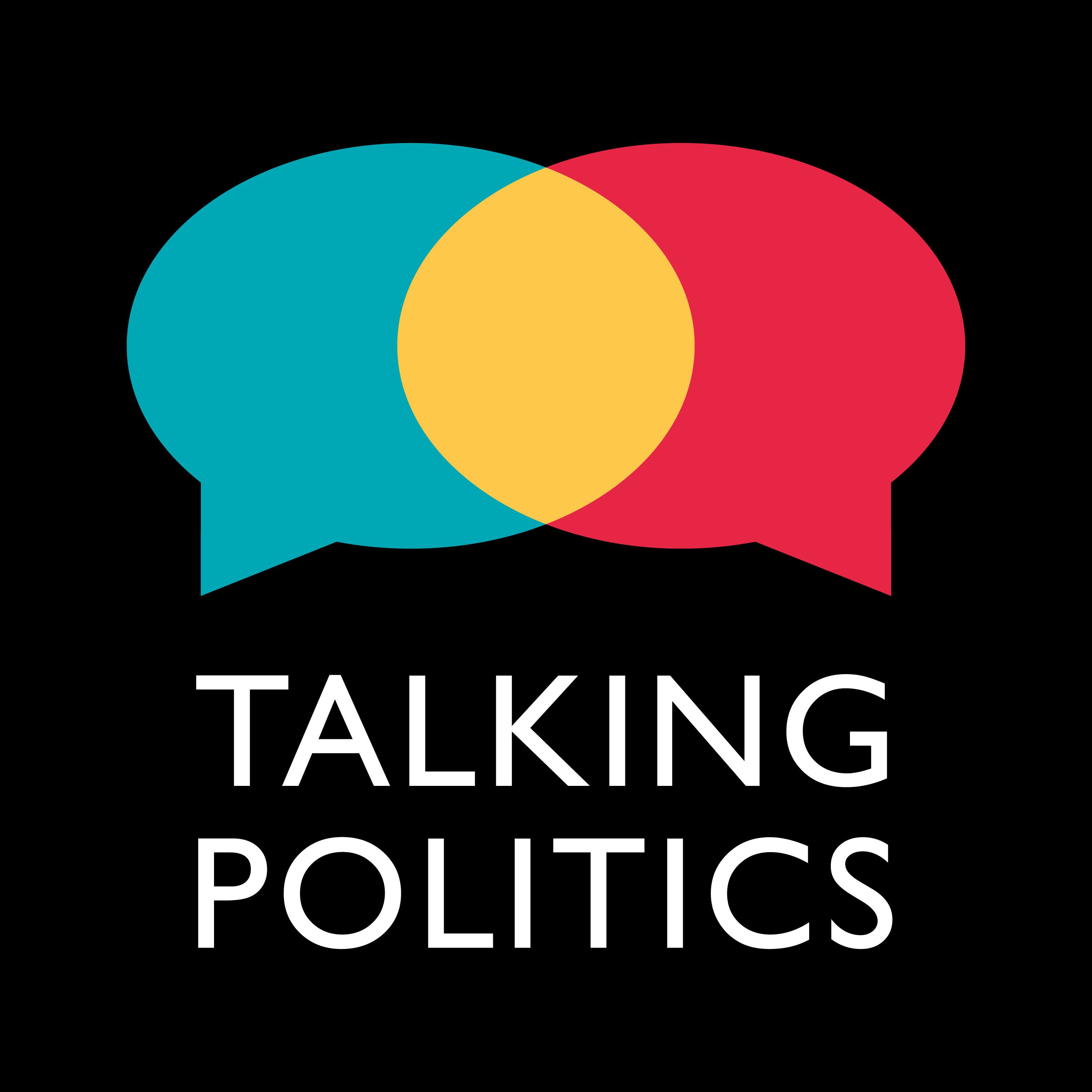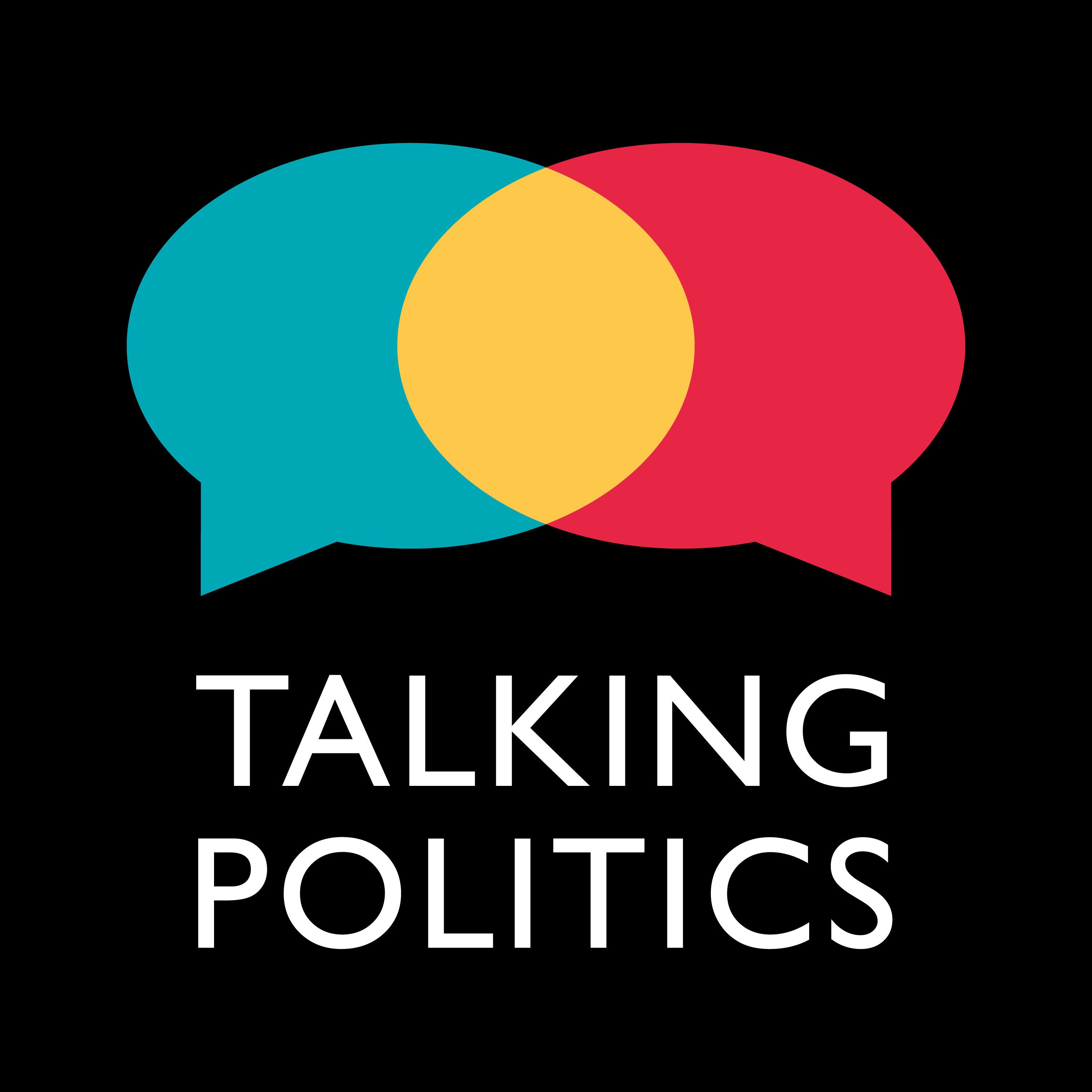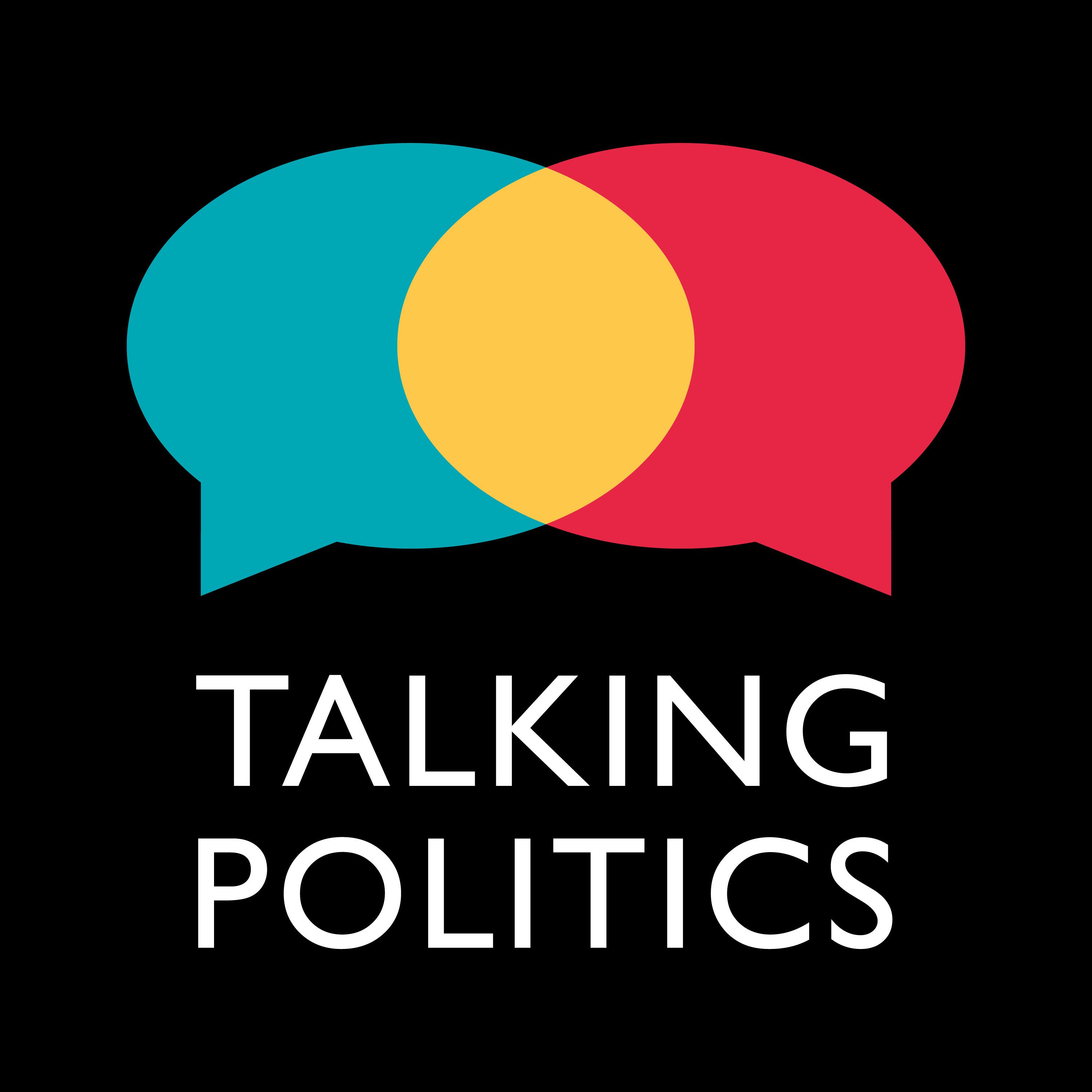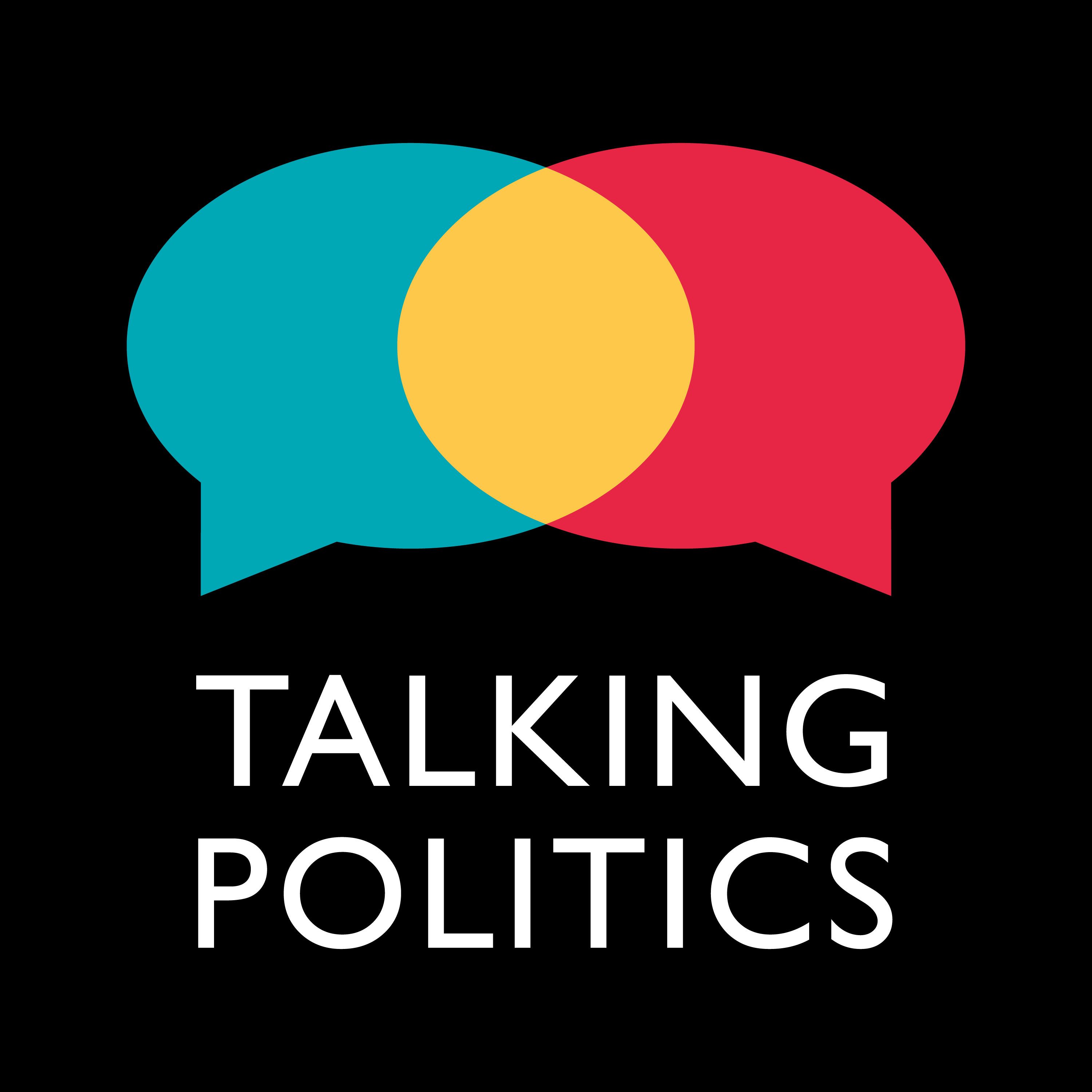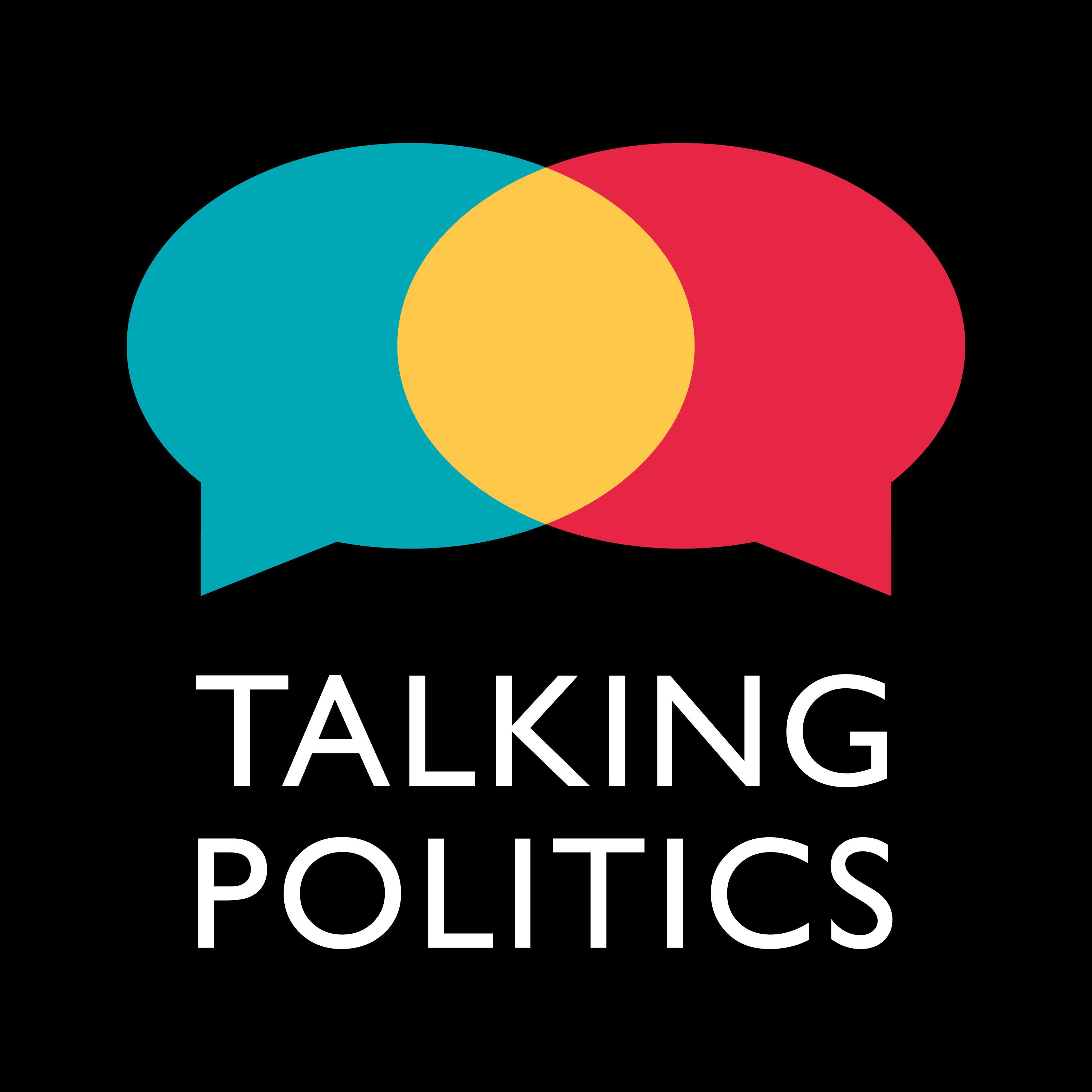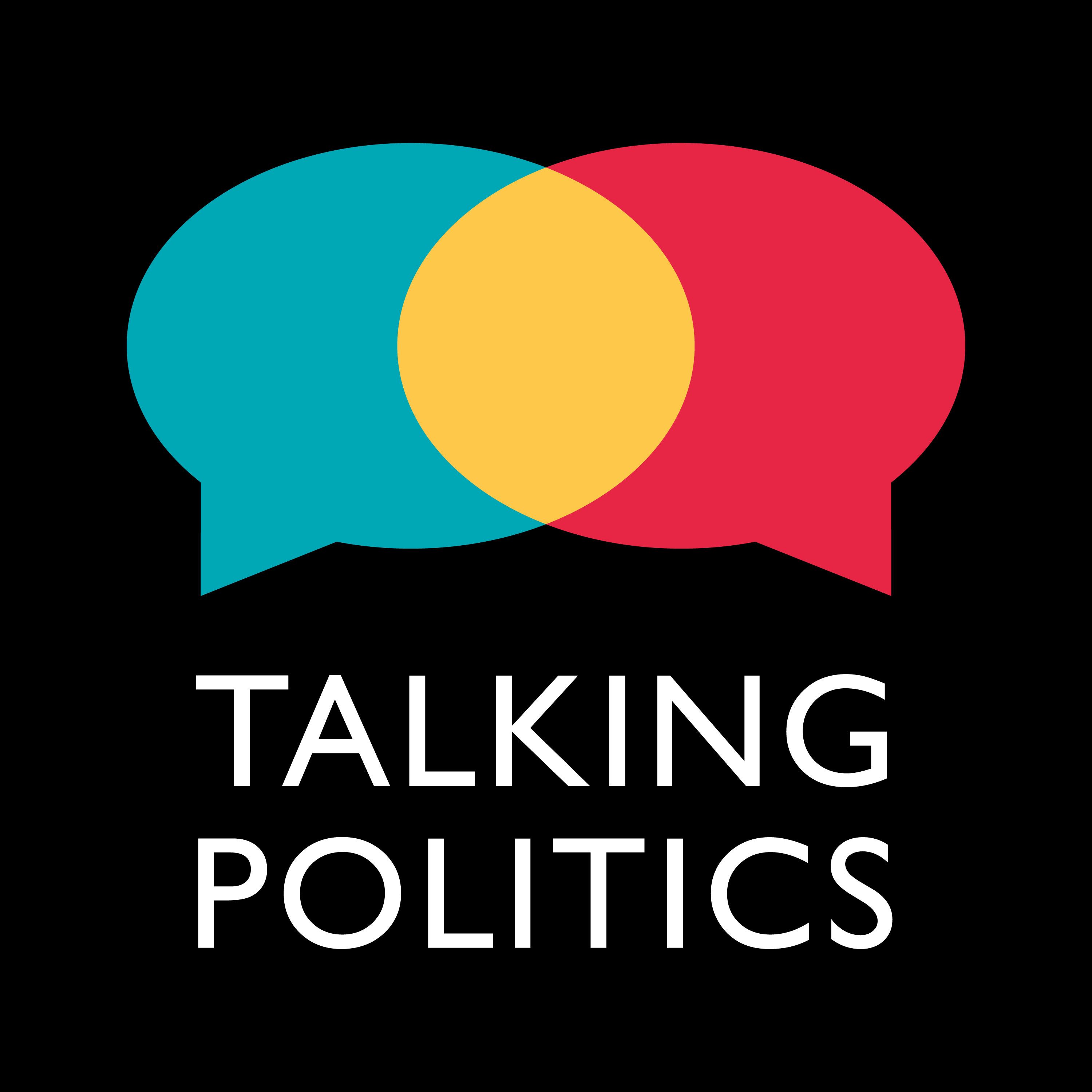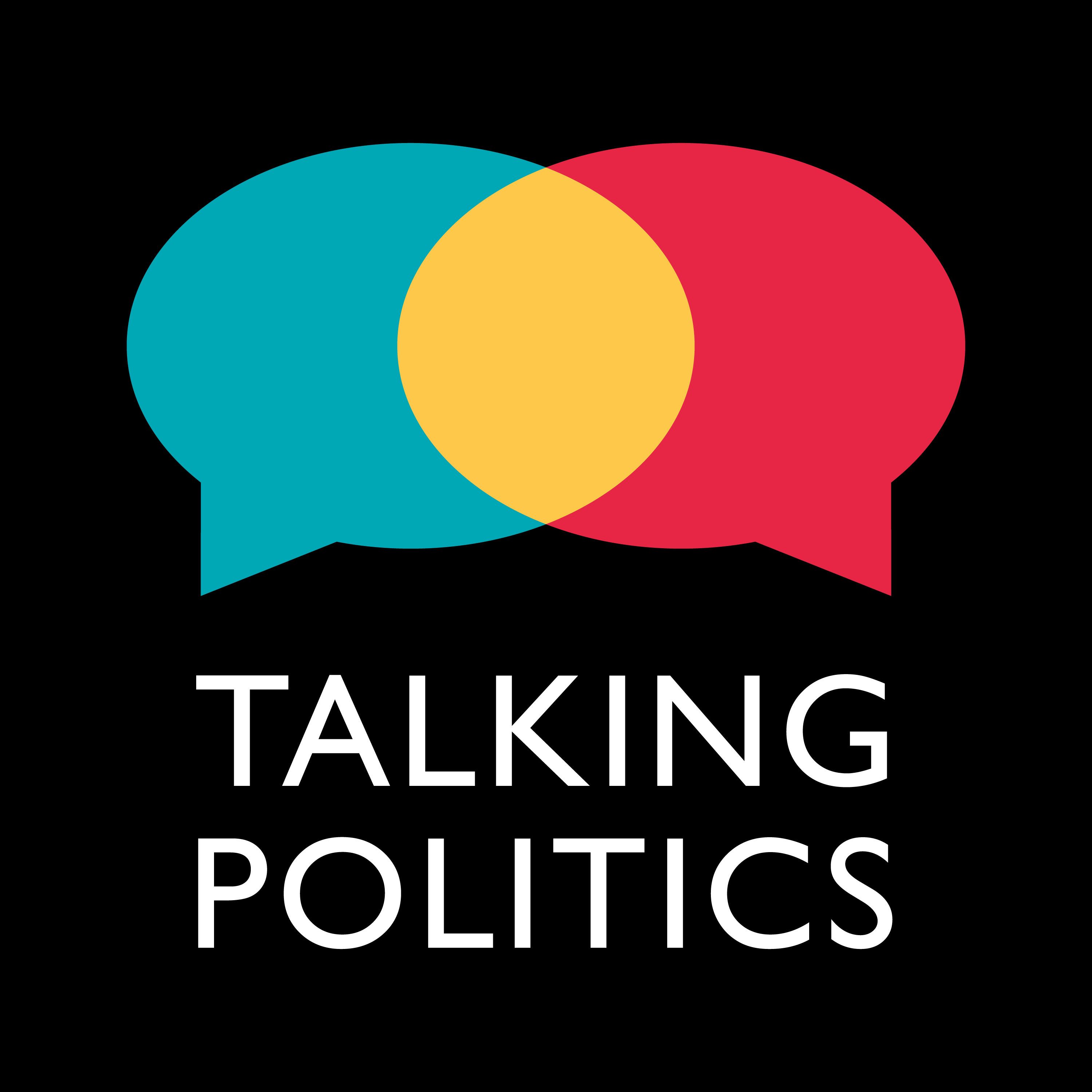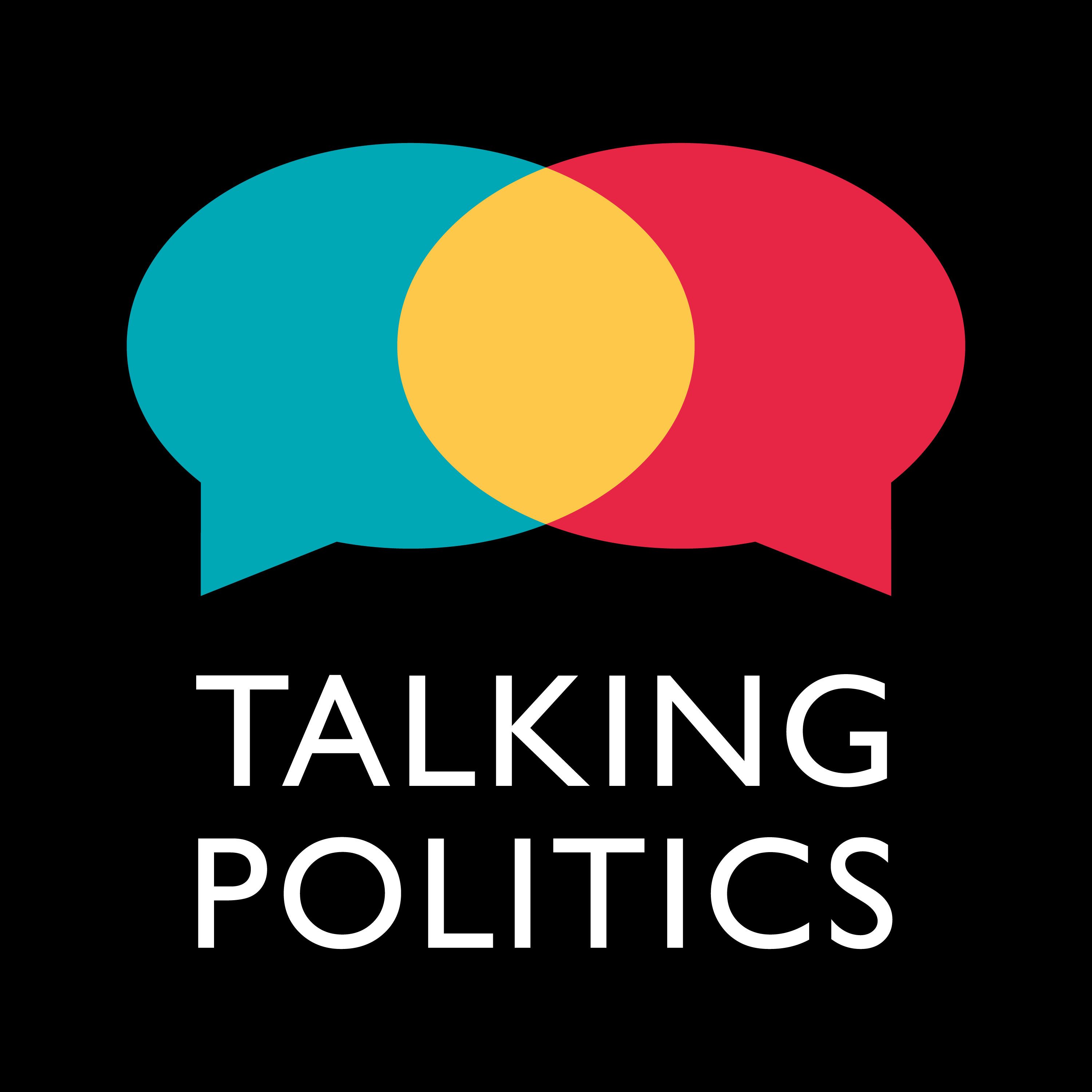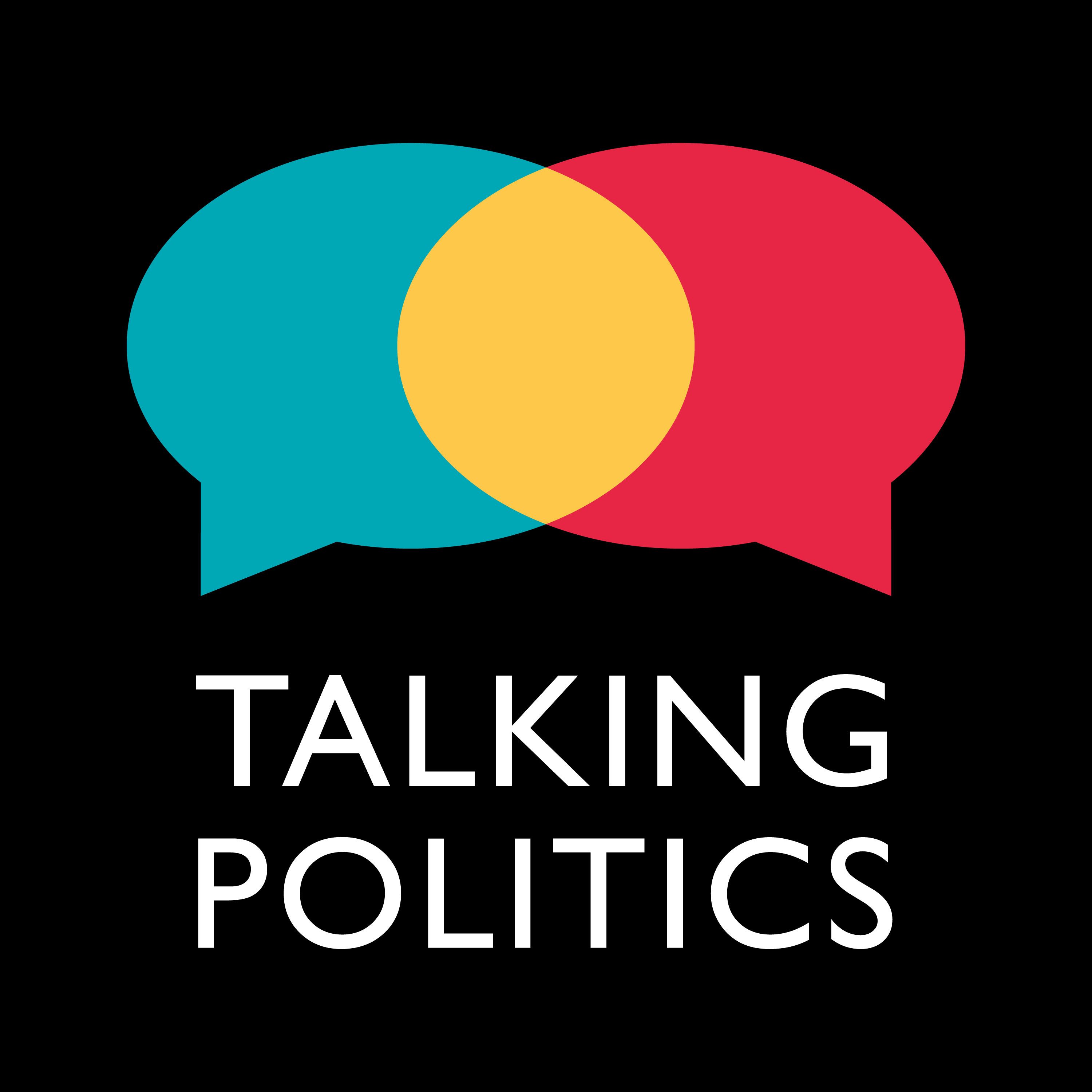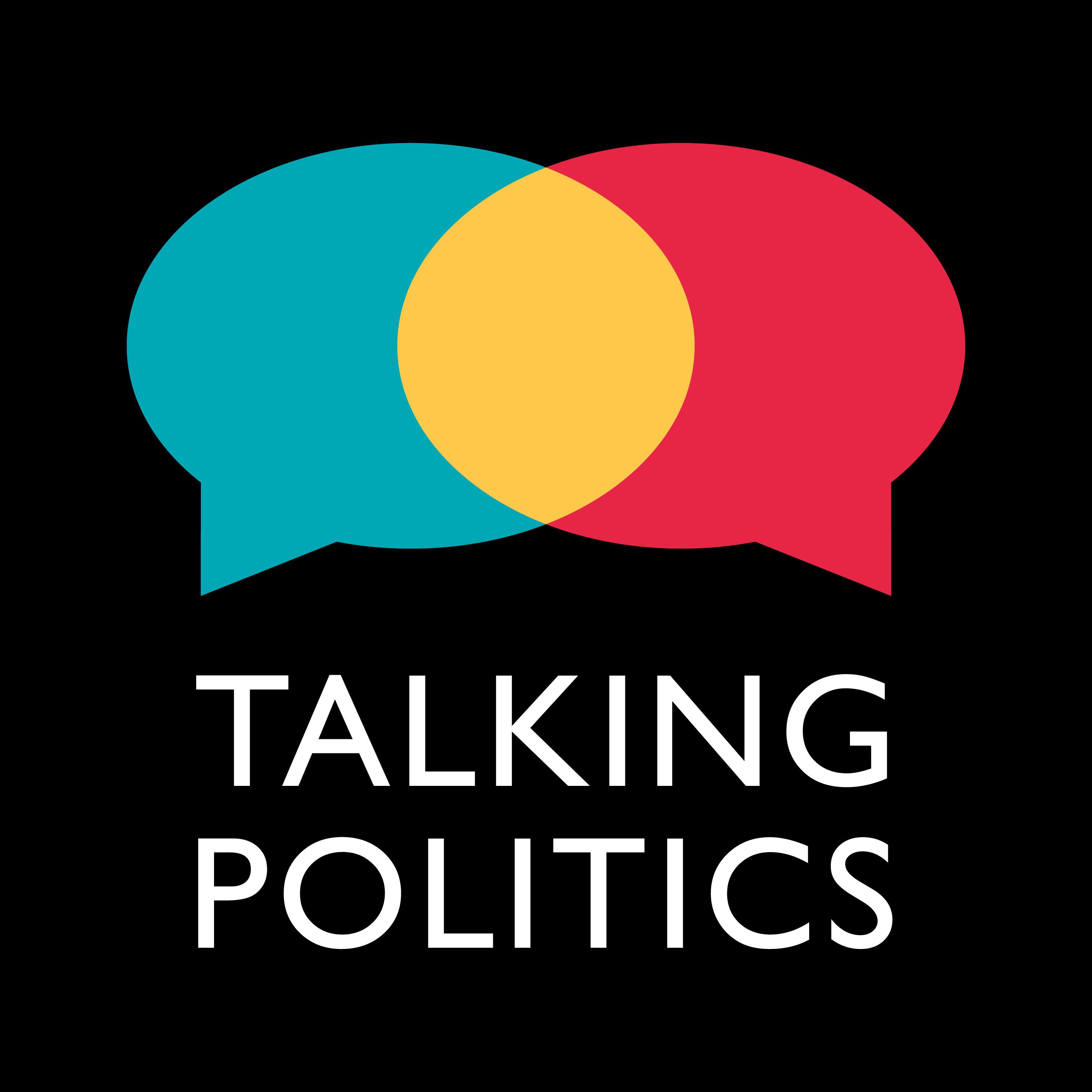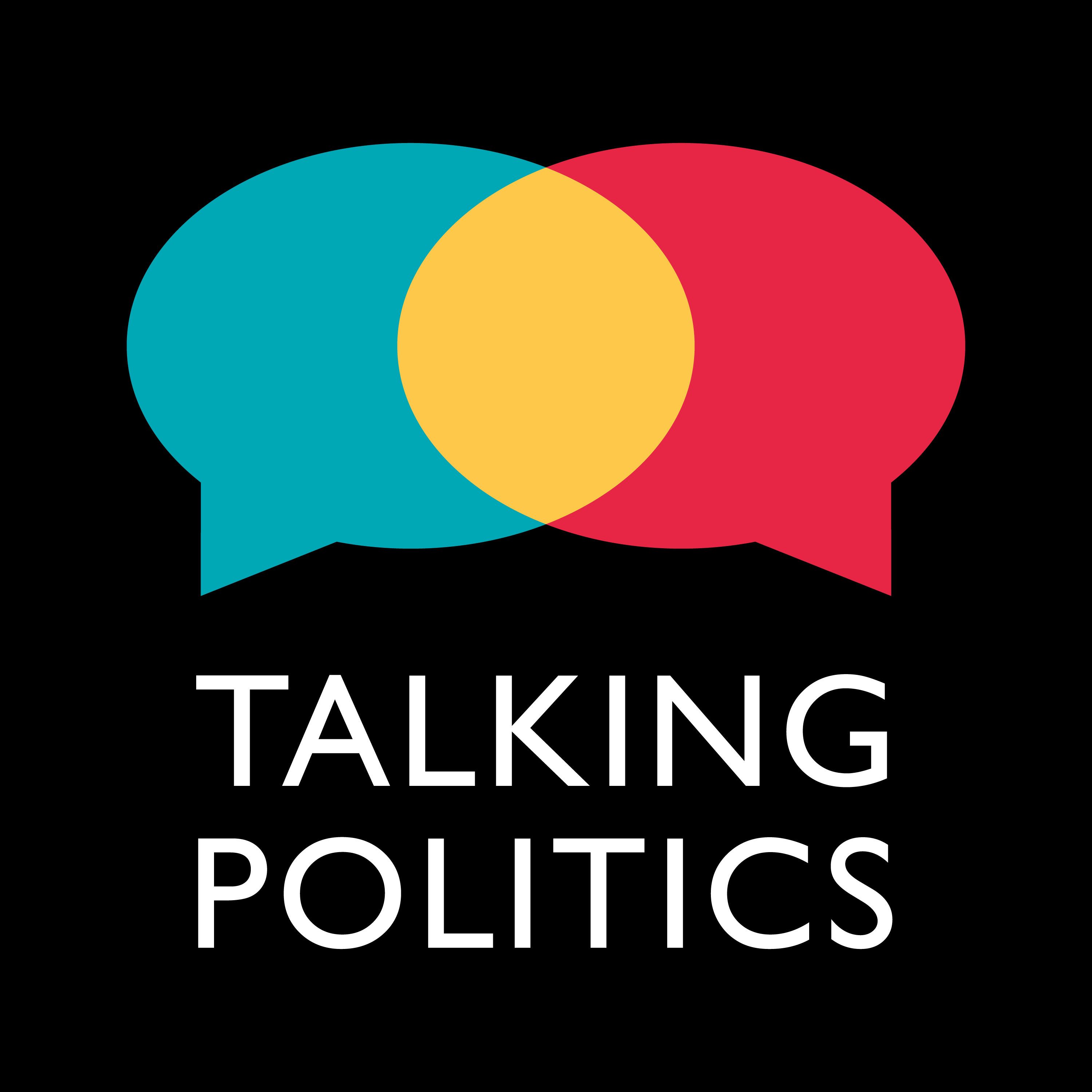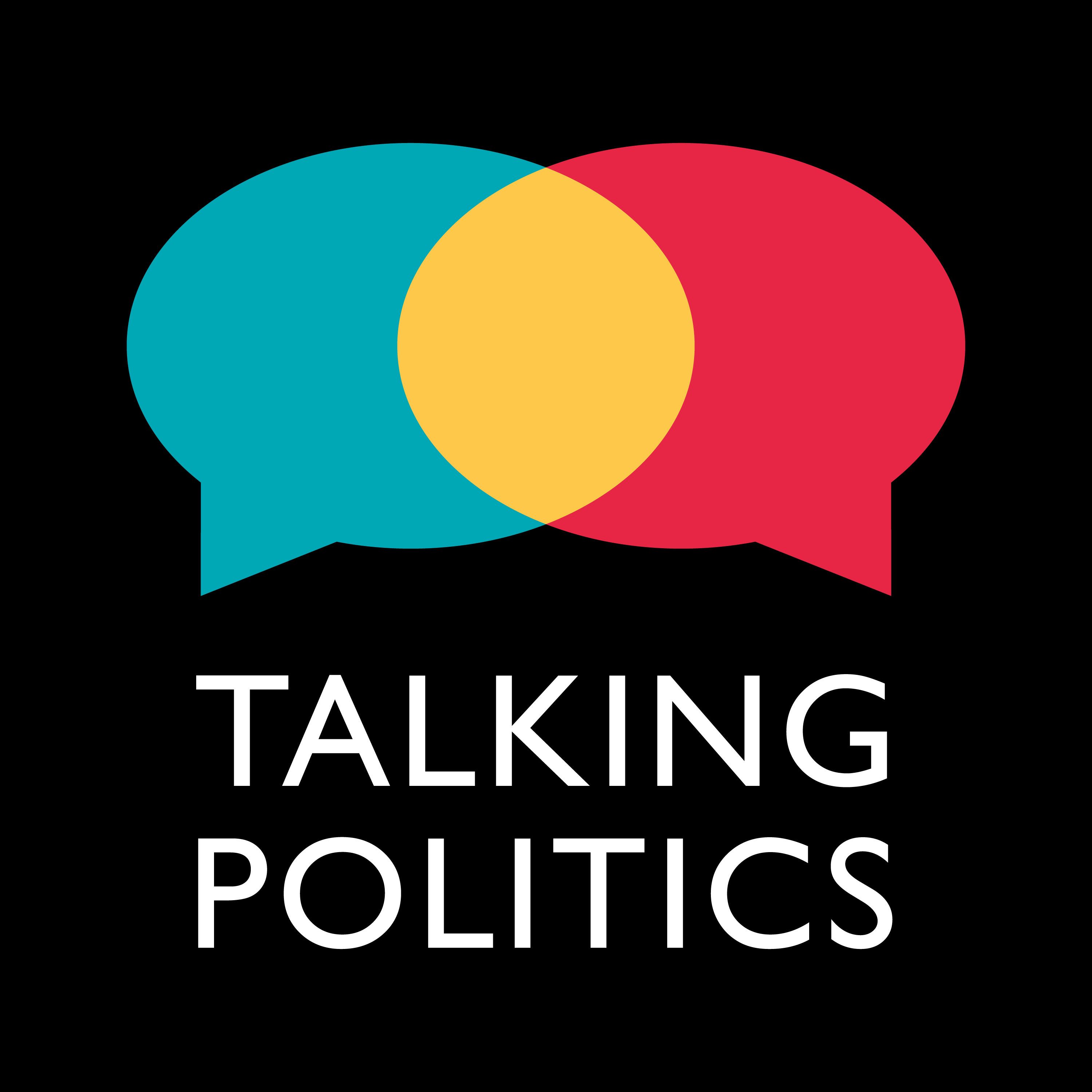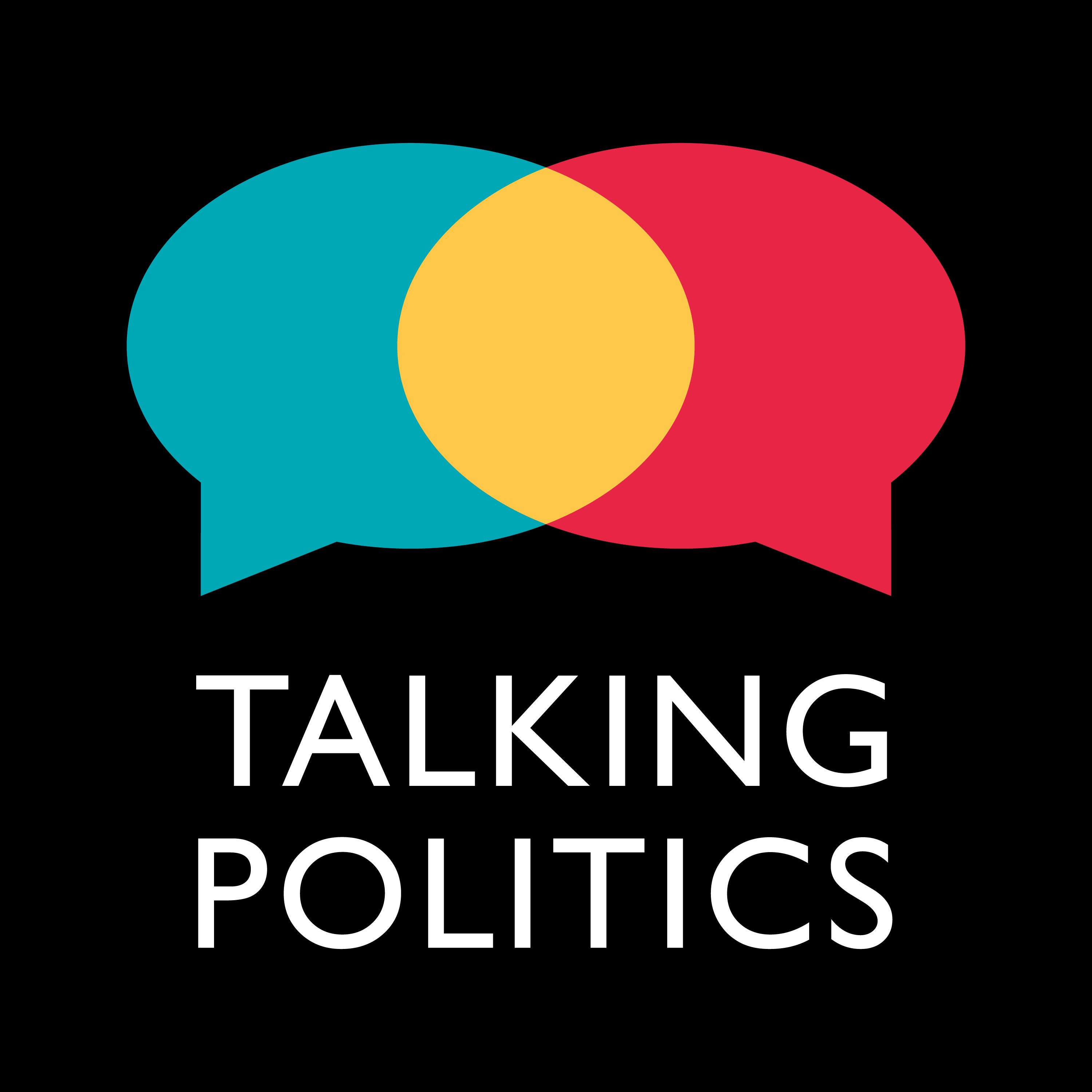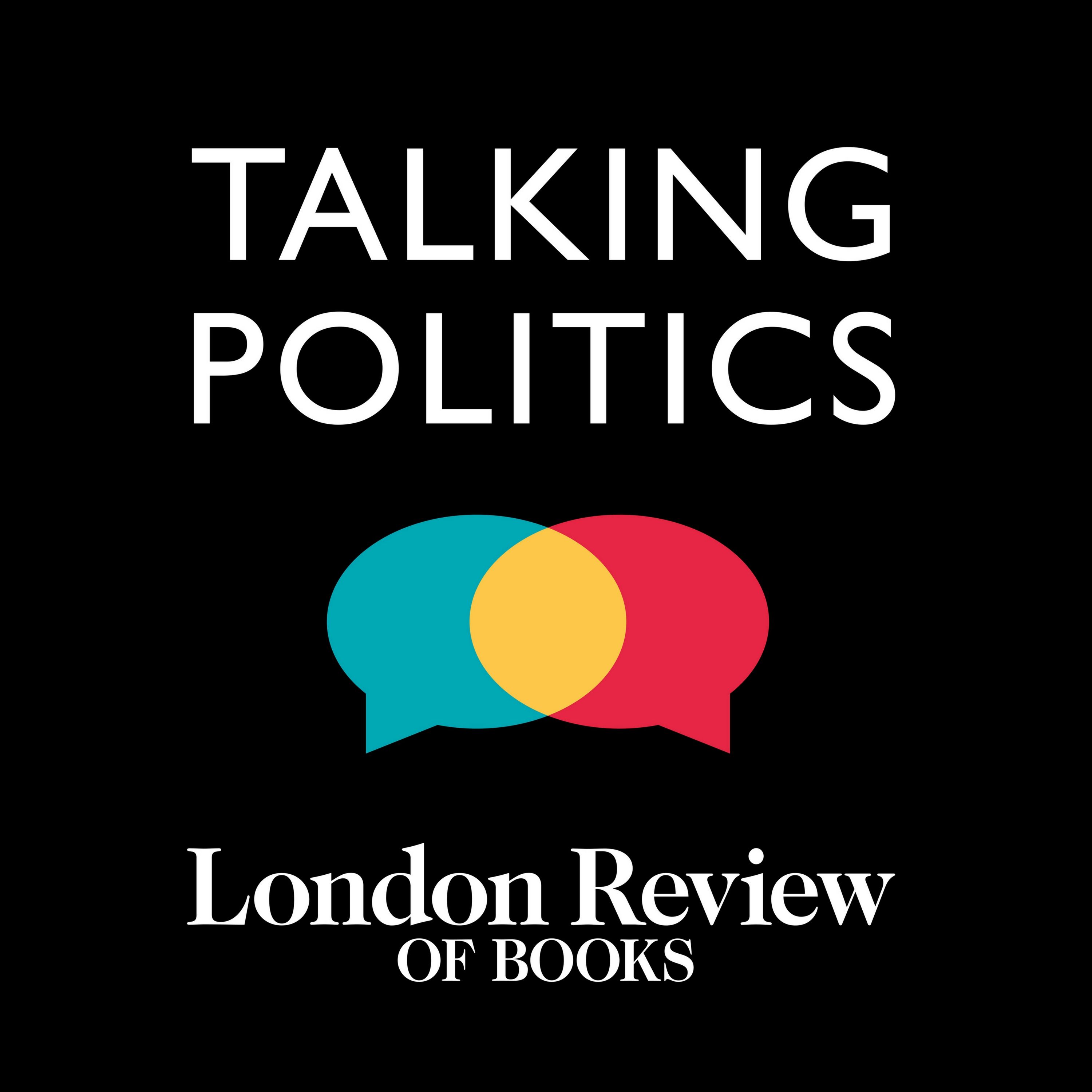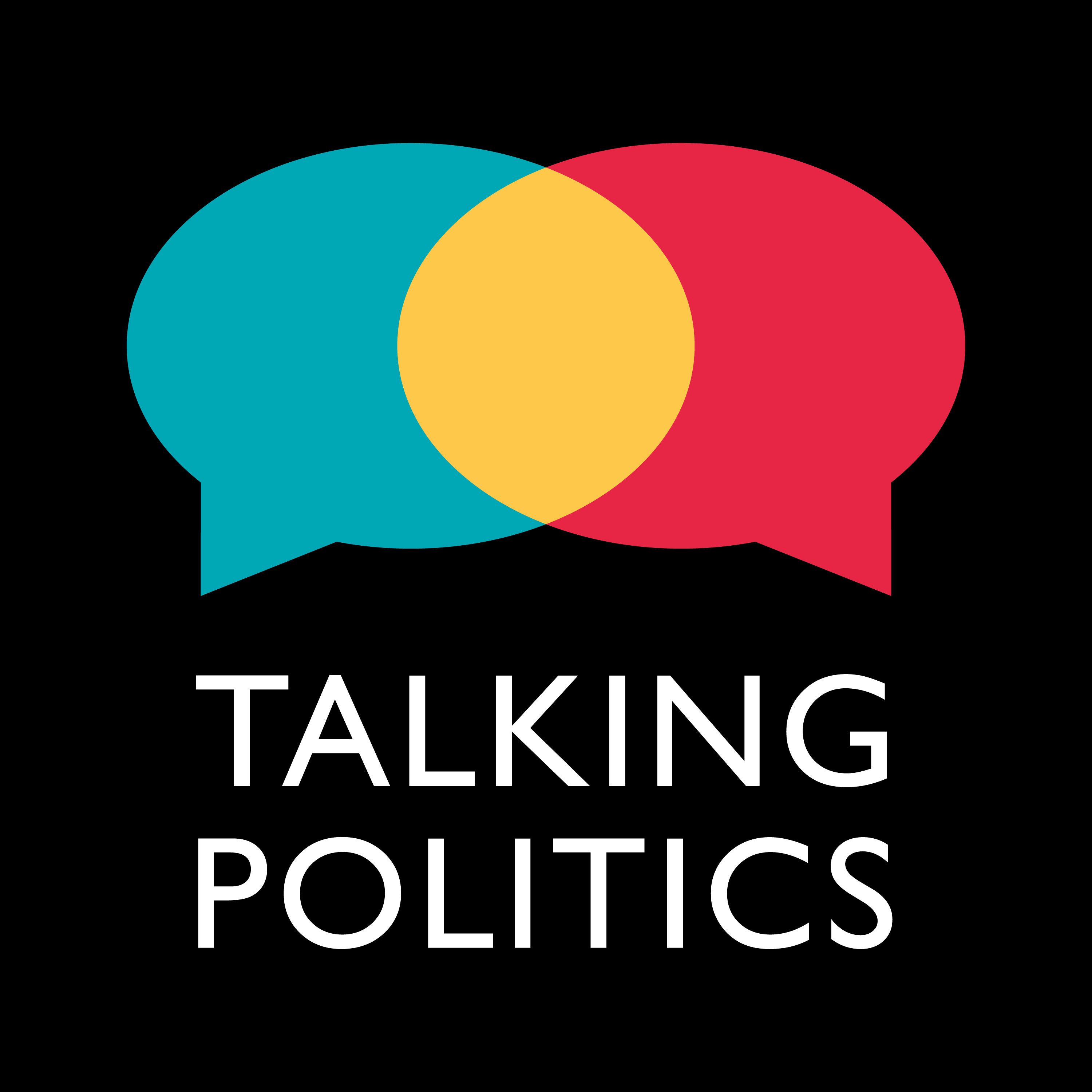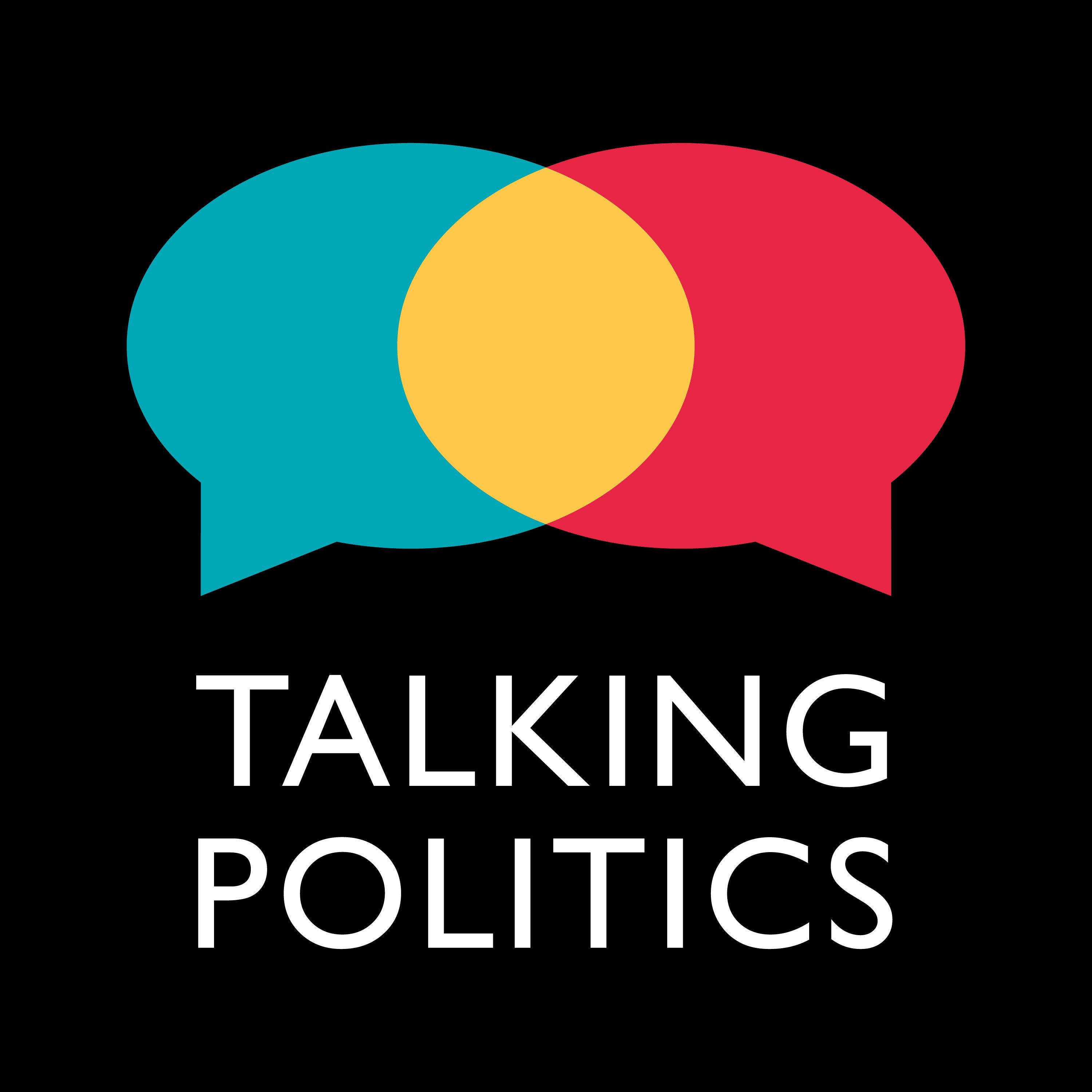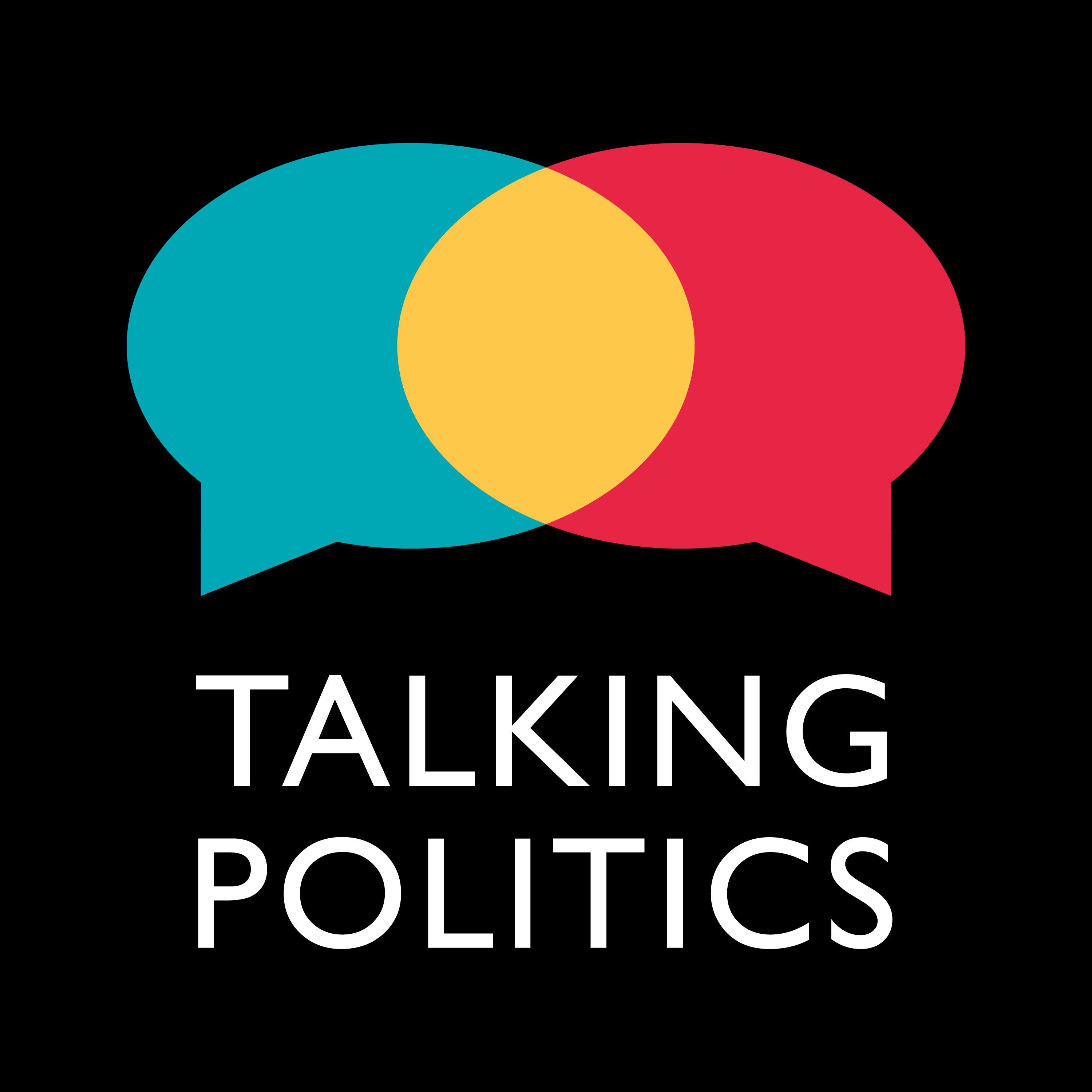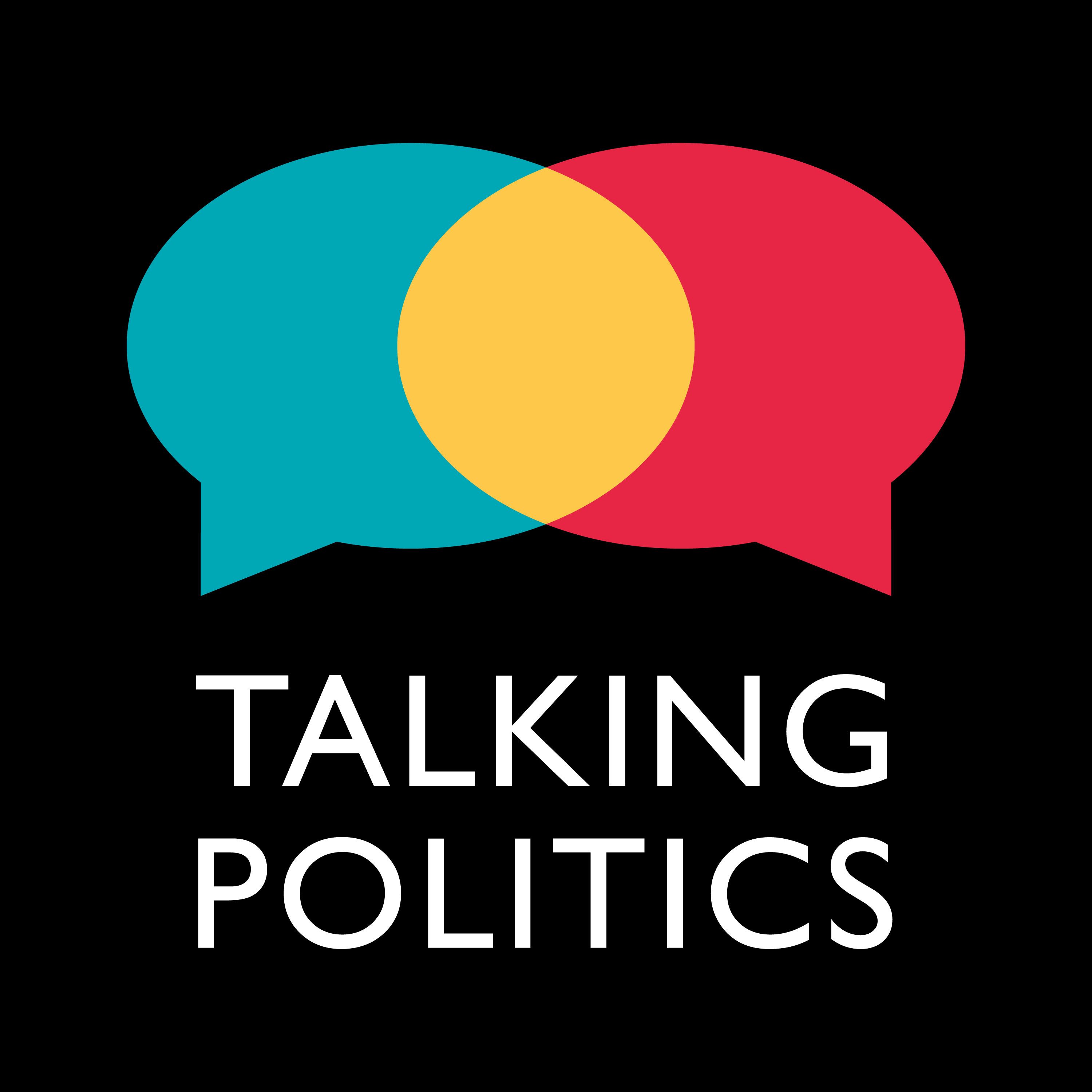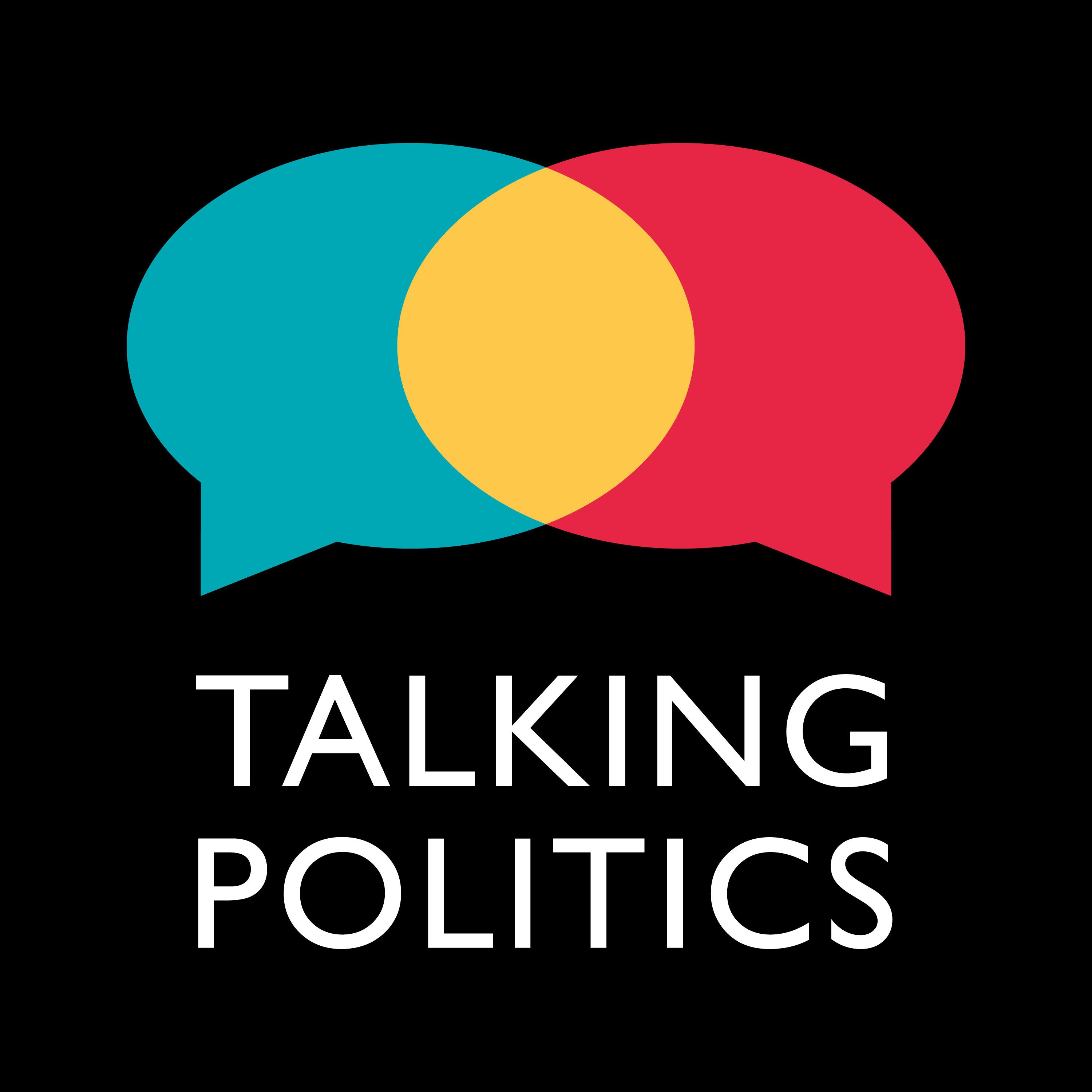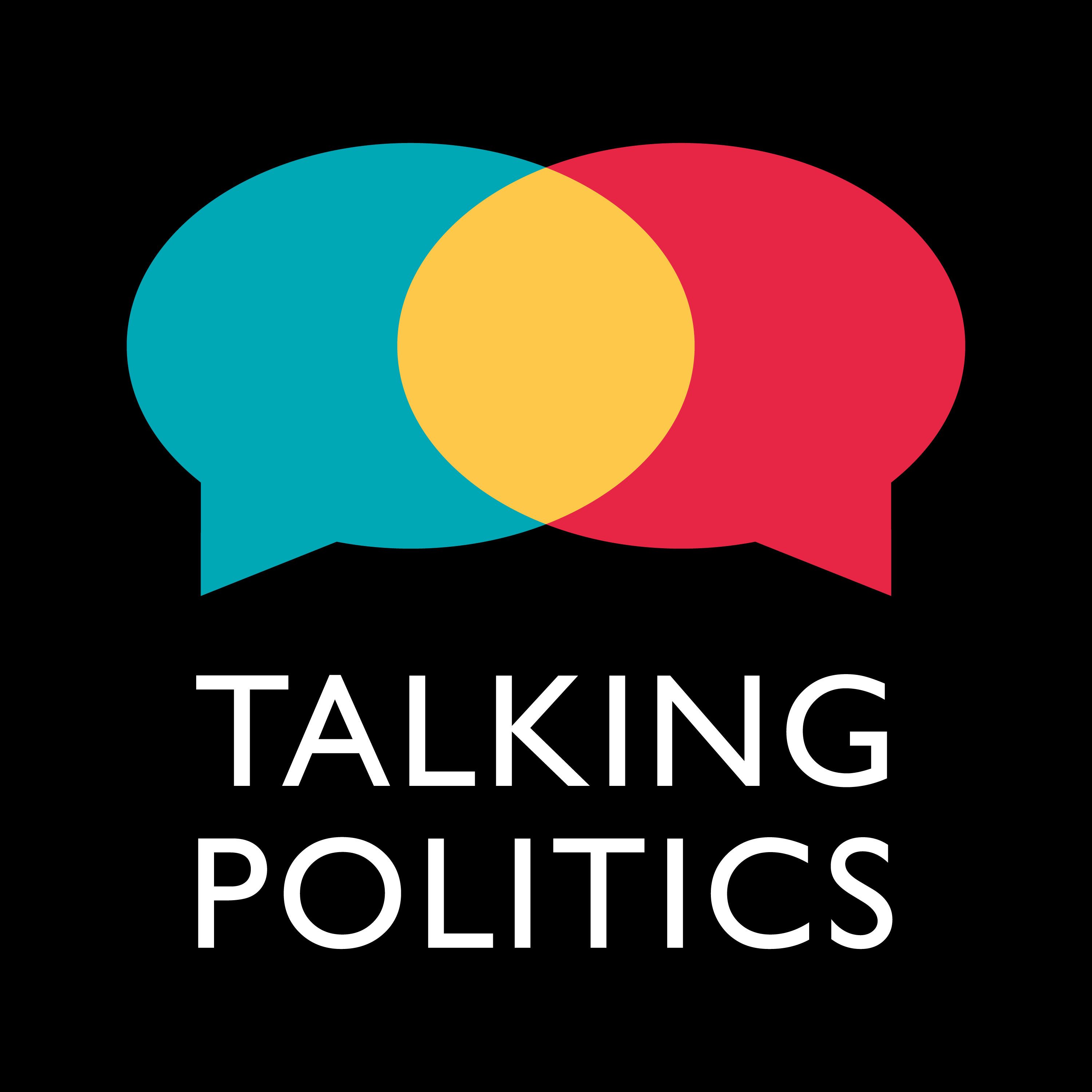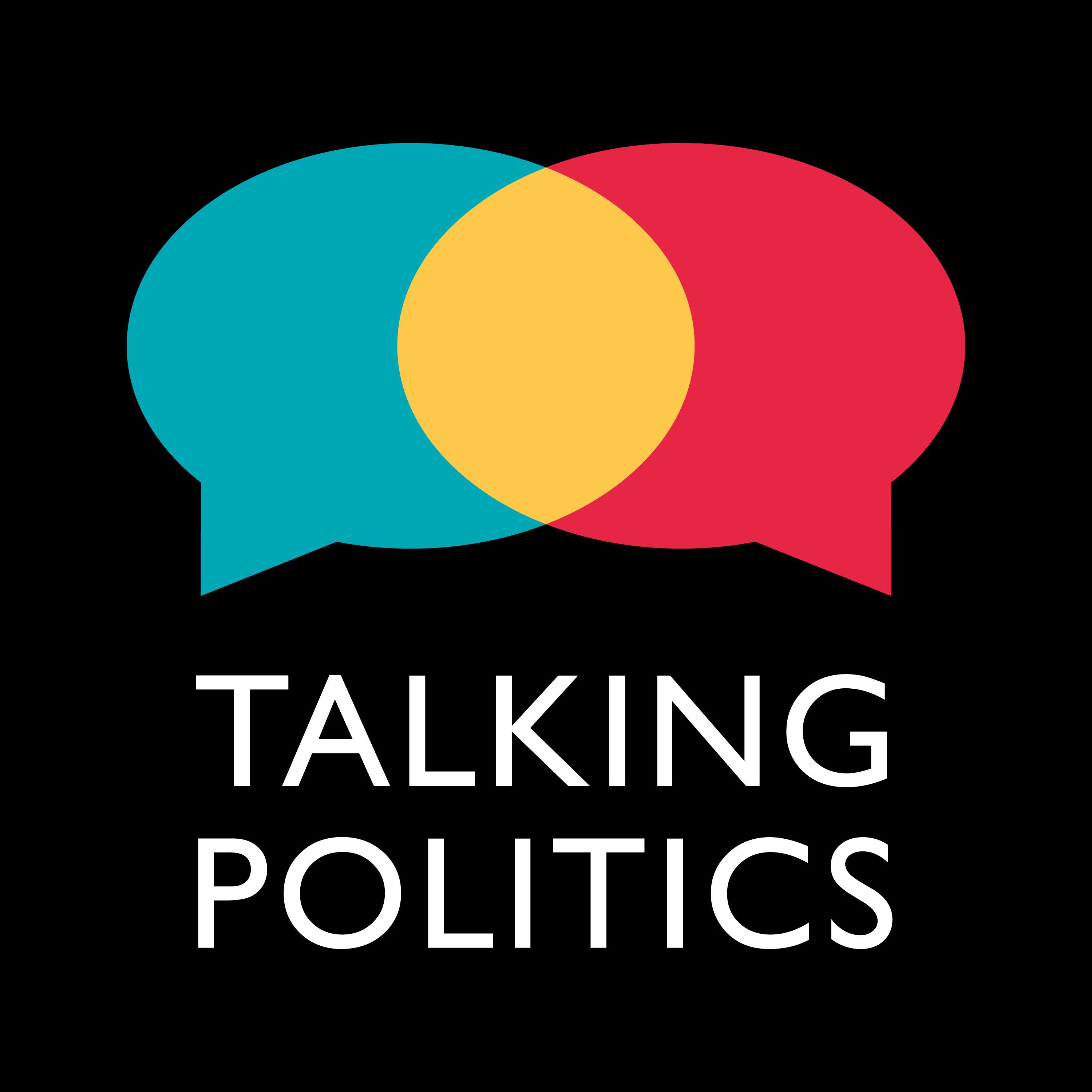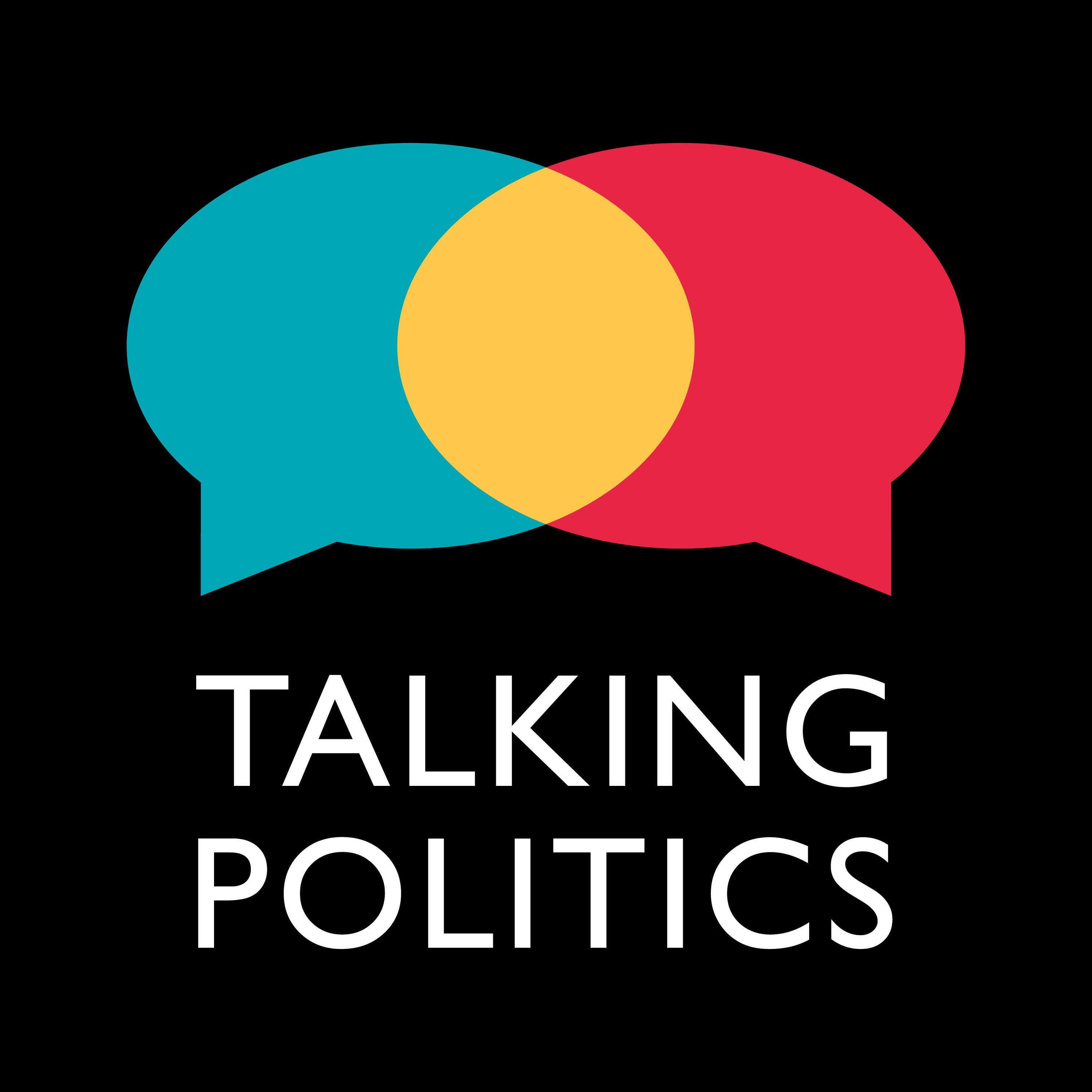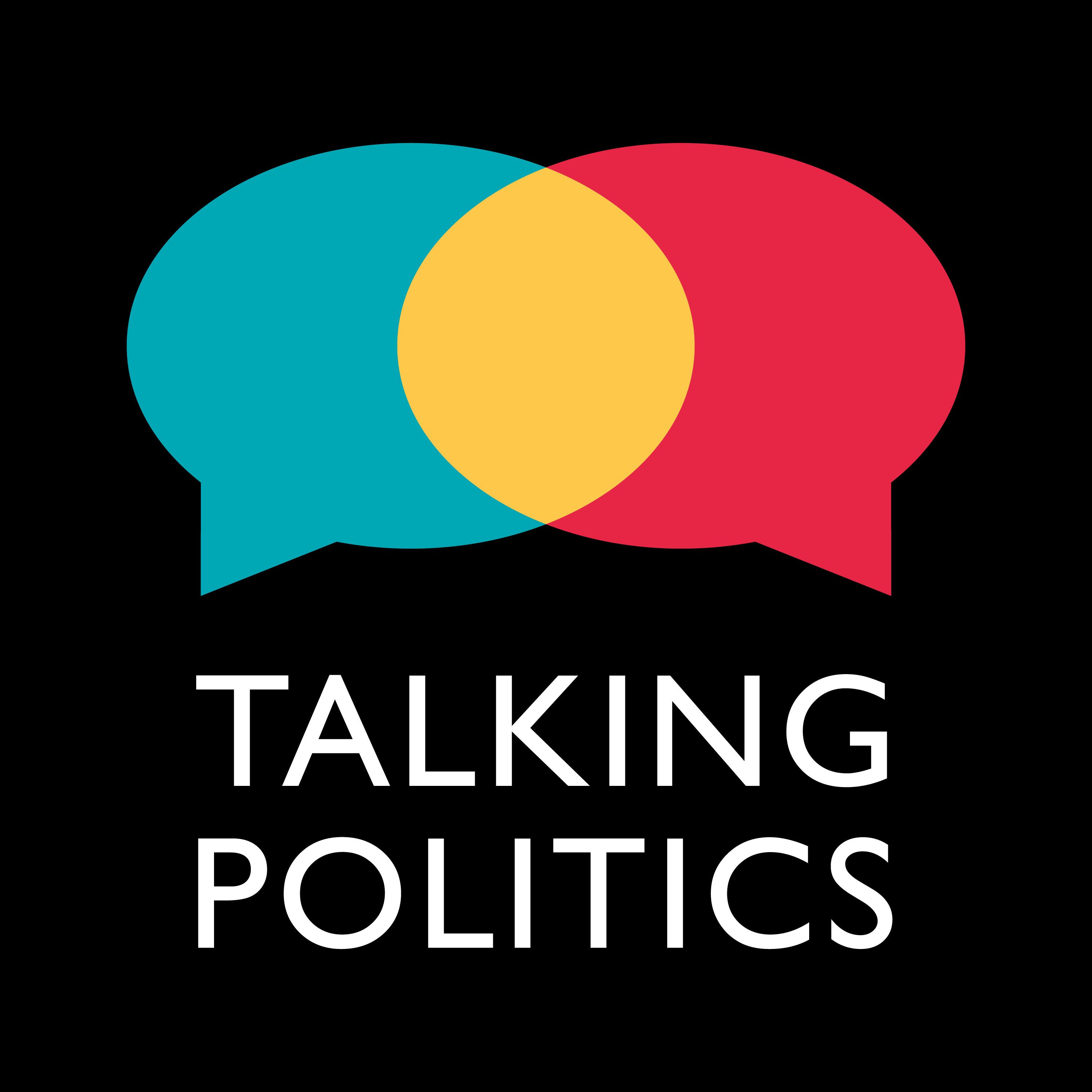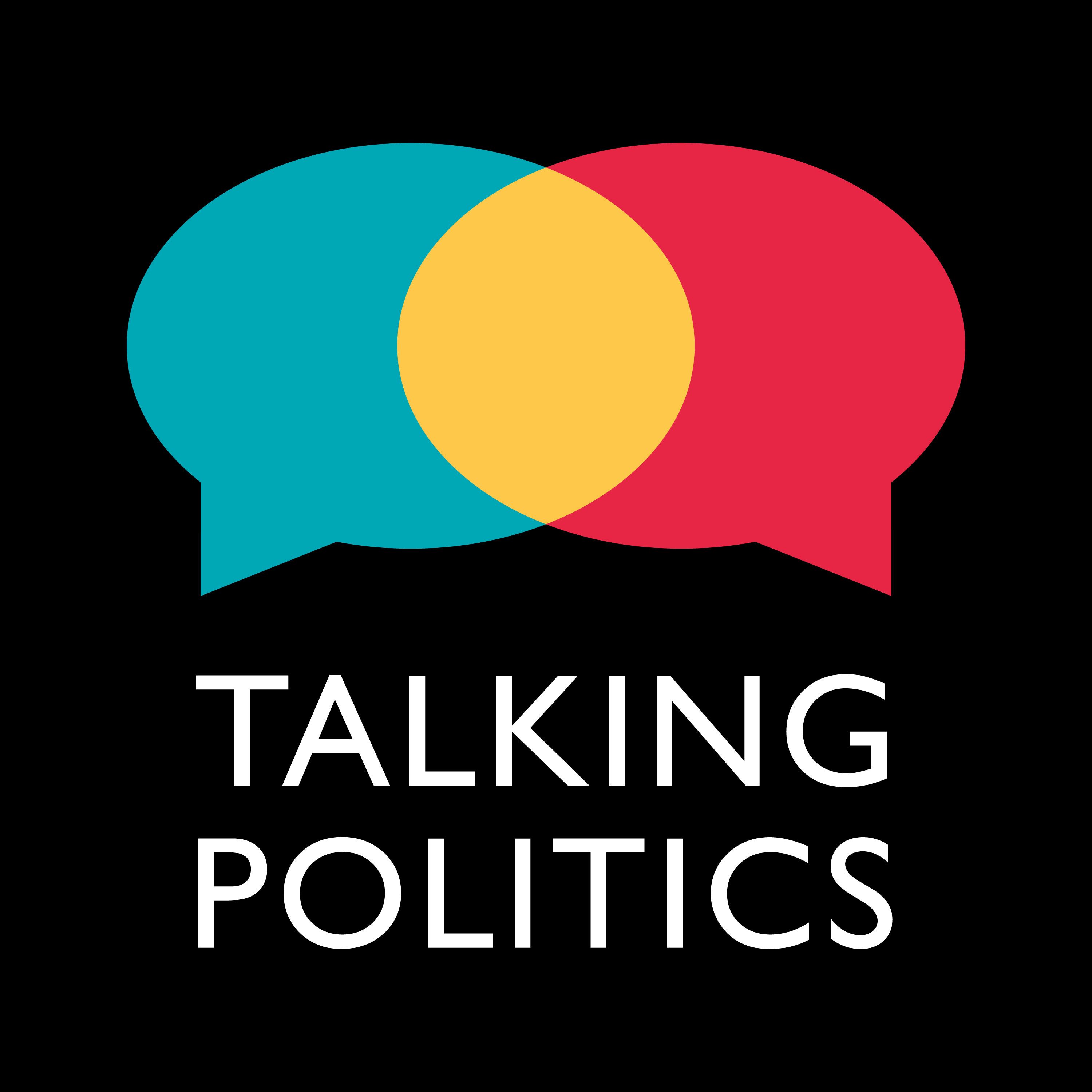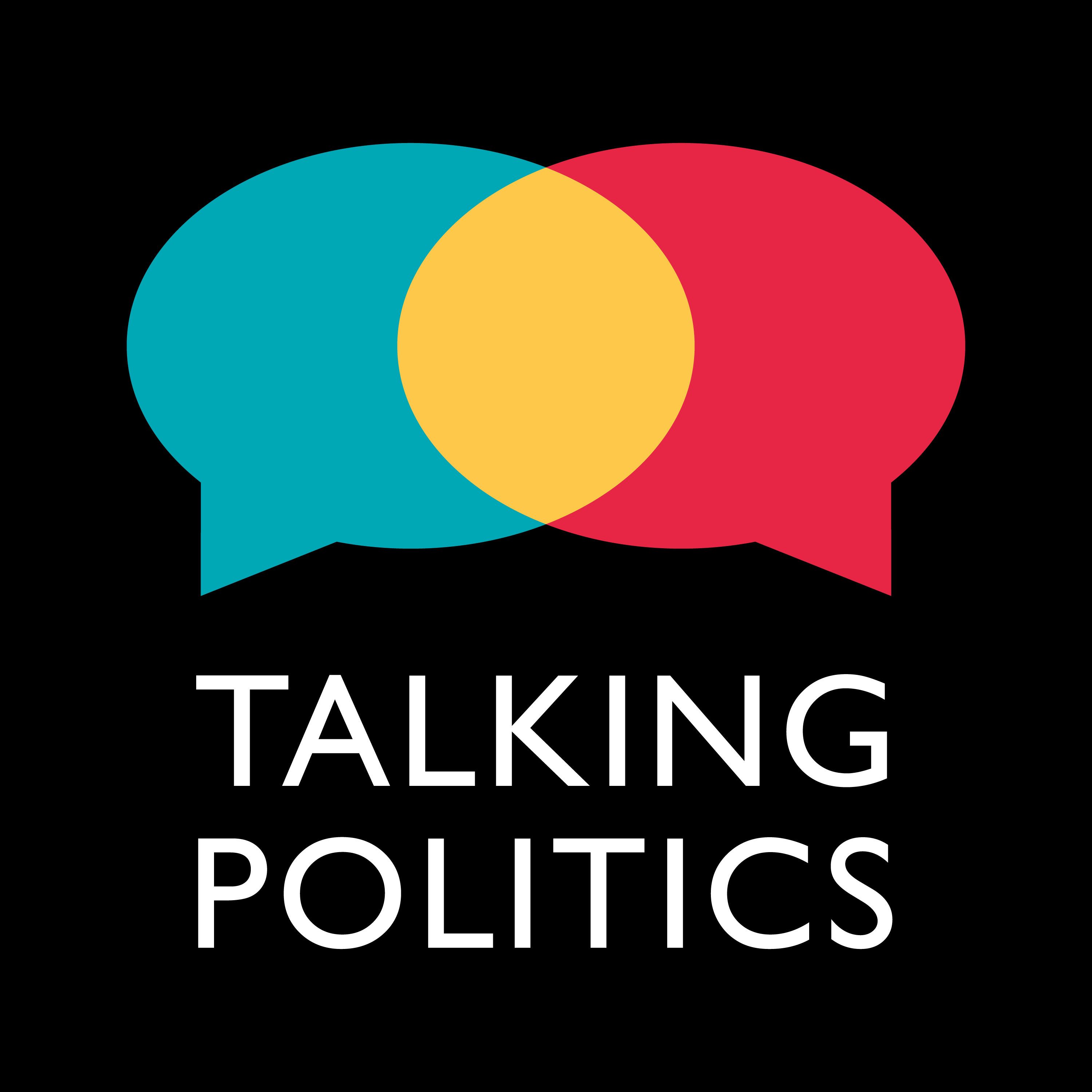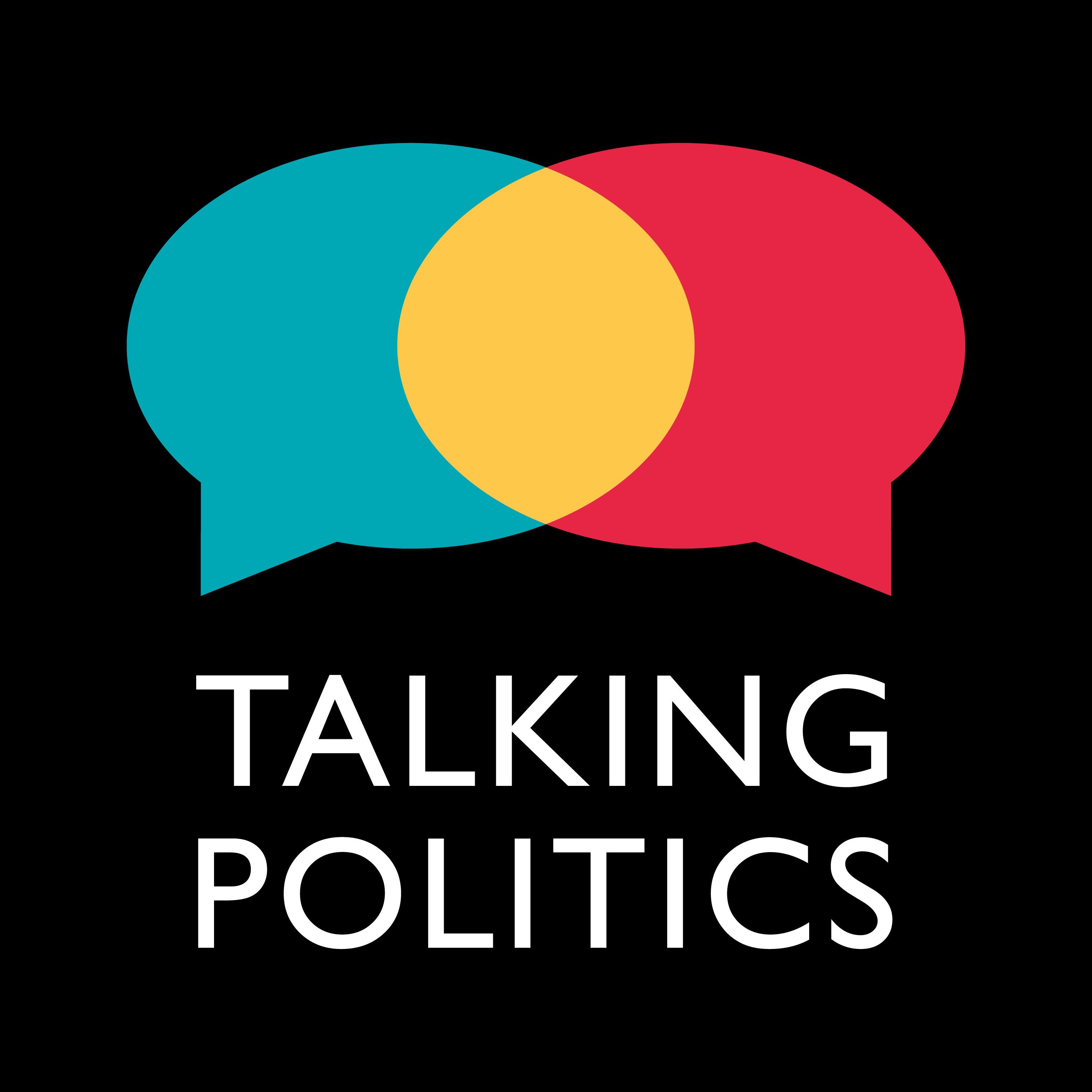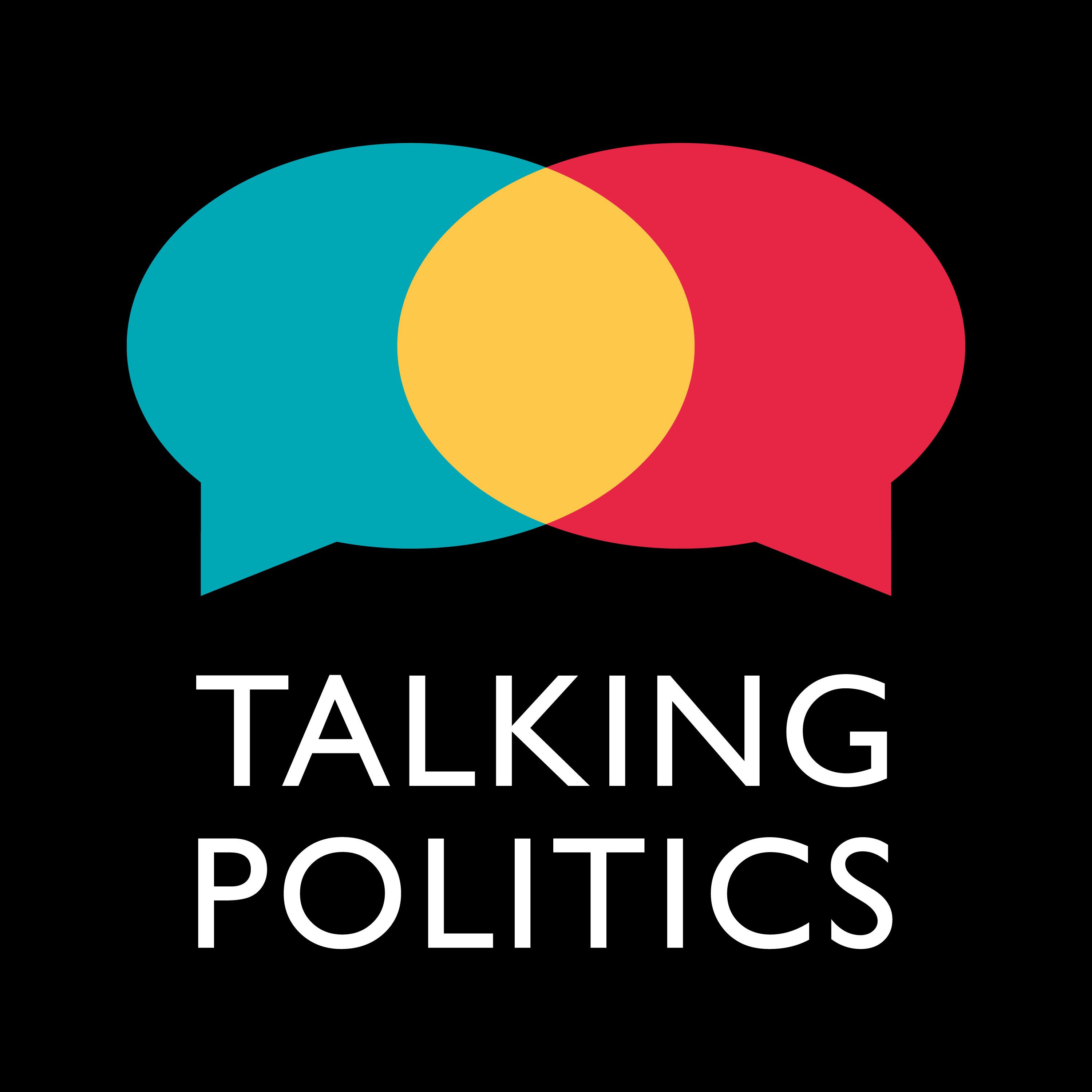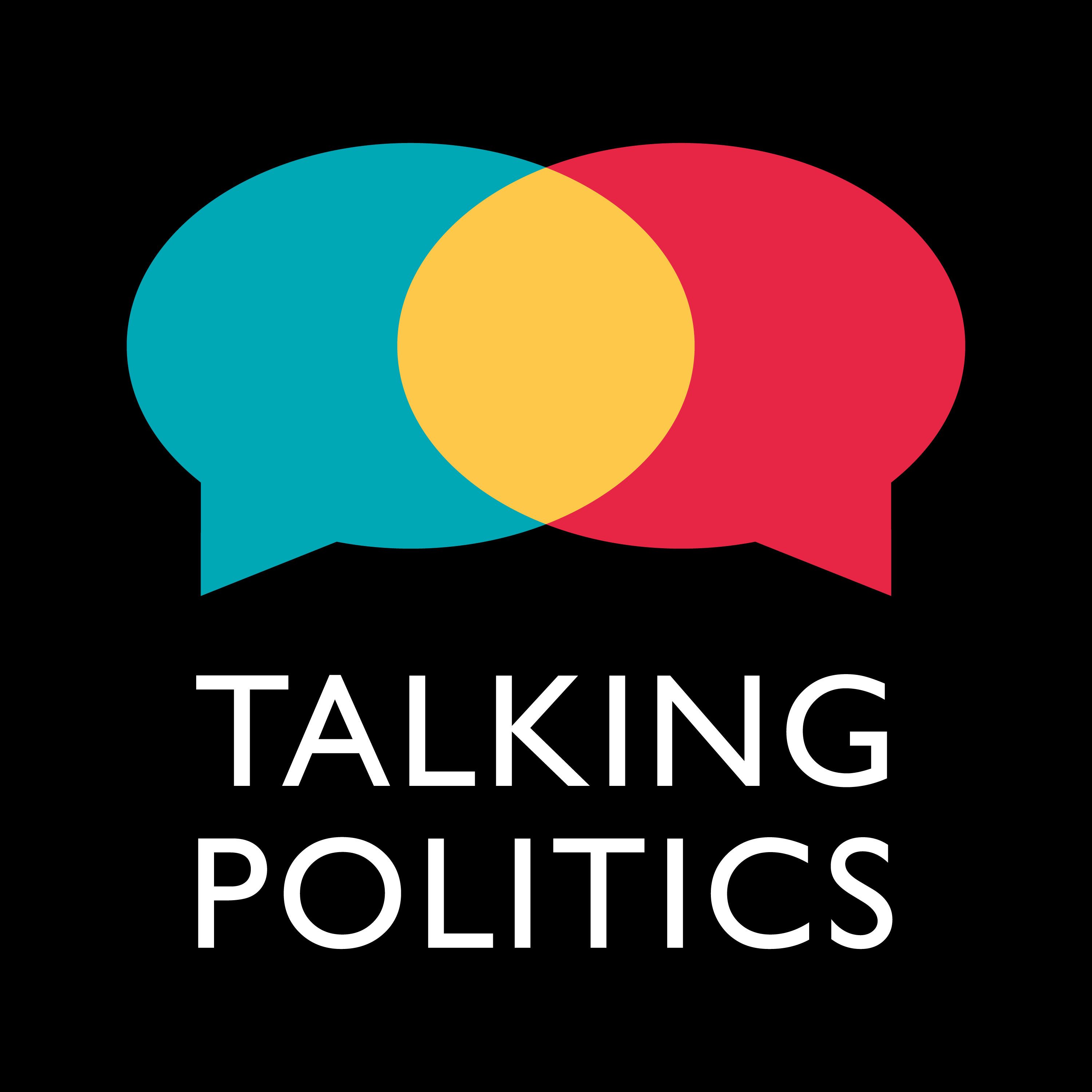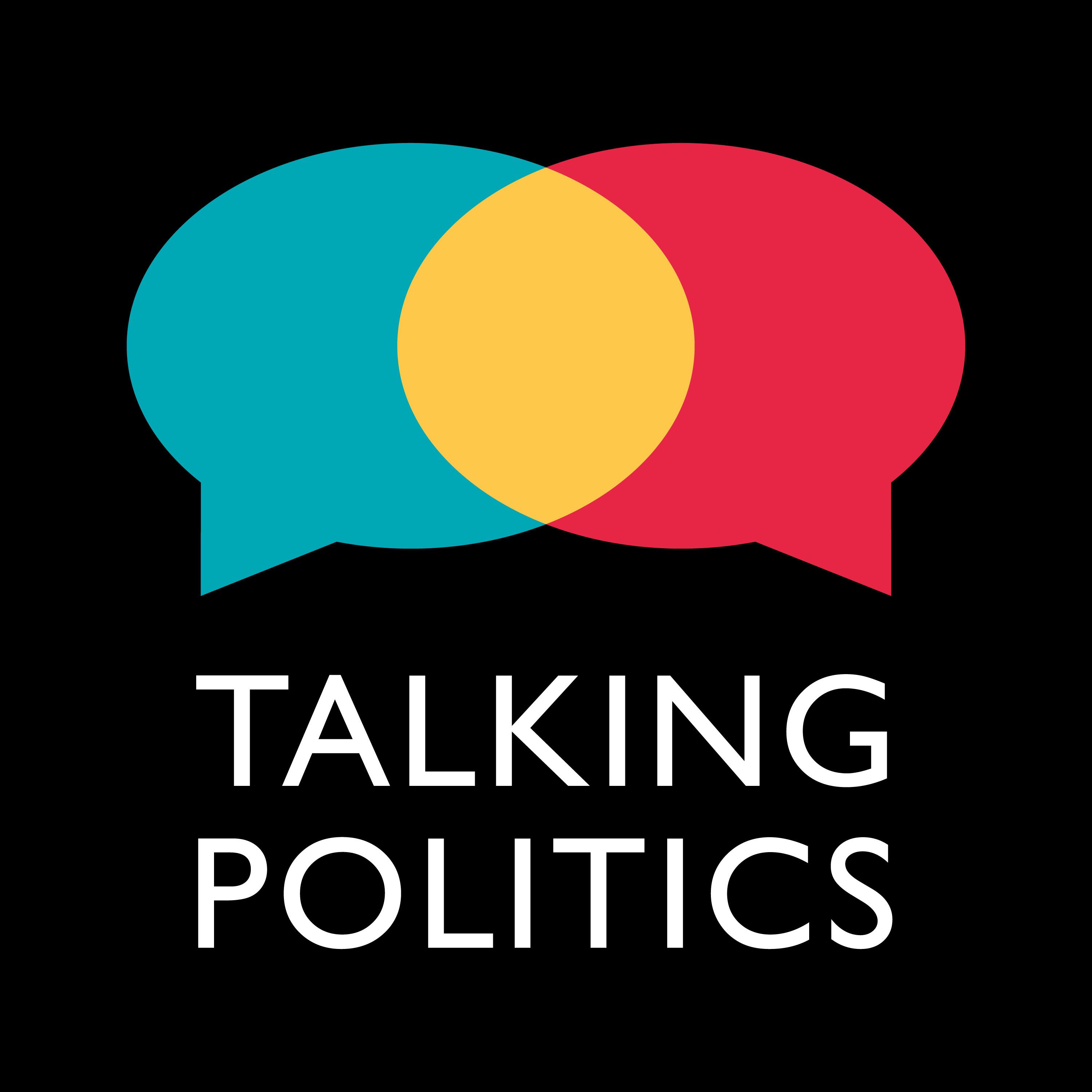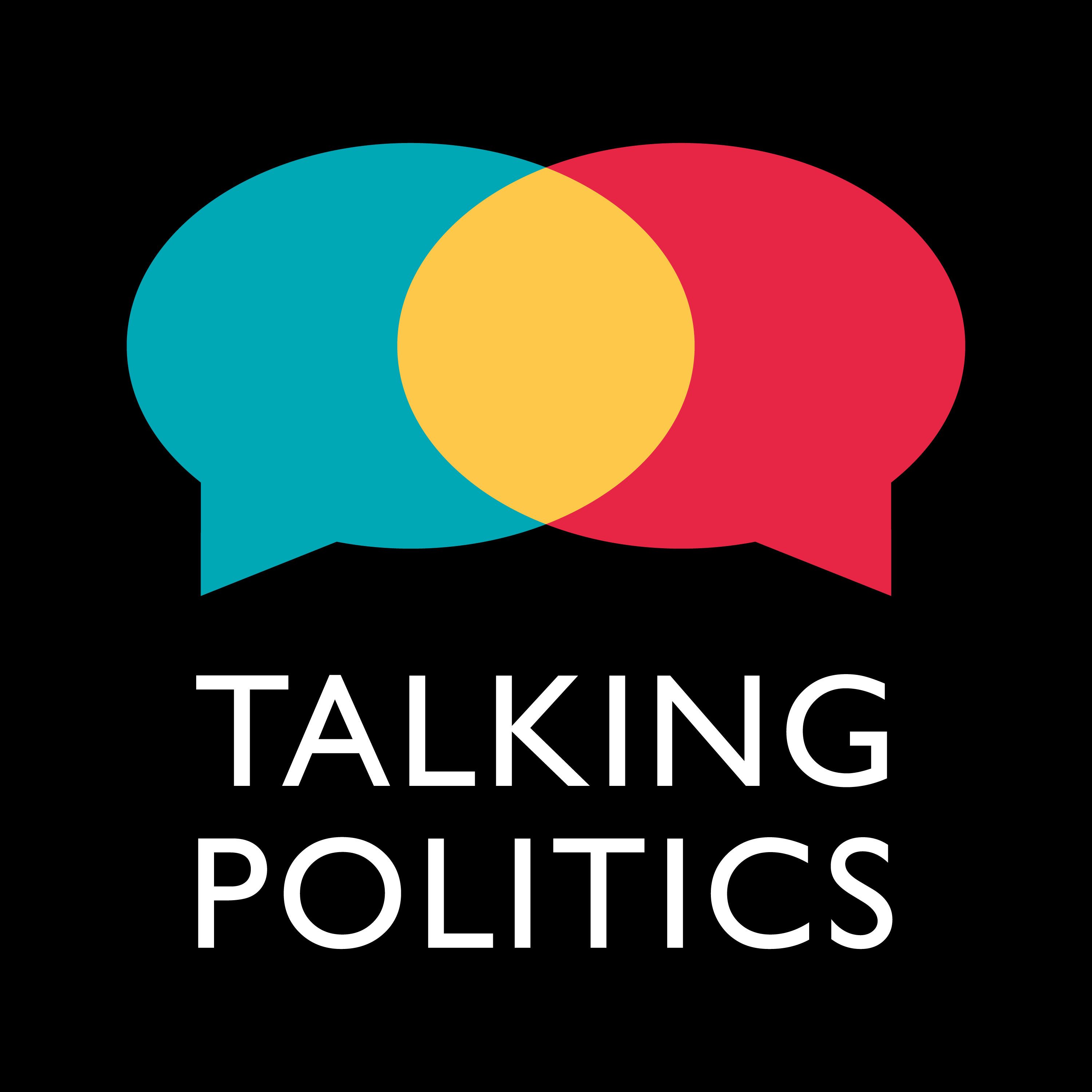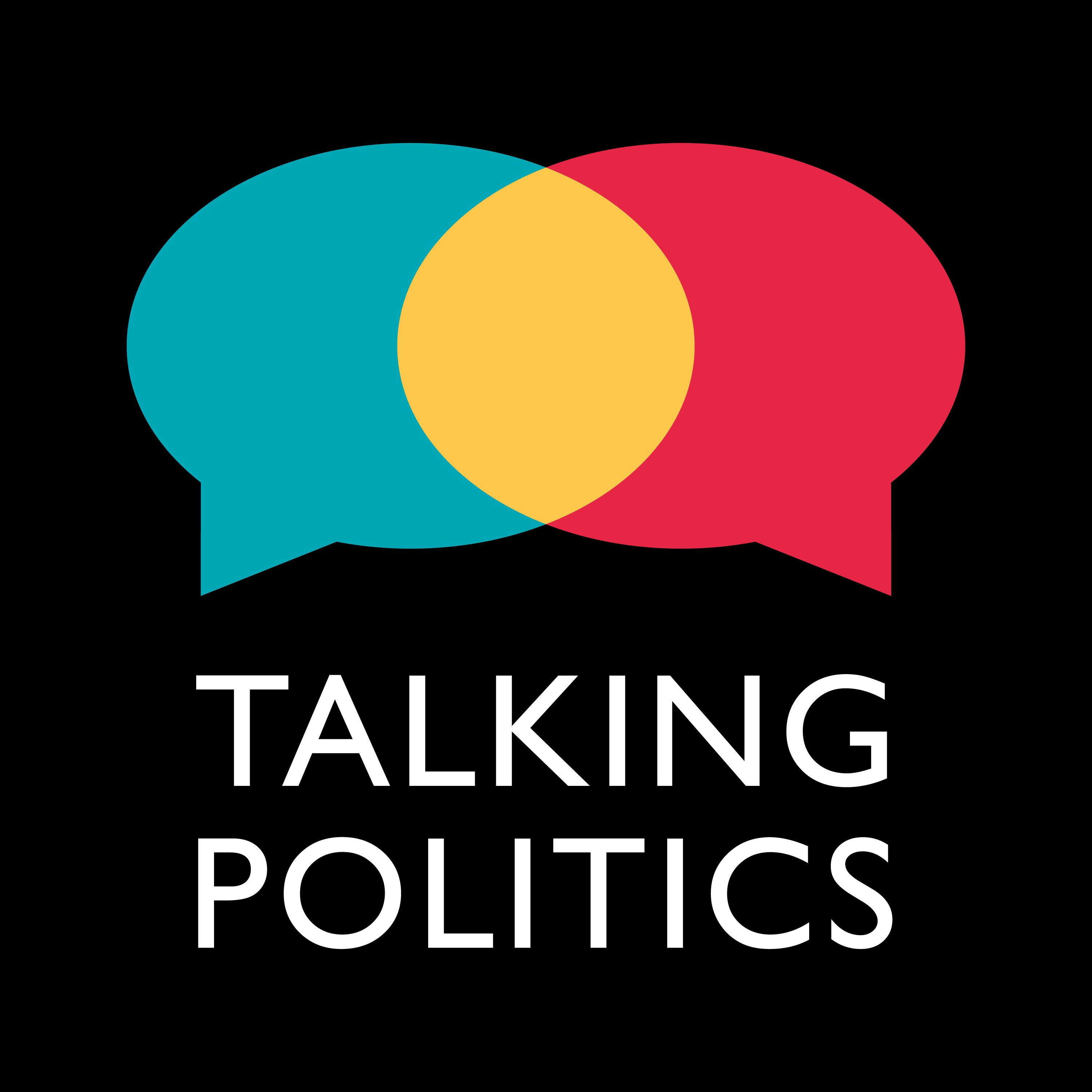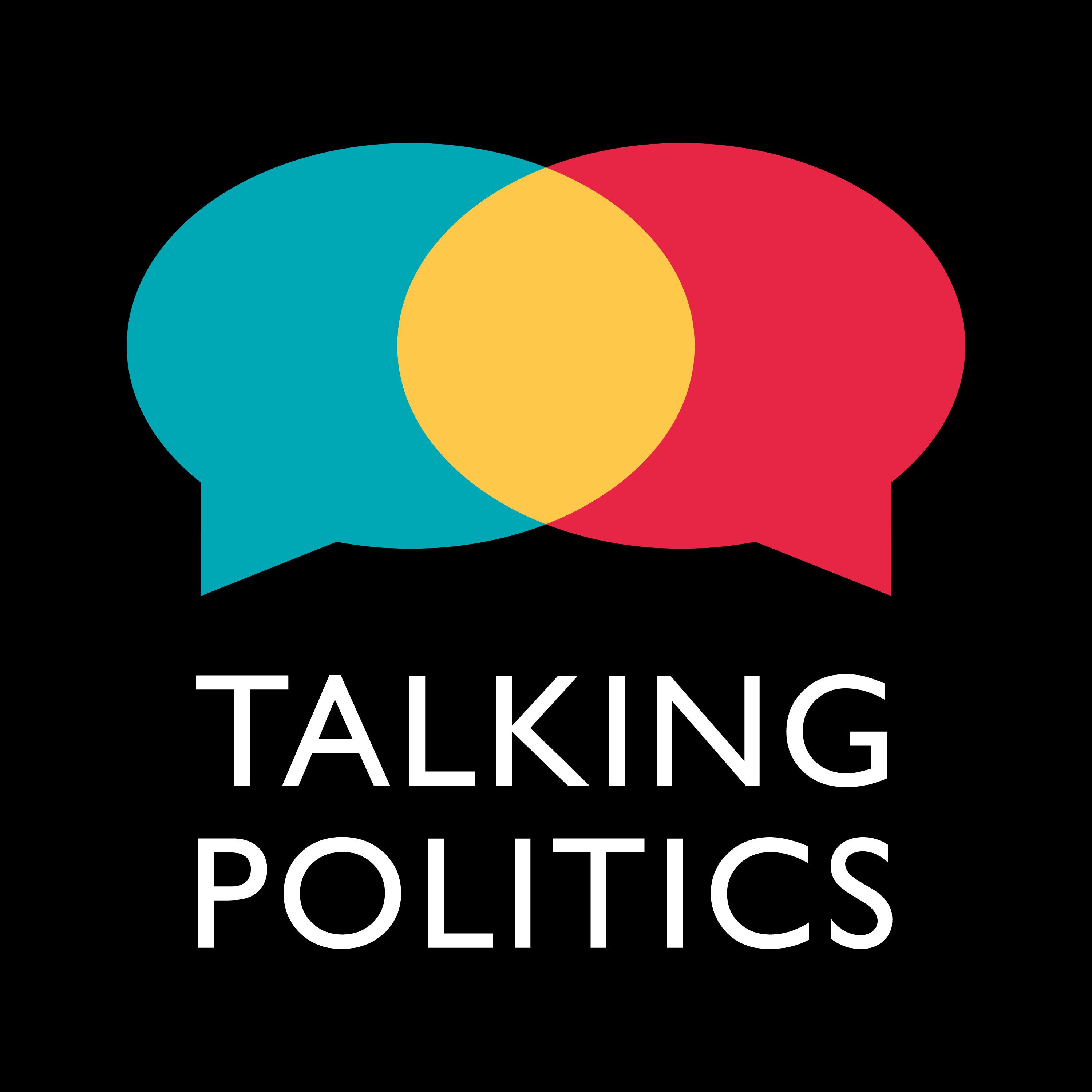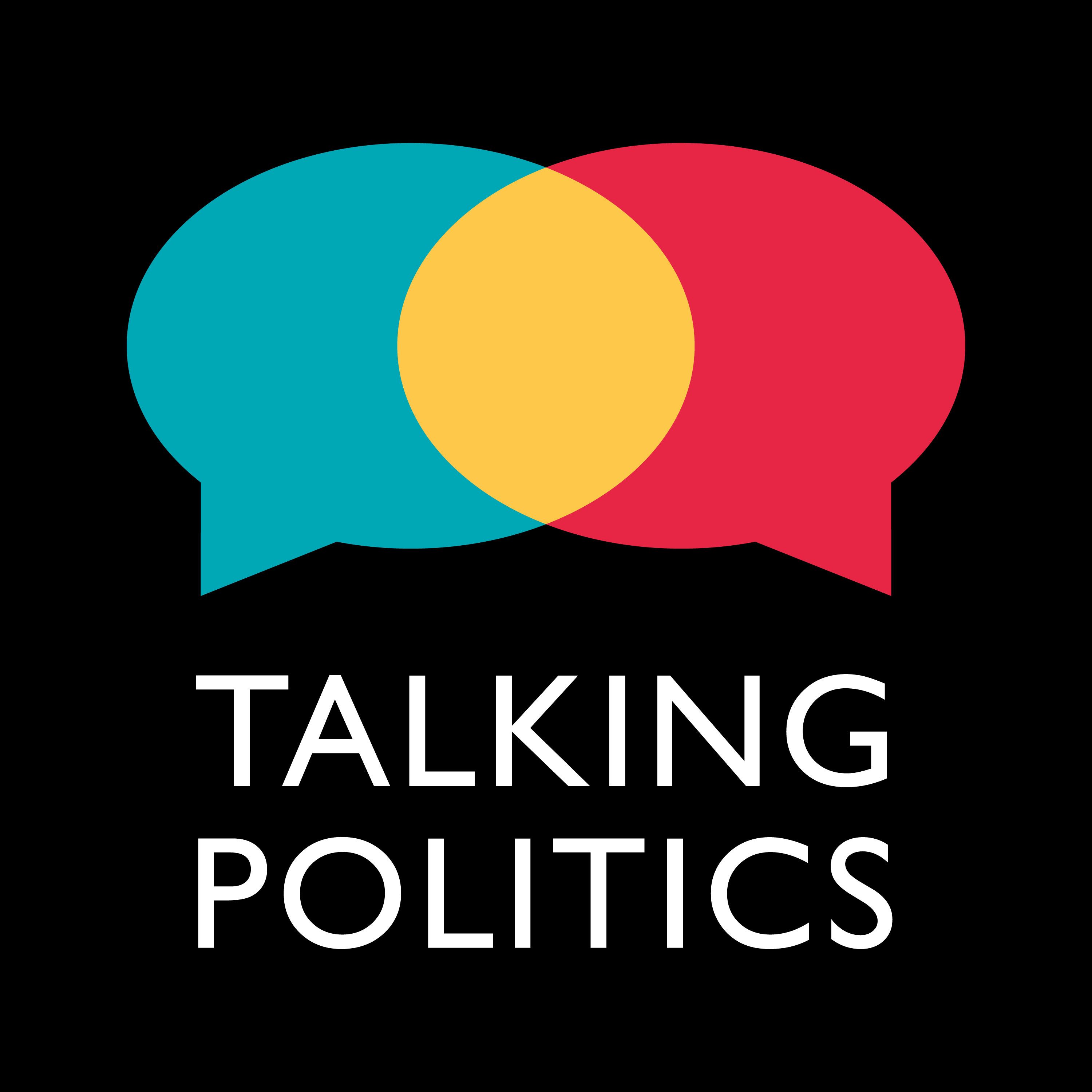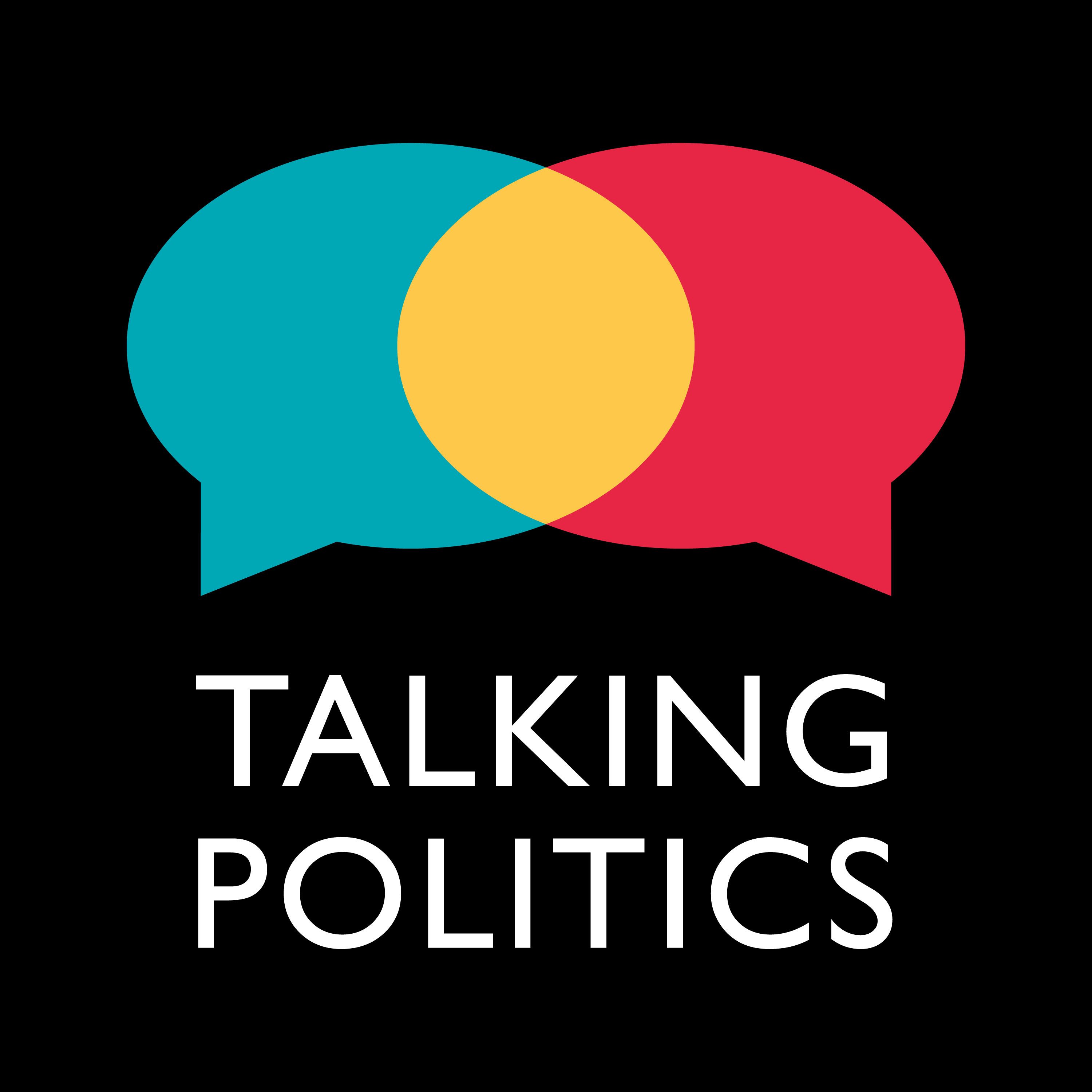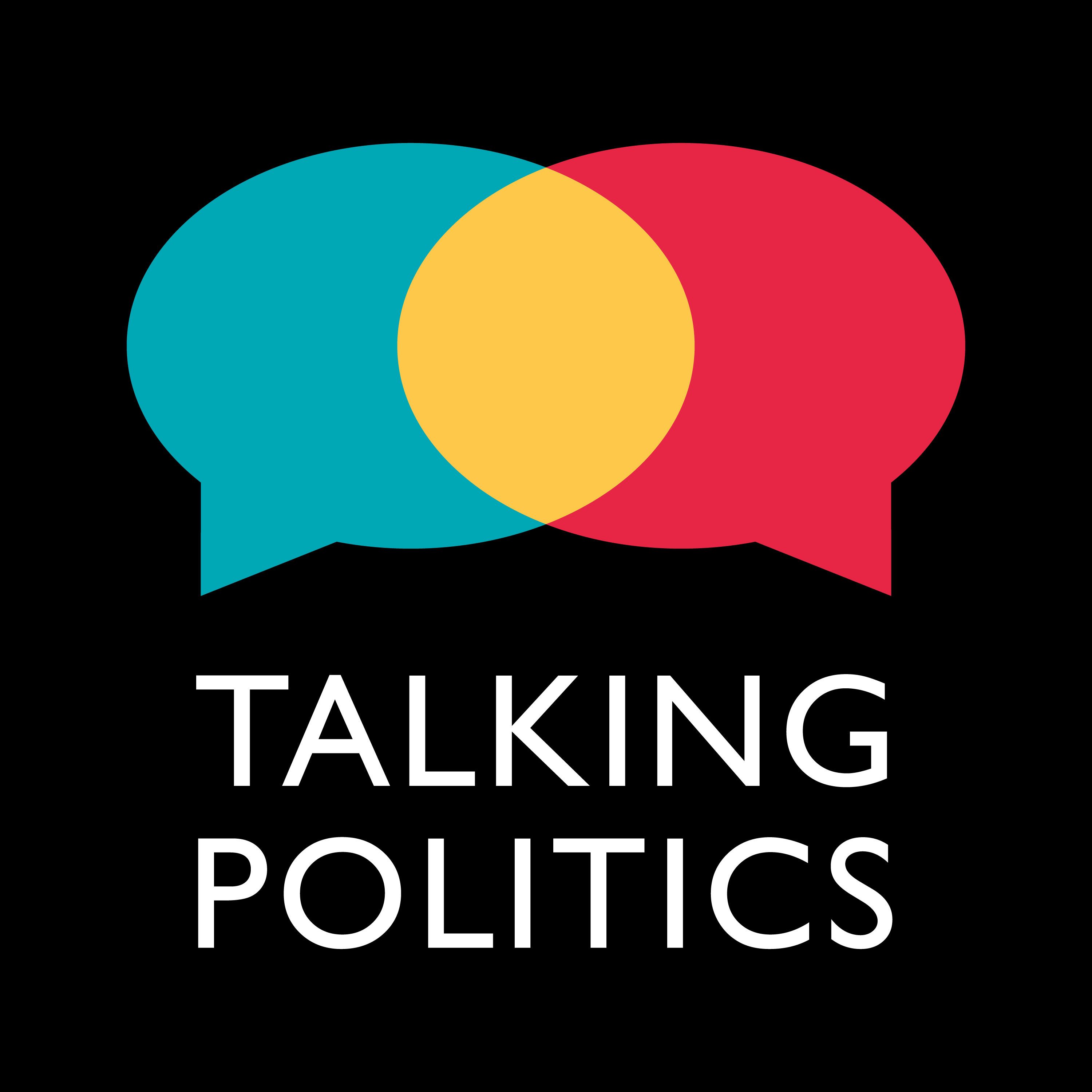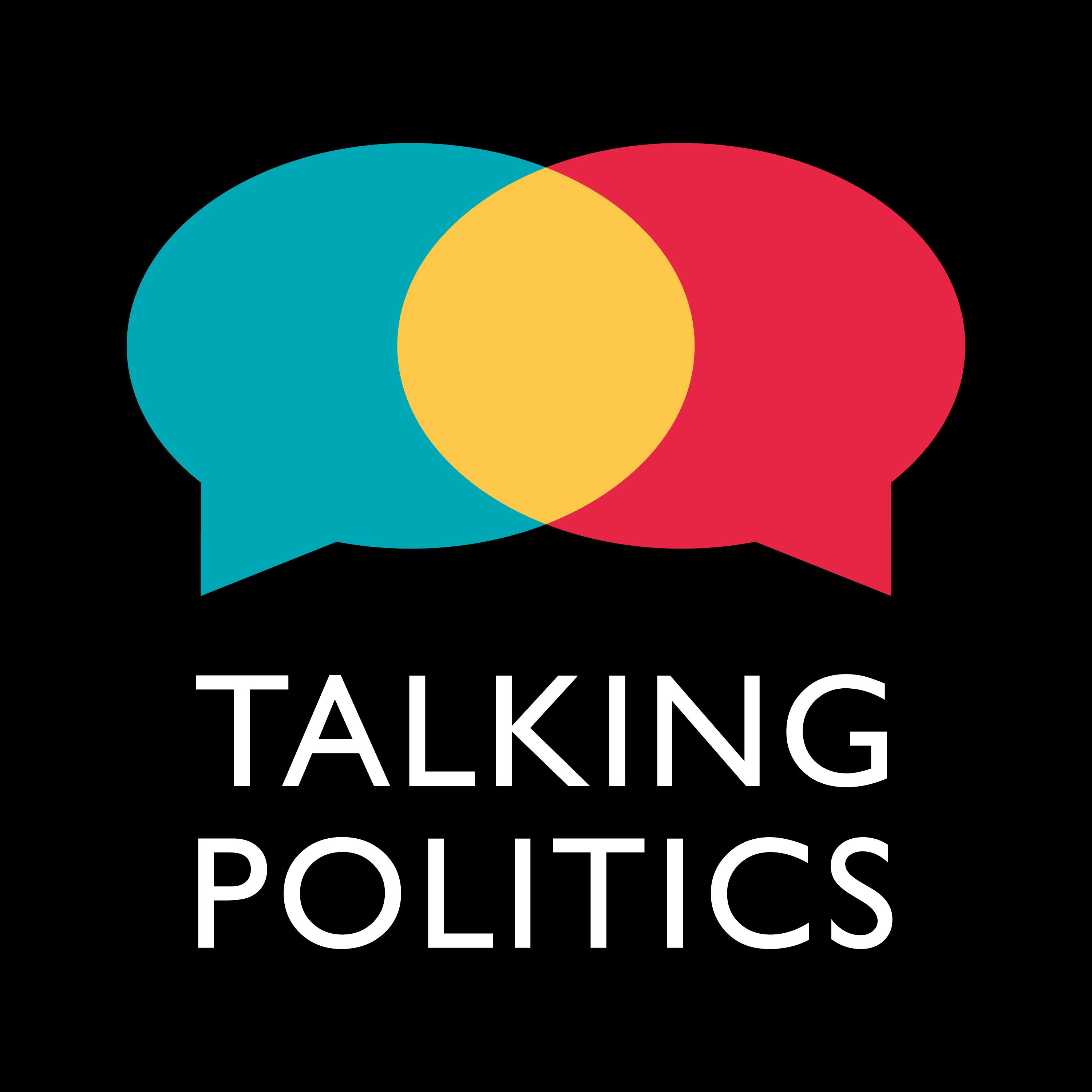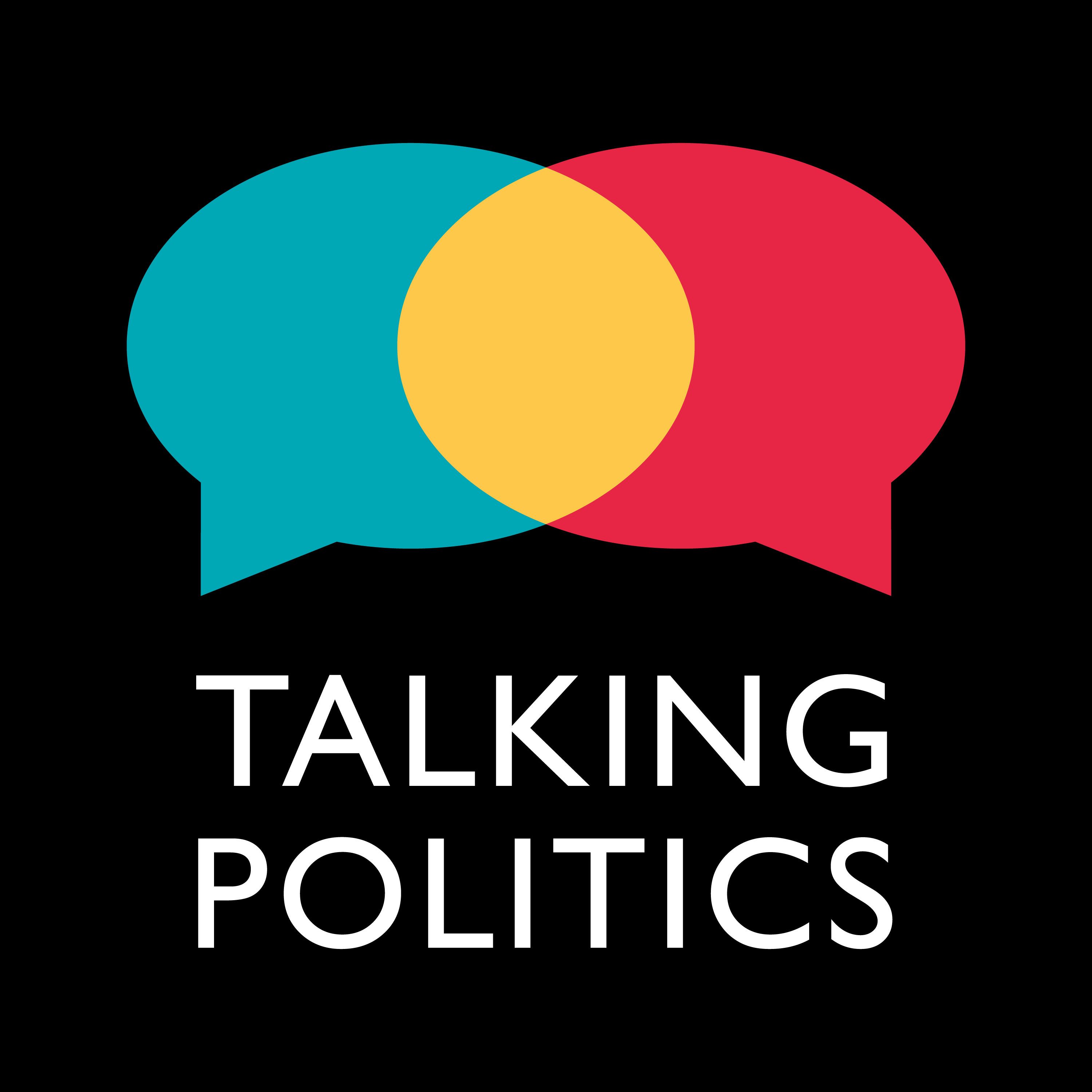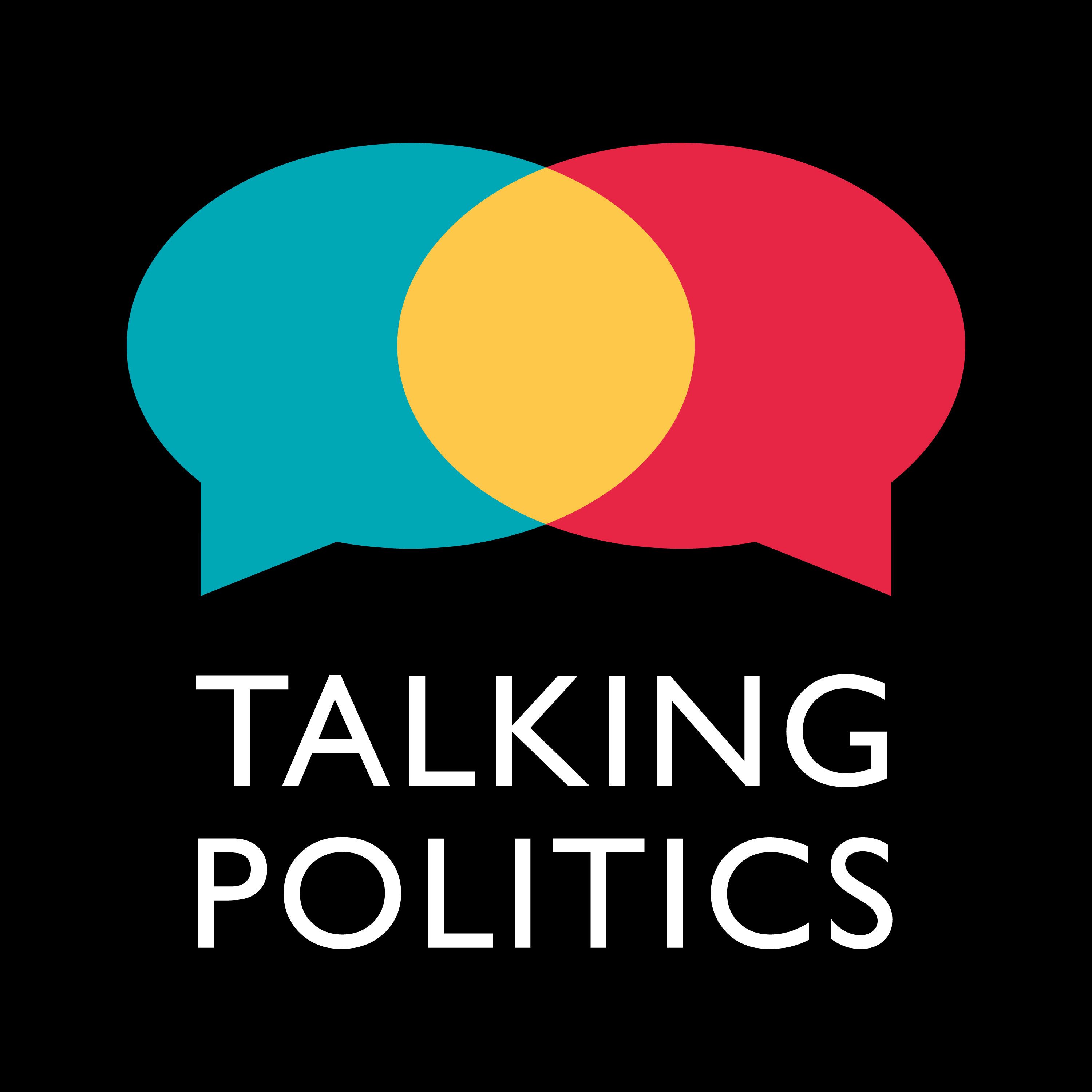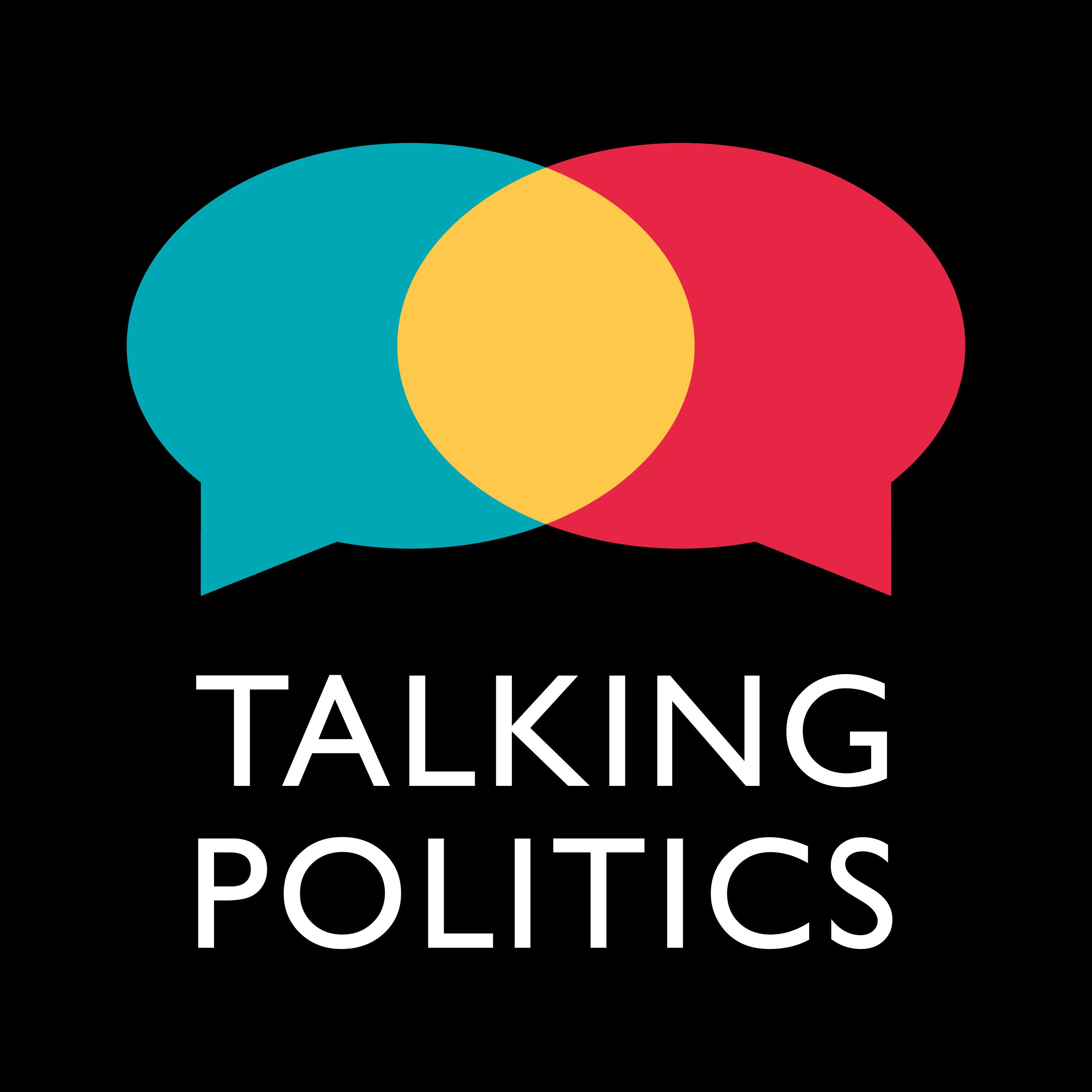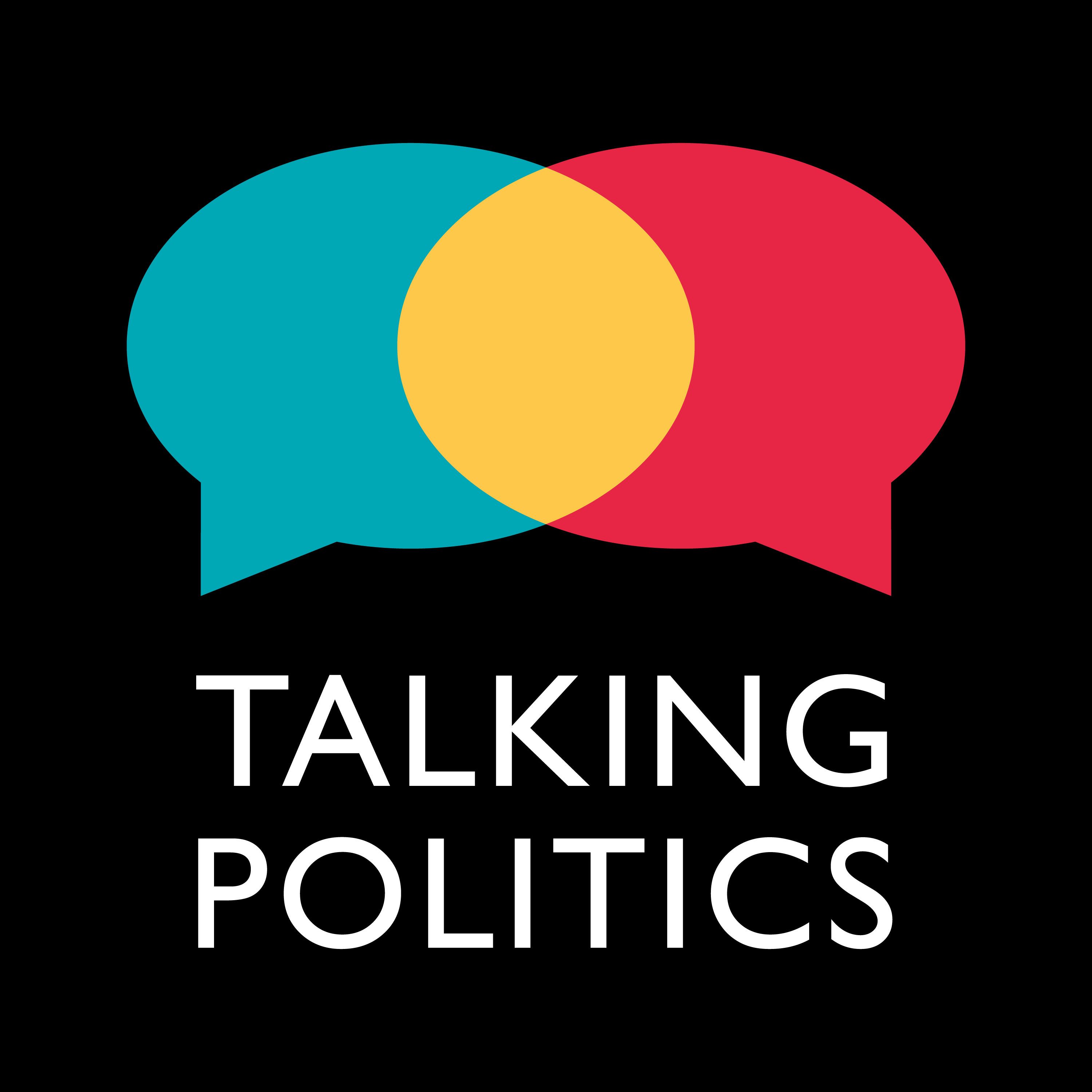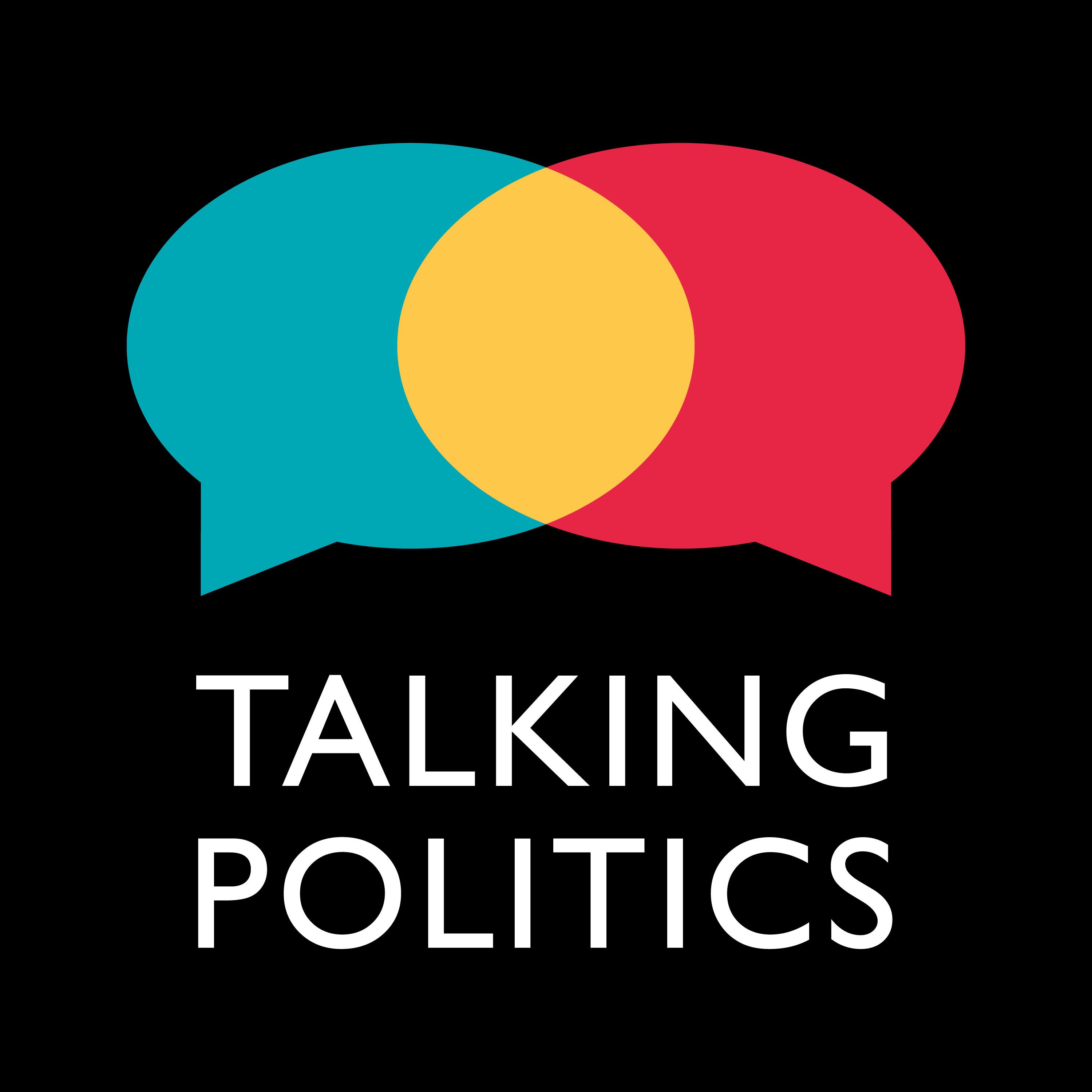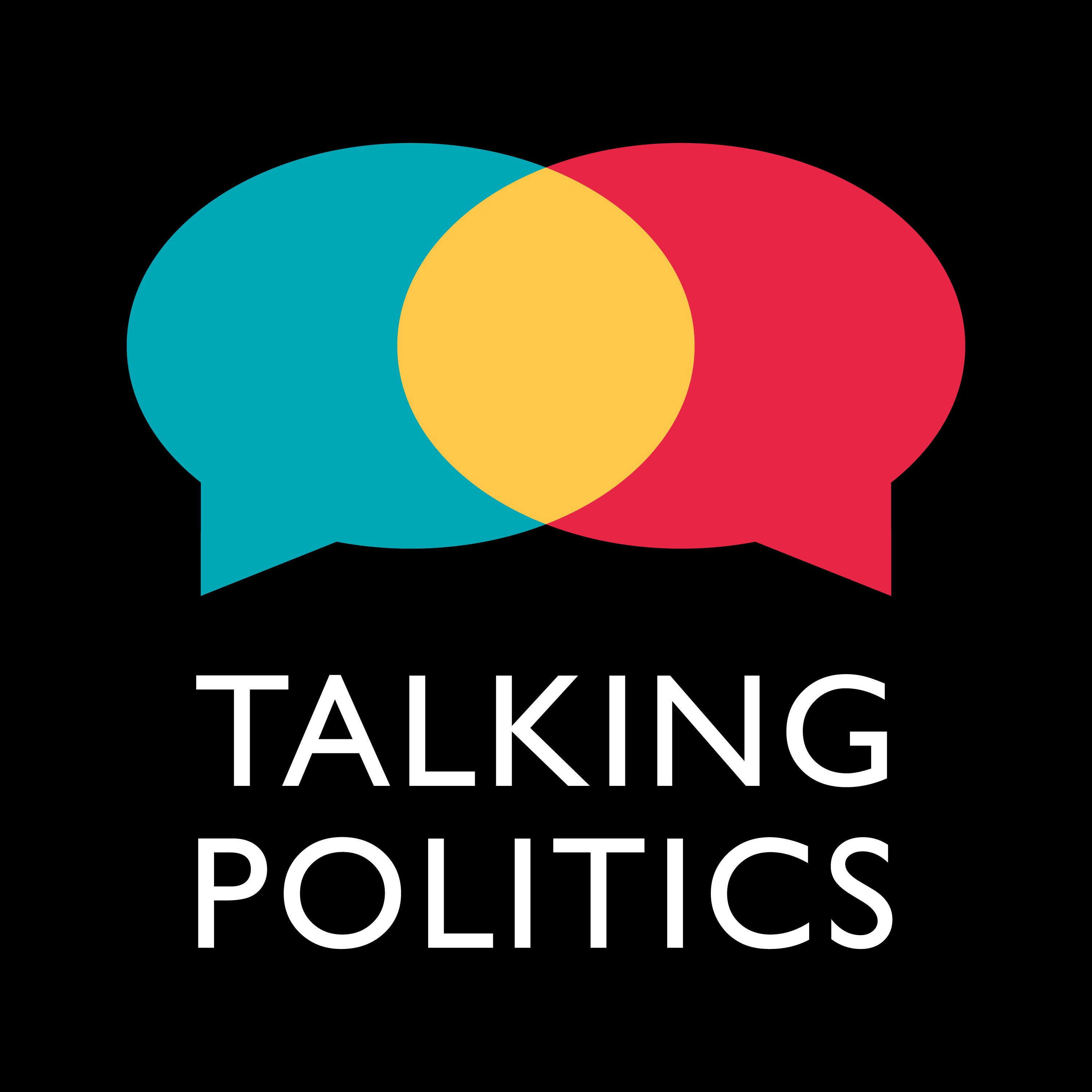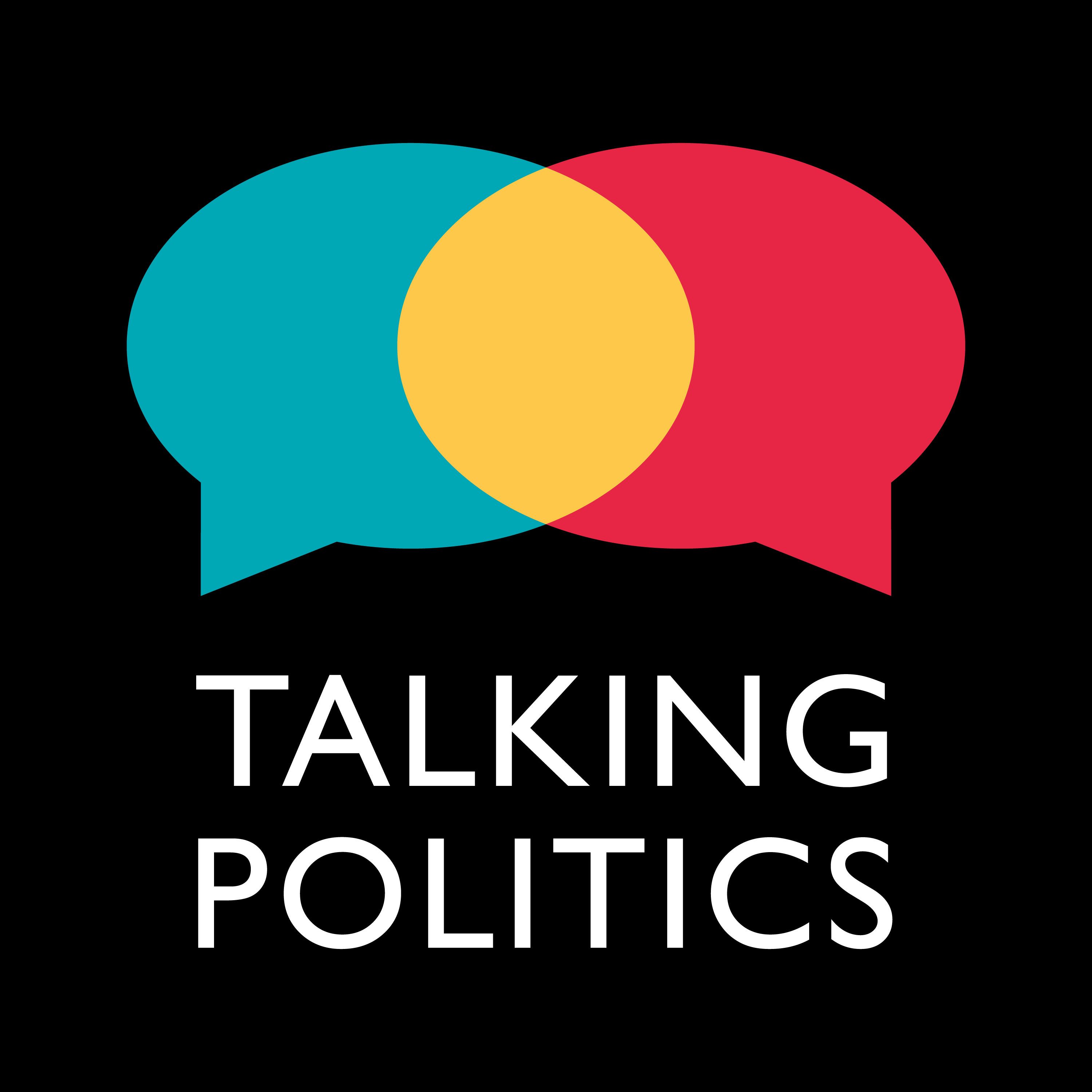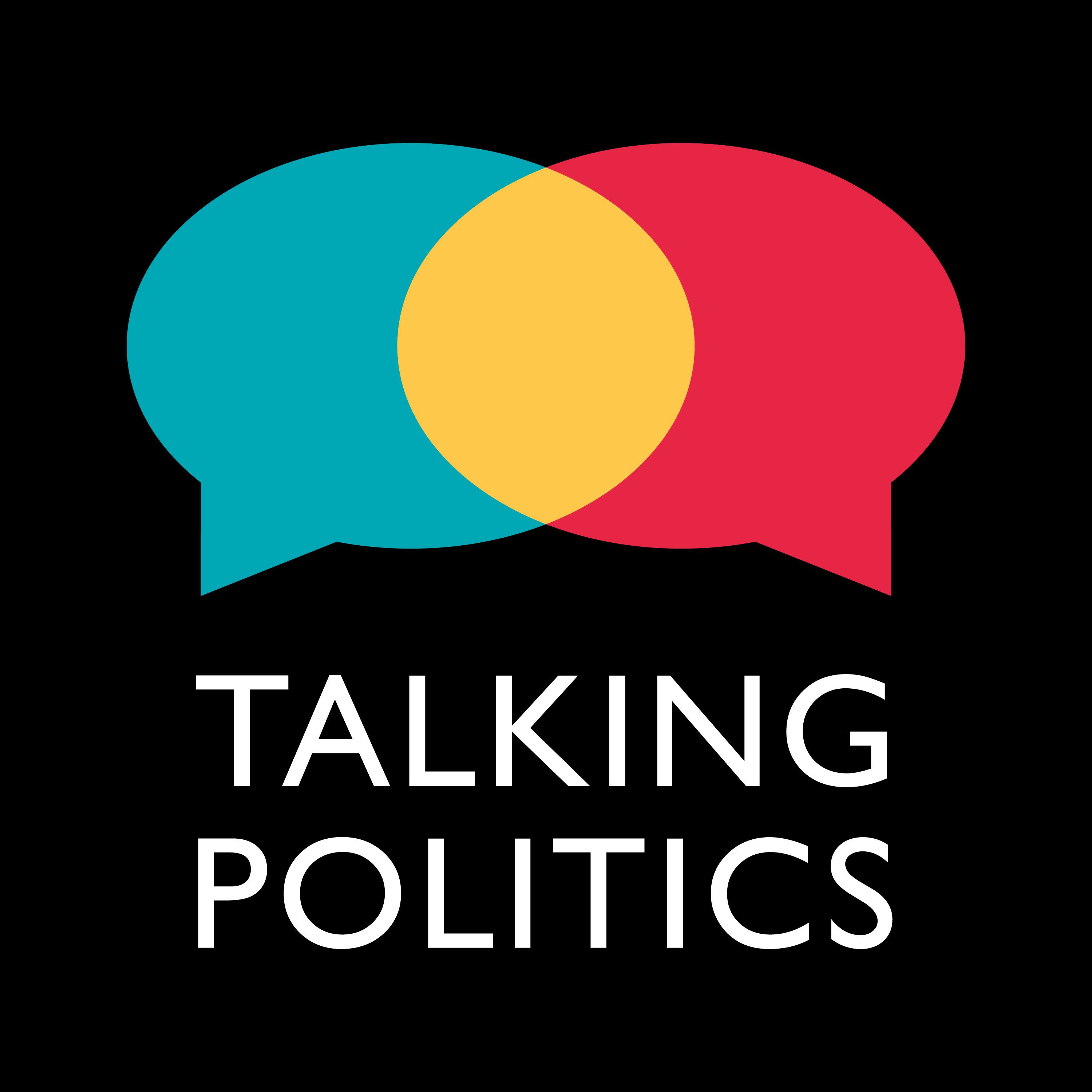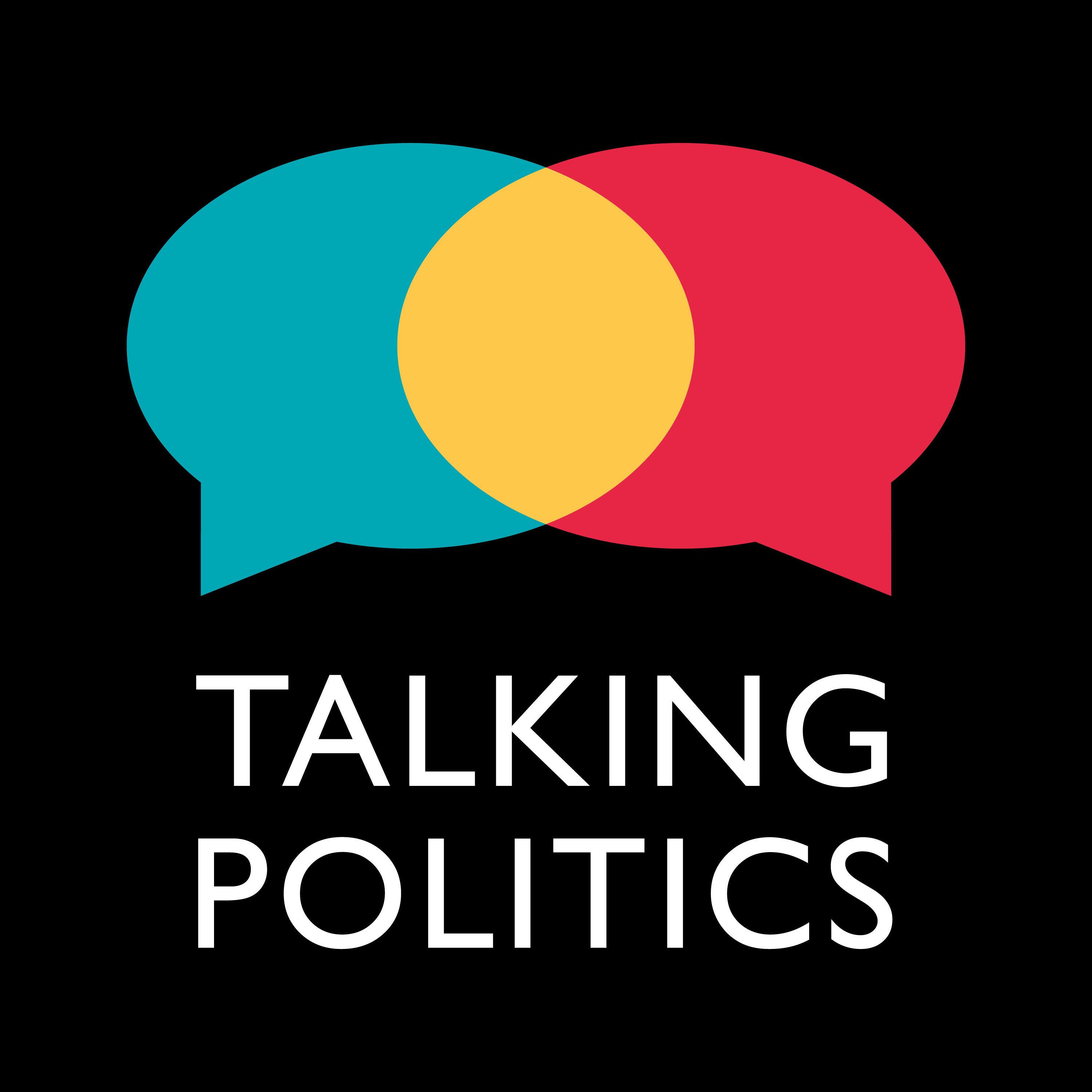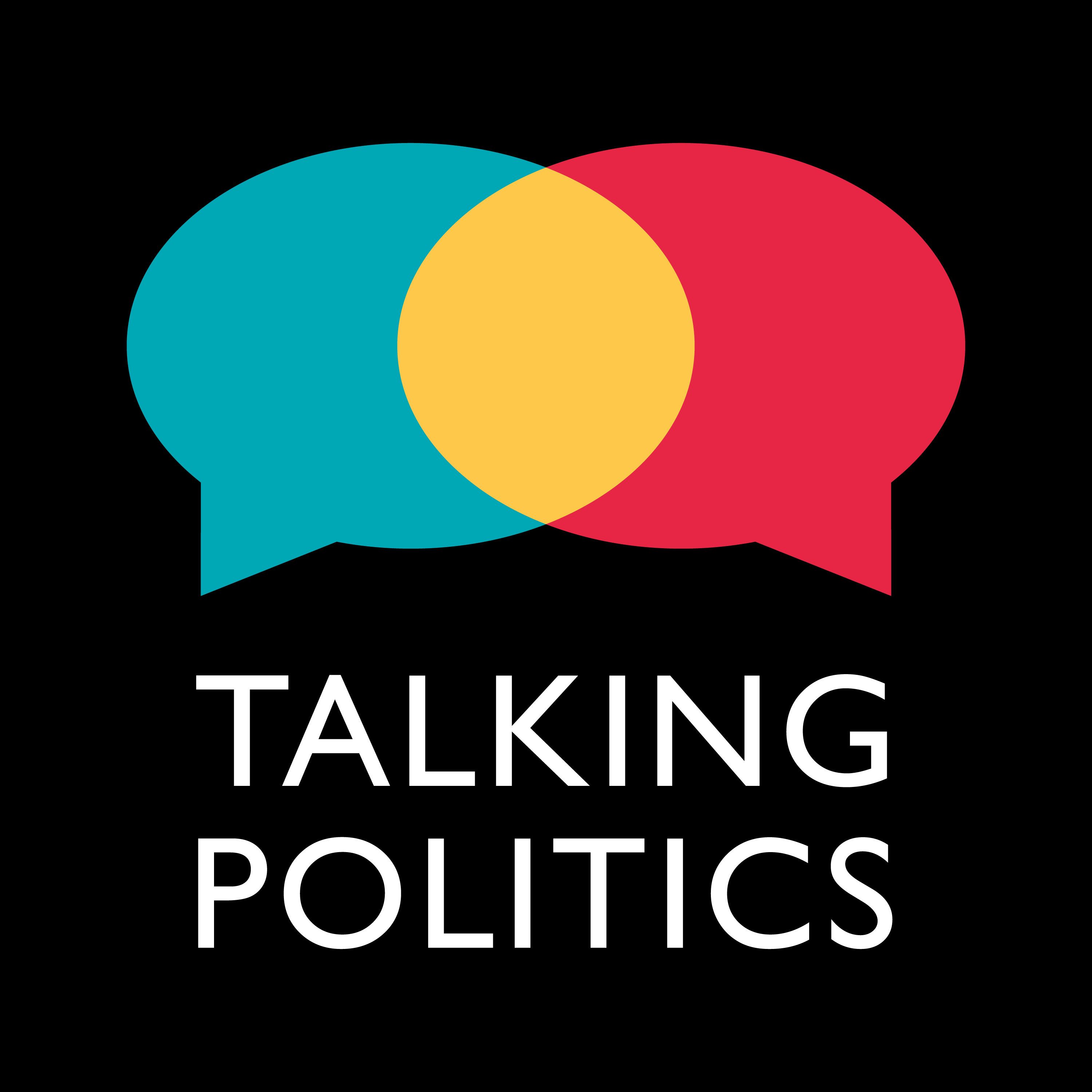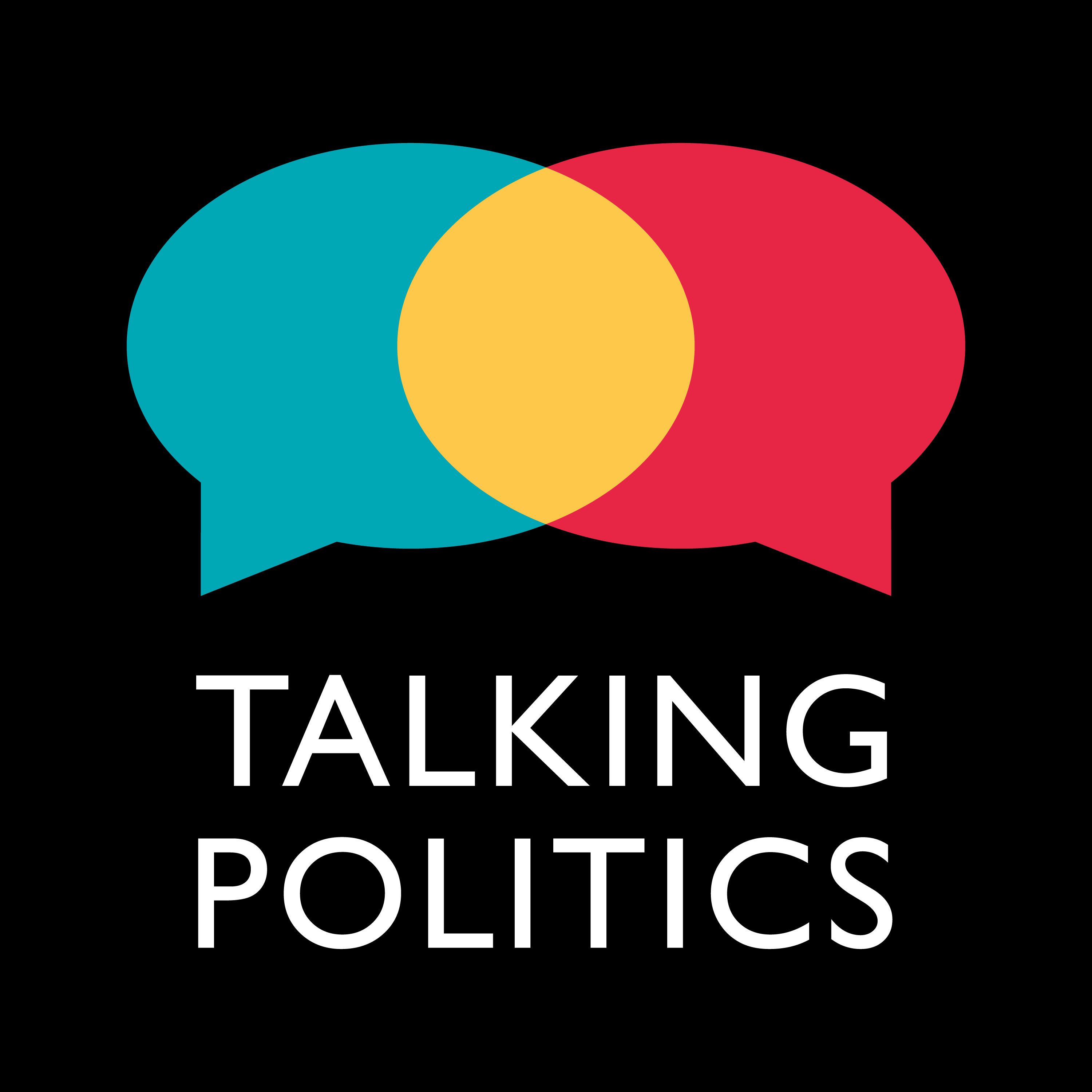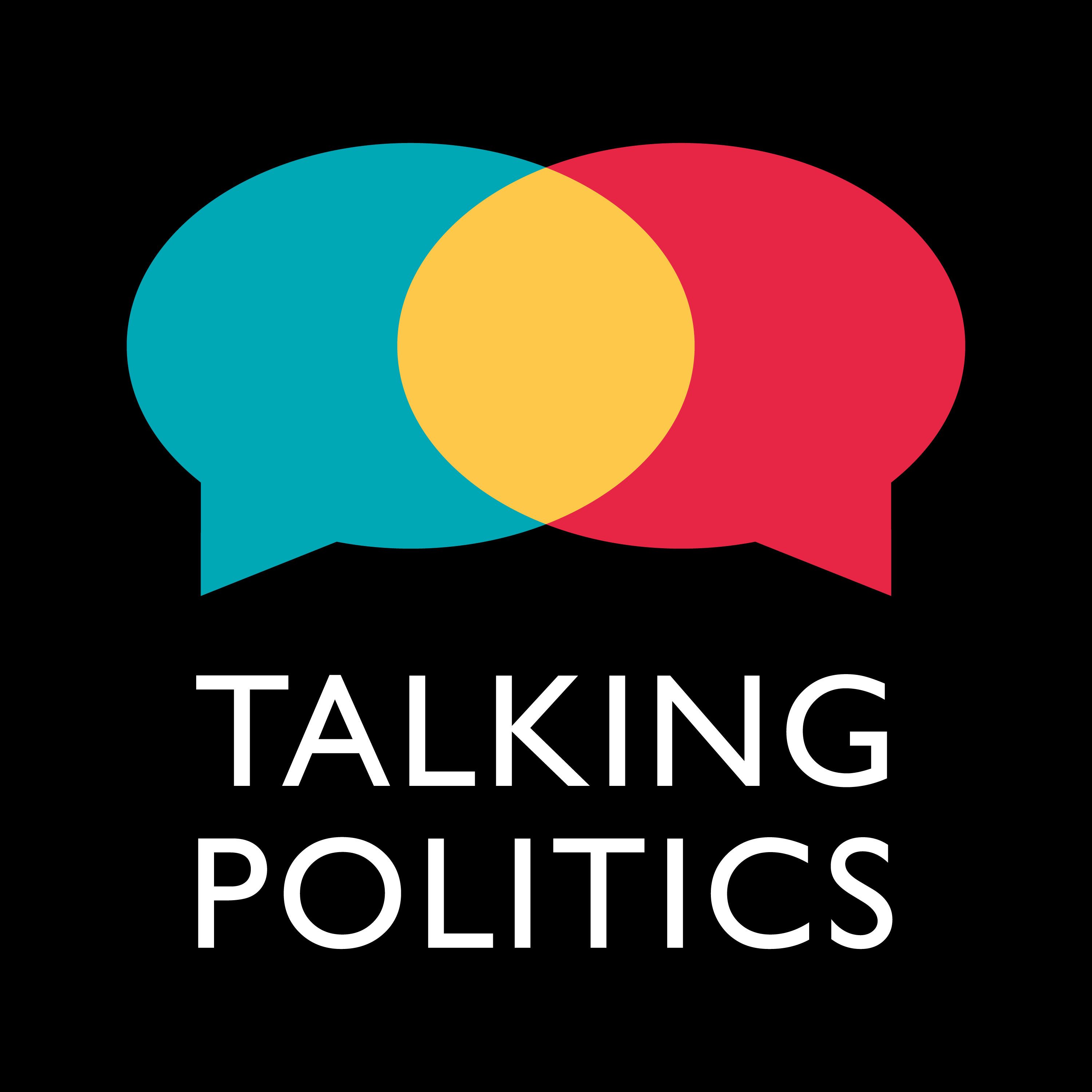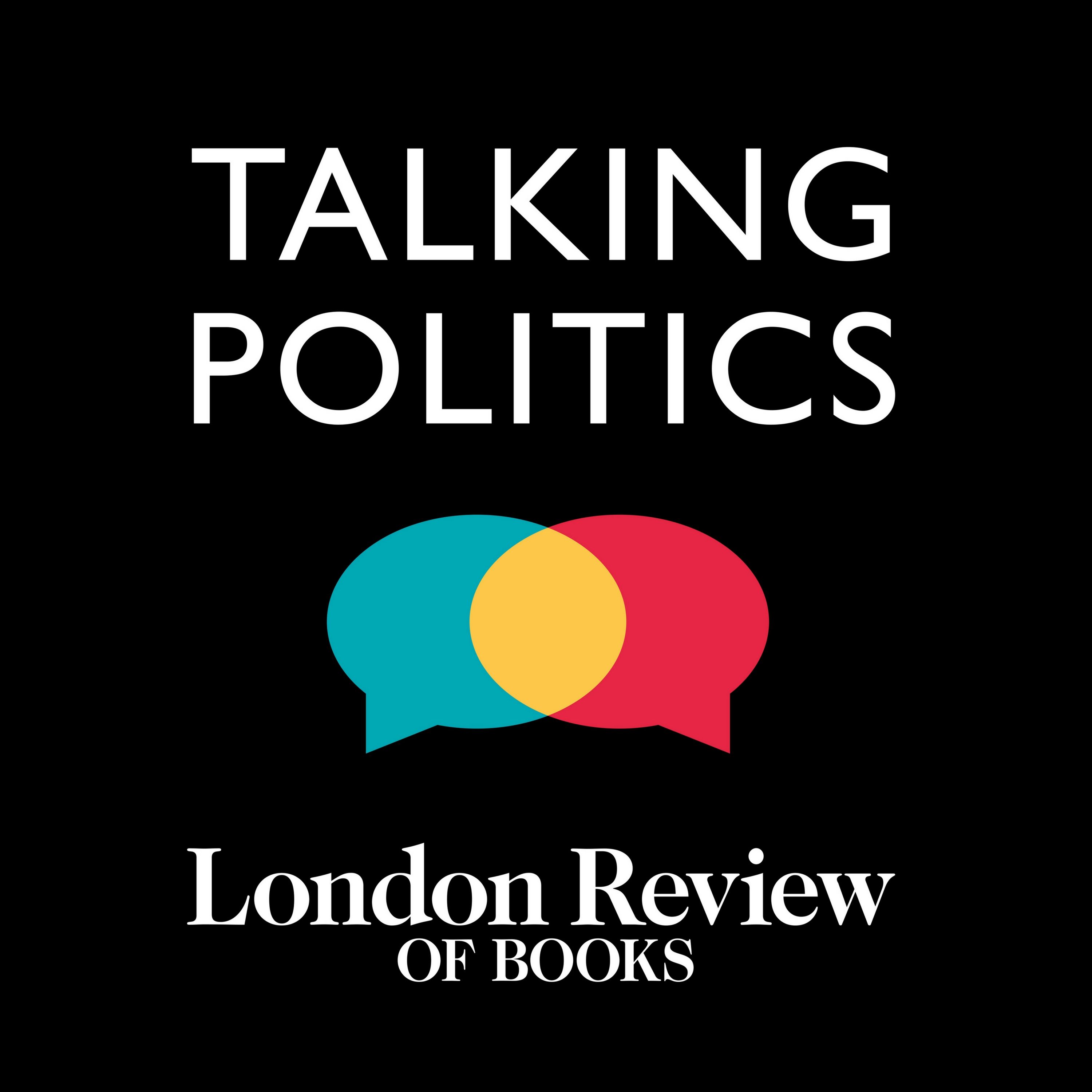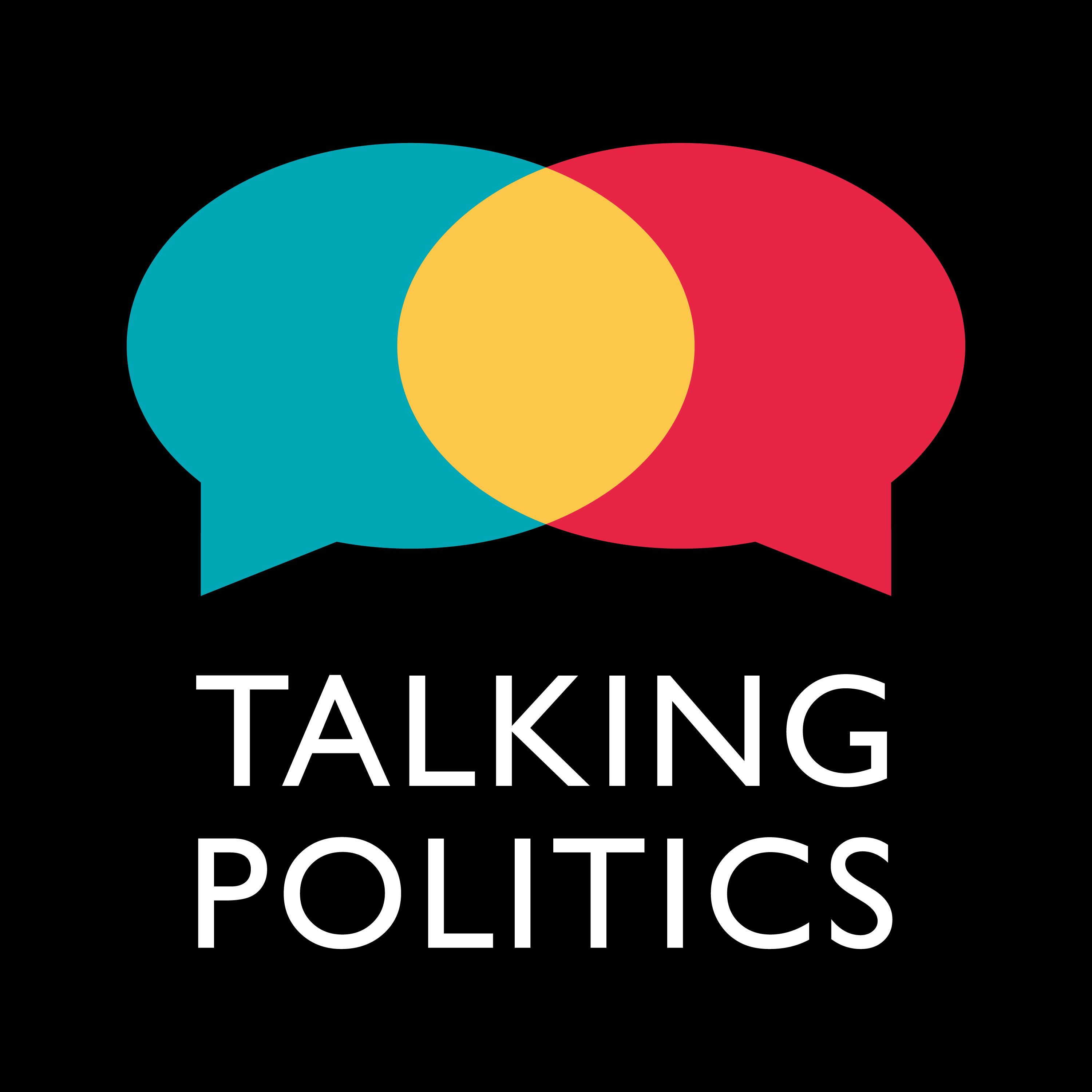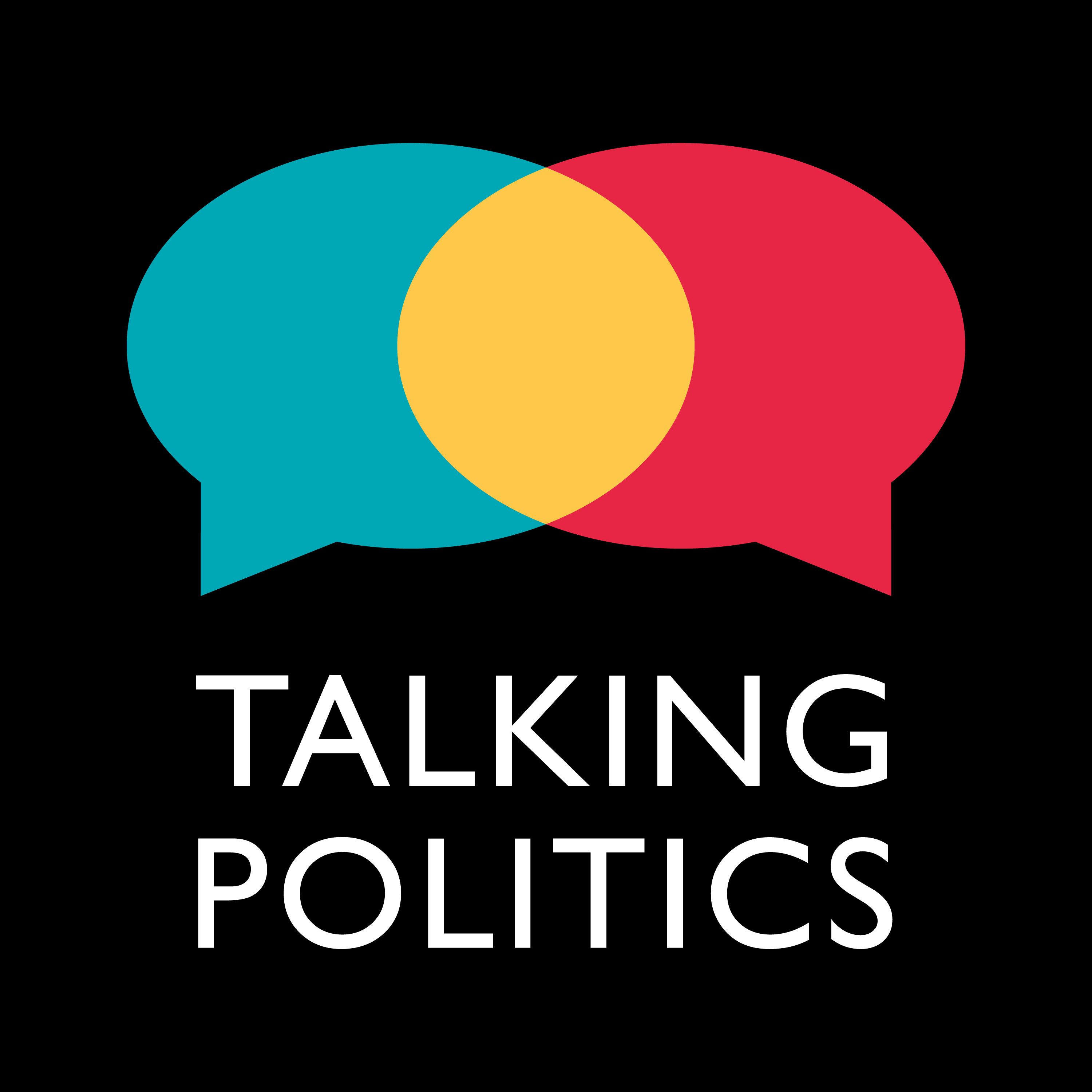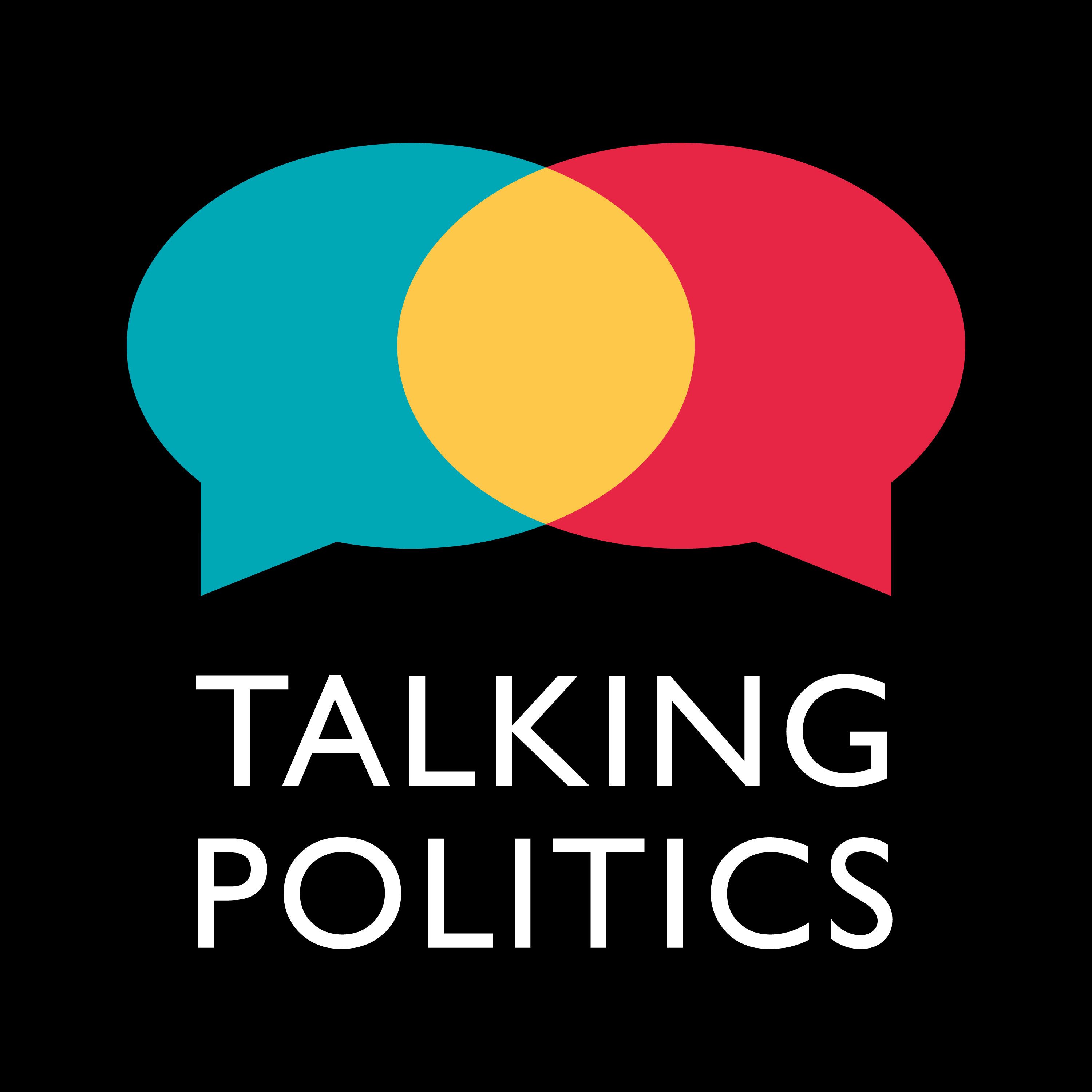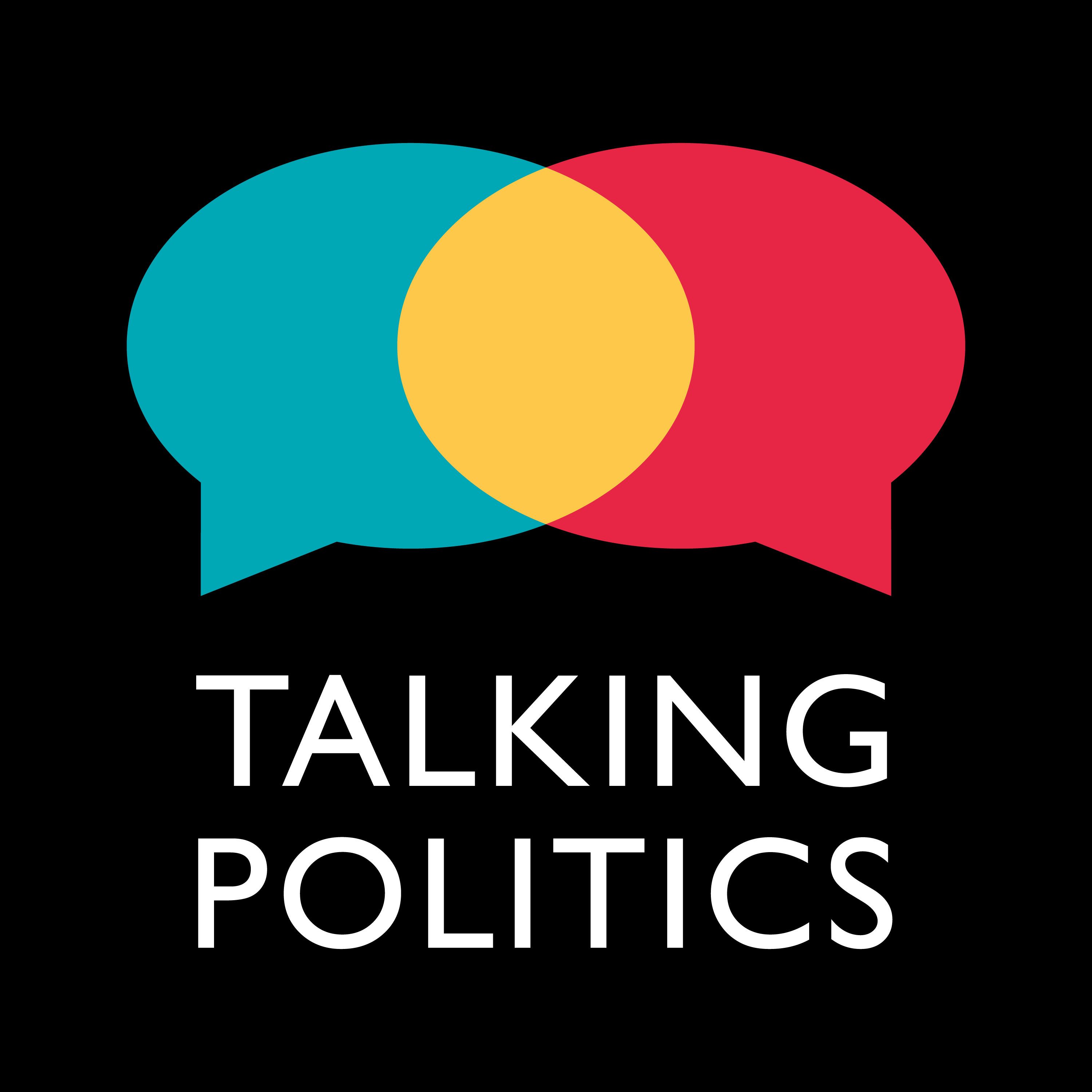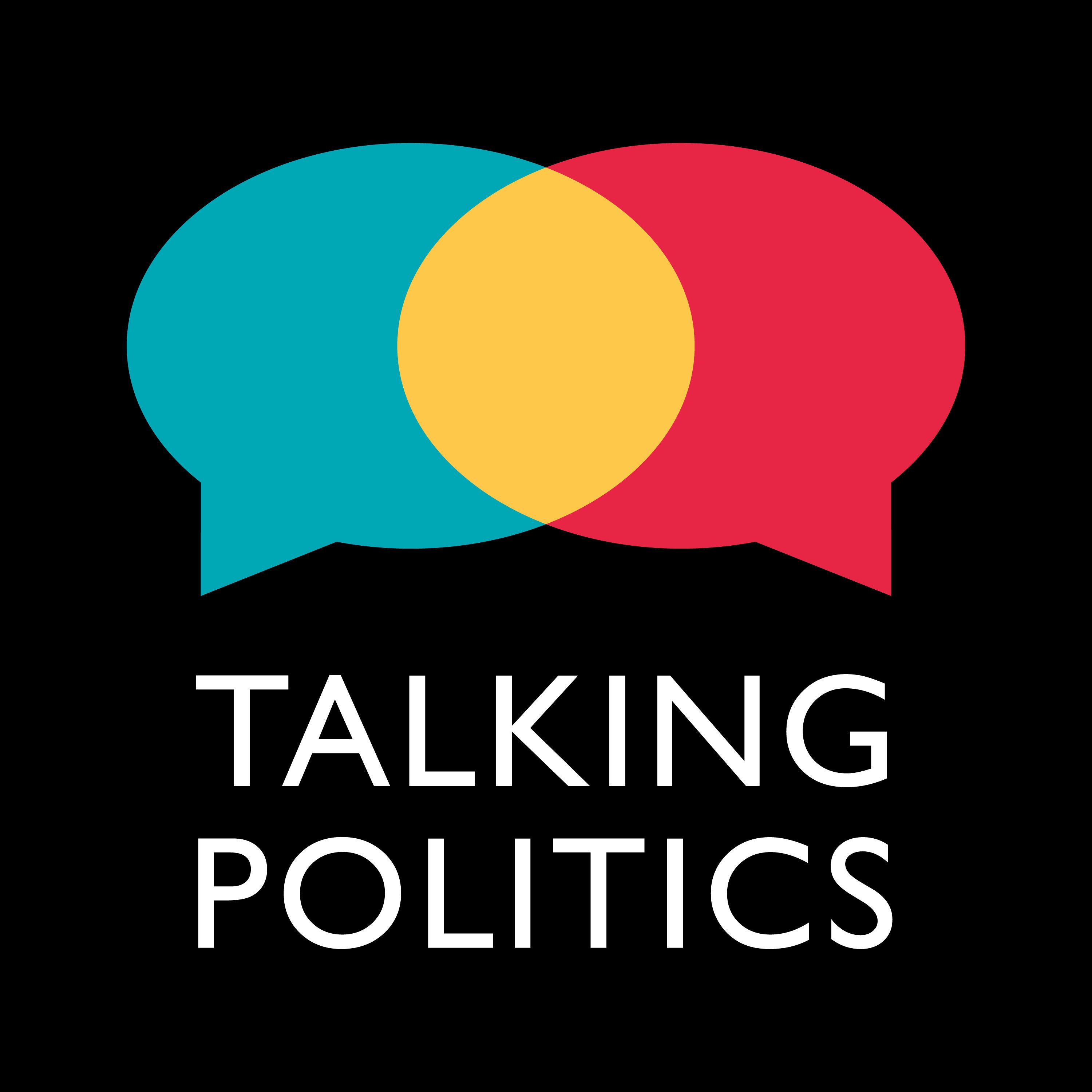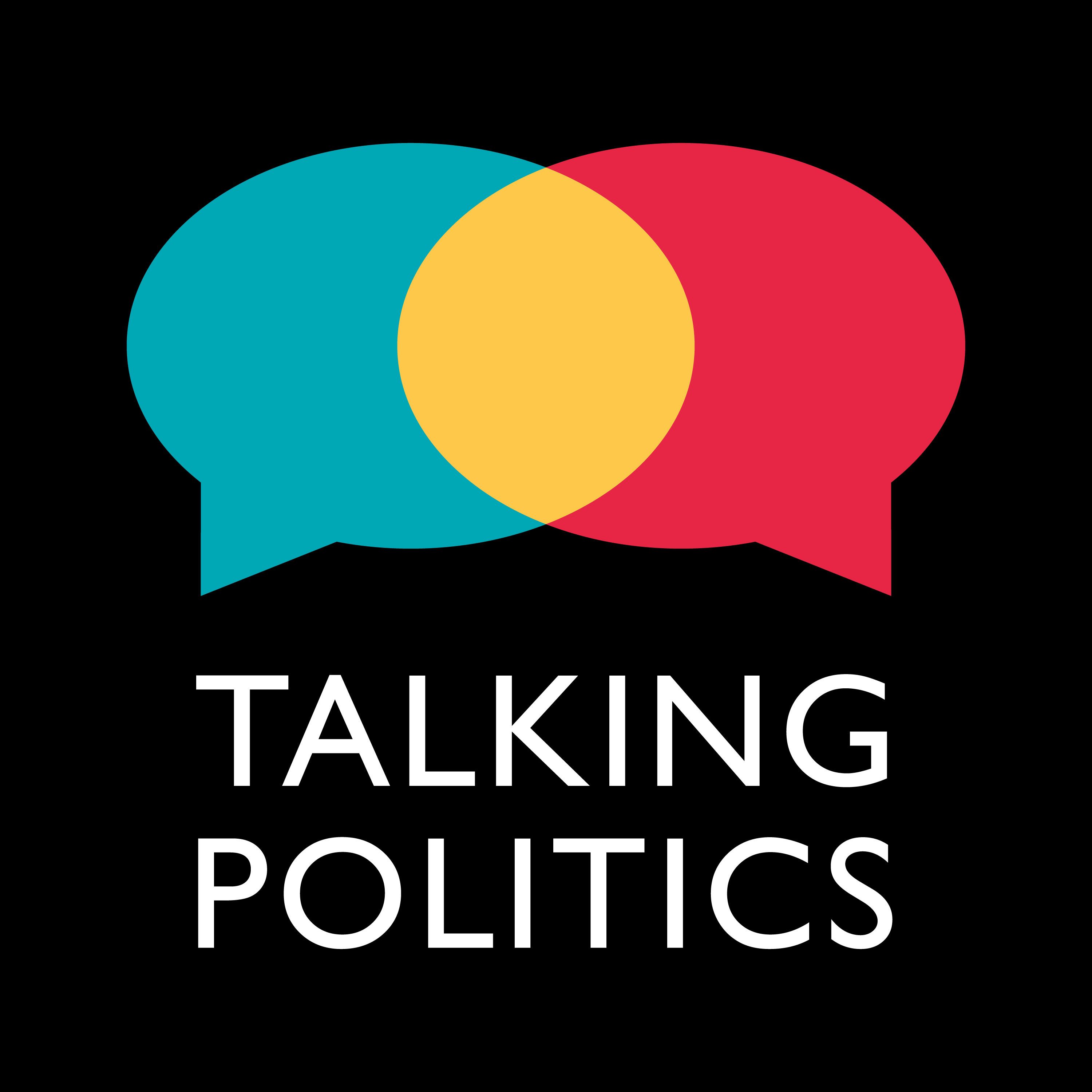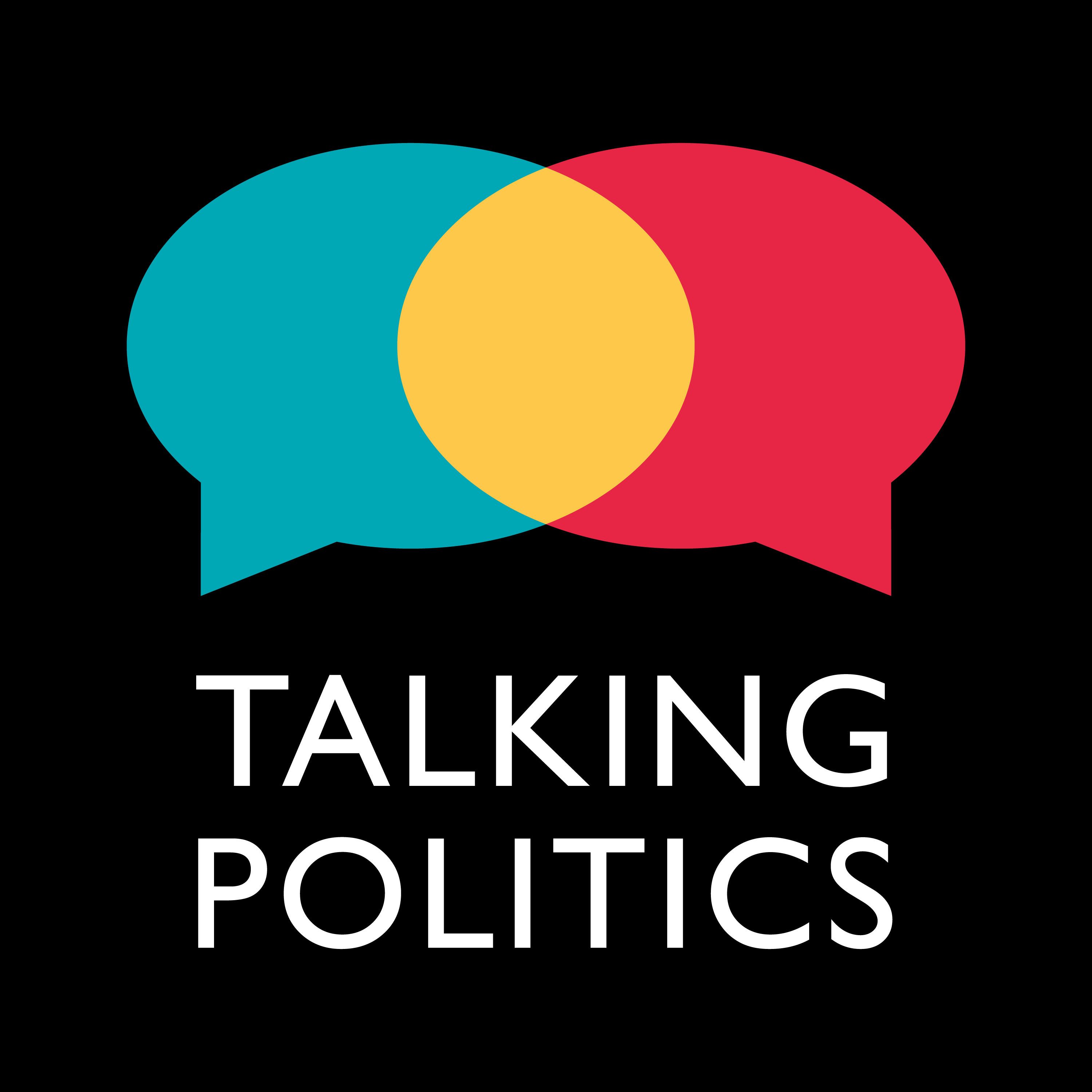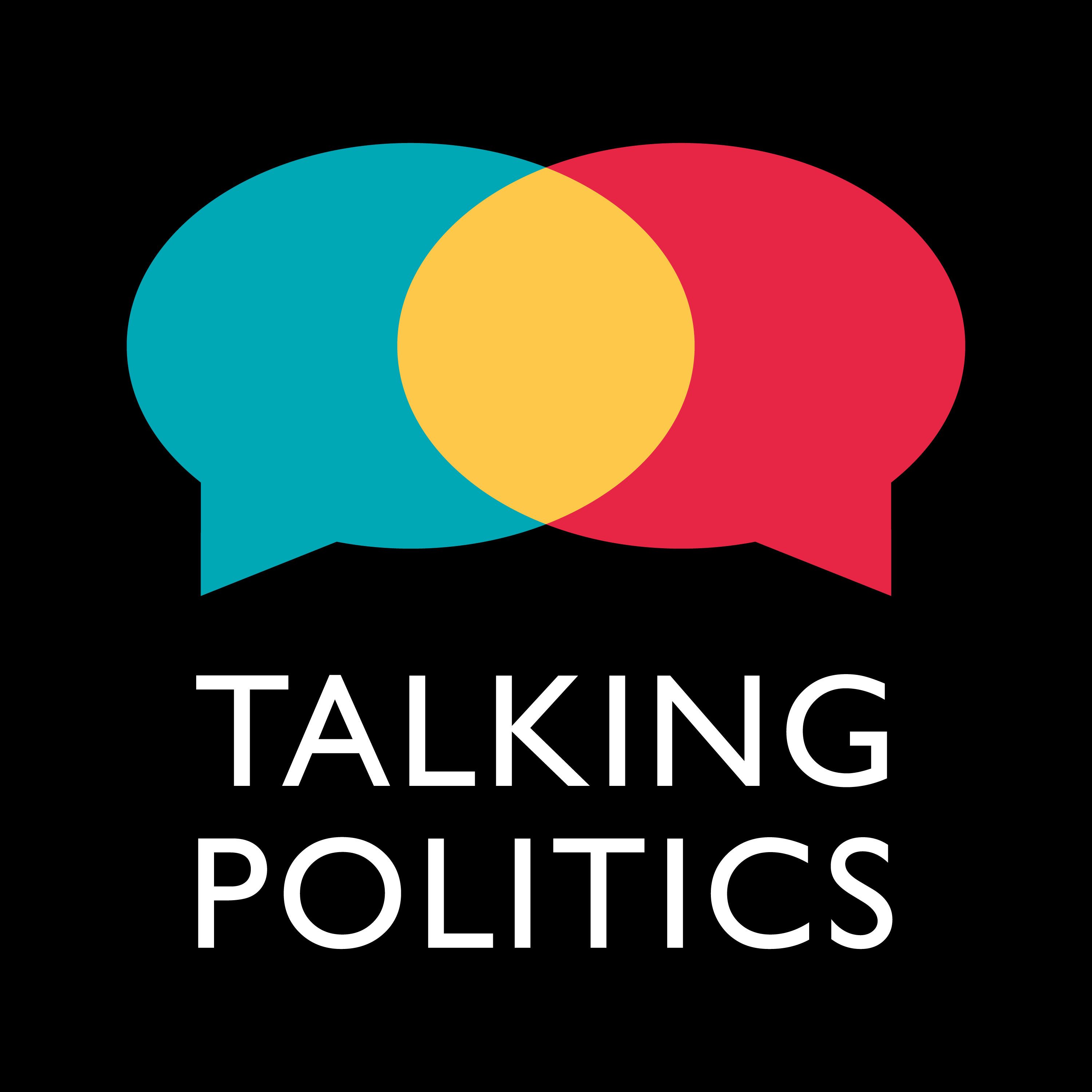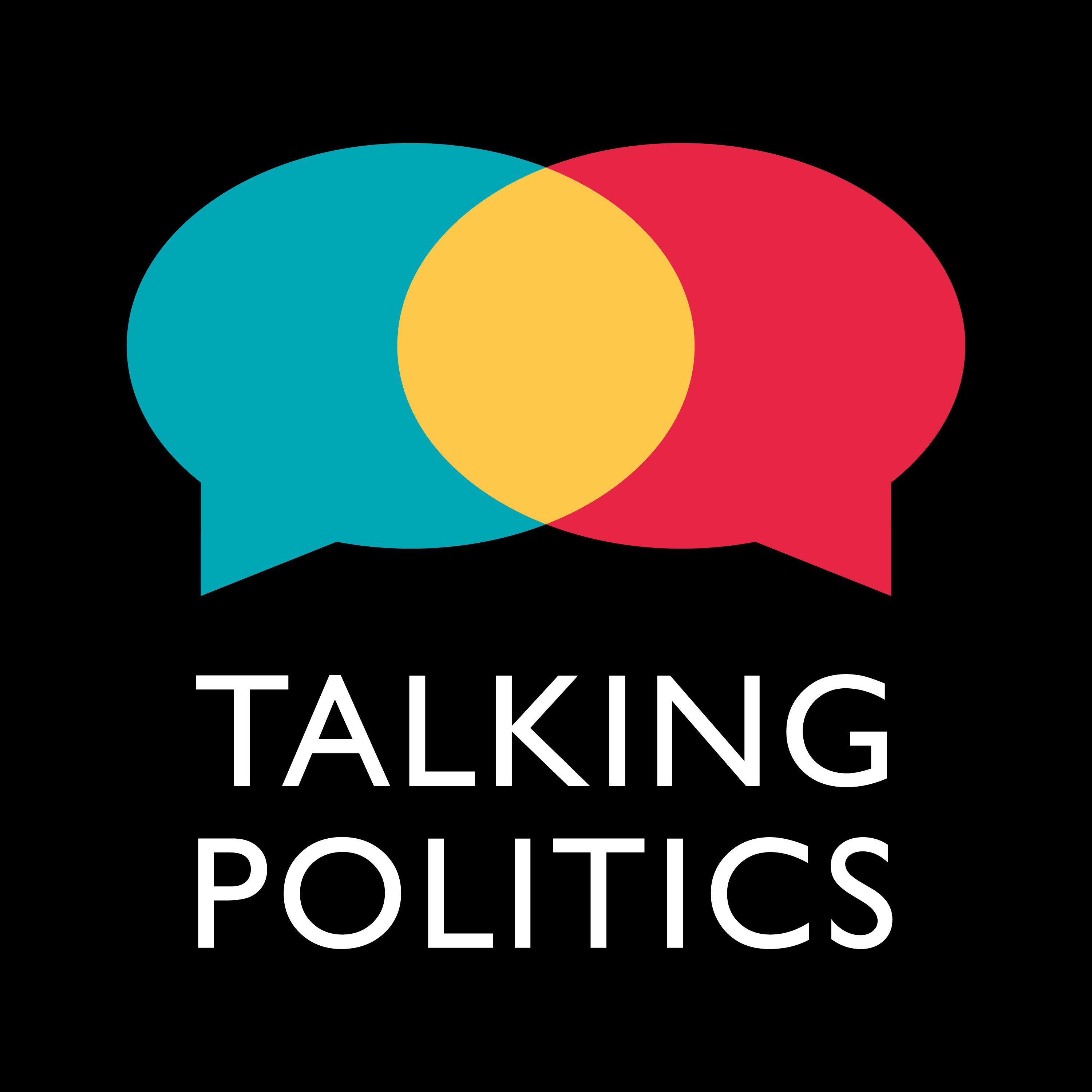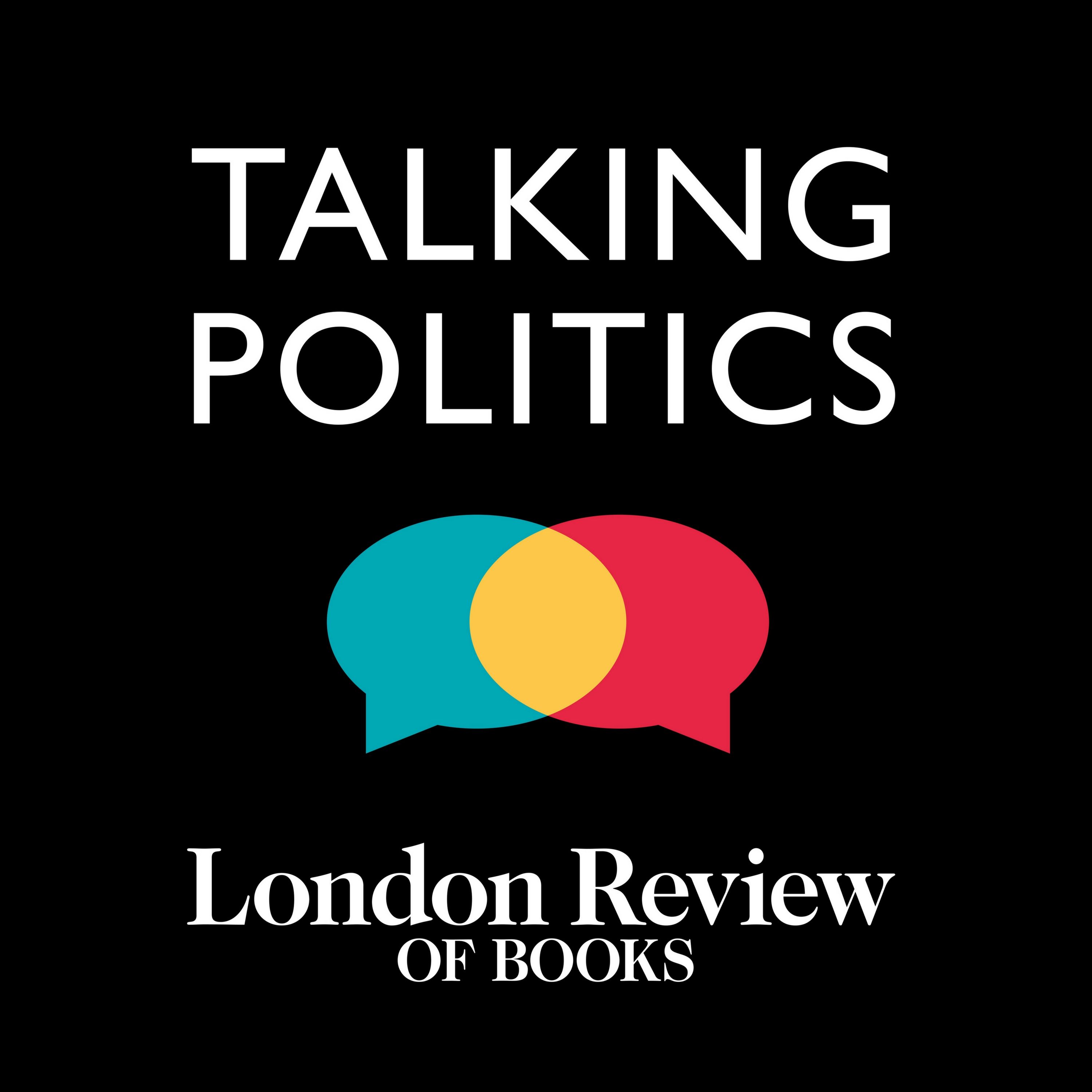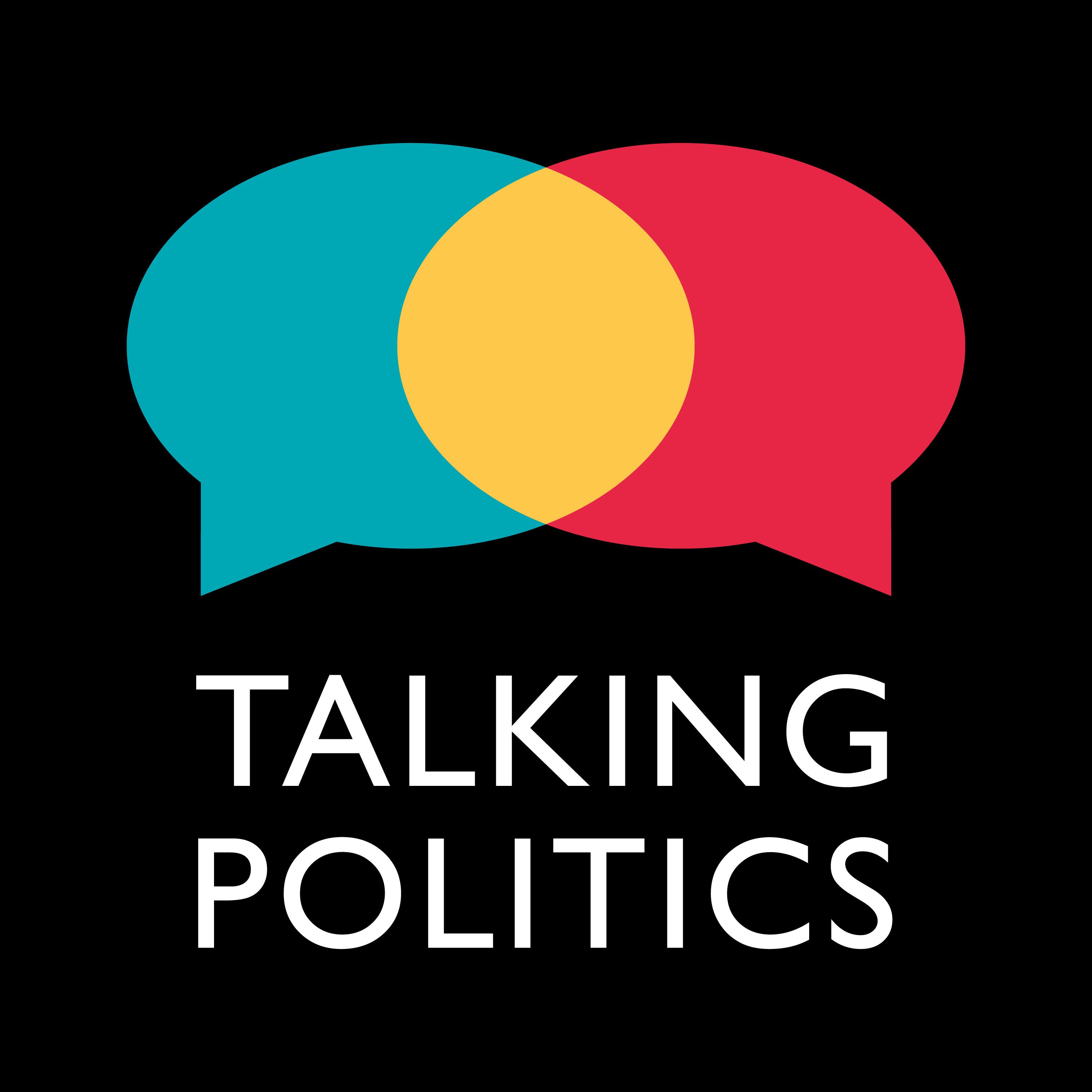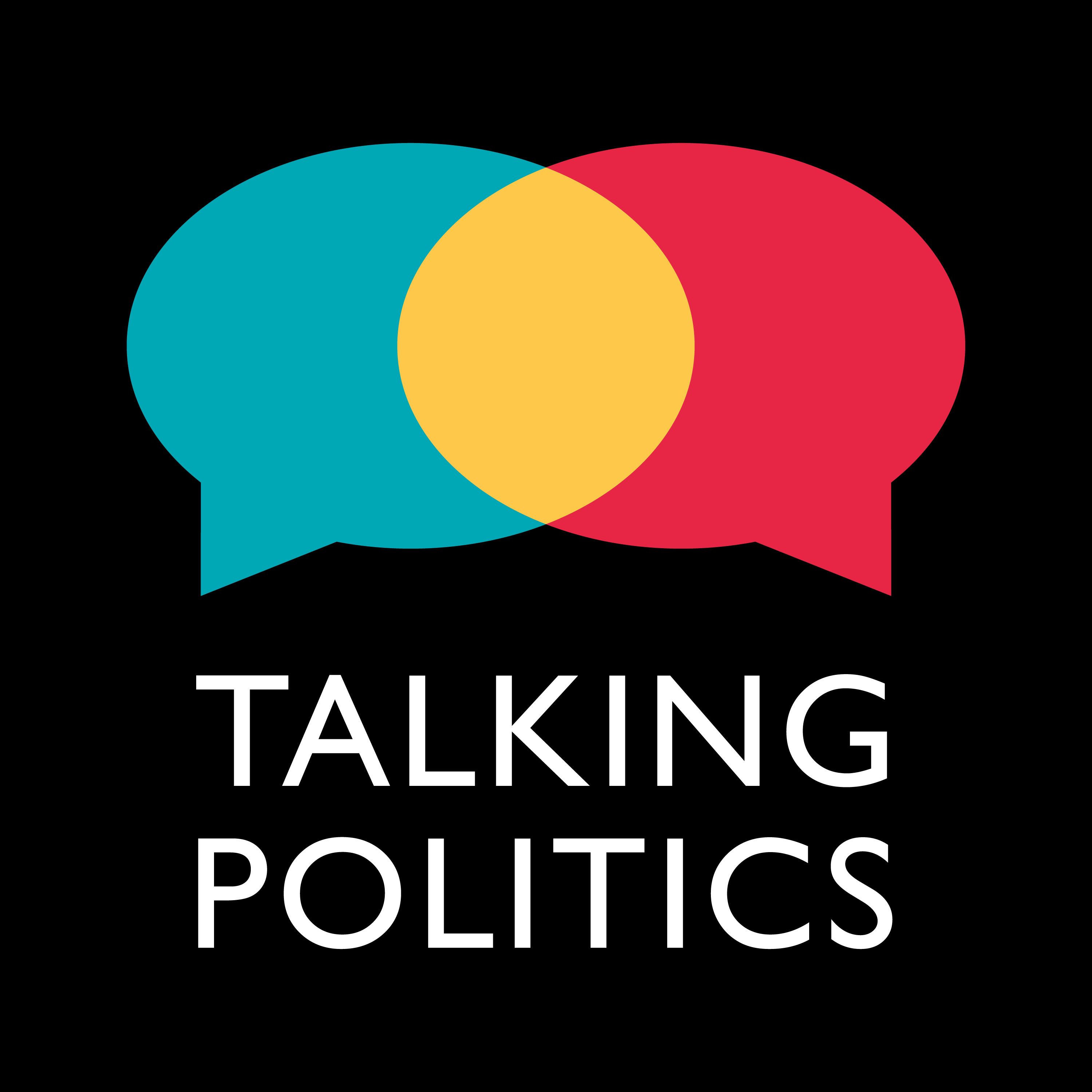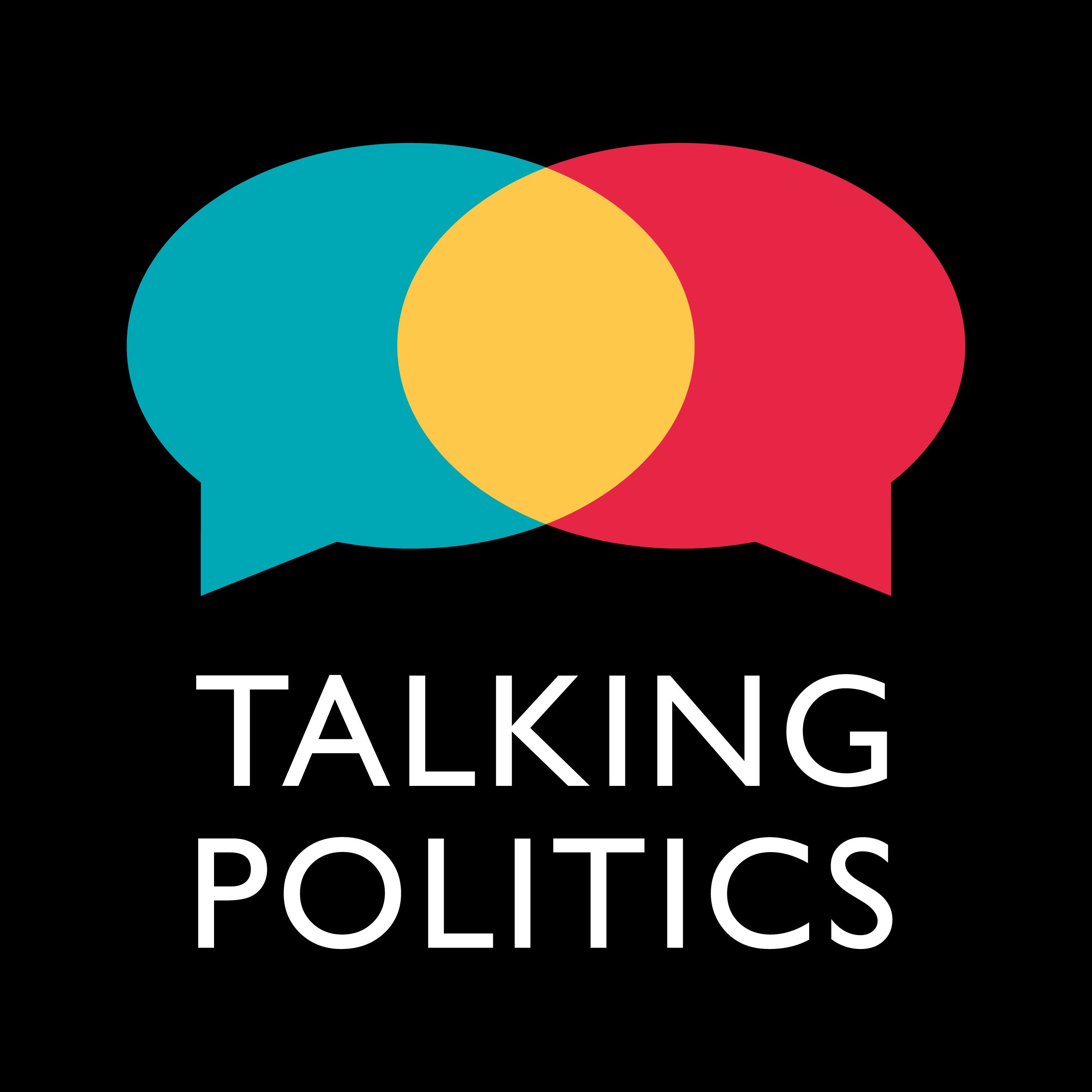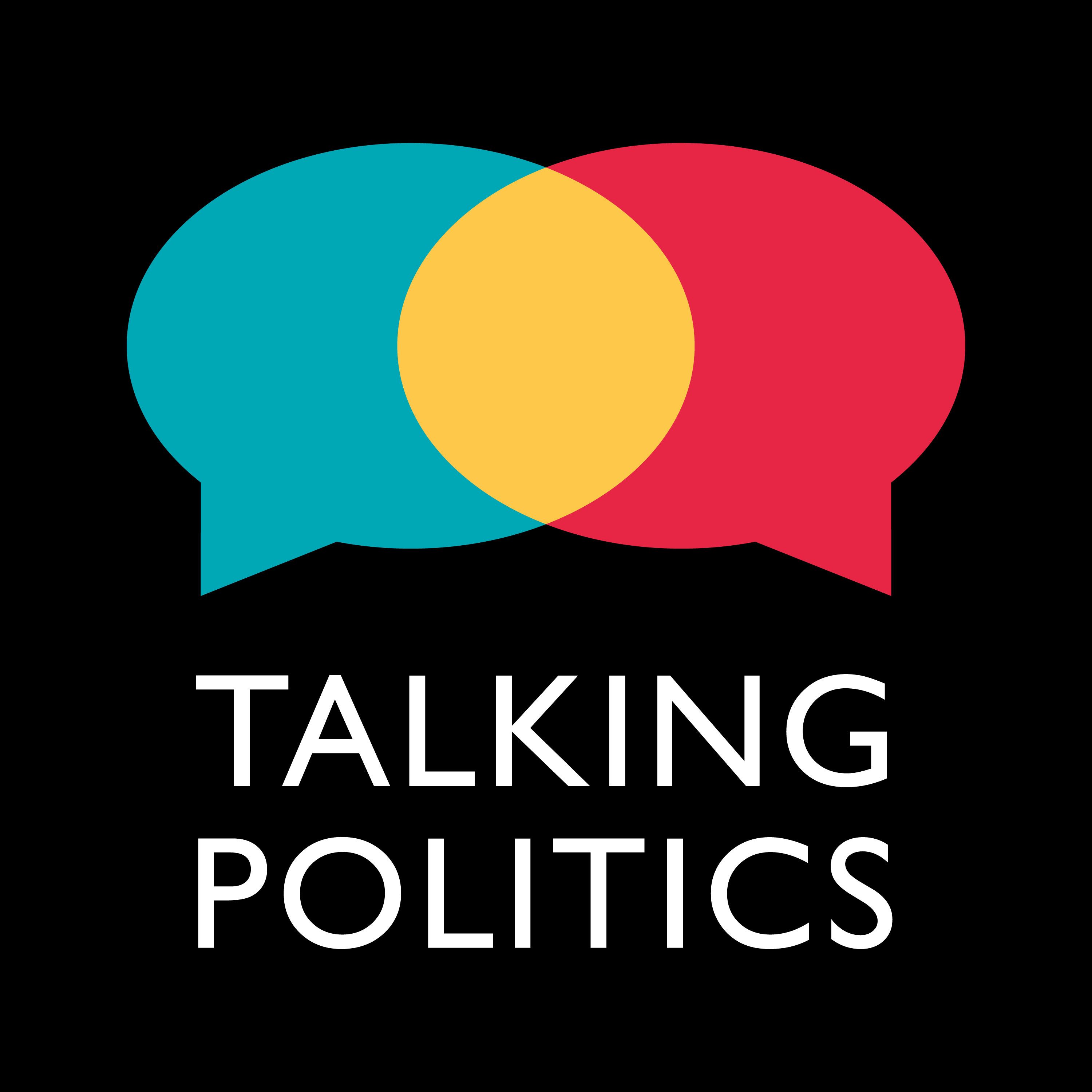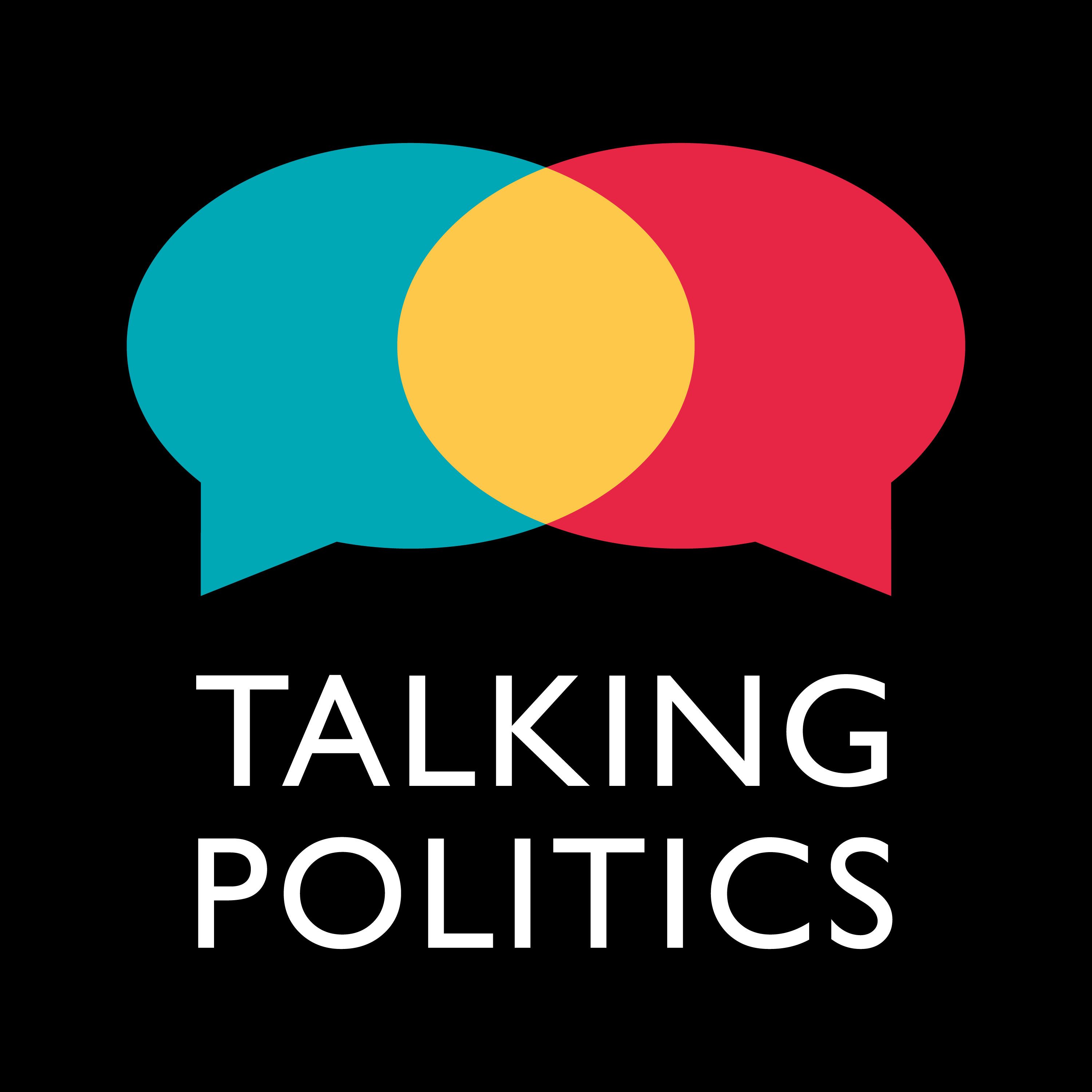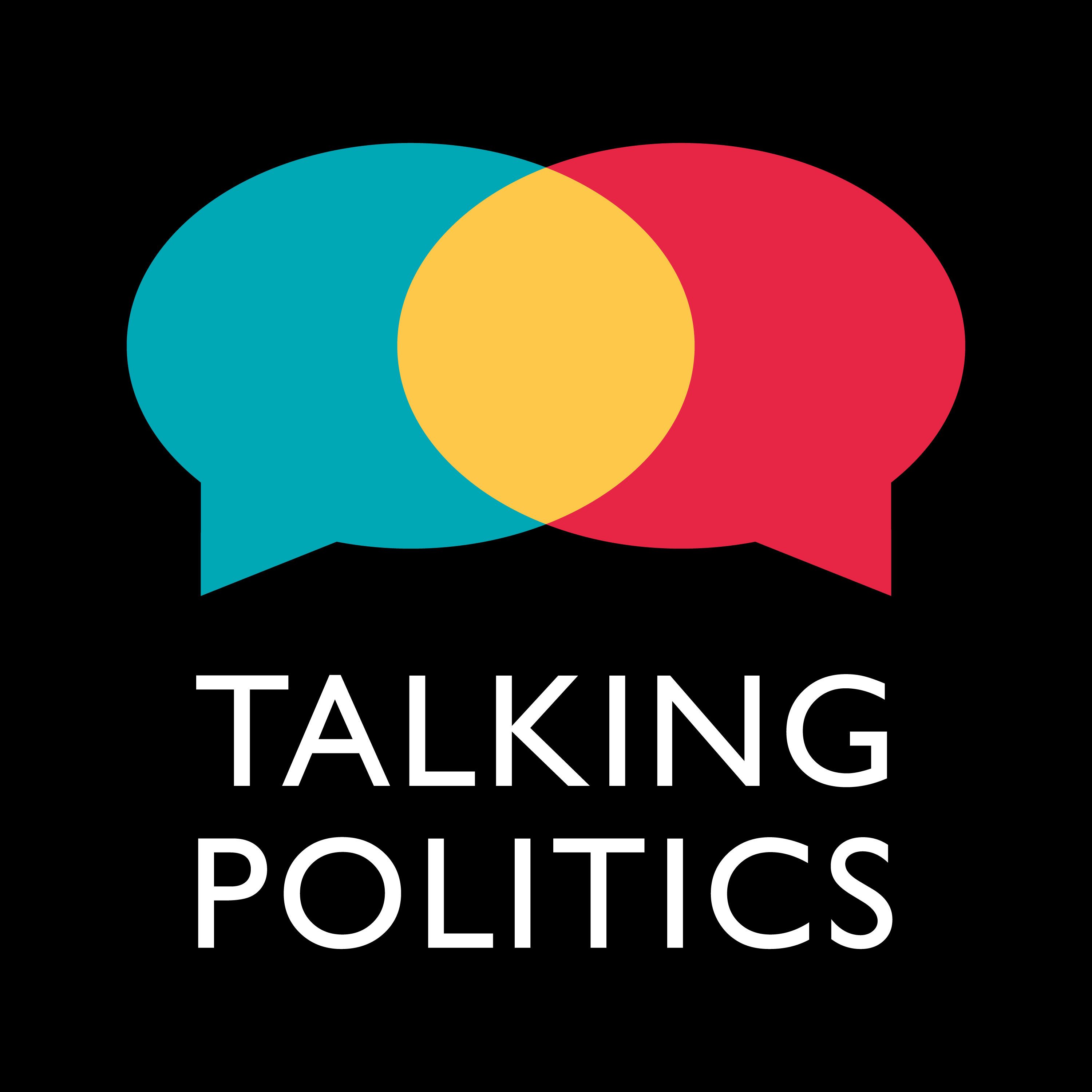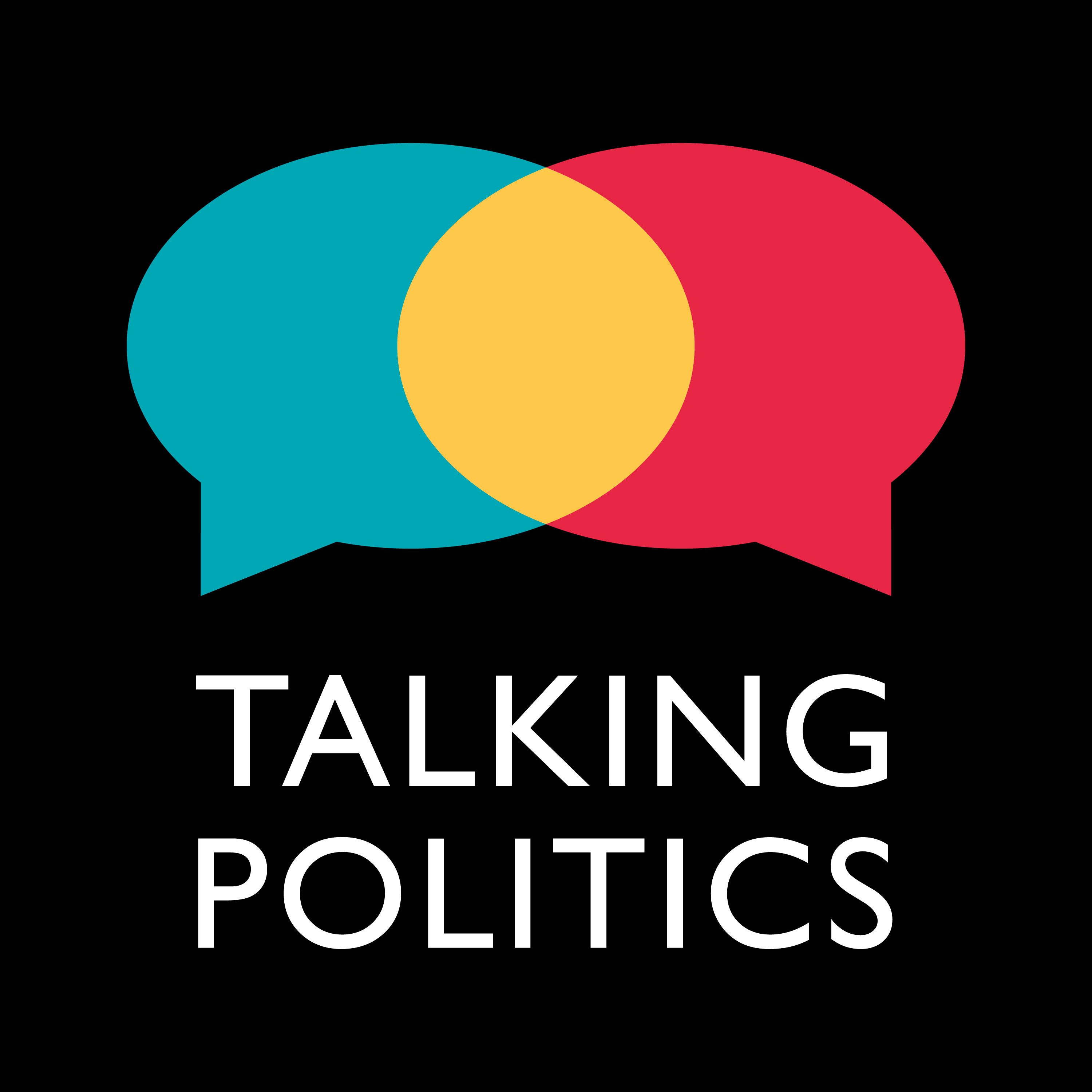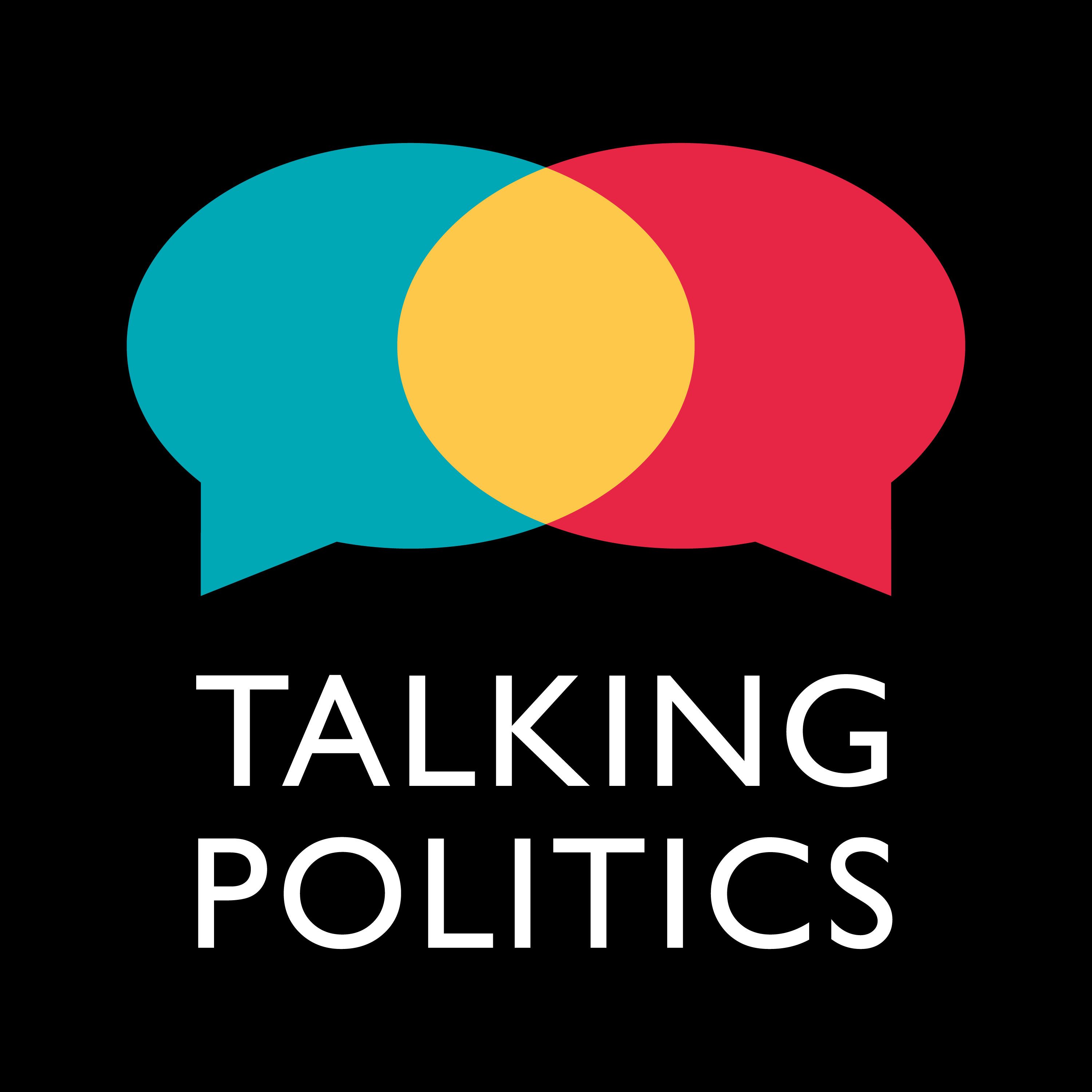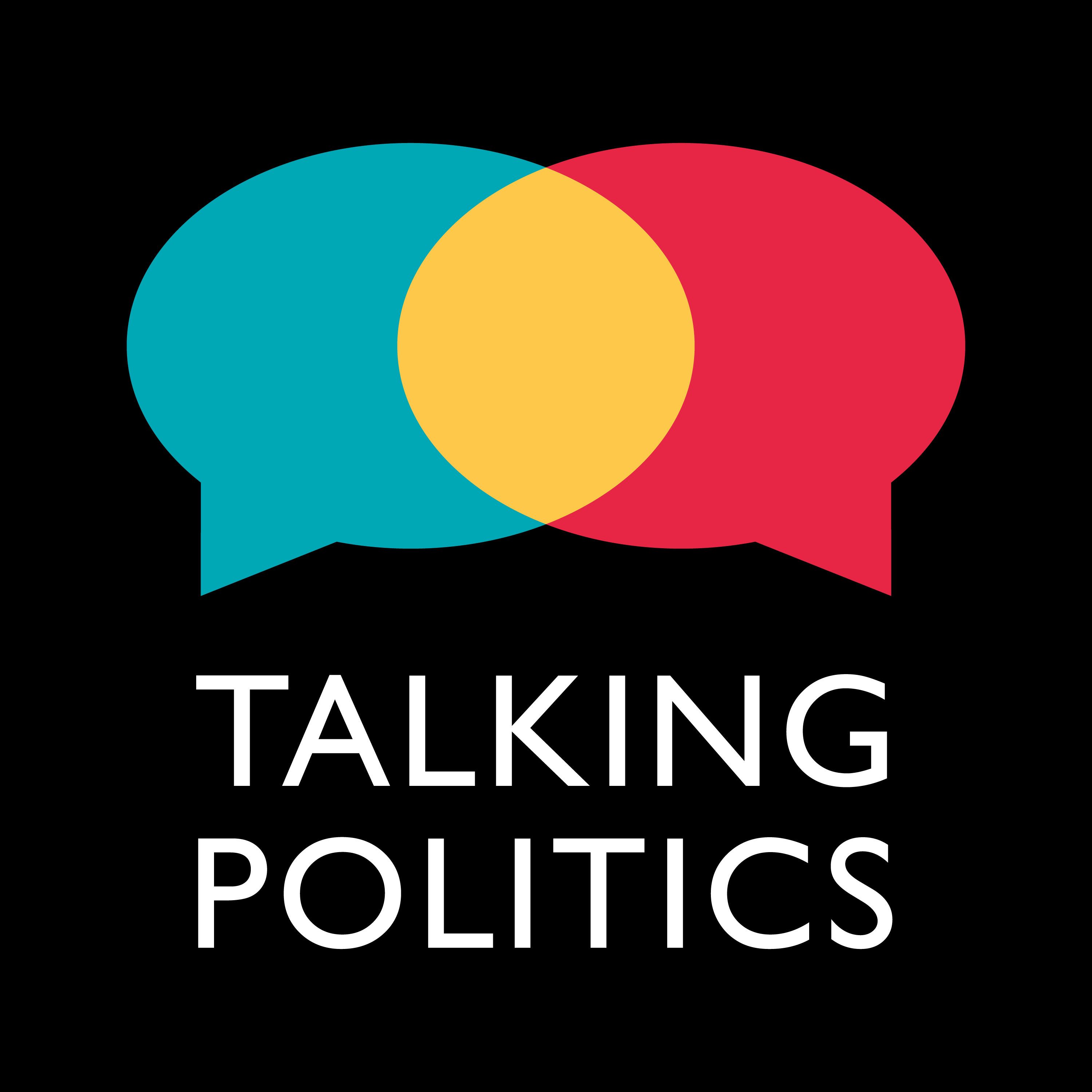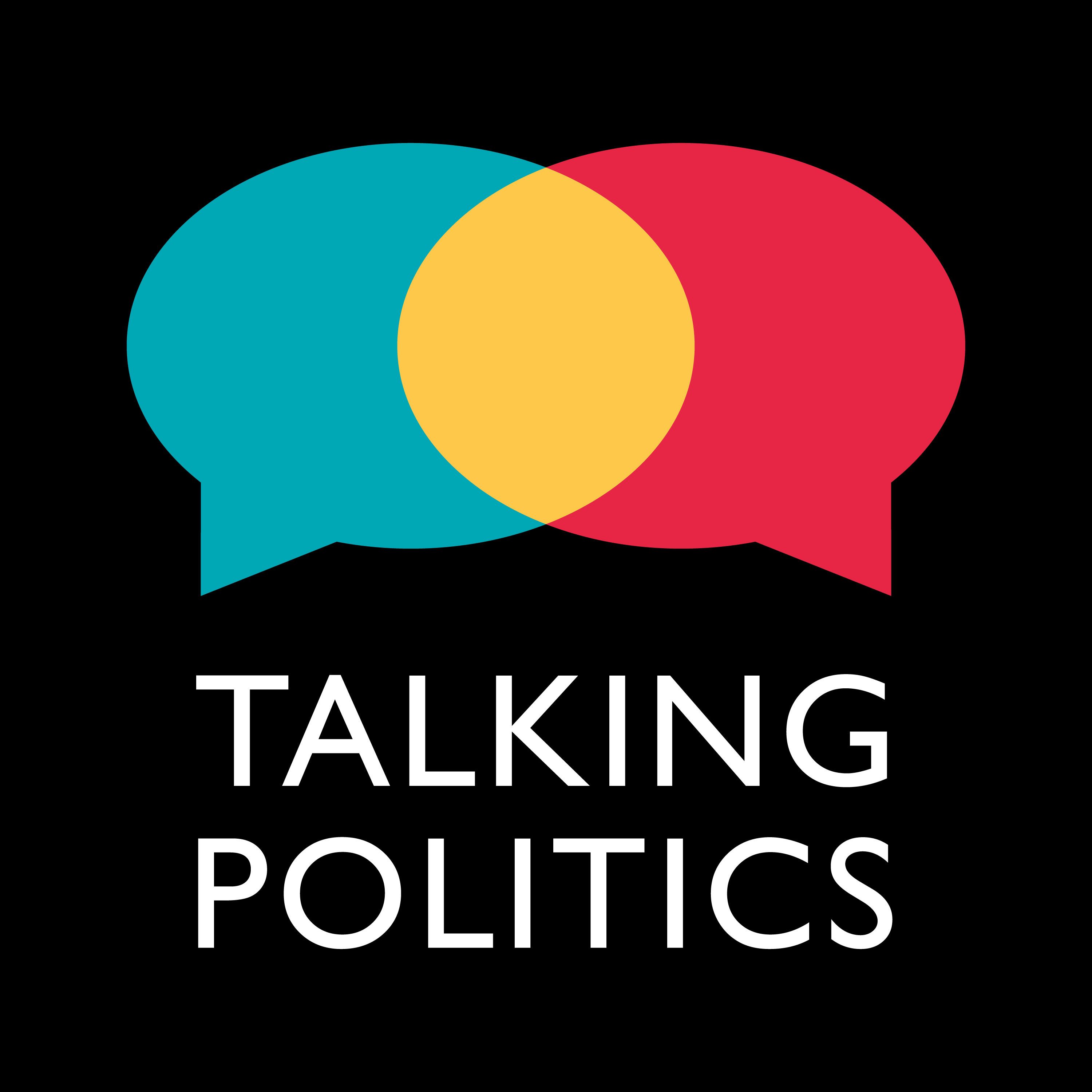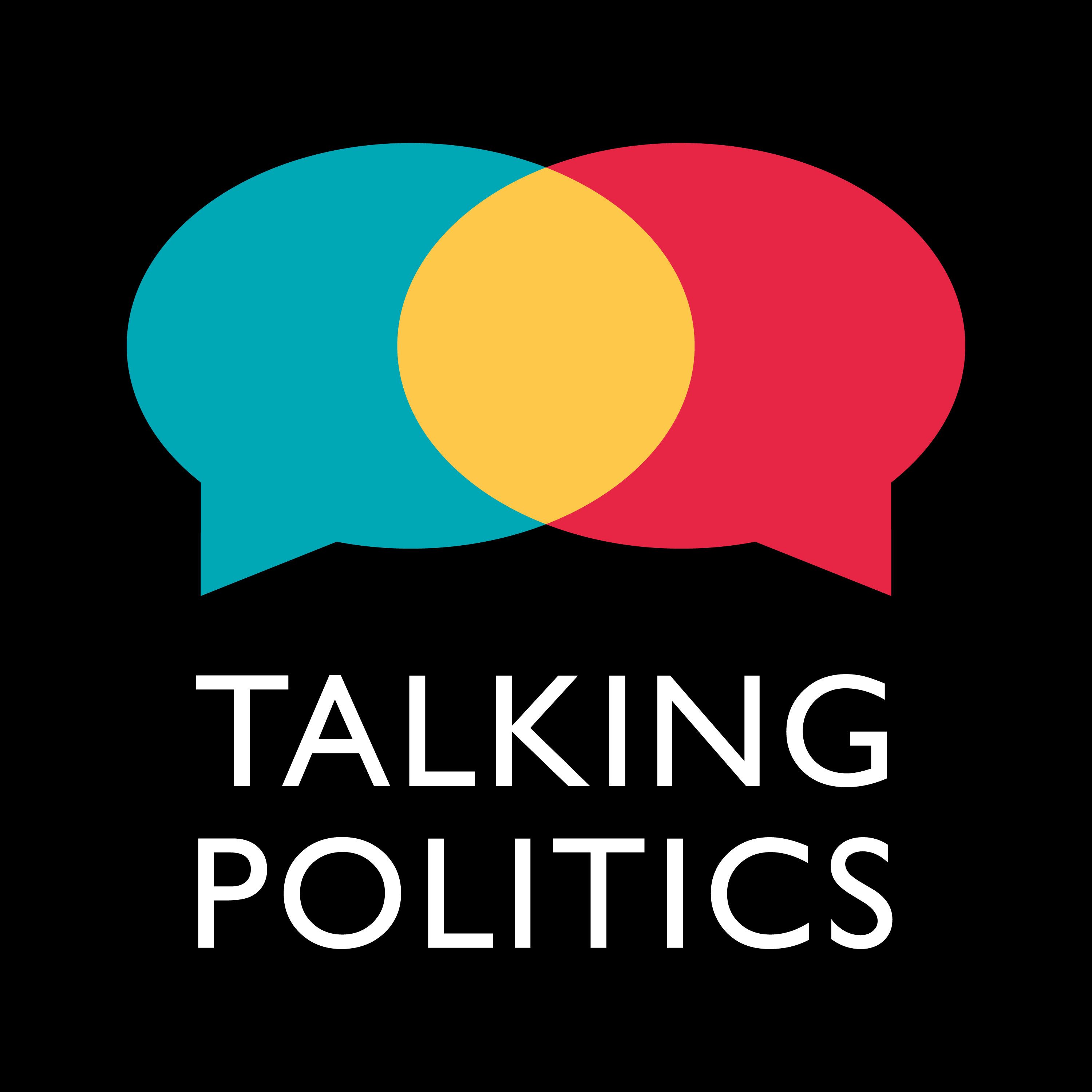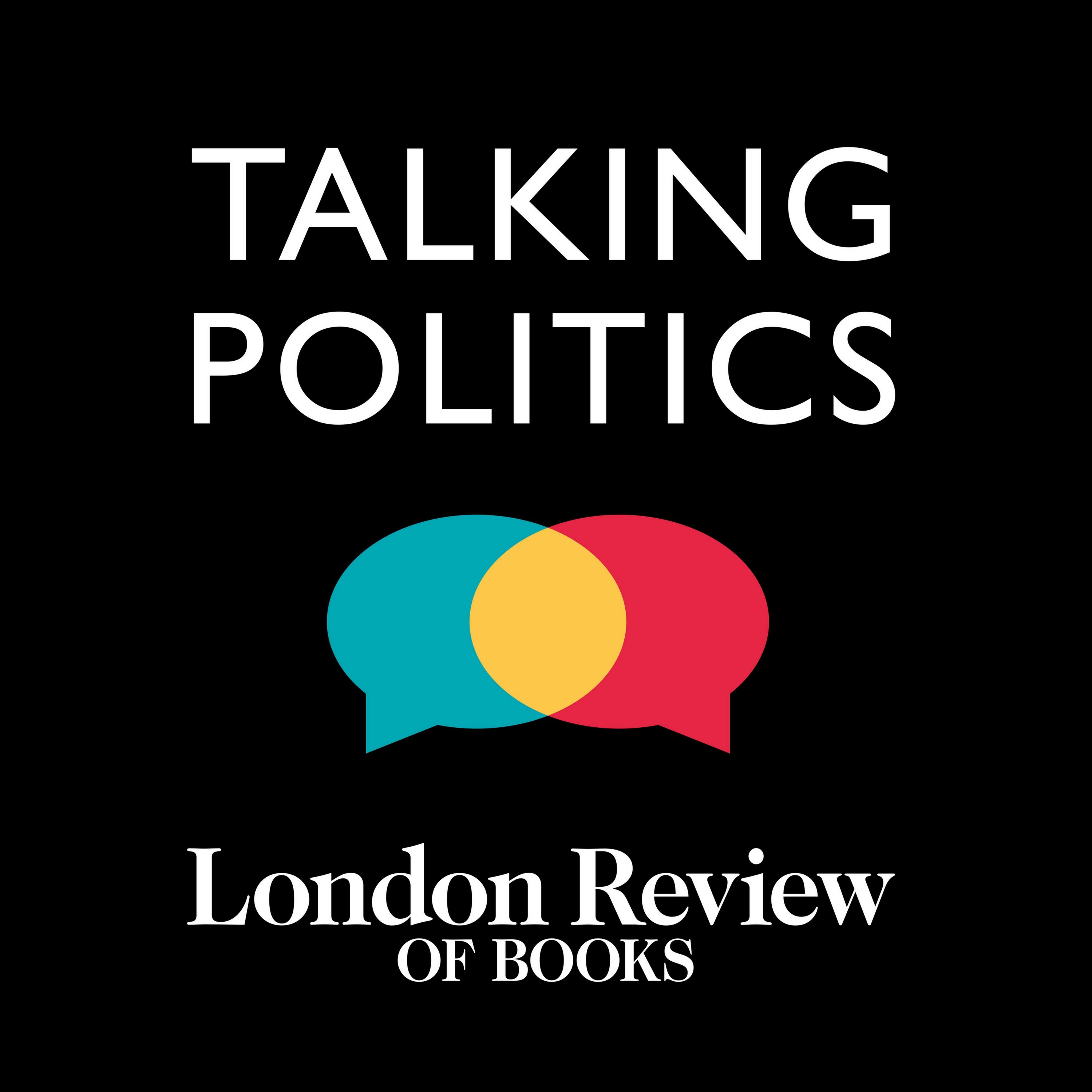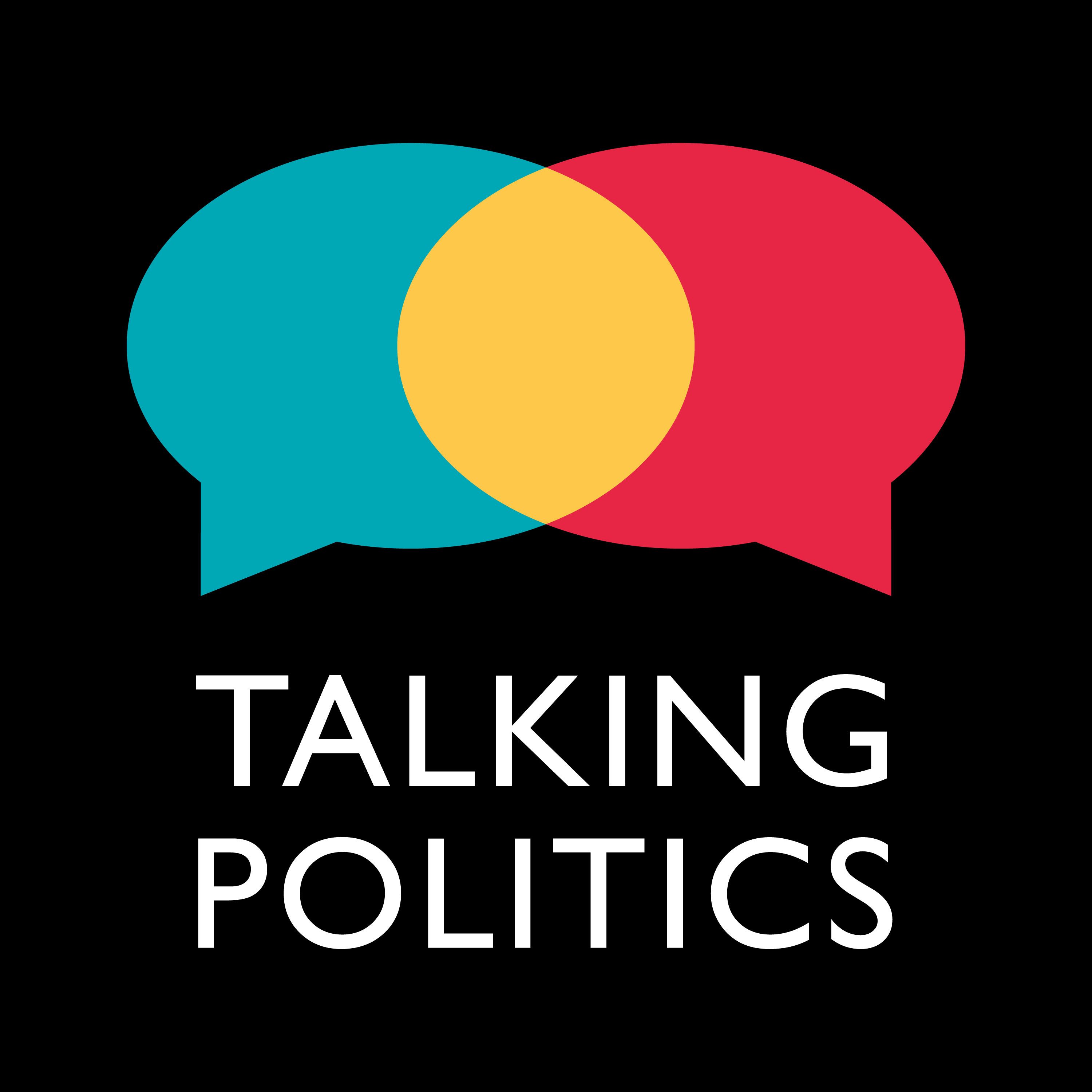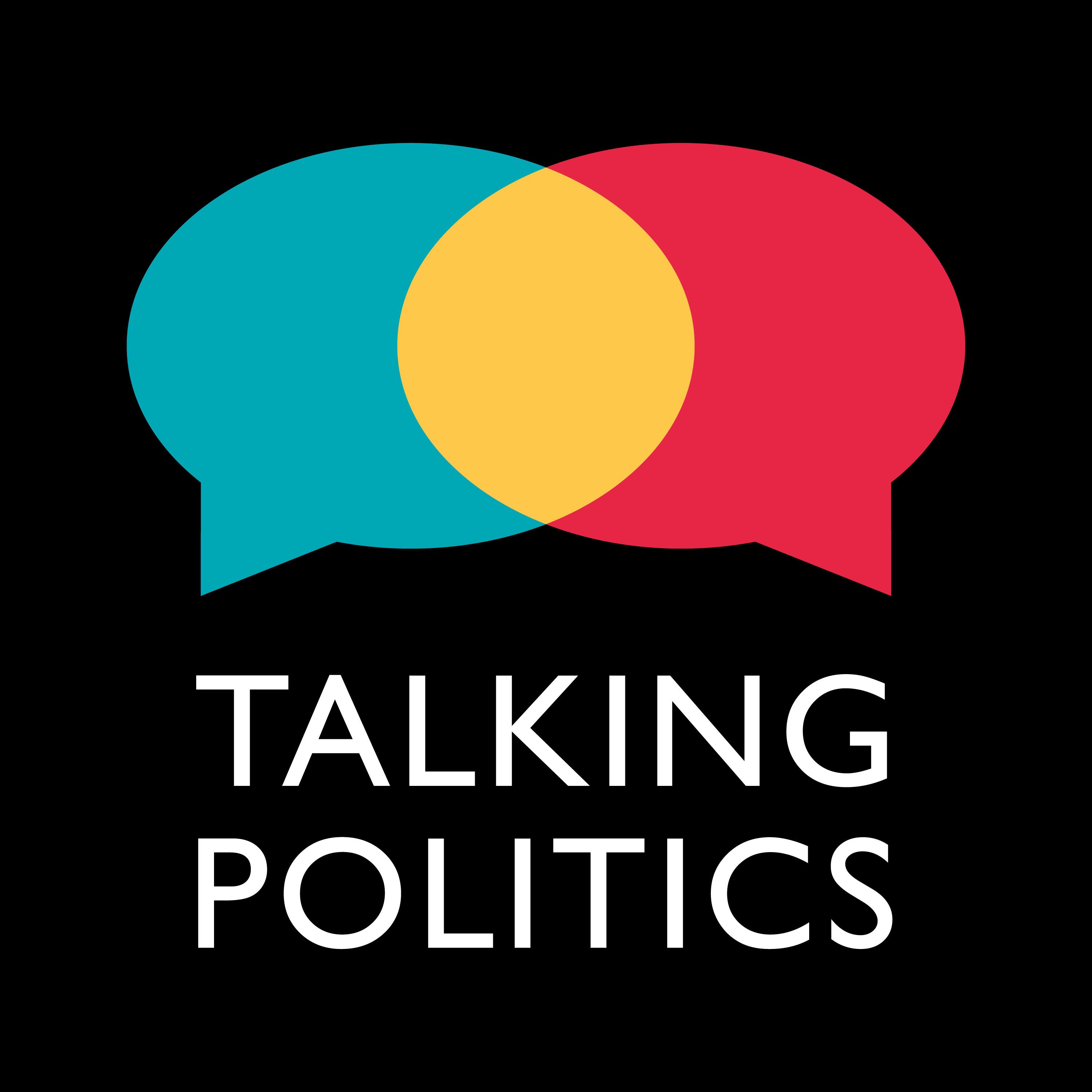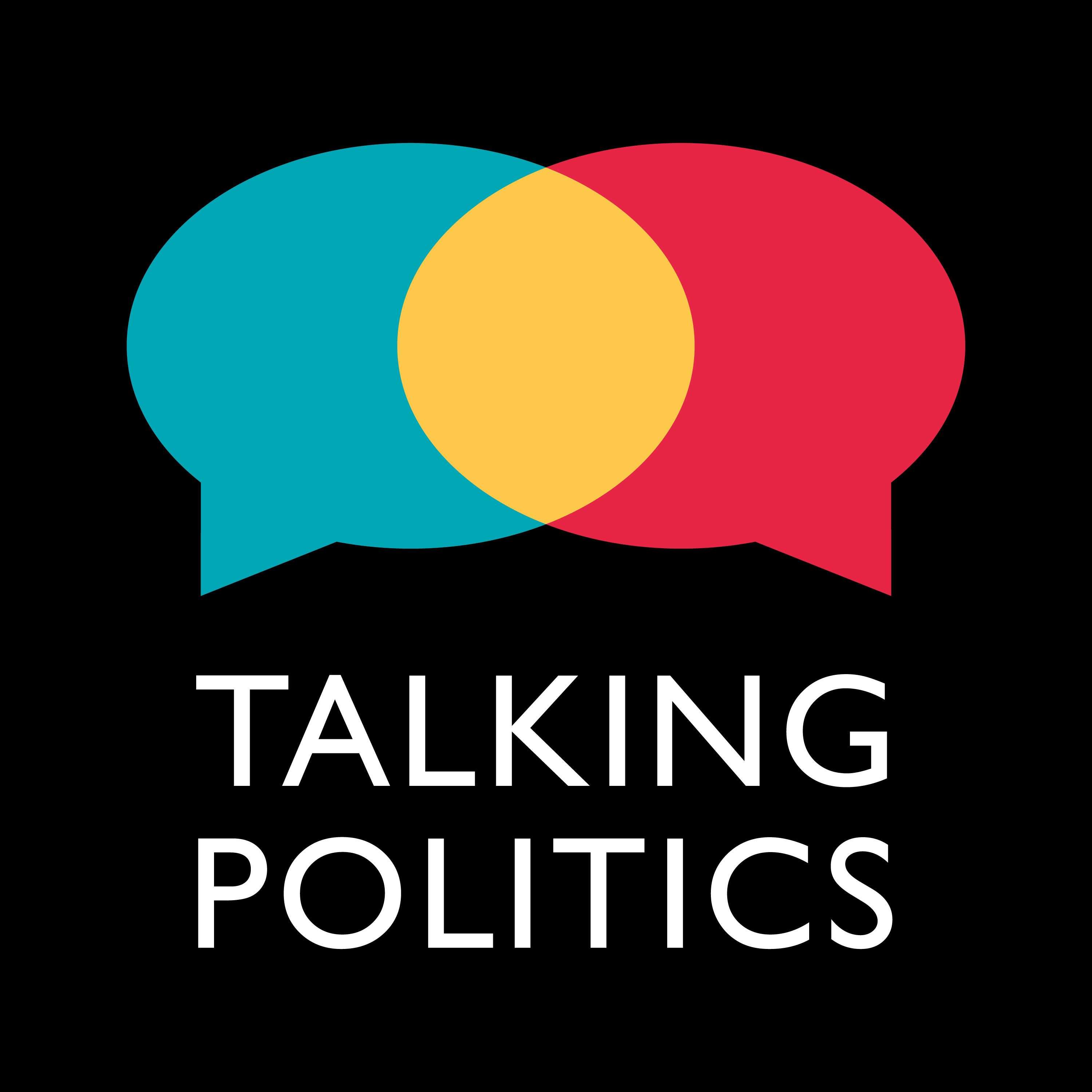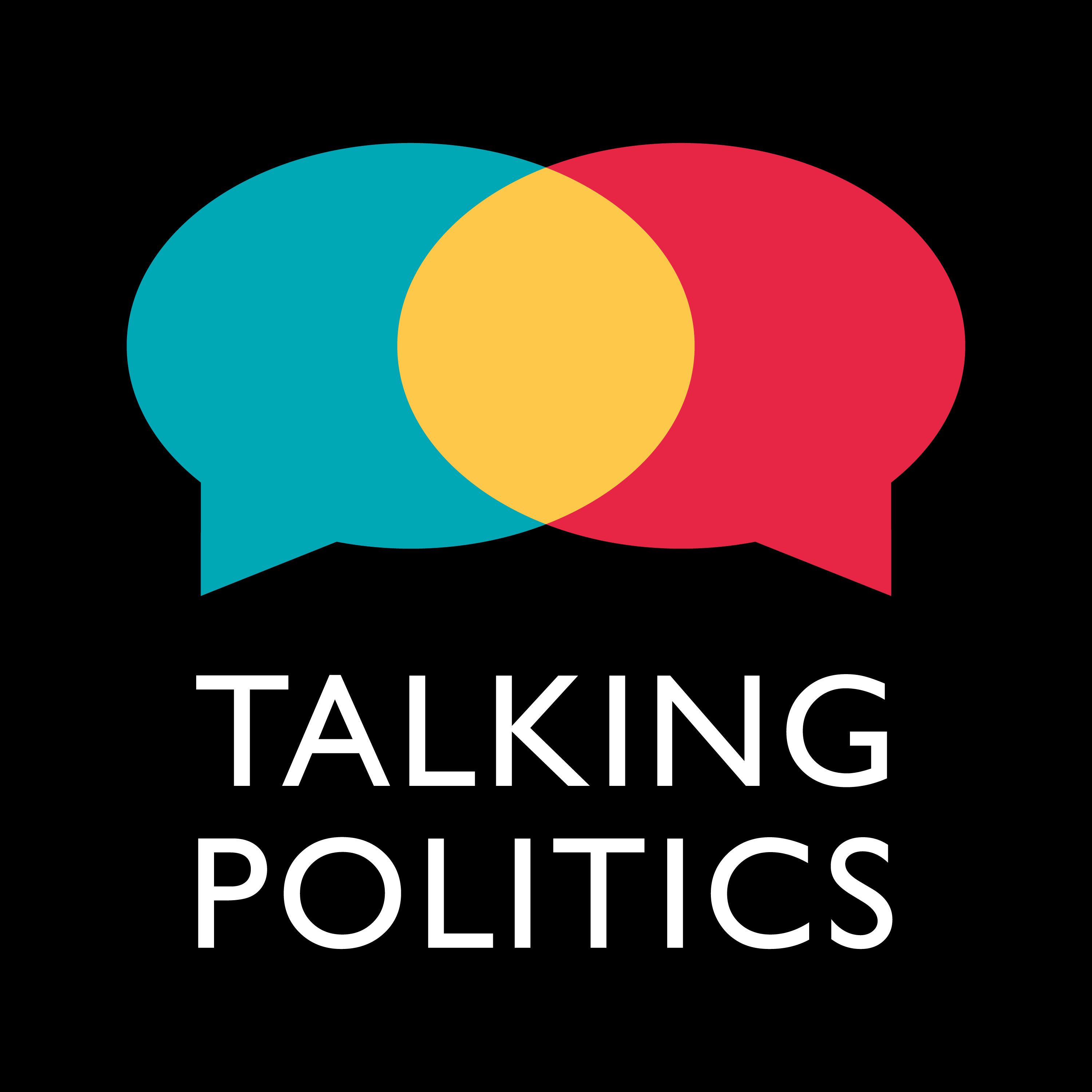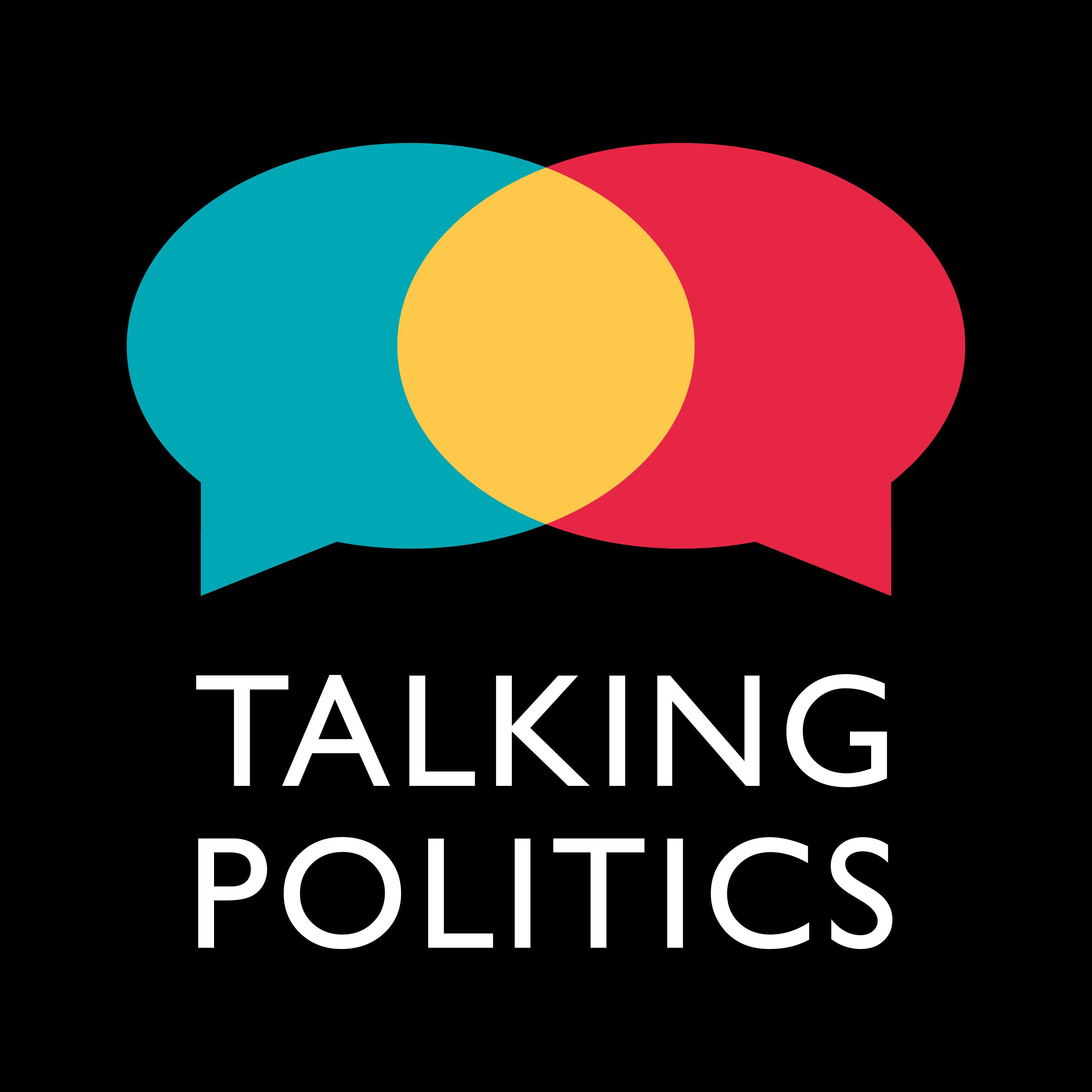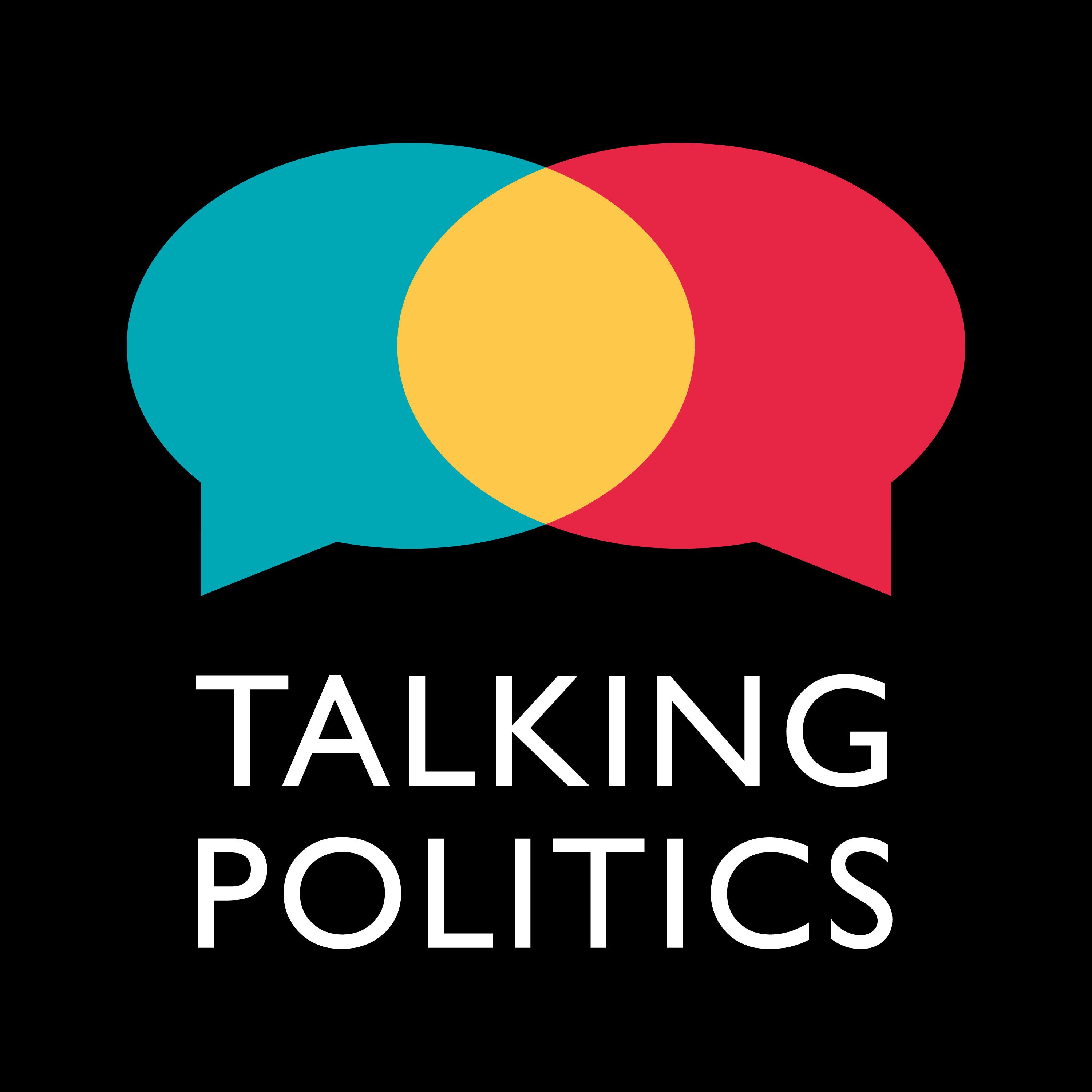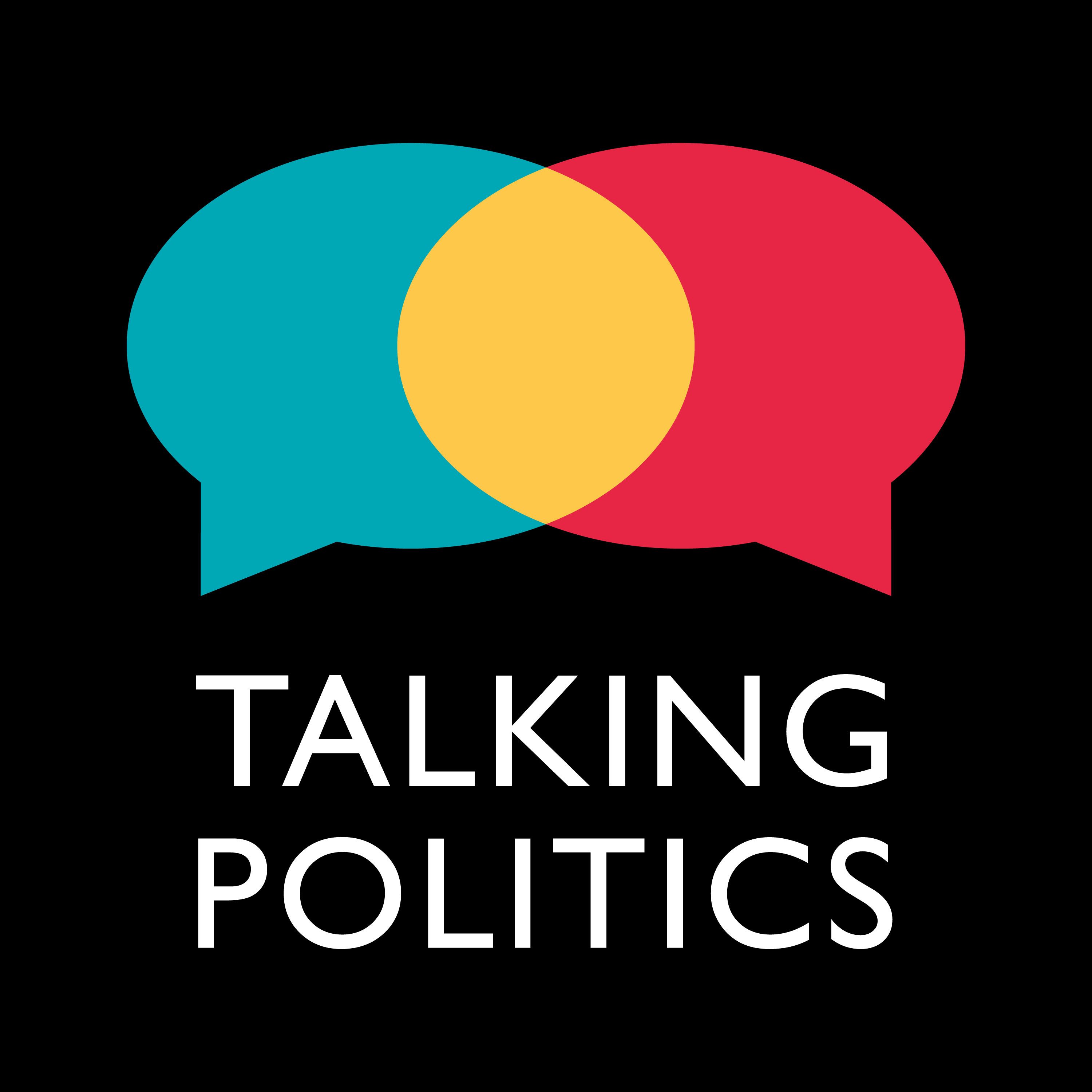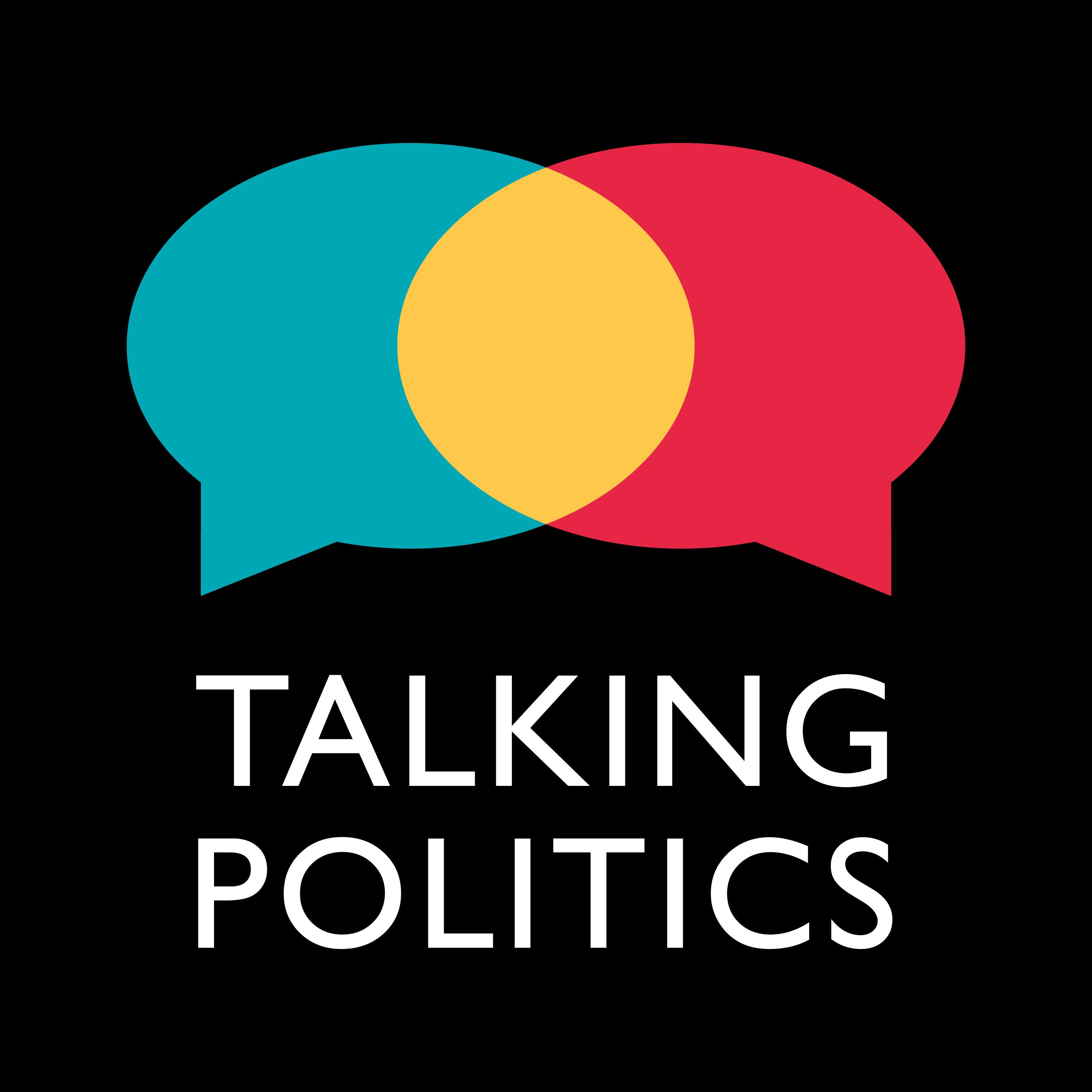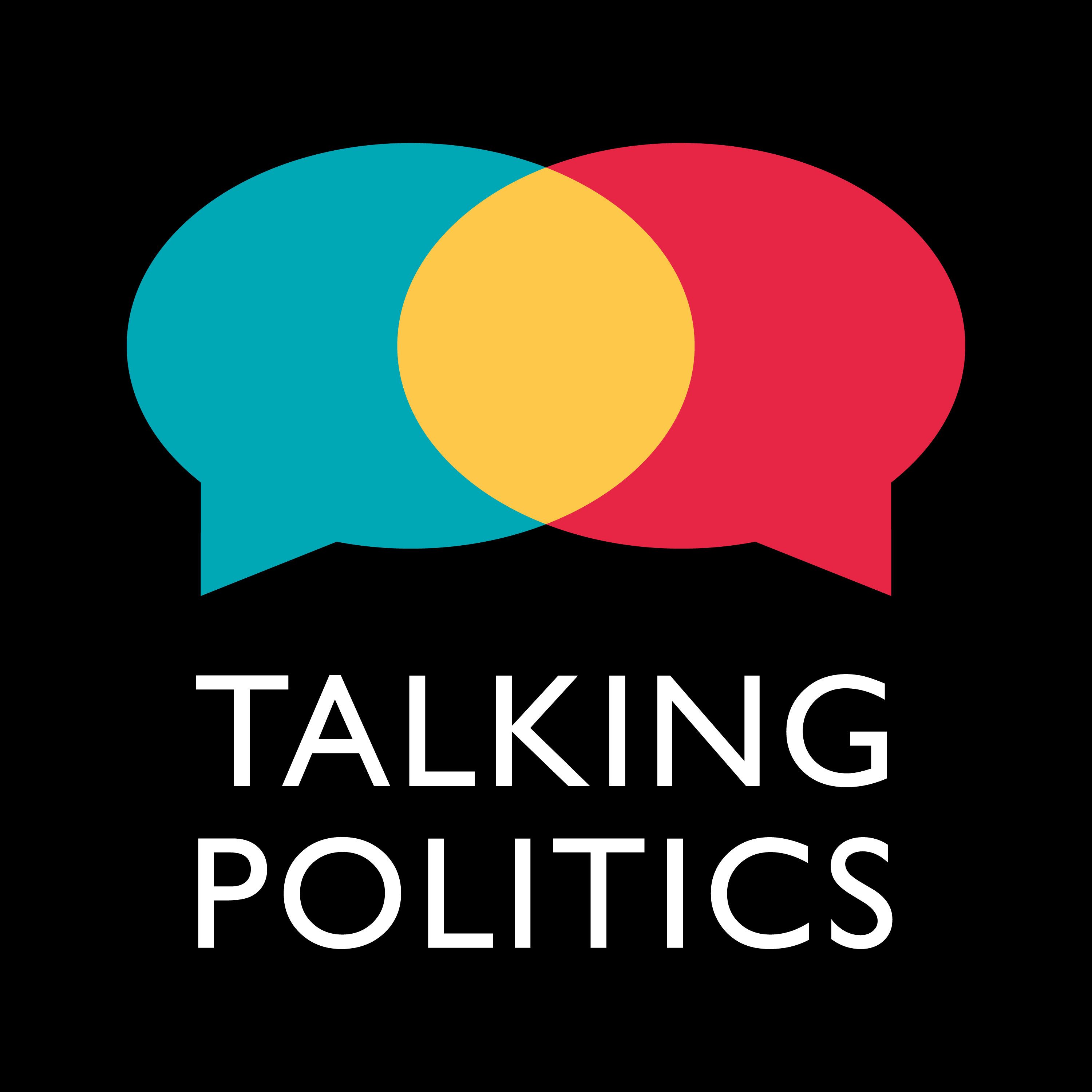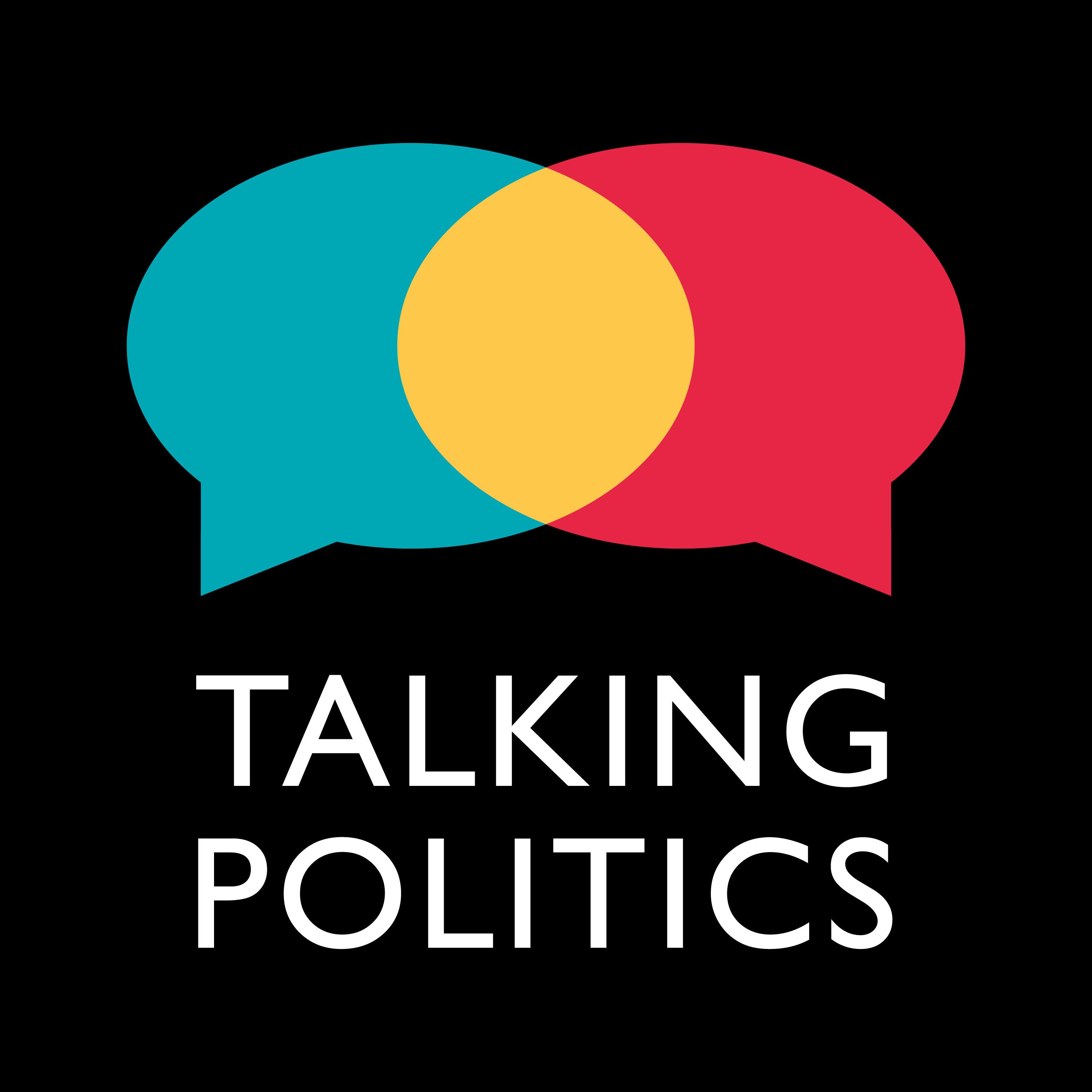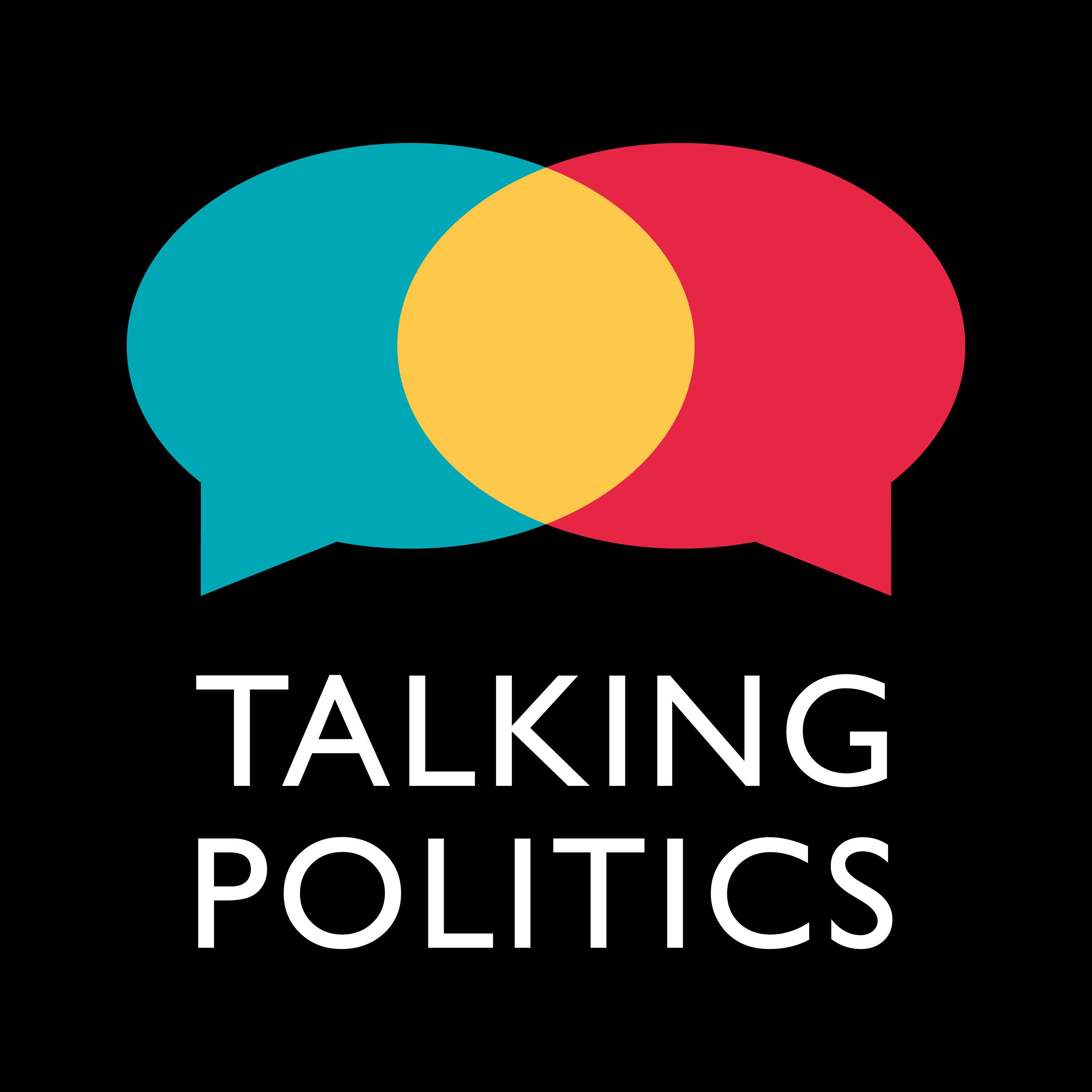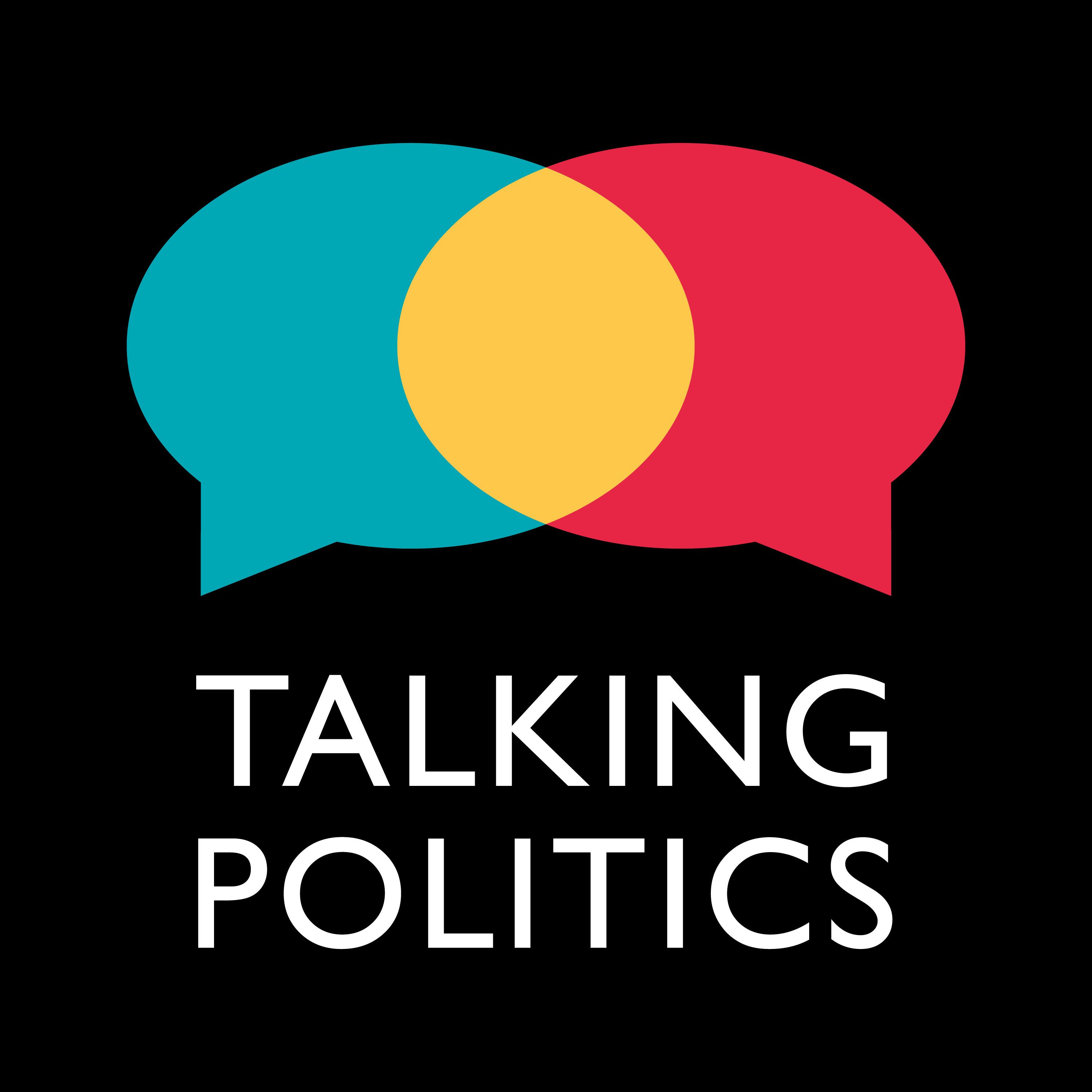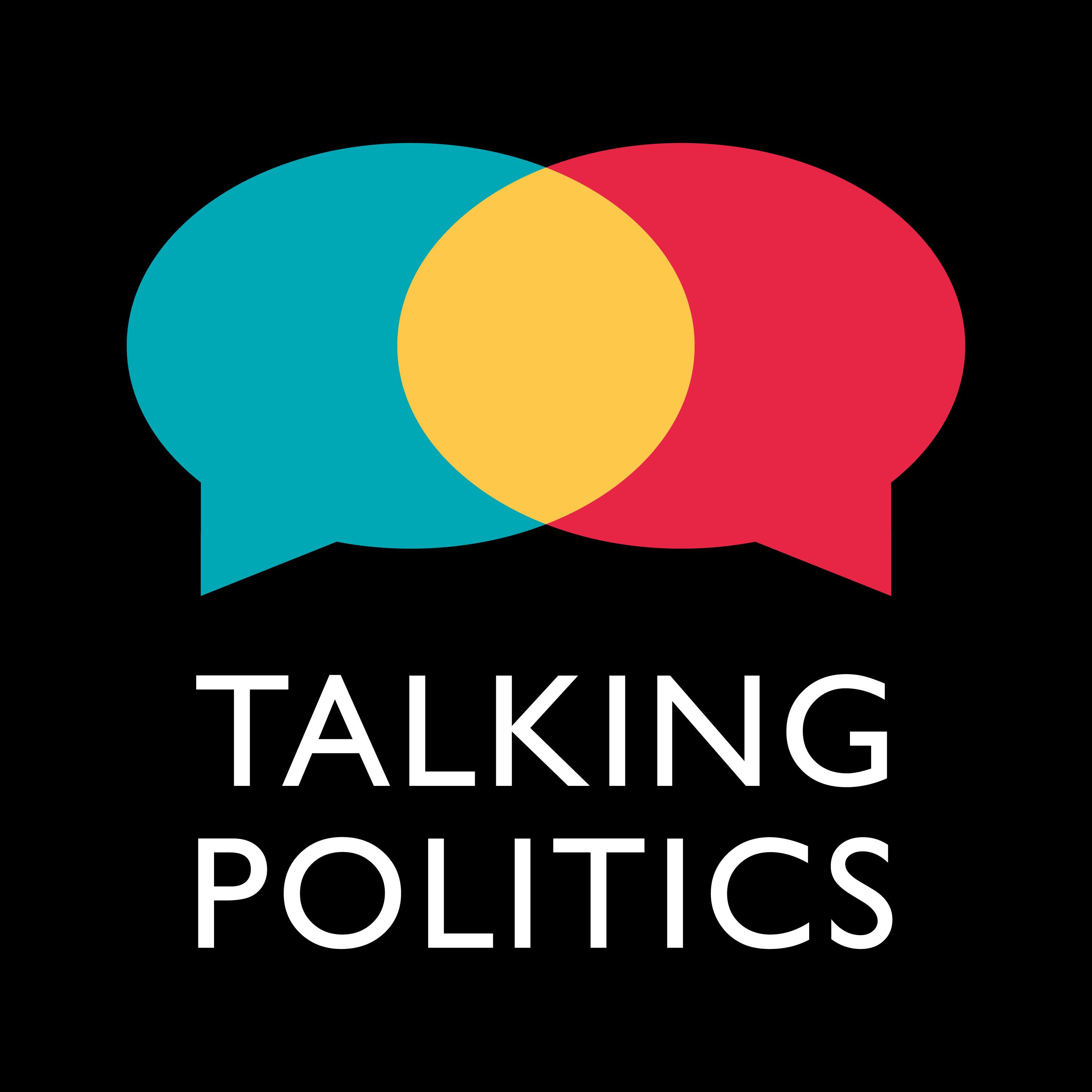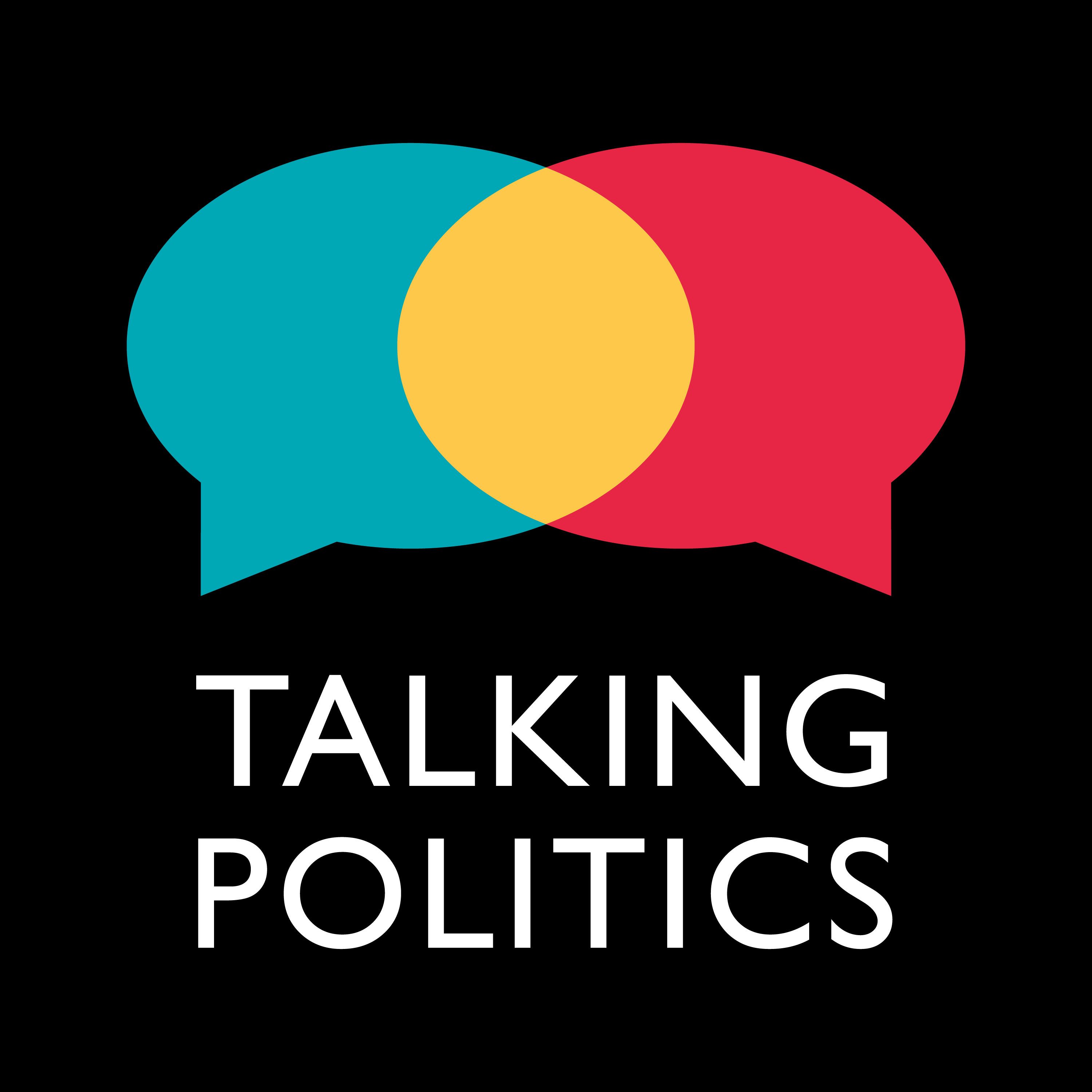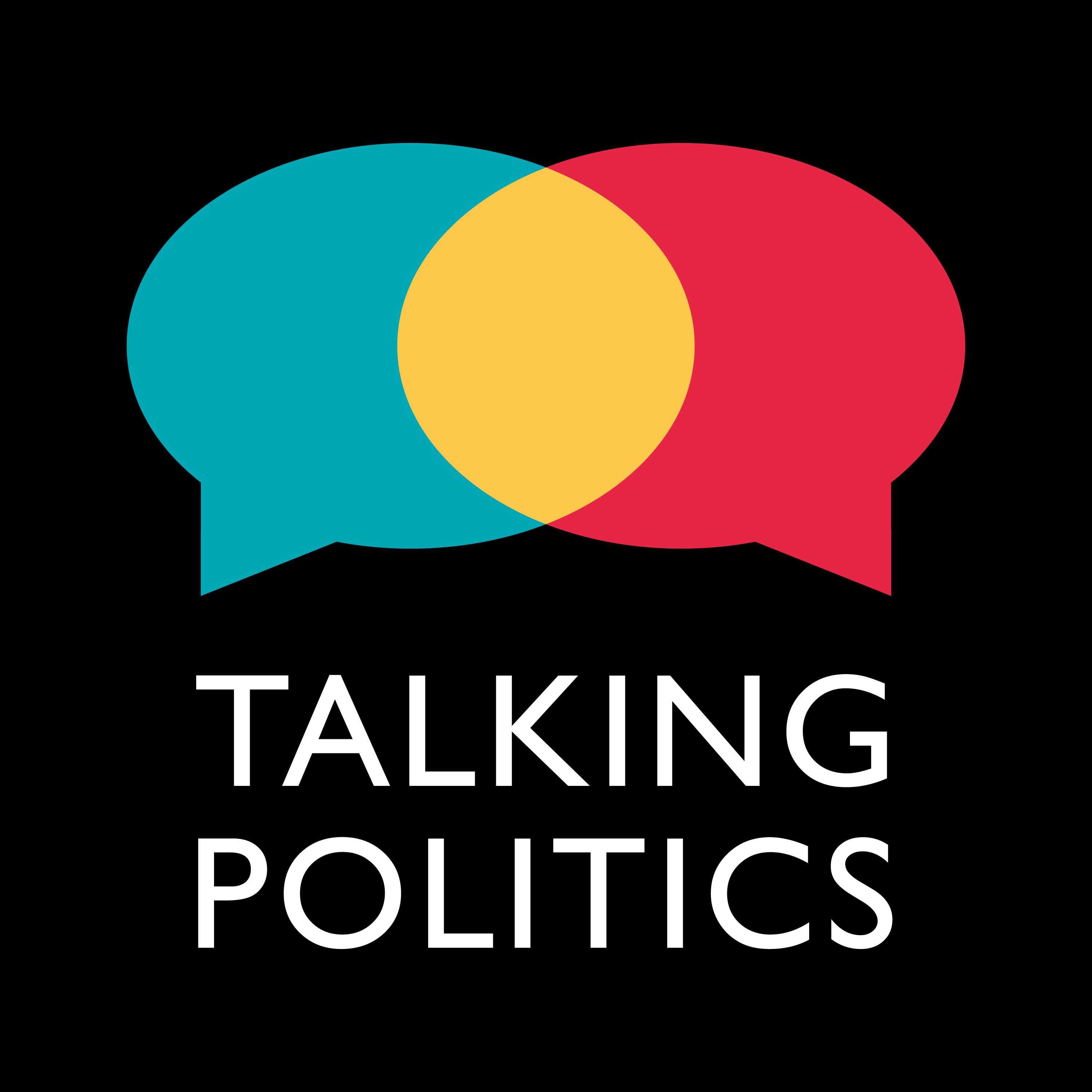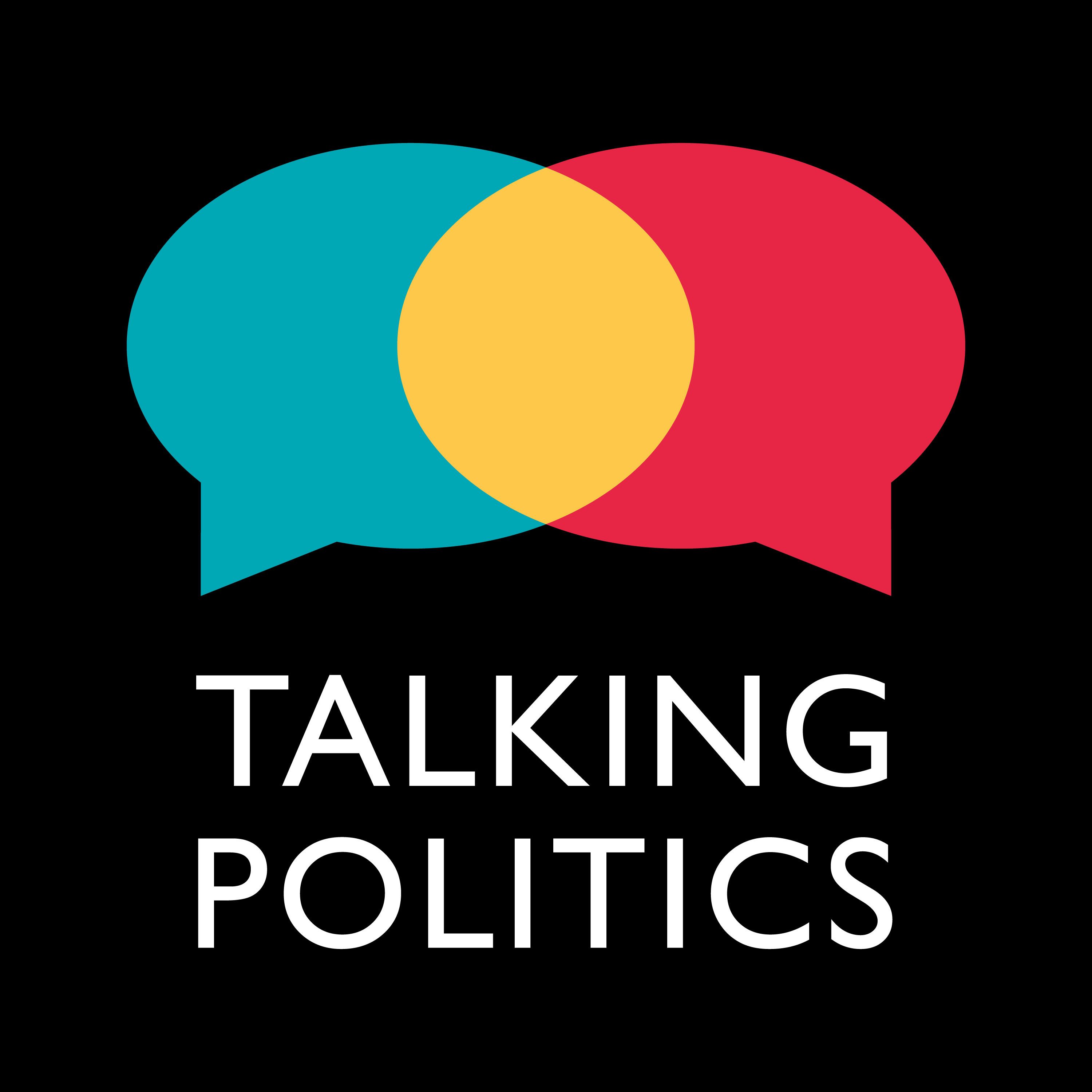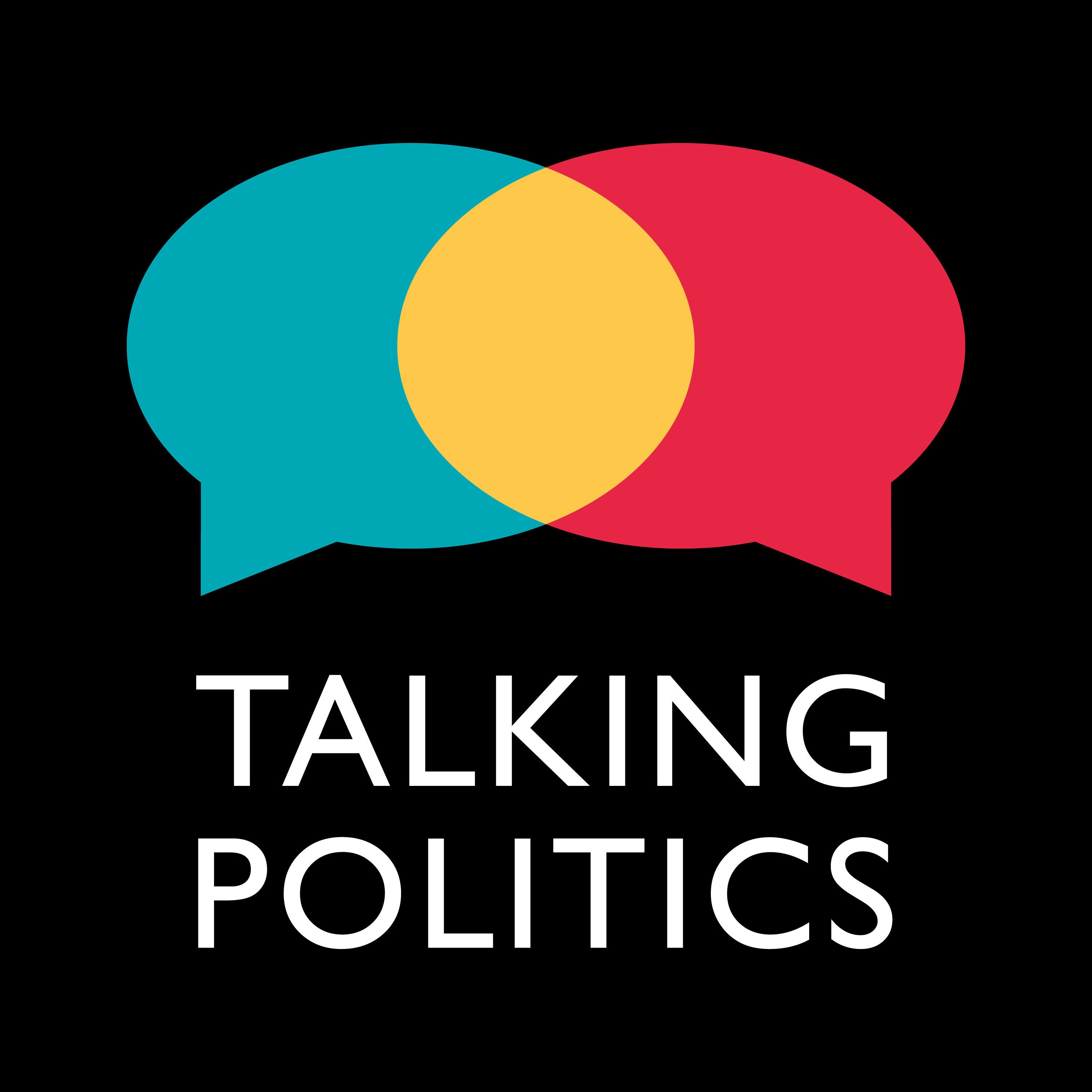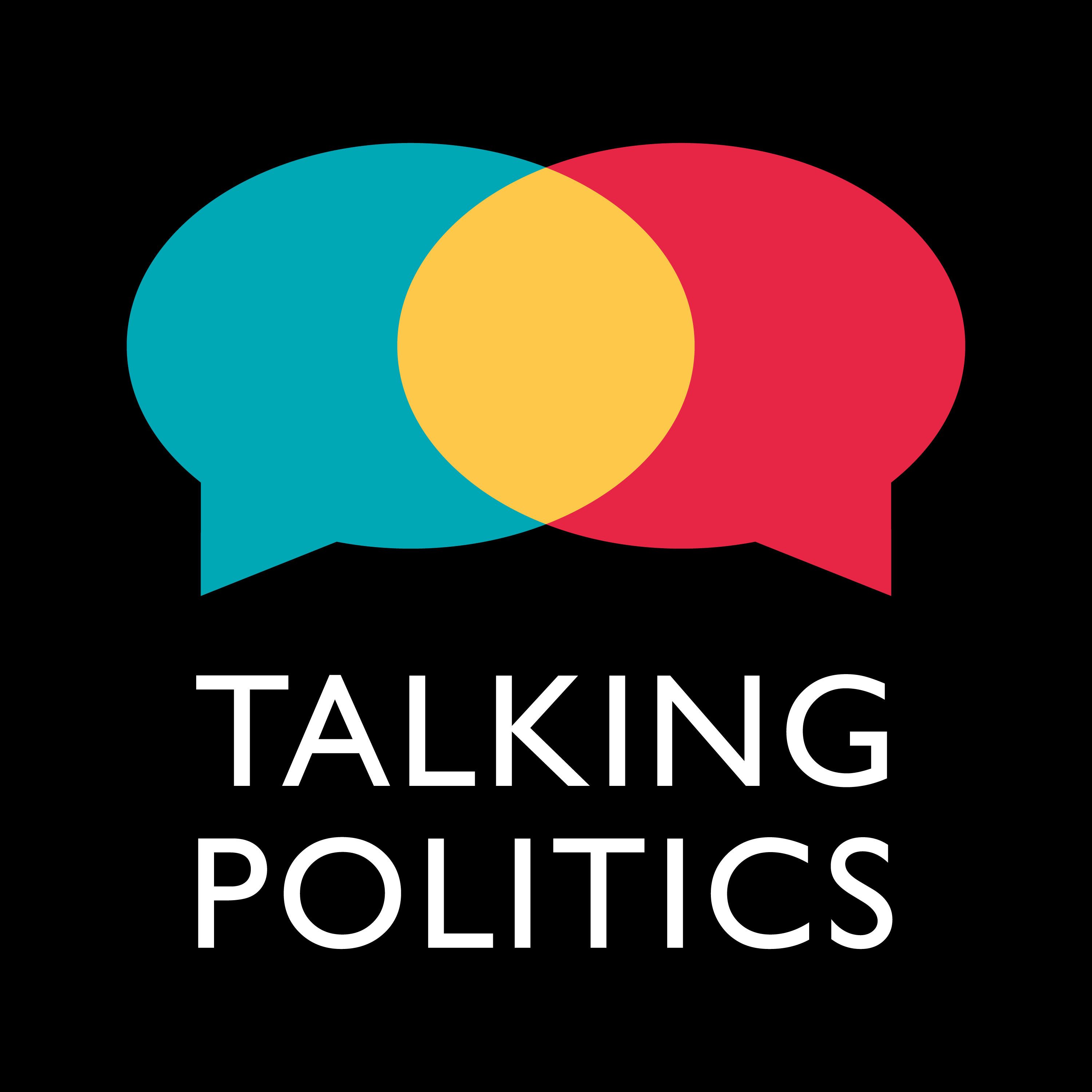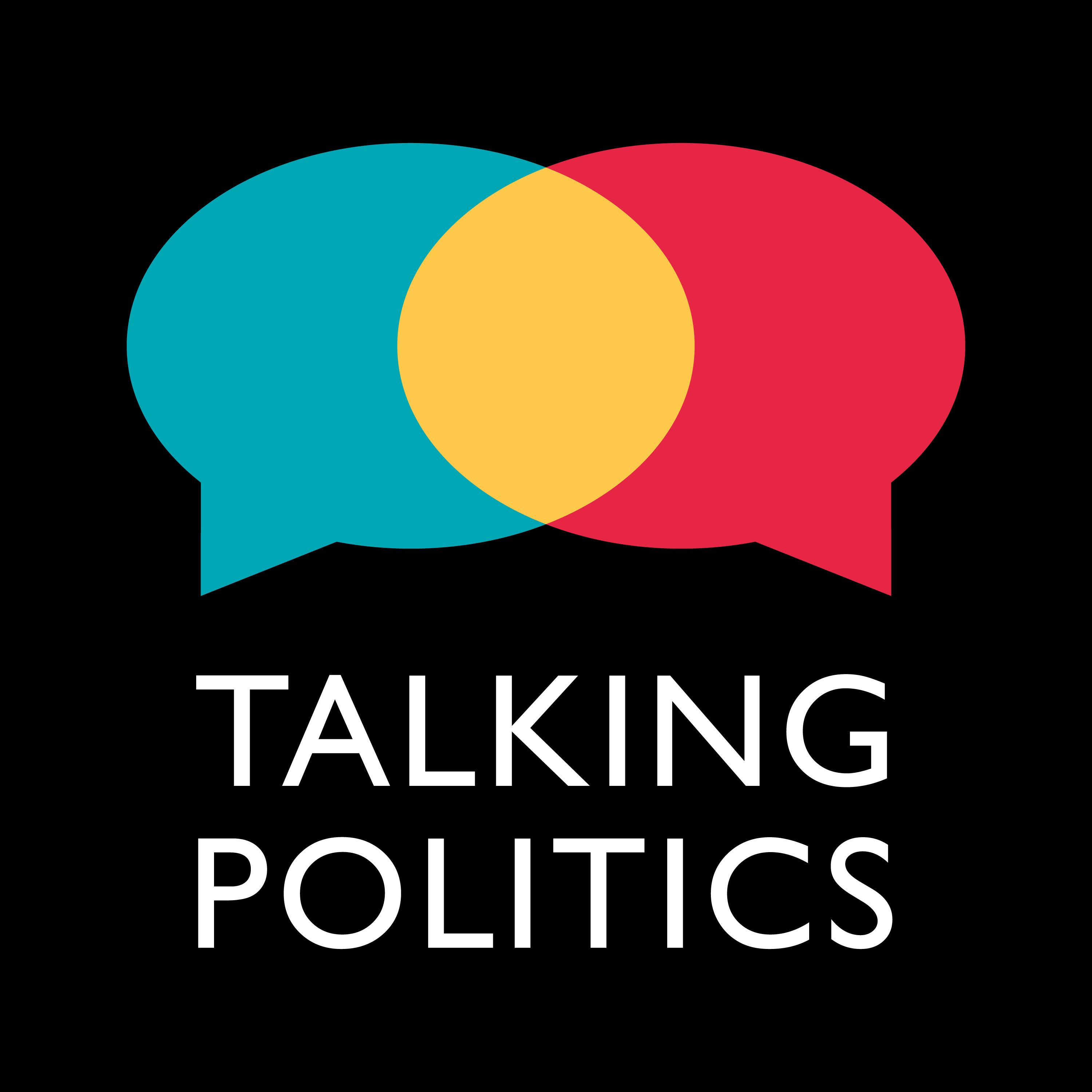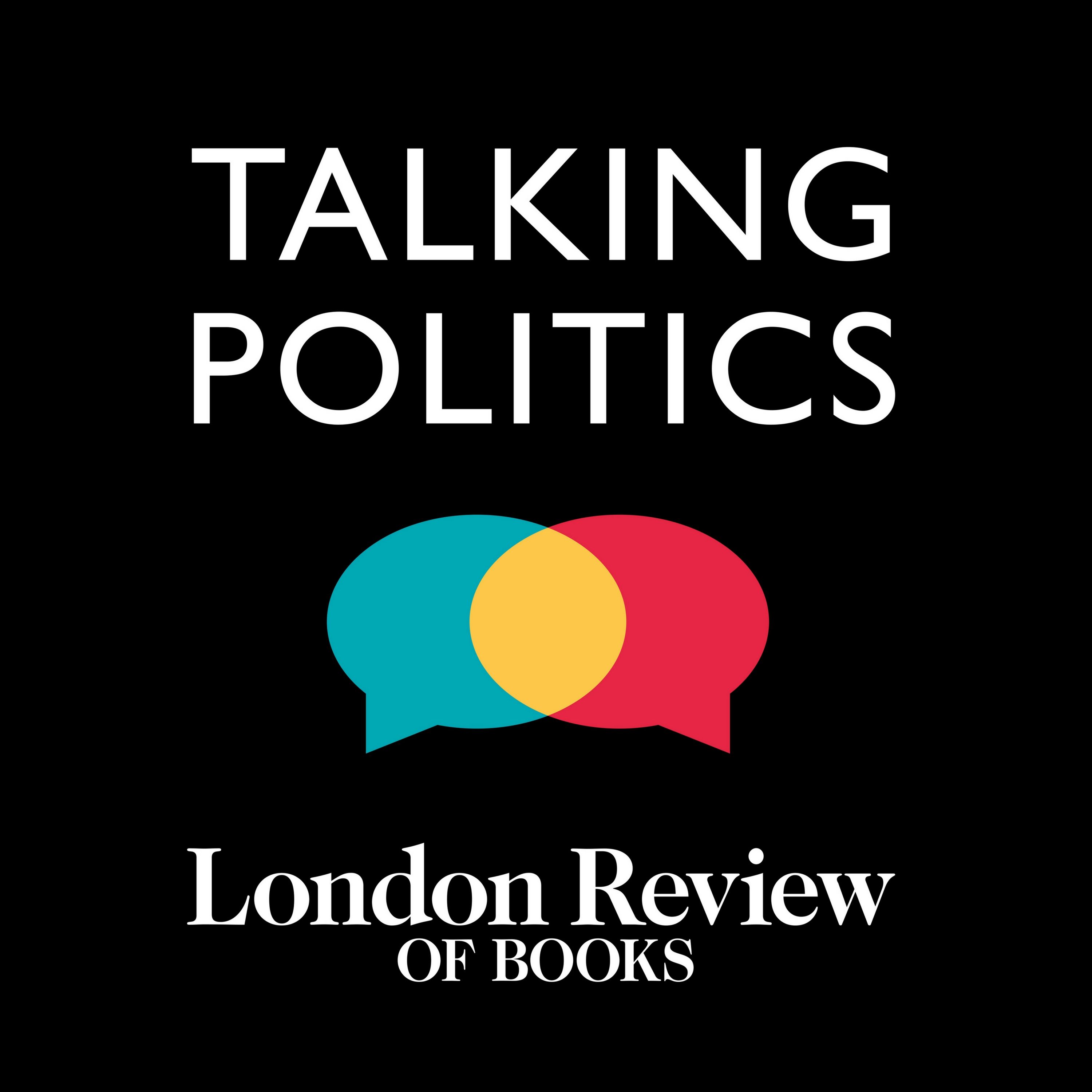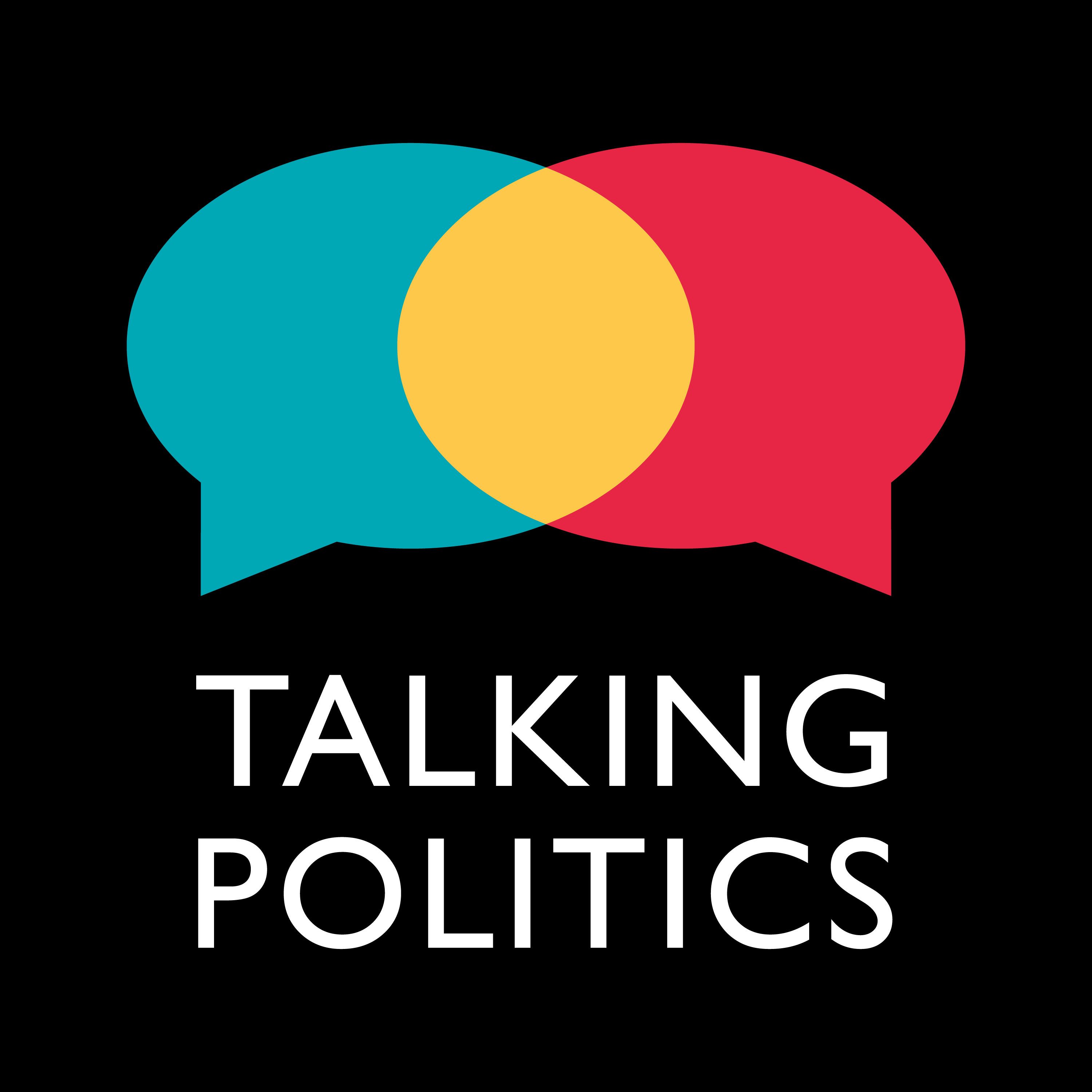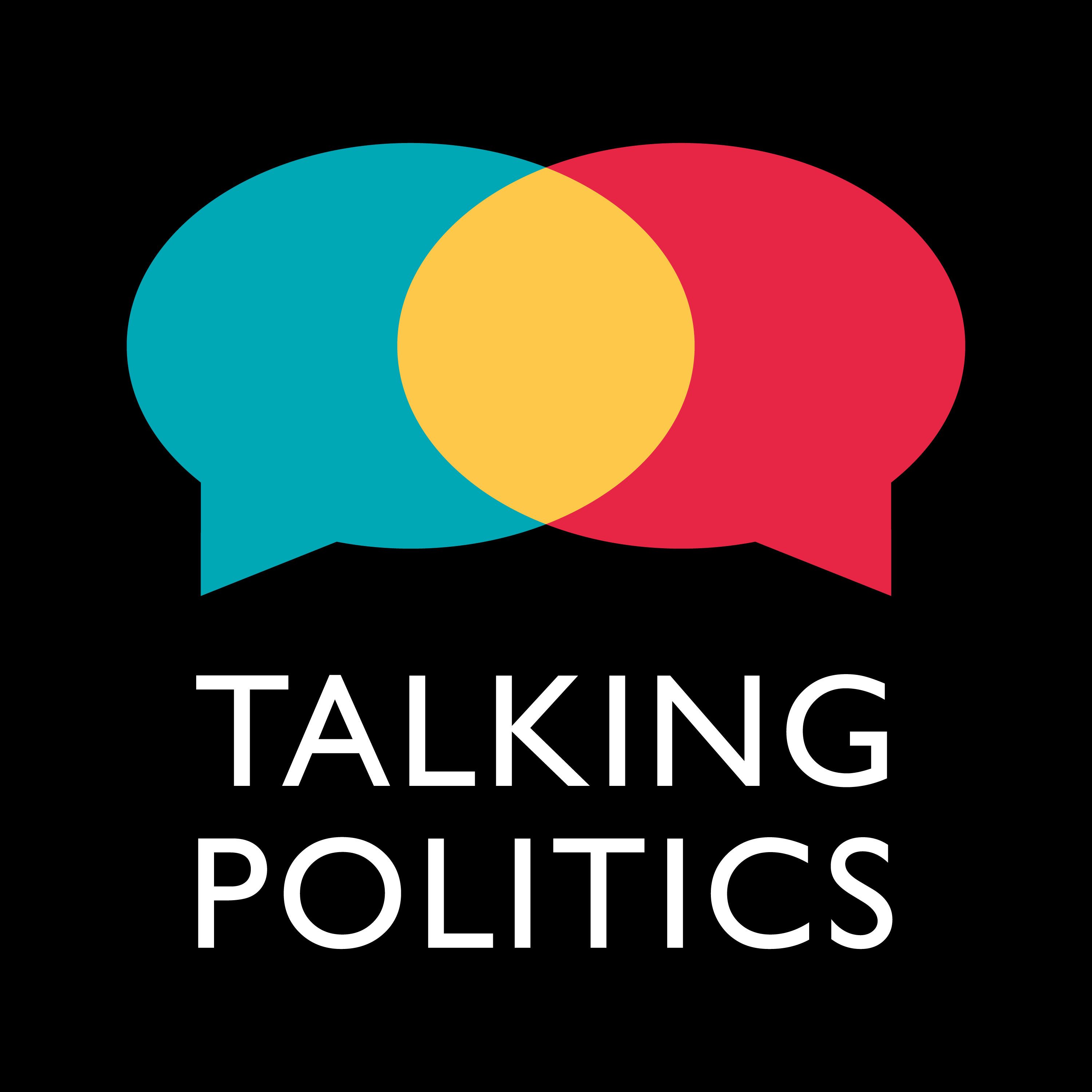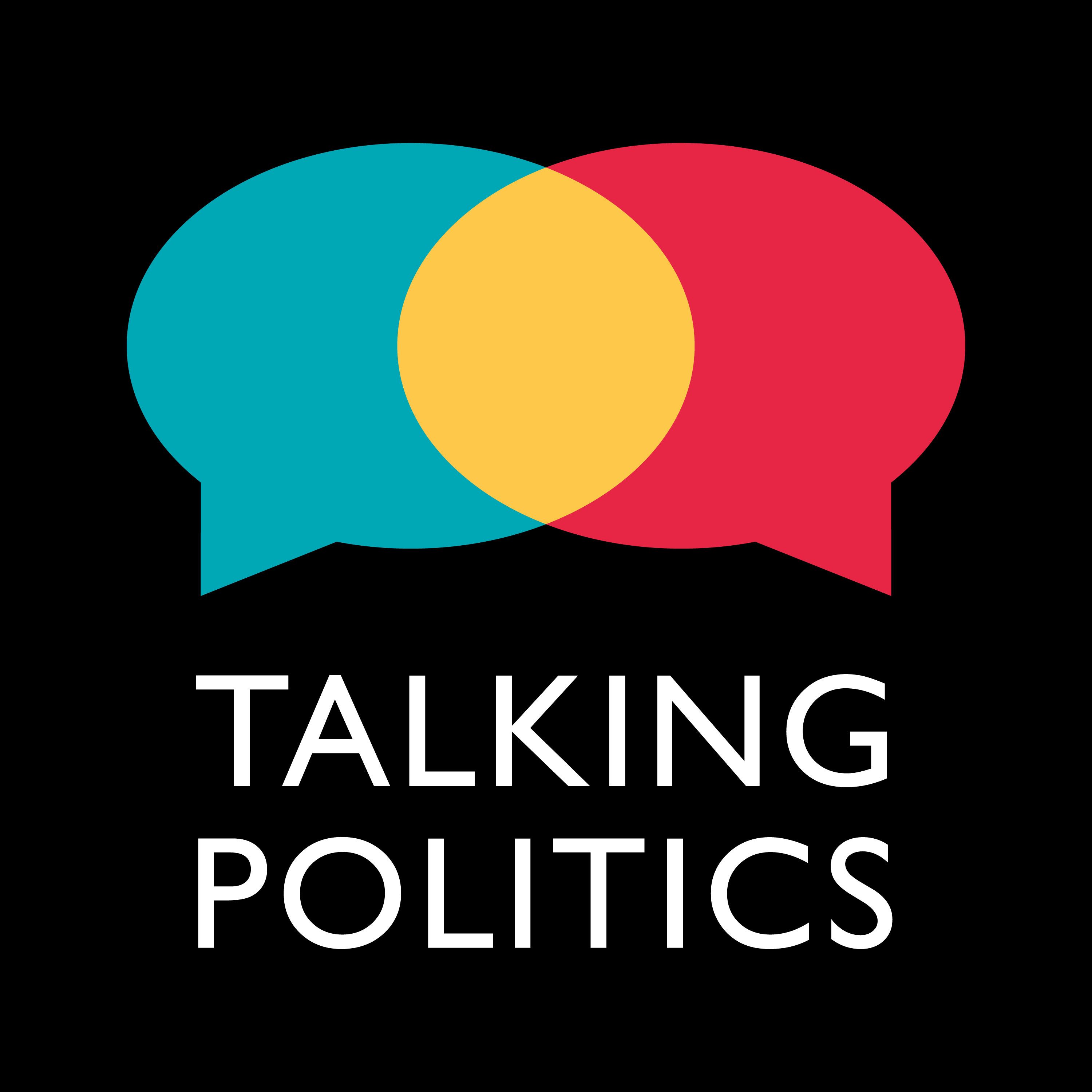TALKING POLITICS
Coronavirus! Climate! Brexit! Trump! Politics has never been more unpredictable, more alarming or more interesting: Talking Politics is the podcast that tries to make sense of it all. Every week David Runciman and Helen Thompson talk to the most interesting people around about the ideas and events that shape our world: from history to economics, from philosophy to fiction. What does the future hold?
Can democracy survive? How crazy will it get? This is the political conversation that matters.
Talking Politics is brought to you in partnership with the London Review of Books, Europe's leading magazine of books and ideas.
David and Helen talk to Chris Bickerton about how technocracy and populism have come together to create a new form of democratic politics. From New Labour to Macron's En Marche, from Dominic Cummings to Five Star, we discuss what these different forms of politics have in common and whether the pandemic has entrenched the hold of technopopulism or whether we are on the brink of something new.
Technopopulism: The New Logic of Democratic Politics
See acast.com/privacy for privacy and opt-out information.
David talks to Helen Thompson and Adam Tooze about the choices facing the world in addressing climate change. Can we transition away from fossil fuels while maintaining our current ways of living? Will we act in time if we also insist on taking our time? Can the West uphold its values while getting its hands dirty with China? Plus we discuss whether American democracy is the worst system of all for doing what needs to be done.
Talking Points:
The transition away from fossil fuels to non-carbon energy sources is, for now, constrained by the laws of physics around energy use.
- Converting one source of energy to another wastes a lot of energy.
- Do we make a bet on transcending the laws of physics via technological innovation when we have to deal with the timescales imposed by climate change?
Or is this way of framing things too negative?
- The story of modernity is about making technological bets against existing ways of life.
- Is a bet with a ticking clock different?
How do we actually get to carbon neutrality by 2050?
- Republicans in the US who take climate change seriously are betting on breakthroughs in carbon capture that will allow people to continue burning fossil fuels.
- The target itself is artificial. We are picking out of probabilistic outcomes of more or less dire futures.
There are different timescales at play here.
- There’s the inexorable progression of the problem itself; there’s political time, which is choppier but has rhythms to it; and there’s innovation time, which is not smooth at all.
There is no collective climate solution that doesn’t involve China.
- China is moving on the climate issue regardless of the West.
- China can do so in part because its market is so big, but also because its market is so new.
- The drama of the political economy of climate change right now is largely Asian.
- The Biden administration does not have a coherent climate change policy. The American debate seems frozen in the 1990s.
- In the background of the American debate about climate is geopolitics.
Mentioned in this Episode:
- Helen’s article on the geopolitical fight to come over green energy
- The Guardian on Princeton’s decarbonization by 2050 model
Further Learning:
- More on the inversion of the Gulf Stream
- Adam Tooze talks to Gideon Rachman about the climate crisis
- Adam on the pandemic and the world economy
And as ever, recommended reading curated by our friends at the LRB can be found here: lrb.co.uk/talking
See acast.com/privacy for privacy and opt-out information.
This week we discuss the government's post-Budget economic strategy and the new dividing lines in British politics. Have the Tories stolen Labour's clothes? Is there a new consensus emerging on tax and pend? What can Keir Starmer do to carve out a distinctive economic position? Plus we consider whether a new Labour leader in Scotland can kickstart a revival of the party's fortunes there. With Helen Thompson and Chris Brooke.
Talking Points:
Rishi Sunak’s plan in the short-term is to concentrate on economic recovery and to end pandemic support in a reasonably—but not entirely—gradualist fashion.
- In the medium-term, he’s saying there has to be an emphasis on paying for the pandemic and bringing the level of debt as proportion of GDP back down.
- Sunak wants the Conservatives to go into the next election as the party that claims to be serious about the economy, ie, cautious about debt.
- Both of the parties seem to be hoping that the past will come back—but it probably won’t.
Starmer put a heavy bet on the competence case against Johnson.
- That worked well for much of 2020. The bet was that Brexit would make things chaotic.
- But the pandemic has gone on longer than people expected, and the vaccine rollout is going well. The furlough scheme has also been continued.
In two-party politics, the two parties often tend to converge. Is this happening in the UK?
- Both parties have an interest in constructing the convergence as an illusion; but is it?
- Brexit has produced some convergence because Labour isn’t trying to rejoin Europe.
- Financial and monetary market conditions make it possible to sustain huge levels of debt.
- Most of the Western world have responded to China’s industrial strategy by calling for an industrial strategy.
- The Tories are now putting a big emphasis on green energy; this also brings them closer to Labour.
The politics for each party are different.
- Labour needs to persuade people it has a plausible growth strategy because that is what they need to flourish.
- The big risk for the conservatives is unemployment.
- Labour needs to expand its electoral coalition; this won’t be easy, but the return of mass unemployment might provide one way of doing this.
Further Learning:
- More on Rishi Sunak’s budget
- Johnson’s green energy plans
- Why public debt is not like credit card debt
- On Starmer’s response to the budget
- Who is Anas Sarwar?
And as ever, recommended reading curated by our friends at the LRB can be found here: lrb.co.uk/talking
See acast.com/privacy for privacy and opt-out information.
In the latest in our series on the fate of the Union, we talk to historians Richard Bourke and Niamh Gallagher about the history of Northern Ireland's relationship to the rest of the UK. From the Anglo-Irish Union to partition to the Troubles to the Peace Process to Brexit and beyond, we discuss what makes Northern Irish politics so contentious and whether consensus is possible. Plus we ask if Irish re-unification is coming and what it might look like.
Talking Points:
The Anglo-Irish union was a response to the 1798 rebellion. It was a means of pacification through incorporation.
- The union in Ireland came before Catholic Emancipation, which took place in 1829. By then, a political movement based on disaffection had already commenced.
- In material terms, the union added 5 million new subjects (England at that time had a population of roughly 8 million). It also added a new dimension of grievances.
The home rule movement was seeking a devolved administration, but failure to deliver that made the Irish Catholic movement more committed to independence.
- Meanwhile, Northern opinion became more alarmed about being subject to Southern jurisdiction.
- The Government of Ireland Act in 1920 formalized partition.
- Many politicians at the time hoped to see reunification within the context of the British Empire, but that did not come about.
In Northern Ireland, proportional representation was abolished in local elections in 1923, and in general elections in 1929. In practice, Northern Ireland became a single party state with a large, disempowered minority.
- Political activism in the 1960s was also influenced by the civil rights movement in the US and the increase in the Catholic student body in universities.
At some point during the 20th century, the dynamics of Northern Ireland became seen as a problem that didn’t apply to the rest of Britain.
- The 1998 solution was creative: the talks were taken out of the UK context and put into a wider context with the United States and the EU.
- The Good Friday left the categories of nationalists vs. unionists intact.
Today, Unionism in the North has become a new phenomenon focused on its own domestic welfare and constituency.
- The worst nightmare of Unionism is coming true: when the Troubles started, 33% of the population was Catholic. This summer, there will probably no longer be a culturally Protestant majority.
- Brexit has revived talk of unification. But reunification could take many different forms.
Mentioned in this Episode:
- Niamh’s book, Ireland and the Great War: A Social and Political History
- Richard’s book, Peace in Ireland: The War of Ideas
- The Good Friday Agreement
Further Learning:
- David McKittrick and David McVea, Making Sense of the Troubles
- Alvin Jackson, The Two Unions
- Marking the centenary of Northern Ireland
And as ever, recommended reading curated by our friends at the LRB can be...
See acast.com/privacy for privacy and opt-out information.
This week we talk to Suzanne Heywood about her memoir of her late husband, Cabinet Secretary Jeremy Heywood - the man who helped to run Britain for more than two decades, working with four different prime ministers. From Black Wednesday to Brexit, from the Blair/Brown battles to the surprising successes of the Coalition, Jeremy Heywood had a unique position at the heart of British politics. We discuss what he did, what he learned and what he wished had turned out differently.
Talking Points:
The book starts with the ERM crisis.
- This was the start of a story that arguably runs through Brexit.
- Jeremy told David Cameron that he would need to address immigration with Europe, but he knew that this would be difficult.
Blair had a huge parliamentary majority; this meant he could do many of the things that Jeremy wanted to see done.
- Jeremy was positive about how much had been achieved, particularly in public services.
- Progress was more difficult under Brown. The financial crisis created enormous strain.
- Jeremy and Gordon Brown worked very closely together on the financial crisis.
During political transitions, all the ‘in-flight’ initiatives pause. Any one of them may or may not land as you previously expected.
- As a civil servant, you also have to be able to switch your personal loyalties.
- The change in style between governments can be significant. New administrations come in with a new language, a new tone.
- Civil servants have to keep the show on the road, and also adapt.
At what point do civil servants have to swallow their personal objections and get on with things?
- Ministers represent the electorate; civil servants support ministers in delivering on their promises.
- Civil servants can push and make certain arguments, but once a decision is made, they have to move forward with implementation.
Jeremy’s real genius was in relationships.
- He inspired people; they wanted to do their best for him.
Mentioned in this Episode:
Further Learning:
- The Talking Politics Guide to … Being a Civil Servant
- ‘Remembering Jeremy Heywood,’ in The Guardian
- Bronwen Maddox reviews Suzanne’s book for the FT
- From our archives… The Next Referendum?
And as ever, recommended reading curated by our friends at the LRB can be found here: lrb.co.uk/talking
See acast.com/privacy for privacy and opt-out information.
David and Helen talk to Nick Timothy, former chief of staff in Downing Street under Theresa May, about the future for Boris Johnson's government. Is he now safe from leadership challenges? Can he hold together the coalition that won the 2019 election? Is Keir Starmer the one under pressure? Plus we discuss where the next big destabilising threat to this government might come from: Scotland, Northern Ireland, the EU, China?
Talking Points:
Is Johnson’s political position more secure now?
- If the government can end on a high note with the vaccine rollout, that might be what people remember.
Boris probably doesn’t want to be an austerity prime minister.
- Sunak wants to get the economy moving and send some signals to the market that there’s fiscal responsibility.
- Sunak may also want to create a fiscal dividing line with Labour.
- But without financial market pressure, it’s hard to see how Sunak is going to win this argument about fiscal probity.
- Political reality, and new voters, may push the Tories toward more spending against the instincts of many MPs.
Starmer still faces serious structural problems: Labour is in trouble in Scotland and the increasing importance of cultural issues create problems for Labour in the Red Wall.
- Although the government has made mistakes with the pandemic, public opinion has been fairly understanding.
- Starmer hasn’t really been able to talk about anything other than the pandemic.
Who is in the biggest trouble in Scotland?
- Johnson faces big issues around the union, but in terms of electoral outcomes, it’s probably Starmer.
- What would happen if a government without an English majority has to act as an English government again due to a crisis?
- Johnson is particularly unpopular in Scotland.
The Tories are worried about the union, but there aren’t obvious solutions.
- Northern Ireland is at the center of these problems.
Mentioned in this Episode:
- Tom McTague in the Atlantic, ‘Britain’s pandemic story can still be rewritten’
- Nick Timothy in The Telegraph
Further Learning:
- Are MPs out of sync with their voters?
- What is the Union?
- On Johnson’s unpopularity in Scotland
- More on the Northern Irish Protocol
And as ever, recommended reading curated by our friends at the LRB can be found here: lrb.co.uk/talking
See acast.com/privacy for privacy and opt-out information.
David talks to Bronwen Maddox, Director of the Institute for Government, about how well the Johnson government has performed over the past year of the pandemic. There have been some successes - the furlough scheme, vaccines - and plenty of failures - education policy, health outcomes. But which were the key choices? Who can claim the credit? And where does the blame really lie? Plus we discuss how much personality still matters in political decision-making.
Talking Points:
What has the government done well over the last year?
- It got financial support to a lot of people, surprisingly quickly.
- Building this infrastructure was inadvertent—it was for Universal Credit.
Vaccines have been heralded as a success story; can the government really claim credit?
- It has been funneling money to some of the groups that were successful.
- The government did a good job in buying vaccines and choosing where to invest.
- In the rollout, you get something analogous to test and trace. Much of this is being done through the NHS, which makes it easier.
What went the most wrong?
- There were at least 20,000 care home deaths in the first few months. And just about half of the deaths have happened since mid-November. These both look avoidable.
- The education mistakes were disastrous.
A case often made against this government is that one of their key problems is timing.
- Johnson’s instinct to delay a decision in the middle of uncertainty might in other circumstances be more positive, but so many times the delay has been damaging.
The government says it’s been following the science, but science is often uncertain too.
- It’s hard for politicians to communicate uncertainty.
- Still, people in the UK still trust scientists despite the government’s communications failures.
With coronavirus, Starmer opted for a politics of competence.
- If your opponents start doing something competently (ie the vaccine rollout), then what do you do?
- The politics of competence doesn’t get people fired up in the streets.
- People often take competence for granted. They want something on top of that.
Mentioned in this Episode:
Further Learning:
- Bronwen’s recent report, ‘Coronavirus: no going back to normal’
- Covid chaos: How the UK handled the coronavirus crisis, from the Guardian
- ‘How the UK boosted its vaccine manufacturing capacity,’ from the FT
- The latest on the vaccine rollout
And as ever, recommended reading curated by our friends at the LRB can be found here: lrb.co.uk/talking
See acast.com/privacy for privacy and opt-out information.
In this extra episode David catches up with Thant Myint-U to discuss the latest developments in Burma (Myanmar), following the overthrow of Aung San Suu Kyi's government. What prompted the generals to act? What do the protestors want? And what does it mean for the future of Burmese democracy? Thant Myint-U is the author of The Hidden History of Burma.
Further Reading
https://www.lrb.co.uk/the-paper/v41/n22/thant-myint-u/not-a-single-year-s-peace
https://asia.nikkei.com/Opinion/Myanmar-should-use-COVID-crisis-to-end-30-years-of-crony-capitalism
https://www.frontiermyanmar.net/en/myanmar-needs-to-reimagine-its-economic-future/
See acast.com/privacy for privacy and opt-out information.
For this first in our series looking at the future of the UK, we talk to the historian Colin Kidd about the origins of the Union and the ideas that underpin it. Is the island of Britain a natural territorial political unit? Is nationalism compatible with Unionism? What changed in the 1970s? Plus we discuss how the shifting character of the SNP has shaped the arguments for and against the Union.
Talking Points:
Historically, the Kings of England considered themselves rulers of the whole island.
- But any large community must be imagined. It’s inherently artificial.
- Those who have tried to impose unified rule over the island by force have historically struggled.
- England has served as a quasi-imperial power on the island.
The union in 1707 was a product of contingency, part of a succession crisis.
- At the time, the real drama was Jacobitism, not the English versus the Scots.
- What united Britain in the 18th century is not so much positive factors, but an ongoing series of wars.
The height of British consciousness came during the two world wars.
- What happened in the 60s and 70s that made the union look less attractive?
- The 70s with the election of Thatcher are the crucial decade.
- Asymmetrical devolution has been destabilizing for the union.
Secularization led to Scots moving away from private identities being linked to denominational allegiances to a broader, more secular national identity.
- The SNP in the 1930s had little traction; the communists were more influential.
- It’s only in the 1960s that the SNP made a breakthrough.
For at least a time, there was a sense of coexistence between patriotism and Britishness.
- The BBC from the 1920s to 1970s helped cement an authentic sense of British nationhood.
- Labour played an important part of this story; British patriotism was tied to collective war experiences, the welfare state. When those things came under pressure in the 1970s, finding an outlet for union patriotism became more difficult.
The SNP is a curious hybrid: it includes hard-core nationalists, but also social democrats, like Sturgeon, who think the best way to preserve the welfare state in Scotland is by going it alone.
- The unionist/nationalist binary might not be helpful; arguably the most important binary is within the SNP itself.
Mentioned in this Episode:
- Colin’s book, Union and Unionisms
- Benedict Anderson, Imagined Communities
- Linda Colley, Britons
- The Guardian on the Labour Party’s new strategy
Further Learning:
And as ever, recommended reading curated by our friends at the LRB can be found here:
See acast.com/privacy for privacy and opt-out information.
This is episode 1 of the new HISTORY OF IDEAS series from Talking Politics. To hear the remaining 11 episodes, please subscribe to History of Ideas!
Jean-Jacques Rousseau’s Discourse on Inequality (also known as the Second Discourse) tells the story of all human history to answer one simple question: how did we end up in such an unequal world? David explores the steps Rousseau traces in the fall of humankind and asks whether this is a radical alternative to the vision offered by Hobbes or just a variant on it. Is Rousseau really such a nice philosopher?
Recommended version to purchase
Going deeper…
- Leo Damrosch, Jean Jacques Rousseau: Restless Genius (2005)
- David Edmonds and John Eidinow, Rousseau’s Dog (2007)
- Pankaj Mishra, ‘How Rousseau predicted Trump’, The New Yorker (2016)
- (Audio) In Our Time, The Social Contract
See acast.com/privacy for privacy and opt-out information.
We look at two countries where things may be changing: Germany, as it starts to imagine life beyond Merkel, and Italy, after the resignation of the prime minister. Would Armin Laschet as Chancellor mean business as usual? Can Conte cobble together a new government? Where are the biggest challenges to the established order coming from? Plus we talk about the new politics of vaccine nationalism. With Helen Thompson, Hans Kundnani and Lucia Rubinelli.
Talking Points:
In some ways Germany is in a state of continuity, rather than flux.
- Armin Laschet is a continuity candidate. Though it’s not clear that he will be the candidate for chancellor in the September election.
- Were Laschet to become chancellor, you would probably have a Black-Green coalition.
- Has the pandemic made coalition formation less difficult? If so, it would be because the Christian Democrats are in a stronger position than they were.
The German Greens may be different from other Green parties.
- When the Greens emerged in the late 70s/early 80s, it wasn’t clearly a left-wing party.
- The Greens have become more centrist on economic issues, and the Christian Democrats have moved left on environmental questions.
- As environmental politics becomes bigger, is there a constituency that will oppose this?
Anti-Americanism in Germany is now quite high.
- Ultimately, the Germany-US relation is more driven by structural factors; Germans don’t believe that they need the United States in the way they did during the Cold War.
- How committed is Germany to other European states that do feel threatened by Russia?
Conte resigned yesterday; he has 72 hours to try to come back.
- Conte resigned because Renzi decided to recall two of his ministers plus an undersecretary.
- Renzi said he no longer shares the method that the government is using, and he accused Conte of undermining democratic institutions through emergency legislation.
- Renzi accused Conte of not having a long-term plan for economic development and criticized his statist plans for the recovery fund.
- He also wants the government to accept the European Stability Mechanism for healthcare.
- These are a lot of demands for someone polling at close to nothing.
- The other two coalition partners don’t want anything to do with Renzi anymore. The question is whether they will stick to it and find a different majority, which seems difficult, or, whether they decide to bring Renzi back into government and get rid of Conte.
- The only disciplining effect here seems to be a fear of elections—and Salvini.
Conte was initially meant to be a placeholder prime minister.
- That changed with the second Conte government (from Summer 2019). The new coalition gave him more power. This grew with the pandemic.
- The conflict over how Italy spends its money is coming back in full force.
Further Learning:
David, Helen and Gary reflect on what lies ahead for American politics and for the Biden administration. Does Trump pose more of a threat from inside or outside the Republican party? Is immigration about to become the central partisan dividing line once again? How much good can calls for unity do in such a fractured country? Plus, we look at Trump's list of entrants for his garden of national heroes. From Emily Dickinson to Hannah Arendt to Woody Guthrie - but no Bruce Springsteen. What's going on?
Talking Points:
Many in the Republican Party, including McConnell, have never liked Trump—are they now breaking with him?
- Attempts to establish new parties can shake up American politics, but they rarely succeed.
- The Trump candidacy was a disaster for the Republican establishment from the beginning.
- McConnell is willing to consider impeachment because Trump still represents a threat to the mainstream Republican Party.
Success in American party politics requires party organization in all 50 states.
- This is not the kind of work that generally appeals to Trump.
- He will probably want to influence the political process from the outside, to make the existing system ungovernable.
The Biden administration wants to be much more ambitious on immigration.
- Previous attempts at immigration reform have failed.
- Biden has an opportunity to demonstrate government competence by focusing on vaccinations.
Biden has made clear that climate is a priority.
- This is politically useful for holding together the Democratic party.
- Biden has already pledged to cancel the Keystone Pipeline; at least on some issues he’s willing to take on the oil and gas industry.
- This quickly gets into foreign policy issues, especially re China.
Biden’s initial window is really two years, not four.
- Democrats should not be counting on a majority in the 2022 elections.
- They need to demonstrate the competence of the federal government. Though it may be difficult for any government to appear competent these days.
Mentioned in this Episode:
- ‘The Garden of American Heroes’
- On Fred Trump and Woody Guthrie
- The text of Joe Biden’s inaugural address
Further Learning:
- More on Biden’s immigration plan
- Green New Deal?
- Talking Politics American Histories… Monopoly and Muckraking
And as ever, recommended reading curated by our friends at the LRB can be found here: lrb.co.uk/talking
See acast.com/privacy for privacy and opt-out information.
David and Helen are joined by Diane Coyle and Anand Menon to have another go at pinning down the long term consequences of Brexit. Now we have a deal, what are the prospects for rebalancing the UK economy? Do EU politicians want a post-Brexit UK to succeed or to fail? Can Labour really avoid re-opening the Brexit wars for the next four years? Plus, an update on the next series of History of Ideas.
Talking Points:
Because of Brexit there is more friction in trade with the EU.
- People will feel the friction more and more as we get back to normal volumes of trade.
- Right now the volume is relatively low both because of Covid and because of seasonal fluctuations (things slow down after the holidays).
- It will be hard to disentangle Brexit effects from Covid effects.
We will be talking about Brexit for a long time.
- Future governments will be able to score easy economic wins by aligning more closely with the EU, although this may involve political trade offs.
- This may not be true when it comes to financial services.
- This trade agreement means that choices have to be made over and over again.
The British economy is taking two shocks: separating from the EU but also separating from what Osborne and Cameron called a golden era of UK-China economic relations.
- EU policy and British policy on China are diverging.
- The Uk government may focus more on India and other non-Chinese Pacific economies.
Brexit does create some opportunities.
- The UK is a world leader in AI, and there is a commitment to investing in energy technology, especially green energy.
- The UK is also a world leader in higher education and the creative sector; the problem is that the government has declared a sort of culture war.
A German-led EU tends to treat geopolitical questions as primarily economic questions rather than long-term security questions.
- China is going to put that commitment, formalized in the China Investment pact, to the test.
- Britain is now the liberal European state when it comes to foreign policy.
- The institutions that have been so successful at managing intra-European imbalances now prevent the EU from being an effective actor in international relations.
Mentioned in this Episode:
- Johnson’s piece for The Financial Times on green energy
- Anand on the HuffPo podcast with Rosie Duffield
- The UK in a Changing Europe
- ‘Who Killed Soft Brexit?’ Jill Rutter and Anand for Prospect
Further Learning:
And as ever, recommended reading curated by our friends at the LRB can be found here: lrb.co.uk/talking
See acast.com/privacy for privacy and opt-out information.
David talks to historian Jill Lepore about what took place at the Capitol on January 6th. What should we call it? What can we compare it to? And what should happen next? Plus we ask how Biden ought to address what happened in his inaugural next week. Are we past the time for talk about reconciliation?
Talking Points:
Is there a word for what happened in the US on 6 Jan?
- Many Republicans are still defending the insurrection. The likes of Limbaugh and Gingrich are calling it a ‘march.’
- The American Right always wants to resurrect the American Revolution and the Left wants to resurrect the Civil War.
- To call it an ‘insurrection’ is to evoke the language used to bar former Confederates from holding federal office.
A problem with Trump’s entire presidency has been that reporters and commentators have sought precedents in American history, but Jill thinks nothing in American history has been like this.
- Should we be looking to other countries, other failed democracies, for lessons?
- How do we balance the uniqueness of Trumpism with the familiarity of the things it draws upon?
Unlike right-movements in countries like Hungary and Turkey, the Trump project did not successfully co-opt the institutions of the state.
- American democracy is older than some of these other examples.
- The Conservative movement over the last few decades has managed to capture many institutions, namely the courts—although this is not necessarily Trumpism.
When Trump is out of office will it be easier for him to become a ‘martyr?’
- Conviction in an impeachment proceeding could be good for mainstream Republicans. It may also make a split in the party more likely.
Mentioned in this Episode:
- Jill in The New Yorker, ‘What Should We Call the Sixth of January’
- Jill on inaugural addresses for The New Yorker
- The Article of Impeachment against Trump
- Jill in The Washington Post on letting history judge Trump
- From our archives… Jill on the American Nation
And as ever, recommended reading curated by our friends at the LRB can be found here: lrb.co.uk/talking
See acast.com/privacy for privacy and opt-out information.
David and Helen look at what's changed - and what hasn't - since we last spoke, from Brexit to Biden to Covid. Has the Brexit deal really given the UK a chance to do things differently? Do Democrat wins in the Georgia Senate races open up new possibilities for Biden? What is at stake in the politics of vaccination? Plus, we talk about where things now stand for the future of the Union.
*Recorded before the events in Washington on Wednesday *
Talking Points:
What can the UK do that it couldn’t do before Brexit?
- From the start, the two biggest issues for Cameron were freedom of movement and financial services regulation.
- For the City, Brexit is a tradeoff. Although financial services will not be regulated in the EU, the American investment banks in London are unhappy about being shut out of equivalence for trading.
- Johnson is talking about innovation and dynamism. He doesn’t seem willing to say it’s about migration and the City of London.
Northern Ireland and Scotland will both be key questions that we will talk about in greater depth this year.
- There will be a growing sense of Northern Ireland’s separateness. The deal creates opportunities and risks for the government in Dublin.
- A trade deal changes what Scottish independence would mean.
Meanwhile, in the USA… the Democrats now have control of the Senate.
- This election could indicate the potential of a remarkable new coalition for the Democratic party.
- Or it could indicate a future where everything is contested.
- What can Biden get done before the next midterms?
- During the Obama years, the Republicans were extremely effective at voting as an oppositional bloc.
- Holding the Democratic senators together won’t be easy and Biden will not be able to blame oppositional Republicans for any failure to get things done.
- However a key benefit for the Democrats is that they will be able to confirm nominees.
Mentioned in this Episode:
Further Learning:
- From December… From Brexit to Scottish Independence
- More on the partition of Ireland
- More on the Georgia election results
- More on the European vaccine rollout
- From November… Post-Covid Economics with Adam Tooze
And as ever, recommended reading curated by our friends at the LRB can be found here: lrb.co.uk/talking
See acast.com/privacy for privacy and opt-out information.
Another recent talk by David on democracy: does it make sense to talk about fixing British democracy, and if so, how? David discusses electoral reform, institutional change and he returns to the question of votes for children.
See acast.com/privacy for privacy and opt-out information.
A recording of a recent talk by David on what we've learned in 2020 about the resilience of democratic societies in the face of disaster. Has the experience of Covid shown us how we can deal with climate change, or has it shown us what we are missing? An argument about optimism, pessimism and everything in between.
See acast.com/privacy for privacy and opt-out information.
This week David, Helen and our producer Catherine Carr look back at five years of podcasting and five years of crazy politics, to pick our favourite moments and to discuss what we've learned. From the 2015 general election to the current crisis, via the Corn Laws and Crashed, the politics of abortion and super forecasting, Corbyn and nuclear weapons. Plus, we'll let you know about some of our plans for 2021.
Episodes Mentioned in this Episode:
- Crashed with Adam Tooze
- Adam Tooze on post-COVID economics
- The Corn Laws with Boyd Hilton
- Another Shock! (From 2017) with Finbarr Livesey
- The Talking Politics Guide… to Nuclear Weapons with Aaron Rapport
- Superforecasting with David Spiegelhalter
- American Histories: The Great Abortion Switcheroo with Sarah Churchwell
- Catherine’s new podcast, Relatively.
And as ever, recommended reading curated by our friends at the LRB can be found here: lrb.co.uk/talking
See acast.com/privacy for privacy and opt-out information.
We look past Covid and Brexit to ask where the long-term opposition to Johnson's government is going to come from. Can Corbynism remain a force in British politics, even without Corbyn? Is there room for a challenge to the Conservatives from the right? Will climate politics drive street protest politics or can it help the Greens? Plus we consider whether Nicola Sturgeon is really the leader of the opposition. With Helen Thompson and Chris Brooke.
Talking Points:
Corbynist energy levels are low these days.
- There is a strong Corbynist presence on Twitter and in certain media institutions, but it’s not clear that it extends far beyond those bubbles.
- Much of the radical left politics in the near future will be defensive.
When Starmer ran for leader, he essentially offered Corbynism without Corbyn.
- The manifestos of 2017 and 2019 were popular inside the Labour Party and reasonably popular with the public.
- Corbyn did move the party out of New Labour’s shadow. Starmer has inherited a party that is firmly outside the New Labour mainstream.
- Although some Corbynists fear a return to New Labour-esque politics, Labour now seems to be a social democratic party in the European mold.
Will the Green Party benefit from these developments?
- Helen thinks that we are more likely to see increased green activism than a resurgence in Green Party politics.
- Many on the left are disenchanted with parliamentary politics.
- And over the last couple of years, the major parties have shifted on climate.
If Johnson is really committed to greener politics, does that open space on the right?
- Farage is positioning himself in this gap.
- This could intersect with a rebellion against lockdown.
What should Starmer do about Scotland?
- Could Starmer make a case that the democratic voice of the people of Scotland must be heard, and then make a social democratic case for the Union?
- A more federal union is going to require stronger institutions in England, which is probably to Labour’s disadvantage.
- Time for the SNP to weaken is probably the best way forward for both unionist parties.
Mentioned in this Episode:
Further Learning:
- James Butler on the Corbyn project for the LRB
- More on Macron, the constitution, and climate politics
- From our archives… Labour’s Fault Lines
- A profile of Andy Burnham from The Guardian
And as ever, recommended reading curated by our friends at the LRB can be found here: lrb.co.uk/talking
See acast.com/privacy for privacy and opt-out information.
As we wait for a Brexit deal or no deal, we discuss what the next year might hold for French and Italian politics. What are Macron's prospects as he heads towards the next presidential election? Has Giorgia Meloni replaced Matteo Salvini as the leader of the Italian far right? And what chance of a return to political normalcy in either country? With Lucia Rubinelli and Chris Bickerton.
Talking Points:
The Italian public is fed up with Brexit—there isn’t much public debate about it.
- Salvini is still playing with the idea that leaving the EU is a good idea, but not as seriously now.
- All the signals from the government suggest that Italy is lining up with Macron, but they aren’t trying to play a central role.
There are particular issues that affect different member states. The broader European unity is now being tested on certain key issues.
- The Irish are particularly affected by no deal.
- For France, the most important issue is probably the level playing field. Fishing also has a powerful symbolic element to it.
- It may come down to member states being willing to make compromises with each other, or not.
Italy was the first Western country to be hit by the virus and the first to lockdown. The response created a sense of pride.
- During summer, however, life went back to normal. It was basically a free-for-all.
- When cases began to climb again, the mood turned to frustration: frustration at the relationship between governments and regions, and frustration with certain policies, such as the closure of high schools.
- There is also the sense that Italy is lagging behind on the vaccine.
Macron also went in earlier on lockdown, and came out of lockdown earlier too.
- The idea that Macron has authoritarian tendencies has become part of the debate over COVID. There has been an almost permanent sense of emergency stretching from the yellow vest period to today.
- COVID has blurred into a border debate about the balance between security and civil liberties in France.
Mentioned in this Episode:
Further Learning:
- More on Johnson’s dinner with von der Leyen
- Why is fishing important in the Brexit trade talks?
- More on Article 24 in France
- A profile of Giorgia Meloni from Politico Europe
- More on France’s Green Party
And as ever, recommended reading curated by our friends at the LRB can be found here: lrb.co.uk/talking
See acast.com/privacy for privacy and opt-out information.
We try to join the dots from the final days of the Brexit negotiations to the looming prospect of another referendum on Scottish independence. Can the government really risk a no-deal outcome? Will the SNP still hold a referendum if the courts say no? What will Labour do? Plus we ask how COVID politics intersects with the fate of the Union. With Helen Thompson, Anand Menon and Kenneth Armstrong.
Talking Points:
Will there be a Brexit deal?
- We know the concessions both sides would have to make. What we don’t know whether either side is willing to make the concessions.
- The negotiation that matters is perhaps the one going on in the prime minister’s head.
- Debates over lockdown have reopened the space to the Conservative Party’s right.
- The Eurozone faces its own problem: trying to rescue the EU Recovery Fund from the impasse over the rule of law issue in relation to Hungary and Poland.
The Union is in a more precarious position than it was before.
- The SNP is doing surprisingly well. That gives Sturgeon some comfort in thinking that she can seek a mandate for another referendum if she wins a majority.
- How will they go about the referendum? Some people are floating the possibility of the Scottish parliament legislating for another referendum without the Section 30 order that would get consent from the UK.
- For people like Michael Gove, Scotland is a key reason to get a Brexit deal.
There is undeniably support for independence in opinion polls, but can the SNP offer a coherent independence project?
- Helen thinks that they still haven’t resolved the currency question. There’s also the border issue.
- Can the SNP accept an independent Scotland outside of the European Union? Membership has been a key part of the independence offer.
- Will timing favor the SNP or Westminster?
Brexit and Scotland are problems for Keir Starmer too.
- How will Starmer whip his MP’s to vote if a Brexit deal comes back?
- Labour without seats from Scotland will find it hard to win another election.
- Ultimately, the major economic event of this parliament is going to be Brexit, not COVID, or at least it will be close, so Labour needs to come up with some kind of narrative.
- Labour’s strength in Scotland bound the Union together. It hasn’t come back since 2011. This makes it hard for any party other than the Conservatives to be dominant in Westminster, particularly under conditions of asymmetrical devolution.
Mentioned in this Episode:
Further Learning:
And as ever, recommended reading curated by our friends at the LRB can be found here: lrb.co.uk/talking
See acast.com/privacy for privacy and opt-out information.
This week we talk about race and representation with Cathy Cohen of the GenForward Survey project based in Chicago. What do young Americans want from democratic politics? How do their priorities vary according to race and ethnicity? And can a Biden presidency deliver on the desire for real change? Plus we catch up with Jeevun Sandher and Michael Bankole of the Politics Jam podcast to explore a UK perspective on why young and minority voices find it so hard to be heard.
Talking Points:
We are seeing more racial and ethnic diversity in generations than ever before.
- Young people break for Biden, but for young white men, it was about 50-50.
- In 2012, a plurality of young whites voted for Romney. If we look only at generation we miss part of the story.
- The story about ‘young people’ is being driven by young people of colour.
Does Biden have a problem with young people?
- Many young people voted against Trump rather than for Biden.
- They decided to vote against Trump and organize against Biden.
- What is the best method for achieving racial progress in the US? Young African Americans are pointing to the need for structural change.
- Young people are rejecting the idea that change comes from national-level voting. They are redefining what democratic practice might be.
Young people broadly favor a more expansive state.
- The Biden agenda is more about tweaking at the edges.
- There is going to be a real tension. Will there be the infrastructure to mobilize young people? Can they pressure the administration?
- This generation is highly educated, but they are also precarious. There is an increasing mismatch between the promise of higher education and what it delivers.
- The younger generation is highly indebted because of higher education.
In both the UK and the US, young people haven’t been represented well by the political system.
- There are specific issues that young people want to see addressed, including systemic racism.
- Ethnic differences among young people need to be taken into account in the UK too.
- The political class in the House of Commons is unrepresentative in many ways. It skews old and it skews white.
- Conservatives tend to represent white seats. The First-Past-the-Post system doesn’t incentivize serious engagement with ethnically diverse constituencies.
Mentioned in this episode:
- The GenForward Survey
- The Black Youth Project
- Politics JaM
- Jeevun’s academic profile
- Michael’s academic profile
- Anne Phillips, The Politics of Presence
- Thomas Saalfeld on substantive representation
And as ever, recommended reading curated by our friends at the LRB can be found here: lrb.co.uk/talking
See acast.com/privacy for privacy and opt-out information.
David talks to author and radio host James O'Brien about everything from therapy to Brexit and from educational privilege to Keir Starmer's leadership of the Labour Party. Recorded as part of the Cambridge Literary Festival https://cambridgeliteraryfestival.com/. James's new book is How Not to be Wrong: The Art of Changing Your Mind.
See acast.com/privacy for privacy and opt-out information.
This week a special edition from the Bristol Festival of Economics with Helen Thompson and Adam Tooze talking about what might follow the pandemic. From vaccines to changing patterns of employment, from action on climate to new tensions with China, we explore what the long-term effects of 2020 might be. Plus we discuss what options are open to a Biden administration: with the Georgia run-offs to come and the disease still spreading, how much wriggle room has he got?
Talking Points:
Headlines about the COVID vaccines focus on effectiveness, but it’s also about supply chains, storage, and scale.
- Things are moving so quickly right now in part because so many people, especially in the US, are getting sick.
After the initial financial meltdown in March, in aggregate terms there was a share market recovery—one which was at odds with what was going on with people’s lives.
- Surging American unemployment numbers went alongside the S&P 500’s continued rise.
- The biggest beneficiaries initially were big tech. Now big pharma seems to be gaining.
- Is there a structural conflict in the allocation of capital between big tech and big pharma?
- Big tech probably won’t be facing much of a challenge from the White House.
The Biden administration will be embroiled in crisis politics from Day 1.
- The epidemic in the US right now looks terrifying, and Thanksgiving is on the horizon.
- The logic of economic crisis management is about time.
- The Democrats are going to have a hard time getting things through Congress, and the fact that things are so hard will divide them further.
The Biden Administration will make early moves on climate.
- It will be hard for Biden to take climate seriously without some kind of detente with China, but getting there is hard to imagine.
After the health crisis ends, some jobs might not come back.
- The effectiveness of short-term working means that the unemployment crisis has not yet hit in Europe.
- The US unemployment crisis is in full swing. So far, the bounce back has been relatively quick. But there will be a manifest social crisis.
There are imaginably worse pandemics than this one, and yet we have responded in an almost unimaginable way.
- This is a highly mediatized, diffuse threat that has acquired huge salience.
- This is the most extraordinary thing that has happened in modern economic history.
- A lot of this unprecedented response was voluntary.
Mentioned in this Episode:
- Biden’s piece in Foreign Affairs
- Paul Krugman’s latest piece for the NYTimes
- Our last episode with Adam
Further Learning:
- The NYTimes’ COVID vaccine tracker
- More on China’s pledge to become carbon neutral by 2060
- https://www.ideasfestival.co.uk/themes/festival-economics
And as ever, recommended reading curated by our friends at the LRB can be found here:
See acast.com/privacy for privacy and opt-out information.
We talk to the historian Margaret MacMillan about the changing character of war, from the ancient world to the twenty-first century. Do we still understand the risks? Where are the conflicts of the future likely to break out? And how can we reconcile the terrible destructiveness of war with its capacity to bring about positive change? Plus we talk about why war produces so much great art.
Talking Points:
Is the way we commemorate war distancing us from the reality of it?
- Those who have seen war tend to be wary of it.
- There is complacency in a number of countries that war is something that ‘we’ don’t do anymore.
War is terrible, yet so much of the innovation that we value seems intertwined with it.
- For many people WWI exemplifies the futility of war, yet many of the things we value came out of that war, particularly political and institutional change.
- WWI essentially gave Europe modern welfare states and universal suffrage.
- The two world wars also led to much greater social equality.
- There seems to be a deep connection between peace and inequality, and violence and equality. But it might depend on what countries and what wars you look at.
If war is connected to innovation because it is so wasteful you cannot recreate those conditions.
- Perhaps we are doing something similar with COVID, but climate change is the true existential crisis.
- Climate change does not seem to be a unifying crisis.
- Declaring ‘war’ on an abstraction is dangerous. How do you know when it’s over? Wars on abstractions are wars without limits.
Templates from the past don’t fully apply to the US-China relationship.
- There is the nuclear element, which should hypothetically rule out war.
- There’s also the energy resource conflict question: China has been able to take responsibility for its own energy security.
- In the long run, it is in the interests of both the US and China to cooperate with each other. The problem is the political factor.
Mentioned in this Episode:
- Margaret MacMillan, War: How Conflict Shaped Us
- General Nick Carter’s interview with Sky News
- Walter Scheidel, The Great Leveler: Violence and the History of Inequality from the Stone Age to the Twenty-First Century
- Rana Mitter, China’s Good War
- ‘La Grande Illusion’
- Tim O’Brien, The Things They Carried
- ‘Apocalypse Now’
Further Learning:
Now that we have a result, David and Helen reflect on what the next four years might hold. What issues could define a Biden presidency? Has this election indicated a possible realignment of American politics? And is it enough to restore faith in democratic politics? If Trump is not how democracy ends, where does the real danger lie?
Talking Points:
Biden faces three big issues: China, climate, and COVID.
- It’s probably not possible to go back to US-China relations pre-Trump. However, China does perceive this election as significant.
- Making climate a priority has implications for the China relationship.
This was too close to be a realignment election. Both parties turned out their vote because they had oppositional energy.
- But there are shifts within. Florida went red, but people voted to increase the minimum wage. California went blue, but people voted to resist the unionization of essentially Lyft and Uber workers.
- Trump has opened up the possibility for a more cross-racial, working class Republican Party. These shifts are still small, but it will be hard for them to go back to being a party of tax cuts for the rich, deregulation, and cultural conservatism.
- It’s more complicated for the Democrats. There has been a shift to the left, but there are also deep divisions in the party.
A lot of the ‘Trump is how democracy ends story’ didn’t add up. How can American democracy have been so vulnerable, and yet so easily restored?
- The threats to democracy: COVID, climate, and China, don’t fit electoral cycles.
- American democracy faces huge medium to long term challenges; too much energy has gone into short term risks.
- Trump has allowed people to close their eyes to deeper structural problems.
Trump’s presidency did have serious geopolitical implications.
- He changed American policy on China; most of the political class now regards China as a serious strategic rival.
- He changed relations with Iran, and, in doing so, relations with Europe.
- He pulled the US out of the Paris Climate Accord.
Mentioned in this Episode:
- China, climate, COVID: the new energy map
- David’s book, How Democracy Ends
- David on TP: How Democracy Ends
- Joe Biden’s victory speech
Further Learning:
- Biden’s endorsement interview with the NYTimes (on big tech and other things)
- Talking Politics American Histories: Monopoly and Muckraking
- Stacey Abrams’ fight for a fair vote, from The New Yorker
And as ever, recommended reading curated by our friends at the LRB can be found here: lrb.co.uk/talking
See acast.com/privacy for privacy and opt-out information.
David, Helen and Gary convene on very little sleep to try to make sense of another extraordinary election. Though we still don't know who won, we do know that some things are going to get even harder for American democracy. What's the nightmare scenario: the loser refusing to lose, or the winner being unable to govern? Why did the pollsters get it wrong again? And what's likely to happen when the contest reaches the courts? Plus we ask if the American Constitution can cope with close elections any more.
Relevant Episodes:
From our Mini-Series:
- History of Ideas on Tocqueville and American democracy
- American Histories: The 15th and the 19th
- American Histories: Deporting Mexicans
- American Histories: The Great Abortion Switcheroo
Old Episodes on Trump:
- What Trump Means to Us
- One-term presidents
- Can America Cope
- American Fascism: Then and Now
- America First?
- Michael Lewis on Donald Trump (And Michael Lewis Updated)
- Trump and History
A Broader Perspective on US Politics:
- The Talking Politics Guide to … the US Constitution
- Police State USA
- Adam Tooze on US vs. China
- Judith Butler: Then and Now
- Where Power Stops
- The Talking Politics Guide to… the Gilded Age
- Inaugurals
From the LRB
See acast.com/privacy for privacy and opt-out information.
David talks to Roberto Foa about his recent report into young people's attitude to democracy around the world. Why are millennials so much less satisfied with democratic politics than older generations? Can populist politics do anything to alter that? And what does the generation divide tell us about changing attitudes to Trump? Plus we discuss the generational politics of climate change, education and wealth inequality.
The report in full: https://www.cam.ac.uk/system/files/youth_and_satisfaction_with_democracy.pdf
See acast.com/privacy for privacy and opt-out information.
A conversation with Pulitzer Prize-winning author Daniel Yergin about the new energy map of the world. What impact has the shale revolution had on global politics? Is China winning or losing the energy wars? And will the energy transition happen fast enough for climate change?
Daniel's book: www.waterstones.com/book/the-new-map/daniel-yergin/9780241472347
Helen on oil: play.acast.com/s/talkingpolitics/oil-
See acast.com/privacy for privacy and opt-out information.
Helen and David talk about what four years of Trump - and of talking (and talking) about Trump - have meant for their thinking about America and about democratic politics. Is it possible to give a balanced picture of Trump's presidency? Have the last four years followed a pattern or has it just been chaos? What is the likely legacy of Trump's extraordinary level of global fame? Plus we discuss whether 2020 marks the beginning of the 'short' twenty-first century and what that means for Trump's place in it.
Talking Points:
Will historians see 2020 as the start of the ‘short’ 21st century?
- If so, Trump belongs to the interregnum. He’s not a dramatic break.
- Certainly there are continuities, for example, in the Middle East. But there are also discontinuities with China and Iran.
- Is the pandemic a fundamental watershed?
Is American power in decline?
- In some ways, the US is more powerful this decade than it was the decade before.
- The US has a strong domestic energy supply again.
- The Fed is still an international lender of last resort.
- One of the consequences of the pandemic was that in March the Fed effectively extended an indirect dollar credit line in principle to China.
- The story about rising Chinese power is not straightforwardly at American expense.
- The domestic political turmoil in the US is going to be consequential to the American-Chinese strategic competition.
The Republican party got what they wanted out of a Trump presidency, the courts.
- In that sense, 2020 could be another watershed year: pre-Barrett and post-Barrett.
- Although history of the court suggests that partisan affiliations don’t always predict outcomes.
- Since the late 1960s/early 1970s, American politics has become judicialized.
- The crucial point is the intense politicization of these decisions.
Trump invokes huge depths of revulsion in many Americans. Trying to stand back and look at his presidency historically can seem like moral indifference.
- The narrative about Trump as a singular evil is the lens through which many people have lived their lives in the past four years.
- This narrative takes a pretty distorted view of the American past as well as the state of the republic before Trump.
- Trump seems incapable of understanding the distinction between the president as head of state and the president as head of government.
- Geopolitically, the Trump presidency has made a difference, especially in relation to China.
Mentioned in this Episode:
- Our post-election episode from 2016
- Our last episode with Gary Gerstle
- Our last episode with Sarah Churchwell
- Our most recent crossover with 538
- David’s review of David Cameron’s memoirs
Further Learning:
- Hobsbawm’s Age of Extremes: The Short 20th Century
See acast.com/privacy for privacy and opt-out information.
We talk to Peter Geoghegan of openDemocracy and Jennifer Cobbe of the Trust and Technology Initiative about Cambridge Analytica, money, power and what is and isn't corrupting our democracy. How easy is it to buy influence in British politics? Did Cambridge Analytica break the rules or show just how little difference the rules make anyway? Who has the power to take on Facebook? Plus we discuss why the British government's failure to handle the pandemic tells us a lot about the corrosive effects of cronyism. https://www.petergeoghegan.com/books/
Talking Points:
The ICO report on Cambridge Analytica largely concluded that their tactics were not unusual.
- Of course, we can take issue with the fact these practices are so widespread.
- One of the reasons Cambridge Analytica was such a scandal was that people didn’t realise they could be targeted in this way.
- Cambridge Analytica and organizations like it can do is seed misinformation into a wider ecosystem. They take advantage of the lack of regulation.
- Sowing misinformation doesn’t require sophisticated skills; it’s easy.
The conversation about micro-targeting often centers on Cambridge Analytica, but we need to look at the structures that make these practices so easy and so potent.
- Facebook makes all of this really easy to do. Why were we so complacent?
- When we think about the influence of money in politics, it’s easy to imagine nefarious people throwing around big sums, but at least in the UK a small amount can go a long way when people have the right connections. This is cronyism.
The pandemic has made the tech giants unthinkably wealthy.
- At the same time, they’ve changed the way that money affects politics.
- Could Trump have won without Facebook and Twitter?
- The tech companies do not need to lobby politicians in the traditional sense because they are simply that powerful.
Governments are dependent on these technologies, as we all are.
- Can we think about the tech companies as the technical infrastructure of society?
- Right now, these companies have a huge amount of discretion.
Cronyism has been a prominent feature of the UK Government’s COVID response.
- There is a strain in a certain school of political thought that the state isn’t good for much. When politicians who believe that are in charge, it can be self-fulfilling.
- A hollowed out state creates space for more cronyism.
- The civil service has become a punching bag. This could have a long tail.
Does the system that needs reform have the capacity to generate the necessary reforms?
- When it comes to tech, the biggest problem is ideological.
- It’s hard to get politicians to agree that changing micro-targeting is necessary because they all use it.
- Politicians do not want to change a system that has benefitted them even if they can recognize its flaws.
- Can you build a coalition that would force them to do so?
Mentioned in this Episode:
- The UK Information Commissioner's Office report on Cambridge Analytica
- Peter’s book, Democracy for Sale
- Jennifer’s recent piece in the Guardian
See acast.com/privacy for privacy and opt-out information.
David talks to the historian Sarah Churchwell about how well America's political institutions have withstood the stress of the last four years. Have we seen the limits of presidential power or have we discovered how easy it is to trash those limits? Are constitutional checks and balances still intact? Is it really Mitch McConnell who is putting American democracy under stress? Plus we talk about what will be needed to restore the social contract and the perils of political humility.
Talking Points:
Many of the founding institutions in political life have been put under stress during the Trump administration.
- Trump has said a lot, but he hasn’t done much. We’ll have a better sense of the extent of the damage after the election.
- Trump’s behaviour often gets more outlandish as the constraints on his power become more visible.
The power of the U.S. executive has been growing, certainly since 9/11.
- Both Bush and Obama strengthened the executive presidency.
- Some have argued that Trump’s incompetence precludes authoritarianism. Strong men have to be strong.
- But from an institutional standpoint, the Trump presidency has revealed that the American system is vulnerable to strongmen leaders.
Because congressional Republicans have sanctioned his behaviour, Trump has not been as constrained as he might have been.
- The other institutional check that often flies under the radar is states rights.
- The electoral system is bound up in local state power. Every state has a series of strong, legally required actions that go into certifying vote counts.
- So far, states rights has been the most effective check on Trump’s power.
We focus on Trump, but the lasting legacy of the Trump presidency may be elsewhere.
- If the lasting legacy of Trump is in the judiciary branch, it won’t be because he created a Trumpian judiciary.
- In this sense, Trump is the enabler of Mitch McConnell rather than the other way around.
- McConnell’s agenda is about obstructing the Democrats and consolidating Republican power.
Trump has not been able to totalize authoritarian control.
- Certain aspects of liberalism have gotten stronger during the Trump administration.
- There can be an authoritarian regime without an authoritarian state.
Mentioned in this Episode:
- Sarah on impeachment for Talking Politics American Histories
- Sarah on TP on American fascism
- Kimberly Jones, ‘How Can We Win’
- Ross Douthat, ‘There Will Be No Trump Coup’
Further Learning:
This week we come back to Brexit and ask whether Boris Johnson has a good way out of the current negotiations with the EU over a trade deal. First we talk with Kenneth Armstrong, Professor of European Law, about the thinking and the reality behind the government's Internal Market Bill. Then David, Helen and Chris Brooke explore the politics of success and failure in the negotiations. Can the Union survive? Does the government have a coherent strategy? And how much trouble is Johnson really in?
Talking Points:
Is the Internal Market Bill just a negotiating tactic, or is it a genuine safeguard for a future world in which there is no trade deal?
- The government is worried that the wording of the Northern Ireland Protocol risks the possibility of the EU overreaching in its interpretation in ways that would make it more difficult for the UK to pursue its own state aid policy, for example.
- The government is now saying that it would only invoke these provisions if the EU acts in ‘bad faith.’
- The problem with that argument is that the agreements already have their own safeguard mechanisms. Why do you need a domestic legal mechanism?
- The substance of the Internal Market Bill is also getting serious pushback from the devolved authorities.
The EU has launched infringement proceedings against the UK.
- It’s a structured process with different phases.
- The imperative is to try to seek a resolution without needing to take the action before the Court of Justice.
- The Commission’s argument is that the UK is acting on bad faith.
- In the transition period, the UK is effectively treated as a member state. What happens when the UK is fully outside of the transition period?
- For now at least, all this political theatre isn’t immediately derailing the process of getting an agreement on a future relationship.
The ultimate obstacles to a deal are existential: the UK wants to guarantee respect for its autonomy, so does the EU.
- The EU’s great fear is that the model of a social market economy that it has been building among its member states would be threatened if the UK could engage in regulatory competition or distorted subsidies with the EU.
- That’s why the level playing field rules and state aid are so important for the EU.
- There’s also the geopolitical question: the consequences for both sides of not reaching a deal would be significant.
Johnson gave his conference speech and he barely mentioned Brexit.
- The stakes of the ongoing negotiations are as high as they were a year ago, but the political heat—at least for now—has gone out of it.
- Johnson hopes that if you can get through the next few years and stabilize the Union from the present threats then it will be possible to put the Union on more solid constitutional groundings.
- This is a politics of crisis. There’s not a clear strategic vision.
The pandemic has made the politics of devolution even more complicated because it’s created a de facto English government, which is the UK parliament.
- The more the Scottish government, the Northern Irish government and the Welsh government disagree about what the rules should be, the more the fact that there is an English government comes to the surface.
- This becomes an electoral issue too.
Is Johnson on his way out?
- His track record may be a liability where the Union is concerned. There may be better people to lead the Conservative party on the Scottish question.
- Making a deal with the EU could hurt him with the Spartans of the European Research Group.
- Johnson’s health could also be an issue; that’s why he’s determined to show that he doesn’t have long-COVID.
Mentioned in this Episode:
See acast.com/privacy for privacy and opt-out information.
David talks to Helen Thompson and Gary Gerstle about the historical precedents for US presidents losing office after a singleterm. It doesn't happen very often, but it could be about to happen again! Can Trump use the powers of incumbency to prevent it? Can Biden use Trump's growing chaos to seal his fate? Plus we talk about the fall-out from the first presidential debate and we ask how the politics of the Supreme Court might intersect with a contested election result.
Talking Points:
One-term presidents are rare in American history.
- Herbert Hoover, Jimmy Carter, and George H. W. Bush are the only presidents in the last 100 years who have lost reelection bids.
- When you take out third party challengers, you’re left with Hoover and Carter, two presidents who both failed to handle a significant national disaster.
The Hoover and Carter cases came at turning points in presidential cycles.
- 1932 and 1980 signify profound shifts in political order: from Republican to Democrat, and then from Democrat to Republican.
- There is not a clear dominant party right now.
- You would expect a one-term presidency to be more likely when there isn’t a dominant party.
In the Carter case, incumbency was perhaps a disadvantage.
- He faced a difficult economic situation as well as the Iranian hostage crisis.
- Both Carter and Hoover got hit by an economic crisis for which the country was not prepared, for which there were no ideal or quick solutions.
There’s never been a Supreme Court justice appointed and confirmed so quickly or so close to an election.
- The Republican party thinks their future lies with controlling the courts.
- McConnell’s strategy might actually harm Trump in the elections; they are determined to do this even, potentially, at the cost of the presidency.
- If Barrett said she would recuse herself from ruling on the election, McConnell wouldn’t care, but Trump would.
The debate may have been unedifying, but it clarified what was at stake.
- Biden did not make a positive case for himself; his pitch was that he is not Trump.
- The overriding impression of the debate was chaos.
- Trump’s attempt to frame Biden as a creature of the left fell short.
- Trump made the presidency look cheap. The aversion factor matters: which of the candidates do most people find unacceptable?
- But Trump also dragged Biden into the chaos.
- What would happen if a Conservative court legitimated a Biden victory?
Mentioned in this Episode:
Further Learning:
David and Helen talk to the philosopher Michael Sandel about the damage that the idea of rewarding people on merit has done to education, democracy and public life. Why is it wrong to try to match the best students to the best universities? What is credentialism and how has it warped the way work is rewarded? Whatever happened to the idea of the common good? Plus we discuss America's sense of itself as God's chosen nation in the age of Obama and Trump.
Talking Points:
Places like Stanford and Harvard have more than 40,000 applicants for 2,000 places. Most of these applicants are qualified.
- Michael thinks that universities should admit students based on a lottery.
- The meritocratic way of thinking about success and social recognition has produced and intensified an epidemic of credentialism.
- Should elite universities function as arbiters of opportunity?
- Even going to university hasn’t delivered what people expected.
- How do we translate what we can see is socially and morally wrong about our society into a different way of economically living?
For decades, we have been told that the solution to inequality is individual upward mobility through higher education.
- The ‘rhetoric of rising’ has run its course.
- How do we affirm and renew the dignity of work?
What kind of jobs has the shift towards credentialism encouraged?
- There’s a concentration around law and finance, as well as public sector or public administration jobs.
- The financialism of the economy is an important part of this story.
- The divide between winners and losers has deepend.
- It’s not just inequality: the people on top believe that their success is their own doing.
- Michael thinks that the sense of elites looking down on the less credentialed has fueled the anger and resentment that authoritarian populists have exploited.
- Could automation displace credentialism?
The money people make, or the recognition they receive, is not a measure of their contribution to the common good.
- It’s easy to outsource this kind of moral judgment to markets, but Michael thinks that’s a mistake.
- Can we reconfigure the economy to bring about a better alignment between the contributions people make and the rewards and recognition they receive?
- The pandemic has revealed the importance of jobs that are hugely undervalued, particularly forms of human care.
There has been a structural, material transformation in Western economies since the 1980s that has gone hand and hand with the rise of credentialism and financialisation.
- Industrial manufacturing employment has gone overseas.
- We are nostalgic about an age that no longer exists, including the role of trade unions, which had power in part because they could disrupt the economy through strikes.
What happened to the nation as a source of identity and belonging?
- The United States is a providential nation; the same forces of meritocracy can be at work at the national level.
- Is it possible to challenge the sense of providence in American democracy?
Mentioned in this Episode:
Further Learning:
A Sunday extra with the novelist Robert Harris to talk about the V2 campaign of terror against London during WWII and the parallels with today. Plus we discuss the big questions of counterfactual history - could Hitler really have won the war? - and we ask whether Boris Johnson is anything like his political heroes, Cicero and Churchill.
See acast.com/privacy for privacy and opt-out information.
David talks to the American historian Jill Lepore about the damage new technology can do to democracy, from the 1960s to the present. Who first tried to manipulate the minds of the electorate? Where did the money come from? What happened when the same technology was applied to fighting the Vietnam War? Plus we discuss US presidential elections from 1960 to 2020: do the machines really decide who is going to win, and if he does win this time, what might Joe Biden be able to do about it?
Talking Points
The Simulmatics Corporation was one of the first data analytics companies founded in 1959.
- They were collecting personal data, coming up with mathematical models for human behavior, making predictions, and selling that as a service.
- They got their big break in the 1960 election.
Advertising was basically invented to defend corporations against muckraking journalists.
- It became something else as modern consumer society emerged.
- Eventually, some of the ad agencies began working for the Republican Party. The Republican Party is the party of big business, so it’s nor surprising that they’ve always had a leg up in political advertising.
Was the Simulmatics Corporation for real?
- Their insights were not particularly startling.
- The Simulmatics Corporations were liberals who were trying to convince the Democratic Party to take a stronger position on civil rights by telling them that black voters could make a difference in the election.
- There’s something kind of creepy about the whole thing: a bunch of mid-century, white, liberal men building a machine to try to understand people of color and women.
- A tight election is good for huxters. There’s a huge, enabling industry of journalism to oversell this kind of technology.
There’s a big gap between how we understand politics should work in the physical world and the mysteriousness and anarchy of the digital world.
- Democracies are bad at reforming themselves because the winners are not incentivized to do it.
- The monopoly today is the monopoly of the means of doing politics.
- The pandemic makes it worse. We are now more wedded to our devices and it is harder to conduct campaigns outside of them.
Mentioned in this Episode:
- Jill Lepore, If Then: How the Simulmatics Corporation Invented the Future
- Jill’s podcast, ‘The Last Archive: Who Killed Truth?’
- Sue Halpern on the Trump campaign’s mobile app
Further Learning:
- Jill in The New Yorker, ‘How the Simulmatics Corporation Invented the Future’
- Our last episode with Jill on the American Nation
- Jia Tolentino for the BBC, ‘The Story of a Generation in Seven Scams’
- Evan Osnos’ profile of Mark Zuckerberg for The New Yorker
See acast.com/privacy for privacy and opt-out information.
This week we talk about the politics of incompetence: when does it matter and when can politicians get away with it. Have repeated u-turns during the pandemic damaged the government? Has Nicola Sturgeon had a better crisis than Boris Johnson or is it just competence theatre? Is the government's incompetence going to be enough to get Keir Starmer into Downing Street? With Helen Thompson, Chris Brooke and Chris Bickerton.
Talking Points:
Competence: does it matter?
- What kinds of incompetence are likely to do this government the most harm?
- There have been a lot of u-turns in the policy and rules around COVID.
- Are these u-turns or is the government improvising in an unprecedented situation?
- The u-turns that do the most harm are those that are seen as a breach of trust.
The important context for u-turns in British politics is Margaret Thatcher’s 1980 speech to the Conservative Party Conference.
- Her predecessor, Ted Heath, did not stick to the manifesto line in government.
- She actually was making a u-turn in macroeconomic policy, but she had concluded that voters saw pragmatic chopping and changing as incompetence.
- The difficulty for Johnson is that there’s a general perception that the government isn’t entirely on top of things. The competence issue comes back to the surface.
The internal market bill is being published and it will apparently renege on some aspects of the withdrawal act.
- Being perceived as seeing yourself above international law is a risk for any government.
- In the context of Brexit, this is the consequence of how boxed in the Johnson government was when it came into power.
COVID has revealed big differences between Westminster and the devolved governments.
- Sturgeon in particular has pitched her government as more competent than the Johnson government.
- Critics of the SNP say that this is theatre.
- But the handling of the pandemic may well feed into the SNP’s pitch heading into what appears to be an increasingly imminent referendum, which they are increasingly confident of winning.
- But it’s not just the pandemic; it’s also the whole Brexit process.
Can Starmer use competence as a lever? Can you win power through competence?
- The opposition is not in a great place to set the agenda. A number of very important decisions will be made in the next year or so that change the political situation.
- Don’t underestimate the power of the Conservatives to replace Johnson.
- Many of Johnson’s ministers are creatures of his politics.
- What’s interesting about Sunak is that he doesn’t quite fit that template.
Mentioned in this Episode:
- Margaret Thatcher’s 1980 speech to the Conservative Party Conference (‘the lady’s not for turning’)
- Scottish support for independence rises in the pandemic
- Who is Boris Johnson?
Further Learning:
David talks to economist and author Noreena Hertz about loneliness and its impact on all our lives. How does the experience of loneliness shape contemporary democracy? What kind of politics could make us feel more connected? Can technology bring us together or is it driving us further apart? Plus we discuss the consequences of the pandemic for the future of work and the possibility of building a better world.
Loneliness has been rising among young people over recent years: 3 in 5 18-34 year olds feel lonely often or sometimes; nearly a half of 10-15 year olds.
- Lockdown has likely exacerbated these numbers.
- So much of the interaction between young people is online; parents can’t see the exclusion.
Loneliness is political as well as personal, social as well as economic.
- Exclusion and marginalisation are also forms of loneliness.
- Can loneliness bridge generational divides?
- In the pandemic, we are all sharing a negative experience—will this produce solidarity or divisions?
What solutions do politicians provide for solidarity?
- In recent times, the left hasn’t provided a strong alternative notion of solidarity.
- The diminishment of trade unions and workplace solidarity play a part here as well.
- What politician will speak for the lonely?
Democracy produces certain kinds of visibility and excludes others. What would it look like to be more open to the lonely?
- There is a skillset associated with inclusive democracy that we are in danger of losing.
- There are inspiring examples of participatory democracy on the local level.
- In a lonely world, representative democracy filters out the lonely.
If loneliness is the problem, and human beings are increasingly socially inept, the machines might step in.
- In Japan, robot-human interaction is widespread, especially among the elderly.
- What will increasingly intelligent robots do to our relationships with each other?
Mentioned in this Episode:
- Noreena’s book, The Lonely Century: Coming Together in a World that's Pulling Apart
- Noreena on ‘Generation K’
- The Camden Citizens’ Assembly on the climate crisis
Further Learning:
- The New York Times on how to manage loneliness
- Solitary citizens: the politics of loneliness
- More on robotic eldercare in Japan
- Our episode with Yuval Harari
And as ever, recommended reading curated by our friends at the LRB can be found here: lrb.co.uk/talking
See acast.com/privacy for privacy and opt-out information.
We revisit our interview with the economist Thomas Piketty recorded the week Emmanuel Macron won the French presidency and David and Helen ask what we have learned since. Where does Macron fit on the left/right political spectrum? What has his cult of personality done to French politics? And are we anywhere nearer knowing how to tackle the problem of inequality? The last in our series of updates from the Talking Politics archive.
Show Notes:
Why isn’t inequality having a more primary effect on our politics?
- Are ethnic and nationalist divisions trumping class divisions?
Piketty’s research shows that nothing is pre-ordained, but it often takes a crisis to reorient politics.
- In the 20th century, war plays this role. If you take war out of it, what happens?
- Can democracies deal with inequality without a crisis?
- Is there a democratic path to redress inequality?
Macron relatively quickly became a politician of the centre-right.
- This shouldn’t have been a surprise.
- What was harder to anticipate was the nature of the opposition, in particular, the Gilets Jaunes.
- Macron has become more preoccupied with the geopolitical than reforming the Eurozone.
- It’s easy to forget how contingent Macron’s rise was.
Macron’s rise blew apart the French party system.
- The failings predated Macron, but he did inject something much more personalized into French politics.
- Macron created a movement that could win a majority in the French legislature.
- During lockdown, however, he lost his absolute majority in the lower house because various people on the left defected.
The larger story about economic choices, especially macroeconomic choices, being taken out of the hands of democratic politics took a particular shape in France.
- Can we see Macron’s rise as an answer to France’s problems in the euro?
Has COVID moved Europe any closer to answering questions about what engenders solidarity?
- Piketty has been an advocate of quite radical institutional reforms towards a more centralised European project.
- Clearly the crisis has changed notions about common European borrowing.
- If you have debt, what kind of political solidarity sustains that debt?
- For there to be meaningful solidarity where debt is concerned, you need to see meaningful taxes. So far, this has not happened.
- Nor has there been any institutional reform in the last few months. That part of the Piketty project seems as far off as ever.
Mentioned in this Episode:
Further Learning:
This week we look at the big changes in European politics during the crisis and ask who has managed to turn it around. Is Italy now a model for crisis management? Has there been a reorientation in German politics under Merkel? Can the EU rescue fund really rescue the European project? Plus we discuss the long-term implications of big state politics for the future of Europe. With Helen Thompson, Lucia Rubinelli and Hans Kundnani.
Talking Points:
Over the summer, life—including political life—in Italy resumed some normalcy.
- There will be regional and local elections, as well as a constitutional referendum, at the end of September.
- The government now seems to be on firmer ground. This has to do with the recovery fund, and the fact that the two main parties in the coalition have decided to run together.
- The Five Star movement had previously said it would never run with another party. It is becoming a more establishment party.
Salvini’s comeback has slowed down.
- Salvini has made several mistakes over COVID.
- The League runs the region that suffered the most during the COVID crisis. The president of that region, who is close to Salvini, is now embroiled in a corruption scandal that has to do with the process of buying PPE.
Italy has stabilized the situation domestically by excluding those who are most radical about the euro and by getting ECB and wider EU external support for Italy’s debt.
- In Germany, there is a sense that Merkel has moved quite radically on debt mutualization in the Eurozone.
- But there’s some misunderstanding about what the recovery fund does: it doesn’t deal with the pre-2020 macro imbalances in the Eurozone.
During the negotiations in March, Conte was hard on the EU. But once it was negotiated, the tone switched completely.
- The debate over the conditions of accepting money from the EU is almost completely focused on whether Italy should apply to the European Stability Mechanism.
- This doesn’t seem to translate to the recovery fund, which is surprising.
- Five Star can criticize Europe in one regard, while accepting everything else.
- But unhappiness with conditionality always reasserts itself in Italian politics because of Italy’s debt position and Eurozone fiscal rules.
There is too much focus on Merkel.
- Merkel has embodied a broad consensus in German politics that has existed for the last 15 years. She tends to go with the flow of German public opinion.
- The shift in Germany that led to the recovery fund is an example of this: she shifted because she saw public opinion shifting.
- The big questions are: who will be Merkel’s successor? And who will be the junior partner in the coalition that successor leads?
In both Italy and Germany, there appears to be a doubling down on grand coalition politics.
- In Italy’s case, this has involved co-opting a previous anti-establishment party. In fact, Five Star is now the senior partner.
- In Germany, it’s more about keeping out anti-establishment parties.
There is a danger that the EU constrains countries from making the kind of shift toward state intervention that European governments currently want to make due to COVID.
- This could become a problem down the line.
- If EU countries were unanimous about this shift, you could imagine a remaking of the EU, but the old divides will almost certainly come back.
Mentioned in this Episode:
This week two conversations with the feminist theorist and writer Judith Butler: one recorded the week Trump won the presidency in 2016 and one recorded a few days ago, as his presidency (just maybe) approaches its end. We reflect on what has changed over the last four years, what has stayed the same, and whether our worst fears were realised. Plus Judith tells us what she sees when she sees Biden and what she hopes might come next. Two linked conversations about misogyny, racism, representation, empowerment, hope, rage, and the damage one man can do to democracy.
Further Learning:
- Judith Butler: on COVID-19, the politics of non-violence, necropolitics, and social inequality
- Judith Butler for the LRB on Trump’s death drive
- ‘Judith Butler wants us to reshape our rage,’ from The New Yorker
- Judith on performativity and Black Lives Matter
- Gender Trouble, Judith Butler
- Precarious Life, Judith Butler
- The Force of Nonviolence, Judith Butler
And as ever, recommended reading curated by our friends at the LRB can be found here: lrb.co.uk/talking
See acast.com/privacy for privacy and opt-out information.
This week David and Helen talk with the historian David Kynaston about his diary of the 2016-17 season in football and in politics, when a lot happened both to the world and to his beloved Aldershot FC. It's a conversation about loyalty, identity and belonging, and about what sorts of change we can tolerate and what we can't. Plus Helen reflects on her life as a West Ham fan.
Talking Points:
For David Kynaston, football is about identity.
- We all have our personal myths.
- Continuity of space, even colours, is also important.
Football in Britain has derived a lot of meaning from the relationship between club and place.
- The continuity between location and fan base broke at some point in the 1990s, maybe earlier.
- And then there are questions of ownership, management.
For David Kynaston, football is rooted in place; politics is not.
- Small and medium sized towns feel ‘left behind’; these places have also been left behind in the football sense.
- But anger about the inequalities or the premier league doesn’t have a lot of political purchase.
What is the relationship between the planning period of the 50s and 60s and Brexit voters?
- People who lived through that maybe had reasons to distrust people telling them what was best.
- There was also a coarsening of popular culture, led by Murdoch and the Sun.
Mentioned in this Episode:
- David Kynaston’s new book, Shots in the Dark
- Anthony Powell, A Dance to the Music of Time
- Colin Shindler’s books on Manchester United and Manchester City
- Our post-Trump episode
- David Goodhart on somewheres and anywheres
- Liverpool’s vote and Sun readership
- The Financial Times editorial on Trump and Portland
Further Learning:
And as ever, recommended reading curated by our friends at the LRB can be found here: lrb.co.uk/talking
See acast.com/privacy for privacy and opt-out information.
David and Helen talk with Diane Coyle about what the pandemic has revealed about the changing nature of work. Who is doing more of it? Who is still getting paid for it? Which jobs are not coming back? Plus we explore the impact of the digital revolution on how we get rewarded for what we do and we ask whether the big tech firms can continue to hoover up so many of the rewards. Is Jeff Bezos really worth it?
Talking Points:
Since the post-war era, unpaid work in the home doesn’t get measured in formal economic statistics.
- At the time, people argued it would be too hard to measure.
- When women went out to work in the paid workforce, the market started growing.
- The digital revolution brought a lot of things we paid for back into the home, for example, online banking.
The pandemic has exacerbated existing social patterns and trends.
- Women are more likely to have been laid off and furloughed. The hardest hit sectors, such as hospitality and retail, employ more women.
- All working parents have been hit hard.
- In a self-inflicted recession, the service sector has been hit hardest (instead of manufacturing).
- Key workers are not our best paid workers. Those who can work from home are, broadly speaking, more well off.
Official economic statistics are analytical and statistical constructs.
- If we ran surveys about what households are doing, we would have measures of these things.
- You can’t devise good policies about social care or pensions about understanding who is doing what.
- The statistics we have were created in relation to a particular mode of economic management: Keynesian demand management.
- We no longer think that’s a sufficient way of thinking about economic activity, or the more human issues around economic activity.
The financial market economy today bears little relationship to the real productive economy.
- This is essentially because central banks have (intentionally or not) propped up markets with asset purchases.
- We will see a continuation of the trend since 2008 of greater asset inequality.
What has the pandemic done to people’s economic psychology?
- Fear might make recovery harder.
- Certain sectors like hospitality and entertainment depend on people moving from one place to another and gathering in close proximity.
- People’s expectations from the government may also have changed.
Information technologies have become part of our fundamental economic infrastructure and often these markets are dominated by only one corporation.
- After 2008, large companies like Amazon that weren’t making profit at the time still had access to huge amounts of cheap credit and could engage in share buybacks.
- The end of people’s ability to physically go shopping has been a huge boon to Amazon in particular. Online retail doesn’t suffer like the high street.
- Right now, Amazon is seen to be providing a vital service. Does this make it less likely that policymakers will take it on?
There may still be a shock coming, especially when the furlough scheme winds down.
- Is it too late to save the brick and mortar economy?
- If we are moving towards a more digital economy, we’ll have to rethink taxes too.
Will the pandemic take us back to an earlier version of the digital economy? Will we go back to living further apart?
- There’s a limit to how much you can do online.
- The shift towards urban centers took off in the 90s, before the tech revolution. It’s probably more about the shift away from manufacturing towards service-sector economies.
Mentioned in this Episode:
See acast.com/privacy for privacy and opt-out information.
This week we go back to the first ever interview we recorded for Talking Politics, when David talked to Yuval Noah Harari in 2016 about his book Homo Deus. That conversation touched on many of the themes that we've kept coming back to in the four years since: the power of the big technology companies; the vulnerability of democracy; the deep uncertainty we all feel about the future. David reflects on what difference those four years have made to how we think about these questions now.
Talking Points:
In Homo Deus, Harari distinguishes between intelligence and consciousness.
- Intelligence is the ability to solve problems; consciousness is the ability to feel things.
- Humans use their feelings to solve problems; our intelligence is to a large extent emotional intelligence. But it doesn’t have to be like that.
- Computers have advanced in terms of intelligence but not consciousness.
- What is more important: consciousness or intelligence? This is becoming a practical, not theoretical question.
Artificial intelligence could create a new class—the useless class.
- Institutions or mechanisms might become obsolete.
- In humanist politics, the feelings of individuals are the highest authority; could algorithms know your feelings better than you do?
The idea of the individual is that you have an indivisible inner core and your task as an individual is to get away from outside forces and get in touch with your true, authentic self.
- According to Harari, this is 18th century mythology.
- Humans are dividuals: a collection of biochemical mechanisms. There is nothing beyond these mechanisms.
- In the 20th century, no one could understand these mechanisms.
- We haven’t abandoned humanism—the rhetoric is still there—but it is under pressure.
In a long-tail world, everyone has a little bit—there’s lots of tailored, personal politics—but there’s also a huge concentration of power and wealth.
- Think of Google or Facebook: they are basically monopolies.
- Technology is not deterministic: it could still go in different ways.
- There is human pushback.
- Voters may be right in sensing that power is shifting, but are they right about where it is going?
In the four years since this interview, machine intelligence hasn’t hugely advanced.
- Machines are more a part of our lives, but they aren’t necessarily smarter.
- Are we becoming less intelligent as we adapt to a world increasingly dominated by machines?
- Human agency is not just under threat from machines. It’s also under threat from corporate power. Amazon is much more powerful than it was four years ago.
Mentioned in this Episode:
- Homo Deus
- ‘Inside Out’
- David’s review of Homo Deus
- Our episode with Brett Frischmann
- Dominic Cummings’s blog
Further Learning:
David talks to the writer Anne Applebaum about her highly personal new book, which charts the last twenty years of broken friendships and democratic failure. We start in Poland with the story of what happened to the high hopes for Polish democracy, including what we've learned from this week's presidential election. But we also take in Trump and Brexit, Hungary and Spain. What explains the prevalence of
conspiracy theories in contemporary politics? Why are so many conservatives drawn to the politics of despair? Is history really circular? And is democracy doomed?
Talking Points:
Yesterday, Poland’s incumbent president Andrzej Duda narrowly won re-election.
- Anne thinks that this shows divisive politics can succeed.
- A central issue was LGBT rights: Duda said that LGBT was an ideology worse than communism.
- The ruling party now has 3 more years to continue undermining the press and the judiciary and putting pressure on anyone the party sees as a threat.
The new illiberal way of thinking is not a totalizing ideology.
- These are medium-sized lies, conspiracy theories.
- You can use conspiracy theories to undermine people’s trust in political institutions.
- Should we differentiate between conspiracy theories and opportunistic lying?
When elections become about ‘who is really Polish,’ whoever wins gains a sense of legitimacy in excluding and discriminating against the ‘others.’
- Can these arguments stand when the results are this close?
- The Polish government has tools to harass its opponents. It’s a vengeful state.
- The opposition now will probably fragment—this is what happened in Hungary.
How did Brexit bring together figures like Johnson, Scruton, and Cummings?
- Politicians, journalists, and propagandists can manipulate feelings of nostalgia into a political campaign and ride it into power.
- Did nostalgia have to be anti-European Union? In some ways, the EU is a bulwark against certain features of modernity.
- But to a certain breed of nostalgic British conservative, the EU would always be foreign. To them, the idea of negotiating, or co-deciding was fundamentally unacceptable.
In places with a shorter modern democratic history like Greece and Spain, democracy has proved surprisingly robust.
- The degree to which these forces win or lose is dependent on the local context.
- History shows that democracies do fail; if you neglect rotting institutions they can bring you down.
- Both complacency and cynicism can threaten democracy.
Mentioned in this Episode:
- Anne’s new book, Twilight of Democracy: The Failure of Politics and the Parting of Friends
- Anne’s writing for The Atlantic
- WaPo’s Trump lie tracker
Further Learning:
- A review of Anne's book in The Guardian, ‘How my old friends paved the way for Trump and Brexit’
- More on Poland’s election
See acast.com/privacy for privacy and opt-out information.
David talks with Helen to get her take on the history of ideas - both what's there and what's missing. Why start with Hobbes? What can we learn from the Federalist Papers? Where's Nietzsche? Plus we talk about whether understanding where political ideas come from is
liberating or limiting and we ask how many of them were just rationalisations for power.
Talking Points:
Should we start the story of modern politics with Hobbes?
- Hobbes poses a stark question: what is the worst thing that can happen in politics? Civil war or tyranny?
- Is Hobbes’ answer utopian?
- What are the consequences of the breakdown of political authority—and how do they compare to the consequences of empowering the state to do terrible things?
Who has the authority to decide is a fundamental question in politics.
- But there are lots of ways of thinking about politics that avoid this question.
- If you accept the notion that political authority is essential, what form should that authority take and how can it be made as bearable as possible for as many people as possible?
Constant says that the worst thing that can happen isn’t civil war; it’s the tyranny of the state.
- To him, the French Revolution showed that when people who hold the coercive power of the state also hold certain beliefs, the damage can be much worse.
- Constant wants to say that the beliefs people have in the modern world are a constraint on political possibilities.
- What does the pluralism of beliefs mean for politics?
- Constant is also more direct about the importance of debt and money.
From the French revolution onwards, nationalism became the dominant idea by which the authority of states was justified to those over whom it exercised power.
- Sieyès equated the state with its people.
The idea of federalism as enshrined in the US constitution is also important: Hobbes did not think sovereignty could be divided.
- How do you reconcile constitutional ideals with the horrors they justified?
Nietzsche forces a reckoning with the religion question.
- This blows up the distinction between pre-modern and modern.
- He presents a genealogy not just of morality, but civilization, ideas of justice, religion.
- For Nietzsche, Christianity is the manifestation of the will to power of the powerless.
- Nietzsche tells us how we became the way we are—it didn’t have to go that way.
- In exposing contingency, he forces us to engage with political questions we don’t really want to think about.
What do ideas explain about human motivation in politics, and to what extent are they rationalizations of other motives?
- Helen thinks that the history of ideas can make political action seem too straightforward.
- How should we think about the relationship between ideas and material constraints (or opportunities)?
- Studying history more generally leads to at least some degree of cynicism about the relationship between ideas and power.
Mentioned in this Episode:
- Talking Politics: the History of Ideas
- The Federalist Papers
- The Genealogy of Morality
- Our episode on Weber’s ‘Politics as a Vocation’
Further Learning:
See acast.com/privacy for privacy and opt-out information.
David talks to the writer James Meek about what the Covid crisis has revealed about how we understand healthcare and how we think about the organisations tasked with delivering it. A conversation about hospitals and community care, about Trump's America and Johnson's Britain, and about WHO and NHS. James's writing on these themes is available on the LRB website https://www.lrb.co.uk/
Amy Maxmen on Ebola, Covid and the WHO
https://www.talkingpoliticspodcast.com/blog/2020/243-ebola-covid-and-the-who
See acast.com/privacy for privacy and opt-out information.
We have passed the deadline for any extension to the Brexit trade negotiations - now it's 31 December or bust. We catch up with three of our resident experts to explore what this means, what the chances are of getting a deal and where the sticking points might be. Plus we asses the impact of the Covid crisis on the fate of Brexit and its implications for what might happen later this year. With Anand Menon,
Catherine Barnard and Helen Thompson.
Talking Points:
The formal legal position is that it’s not possible to seek an extension of the Brexit transition period.
- Perhaps the most likely thing is that—if there is a trade deal before the end of the year—it has a longer transition period built into the front of it.
A second COVID spike in the autumn could make no deal more likely.
- Are there things in the law that politics can’t fix?
- The COVID crisis has made the gulf between the two sides over the issue of state aid bigger than it already was, which reduces the space for fudging.
- You also have to deal with the Northern Ireland protocol.
The UK doesn’t have a constitutional regime that protects things like workers rights and environmental standards in the way that treaty law effectively does in the EU.
- It’s hard to imagine that any UK government would agree constitutional rules about these matters as part of a trade agreement with the EU or any individual state.
- At the heart of Brexit lies a claim to reassert the more traditional UK constitution against the constitutional constraints that EU membership generated.
The Johnson government is not prepared to accept the EU’s argument about it’s economic sphere of influence.
- This is a question for the EU as much as it is for the UK.
- Both sides are starting from competing premises; would more time be enough to sort this out?
- This begs a larger question about the EU’s relationship to its immediate neighborhood.
The German constitutional court decision was a blow to the ECB and ECJ.
- This gives the green light to those disaffected in Hungary and Poland.
- Do EU divisions make it more or less likely that they will fallout over Brexit?
- Macron’s position seems harder than it was towards the end of last year. There is no evidence he wants to move on the question of state aid.
- It seems unlikely that all 27 member states will have the same attitude towards a sovereign UK. That doesn’t necessarily mean that Britain can play them off each other.
Couching the debate as deal vs. no deal instead of good deal vs. bad deal may give the Johnson government some wiggle room.
- Even if the UK winds up making significant concessions on trade, for example.
Mentioned in this Episode:
- Talking with Adam Tooze about the German constitutional court ruling
- The UK in a Changing Europe
- The Merkel interview from June
Further Learning:
- George Peretz on the Northern Irish Protocol
- More on state aid as a stumbling block
- What is the level playing field?
See acast.com/privacy for privacy and opt-out information.
In this extra episode David talks to Thant Myint-U about the fraught recent history of Burma (Myanmar) and asks what it can teach us about twenty-first century politics. Why did the West have so many illusions about Aung San Suu Kyi? Can democracy really rescue the country? What model of development might work in the age of Covid and climate change? A wide-ranging conversation about the forces shaping our world.
Thant's website: https://www.thantmyintu.com/
Thant's book: https://www.waterstones.com/book/9781786497871
See acast.com/privacy for privacy and opt-out information.
We talk with the writer and political commentator Fintan O'Toole about how British politics can and should deal with its imperial past in the age of Brexit. From battles over statues to fights over nationalism we explore whether history has become the new democratic divide. Why does Churchill loom so large over our politics? Can Labour reclaim the mantle of patriotism? Will the Union survive the history wars? Plus we ask whether there has been a generational shift in attitudes to race and identity. With Helen Thompson.
Talking Points:
Debates over statues and monuments are really more about the present than the past.
- They don’t necessarily lead you to a real engagement with either your history or your contemporary identity.
- Britain has a long history of questioning how the past is thought about in the public sphere.
Is it possible to have a serious political argument about Churchill’s legacy anymore?
- In the age of Johnson, is everything a proxy?
- Churchill can’t be separated from the Second World War in British historical memory.
- The Churchill question goes deep into the Union question. If you take away the experience of the two world wars, it’s not clear what keeps the Union together.
How do you articulate a sense of British patriotism when the state is in decline and the history it’s wrapped up in is often disgraceful?
- For example, you could celebrate Britain’s move to outlaw the slave trade—but almost every historian would point out that this is shot through with hypocrisy.
- There’s a profound problem around the history of Britishness.
Over the last 10 years, two different consensuses have broken down, and these interact with each other quite lethally.
- First there’s consent to Britain’s membership in the EU; this broke down more in England and in Wales.
- Second is consent to the Anglo-Scottish union breaking down in Scotland.
- And the fact that the referendum produced a Leave vote meant that the Northern Ireland question came back into play.
Nationalisms always want to purify themselves into victimhood.
- What this does is occlude the complexity of the history of the nation itself.
- Nationalism involves telling a story about the past that often, though not always, involves trying to break away from some larger political authority, often an empire.
- Part of the present moment’s attitude towards British history is not new: the sense that British history was delegitimated by Empire has been there before.
Mentioned in this Episode:
Further Learning:
- Fintan’s book, Heroic Failure: Brexit and the Politics of Pain
- Fintan on Boris Johnson
- More on ‘The Lost Cause’
- Fintan’s recent piece on Trump in the New York Review of Books
And as ever, recommended reading curated by our friends at the LRB can be found here: lrb.co.uk/talking
See acast.com/privacy for privacy and opt-out information.
David and Helen talk with historian Sarah Churchwell about the origins, uses and abuses of the idea of American fascism. Where does American fascism come from? Does it follow a European model or is it something exceptional? What role do white supremacy and anti-Semitism play in its development? How close has it got to power? Plus we ask the big question for now: Does it make sense to call Trump a fascist?
Talking Points:
Trump’s decision to hold a rally in Tulsa on 19 June is an act of clear provocation to African Americans, especially at this moment.
- 19 June 1865 was the day the last slaves were emancipated, two years after the Emancipation Proclamation.
- The symbolic deferral, the fact that white people were actively denying black people full rights and citizenship, is what Juneteenth came to represent.
- Tulsa is where the worst race riot in American history occurred in 1921. The white population of Tulsa descended on a thriving black community.
- The Trump campaign was forced to move the rally a day. It will happen on 20 June.
Is fascism the right word for what has happened—and is happening in America?
- The second Klan rose between 1915 and 1922.
- The commentariat at the time pointed to Mussolini and fascism to explain the Klan’s resurgence.
- Hitler looked at the US and took aspects, including the legal institutionalisation of white supremacy, especially in the South, as an inspiration.
- But there is something quite specific about European fascism in the 1920s that has to do with the fallout of the First World War.
Fascism is ultra-nationalism. It has to be different in every country: it’s highly situational, highly historicized.
- It can be hard to pin down because each iteration takes its own form.
- Is it historically accurate to call the present moment fascist? Is it useful?
- Is calling Trump a fascist too comforting? Does it keep us from seeing the reasons why he won?
- Is it useful to think about American nativist, conspiratorial, racist, xenophobic, anti-semitic gorups as being recognizably fascist going back in time?
Mentioned in this Episode:
- Sarah and TP American Histories on the 15th and the 19th amendment
- Robert Paxton, The Anatomy of Fascism
- Philip Roth, The Plot Against America
- Sinclair Lewis, It Can’t Happen Here
- Jonathan Shanin on Tom Cotton’s op ed
Further Learning:
- Sarah on TP: America First?
- Sarah on the dark history of America First
- Sarah’s book, Behold America
-
Police State USA53 perc 292. rész
We talk to Adom Getachew, Jasson Perez and Gary Gerstle about the politics of protest and the politics of policing in America. What does 'Defund the Police' mean in practice? Is the current crisis likely to empower or curtail the surveillance state? How are the current protests different from ones we've seen in the past? And where Minneapolis leads, will the world follow? Plus we talk about the implications of the protests for the November elections.
Talking Points:
The ‘defund the police’ movement has gained a lot of ground in the last few weeks.
- This movement wants to defund and disband the police and invest resources in things that get at the roots of harm and violence in communities.
- Minneapolis already had a successful campaign to divest. Local organizations knew how to relate to a spontaneous rebellion and use that energy to push the agenda.
- Other cities will have to figure out how to do this in their organizing communities.
- Alternatives to policing exist but they are chronically underfunded.
We associate the last 30 years with state shrinkage, neoliberalism, and disinvestment from public goods, especially education, but there has been an ongoing increase in police spending.
- The pandemic—and a growing sense that we don’t have basic public necessities—has led people to question the normalcy of increasing police spending.
- Growing expenditure has not really helped the communities where violence persists. Police have failed on their own terms.
- Cities are also paying out a lot on police misconduct cases.
There are two things going on: historically recognizable violence, but also the risk that this movement empowers the move toward technological forms of violence.
- Big data police tech presents itself as the solution to racist policing and police brutality.
- Demands to defund the police must be coupled with restrictions around private policing and surveillance.
The American federal system is set up to stymie change, so moments like this are rare but important.
- It starts from the outside—from protests—and then the elite begin to rethink their role in the regime.
Are there any useful historical analogies?
- Gary thinks the labour uprisings of the 1930s, which pressured FDR to make a leftward turn, more closely parallel what’s happening now than 1968.
- The scale and depth of this—and the level of public support—are unprecedented.
- The uprisings of 1968 generated a particular elite response. The movement for black lives is responding to the world that comes out of 1968 and the 50 year bipartisan consensus on policing that emerged from that moment.
Trump is an incumbent and this happened on his watch. That’s different from the 1968/Nixon story.
- What will the Democrats do? And how far will they go to meet the demands?
- What is the vector through which protest politics gets channeled to become a mechanism for generating policy?
- In the absence of organized labour politics, there are no clear mediating institutions.
- The pandemic presents a risk: if there is another spike, Trump will blame protesters.
Mentioned in this Episode:
In an extra episode, we're back with last week's guest Jonathan Shainin, Head of Opinion at the Guardian, so he can talk us through the big blow-up at the NYT. What has it taught us about about the new battlegrounds in newspaper opinion? Where does power now lie in newspaper offices? And where does Jonathan draw the line between what can and can't be published? In our next episode, voices on the ground in the US.
Further Reading:
The Tom Cotton Op-Ed from the New York Times
https://www.nytimes.com/2020/06/03/opinion/tom-cotton-protests-military.html
Michelle Goldberg in the NYT
Tom Cotton Op-Ed under review:
https://www.nytimes.com/2020/06/04/business/new-york-times-op-ed-cotton.html
The creation of the NYT "op-ed" page, which was launched in 1970
The history of the "objectivity norm" in American journalism
https://journals.sagepub.com/doi/10.1177/146488490100200201
See acast.com/privacy for privacy and opt-out information.
David talks to comedian and host of the Political Party podcast Matt Forde about his lockdown experiences and about his life with the Labour party: before, during and after the Corbyn years. Plus we discuss the ways in which political allegiances are (and aren't) like supporting a football team.
https://planetradio.co.uk/absolute-radio/presenters/matt-forde/
See acast.com/privacy for privacy and opt-out information.
David and Helen talk with Jonathan Shainin, Head of Opinion at the Guardian newspaper, about the challenges of political journalism in a deeply polarised age. Is it possible to hold the line between news and comment? Are the arguments about Covid a rerun of Brexit? What can scientists and historians add to political analysis? Plus we discuss how American journalism has changed the way it talks about race and violence and what that means for the current moment.
Talking Points:
The heightened state of political opinion writing around Brexit seems to have dissipated.
- The opinion pages became a vehicle for a kind of tribal politics. There was a relentless urgency to it: was that illusory?
- Technology revealed the enormous appetite for news and commentary related to Brexit.
- People want updates and then they want trusted voices to add to the experience and understanding of events.
Is there a distinction between emotional and analytical opinion pieces?
- Opinion pages will always reflect partisan opinions.
- To what extent is an opinion piece feeding into a libidinal appetite among readers?
- Is there a role in either the Guardian or the Telegraph for an opinion piece that would be comprehensible to the other side?
One thing John set out to do is to reduce the frequency of opinion pieces.
- In the early days of the pandemic, a lot of the pieces were explanatory and written by experts.
- Can we separate scientific expertise from political judgment?
Analytical pieces aim for a different kind of persuasion.
- Historians and political theorists can say: can we think about things in a different way?
- No form of journalism can be made bulletproof against weaponised forms of skepticism or cynicism.
The classical model of how the facts, the news, and the demos interact is now outdated.
- A new model would have to capture the chaos and instability between these elements.
- Journalism feels more urgent, yet the urgency is accompanied by diminished authority.
- Has Trump revealed the limits of the analytical mode?
- What happens when there isn’t room for reasonable disagreement?
Mentioned in this Episode:
- Ian Jack on the Scottish Independence Referendum
- David’s piece for The Guardian, It was all a dream’
- William Hanage for the Guardian on COVID
- Melanie Philips in the Times on COVID
- Alan Finlayson on why we should stop complaining about tribalism
- Helen’s piece on football for the New Statesman
- David on climate denialism
Further Learning:
David and Helen talk to the historian Dan Snow about the parallels for the current crisis. Is it like past pandemics or is it more like a war? What has it exposed about the weak spots in our societies? And what have we learned about the role of political leadership? Plus we explore the value of Churchill comparisons on the 80th anniversary of his great WWII speeches and we dip our toes into the Cummings affair.
Talking Points:
Lockdown, quarantine, social distancing have been borrowed from the past.
- This is not as great a mortality or morbidity event as past pandemics, at least yet.
- But we are not as separate from past human experience as many people would like to believe.
Perhaps the better comparisons are the forgotten ones: 1957 and 1968.
- The other main comparison is the Spanish flu, which was far more lethal.
- Politicians treated these past flus as background events. This crisis is all consuming.
- Most people in 1919 died at home. Health infrastructure changes the conversation.
- The politics of healthcare are central to this—especially because governments decided that protecting health systems would be the priority.
This event has exacerbated existing faultlines, but also, things that we’ve assumed were facts of life have been completely halted.
- Can things go back to ‘normal’?
- There may be more homeworking, but will there be less air travel?
- Pandemics expose weak spots in societies. Western societies are old and increasingly unhealthy. This is a disease that targets the old and the unhealthy.
Are future historians more likely to see this as an economic crisis than as a health crisis?
- We’ve been in monetary unknown territory since the early 1970s.
- When we look back at the economic narrative, we’re going to be looking at a much longer story about what happens when the world’s central banks allow polities to live with much more debt outside of wartime.
Are we now health-fiscal states?
- The state, in Hobbesian terms, exists to keep people alive. In the modern world, that means both health and external security.
- We should expect the state to show itself for what it is in both war and health crises.
- The health side becomes more important in aging societies.
Johnson is trapped between what the pandemic looks like it requires with regards to Cummings and his government’s ability to deal with Brexit.
- Johnson does not want to face the next phase of Brexit negotiations without Cummings.
- For Johnson to sacrifice Cummings now would be existential for his government; that’s why he doesn’t want to do it.
Mentioned in this Episode:
- History Hit
- TP with Richard Evans on cholera
- John Oxford on the Spanish Flu for BBC
- Democracy for Realists by Christopher Achen and Larry Bartels
- Our most recent conversation with Adam Tooze
Further Learning:
- More on the 1957 and 1968 pandemics
See acast.com/privacy for privacy and opt-out information.
David talks to the writer Annie Zaidi, winner of the Nine Dots Prize, about her remarkable memoir of life in India and the search for identity. It's s story of conflict, migration, belonging and the idea of home. We also discuss what home means for Indians now the country is under lockdown and Annie tells us how life is in Mumbai.
*The sound is not great, we are sorry. It is nicer to listen through speakers than on headphones*
Further Reading and listening:
Annie Zaidi's book
https://www.cambridge.org/core/books/bread-cement-cactus/75DCB40487D5CD8DCB772761555CF10C
Nine Dots Prize
Annie Zaidi speaks to Qudsiya Ahmad, Head of Academic Publishing at Cambridge University Press India
http://www.crassh.cam.ac.uk/gallery/video/nine-dots-prize-winner-annie-zaidi-indian-society
Guardian article about the Indian migration caused by lock-down
See acast.com/privacy for privacy and opt-out information.
How does a judgement of the German constitutional court threaten to explode the European project? David talk to Helen Thompson, Adam Tooze and Shahin Vallee about what the court's decision might mean for the Euro, for the response to the pandemic, for Franco-German relations and for the future of central banks. Can the great European fudge continue? And what happens if it can't?
Plus a bonus chat with Ed Miliband and Geoff Lloyd from the ‘Reasons to be Cheerful Podcast’ https://www.cheerfulpodcast.com/
The German Constitutional Court ruled that the ECB’s QE program is illegal.
- It says that the German government has failed to control the ECB’s program and its compliance with the German constitution.
- It ruled that the European Court of Justice made an illegal judgment.
- And it gives the ECB 3 months to provide a clear analysis and a new decision. If not, the German government can’t continue to participate in QE.
This raises three fundamental political questions:
- Does EU law take precedence over national law?
- Has the ECB ventured too far outside of monetary policy?
- Should the ECB’s independence be as absolute?
Monetary union rested on a sharp distinction between monetary policy, which was going to be a matter for the EU, and the rest of economic policy, where there was going to be no federal authority.
- The economic premise of monetary union is no longer supported by a great number of people in the monetary union.
- Of course the advocates of the system believe the fudge.
This is a very political judgment.
- The ruling inadvertently opens the question not only about the financial constitution, but, more deeply, if it’s time for the monetary union to have a proper fiscal risk sharing instrument, a proper budget, and political accountability.
- The judgment forces a conversation about the architecture of the monetary union.
Part of this judgment is about democratic control over otherwise unaccountable institutions.
- The German Constitutional Court is one of the anchors of the success of German democratic model since 1949.
- It acts as a driver of modern constitutional jurisprudence.
Independent central banks were meant to reign in the inflationary tendencies of democratic governments. Now their primary role is to guard against the forces of deflation.
- They have changed their character while maintaining their form.
- The ECB’s QE was an absolutely massive bond buying scheme.
- The court is registering the need to start talking about re-legitimising and redefining the role of central banks.
Mentioned in this Episode:
Further Learning:
And as ever, recommended reading curated by our friends at the LRB can be found here: lrb.co.uk/talking
See acast.com/privacy for privacy and opt-out information.
David is joined by Helen Thompson and Chris Brooke to try to get beyond the current crisis and work out where British politics is heading. How different is Starmer's political programme likely to be from Corbyn's? Can the Labour party become the party of the workers again? And is Brexit really going to happen without an extension and without a deal? Plus we explore the renewed influence of the trade unions and ask what it means for the political choices ahead.
Talking Points:
What kind of Labour Party is Keir Starmer looking to create?
- He never presented himself as a Corbynite, though there are some significant leftward moves policy wise.
- Labour is a more recognizably a social democratic party than it was during the new Labour era.
- We probably will see party management return to something that is more familiar from Ed Miliband’s era.
- Starmer seems to be moving away from a Green New Deal kind of Labour politics.
Does moving back to being a workers’ party move you away from being a students’ party?
- Once you have enough people going to university and acquiring a lot of debt to do so, the question of separation between workers and students starts to fall away.
- The nature of work is changing.
- The current crisis may give Starmer a chance to cut across these divides.
Issues about unions and workplaces go to the top of government policy at the moment.
- The unions will be pushing health and safety issues as far as they can.
- The unions can make a better case that they’re on the side of ordinary people.
The universal basic income question has emerged again.
- Starmer doesn’t seem to be that keen.
- Public opinion isn’t fully behind UBI.
- A lot depends on the medium-term economic fallout, especially the employment damage.
- So far, the biggest hits have come in the service sector.
Starmer is trying to move on from Brexit.
- Is this just tactical? The government will have to make decisions on Brexit.
- The virus could be easier for the government to move towards a no trade deal exit.
- From the point of view from the EU, negotiating a trade agreement with Britain is even less of a priority now.
Mentioned in this Episode:
Further Learning:
- The New Statesman on Keir Starmer
- Union leaders sound warnings about the return to work
- Is Keir Starmer like John Smith?
And as ever, recommended reading curated by our friends at the LRB can be found here: lrb.co.uk/talking
See acast.com/privacy for privacy and opt-out information.
David and Helen talk this week with Amy Maxmen, senior reporter at Nature. Amy has covered the Ebola epidemic in Western Africa and now COVID-19 in the US. Does she see comparisons between the two? What explains the failures of the US response? Can the WHO still make a difference? Plus we explore the implications of the growing politicisation of science. When did data become so divisive?
Talking Points:
There are significant parallels between what is happening now and epidemics such as ebola.
- Outbreaks turn slight cracks into gaping holes: they reveal political and systemic issues.
Politics made the ebola outbreak in DRC worse.
- Conspiracy theories emerged that ebola was being used to suppress the political opposition.
- Ultimately Tedros and other experts were able to convince both politicians and local leaders to focus on the public health response instead of the politics.
- The parallels to the US now are clear, but could any figure get past the politics?
For Amy, the lack of tests and the failure to contact trace and quarantine made it clear that the U.S. response would be much worse than she had feared.
- The U.S. hasn’t faced a pandemic in a long time and there was no sense of the kind of coordination that would be required.
- Different states are still doing different things.
There’s a lot to be said for supply chain management right now.
- In an ideal world, we would get a vaccine sooner rather than later. But we don’t know.
- Funding for vaccines is great, but the basic public health response still needs to be funded.
The WHO is now getting politicized, but they still have the most experience at coordinating things like this at a global level.
- A lot of people misunderstand what the WHO can and can’t do. It’s pretty small in terms of both budget and power.
- The WHO can’t enforce things; it works through diplomacy and relationships. But there is still a lot of power in that.
If you need people to stay home; you need to be sure that you can support them.
- Supporting people alleviates public pressure to prematurely lift the lockdown and it ensures that people can actually survive.
Mentioned in this Episode:
- Amy on the WHO’s fight against Ebola in the DRC
- How the US dropped the ball on testing and contact tracing back in March
- On tests going unused in US labs
- The NYTimes on how the Trump administration ignored WHO warnings
Further Learning:
- Nature on why the WHO is so important right now
- More on how low and middle income countries are responding to the crisis
- More on the ebola outbreak in Sierra Leone
And as ever, recommended reading curated by our friends at the LRB can be found here: lrb.co.uk/talking
See acast.com/privacy for privacy and opt-out information.
We talk with David Miliband, head of the International Rescue Committee, about the impact of the pandemic on the world's poorest countries. What happens in places where social distancing is not possible? Plus we discuss the long-term implications of the crisis for the future global co-operation and global conflict. Is this the moment for social democracy? More details of the work of the IRC can be found here: https://www.rescue-uk.org/
Talking Points:
By fluke or demography, the virus has not hit places such as the Middle East or sub-Saharan Africa yet in full force.
- In places with rampant extreme poverty, the story will be different. It’s not a tradeoff between health and economic well-being in the same way.
- The crisis demonstrates the holes in the global safety net.
There are parts of the world where social distancing is impossible.
- Population density heaps danger on insecurity.
- You’re only as strong as the weakest link in the chain—look at Singapore. They had the disease under control but it came back among migrant labour communities.
Right now, there is more myopia than global thinking.
- Conversations about easing lockdowns are centered on what happens within the state, or maybe groups of states.
- There is a vacuum of global leadership.
- Is it possible to have institutions that can manage this kind of interconnectivity?
The politics of the WHO are part of its problem.
- How much executive power do you want to vest in international institutions?
- For legitimacy, they depend on the support of nation states, but for efficacy, they depend on their ability to stand independent of nation states.
Right now America is a flagship for dysfunction.
- The frailties that have been exposed have big implications.
- In the UK, the so-called populist attack on elite or establishment institutions seems to have been reversed in this crisis. Not in the US. What does this say about social trust?
New inequalities in the service economy have been brought to the surface.
- Holes in the global safety net have also been exposed.
- The scale of the economic response means that issues of economic security will probably remain present.
Mentioned in this Episode:
Further Learning:
- The IRC report on corona in vulnerable states
- More on privacy and coronavirus tracing apps
- Coronavirus in an age of inequality
And as ever, recommended reading curated by our friends at the LRB can be found here: lrb.co.uk/talking
See acast.com/privacy for privacy and opt-out information.
Mary Wollstonecraft’s A Vindication of the Rights of Woman (1792) is one of the most remarkable books in the history of ideas. A classic of early feminism, it uses what’s wrong with the relationship between men and women to illustrate what’s gone wrong with politics. It’s a story of lust and power, education and revolution. David explores how Wollstonecraft’s radical challenge to the basic ideas of modern politics continues to resonate today.
To get all 12 talks - please subscribe to the new podcast - Talking Politics: HISTORY OF IDEAS. https://tinyurl.com/ybypzokq
Free online version of the text:
Recommended version to purchase:
Going Deeper:
- In Our Time on Mary Wollstonecraft
- Wollstonecraft in the Stanford Encyclopedia of Philosophy
- Sylvana Tomaselli, Wollstonecraft: Philosophy, Passion, and Politics (Princeton: Princeton University Press, 2020)
- Virginia Woolf on Mary Wollstonecraft
- Edmund Burke, Reflections on the Revolution in France
- Jane Austen, Sense and Sensibility
See acast.com/privacy for privacy and opt-out information.
Thomas Hobbes’s Leviathan (1651) reimagined how we could do politics. It redefined many of the ideas that continue to shape modern politics: representation, sovereignty, the state. But in Leviathan these ideas have a strange and puzzling power. David explores what Hobbes was trying to achieve and how a vision of politics that came out of the English civil war, can still illuminate the world we live in.
To get all 12 talks - please subscribe to the new podcast - Talking Politics: HISTORY OF IDEAS. https://tinyurl.com/ybypzokq
Free online version of the text:
Recommended version to purchase:
Going Deeper:
- David Runciman, ‘The sovereign’ in The Oxford handbook of Hobbes (Oxford: Oxford University Press, 2013)
- Richard Tuck, Hobbes a Very Short Introduction (Oxford: Oxford University Press, 2002)
- (Video) Quentin Skinner, ‘What is the state? The question that will not go away’
- (Video) Sophie Smith, ‘The nature of politics’, the 2017 Quentin Skinner lecture.
- Noel Malcolm, Aspects of Hobbes (Oxford: Oxford University Press, 2004)
- David for The Guardian on Hobbes and the coronavirus
See acast.com/privacy for privacy and opt-out information.
We catch up again with Lucia Rubinelli to discuss the latest developments in Italy. With anger against the EU on the rise and regional divisions getting more acute, can the Italian government hold it together? What is Salvini up to? And will the technocrats try another take over? Plus Lucia tells us what lockdown has been like for her.
The New York Times Article mentioned: https://www.nytimes.com/2020/04/21/world/europe/italy-coronavirus-south.html
See acast.com/privacy for privacy and opt-out information.
A short trailer to introduce a brand new podcast called Talking Politics: HISTORY OF IDEAS. In each episode, David Runciman focuses on one writer and one piece of writing. The series of twelve will explore some of the most important thinkers and prominent ideas lying behind modern politics – from Hobbes to Gandhi, from democracy to patriarchy, from revolution to lock down. Plus David talks about the crises – revolutions, wars, depressions, pandemics – that generated these new ways of political thinking. To hear the whole series, please subscribe to Talking Politics: HISTORY OF IDEAS. From the team that brought you Talking Politics: a history of ideas to help make sense of what’s happening today.
See acast.com/privacy for privacy and opt-out information.
David and Helen talk to the economist Diane Coyle about the long-term consequences of lockdown, for the economy, for society and for our well-being. How can we measure the costs? Who are likely to be the biggest losers? And what will it mean for how we structure our economies in future? Plus we discuss what will happen if we pull back from global supply chain and we ask whether inflation is on its way.
Talking Points:
The crisis is revealing weaknesses in the global economy.
- Previous events flagged vulnerabilities of global supply chains but not to this extent.
- And none of this seemed to be common knowledge in political circles.
- It has also further revealed existing inequalities.
Will we have the data that allows us to track how we are doing as we come out of it?
- Even collecting the normal data will be difficult. For example, is an employee on furlough employed or unemployed?
- The Office of Budget Responsibility said that GDP might fall by a third, a generation of economic growth gone.
- Diane is resistant to the idea that there is a tradeoff between health and the economy. We should focus on what this will do to people’s lifetime opportunities.
Research indicates that there is a scarring effect for people entering the economy in moments of crisis.
- The young will likely be the biggest losers here.
- What can policy do to mitigate this?
How should policymakers respond if the economy does come roaring back?
- You might look to parallels such as the Weimar period. Or the financial crisis.
- One of the striking things after ‘07/’08 was how little changed.
- The mistake would be to carry on as before.
If globalization was an age in which consumer interests prevailed, this is going to be an age in which producer interests prevail.
- This may allow for a different long-term economic approach to a number of issues over which there have been significant political issues in the last few decades.
- Will we come out of this crisis with a better way to value things like care?
After the lockdown, will people go back to spending money?
- Or will they think they need to increase their savings in the event of a future crisis?
- What does productivity mean in an economy where ⅘ of activity is services?
- There’s no real way to go back to the way things were—and there are already signs of change.
Mentioned in this Episode:
Further Learning:
- The Talking Politics Guide to Economic Well-being with Diane
- Diane on What’s Wrong with GDP
- Diane’s work on measuring well-being
- The Talking Politics Guide To… the 1970s
And as ever, recommended reading curated by our friends at the LRB can be found here:
See acast.com/privacy for privacy and opt-out information.
David and Helen talk to Adam Tooze about what we know about the crisis that we didn't know a month ago, and what we still don't have much of a clue about. From fights inside the French government to the fate of the planet, from shale gas to corona bonds, we try to join up the dots. Plus a small update recorded after news of the oil price-drop. Read 'Shockwave' by Adam Tooze in the LRB https://www.lrb.co.uk/the-paper/v42/n08/adam-tooze/shockwave.
Talking Points:
The dominant reality is the scale of the unemployment rate, especially in the U.S.
- Michigan’s unemployment rate soared to 25% in a single month.
- We have often seen an extraordinary policy response.
The Fed’s initial policy response was a failure: they didn’t stabilize share and bond markets. But it has now, at least in part, succeeded.
- It also seems to have stabilized dollar funding markets.
- The Fed did in about 3 days what took roughly a year in ‘07/’08.
- Will these actions make democratic politics more difficult in the medium term?
The Fed’s ability to act in certain ways has depended on congressional cooperation.
- This could change if Biden were elected. Trump’s presidency enables the GOP to behave more pragmatically.
- The shale industry is being bailed out—this is a tricky issue for the Democratic party.
Is data the new oil?
- The tensions between Russia and Saudi crashed into the virus.
- It’s hard to see how oil prices will recover any time soon.
- Are we entering the oil endgame? If so, seizing market share immediately is much more important.
- The oil and the financial elements of this crisis are closely connected.
Has anyone moved the dial on corona bonds?
- The Germans didn’t want the question to be put, but the French went ahead and did it.
- But Macron’s recent interview with the Financial Times was vague. How serious are they?
- How does the Eurozone engage in common borrowing without engaging in common taxation?
Mentioned in this Episode:
- Our last episode with Adam
- David and Helen talking to Nate Silver
- Adam’s piece for the LRB on COVID and the global economy
- Macron’s interview with the Financial Times… on YouTube
- The transcript of Macron’s FT interview
Further Learning:
And as ever, recommended reading curated by our friends at the LRB can be found here: lrb.co.uk/talking
See acast.com/privacy for privacy and opt-out information.
David and Helen talk to 538's Nate Silver about how to read the pandemic data and what they mean for politics. What do we know now that we didn't know six weeks ago? How should we model the future trajectory of the disease? Where does it leave the election in November? A conversation about everything from death rates to spring breaks, and from Belgium to Biden.
Talking Points:
Are the COVID models we are using now better than they were before?
- People don’t always understand the conditional predictions behind different models.
- There is still a lot of uncertainty: almost every parameter of this disease remains unknown.
- It looks like the downward tail of this disease might be less steep than the upward tail.
What is the true fatality rate?
- We are still behind on testing—we don’t know how many cases are undiagnosed.
- This number is important for making decisions about opening things up again.
- The number of deaths as a share of the population probably tells you more than deaths as a share of cases.
- A lot of deaths are still being missed.
Places that had cases earlier before there was consensus on social distancing will have worse outbreaks.
- Factors such as age distribution and maybe even weather might also affect things.
- It’s still hard to tease out the effect of different variables, but eventually we should be able to make some better inferences.
International coverage of the US doesn’t reflect how empowered state and local governments are. In some sense, they are the most important units.
- Despite the lack of federal response, state and local responses have been fairly good—at least in a lot of places.
- Most countries locked down at roughly the same point in the disease cycle. The country by country differences may be more felt in the recovery phase.
How will the pandemic affect the upcoming U.S. election?
- Trump’s approval rating improved slightly, but only slightly. It’s a smaller ‘rally around the flag’ effect than in other countries.
- Will the fall bring recovery or a second wave?
- Will the contingencies or the fundamentals explain the outcome?
Mentioned in this Episode:
Further Learning:
- 538 on why it’s so hard to make a good COVID-19 model
- And on the American urban/rural divide
- The Atlantic on the upcoming pandemic summer
And as ever, recommended reading curated by our friends at the LRB can be found here: lrb.co.uk/talking
See acast.com/privacy for privacy and opt-out information.
We discuss whether British politics is about to undergo a fundamental shift. Are we seeing a new role for the state? Have the lines between the parties started to blur? What will be the long-term consequences of the economic decisions taken in the last few weeks? Plus we explore whether the crisis points in the direction of more democracy, less democracy or a different kind of democracy. With Helen
Thompson and Tom McTague of the Atlantic.
Talking Points:
The government has taken on both new powers and new responsibilities. For now they are in tandem. But will that last?
- The role of the state has come to the fore.
- Some states can’t keep their citizens safe. Others can, but perhaps at the expense of privacy or other individual liberties.
The state has always had coercive power, but the state has not always acted as finance or employer of last resort.
- Can the state retreat from this kind of economic responsibility?
- This crisis means something different for those who have secure employment and those who do not, at least in Britain.
- There will be a contested politics around who the state acted to protect economically.
Has this crisis scrambled the division between the UK political parties?
- The Labour and Conservative bases are experiencing the crisis in different ways.
- Labour’s base is younger and more urban.
- Rural people are more insulated, but older people are more vulnerable.
- Younger people are more comfortable with government intervention, but they also may need the government to open sooner.
Some people will want ‘normality’ back; others might not. But normality isn’t coming back.
- What does it mean to live in the world with a significant threat of disease?
- There are no good choices available politically.
- Distributional economic questions will be at the fore.
How does Britain open up again?
- Starmer is pressing for more parliamentary scrutiny.
- Right now democracy is reduced to its bare bones: what comes next?
- This crisis has featured authoritarian decision-making by executives, informed by experts. And these decisions have been broadly accepted.
- Broadening out the executive decision making may also be important.
- Boris is incredibly dominant over the Conservative Party and the cabinet. When he comes back, we’re likely to have a ‘foot-to-the-floor’ Johnson government.
Mentioned in this Episode:
- Tom’s piece on Bernie and Corbyn
- Tom recent piece on Boris’ options
- The New Statesman profiles Keir Starmer
Further Learning:
And as ever, recommended reading curated by our friends at the LRB can be found here: lrb.co.uk/talking
See acast.com/privacy for privacy and opt-out information.
In an Easter special David and Helen discuss their love of Hilary Mantel's Thomas Cromwell trilogy, and in particular the final volume The Mirror and the Light. Kings, queens, power, patronage, ghosts, myths, geopolitics, dynasties, religion, sex, bureaucracy, cruelty, death and Machiavelli - it's all here and we try to bring it all together.
See acast.com/privacy for privacy and opt-out information.
David, Helen and Gary Gerstle discuss the impact of the pandemic on the fundamentals of American politics. What have we discovered about the strengths and weaknesses of the federal system? Are the states capable of learning from each other? What part will the Supreme Court play? And can the Democrats really persist with Biden? Plus we ask who has the 'police power' and what it means to use it.
Talking Points:
In the US, the experience of this crisis differs significantly from state to state.
- For the first 100 years of US history, the power to address epidemics was exclusively in the hands of the states.
- In the second half of the 20th century, the federal government acquired more power, including the power to deal with epidemics.
- The National Public Health Service Act of 1944 vested the US government with the right to impose a national quarantine. (This power has never been utilized.)
- But in the last 30 years, Republicans have been attacking federal power as illegitimate.
- In this moment of crisis, governors have been thrown back on their own resources. This has led to chaos and inefficiency.
Political polarization is playing a role in how states respond to the crisis.
- The states that have been most resistant to implementing shelter in place measures all have Republican governors.
- There is also the question of where people are getting their news.
- Outcomes are going to vary by state.
Capability is another big question.
- Individual states can’t handle this alone, but the systematic hollowing out of the central state means that the government doesn’t have the capacity that it used to.
What are the politics of this?
- Will it help or hurt Trump’s chances of reelection?
- A federal response will require bipartisan cooperation.
- One area of potential bipartisan consensus is China and the revitalization of domestic manufacturing.
- Biden is now the presumptive Democratic nominee.
Mentioned in this Episode:
- The Fifth Risk, by Michael Lewis
- Our podcast with Michael Lewis
- Our podcast on Super Tuesday and Biden’s comeback
- And our podcast with Gary after the Iowa Caucus
- Gary's writing, including his book 'Liberty and Coercion' http://www.garygerstle.com/liberty-and-coercion/
Further Learning:
- More on inequalities in death rates in the States
- 538 on the weaknesses in the American social safety net
- More on the Wisconsin primary
And as ever, recommended reading curated by our friends at the LRB can be found here:
See acast.com/privacy for privacy and opt-out information.
Another chance to hear the prophetic interview we recorded with Michael Lewis late last year, when he warned about the risks to us all of what the Trump presidency was doing to the capacity of the American state to cope with a disaster. David and Helen reflect on how that warning looks today and what it means for the fate of Trump's presidency and for the future of American politics.
See acast.com/privacy for privacy and opt-out information.
David talks to Lea Ypi in Berlin and Helen Thompson in London about the various states of emergency that have been declared around the world. We discuss the theory and practice of emergency political powers: When are they justified? How can they be legitimated? When should they end? Plus we explore what the history of Roman dictatorship can teach us about the present crisis and we ask what it means when elections start getting cancelled.
Talking Points:
As COVID spreads, it is ushering in states of political emergency—everywhere.
- Can we distinguish between legitimate and illegitimate emergency powers?
- States of emergency are, by definition, outside of the rules.
Historically, emergencies were supposed to be compatible with some form of rule by the people.
- A legitimate emergency needs to be a public, where the public is seen as non-factional.
- There also needs to be an existential threat to the political community.
- The nature of the regime is also important: the people need to authorize the emergency.
- When it comes to legitimate emergency powers, there are two important criteria: time limits and proportionality.
The classical Roman dictatorship was designed to meet the above criteria.
- A dictator was not the same as a tyrant.
- Dictatorship facilitated speedy crisis response.
- The dictator was supposed to abdicate power as soon as he could.
- The dictator was an outsider. Today, emergency powers are being assumed by existing governments.
In this case, the emergency (and existential threat) concerns healthcare systems.
- Once an emergency is called, the expansion of powers can be an emergency of its own.
- In the Roman republic, the dictator could suspend laws; he couldn’t create new ones. Today, particularly on the economic side, the government can act in completely unprecedented ways.
The real danger for representative democracy in this crisis is if consensus breaks down over how to deal with the emergency.
- Popular legitimation requires that politics are contestable.
- Britain did suspend general elections during the war. But not during the Spanish flu.
- The United States has never suspended national elections.
- We are more invested in elections now because the franchise is much more expansive.
Does the emergency fade in and out as the disease comes and goes?
- This might not be a one off thing.
- The longer the emergency lasts, and the more we do things differently, the harder it becomes to connect our pre-emergency lives to our post-emergency lives.
- Has this crisis blurred the lines between democracies and non-democracies? Or, perhaps, brought the blurring that already existed into sharper focus?
Mentioned in this Episode:
Further Learning:
- Our episode with Tom Holland on the Roman Republic
- Lea’s op ed for the Guardian
See acast.com/privacy for privacy and opt-out information.
We catch up with Tara to reflect on what her experience of being educated without going to school means for a world where so many kids are being kept out of school. Should we be trying to replicate the education they are missing or should we be trying something new? And will the current crisis bridge or deepen existing political divides in the US? Plus another chance to hear the interview we recorded with Tara in February 2018 about her extraordinary book Educated.
See acast.com/privacy for privacy and opt-out information.
David talks to the historian Richard Evans about the history of cholera epidemics in the 19th century and what they can teach us for today. How did contemporaries understand the spread of the disease? What impact did it have on growing demands for democracy? And who tended to get the blame - foreigners, doctors or politicians? Plus we discuss whether the political changes being driven by the current
pandemic are likely to outlast the disease itself.
Talking Points:
Massive epidemics are a normal part of human history, even if they are infrequent.
- You can see this with the Plague, syphilis, and, in the 19th century, cholera.
Cholera hit Europe in the beginning of the 1830s, and like many epidemic diseases, it was spread through increased communications.
- The conquest of North India opened up trade routes, and that’s how cholera traveled.
- The terrifying thing was the death rate: it was 50%, much much higher than coronavirus.
When cholera hit, the response was heavily shaped by knowledge of the plague.
- ‘Quarantine’ comes from 40 days, which is the period of isolation that the medieval Venetians imposed on incoming ships.
- It took a long time for people to realize that cholera spread through water.
- Cholera struck the poor. The wealthy lived on higher ground. This led to a lot of moralizing around the disease.
Cholera spread through trade. Measures to stop it would also affect trade.
- Merchants in cities such as Hamburg suppressed the news of the spread of cholera because they were worried about the economic consequences.
- This is also a period of medicalisation. Doctors go from being on the front lines, politically, to being more or less neutral.
What is the relationship between pandemics and xenophobia?
- The Hamburg cholera epidemic of the late 19th century was clearly brought by migrants, but it didn’t lead to a significant xenophobic or anti-semitic backlash.
- But in earlier epidemics, this was not the case. For example, conspiracy theories about The Plague led to mass pogroms of Jews.
The widespread disease can trigger the possibility of social and political change.
- In Britain, the spread of cholera led to widespread criticism of the government. But a lot of the impetus for reform was short lived and died away until the next epidemic.
The impact of cholera was differential because of wealth. Coronavirus seems to strike the old.
- The vulnerability of the old is medical.
- Yet this virus still sparks conspiracy theories.
- One of the main reasons for serious epidemics is the breakdown of the state, for example, Haiti in 2010.
Mentioned in this Episode:
- Richard’s book, Death in Hamburg: Society and Politics in the Cholera Years, 1830-1910
- Richard for The Guardian about the public consequences of epidemic diseases
- Lucia tells TP about the view from Italy
Further Learning:
This week we try to assess whether the Covid-19 pandemic is driving the world together or pushing it further apart. From US-Chinarelations to tensions within the EU, we discuss how coronavirus is exacerbating existing tensions and how it might overcome them. Are we going to see new forms of international co-operation? What does it mean for globalisation? And is the politics of competence making a comeback? With Helen Thomson and Hans Kundnani from Chatham House.
Talking Points:
The crucial issue between the US and China right now is supply chains.
- A huge percentage of antibiotics used in the US involve supply chains that include China.
- Helen thinks it’s unlikely that we will continue to live in a world in which the production of pharmaceuticals is so integrated.
- Will interdependence push towards cooperation or conflict?
- Two big things have changed since 2008: Trump is in the White House, and central relationships (US-China, US-Europe) have deteriorated.
There are different degrees of globalization. There is, for example, a more moderate version, and what Dani Rodrik calls ‘hyper-globalization.’
- If you think of globalization as consisting of movement of goods, capital, and people, you might have different degrees in all three areas.
- The thing that’s come to a sudden stop in this crisis is the movement of people.
China does have a dollar problem. Right now, the Fed has provided swap lines to a number of states, but not the Chinese Central Bank.
- At the moment there’s no need for it to do so.
- But this crisis may have opened up a possibility that wasn’t a possibility a month ago.
- Could that then become a problem for the United States? You would need to think more about exchange rate cooperation.
Does Europe need to pick a side between the US and China?
- We were already moving in this direction already; look at the battles over 5G.
- The more competition there is over supply chains, the more European countries will have to choose.
- Transatlantic rifts tend to become intra-European rifts as well.
The current crisis is an emphatic demonstration that, in the Eurozone, the coercive power of states remains the prerogative of member states.
- Different states use power differently. Orban is willing to go much further, for example.
- If some EU states deal more effectively with this than others, what happens to freedom of movement?
Mentioned in this Episode:
Further Learning:
- Hans’ piece for the Observer, ‘Can a nation be both open and in control? The UK is about to find out.’
- The FT on Peter Navarro’s remarks about supply chains and bringing home manufacturing
- Our most recent episode with Adam Tooze
And as ever recommended reading curated by our friends at the LRB can be found here: lrb.co.uk/talking
See acast.com/privacy for privacy and opt-out information.
David talks to Lucia Rubinelli, who is locked down in Northern Italy, about what life is like there and what politics is like too. Do people still have faith in the government? What do they think of the British approach? How have attitudes to China switched in recent weeks? Plus: whatever happened to Salvini? More from Lucia soon.
See acast.com/privacy for privacy and opt-out information.
We catch up with Adam on the latest twists in the crisis: from the ECB's change of heart to new threats in emerging markets. What is happening in Germany? How vulnerable is the UK? Can anything shake the hold of the almighty dollar? Much more in the weeks to come.
See acast.com/privacy for privacy and opt-out information.
We talk to Adam Tooze in New York about the possible impact of coronavirus on the global financial and political system. How does this crisis compare to the financial crisis of 2008? What are the implications for the future of the Eurozone? And what have we learned already about the shift in power from the US to China? Plus we talk to Helen Thompson in London about how it intersects with the oil price war between Saudi Arabia and Russia. The first of a series of conversations about the biggest event of our times. **Updated overnight**
Talking Points:
This crisis has revealed the fundamental weakness in the Eurozone. Lagarde’s initial comments re-exposed this fundamental faultline.
- The central question facing the ECB is ‘what is its role with regard to spreads?’
- But over the course of the day, the panic in the markets seems to have led Frankfurt to reevaluate: they’ve come forward with a remarkable bond buying program steered towards buying both sovereign bonds and corporate debt.
- The ECB is now saying that it will lift caps if necessary. This is an effort to take the sovereign risk for the Italians out of the equation and also relieve pressure on the French and the Spanish.
The fundamental weakness in the Eurozone is one of the continuities, but no one really expected it to be exposed.
- Italy wasn’t a causal driver of the crisis of 07/08, but it became collateral damage. It has not recovered. That failure is being exposed.
- There are also novel elements, for example, the explosion of corporate debt since 2008.
- The Eurozone banks aren’t in great shape, but it’s better than ‘07/’08. The question is whether the Eurozone has the stomach for another round of collective efforts.
The inequities in the US health system are severe and will be exposed in this crisis.
- The current crisis is happening on a much shorter timescale than ‘07/’08.
- The impact on working life has been even more rapid.
The spread of this disease from China is not unusual but the ability of the Chinese government to bend this curve so quickly signals the power of state capacity.
- Beijing’s fiscal and monetary stimulus in ‘08/09 should have been a wake up call. This was a key turning point.
What happened to oil prices?
- OPEC Plus broke down, in particular, the relationship between Russia and Saudi Arabia.
- The big question is the politics: the US shale industry can’t cope with prices this low.
- A lot of things that have been destabilizing over the last decade are crashing into each other right now.
Mentioned in this Episode:
Further Learning:
A special extra episode with Rachel Bronson, president of The Bulletin of the Atomic Scientists, about their decision to move the Doomsday Clock 20 seconds nearer to midnight, closer that it's ever been. She explains why the world is more dangerous now than even at the height of the Cold War and what are the risks that keep her awake at night. How close really are we to the end? Scary but essential
listening. Recorded at the Cambridge Centre for the Study of Existential Risk.
Extra listening: Aaron Rapport on Nuclear Weapons
https://play.acast.com/s/talkingpolitics/db9732a4-8e39-4f8f-bb30-cf6f862036cf
See acast.com/privacy for privacy and opt-out information.
We talk to David Spiegelhalter, Professor of the Public Understanding of Risk, about the science of forecasting. Who or what are the superforecasters? How can they help governments make better decisions? And will intelligent machines ever be able to outdo the humans at seeing into the future? From Cummings to coronavirus, a conversation about the knowns, unknowns and what lies beyond that.
Talking Points:
Tetlock discovered that some people make better predictions than others.
- Some of the qualities that make this possible are deeply human, such as doggedness, determinedness, and openness to new information, but others are mathematical.
- Superforecasters are highly numerate: they have a sense of magnitude.
Good superforecasters isolate themselves emotionally from the problem: you have to be cold about it.
- Think about George Soros shorting the pound.
There’s a difference between having more superforecasting and more superforecasters.
- How do you integrate people like this into existing institutions?
- These people are often disruptive.
- Probabilistic information is finely grained: what does this mean for political decision making?
Superforecasters aren’t decision makers: they give you the odds.
- But they are better than the betting markets.
- Betting markets reflect what people would like to happen rather than what they should think will happen. They aren’t cold enough.
Tetlock’s book places a huge emphasis on human characteristics.
- Algorithms can do superforecasting only in repetitive, data rich restrictive problems
- Tetlockian problems are much more complex.
- People often make a category error when they think about what AI can do.
Mentioned in this Episode:
- Superforecasting, by Philip Tetlock and Dan Gardner
- David’s book, The Art of Statistics
- Radical Uncertainty by Mervyn King and John Kay
- The Black Swan by Nassim Nicholas Taleb
- Risky Talk, David’s podcast
Further Learning:
- Philip Tetlock’s lunch with the FT
- Dominic Cumming’s review of Superforecasting
- Are you a fox or a hedgehog?
And as ever, recommended reading curated by our friends at the LRB can be found here: lrb.co.uk/talking
See acast.com/privacy for privacy and opt-out information.
A special live edition recorded on the morning after Super Tuesday: we try to make sense of where the Democratic race now stands. How did Biden pull it off? Is there a path back for Sanders? And what role was Obama playing behind the scenes? Plus we ask which strategy now makes sense for the general election and whether Trump has got the candidate he wants or the one he fears. With Helen Thompson and Gary Gerstle, recorded at the McCrum Lecture Theatre in Cambridge.
Talking Points
Biden, the comeback kid, is now the overwhelming favourite to be the Democratic nominee.
- Bernie has attracted more young people and Latinos, but does his coalition have a ceiling?
- Biden’s coalition seems to be bigger than Bernie’s. Turnout was up—for him.
- People were too quick to write off Biden. He was always going to do well with African Americans in the South.
Party discipline kicked in: did the Democrats learn from what the Republicans failed to do with Trump?
- What was going on behind the scenes? And what has Obama been up to?
There will be bloodletting on the left.
- If all of Warren’s votes had gone to Bernie, he would have won more states.
- But Warren is a different kind of candidate than Bernie and her coalition includes a lot of college educated voters who may choose Biden over Bernie.
What’s next for Biden?
- All eyes will be on his VP pick.
- His campaign was phenomenally weak for a leading candidate.
- He’s going to get more staff, more money, and more endorsements.
- Biden’s path to victory runs through suburbanites who can’t stomach voting for Trump, bue he’s also going to have to appeal to the left of the party.
- Trump does well against establishment politicians, but he also seems to fear Biden.
- The Hunter Biden story isn’t going away.
Mentioned in this Episode:
- The real clear betting odds
- The full transcript of the New York Times’ Biden interview
- The Party Decides, by Marty Cohen, David Karol, Hans Noel, and John Zaller
- James Carville on Elizabeth Warren, and a lot of other things for Vox
- Caroline Fraser’s article on Warren and the gender trap for the NYRB
Further Learning:
- A breakdown of the results from our friends at 538
- Gary’s guide to the history of monopolies in America
- More on Hunter Biden
And as ever, recommended reading curated by our friends at the LRB can be found here: lrb.co.uk/talking
See acast.com/privacy for privacy and opt-out information.
David and Helen catch up on the state of British politics, from Blair's advice to the Labour party on its 120th birthday to growing divisions in Johnson's Tory party. Is there really a liberal progressive coalition in Britain? Can Brexit deliver both free trade and levelling up? And what does Cummings really want? Plus we talk about Helen's lecture on Britain, the EU and geopolitics: Listen here → http://bit.ly/3a25Bya
On the 120th anniversary of the Labour Party, Tony Blair gave a speech encouraging the Labour party to 1) Move away from identity politics 2) Rebuild a progressive-liberal coalition and 3) Work out a plausible account of the future.
- What is Blair’s interpretation of history?
- Blair never reimagines the political system itself.
- A lot of the more compelling visions of the future are coming from the parts of the Labour party that Blair disparages.
Blair did not substantially discuss Brexit, but Brexit is the most pressing future question
- Can the government really reconfigure the economy? Or is the government at the mercy of forces it cannot control?
The UK will have to simultaneously negotiate trade deals with the US and the EU in a moment in which trade is becoming a more geopolitical question.
- China has changed things—this is now part of the lens through which the US is thinking about both trade and its relationship with the EU.
- For the UK, using security as a bargaining chip is a risky strategy.
- How much leverage does Macron have in the trade negotiations? He’s sounding a lot like De Gaulle, who said no to the UK application to join the EEC.
- The overall geopolitical context is less advantageous to Europe, including the UK, than it was in the 1960s.
Mentioned in this Episode:
- Helen’s Chatham House lecture
- Tony Blair’s recent speech
- Our episode with Paul Mason on the future
- Our episode with Esther Duflo
- Our most recent episode on French politics
- Macron’s interview with the Economist
- Adam Tooze on the US vs. China
If you’re in Cambridge next Wednesday, join us for a live recording the morning after the Super Tuesday primaries. Tickets available here.
And as ever, recommended reading curated by our friends at the LRB can be found here: lrb.co.uk/talking
See acast.com/privacy for privacy and opt-out information.
A special live edition recorded in front of an audience in Cambridge: David talks to writer, broadcaster, academic and politician Michael Ignatieff about his personal experiences of democratic politics. From his bruising time as Liberal party leader in Canada to his recent confrontations with the Orban government in Hungary, from climate change to populism, from Johnson to Trump, we discuss what's happened to democracy and where he sees the grounds for hope. A wide-ranging conversation about the good and the bad of contemporary politics.
Mentioned in this Episode:
- Michael’s book, Fire and Ashes, Success and Failure in Politics
- Our episode with Roberto Foa on his new report on global satisfaction with democracy
- Max Weber’s essay, “Politics as a Vocation”
- Isaiah Berlin, The Sense of Reality: Studies in Ideas and their History
Further Learning:
- More on Orban and the Central European University
- More on the Centre for the Future of Democracy
- David’s book on political hypocrisy
- How wealthy countries export their waste
And as ever, recommended reading curated by our friends at the LRB can be found here: lrb.co.uk/talking
See acast.com/privacy for privacy and opt-out information.
We talk to Shahin Vallee, former economics advisor to Emmanuel Macron, about the state of the Macron presidency: from the gilets jaunes to the pensions protests, from dealing with Merkel to facing off with Putin, and from now to the next presidential election in 2022. Did Macron save the centre of French politics or has he destroyed it? Can he really be sure he'll beat Le Pen next time? And what is his plan to rescue the West? Plus, we discuss what the Griveaux and Mila affairs tell us about the state of French politics. With Helen Thompson.
Talking Points:
How should we relate the gilets jaunes and the pensions protests?
- The pensions reform is a more traditional opposition to neoliberal reforms; the gilets jaunes is different and it includes a number of people who do not regularly express themselves politically.
- The gilets jaunes crystallize a more profound opposition to the French political system.
Macron has centralized the French system to a remarkable extent.
- This is in part because of the collapse of the main parties.
- But Macron’s majority is composed of people with a limited power base.
- What you have is a presidential system with a weak cohort of parliamentarians.
- Macron has also empowered the technocrats.
Macron’s claim to competence was that he was going to get reforms done.
- But the way he won power made it hard to achieve economic reform.
- Macron forgot the importance of the unions in mediating public opinion.
Before Macron’s presidency, the hope was that France could get its house in order in exchange for favours from the EU.
- But there wasn’t much reason to believe that Europe would budge.
- Macron lacks a theory of change for Europe.
Macron initially presented himself as above political divides, but that didn’t last too long.
- He chose a right-wing prime minister and then made domestic policy choices that signaled that he was on the right.
- For example, he ended the State of Emergency law but then brought its provisions into standard legislation.
- Macron destroyed the centre and divided and conquered the left, but he does have competition from the right.
- In the next election, left wing voters might abstain rather than vote for Macron.
- Macron presented himself as order versus chaos. The risk is that he now looks like the source of chaos.
Mentioned in this Episode:
Further Learning:
- Commentary on Macron’s Munich speech from the European Council on Foreign Relations
- Background on pension reform in France
And as ever, recommended reading curated by our friends at the LRB can be found here: lrb.co.uk/talking
See acast.com/privacy for privacy and opt-out information.
We talk about two countries going through dramatic democratic change: Ireland, where Sinn Féin came top of the vote in last weekend's general election, and Italy, where the Sardines are the latest movement trying to shake up the system. What does the Irish vote tell us about the collapse of two party politics? Does Sinn Féin's success suggest that the party has changed or that the electorate has changed? And in Italy, who or what now stands between Salvini and power? Plus we discuss whether the age of 'grand coalition' politics is now over. With Niamh Gallagher, Lucia Rubinelli and Chris Bickerton.
Talking Points:
In 1997 Sinn Féin got only 2% of the vote, in the recent Irish general election they got almost 25%. What explains this shift?
- In the 90s, the party was still connected to the IRA and the politics of Northern Ireland.
- Sinn Féin voters today skew young (under 45). Their major concerns are issues such as the cost of living, rent, and healthcare.
- The party ran and won on a leftist platform.
- The leadership has also changed. Gerry Adams stepped down in 2018. The new leader, Mary Lou McDonald is less connected to the past.
- The electoral system also makes a difference. Sinn Féin ‘won’ with 25% of the vote; Labour lost with 40%.
- Brexit did not feature heavily in this election, even though Leo Varadkar had a ‘good’ Brexit by most accounts.
Meanwhile, in Italy, movements and parties are again in turmoil. Is Five Star done?
- A movement has less institutional heft than a traditional political party. This is both their strength and their weakness.
- What about the Sardines? They started as a flash mob in Bologna and call themselves a ‘phenomenon,’ rather than a movement or a party. Their objective is to counter images in the media put forward by Salvini.
- Meanwhile, Salvini is still inching closer to power on his own.
Are we seeing the end of grand coalition politics?
- Coalitions today tend to destroy one of the partners (for example, the Lib Dems).
- Sinn Féin certainly doesn’t want to be a junior partner, but it might want to prove that it can be a party of government.
Mentioned in this Episode:
Further Learning:
- A profile of the Irish political parties
- More on the Sardines
- David’s lecture, Democracy for Young People
And as ever, recommended reading curated by our friends at the LRB can be found here: lrb.co.uk/talking
See acast.com/privacy for privacy and opt-out information.
We try to peer through the chaos in Iowa to see who won, who lost and what it means for the future of this presidential race and for American democracy. Are we heading towards a Bernie vs Bloomberg showdown? What might happen at a brokered convention? And how much damage has been done to the Democratic party brand? Plus we review Trump's State of the Union address. Great theatre - but was it great politics? With Helen Thompson and Gary Gerstle.
There were no winners in Iowa.
- We still don’t know who actually won.
- Pete didn’t do well enough to break out. Bernie did well, but not as well as many people thought he would. Warren had a mediocre showing. It was really bad for Biden.
- It was also a bad night for the Democratic Party itself.
Who benefits from Biden’s collapse?
- Can Mayor Pete hold the center? He would need to win New Hampshire and he probably won’t.
- Bloomberg is going all in with an unusual strategy: gambling on a brokered convention and focusing on TV spending and mayoral endorsements.
- His organizational strategy may be clear, but what is his substantive strategy?
It looks like Sanders will win the fight for the left.
- But can he translate this momentum into votes.
- David thinks that the problem is that there still aren’t enough young people.
- All the craziness has distracted from the fact that turnout in Iowa was much lower than expected.
The Democrats want to frame the election as order versus chaos, but that’s hard to do when the first thing you do is produce chaos.
- Meanwhile, Trump delivered a fairly conventional State of the Union, the economic numbers are good, and his poll numbers are up.
- Can Trump stay in order mode for long?
Mentioned in this Episode:
Further Learning:
- The Iowa results
- David’s lecture on Democracy for Young People
- More on the (absolutely wild) 1924 Democratic Convention
And as ever, recommended reading curated by our friends at the LRB can be found here: lrb.co.uk/talking
See acast.com/privacy for privacy and opt-out information.
We talk to Roberto Foa about some of the findings in his groundbreaking new report 'Global Satisfaction with Democracy'. Where are people most dissatisfied with democracy and why? Is it being driven by economic factors or is something else going on? And why does democratic satisfaction divide Europe north/south and east/west? Plus we talk about what might happen to satisfaction with democracy in the UK post-Brexit. With Helen Thompson.
Talking Points:
Dissatisfaction with democracy is up by about ten percentage points worldwide.
- Northern Europe is more satisfied with democracy than Southern Europe.
- Perhaps more surprising, Eastern Europe is more satisfied with democracy than Western Europe.
There has been a meltdown of satisfaction in Southern Europe since the start of the Eurozone crisis. But in Germany, satisfaction levels went up after the crisis.
- The internal story is more complicated: the German system was responsive to the interests of German banks, but not German savers. Backlash led to the rise of the AfD.
- The Eurozone constrains the ability of some governments to be responsive to popular demands.
Satisfaction with democracy is not the same as belief in liberal democratic principles.
- People living under populist leaders, for example, in Hungary, report rising satisfaction.
- The majority is happy but minorities are being oppressed.
- Satisfaction also rose after the pink tide in Latin America, when popular lefist governments came to power.
Is satisfaction a good proxy for democratic health?
- It can tell us something about the legitimacy of the political system: sustained dissatisfaction appears to be a harbinger of democratic failure.
The new report focuses on trends from the mid-1990s to the present day. But what if the 90s are the real outlier? Is this ‘decline’ actually a return to the norm?
- The biggest concern in the 90s was that too much democracy leads to inflation.
- But the technocratic systems that emerged in this era are less responsive and create inequality.
Mentioned in this Episode:
Further Learning:
- From the TP archive… Italy vs. Europe
- David on How Democracy Ends
- More on the Centre for the Future of Democracy and the new report
And as ever, recommended reading curated by our friends at the LRB can be found here: lrb.co.uk/talking
See acast.com/privacy for privacy and opt-out information.
David and Helen talk to Shashank Joshi, Defence Editor at the Economist, about the fallout from the killing of Soleimani and the future of American power. Is Trump a madman or is he a realist (or is he neither)? What sort of threat does Iran pose to American interests in the region and the wider world? And what has all this got to do with oil and climate change? Plus, in the week Trump's impeachment trial gets underway, we ask who or what can limit the power of the presidency.
Talking Points:
The narrative on the killing of Soleimani has changed: was this a victory for the United States?
- The shooting down of the Ukranian plane has put the Iranian leadership on the back foot and constrained their ability to weaponise the outrage against the United States.
- But when the dust settles, it might not play to America’s advantage.
- The Quds Force will carry on.
There is a tension between the need to reassert American power in the region and the problem of Iraq.
- The Americans may be more disliked in Iraq now than the Iranians.
- The Americans are playing with a handicap; the Iraqi political class shields Iran, but not the U.S.
- Iran will always be in the region; America won’t be there forever.
- If the U.S. does withdraw, the Chinese and the Russians will get more involved.
Trump wants to get out, but the collapse of the Iran Deal is pulling him back in.
- This is not unfamiliar: Obama wanted to pivot to Asia and get out of the Middle East, but he couldn’t do it.
- Americans have been obsessed with the Persian Gulf for decades.
Executive power vs. American power: which one dominates?
- Executive power enables this kind of American power.
- Bush, Clinton, and Obama have all increased executive power.
- A key difference is that in the Trump administration there are fewer checks on the use of this power within the executive branch.
Mentioned in this Episode:
- Helen’s piece in The New Statesman.
- The William Barr profile in The New Yorker
- The Atlantic on Obama
- The Macron interview with The Economist
- The Economist briefing on aircraft carriers
- The 2017 National Security Strategy
And as ever, recommended reading curated by our friends at the LRB can be found here: lrb.co.uk/talking
See acast.com/privacy for privacy and opt-out information.
An extra episode with Azeem Azhar, tech entrepreneur and host of the Exponential View podcast and newsletter. We talk about Azeem's predictions for what will shape politics and technology over the next decade, from climate change to artificial intelligence. Plus we discuss the Dominic Cummings agenda: will the UK government really be able to harness the dynamism of the tech start-up mindset within the hidebound structures of Whitehall?
This is the first of a two part special - you can find the other half of this conversation in a couple of days at https://podcasts.apple.com/us/podcast/exponential-view-with-azeem-azhar/id1172218725 Azeem's newsletter is here: https://www.exponentialview.co/ and the blog by Dominic cummings here: https://dominiccummings.com/
See acast.com/privacy for privacy and opt-out information.
We are back for 2020 to talk about Labour's future after Corbyn. How can the party move the argument beyond Brexit? Does the voting system help or hinder Labour's chances of returning to power? And what to do about Scotland? Plus, we ask how much damage would be done if the next leader turns out to be the only man in the field. With Helen Thompson, Chris Brooke and Chris Bickerton.
Talking Points:
Electoral Reform seems to be a perennial issue for the Labour Party.
- Starmer says he wants to win a majority—but it’s hard to see how.
- Would electoral reform get Labour any closer to winning?
- In 1987, Tony Blair pointed out that there is a real risk of collapse for centre-left parties under proportional representation systems.
- We often think of alliance politics as being anti-Tory, but look at 2010: sometimes it works the other way.
- First Past the Post keeps Labour in place as the only alternative government.
Is England a broadly conservative country or an anti-conservative country whose electoral system doesn’t reflect society?
- It’s hard to know—there does seem to be a core conservative voting bloc.
One reason that pessimism isn’t evenly distributed in the Labour party despite the defeat is that people think the biggest problem was fighting an election with an unpopular leader.
- Corbyn and Brexit may have been sufficient conditions for a Labour defeat.
- Would Labour fare better with a different leader?
- The generational divide poses a challenge—how can Labour appeal to over 65’s without alienating young people.
The leadership election appears to be Keir Starmer’s to lose.
- Will the fact that he’s facing three women be a problem?
- Rebecca Long-Bailey has a lot of prominent support, but she’s not a great media performer.
Mentioned in this Episode:
- Tony Blair for The New Statesman in 1987
- Daniel Finkelstein’s column on Keir Starmer
- The YouGov poll on the next Labour leader
- The 2019 election, broken down by age
Further Learning:
And as ever, recommended reading curated by our friends at the LRB can be found here: lrb.co.uk/talking
See acast.com/privacy for privacy and opt-out information.
In the final episode of our American Histories series, Sarah Churchwell tells the incredible story of the politics of abortion during the 1970s. How did evangelicals go from supporting abortion to being its die-hard opponents, what did the switch have to do with the politics of race and what have been the lasting consequences for American democracy?
Talking Points:
A lot of people think that the U.S. abortion debate started in 1973 with Roe v. Wade, and that evangelical republicans have always been anti-abortion. Both assumptions are wrong.
- There weren’t many laws against abortion in the United States until after the Civil War.
- After the Civil War there were large waves of migration. This led to a rise of nativism. Many early abortion laws were rooted in scientific racism and anxieties over ‘race suicide.’
Initially, the Democrats pandered to the Catholics by taking on a more pro-life position.
- Evangelicals were not particularly politically active (with a brief exception in the 1920s and 30s). Republicans wanted to change this.
- Roe v. Wade was fought on a right to privacy issue. Abortion was seen as a thing that white, middle class people did in their home.
- Evangelical Christian magazines, even in the years immediately after Roe, tended to characterize abortion as a question of indiivdual health, family welfare, and social responsibility.
- Yet by 1978, this had completely flipped. What happened?
After Brown v. Board desegregated schools, a bunch of white Christians created whites-only Christian academies and claimed tax-exempt status.
- Anxiety about the federal government interfering in Christian life got caught up in itself.
- Abortion for many became a proxy issue: it was easier (and more politically acceptable) to oppose abortion than integration.
Today the battlelines feel entrenched and we could be moving towards the repeal of Roe v. Wade.
- But these are not immutable dividing lines in American politics.
- This doesn’t mean that abortion isn’t extremely important to many evangelicals: it is. But it’s important to recognize the contingency in what questions are politically central.
Further Learning:
- Sue Halpern on how Republicans became anti-choice
- More on the origins of the religious right
- NPR ‘Throughline’ podcast issue on evangelicals and abortion
And as ever, recommended reading curated by our friends at the LRB can be found here: lrb.co.uk/talking
See acast.com/privacy for privacy and opt-out information.
Gary Gerstle explores the forgotten history of Mexican deportations from the southern United States in the 1930's and asks how it fits into the longer story of US immigration policy up until today. From open borders to 'Build That Wall': what's next?
Talking Points:
Immigrant labour has always been vital to U.S. economic development.
- The United States presented itself as being a different kind of society. This was partially ideological, and partially a labour imperative.
In the early 20th century, the labour imperative became less acute.
- America still thought of itself as a Protestant society.
- In this period, the United States implemented draconian immigration restrictions, including racialized quotas.
- The fear of revolutionary organized labour also affected quotas. The Jews and the Italians were targeted due to anxiety over communism and anarchism.
Immigration from Mexico has always been a slightly different story.
- The restrictive immigration laws of the 1920s excluded the western hemisphere. Mexicans were still coming in large numbers because agricultural corporate interests needed Mexican migrant labour.
- But because this was land-based immigration, there was more flow back and forth. Much of this migration was temporary, or at least the powers that be thought that it could be.
In the 1930s, over 500,000 Mexicans were deported, mostly by state and local governments.
- This was mass expulsion with little due process.
- The idea was that Meixcan labour was driving down wages; but the forces at work were much greater than immigration, and deportation didn’t solve the agricultural crisis.
The ongoing need for labour led to the creation of the first guest workers’ program in the 1940s (the Bracero Program).
- The United States was still treating Mexico as a controllable surplus labour pool, but there has always been seepage.
- In the 1960s, the immigration system was overhauled again to make things more egalitarian: but this disadvantaged Mexicans.
- There’s another key overhaul in the 1980s to allow for the right to asylum. If Trumpism continues, these laws will likely be reversed.
Further Learning:
- America’s forgotten history of Mexican-American ‘Repatriation’
- More on illegal deportations in American history
- The archives of the Bracero program, the first Mexican guest workers system
And as ever, recommended reading curated by our friends at the LRB can be found here: lrb.co.uk/talking
See acast.com/privacy for privacy and opt-out information.
Sarah Churchwell tells the tortured history of the campaign to secure votes for women and how it was tied up with another campaign to suppress votes for black Americans. From the 15th amendment in 1870 to the 19th amendment in 1920: why the promise of enfranchisement is often not what it seems.
Talking Points:
The struggle for votes for women and votes for black people have been linked from the beginning.
- Some activists wanted to do both at once, but slavery was deemed more urgent.
- Of course, in practice, white lawmakers soon stripped the 15th amendment of its practical power by passing laws such as poll taxes and grandfather clauses.
Many suffragettes believed that if they supported the 15th amendment, Republicans would turn around and recognize their claims, and that black legislators in particular would argue for rights for women.
- It didn’t work out that way.
- Elizabeth Cady Stanton and Susan B. Antony felt that they had been betrayed by the Republican cause.
The 19th amendment is explicitly modeled on the 15th amendment.
- But it passes in part because people are convinced (correctly in the short term) that it won’t lead to the enforcement of the 15th amendment.
Another thing that happens in this moment is the 18th amendment, or prohibition.
- Temperance was extremely important to many politically active women at the time.
- At the time, women had no rights within marriage, and no redress against domestic violence or poverty.
- But it was also about nativism. Drinking was associated with certain immigrant cultures, especially catholic cultures.
- Temperance gains traction in part as a way of criminalizing suspicious foreign conduct.
Further Learning:
- How racism almost killed women’s right to vote
- Brent Staples op ed on the rift between white and black women going back to the suffrage fights
- Interview with Lori Ginzberg in NPR about her biography of Elizabeth Cady Stanton
- More on African American women and voting rights
And as ever, recommended reading curated by our friends at the LRB can be found here: lrb.co.uk/talking
See acast.com/privacy for privacy and opt-out information.
Gary Gerstle talks about the journalist who brought down a business empire, when Ida Tarbell went after the power of John D Rockefeller and the Standard Oil Corporation at the start of the twentieth century. Could anyone do the same to Facebook or Amazon today?
Talking Points:
America’s foundational myth is about rebelling against monopolies: a monopoly of power in the hands of the King.
- How does an anti-monopolistic society get dominated by monopolies?
- Industrialization and the free economic environment after the Civil War created different conditions.
- The Supreme Court interpreted the 14th amendment to mean that corporations are individuals and therefore protected by the Bill of Rights.
Resistance to monopolies reached a peak during the first Gilded Age.
- Some of the resistance was political, but some of it was journalistic.
- Journalists known as ‘muckrakers’ sought to expose the practices that produced extraordinary power.
- The reports of journalist Ida Tarbell ultimately led to the breakup of Standard Oil of Ohio.
- Journalism set the tone for the progressive reform movement.
The election of 1912 was about what to do about the trusts/monopolies.
- Debs wanted to nationalize them; Wilson wanted to break them up; Roosvevelt said regulate them; only Taft carried take a stand.
- Roosevelt’s approach ultimately carried the day.
What can the past tell us about today?
- Warren is carrying forward the breakup agenda.
- Previous anti-monopoly movements took a long time; don’t expect much too quickly.
- But the sentiments haven’t gone away. And the forces that Warren and Sanders have unleashed will continue to percolate.
Mentioned in this Episode:
Further Learning:
- More on Ida Tarbell
- A Talking Politics Guide to … the Gilded Age
- More on Elizabeth Warren’s plan to break up big tech
And as ever, recommended reading curated by our friends at the LRB can be found here: lrb.co.uk/talking
See acast.com/privacy for privacy and opt-out information.
Gary Gerstle tells the story of Anthony Comstock, the man who tried to stamp out pornography in the final decades of the nineteenth century, using the US Postal Service as his weapon. Where he succeeded and how he ultimately failed still has echoes now, even in the age of the internet.
Talking Points:
States were exempted from the Bill of Rights from the 1790s until essentially the 1960s.
- Some states pursued extraordinary influence over the lives of their citizens.
- There were always states that were more liberal and more repressive.
- For many Americans, the government was the state government.
Anthony Comstock was a moral crusader who used the postal service as the vehicle of anti-vice politics at the federal level.
- The federal government can only exercise the powers mentioned in the constitution.
- The constitution doesn’t give the government the power to regulate morals but it does give the government power over the post office.
- The post office was a large and efficacious bureaucracy.
- Any mail traveling between states was carried by a federal agency; Comstock seized upon this as a national censorship mechanism.
Today, the dynamics have largely reversed. Instead of seeing the federal government as a way to control states, today’s moralists want to punt things back to the states.
- This has been particularly effective in the case of abortion.
Further Learning:
- ‘Sex and the Constitution,’ more on Comstock and the moralists
- The history of the post office
- A profile of Anthony Comstock
And as ever, recommended reading curated by our friends at the LRB can be found here: lrb.co.uk/talking
See acast.com/privacy for privacy and opt-out information.
In the first of our American Histories series, Sarah Churchwell explains the lessons to be learned for Trump and his opponents from what happened in 1868, when President Andrew Johnson was impeached by Congress and survived his trial in the Senate by a single vote. What are 'high crimes and misdemeanours' anyway?
Talking Points:
What was Reconstruction?
- The period immediately following the Civil War and the first attempt at civil rights in the United States.
- The 14th and 15th amendments gave rights to black men. There were black legislators and black senators.
- There was also pushback, namely from what would become the Ku Klux Klan.
Johnson became president after Lincoln’s assassination: his whole presidency was about overturning the gains of Reconstruction.
- Johnson was a unionist but also a white supremacist: he basically pardoned the entire white South.
- This is the conflict that led to impeachment.
The immediate act that precipitated impeachment was Johonson breaking a law designed to restrain him, the Tenure of Office Act.
- There were 11 articles of impeachment.
- He ultimately survived by 1 vote in the Senate.
- If he had been impeached, he would have been succeeded by Benjamin Wade, a radical Republican. The moderates didn’t like this.
One of the lessons of history is that it’s almost impossible to remove the president.
- Johnson had clearly broken the law and the Senate was hostile.
- Trump has much more favorable circumstances.
Mentioned in this Episode:
Further Learning:
- How impeachment works
- Jill Lepore on the history of impeachment
- Historian Eric Foner on Reconstruction
- What does ‘high crimes and misdemeanors’ really mean?
And as ever, recommended reading curated by our friends at the LRB can be found here: lrb.co.uk/talking
See acast.com/privacy for privacy and opt-out information.
Letting you know about an exciting new series: Over the holidays David is joined by historians Sarah Churchwell and Gary Gerstle for six special editions of Talking Politics looking at crucial moments in American history. From impeachment to enfranchisement, monopoly to pornography, deportation to abortion, these are the stories that help make sense of present, as we get ready for election season 2020.
See acast.com/privacy for privacy and opt-out information.
David and Helen talk to bestselling author Michael Lewis about the effect that Trump's presidency is having on the workings of the US government and the risks we are all running as a result. From wilful ignorance to breathtaking corruption, we explore the different ways that one man can change the character of an entire political system. Plus we ask what, if anything, can be done about it.
See acast.com/privacy for privacy and opt-out information.
We gather the morning after the Tory triumph the night before to discuss how they did it and what it means. From Swinson's hubris to Corbyn's comeuppance, from Scottish independence to constitutional challenges, from the start of Brexit to the end of the Brexit party, we try to cover it all in a bumper edition. With Helen Thompson, Chris Brooke, Chris Bickerton, Alison Young, Peter Sloman, Kenneth Armstrong, and some overnight reflections from other TP regulars. If you want to hear more, David and Helen are also on 538 discussing the election result.
Talking Points:
It was a good night for the Conservatives, a bad one for Labour, and cosmically bad for the Lib Dems.
- The Lib Dems made a fatal mistake in backing Revoke and running a presidential style campaign.
- They lured fewer Tory remainers than they had hoped.
- Six months ago, the Conservatives were in existential crisis, and now they are like Thatcher in all her pomp.
How grim are things for Labour?
- They lost seats they’ve held for decades. But they didn’t lose by that much. If the problems are Corbyn and Brexit, those won’t be there the next time around.
- Realignment in the North and Midlands may not be permanent.
- Labour is popular among young people and renters. There are more of them in cities, where Labour is already strong.
- Who can bridge the urban-rural, traditional base-new base divide?
Now that there’s a clear majority, will Parliament go back to working as usual?
- It’s not only the two parties: there’s also the SNP.
- They will probably repeal the fixed term parliament act.
- What about the Supreme Court? Could Scotland be the next thing they weigh in on?
What will happen to the Labour Party post-Corbyn?
- It’s not easy to separate the Corbyn factor from the Brexit factor.
- Corbyn’s record on security issues mattered—his support never recovered from the Salisbury poisoning. A lot of people don’t see him as a patriot.
Mentioned in this Episode:
Further Learning:
- David and Helen talk about the election with our friends at 538
- Talking with Anand Menon before the elections
And as ever, recommended reading curated by our friends at the LRB can be found here: lrb.co.uk/talking
See acast.com/privacy for privacy and opt-out information.
For our last pre-election episode we talk with Anand Menon, director of the UK in a Changing Europe, about what might happen to Brexit once the vote is done. What choices does Johnson face if he wins? What paths are there to a second referendum if he loses? And what will remainers do if Britain does finally leave the EU? Plus we discuss what the rest of Europe makes of it all. With Helen Thompson. Tomorrow, we talk about the result of the election as it happens.
Talking Points:
There are basically two scenarios: Johnson gets a majority and the withdrawal bill passes, or there’s a hung parliament.
- The first is slightly more probable, but the margins are getting closer.
- If Johnson has a majority of even one, the UK will probably leave.
- But we still don’t know what Johnson wants. Will he be a prisoner to the ERG or will he be a one nation Tory and go for a softer Brexit?
- The next crunch point will be the end of June with the extension for transition.
EU leaders have been assuming a Johnson victory.
- There’s a conversation in Brussels about how flexible the EU should be, given Johnson’s comments on European trade.
- Relations within the EU have gotten more fraught.
- What about the UK’s security relationship with the EU?
Would a hung parliament inevitably lead to a second referendum?
- It’s not clear that a Corbyn minority government could legislate for a referendum. You might actually get another election.
The gap between Labour and the Conservatives is as wide as it has been in recent history.
- The Lib Dems have again fallen behind.
- The public seems to be uncomfortable with revoke. It’s not a vote winner.
If the UK leaves, where do the remainers go?
- It doesn’t seem that project rejoin would have much steam in the short term.
- If Johnson wins, it will be on less than half of the vote. And the likelihood of a fifth Conservative victory is unlikely.
- There is a reason for Labour to believe that next time is their real chance.
Mentioned in this Episode:
Further Learning:
And as ever, recommended reading curated by our friends at the LRB can be found here: lrb.co.uk/talking
See acast.com/privacy for privacy and opt-out information.
This week Helen and David explore some counterfactuals: What if Remain had won in 2016? What if Corbyn hadn't got on the leadership ballot in 2015? What if Scotland had voted for independence in 2014? We consider whether British politics would be very different or whether a lot of what we are seeing in 2019 was coming anyway. Plus we explore if there are any circumstances in which the stranglehold of the two main parties could be broken in a general election and why the Lib Dems have so spectacularly failed to break it this time.
Talking Points:
What would have happened if Remain won the referendum?
- Cameron would have remained prime minister.
- UKIP probably wouldn’t have collapsed.
- Johnson would still have been in a good position to become prime minister.
What if Corbyn hadn’t been on the ballot for Labour leadership?
- The membership supports him, but he almost didn’t make the ballot.
- The next leader probably would have been Andy Burnham.
- Burnham would have fought the referendum with more enthusiasm, but the problems in the base would have remained the same.
- Corbyn expanded the membership by being on the ballot; he didn’t rebuild the old Labour coalition.
What if Scotland had voted for independence?
- This would have been a disaster for Cameron: he’s a unionist to the core.
- Negotiations would have been extremely complicated, especially over the currency question.
- Scottish independence would have posed an existential question for the Labour party.
Can a third party break through?
- It looked like the Lib Dems might do it, but the two main parties have pulled away.
- Is this a structural problem, or a contingency problem?
- First Past the Post forces voters to make hard choices, often between two unpalatable options.
- The revoke position is tricky, even if the donors like it. There’s no real way to reach hard core remainers in this electoral system.
- The Remain vote is more geographically concentrated. There are also voters who prefer remain but respect the referendum result.
Mentioned in this Episode:
Further Learning:
And as ever, recommended reading curated by our friends at the LRB can be found here: lrb.co.uk/talking
See acast.com/privacy for privacy and opt-out information.
We talk about the impact of different online platforms on the general election campaign, from Twitter and Facebook to WhatsApp and TikTok. Is micro-targeting getting more sophisticated? Is viral messaging getting more important? Or are traditional electioneering techniques still driving voter engagement? Plus we ask whether there's any scope left for a 'December surprise'. With Charles Arthur, former technology editor of the Guardian, and Jennifer Cobbe, from the Cambridge Trust and Technology Initiative.
Talking Points:
In 2017, Labour ran an incredibly successful social media campaign that the mainstream media outlets missed. Is 2017 repeating itself?
- Facebook has gotten more transparent about the ads they are running.
- There doesn’t seem to be a big Labour project, at least on Facebook. The Lib Dems on the other hand have a huge operation.
- Labour has at least a few ads that seem extremely well calibrated.
- Are we more resistant to political messaging on social media now?
This election isn’t a binary choice. There are few single messages that you can push. (The NHS may be the exception.)
- But at the end of the day, the electoral system tends to force a binary choice. Is it old politics or new technology?
- The messages are relatively old school. Time spent on doorsteps may still be more valuable than a Facebook ad.
- But in other ways, things have changed. It’s much easier to publicly screw up. And when new candidates come onto the scene, the first thing people do is scroll through their social media history.
- Do we overblow the consequences of a single screw up?
What is political messaging trying to achieve?
- Persuasion is incredibly difficult. Turnout will be key.
- Labour will need to get out the vote. There’s certainly been a big voter registration push on social media.
- Younger voters are online, but not on Facebook. YouTube, for example, is more important. The Tories don’t seem to have caught on to this.
- In an information economy, are people more likely to switch on right before an election, or switch off?
Mentioned in this episode:
Further Learning:
- Charles’ new book
- Charles’ blog, “The Overspill”
- Jennifer’s Talking Politics Guide to… Machine Learning
And as ever, recommended reading curated by our friends at the LRB can be found here: lrb.co.uk/talking
See acast.com/privacy for privacy and opt-out information.
In a special live edition recorded at the Bristol Festival of Economics we discuss the impact of the technology revolution on democratic politics. Has the rise of automation contributed to the rise of populism? Is China winning the AI wars against the West? And do any democratic politicians - from Elizabeth Warren to Jeremy Corbyn - have the policies to get big tech back under control? With Rana Foroohar, author of Don't Be Evil, and Carl Frey, author of The Technology Trap, plus Diane Coyle, founder and programme director of the Bristol Festival of Economics. Next week: the Facebook election.
See acast.com/privacy for privacy and opt-out information.
We talk about the current election by talking about two previous ones: the February and October general elections of 1974. A lot of 2019 politics started back then, from the rise of the SNP to Liberals getting squeezed by the electoral system. But it was different too and we have stories of campaigning by landline and hovercraft, MPs on acid, naked civil servants and experts being taken seriously. Plus we discuss how the 1974 elections led to the rise of Thatcherism and changed British politics forever. With Helen Thompson, Chris Brooke and Peter Sloman.
Talking Points:
The election of February 1974 was the last winter election.
- The Conservative Edward Heath called the election, and tried to frame it as ‘Who governs Britain?’
- The election took place amid the National Union of Mineworkers strike, increased oil prices after the Yom Kippur War, and concerns about inflation.
- Heath’s policies were not aligned with the kind of election he wanted.
The bigger backdrop was a deep sense of political uncertainty.
- Sir William Armstrong, the head of the civil service had a nervous breakdown.
- Enoch Powell encouraged people to vote for Labour. This act was at least informally coordinated with Wilson.
- Europe was also in the background.
‘74 was a Liberal surge election under the leadership of Jeremy Thorpe.
- The Liberals broke the two party stranglehold on voters.
- Northern Ireland and Scotland also became electorally distinct.
- The SNP significantly increased their vote share.
The election, which was set up as a binary choice, created an even more fragmented government.
- Heath got the first go at forming a government, but he miscalculated.
- Wilson knew this, and called the Liberals’ bluff.
- Wilson and his cabinet were incredibly experienced. Corbyn and his team are less so.
- Wilson had the luxury of waiting for a majority, but the Brexit timetable makes this impossible for today’s Labour party.
Mentioned in this episode:
- “A Very English Scandal” (on the Thorpe Affair)
- That Christopher Mayhew interview
- “This House,” a play about the 1970s British Parliament by James Graham
Further Learning:
And as ever, recommended reading curated by our friends at the LRB can be found here: lrb.co.uk/talking
See acast.com/privacy for privacy and opt-out information.
We have a first look at what's happening in the election campaign by asking whether it's really one election or many. Do national vote shares mean much any more, given all the regional variations? How is the Remain Alliance meant to work? Is this a Brexit election? And is 2015 or 2017 (or neither) a better guide to 2019? Plus we discuss the recent election in Spain and explore parallels between gridlock there and possible gridlock here. With Helen Thompson, Chris Bickerton and Mike Kenny.
Talking Points:
One month out from the election, what do we know?
- Why do commentators still rely on polls and betting markets?
- What is the appropriate unit of analysis for this election? Is it regional? National?
- The rural/urban divide seems to cut across the regional effects.
- But tactical voting pulls things down to a more granular level: you have to look at particular seats.
Many people thought this would be a Brexit election, but it doesn’t really look like that.
- The big theme seems to be spending.
- The anti-Corbyn factor also complicates things. Corbyn has generated both a new base, and a backlash.
- The Lib-Dems tried to capitalize on this. But they’ve backed down on their anti-Corbyn stance in favour of the Remain alliance.
- If you look at polling on the fundamentals, Johnson is outstripping Corbyn.
- Conservative remainers say they won’t vote for Labour.
Will this election be more like 2015 than 2017?
- Wider forces might overcome local variation.
- Lib-Dem voters in the Southwest are generally closer to the Conservatives than Labour.
- The SNP are now proactively in favour of a referendum, and Labour has essentially pulled out of the Unionist position. Who will speak for the Scottish unionists?
There’s little scrutiny of Johnson’s deal.
- Farage won’t be fighting Johnson on this point. And Labour doesn’t want the election to be just about Brexit.
In Spain, instead of breaking the deadlock, voters entrenched it. Could this happen in the UK?
- Catalonian independence also hardened far-right support.
- Could Scotland drive English nationalism or increase support for far right parties?
Mentioned in this Episode:
Further Learning:
And as ever, recommended reading curated by our friends at the LRB can be found here: lrb.co.uk/talking
See acast.com/privacy for privacy and opt-out information.
David and Helen talk to Nobel Prize-winning economist (the youngest ever!) Esther Duflo about how to do economics better. From investing in left-behind places to helping people adapt to change, we discuss good and bad economic ideas about some of the biggest challenges we face, and how it all connects back to politics. Plus we talk about what some of the world's richest countries can learn from some of the poorest. Esther's new book, with Abhijit Bannerjee, is Good Economics for Hard Times https://bit.ly/33q6uOm
Talking Points:
Why do economists believe “Invest in People not Places?” And why are they wrong?
- The idea is that it’s better to target interventions at individual people than places, in part because people will move.
- But research shows that people are remarkably sticky. They don’t really move.
- Even faced with really high costs, and the complete freedom to move to another place, people don’t. During the Greek financial crisis, very few people left.
- Mobility is easier at younger ages.
Why do people stick?
- In the U.S., one of the biggest factors is real estate. Wages may be higher on the coast, but housing is much more expensive.
- People are not driven only, or even primarily by financial incentives
The U.S. has not treated people who were left behind by manufacturing very well.
- There is an implosion of economic activity in one place because people don’t move.
The class and place categories are marred. The people who can afford to live in the big cities tend to be relatively well off.
- This was at the root of the Yellow Vests movement in France.
- Although there is also a lot of poverty in big cities.
- Class is no longer defining political lines in the same way.
How, as a society, can we prepare better for transitions?
- It starts at birth: an excellent preschool education, followed by an excellent primary and secondary school education, and finally equal access to University.
- When shocks happen, being willing to spend.
- Some people will never move and we should make their lives honorable where they are.
Mentioned in this Episode:
Further Learning:
And as ever, recommended reading curated by our friends at the LRB can be found here: lrb.co.uk/talking
See acast.com/privacy for privacy and opt-out information.
On the night the UK parliament voted for a general election, David and Helen talk to former Conservative leadership candidate Rory Stewart about the state of our democracy. Is the constitution broken? Can the Union survive? Has the Tory party changed for good? And why does he want to be Mayor of London anyway? Recorded in front of a live audience at Church House in Westminster, near enough to parliament for Rory to run out halfway through our conversation to vote, and then run back in again to carry on talking. It's all here.
See acast.com/privacy for privacy and opt-out information.
After two significant votes in the House of Commons pointing in two different directions - one towards a Brexit agreement and the other towards a general election - we discuss where we might be heading. Does Johnson have enough to persuade the wavering MPs he needs to get his Brexit deal over the line? Do his opponents have enough to stop him? Can European leaders still force the issue? And if there is an election, does it all change again? Plus we ask: what's actually in the WAB? With Helen Thompson, Catherine Barnard and Chris Brooke.
Talking Points:
Last night was the first time since the Brady amendment that Parliament voted positively on something.
- The stop Brexit MP’s seem to be implementing tactics without a strategy.
- Are there any conditions under which the 14 Labour MPs would vote for Johnson’s deal for real?
- The Labour whipping operation is still working. So it seems unlikely that a WA will go through this House of Commons.
Johnson’s deal is mostly Theresa May’s deal, with the exception of some really complicated legal points around Northern Island.
- Until people are given an either/or choice, they’ll probably keep dancing around.
Where is the EU on all of this?
- They are unlikely to renegotiate another deal.
- Macron could still force a choice between no deal and revoke, but he doesn’t want to be blamed for the UK crashing out.
At some point, an election is going to become inevitable.
- Can anything pass without an election?
- Things have changed for Johnson: now he’d be campaigning with a deal.
- Christmas could put a wrench in things: would a winter election be bad for Labour?
How effective was a Benn act?
- Perhaps more so than people originally thought.
- A shorter extension could reveal the weaknesses in the Benn act. But Macron probably won’t force the issue.
Mentioned in this Episode:
Further Learning:
And as ever, recommended reading curated by our friends at the LRB can be found here: lrb.co.uk/talking
See acast.com/privacy for privacy and opt-out information.
In a special live edition as part of the Cambridge Festival of Ideas, David talks with journalist, comedian and former special adviser Ayesha Hazarika and Helen Thompson about the state of British politics. As three years of Brexit torture (maybe) reach a climax, we explore what it feels like on the inside, for politicians and for voters. What's been the psychological toll?? What's going on inside the Labour party? And is politics really worse than it's ever been? Recorded live at the Cambridge Junction on the evening of Weds 16 October, to celebrate our 3rd birthday.
Talking Points:
UK politics today feels different—but what explains this change?
- Labour’s collapse in Scotland changed the dynamics. Labour now needs the SNP to govern.
- Another change is that there are no longer fiscal constraints on government spending.
Brexit has brought Parliament into people’s lives in a whole new way.
- Although, it’s important to note, that not everyone is obsessed with Brexit.
- Discourse within Parliament has gotten nastier. The old norms no longer seem to be holding.
- We are no longer in an era of interchangeable leaders.
Is British political rhetoric dead?
- In the past, resignation speeches could bring down governments.
- But despite heightened public attention, the rhetoric surrounding Brexit is largely unremarkable.
Mentioned in this Episode:
- Ayesha’s book on PMQ’s
- Geoffrey Howe’s resignation speech
- Robin Cook’s resignation speech
- Lewis Goodall interviews Dominic Cummings
Further Learning:
And as ever, recommended reading curated by our friends at the LRB can be found here: lrb.co.uk/talking
See acast.com/privacy for privacy and opt-out information.
We catch up with Gary Gerstle and Helen Thompson about the state of the Trump presidency, from impeachment and cover-ups to Syria and Ukraine. We ask what it would take for Republican senators to desert him and what the collateral damage is likely to be for the Democratic presidential candidates. Plus is Hillary really - really?! - back in the game?
Talking Points:
What are the grounds for impeaching Trump?
- There’s a legal argument: Trump breached campaign finance laws.
- There’s also a constitutional argument: that Trump is trading American interests for personal gain.
More specific charges are less open to counter-attack. Politically, it may be advantageous for the Democrats to focus on Ukraine.
- But a too narrow charge might not resonate. The Democrats need to make the case that this matters morally and link it to a broader American narrative.
- Elections are a sacred event in American democracy.
- But the U.S. electoral system also depends on a certain amount of corruption to work.
- Is fear of foreign interference really just displacement?
The chances of a successful conviction that passes the Senate are next to nothing, but they’re not nothing.
- The latest polls show a modest rise in Republican support for impeachment.
- Republicans might see Pence as the best way to secure the interests of the party.
A foriegn policy crisis may be what dooms Trump.
- Republican Senators are furious about what Trump just did in Syria.
- The Republican establishment can’t pull Erdogan back.
- But during foreign policy crises, people usually rally around the president.
Biden’s campaign may be collateral damage in all of this. Elizabeth Warren now appears to be the front runner.
- There doesn’t seem to be a centrist candidate capable of picking up Biden’s banner.
- Warren poses an existential threat to the Silicon Valley titans.
- But she fits into a long American tradition of anti-monopoly dissent.
- If Warren runs, and wins, as a candidate from the Democratic left, she would make history.
Mentioned in this Episode:
Further Learning:
And as ever, recommended reading curated by our friends at the LRB can be found here: lrb.co.uk/talking
See acast.com/privacy for privacy and opt-out information.
A special edition recorded in front of an audience at the Podcast Live festival in London on Saturday: David, Helen and Chris Brooke discuss what we can learn from the early twentieth century about holding elections in the depths of winter. Constitutional crises, threats of civil breakdown, broken coalitions and very grumpy voters: we may have been here before.
See acast.com/privacy for privacy and opt-out information.
David and Helen take a step back to unpick the tortuous history of how we got to the Brexit referendum in the first place. Does the justification Cameron offers in his new memoirs stack up? What was he trying to achieve? And why did we end up with an in/out vote when the political risks were so great? A conversation linked to David's review of Cameron's book in the current 40th anniversary issue of the LRB. https://www.lrb.co.uk
Talking Points:
Why did Cameron call for an in/out referendum?
- He wanted to reconfigure Britain’s relationship with the EU, not abolish it.
Let’s take the story back to 2004-2005 and the new constitutional treaty.
- The key question was consent.
- In Britain, there was a push for a referendum. Although Blair was initially opposed, he made a u-turn.
- But the Dutch and the French voted the treaty down before it could happen.
Then came the Lisbon Treaty.
- Brown decided that this was different than the constitutional treaty and he ratified it without a referendum.
- This creates a political problem. The Conservative Party opposed both the Lisbon Treaty and the way it had been legitimated.
The constitutional treaty made the EU wary of using referendums to legitimate treaties.
- But Cameron thought there would be another treaty—was this a mistake?
- The European Union Act of 2011 required a referendum for any treaty that would increase the power of the EU.
By December 2011, Cameron had two issues: the domestic politics of consent, and the risk of being a permanent minority on financial service matters.
- In 2011, it became clear that the ECB would pursue a policy that would make it more difficult for London’s clearing houses to be the center of European trading.
Ultimately, Britain could not fundamentally reconfigure its relationship with the EU.
- Cameron’s attempt to renegotiate became a perfect example of British weakness and fueled the Leave campaign.
For what is Cameron personally culpable?
- He knew that Leave could win, but he didn’t make contingency arrangements for leaving.
- When Leave won, the UK entered a constitutional crisis and Cameron just walked away.
Mentioned in this Episode:
- David’s review of Cameron’s memoir
- Cameron’s Bloomberg speech
- Macron’s 2017 Sorbonne speech
- More on Chirac
And as ever, recommended reading curated by our friends at the LRB can be found here: lrb.co.uk/talking
See acast.com/privacy for privacy and opt-out information.
David talks to novelist Ian McEwan about his new Brexit parable, The Cockroach, and a lot else besides: counterfactual history, Labour party conferences, eighteenth-century satire, humanising judges and turning the economy on its head. But yes, it's all about the Brexit nightmare.
Further Learning:
Mentioned in this Episode:
- Selected quotes from Johnson’s UN speech
- The Children Act
- A Modest Proposal by Jonathan Swift
- Machines like Me
Upcoming Events:
- On 5 Oct. David, Helen, and Chris Brooke will be LIVE in London. Tickets here!
- And on 16 Oct. David and Helen will be LIVE at Cambridge Junction with Ayesha Hazarika. Get your tickets here.
And as ever, recommended reading curated by our friends at the LRB can be found here: lrb.co.uk/talking
See acast.com/privacy for privacy and opt-out information.
David and Helen try to lower the temperature by looking at the strategic choices behind the vitriolic clashes in the Commons this week: from the date of the next election to the prospects of a coalition government. Plus they consider the fall-out from the Labour party conference and ask what price a second Scottish referendum.
See acast.com/privacy for privacy and opt-out information.
A packed episode: we catch up with Catherine Barnard on the Supreme Court's unanimous decision against prorogation and we discuss what's going on in Italian politics. Plus we explore the links and differences between the two, from fears of an election to the role played by presidents and monarchs. Boris, Berlusconi, Baroness Hale and politics on the beach: it's all here! With Lucia Rubinelli and Chris Bickerton.
Talking Points:
Is it surprising that the Supreme Court’s judgement was unanimous?
- There’s a strength in unanimity—it also makes it harder to attribute political motives to individual judges.
- This is only the beginning of what could be a series of contentious judgments, but because the decision was unanimous, it’s hard to read the room.
The Supreme Court didn’t want to get into motive… or monarchy, so it focused on the effect of prorogation.
- If the power to prorogue were unlimited, it could be used for unconstitutional purposes.
- But Parliament did have an opportunity to hold the government to account and it chose not to.
Are there parallels between what’s going on in Italy and the UK?
- The government has broken down, and the opposition is scared of an election. Both Johnson and Salvini are polling at around 30% and facing divided oppositions.
- But in Italy, the opposition has behaved very differently. Despite extreme contempt for each other, Renzi and De Maio are in coalition.
- This is in part because of Mattarella, the President, and the EU.
Does going into coalition with Renzi mark the end of 5 Star’s anti-establishment credentials?
- They might go forward with a new leader, Di Battista, who is more left wing.
Renzi is trying to position himself as a Macron-like figure.
- The dominant feature of Italian politics is fragmentation: if you can get even 5-10% of the vote, you can be the kingmaker.
- Renzi thinks he can sweep up Berlusconi’s voters.
- But unlike Macron, Renzi isn’t an unknown entity. And the next election might be fought in the midst of a recession.
Further Learning:
- Our video guide to thinking about the future of Labour leadership
- Catherine on the Supreme Court’s decision
- More on Salvini
Upcoming Events:
- On 5 Oct. David, Helen, and Chris Brooke will be LIVE in London. Tickets here!
- And on 16 Oct. David and Helen will be LIVE at Cambridge Junction with Ayesha Hazarika. Get your tickets here.
And as ever, recommended reading curated by our friends at the LRB can be found here: lrb.co.uk/talking
See acast.com/privacy for privacy and opt-out information.
David talks to Brett Frischmann about how so-called 'smart' machines may be producing more machine-like humans. From GPS to Fitbit to Alexa to the Internet of Things: what is our interaction with new technology doing to change the kind of people we really are? https://www.reengineeringhumanity.com/
See acast.com/privacy for privacy and opt-out information.
In the middle of the epic prorogation battle at the Supreme Court, we ask what's at stake: for the government, for Brexit, for the constitution and for democracy. Is this a case of legal precedent, common law practice or higher constitutional principle? Is the UK constitution becoming more European in the act of leaving the EU? And what are the things lawyers on neither side can say? Plus we ask how Jo Swinson's case for revoking article 50 is going and we discuss whether we could really have a 2nd referendum without another general election. A packed episode! With Catherine Barnard, Helen Thompson and Chris Bickerton.
The prorogation case has reached the Supreme Court.
- Traditionally the courts are reluctant to second guess political decisions.
- The high courts of England and Wales ruled that the case wasn’t justiciable. The Scottish court took a different line.
- This case is really looking under the bonnet of the constitution.
If there is no judicial control, the right to prorogue could be abused—this could trouble the courts.
- But according to the UK constitution, the recourse to the abuse of power is supposed to be political rather than legal.
- The current executive is a constitutional zombie: it doesn’t have the support of Parliament.
How does the court see its role?
- What Boris did may be outrageous, but it’s not clear what he gained by doing it. He squeezed options but he didn’t wipe them out.
- Maybe they just did it to be provocative ahead of a general election. But neither side can say that.
Who are the justices on the Supreme Court?
- Most of these people have worked their way up the judicial hierarchy.
- This is only the second time that all 11 are sitting. They know this case is a big deal.
- The big question is legitimacy.
Common law has been seen as a central part of the UK’s constitutional history, and common law ultimately is meant to rest on an appeal to experience.
- What happens if it is used to assert an abstract principle?
Across the board, politicians are no longer abiding by conventions.
- If Parliament were functioning properly, it would replace the executive.
- Parliament chose to legislate against no deal instead of calling for a general election.
- The Fixed-Term Parliaments act has been a game changer.
Further Learning:
- The Talking Politics guide to… the UK Constitution
- The Supreme Court and politics vs. the law
- Who is Lib Dem leader Jo Swinson?
And as ever, recommended reading curated by our friends at the LRB can be found here: lrb.co.uk/talking
See acast.com/privacy for privacy and opt-out information.
David and Helen try to make sense of where we've got to, though things are moving fast (*episode recorded before the Scottish court judgment*). Can parliament force Johnson's hand in the Brexit negotiations if he is still PM? Will Labour hold together now that it's become a second referendum party? Could the revocation of article 50 become a real prospect? Next week, on to the Supreme Court. We also pay tribute to our dear friend and colleague Finbarr Livesey, who very sadly died last week.
Talking Points:
People have claimed moral victories and rhetorical victories this week, but what actually happened?
- Boris is still Prime Minister, and the opposition organized behind legislation that requires him to ask for an extension.
- But the EU will want a reason. And Boris wouldn’t be breaking the law if he said there was no reason, or that it was purely political.
Is it possible that all this turmoil actually gives Johnson more leverage with the EU?
- Unless there’s movement from the Irish government, it will be extremely difficult for the EU to move.
- The DUP’s position is weaker now, but a Northern Ireland only backstop would be a massive crisis for the Union.
There appears to be a new centrist group in Parliament with Stephen Kinnock and others trying to rally in support of a deal.
- But the numbers are very small and they’ll have to defend the fact that they voted against the withdrawal agreement before.
What about Labour?
- Labour has now become the second referendum party but there are still a lot of questions.
- If Corbyn weren’t the leader of the opposition, would a vote of no confidence have passed?
- Did Labour make the wrong call on an election?
- Meanwhile, the Lib Dems seem to be moving towards a “revoke” position.
The constitution is in uncharted waters: there’s a government with no majority that wants to call an election and Parliament is saying that the electorate cannot have a say.
- Do the courts have the authority to reconvene Parliament?
Further Learning:
- How Would a Second Referendum on Brexit Work?
- Helen on bending the constitution for the New Statesman
- Is it Legal?
- The Talking Politics guide to… the UK constitution
And as ever, recommended reading curated by our friends at the LRB can be found here: lrb.co.uk/talking
See acast.com/privacy for privacy and opt-out information.
Helen Thompson and Adam Tooze take us beyond Brexit to look at the global situation and the bigger threats we face. Italy, Germany, Iran, Saudi Arabia, Argentina, Russia, Trump vs. the Fed, the US vs. China, Hong Kong, the dollar, the euro, climate change, oil: an amazingly wide-ranging conversation that somehow manages to connect it all up.
Talking Points:
Christine Lagarde will take up her post at the ECB relatively soon. Does her most recent speech fit into a narrative of a French victory in the euro struggles?
- Lagarde has clearly asserted the necessity of continuing the Draghi agenda, but augmenting it with fiscal action. That’s the big question mark.
- There are still fundamental, unresolved issues: banking union and Italy’s sovereign debt.
The condition for making Italian fiscal activism safe would be some agreement to collectivize a large portion of Italy’s sovereign debt. How that’s accounted for, and whose balance sheet it would fall onto is the real issue.
- Do you really want to activate a major fiscal stimulus in the German economy?
- This might be a good moment for a political deal between the North and South because the engine of German manufacturing is slowing down.
What’s happening in Germany is less to do with the Eurozone and more to do with China and to some extent the Eurodollar system.
- The Germany economy is export-centric. It won’t respond to stimulating domestic demand.
- If we accept that the status quo is dangerous, then fiscal policy has to be more transformative.
- Trying to figure out what is actually causing the weakness in the world economy is perhaps more important than the confrontation between Trump and the Fed.
Something weird is going on in global capital markets, which means that the Americans are suffering basically no bond-market punishment despite extraordinary dysfunction.
- At the same time, interest rates have plunged.
- This allows Trump to politicize things further.
- It’s both a return of the past, and something entirely new.
- The eurozone does appear to have a disciplinary role. The idea of a euro-state leaving the eurozone still seems unconscionable.
China clearly wants to escape a dollar world. Could this deal with Iran make it possible?
- They want to be able to buy oil in their own currency.
- But the dollar and the U.S. banking system are still America’s ultimate weapons.
How big is the risk of a major global economic slowdown?
- It’s already happening in Germany, Latin America, South Africa...
- The question is scope: it hasn’t yet spread to the services sector.
- There’s a variety of different economic ailments, but this is a real risk.
Mentioned in this Episode:
Further Learning:
And as ever, recommended reading curated by our friends at the LRB can be found here: lrb.co.uk/talking
See acast.com/privacy for privacy and opt-out information.
With British politics in disarray, we try to sort out what's a stake - legally, constitutionally and electorally. Can Johnson refuse to do what parliament demands? Can Corbyn get the election he wants? What is Dominic Cummings playing at? And how much is the Fixed-term Parliaments Act to blame for the mess? Plus we explore the likely choices ahead for voters and politicians and we ask the big question lying behind all the drama: is this a question of politics or is it a matter of law? With Helen Thompson and Kenneth Armstrong.
Talking Points:
What was Johnson trying to achieve with prorogation?
- Deliberately provoking the opposition? Making it look like Parliament had been defeated to push the EU to work toward another agreement?
A lot is going wrong for the government right now and it is struggling get to the general election it wants to fight.
- Helen thinks that the actual goal is an orderly exit from the EU.
- But people don’t believe Johnson when he says he is serious about getting a deal.
Corbyn says that the opposition wants a general election, but only after no deal has been ruled out.
- But if the election takes place in mid-October and Johnson wins a majority, he could overturn any legislation outlawing a no deal.
- Parliament could still revoke Article 50. This might be the best case scenario for Johnson because he could then have a Parliament vs. the people election.
- The assumption seems to be that the government cannot be replaced, but it also can’t do what it wants to do.
- Everyone seems to be trying to tie someone’s hands, but how do you create the politics where you can actually do things?
At some point there will be a general election: the government is framing it as a choice on Brexit.
- May tried to do that in 2017 and failed.
- But Johnson isn’t May, and he’s running on a more populist, anti-austerity platform.
- What does Labour want to fight this election on? Would they fare better in a Brexit or non-Brexit election?
- The Lib Dems are in a very different position this time.
This is an unusual government: the stories about Dominic Cummings are damaging, but it doesn’t look like he’s going anywhere.
- A referendum is very different than a general election.
Mentioned in this episode:
- Catherine Haddon on the Fixed Term Parliaments Act
- Stephen Sedley on Jonathan Sumption and the rule of law for the LRB
Further Learning:
- Scottish Court rules that prorogation is lawful
- On challenges around a bill to prevent no deal
- David and Helen talking about prorogation on the 538 podcast
And as ever, recommended reading curated by our friends at the LRB can be found here: lrb.co.uk/talking
See acast.com/privacy for privacy and opt-out information.
We talk to political philosopher Clare Chambers about marriage as a political institution. How does it reflect the power of the state? How does it alter power relations between individuals? Should everyone be allowed to get married or should we move away from marriage altogether? A fresh, radical look at something we often take for granted.
Talking Points:
What makes marriage political?
- Marriage is an institution recognized by the state.
- It also structures the way people relate to each other along gendered lines, as well as those of race and class.
Most of the clear legal inequalities in marriage have been reformed in contemporary Britain, but there is still significant practical and symbolic inequality.
- Different sex married couples tend to exhibit more gendered behavior than unmarried couples.
- We still view marriage as a goal, particularly for women. And for women, marriage often comes with a number of identity changes.
When the state recognizes marriage, it is endorsing, or affirming the position of being married.
- Does making marriage more accessible make it more equal?
- Same sex marriage is one of the amazing succes stories of the last decade.
Why are we so drawn to marriage?
- What marriage means for people may be out of kilter with its legal condition.
- There’s no official government position on the legal implications of marriage.
- Most people believe that common law marriage exists: it doesn’t.
- If you’re not married, you have no legal protections.
When it comes to protecting children, it might make more sense to focus on parenthood than marriage.
- In countries like the UK, only about 50% of children are born to married parents.
Further Learning:
- Clare’s website
- Against Marriage (Clare’s book)
- Clare talking about the politics of marriage at LSE
- Clare at the Cambridge Festival of Ideas talking about marriage
And as ever, recommended reading curated by our friends at the LRB can be found here: lrb.co.uk/talking
See acast.com/privacy for privacy and opt-out information.
Special cross over episode with the FiveThirtyEight politics podcast from America, hosted by Galen Druke.
On Wednesday, British Prime Minister Boris Johnson announced that he had asked the queen to suspend parliament in September, reducing the amount of time lawmakers will have to debate legislation related to Brexit. John Bercow, the speaker of the House of Commons ,called the move a “constitutional outrage.” In this episode of the FiveThirtyEight Politics podcast, Helen Thompson and David Runciman discuss what qualifies as a constitutional crisis and whether they think Britain has reached that point.
See acast.com/privacy for privacy and opt-out information.
David gives another in his series of talks about democracy. This one draws on the theme of his new book Where Power Stops: The Making and Unmaking of Presidents and Prime Ministers. From Lyndon Johnson to Boris Johnson, does power reveal the true character of politicians or do politicians reveal the true character of power? What sets the limits to what presidents and prime minsters can do? And how do we find them? https://profilebooks.com/where-power-stops-hb.html
The books that have had the single largest influence on modern Western politicians are Robert Caro’s biographies of Lyndon Johson.
- These books are a love letter to politics: the glory, the grind, the graft.
- Johnson’s life is a tale of redemption: he was a terrible man, but he did some great things.
- Johnson’s life shows that individual politicians can make a difference. This is a story that a lot of politicians want to hear.
Caro says that the lesson of Johnson’s life is that power corrupts, but power also reveals. David disagrees.
- Johnson wanted to dominate. Compassion was not who he really was, it was just another tool at his disposal.
- To show he deserved power, Johnson had to do what Kennedy couldn’t do: civil rights and the great society.
- It’s not that power reveals the person, but the person reveals the nature of the power.
- Politicians don’t really change. And they often don’t really hide who they are.
- When they get to the top, you see not who they are, but what that kind of person can do with power.
Are Trump and Boris Johnson part of this pattern?
- We haven’t discovered anything about Trump we didn’t know before.
- Much more has been revealed about the institution of the presidency than the man.
- What makes Trump different is that he doesn’t seem to believe that his power is subject to any constraints. This could actually change the institution.
- Boris Johnson is different. For one thing, he is capable of shame. But he is also willing, potentially, to treat the limits of office as if they aren’t there.
Further Learning:
- David’s new book, Where Power Stops
- The Caro biographies of Johnson
- Caro on chasing Johnson’s paper trail
- Yuval Noah Harari
- Michael Howard on Talking Politics
And as ever, recommended reading curated by our friends at the LRB can be found here: lrb.co.uk/talking
See acast.com/privacy for privacy and opt-out information.
We talk to historian Chris Brooke about ideas of a united Europe that long pre-dated the advent of the European Union. Since the eighteenth century philosophers, lawyers, diplomats and revolutionaries have constructed schemes to bring Europe together economically, legally and politically. How do these plans compare with what actually happened?
Talking Points:
Where does the idea of a union of European nation states come from?
- The conversation about union predates the consolidation of European nation-states.
- In the 18th century, Britain and France are long-established, but much of the rest of Europe isn’t really what we would call nation states.
- The common threads in these earlier projects are the notion of “perpetual peace” and commerce.
How do you create a union when some states are much more powerful than others?
- You can’t escape geopolitics.
- From the 18th century onwards a widespread theme in arguments for European union are fears of growing Russian power.
- The European integrationists often take themselves to be critics of the balance of power, but at some point they realize that they’re actually trying to produce a new balance of power on the global level in response to the rise of America and East Asia.
- The Europeans want to both counter and copy America.
The key predecessor to the customs union was the German Zollverein, which linked together the Western states in the German confederation.
- Union became a live political issue in the 1890s after the American tariff walls.
- In the end, these earlier projects failed because of animosity between the French and Germans over Alsace-Lorraine.
- The early legal conversations about union have disturbing racial and imperial subtexts.
The First World War gave rise to the League of Nations, but this was not a purely European project.
- To understand the contemporary European union, you really need to look at the end of the Second World War.
It’s hard not to think of the 18th century schemes and 19th century proposals as antecedents to what actually happened.
- But many things were still contingent. For example, the French were interested in cooperating because they wanted to shore up their empire in Africa, which collapsed soon after the Treaty of Rome.
Further Learning:
- Follow Chris on Twitter @chrisbrooke
- A blog by Chris on the 18th century debate on European union
- Jeremy Bentham’s plan for “an universal and perpetual peace”
- On Napoleon and the European Union
- Rosa Luxemburg denounces “The United States of Europe in 1911
And as ever, recommended reading curated by our friends at the LRB can be found here: lrb.co.uk/talking
See acast.com/privacy for privacy and opt-out information.
We talk to lawyer and constitutional expert Alison Young about the current pressures on the UK constitution, from Brexit to devolution to political polarisation. Is parliamentary sovereignty still the linchpin of the system? What changed with the arrival of the Supreme Court? Can the constitution survive in its current form?
Talking Points:
How should we think about parliamentary sovereignty in the UK constitutional order?
- The idea is that legislation enacted by parliament is the highest form of law in the land.
- Unlike most other systems, the UK does not have a written constitution that is above legislation.
What does this mean for the Union?
- In a nutshell, Westminster can still override other parliaments.
- The civil convention is the idea that Westminster won’t legislate in the devolved areas or change the devolved structures without the consent of the devolved bodies.
- But this can’t be legally enforced, and Westminster doesn’t always comply with it.
- The UK doesn’t have a federal system: there aren’t the same legal limits on Westminster but there are legal limits on the devolved bodies.
- In short, the institutions are permanent but their powers aren’t.
Did Parliament limit its sovereign powers when it created the Supreme Court?
- Parliament could still abolish the court, but that could also trigger a constitutional crisis.
- It’s not necessarily the Supreme Court that has limited parliamentary sovereignty.
- EU law has primacy and direct effect. This is a restriction on parliamentary sovereignty.
- Another tension is how the courts are beginning to interpret legislation.
Brexit has led to renewed focus on parliamentary sovereignty. On the one hand, we see the reassertion of parliamentary sovereignty against the executive. On the other hand, the Brexiteers see themselves as this very principle from the EU.
- The Gina Miller case revolved around the tension between the government and parliament—whether the government could trigger Article 50. This case actually reinforced parliamentary sovereignty.
The referendum created a tension between the sovereignty of the people and the sovereignty of parliament.
- This is the problem that has not been resolved.
Further Learning:
- The UK Constitutional Law Association
- Alison’s article on populism and the UK constitution
- Alison on “The Briefing Room”
- Jonathan Sumption’s Reith Lectures on “Law’s expanding empire”
And as ever, recommended reading curated by our friends at the LRB can be found here: lrb.co.uk/talking
See acast.com/privacy for privacy and opt-out information.
We talk to historian Jill Lepore about the idea of nationalism in America, from the birth of the Republic through to Trump. What defines the nation? Why does the illiberal version keep getting the upper hand? Are there any politicians in America who can rescue the idea of liberal nationalism? Plus we ask Jill what she thinks of Johnson, Brexit and nationalism in the UK.
The Union won the American Civil War, but the South won the peace.
- The South won the peace by persuading the North both to undo the terms of Reconstruction and to remember the war as being about something different than it actually was.
- The Confederacy was founded on the premise of racial hierarchy.
- Reconstruction began as essentially a military occupation of the South to reinforce the new amendments to the Constitution guaranteeing equality for all people
- But it was ended prematurely and the federal government wound up conceding the constitutionality of the Jim Crow laws that reenforced racial hierarchy.
When did cities stop being a part of “the nation?”
- To some on the right, there’s no such thing as a liberal nationalism or liberal patriotism.
- Trump sets the nation against the government.
- Historically, the term “globalist” is code for antisemitism.
- The environmentalists may have replaced the old “internationalists.”
The classic error on the left is to speak to either subgroups or the world.
- Looking at the Democratic presidential candidates, you don’t really see anyone talking about what the nation is.
- The concept of the “nation” is now one of the things that divides generations.
- Obama did talk about the nation a lot—this is part of what made him so powerful rhetorically.
There are competing notions of nationalism. On the one hand, you have an enlightened, liberal nationalism, which is about guaranteeing equal rights to citizens. On the other, there is illiberal nationalism, which is premised on exclusion.
- Right now, illiberal nationalism seems to have the upper hand.
Further Learning:
- Jill on why America needs a new national story
- What if Reconstruction hadn’t failed?
- David Blight on the Civil War and Reconstruction, 1845-1877 (Open Yale Courses)
- America First?
And as ever, recommended reading curated by our friends at the LRB can be found here: lrb.co.uk/talking
See acast.com/privacy for privacy and opt-out information.
We talk to public policy expert Dennis Grube about the changing character of the civil service, from Victorian mandarins and Yes, Minister to the current battles over Brexit in the age of Twitter. Senior civil servants increasingly find themselves in the public eye, expected to communicate their views. Has this politicised the advice they give?
See acast.com/privacy for privacy and opt-out information.
We talk to political economist Helen Thompson about the birth of the Euro and its tortuous recent history. Whose idea was it in the first place and how much of its current troubles were baked into its origins? A story of ambition, intrigue and unintended consequences.
Talking Points:
The euro was the brainchild of the French government, sometime around late 1987.
- The French had become extremely dissatisfied with the exchange rate mechanism. They thought the set-up benefitted Germany to the expense of everyone else.
- France saw monetary union as a way to Europeanize monetary policy.
The French persuaded the rest of the European community to set up a committee to look into monetary union, which was chaired by the former French finance minister.
- He understood that union would have to be on German terms: there would be an independent central bank committed to price stability.
- Helmut Kohl also wanted shifts on the institutional questions within the European Community.
The Maastricht Treaty was agreed in December 1991—ratification went on for two years.
- The treaty is about much more than monetary union.
- During contentious elections, Kohl started talking about monetary union as a symbol of European peace rather than a purely macroeconomic issue.
The general improvement in economic conditions in the mid-1990s allowed the monetary union to proceed.
- This doesn’t mean that there weren’t significant issues, but there wasn’t an existential crisis like the one that would emerge in 2009 with Greece.
Before the euro itself got going, there was the convergence of interest rates. Even for states like Italy and Greece, that has been a clear advantage.
- You also see some alignment on inflation.
- But you don’t get fiscal convergence. Some states run much higher deficits than others.
If the euro were to end now, it would be because of an implosion not states voluntarily seceding.
- There is more skepticism over the euro in Eastern Europe.
There is a recession coming; this will put more pressure on this system.
- The flashpoint may be Germany.
- There is going to be considerable pressure to go back to quantitative easing. Whether Draghi’s successor can secure tacit German approval is a different question.
Further Learning:
See acast.com/privacy for privacy and opt-out information.
We ask regular TP contributors and guests to tell us about the books they've most enjoyed recently and the ones they are looking forward to reading this summer. History, science fiction, philosophy, memoirs and a little bit of politics too: it's all here.
Sarah Churchwell
Chris Bickerton
Hans van de Ven
Helen Thompson
Dennis Grube
Catherine Bernard
David Runciman
Clare Chambers
Chris Brooke
Paul Mason
Tom Holland
Nefertiti’s Face, Joyce Tyldesley
See acast.com/privacy for privacy and opt-out information.
We talk to historian of China Hans van de Ven about the origins of the CCP and its extraordinary rise to power. How has it managed to adapt to the changes of the last forty years and what lessons will be drawn as it approaches its one hundredth birthday?
Talking Points:
The Chinese Communist Party is an incredible success story. A group of students met in Shanghai; 30 years later, they were running a vast country.
- A lot of luck was involved. If the Japanese hadn’t invaded, they never would have gone anywhere.
The CCP didn’t become a Maoist party until the Second World War.
- Communist parties are supposed to thrive in cities, but Mao turned his attention to the countryside.
- Mao was a great tactician of violence. He was heavily influenced by Clausewitz.
- Mao was also able to draw in both the youth and the intellectuals.
The West tends to see Mao’s death as the decisive shift, but Mao himself allowed new people to come to the fore, including Deng Xiaoping.
- Tiannamen was an existential threat to the Party, and it extended far beyond Beijing.
The Party is still the dominant institution in Chinese life. Although Chinese life is more pluralistic under market reform, the Party still calls the final shots.
- China has always been highly commercialized. Viewing reform as “Westernization” may not be the best approach.
A key element of the Chinese political tradition is a direct connection between the highest and the lowest rungs of society. New technology makes this easier.
- The leadership is extremely concerned with what people are thinking.
As the 100th anniversary of the Party approaches, the leadership faces a dilemma: taking the history of the Party seriously could threaten its present legitimacy.
- How do you explain all of the suffering? You can’t just ignore it.
Further Learning:
- Hans’ book, China at War: Triumph and Tragedy in the Emergence of the New China
- ChinaFile
- A guide to China from the Council on Foreign Relations
Recommended Reading:
- A Critical Introduction to Mao Zedong, Timothy Cheek, ed (CUP, 2010)
- Mao's Little Red Book: A Global History, Alastair Cook (CUP, 2014)
Red Flags: Why Xi's China is in Jeopardy, George Magnus (Yale, 2018)
See acast.com/privacy for privacy and opt-out information.
We talk to historian Sarah Churchwell about the Gilded Age in late nineteenth century America and the comparisons with today. Rampant inequality, racial conflict, fights over immigration, technological revolution: is Trump's America repeating the pattern or is it something
new?
Talking Points:
In 1873, Mark Twain and Charles W. Warner coined the term “The Gilded Age,” in their eponymous novel.
- The phrase was re-discovered in the 1920s and applied retrospectively to the period of the 1870s-roughly 1900.
- The Gilded Age satirized the way wealth and consumerism were taking over American life and showed how this move towards a “huxterist” culture was subverting America’s democratic ideals.
Yet this was also a period of real growth.
- The major transformation of the period was the railroad.
- Rampant inequality characterized the era: the robber barons on the one hand, and poor immigrant communities on the other. But in the middle of this, there was also a group of people working their way into the middle class.
Immigration, particularly from Eastern Europe, exploded during this period.
- America did not have immigration control.
- The first immigration laws were passed in the 1880s and 1890s, most notably the Chinese Exclusion Act.
Reconstruction overlaps with the Gilded Age.
- There was no redistribution to the former slaves. Johnson effectively pardoned the former Confederates.
- The Klan emerged during this period as domestic terrorists.
- This ultimately leads to the Great Migration, African Americans leaving the South to seek opportunities further North.
The bridge between the Gilded Age and the Progressive Period was the age of populism.
- William Jennings Bryan was a grassroots populist who almost became president.
- There are many echoes to the present moment: white working class men asserting their right to be middle America at the cost of excluding other communities.
Is this a new Gilded Age?
- Today, the tech giants are cornering technology the way that Carneige cornered steel.
- But maybe the gilt is the story, and the exceptional moments are the aberrations.
Further Learning:
See acast.com/privacy for privacy and opt-out information.
Boris Johnson is off to see the Queen to become her 14th (!) Prime Minister, but where might he be taking the country this autumn? We try to work through the various Brexit scenarios, from a renegotiated Withdrawal Agreement to a crash no-deal exit. Can the backstop be changed? What is a 'standstill' arrangement? Will Macron force the issue? Plus we explore whether an early election or a second referendum can really provide a way out of the mess. Something's got to give - what will it be? With Helen Thompson, Catherine Barnard and Chris Bickerton.
Talking Points:
Can you change the backstop?
- Deep changes seem unlikely, though maybe some changes around the edges would make it more sellable.
- If the DUP won’t swallow it, will Johnson have to essentially sacrifice Northern Ireland to get a deal?
- But cutting out the DUP presents a problem for parliamentary arithmetics.
- The things that Johnson wants to discuss are in the withdrawal agreement. Europe is not open to talking about these things.
What is GATT Article 24 5b?
- This is the idea that you could have a “quick and dirty” free trade agreement ready to go on the 31 Oct.
- The trouble is that the law gets in the way: the EU has to agree with it.
- From the EU perspective, any agreement will require that the UK addresses citizens rights, money, and the backstop.
- The idea that there’s some kind of standstill option is a unicorn.
There’s a change of leadership in the EU as well. Does it make any difference?
- The instability in German politics deserves more attention.
- The Franco-German relationship is in a worse place than it was in March.
- If the German position is weakened, this could strengthen Macron and the harder line.
When will the moment of truth come?
- The sequencing here is incredibly complex.
- At some point, Johnson’s government will have to make a choice. Will it be over an election? Over no deal?
- A confidence vote isn’t a last resort for Tory remainers, but it’s very close to it.
- We also need to think more about the legal realities of a no deal Brexit.
Mentioned in this Episode:
Further Learning:
And as ever, recommended reading curated by our friends at the LRB can be found here: lrb.co.uk/talking
See acast.com/privacy for privacy and opt-out information.
Barring an act of God, Boris Johnson is going to be the next leader of the Conservative Party. We're exploring what that means in two parts. Today, Helen and David talk about the domestic implications. Can Johnson avoid an election? Can he hold on to the seats he needs while winning others he doesn't have? Will he unite or divide his party? Will Labour be able to stop him either way? Plus we talk about what's at stake for the Tories in Johnson's relationship with Trump. Next week: Europe and Brexit.
Talking Points:
What shifted to make Boris Johnson’s victory almost inevitable?
- We need to go back to the third attempt to get the meaningful vote through the House of Commons. That was Theresa May’s chance.
- After 31 March, the political calculus changed.
- If May had been able to pass her deal, there might have been more of an effort to stop Johnson from becoming PM.
Labour is now the more divided party. And the Conservative Party has united around a very unpopular leader.
- There are some parallels to the United States.
- The Labour remainers have been emboldened since the 31 March, but Labour also looks more divided than it did a few months ago.
Are there enough people in the parliamentary Conservative Party who would be willing to precipitate a general election if Johnson pursued no deal?
- It’s not impossible, but this would be a big deal.
Could Johnson usher in a new relationship with the United States?
- A lot would ride on his relationship with Trump—that’s risky.
- Is there anything that Johnson can say that will not alienate Trump and not alienate the British public?
The most important decision next week, if Johnson becomes PM, will be who he appoints as Chancellor.
- Whoever it is will likely have a lot of power.
- What happens with Brexit will be crucial to what kind of economic policy comes next.
- The Conservatives will need to maintain their coalition, and probably make up for seats in Scotland.
Will the opposition to a Johnson prime ministership coalesce around Labour or not?
- Last time, the Conservatives committed an act of destruction with the social care issue.
- And if the next general election happens after Brexit, there will not be the same disciplining effect.
- If Johnson can walk a very narrow path in the next 6 months (which is far from certain), he could be prime minister for a long time.
Mentioned in this Episode:
- Hunt and Johnson on Trump’s tweets
- Steve Baker’s tweet in response to Trump’s tweet
- John Lanchester on Universal Basic Income
- Adam Tooze on Germany
Further Learning:
And as ever, recommended reading curated by our friends at the LRB can be found here: lrb.co.uk/talking
See acast.com/privacy for privacy and opt-out information.
What is happening in Hong Kong? We talk to a professor of Chinese history and a Hong Kong journalist about the recent wave of protests there and try to discover what is really at stake on all sides. Who are the protestors? What are their core demands? Can these be met? And what will happen if they aren't? Plus we explore the parallels with other protest movements around the world and look at the possible knock-on effects, from Beijing to Taiwan. With Hans van de Ven and Angus Hui.
Talking Points:
The protests in Hong Kong are now in their second month. As many as half a million people have taken to the streets.
- There is also a smaller group of much younger people who occupied the legislative council chambers last week.
- The initial protests were about repealing an extradition law. But the protest now seems to be about the entire system.
- This is the 30th anniversary of the Tiananmen Square massacre.
The protesters want to show that Hong Kong is not China.
- Is this a threat to one country, two systems?
- The Umbrella Movement in 2014 was about suffrage and democracy. Is this going beyond that?
- One country, two systems was meant to last 50 years. We are now 22 years in.
What would the protesters count as success?
- Independence is an unrealistic goal.
- The protesters want three things: 1) The withdrawal of the extradition bill 2) An independent investigation committee into police violence against the protesters and 3) protection from prosecution for the protesters.
- A real win would be a genuinely elected chief executive and a genuinely elected legislative council. This would involve negotiations with Beijing.
Even if these protests fade, the issues remain and will only get more serious.
- What is happening in Hong Kong is the building up of a tradition of protests that will feed on each other.
- There is a broader breakdown in trust between mainland China and the people living in Hong Kong, including the fear that the social credit system may be introduced in Hong Kong.
Mentioned in this Episode:
Further Learning:
- Background from the NYTimes on the protests
- More on the umbrella revolution
- More on Christianity and the Hong Kong protests
And as ever, recommended reading curated by our friends at the LRB can be found here: lrb.co.uk/talking
See acast.com/privacy for privacy and opt-out information.
What does it mean when Facebook says it wants its own currency? We explore the power, the potential and the pitfalls of Libra. How does Facebook plan to make money out of making money? Can anyone stop it? And does this represent a fundamental shift in the model of surveillance capitalism? Plus we consider some of the rivals it faces: Bitcoin, WeChat and the good old dollar. Finally, this week we pay tribute to our dear friend and regular Talking Politics contributor Aaron Rapport (1980-2019) with some memories of his many appearances on the podcast.
Talking Points:
What is Libra?
- A digital currency that Facebook unveiled in a White Paper last month
- It aims to be a global currency that will bring the unbanked into banking and make certain transactions, such as remittances, easier.
- Libra itself would be managed by an association of members, including big finance companies, big tech companies, and NGOs. But Facebook would control Calibra, the wallet that would allow people to actually use the currency.
How is Libra different from Bitcoin and other cryptocurrencies?
- Unlike Bitcoin, Libra would be pegged to a basket of currencies. This would make it less volatile, but more centralized.
What would it mean if Facebook started issuing money?
- If Facebook were a state, it would have more subjects than any country on earth.
- Regulation remains a huge question.
- What will happen if Facebook has leverage over both social and economic capital?
If Libra isn’t stopped before it launches, it could quickly become indispensable.
- There are huge potential benefits, especially in terms of facilitating remittances and increasing the efficiency of payments.
- But there are also risks: this could allow Facebook to go even further in accumulating new kinds of data and monetizing human behaviour.
Mentioned in this Episode:
Further Learning:
And as ever, recommended reading curated by our friends at the LRB can be found here: lrb.co.uk/talking
See acast.com/privacy for privacy and opt-out information.
We talk with Gary Gerstle about the big issues roiling US politics with likely aftereffects that will long outlast Trump's presidency. First up: the fight over the census. What's a stake in the citizenship question? How has American politics been shaped by people-counting in the past? And what is the Supreme Court likely to decide? Plus we look at constitutional reform, the environment and impeachment. These are the battles that could have consequences for decades to come. With Helen Thompson.
Talking Points:
The Trump administration wants to put the “citizenship question” on the U.S. census.
- Lines are being drawn between personhood and citizenship.
- If immigrants avoid the census, there could be consequences for Democrats.
- The Republicans know that demographics are against them.
- Trump probably wouldn’t have won the Republican primary without the backlash against immigration.
The United States was the first country to put a census in its constitution.
- The census is not connected to citizenship: it’s connected to personhood.
- Counting for the purposes of elections becomes complicated when you have a significant number of people in the country who are not citizens.
- The census gives you the numbers, but what happens is up to the states. This is why state-level offices are so important.
If Trump wins a second term, he will likely appoint two justices to the Supreme Court.
- He has promised that he will only appoint people approved by the Federalist Society, which promotes an originalist interpretation of the Constitution.
- There can still be meaningful differences when people get on the court: Gorsuch, for example, has been more willing to side with liberal justices than Kavanaugh.
- But Kavanaugh and Gorsuch both are unlikely to uphold environmental regulations.
- If a Democrat wins, he or she will have to contend with a court that opposes the regulatory state.
What about the impeachment question?
- Is there a principle at stake here? If not now, when?
- The Mueller report is damning—it emphasizes that the fact that they are not indicting the president does not mean they are exonerating him.
- Mueller’s July testimony will be significant: if impeachment is going to happen, the next few months are crucial.
Mentioned in this Episode:
Further Learning:
And as ever, recommended reading curated by our friends at the LRB can be found here: lrb.co.uk/talking
See acast.com/privacy for privacy and opt-out information.
The current crisis for the Conservatives is often described as the worst since the party split over the repeal of the Corn Laws in 1846. So we talk to historian Boyd Hilton about what really happened back then and what it meant for British politics. Why were the Corn Laws so divisive? How did public opinion impact on the politicians? Did Peel betray his party or did he do what needed to be done? And what are the real lessons for Brexit and for the Conservative Party today? With Helen Thompson. * We have extra show notes below, with a guide to the historical timeline and some further reading suggestions.
Talking Points:
What were the Corn Laws?
- From 1815-1846, a series of tariffs and other trade restrictions on imported grains kept prices artificially high to favor domestic producers.
- The laws were controversial from the beginning (but there wasn’t sizeable, collective opposition until later).
- The Corn Laws benefited those who owned land, but they increased food prices and the costs of living for most of the British public. Manufacturers also opposed the Corn Laws, which they saw as inhibiting free trade.
- Scarcity and self-sufficiency were part of the motivating ideology behind these laws. But in practice, they made Britain vulnerable to bad harvests.
- In 1846, under increasing pressure, Conservative Prime Minister Robert Peel went against his own party to repeal the Corn Laws with the support of the Whigs. This split the Party, and kept it out of power for almost a generation.
A Corn Laws Timeline:
- 1815: Following the end of the Napoleonic Wars, the first Corn Laws were introduced to protect British grain production from outside competition.
- 1832: The first Reform Act partially extends the franchise to include certain segments of the population who do not own landed property. It also redistributes seats from the agricultural south and west to the industrializing north.
- 1834: A new poor law is passed, establishing workhouses and leading to the effective criminalization of poverty.
- 1836: The Anti Corn Law Association is founded (in 1839 it becomes the Anti-Corn Law League).
- 1841: Peel’s Conservatives take control of the House of Commons. This is the first time that a majority government is thrown out by the electorate since 1708.
- 1844: As part of Peel’s deflationary program, the Bank Charter Act restricts the powers of British banks and gives the Bank of England the exclusive right to issue banknotes. This act creates a ratio between gold reserves and currency circulation.
- 1845: The great famine in Ireland begins.
- 1846: The Corn Laws are repealed, leading to a split in the Conservative Party and Peel’s resignation.
- 1848: A series of revolutions and uprisings take place across Europe, including, most notably, in France. Anxiety over revolution leads to the repression and ultimate destruction of Chartism.
- 1850s: Britain enthusiastically embraces free trade, this appears to be validated by the economic boom of the 1860s
Key Terms and Figures:
- Sir Robert Peel: The two-time, technocratic Conservative Prime Minister who repealed the Corn Laws. Although he was elected on a protectionist platform, Peel played a key role in Britain’s embrace of free trade. In 1846, he bucked his own party to join the Whigs and the Radicals to repeal the Corn Laws. This led to his resignation that year.
- Benjamin Disraeli: A two-time Conservative Prime Minister who played a key role in the creation of the modern Conservative Party. He clashed with Peel over the repeal of the Corn Laws.
- The Anti-Corn Law League: A highly successful, predominantly middle-class political movement that opposed the Corn Laws.
- Chartism: A working class parliamentary reform movement...
See acast.com/privacy for privacy and opt-out information.
We try to work out what the current favourite to be next Tory leader actually stands for. Can his time as Mayor of London tell us what kind of PM he might be? Will his journalistic past come back to haunt him? Does he have a political philosophy beyond 'doing Brexit'? Plus we discuss whether the Johnson-Trump comparisons really stand up. With Helen Thompson and Chris Brooke.
Talking Points:
What does Boris Johnson stand for?
- He’s emphasizing is his experience as Mayor of London, especially his ability to assemble a good team (of course this can be debated).
- But the other side of his pitch is about Brexit, and the politics of that are going to overshadow everything that a Johnson cabinet could do.
- He would need a chancellor to do a lot of heavy lifting. Who would that person be? And is Johnson self-aware enough to see this?
- Johnson wallows in imperial nostalgia. This puts him in direct opposition to Corbyn. Could this lead to more public sparring over foreign policy?
Could Johnson’s journalistic past create problems for him?
- On the one hand, the people he offends aren’t likely to vote for him anyways. It’s hard to imagine a skeleton that would cut across political divides.
- Michael Gove is clearly being held to a different standard right now. In some ways, Johnson has set himself outside of the traditional boundaries of political morality.
- At the end of the day, however, the Conservative Party needs someone who can appeal to the Brexiteers, even if it might lose them some support elsewhere.
Does Johnson have a political philosophy?
- He’s not particularly ideological.
- His best pitch might be tax cuts plus Brexit, which looks a lot like Trump.
- A lot of Conservative MP’s don’t like Johnson at all—they think he’s only out for himself.
Hunt is saying that the one thing we cannot have is an election; Johnson is saying the one thing that we cannot do is stay in the EU. Which is riskier?
- The Conservative Party is in a bind, and it’s not clear how it will get out of this crisis.
- But the problems run deeper than the Party.
- Part of the reason for this impasse is that politicians keep postponing the moment of reckoning. Nothing that has happened so far has changed the fundamental issues.
Mentioned in this Episode:
Further Learning:
- Brexit Lessons
- More on Boris Johnson, political satire, and “Have I Got New For You”
- On Johnson’s mayoral record
And as ever, recommended reading curated by our friends at the LRB can be found here: lrb.co.uk/talking
See acast.com/privacy for privacy and opt-out information.
We ask whether the UK constitution is cracking up - and if so, where's the breakpoint going to come? Is Brexit at the heart of the current crisis or does it go deeper than that? What's the role of the Supreme Court? And the Queen? Could the Bank of England play a part? And where does Scotland fit in? We try to piece it all together with Helen Thompson, Chris Bickerton and Kenneth Armstrong.
Talking Points:
The British constitution is under big strain right now, and not just because of Brexit.
- The British constitution is a political one, and If there is a crisis it is a crisis of politics. Fundamentally, this is about representation.
- What happens if the next Conservative leader doesn’t command the confidence of Parliament?
Right now, the constitution is facing multiple sources of strain including the Fixed Term Parliament Act, Brexit, and problems within the Union.
- To survive, the constitution has to adapt to all of these things simultaneously.
- Would things be better if the constitution were codified?
If elections have been played down as a political tie breaker because of the Fixed Term Parliament Act, is there space for something else?
- The rise of the Brexit party could create a real complication.
- At a certain point, it becomes difficult to disentangle the party dynamics and constitutional issues.
Where are the pressure points in Scottish politics now?
- The most immediate one was the other week when the Scottish government published the referendum bill. It doesn’t provide for a second referendum.
- This is a way of trying to corral politics toward a second referendum without pushing a button immediately.
- Scotland is itself a vexed constitutional question.
Mentioned in this Episode:
- The Economist on Britain’s constitutional time bomb
- PoliticalBetting.com on the odds of having four prime ministers in four years
Further Learning:
And as ever, recommended reading curated by our friends at the LRB can be found here: lrb.co.uk/talking
See acast.com/privacy for privacy and opt-out information.
We talk to the author of Guns, Germs and Steel about his new book on nations in crisis. Jared Diamond argues that personal crises are a good way of thinking about national ones. He tells us about one of his own personal crises and we see whether the lessons really apply to politics. Plus we discuss what's gone wrong with political leadership in the US and we explore what it would take to tackle the global environmental crisis.
Talking Points:
The premise of Jared’s new book is that the outcome predictors for personal crises can also be applied to national crises.
- How much does timing matter? Are early life crises different from late life crises?
- National crises, like personal crises, might begin with a sudden shock or unfold slowly.
Individuals are biased: that can make thinking about the arc of a life hard. But collective action problems do not necessarily map onto personal crises.
- A key example is leadership: it matters for nations, but not individuals.
- In a globalized world, we don’t have the luxury of an isolated collapse.
What happens when the system that needs change also has to affect that change?
- It’s impossible to get away from politics.
- Jared thinks that this is where leadership comes in. Leaders make a difference under some (but not all) circumstances.
- Democratic politics has a tendency to defer difficult decisions. But the world does have a track record of dealing with really tough problems.
Mentioned in this Episode:
Further Learning:
And as ever, recommended reading curated by our friends at the LRB can be found here: lrb.co.uk/talking
See acast.com/privacy for privacy and opt-out information.
David and Helen catch up with the European election results and the Tory leadership race - there's lots to talk about. How can the Tories compete with the Brexit Party? Are the Liberal Democrats a real threat to Labour? What does it all mean for Ireland? And for Scotland? Plus, is the surge in support for Greens across Europe a signal that it's time to take environmental politics seriously?
See acast.com/privacy for privacy and opt-out information.
As Theresa May's premiership gets very close to the end, we talk about who and what might be coming next. Can her successor re-establish the authority she has lost? Can anyone govern in this parliament or do we need a general election? Is the age of long-serving prime ministers also coming to an end? Plus we discuss what lessons can be drawn from the recent election in Australia: what does it tell us about the politics of climate change? With Helen Thompson and Chris Brooke.
Talking Points:
Theresa May’s prime ministership is nearing its last week. She has no authority left.
- Is it about her and her mismanagement, or has something happened to the office?
- Will her successor have any more luck? (It seems unlikely)
- It doesn’t seem like there was any realistic scenario in which May could have peeled off significant numbers of Labour MP’s.
- But the fight over the people’s vote within Labour could have turned out differently. If the leadership had succumbed, Labour MP’s in Leave constituencies might have done something different.
October will be a month of high drama: both the Brexit deadline and the party conferences.
- Also the three options will look more like two: everyone has to take no deal seriously at that point.
- Could there be a general election in the autumn?
If Labour doesn’t want to define itself according to Brexit, is there a plausible case for the Lib Dems to become the opposition?
- A revival of the Lib Dems hurts the Conservatives much more than Labour.
- Both main parties have a clear interest in having both Remain and Leave voters in their party. The problem is it means that neither of them can deliver Brexit.
The long premierships of Margaret Thatcher, John Major, and Tony Blair are historical exceptions.
- A lot of what’s going on is the absence of a parliamentary majority: that’s the norm in British politics.
- But on the Conservative side, it’s also about the particular way they elect a leader.
- In parliamentary politics there’s a pressure towards a soft Brexit, but the Conservative leadership is in the hands of the members. We don’t know that much about them, but everyone seems to think that the membership is very Brexity. That sets up the instability.
- There are also substantive issues that have historically driven instability in UK politics: difficult questions about the UK’s relationship with the rest of the world, and difficult questions about the UK as a multi-national state.
Did Australia just have a Brexit moment? Or is this something more familiar?
- There are parallels to the Major/Kinnock election in 1992.
- But there’s also the risk that the takeaway will be that going big on climate change is not a great strategy.
Mentioned in this Episode:
Further Learning:
- The End of the Party?
- More on Corbyn and Labour’s strategy
- On climate change and the Australian election
- Socialism in this Country?
And as ever, recommended reading curated by our friends at the LRB can be found here:
See acast.com/privacy for privacy and opt-out information.
We talk to historian Tom Holland about the fall of the Roman Republic and the parallels with today. Why does Roman history still exert such a strong pull over our imaginations? Are politicians like Trump and Berlusconi recognisable types from the ancient past? And is contemporary democracy vulnerable to the same forces that brought down the Roman Republic? Plus, we discuss Putin's claim that Russia is now the Third Rome. What is he getting at? With Helen Thompson.
See acast.com/privacy for privacy and opt-out information.
An extra episode with Adam Tooze to catch up on the latest in the US/China trade wars. What's really at stake and what does Trump want? Is this about economics or security? What does it say about the future of capitalism? And where does Joe Biden fit in? With Helen Thompson.
See acast.com/privacy for privacy and opt-out information.
We talk about socialism in America: where it comes from, what it means, why it's so associated with Bernie Sanders and whether it can actually reach the White House. What's the difference between democratic socialism and social democracy? How would the workers gain control of businesses like Facebook and Amazon? Who are the workers these days anyway? Plus, we ask what a Sanders vs Trump contest would actually be like. With Adom Getachew, from the University of Chicago, and Gary Gerstle.
Talking Points:
In the U.S. context, is there a meaningful difference between democratic socialists like Bernie Sanders and social democrats like Elizabeth Warren?
- Warren is more focused on politics: reforming the Senate, imposing taxes on corporations, etc.
- Sanders sees socialism as a revolution, but his actual aims are fairly modest: strengthen labor, etc.
- Warren wants to break up Amazon; Sanders wants to empower the workers to take on Amazon themselves.
- One key difference is that Sanders comes out of a grass-roots, movement-type politics. Warren does not, and she’s explicitly denied a commitment to socialism.
Can you have socialism without a labor movement? What takes its place?
- In 1935, 35% of American workers belonged to a union. Today it’s only 11%.
- There have been a number of strikes during the Trump presidency, such as the teachers strike.
- We need to reimagine who the working class. It’s not the industrial working class anymore. It’s the service sector, and these are historically unorganized labor forces.
- Today it’s the precariat, not the proletariat.
- How does a labor movement speak to a radically altered working population?
For many young people, the Occupy movement was a moment of political awakening.
- The establishment seemed unable to deal with the crisis, and this opened up a new sense of political possibility.
- For many young Americans, who have grown up in the absence of a real Left, Sanders represents an authentic commitment to a different kind of politics.
- There may be some problems for Sanders. For example, his reluctance to support reparations opened him up to criticism about a blindness to racial justice.
- A socialist in the U.S. has never become a major party nominee. The historical role of socialism in the U.S. has been disruptive, pressuring centrist candidates to move left. Can Sanders break that mold?
- The American political project is designed to be slow. To have big change, you need a mass movement outside of politics too.
Mentioned in this Episode:
- Adom’s new book, Worldmaking after Empire
- Isaac Chotiner interviews the editor of the Jacobin on American socialism
Further Learning:
- Alissa Quart on the “precariat”
- More on the history of American socialism
- The Talking Politics Guide to… the U.S. Constitution
- Green New Deal?
And as ever, recommended reading curated by our friends at the LRB can be found here:
See acast.com/privacy for privacy and opt-out information.
Are the UK's looming European elections making a mockery of democracy, or is this how democracy is meant to work? Would cancelling them at the last minute make the situation worse? We talk about trust in politics, the threat to the two main parties, and the knock-on effects for the rest of Europe. Plus we discuss what can meaningfully happen before the end of October, and whether the events of the last few weeks have done permanent damage to the Tory brand. With Helen Thompson, Catherine Barnard and Chris Bickerton.
Talking Points:
Local elections and the European parliamentary elections are the closest that UK voters have been to getting a say on what’s going on—even if they may not actually have any consequences.
- Are they good or bad for democracy?
- People’s faith in democracy overall is declining.
Because of Brexit, and the upcoming elections, the fracturing in British party politics is greater than ever before—what does this mean for British politics?
- We overestimate how often we’ve had a two-party system. It’s actually rare (1832-1870 and 1945-1970)
- You need a stable UK to have two party dynamics.
- Brexit has shaken up the parties in fundamental ways.
- Whether or not Britain leaves the EU, the next Conservative leader will likely be a leaver.
With this Parliament, if it does come down to no deal or revoke article 50, what will it do?
- This partially depends on the EU’s position.
- There is still the problem of sequencing when it comes to leaving the EU.
- The UK has become a geopolitical issue for the EU in a way that it wasn’t before. This is why Merkel and Macron are fighting.
Mentioned in this Episode:
- Sir John Holmes’ statement on uncertainty around European elections
- The Pew polling on people’s faith in democracy
Further Learning:
And as ever, recommended reading curated by our friends at the LRB can be found here: lrb.co.uk/talking
See acast.com/privacy for privacy and opt-out information.
An extra episode in our climate season: we talk to Sir David King, former Chief Scientific Advisor to the British government, about what's now known about the scale of the threat and the urgency of the need for action. What has happened since the Paris agreement? What is the Chinese government most afraid of? What is the meaning of Extinction Rebellion? And is it time to start talking about refreezing the poles to repair the damage already done?
See acast.com/privacy for privacy and opt-out information.
We talk to Paul Mason about his new book Clear Bright Future - a radical defence of the human being in the age of digital transformation and a call to political action. The book covers a lot of ground and so do we: Trump and Nietzsche, machine learning and network effects, climate change and neoliberalism, secular humanism and Christian Enlightenment. But no Brexit! A conversation about the biggest political choices we face and the deep philosophical questions that lie behind them. With Helen Thompson.
Talking Points:
How do we demystify technology?
- In his first book on mechanics, Galileo described machines as things that harness the forces of nature.
- Likewise, Adam Smith emphasized that labour produces value, not machines.
- Modern science often likens reality to a computer; but we’ve created them, not the other way around.
AI has the potential to fundamentally transform industrial societies.
- Civil society needs to have a say in how this technology evolves.
- How do we introduce ethical questions earlier in the process, instead of building first and asking questions later?
Information has never been more abundant, yet we feel relatively helpless because we have so little control over network effects and the information environment.
- Information wants to be free, but everywhere it is in chains.
- Information technology has not created the fourth industrial revolution; it has created social relations of production that are designed to suppress the fourth industrial revolution.
Is there still space in our political discourse for difficult choices? Are we willing to lose things we value if we want things to be better?
- Paul thinks that civil society needs to refocus on moral philosophy.
- Paul takes Nietzsche to task and argues that there is a biological basis for universal human rights.
Paul is critical of the effect of neoliberal practice on the human self.
- He argues that in America, the problem, as Arendt put it, is an alliance of the elite and the mob over “access to history.”
- The thing to fight for is not just the truth but the possibility of truth.
According to Paul, the left needs to harness the power of the state.
- He calls himself a “radical social democrat.”
- He thinks that the left’s failure to project a holistic answer and theory of reality has left the right possessing all of the momentum.
Mentioned in this Episode:
Further Learning:
- David’s review of Paul’s earlier book, PostCapitalism
- Green New Deal?
- Google, Deepmind, and ethical dilemmas
- The Talking Politics Guide to… Machine Learning
And as ever, recommended reading curated by our friends at the LRB can be found here: lrb.co.uk/talking
See acast.com/privacy for privacy and opt-out information.
David gives the third in his series of talks about the future of democracy. This one uses an idea from cosmology to work out where we might be in the story of democracy: are we at the beginning, in the middle or near the end? It all depends when and where we think the story starts. From Stonehenge to Les Miserables, from ancient Athens to Facebook, a simple idea turns out to have some surprising applications, and some important lessons for contemporary politics.
Talking Points:
The Copernican Principle is based on the idea that we are not the center of the universe.
- Because we are not inherently special, most of the time, we encounter things without a natural life expectancy somewhere in the random middle.
- If something has been going on for years, it will likely keep going for years. If something has been going on for weeks, it will likely keep going for weeks.
What does this mean for democracy? It depends on which story you think we’re in.
- The long story is about 2,500 years old, going back to the principles articulated in ancient Athens. This is the idea that humans are equal in political terms and no one is uniquely capable of rule.
- The middle story is about 250 years old. This is the story of representative democracy. Democracies exist to protect against misrule and are based on a division of labor between professional politicians and everyone else.
- The short story is at most 100 years old (and in many places, shorter). This is the story of mass enfranchisement, mass communications, and administrative democracy.
It’s unlikely that all of these stories will end at the same time, but it also seems fairly likely that there are people alive now who will see at least the short story end.
- In Eastern Europe, the short story is only 30 years old.
- The second story is also under pressure. People are getting tired of the safeguards, and the division of labor appears increasingly unsustainable.
- The old story, however, still stands. These may be the ideals that are better suited to tackle the current challenges.
David on Democracy:
Further Learning:
- Martin Rees and the Talking Politics guide to … Existential Risk
- The Talking Politics Guide to … Deliberative Democracy
- TP talks to David Wallace Wells about The Uninhabitable Earth
See acast.com/privacy for privacy and opt-out information.
We try to draw some wider lessons from the nightmare that the Brexit process has now become. What have we learned about the relationship between parliament and the executive? Is there any way that the Article 50 process could have worked? And what conclusions will other countries reach about how hard it is to leave the EU? Plus we talk about the recent report from the Hansard Society indicating that the British public is more open than ever to the idea of a 'strong leader'. With Helen Thompson and Kenneth Armstrong.
Talking Points:
The Cooper Act has been rushed through both houses—but has it really changed anything?
- Very little in this act actually constrains the government.
- No deal isn’t off the table.
- Even if it didn’t change much in substantive terms, in constitutional terms, Parliament may have set something in motion.
The relationship between the executive and the legislature is under fire in a lot of places.
- Executive power tends to be more unrestrained on the international stage.
- Treaties take important issues out of the realm of national politics. Legislatures only get to say yes or no.
- The EU raises a lot of these issues because it is a treaty-based union.
By all objective measures the May government should be on its last legs right now.
- But the Fixed-term Parliaments Act means there’s no real mechanism for getting rid of the government.
- Could the May government just stagger on?
- A lot of MP’s don’t want a general election.
- Even if the Labour leadership does, the parliamentary Labour party doesn’t.
- At every turn, Parliament seems to be trying to escape responsibility for its own actions.
What is the lesson others should take from all of this?
- Is the problem Ireland?
- Or is the problem the UK parliamentary system, and coalition governance?
- ... Or is it just really hard to leave the EU?
A new report from the Hansard Society shows that a lot of people in Britain seem to have a taste for authoritarianism.
- What people really want is a politician who can cut through politics.
- There may be a substitution effect between process and personality. When process breaks down, people want a charismatic leader.
Mentioned in this Episode:
Further Learning:
See acast.com/privacy for privacy and opt-out information.
We catch up with Gary Gerstle in the US to assess where the Trump presidency stands after the Mueller report appeared to give him a pass. Are there more revelations to come once the full report is available? Can Trump take advantage of his good fortune? And who in the crowded Democratic field currently looks best placed to beat him in 2020? With Helen Thompson.
See acast.com/privacy for privacy and opt-out information.
David and Helen talk through the latest twist in the Brexit tale: Theresa May's offer to work with Labour to get some version of Brexit over the line. Can the two parties ever agree on what that version is? Could any agreement be made to stick? And if they can't agree, what happens next? Plus we talk about whether May's offer to stand down is still in effect and we ask what all this might mean for the ERG, the DUP, the SNP and the EU.
Talking Points:
On Tuesday night, Theresa May changed strategies: instead of courting Brexiteers and the DUP to get her withdrawal agreement through, she’s seeking Labour Party support.
- But she can’t form an understanding with Corbyn about the future while also promising to step down as PM if the withdrawal agreement is passed.
- Labour fears run deep: Since the late 80s, parts of the party have seen the EU as a constraint on the ultra-right wing side of the Conservative Party.
There are only two ways the Parliament can stop no deal: pass the withdrawal agreement or revoke Article 50.
- The EU could still refuse another extension.
- Whatever the calculations Macron or Merkel might make, the European Parliament elections are a short-term contingency, and Brexit has the potential to cause chaos.
- The EU keep saying that they want clarity about what the UK is going to do—but British domestic politics cannot provide that right now.
The only way an agreement with Labour will work is if they believe that May’s government will continue through the end of the year. Is that possible?
- What about the Labour leadership? When Corbyn seems to move toward accepting Brexit, he gets pulled back.
- In the last general election, the most irreconcilable remainers voted for a Labour party that was committed to voting to leave the EU instead of the party that represented their views (the Lib Dems). A lot of difficulties followed from this.
What about the DUP?
- They’re more worried about betrayal at the hands of the Conservatives than a Corbyn government.
- Arlene Foster has admitted that the Union comes before Brexit.
- There is no constitutional or institutional channel for English nationalism.
- If Brexit is thwarted because of Northern Ireland, there will probably be some kind of backlash.
The basic fact of British political life is that there is no transmission mechanism from the legislative to the executive of an expression of will.
- Parliament wants to say they have no confidence in the government to conduct these negotiations, but they aren’t willing to bring the government down.
- Could the constitution assert itself? Could the government fall?
- The easiest way out might be if the EU denies an extension, leading to a binary choice between the withdrawal agreement and no deal.
Mentioned in this Episode:
Further Learning:
And as ever, recommended reading curated by our friends at the LRB can be found here:
See acast.com/privacy for privacy and opt-out information.
As parliament finally gets the chance to indicate its Brexit preferences - if it has any - we discuss the real choices now facing MPs and government. What is the sequence of events that would actually prevent a no-deal Brexit? Can the Withdrawal Agreement be separated from the Political Declaration? And if it can, will MPs eventually have to vote for it? Plus we ask how long we can avoid another general election and we discuss whether Theresa May's survival to this point tells us more about her resilience or about the dysfunctionality of British politics. With Helen Thompson, Chris Bickerton, and Catherine Barnard, Professor of EU Law.
Talking Points:
What is the relationship between the withdrawal agreement and the political declaration?
- The political declaration is about the future; the withdrawal agreement is about wrapping up the past.
- Article 50, which is the basis for the withdrawal agreement, does not allow discussions about the future.
- Anything about the future is done under separate legal provisions.
The only feasible options now are no deal, May’s deal, or revoke article 50.
- Are we underrating the possibility of no deal? How does parliament prevent it if it can’t do anything else.
- Both sides seem to be sticking to the same strategy, which is to put their party first.
- The only thing parliament can do unilaterally is revoke Article 50—everything else depends on the EU. This is the nuclear option.
There are divisions within the EU over Brexit: Merkel doesn’t want a disruptive Brexit; Macron doesn’t want Britain in the EU.
- A disorderly Brexit poses economic risks for Europe.
- It’s hard to predict what the EU would do about another request for an extension.
Any form of compromise doesn’t work: it’s either too little for remainers or too much for leavers.
- The middle ground, which may be economically sensible, doesn’t work politically.
Have we learned something about the office of the prime minister in all of this?
- It’s really hard to throw people out of office.
- Becoming prime minister now—the risk is enormous that your legacy would almost immediately be one of dramatic failure.
- If the withdrawal agreement passes, people will want the job. But now?
- The underestimated explanation of Theresa May’s resilience is the fixed-term parliament act. This is a fundamentally different constitutional arrangement.
Mentioned in this Episode:
Further Learning:
- The Fate of Theresa May
- Adam Tooze on Europe
- More on the Fixed-term Parliaments Act
- Catherine Barnard’s podcast
And as ever, recommended reading curated by our friends at the LRB can be found here: lrb.co.uk/talking
See acast.com/privacy for privacy and opt-out information.
David talks to David Wallace-Wells about his bestselling - and terrifying - new book on the coming hellscape of climate change. When will it arrive? When will we face up to it? And what can we do about it now? '
We don't have time for a revolution.'
https://www.londonreviewbookshop.co.uk/
See acast.com/privacy for privacy and opt-out information.
We take the wider European view this week, catching up with the latest developments in Italy and France. A year on from the Italian elections, who is up and who is down in the coalition between the League and Five Star? What is China up to in Italy? Has Macron really got his mojo back? Plus we ask the big question: between chaos at Westminster, riots in Paris and rabble-rousing in Rome, whose democracy is in the biggest trouble? With Lucia Rubinelli and Chris Bickerton.
Talking Points:
What’s going on in Italian politics?
- In regional elections, the Five Star’s votes collapsed.
- The PD, the centre-left party, now has a new leader, but at the time of the regional elections it was in transition and still beat Five Star.
- The League has doubled its share of votes to 33-34%.
- The new leader of the PD got elected on a platform that would bring the party further to the left. But the Renzi faction is still quite powerful.
What about France?
- There is something taking place in France that the national conversations don’t seem to have addressed.
- France has been through a lot of turmoil during the Macron presidency. Yet the polling is remarkably unchanged. It’s a very divided electorate, but it’s divided in basically the same ways as it was a few years ago.
- The gilets jaunes protest is targeted at Macron and the emblems of the state.
Stepping back: In Italy, the anti-establishment parties are in power; in France, the centrist government is now facing radical street protests; and in Britain, you have Brexit. Which of these is the dominant crisis for this period in European politics?
- Brexit is a peculiarly institutional crisis. It’s not that it isn’t important, but in France, there is a more self-evidently class-war element.
- The Italian case is substantially different than both: it’s not an institutional crisis, at least for now. And unlike France, there isn’t opposition to what the government is doing—in fact, there’s a lot of support.
- In Italy, the main divide isn’t education or age, but region: it’s North vs. South.
Mentioned in this Episode:
Further Learning:
And as ever, recommended reading curated by our friends at the LRB can be found here: lrb.co.uk/talking
See acast.com/privacy for privacy and opt-out information.
At the start of another momentous week, David catches up with Helen to explore some of the long term implications of the Brexit crisis. Is lasting damage being done to constitutional government in the UK? Can the Brexiteers still have their cake and eat it? And is the story of Theresa May ultimately a tragic one? You can also hear Helen and David this week on the 538 politics podcast https://53eig.ht/2FaPkJz
*Recorded Monday the 18th March, before John Bercow's ruling on the 3rd meaningful vote*
See acast.com/privacy for privacy and opt-out information.
We try to cut through the Brexit fog and see what's really out there, from new deals to no deal. Plus we ask some bigger questions: What is the true role of lawyers in politics? Does the EU want regime change? And how will future historians explain this extraordinary period? With Helen Thompson, Chris Bickerton and Kenneth Armstrong.
Talking Points:
The concessions Theresa May secured made some difference, but if the fear on the Conservative side was about remaining “trapped,” the ways out remain limited.
- There’s no exit unless the EU acts in “bad faith.”
- The good things that came out of this were attempts to provide a path forward that would make sure the backstop is never triggered.
- But the problem remains: ‘What happens if you wind up in the backstop?’
- Finding a way to unilaterally leave the backstop was probably an impossible task.
- There’s a major expectation management problem here.
If this were a free, anonymous vote, the deal would probably pass. But MP’s, particularly Labour MP’s aren’t going to expend political capital on a deal that won’t pass.
- There has to be a tippling point. The Cox letter killed the chances of that happening.
- Plus, no one believed that this was the last chance, in part because Juncker said there could be an extension.
Politics and law keep clashing into each other.
- What should the role of the attorney general be?
- Cox was both the negotiator and the person who had to turn around and say that that this was undoable.
- He once said that he cares more about his reputation as a barrister than as a politician.
No deal remains the default, and also the thing that Parliament will not accept.
- The ERG thinks this deal is worse than staying in the EU.
- If no deal looms into view, the government will fall.
- Is the EU line hardening about the terms of an extension?
In 20-30 years time, will we understand what’s happening now?
- Chris thinks that this shows that the British political system lacked the capacity to deliver on the referendum.
- Helen thinks how we frame this moment will depend on two things: what happens to the EU and what happens to the UK as a multinational state.
- It’s about structural forces, but it’s also about contingencies.
Mentioned in this Episode:
Further Learning:
And as ever, recommended reading curated by our friends at the LRB can be found here: lrb.co.uk/talking
See acast.com/privacy for privacy and opt-out information.
We discuss the challenge posed by the Independent Group and by Tom Watson inside Labour to conventional two party-politics in Britain.
Can the system hold together? If not, what might replace it? And where are the new ideas going to come from? Plus we talk about what the ERG
wants on the Tory side: is it simply Boris? With Helen Thompson and Mike Kenny.
Talking Points:
The Independent Group is inching toward becoming a party. What will their platform be?
- The only thing they seem to have in common is wanting a second referendum.
- They’re pitching themselves as something new, but these are all career politicians.
- They have to show that they can win votes. But where?
How did we get here? Two major drivers:
- The Second Referendum issue—especially after what happened with the Cooper and Brady Amendments.
- The Labour antisemitism issue—especially around Luciana Berger
- It’s not surprising that there are major tensions in the party system at the moment that Britain is leaving the EU, but it’s also happening at the same time as a crisis in the Labour Party.
What is Tom Watson up to?
- Watson thinks there needs to be space for the social democratic tradition within the Labour Party.
- This marks the end of accomodation with Corbyn and may be a bigger threat than the Independent Group.
- The real point of departure between Watson and Corbyn is foreign policy.
- The social democratic brand is in trouble around the world.
- But the countries where the centre left has done poorly in Europe are eurozone countries. The centre left in Britain moved to the left in response to 2008. It might be hard for Watson to distinguish himself from Corbyn on the economic front.
Mentioned in this Episode:
Further Learning:
- Labour’s Fault Lines
- Socialism in this Country?
- Chris on the decline of the social democrats
- Big moments in the history of the Labour Party
And as ever, recommended reading curated by our friends at the LRB can be found here: lrb.co.uk/talking
See acast.com/privacy for privacy and opt-out information.
We weigh up where we've reached with Brexit, now that the big choices can't be avoided for much longer. Is a second referendum any more likely than it was a week ago? What terms will the EU demand for an extension of article 50? And can May finally prevail? With Helen Thompson and Chris Bickerton.
Talking Points:
- Are we finally approaching the endgame on Brexit? The sequence became more clear this week: 1) a vote on May’s deal; 2) A vote on no deal; 3) A vote for an extension
- The case for an extension remains unclear: the EU states will want something concrete.
- Kenneth Armstrong thinks that the key question around an extension is whether it would last 3 months or 2 years. What the extension would mean is also an open question.
- What would happen if May’s deal went down? Neither side has an alternative.
- David thinks that there are only two possible outcomes at this point: May’s deal or a general election
- Although Helen argues that this logic leaves the EU out of the equation.
- Even the Financial Times is talking about a second referendum, but how would you actually get the legislation through Parliament?
- Chris says that Corbyn’s strategy seems to be to edge Brexit over the line while distancing Labour and himself from it.
- The withdrawal and the political agreement still contain a lot of possibilities for a harder or softer Brexit.
Mentioned in this Episode:
Further Learning:
- The last time we talked about Brexit…
- The Fate of Theresa May
- Who is Jeremy Corbyn?
- The Next Referendum?
And as ever, recommended reading curated by our friends at the LRB can be found here: lrb.co.uk/talking
See acast.com/privacy for privacy and opt-out information.
A break from Brexit this week: we talk to the novelist Richard T. Kelly, author of Crusaders and The Knives, about what makes great political fiction. We discuss the research needed to make a political novel authentic, how to get inside the head of a politician and we ask whether May or Trump would make good fictional heroes. Plus we pick some of our favourite political novels, with literary critic Kasia Boddy.
Don't worry: more Brexit soon!
Talking Points:
How does a novelist know what it’s like to be a Conservative Home Secretary?
- It’s about research and empathy.
- Novelists should understand and contain forces of both revolution and counter-revolution within themself.
The best political novels often extend forward into dystopia but also backward into history to explain how you got to that outcome.
- Writing the present is extremely difficult.
- Political novels need human drama and conflict.
- The human elements allow you to get beyond Washington or Westminster.
- The challenge is to capture both powerful and ordinary people with equal verisimilitude.
- Politics today are increasingly schematic, which presents problems for the novelist.
At their core, political novels are political because they deal with question of the legitimate and illegitimate use of force.
- Controlling the killing machines is what makes a politician’s job different. What does it mean to live with the consequences of that kind of power?
Books come and go because of things that happen in the world.
- U.S. publishers are currently reprinting a lot of old dystopias—but not many new novels.
- Fiction sales are down. People are too engrossed in the daily news cycle.
The Panel’s Favourite Political Novels:
- All the King’s Men, Robert Penn Warren
- The Book of Daniel, E.L. Doctorow
- American Wife, Curtis Sittenfeld
- The Palliser Novels, Anthony Trollope
Also on the TP Bookshelf:
- The Knives, Richard T. Kelly
- Margaret Thatcher: The Authorized Biography, Charles Moore
- The Line of Beauty, Alan Hollinghurst
- The Information, Martin Amis
- La Comédie Humaine, Honoré de Balzac
- Harlot’s Ghost, Norman Mailer
- The Great Melody, Conor Cruise O’Brien
- Crusaders, Richard T. Kelly
- The Ghost, Robert Harris
- The U.S.A. Trilogy, John Dos Passos
- Middle England, Jonathan Coe
- “Tell the truth but tell it slant—,” Emily Dickinson
- The Secret Agent, Joseph Conrad
- Demons (or The Devils), Fyodor Dostoevsky
- The Plot Against America, Philip Roth
- Gilead, Marilynne Robinson
- Corridors of Power, C.P. Snow
- It Can’t Happen Here, Sinclair Lewis
- The Man in the High Castle, Philip K. Dick
And as ever, recommended reading curated by our friends at the LRB can be found here:
See acast.com/privacy for privacy and opt-out information.
This week we talk about another side of capitalism: the innovation economy. Can capitalism deal with climate change? How much depends on the role of the state? And who will pay? We compare the Green New Deal to FDR's original version: does history show us how to get this done? With Bill Janeway, author of Doing Capitalism in the Innovation Economy, Diane Coyle and Helen Thompson. Plus: David and Helen catch up with the latest comings and goings in British politics: are the two main parties starting to break apart? More - much more - next week.
Talking Points:
The basic idea behind the Green New Deal is that an innovation economy faced with an existential crisis will need massive state investment. Is it being pitched right?
- Putting climate change on the agenda is an important first step.
- How do you make this a legitimate political mission? The language of war has been debased; you can’t use that.
- We don’t have the technologies needed to allow 50% or more of the grid anywhere in the world to be supplied by intermittent energy sources such as solar and wind. The mission needs to allow the state the latitude to experiment and build this technological base.
The state has longer time horizons and has to be a part of fundamental investments in technology.
- The time horizons for venture capitalism aren’t appropriate for tackling climate change.
- The idea of industrial strategy/industrial policy is coming back.
- State coordination is also necessary to set technical standards and figure out how infrastructure will be funded.
Eventually, the productivity benefits of technical changes comes through, but it can take decades. Are we on the cusp of that with digital technology?
- It’s not just about using a new technology to do what you’re already doing, but using the new technology to change what you’re doing.
- This requires infrastructure investments and corporate reorganization.
- It can take a long time to see the full benefits because it’s not just about technical change, it’s also about social change.
These are all international issues, but the frameworks are still domestic.
- To what extent will politics constrain progress?
- Technological innovation has been heavily politicized: there is no way to do this kind of innovation on a global scale that would escape geopolitics.
What about the independent group?
- When it was just the Labour MPs, it was more a critique of Corbyn’s leadership.
- With the defection of 3 conservative MPs, it looks more like an anti-Brexit formation.
- It may be more difficult for Labour MPs to defect now.
- But these groupings don’t change the parliamentary arithmetic.
Mentioned in this Episode:
- Bill Janeway’s book, Doing Capitalism in the Innovation Economy
- Diane Coyle’s blog, The Enlightened Economist
- Simon Wren-Lewis on funding the new deal for The New Statesman
- The Solow productivity paradox
And as ever, recommended reading curated by our friends at the LRB can be found here: lrb.co.uk/talking
See acast.com/privacy for privacy and opt-out information.
We talk to Shoshana Zuboff about The Age of Surveillance Capitalism, her game-changing account of what's gone wrong with the world of big tech and how to fix it. What is surveillance power and why is it destroying the things we value? How have we allowed this to happen? Where will the resistance come from? Plus we ask whether the real problem here is technology or capitalism itself. With John Naughton.
Talking Points:
In her new book Zuboff writes, “"surveillance capitalists know too much to qualify for freedom.”
- What is the relationship between knowledge, freedom, and capitalism?
- The neoliberal argument is that markets must be free because they are so complex that they are ineffable. No one knew anything, so everyone must be free.
- Today, the major tech companies are claiming the same thing. But in fact, these same arguments are the opposite of what Hayek and Smith intended because surveillance capitalists make it their business—literally—to know everything.
- Surveillance capitalism is a radical asymmetry of knowledge, and this knowledge creates a new and unique form of power.
Surveillance capitalists have succeeded in part because of an ideology of inevitablism. Blame the networks, this is just how they are.
- This is insidious because it threatens free will and human autonomy.
- Democratic society is impossible without the notion that individuals have the capacity to choose their actions and shape the future.
What can be done?
- Lifting the veil: naming what’s going on allows us to deem it intolerable. We need a sea change in public opinion.
- Building better systems: people do not want to be trapped in the current environment. There is space for someone to forge an alternative path to the digital future.
- Collective Action: Power is not just exerted in the economic domain—it’s everywhere all the time. How do we come together to tame this kind of capitalism?
Will this be enough? The excesses of raw capitalism during the Gilded Age were tempered by the World Wars. The historical conditions today are different. Democracy was in trouble before Facebook.
- Thomas Paine says that every generation needs to fight for democratic values. These principles are never won for all time.
In surveillance capitalism, we are not the customers or the employees. This is rogue capitalism that is cut loose from society.
- Are predictions of human behavior legitimate products that should be sold in the marketplace? Should we have markets that trade in human futures?
- Information technology always produces more information. Who gets to know, who decides who knows, and who decides who decides who knows?
The Chinese state sees in surveillance capitalism the means to its own political ends.
- The conflation of authoritarian power and instrumentarian power is the ultimate nightmare—and this is a realistic prospect for the future of humanity.
- A happy ending is not inevitable, nor is it impossible.
Mentioned in this episode:
- Shoshana Zuboff’s new book, The Age of Surveillance Capitalism
- Eric Schmidt in 2009 on privacy
- Democracy Hacked: David talks to Alan Rusbridger and Martin Moore about fake news, democracy, and the changing information environment
- Toronto, Google, and resistance to the...
See acast.com/privacy for privacy and opt-out information.
This week David talks to John Lanchester about his new novel depicting Britain after a climate catastrophe and encircled by a vast wall that must be defended at all costs. Where does this nightmarish vision come from? How closely does it track what we know about climate change? And what does it tell us about our political choices now and in the future? Plus we discuss the relationship between climate and capitalism. https://amzn.to/2Sx7PAD
See acast.com/privacy for privacy and opt-out information.
An extra episode as David and Helen try to work out where we've got to with Brexit after this week's votes in the Commons. Can Tory unity hold? Can EU unity hold? Something's got to give - but what? And when?
Talking Points:
Is there a contradiction in offering to renegotiate the backstop?
- If a no deal means a hard border and economic chaos, then maybe there is a good argument for reopening the backstop?
- If you’re sitting in Dublin right now, you might be nervous because the chance that Britain leaves without a deal seems higher than it was.
- Would the other EU states abandon Ireland?
The big loser of the week was the second referendum. There does not seem to be stomach in parliament for stopping Brexit.
- The massive tactical problem that May now faces is that Feb. 14 is way too soon
- An extension of Article 50? For what purpose? 60% of the UK electorate sees extending Article 50 as stopping Brexit.
- Does this mean that events are leading toward either a deal or no deal Brexit?
- A general election seems like the logical way out.
- But both Labour and the Tories would have a lot of problems in a general election.
There could be some common group between the ERG position and the EU position if all parties could be 100% confident that the backstop would not materialize.
- But it is also possible that we are totally trapped.
Mentioned in this Episode:
Further Learning:
- The FT on Germany’s current position
- Our recap of Theresa May’s crushing Commons defeat
- Can May get her deal over the line?
And as ever, recommended reading curated by our friends at the LRB can be found here: lrb.co.uk/talking
See acast.com/privacy for privacy and opt-out information.
This week marks the 100th anniversary of one of the most influential lectures ever given on politics: Max Weber's 'Politics as a Vocation', first delivered in Munich on 28 January 1919. David and Helen talk with Jonathan Powell, Tony Blair's former chief of staff, about some of its lessons for the age of Brexit. Where have all the good leaders gone? Is the party system to blame? Are we suffering from an excess of conviction or a lack of conviction? And who will be responsible if we see a return to violence? Recorded before a live audience at Trinity Hall, Cambridge.
Talking Points:
The British two-party system, which Weber admired, was intended to organize political divisions; however the plebiscitary politics of the Brexit referendum introduced another set of divisions.
- Divisions over Brexit cut across the parties.
- This demonstrates the danger of mixing different types of politics. Another problem is that the UK is a multinational state.
Is the current failure of leadership about the leaders we have chosen or the dilemmas they face?
- Right now, there doesn’t seem to be an opposition that is ready to take over. Does this suggest the need for a new party, or parties?
- In many ways, Tony Blair represented Weber’s ideal of charismatic leadership. But he also discredited that model for many people.
- Regardless of what you think of May or Corbyn, it’s clear that neither of them is in it for the money.
- May and Corbyn are a generational step back; right now, there aren’t any new leaders emerging.
When Weber wrote his lecture, the stakes of politics were remarkably high—there was a real risk of civil war.
- In a world in which large-scale violence is unlikely, is charismatic leadership still the answer?
Mentioned in this episode:
- Max Weber, “Politics as a Vocation”
- Jonathan Powell’s essay in the New Statesman, “The Rise and Fall of Britain’s Political Class”
Further Learning:
- Jonathan Powell on the backstop
- David on how divisions between the old and the young are threatening democracy.
- The Talking Politics guide to… the 1970s, in which Helen explains the turbulent decade
- Who is Jeremy Corbyn?
And as ever, recommended reading curated by our friends at the LRB can be found here: lrb.co.uk/talking
See acast.com/privacy for privacy and opt-out information.
With the US government still shut, we compare this standoff to shutdowns of the past and try to work out what happens next. What is Trump's game? Can the two parties hold together? And why aren't the workers taking to the streets? Plus we weigh up where things stand with the Mueller investigation, the race for the Democratic nomination and Trump's shifting policy on Syria. It's all connected! With Helen Thompson and Gary Gerstle.
See acast.com/privacy for privacy and opt-out information.
A special extra episode for this week with Adam Tooze, author of Crashed and one of our most popular previous guests. He takes us through the wider political and economic context for Britain's Brexit crisis, from Italy to France to Germany, and beyond to China and the US. Plus he explains why Brexit is one of the great calamities of his lifetime.
See acast.com/privacy for privacy and opt-out information.
After the crushing defeat for Theresa May's deal in the Commons, we try to work out where we go from here. How and when can Article 50 be extended? What would it mean for parliament to take control of the process? Do we need another general election? Can this government survive? It's all connected and we search for the path through the maze. With Helen Thompson, Chris Bickerton and Kenneth Armstrong.
See acast.com/privacy for privacy and opt-out information.
David talks to Martin Rees about how we should evaluate the greatest threats facing the human species in the twenty-first century. Does the biggest danger come from bio-terror or bio-error, climate change, nuclear war or AI? And what prospects does space travel provide for a post-human future?
Talking Points:
Existential risk is risk that cascades globally and is a severe setback to civilization. We are now so interconnected and so empowered as a species that humans could be responsible for this kind of destruction.
- There are natural existential risks too, such as asteroids. But what is concerning about the present moment is that humans have the ability to affect the entire biosphere.
- This is a story about technology, but it’s also about global population growth and the depletion of resources.
There are four categories of existential risk: climate change, bioterror/bioerror, nuclear weapons, and AI/new technology.
- Climate Change has a long tail, meaning that the risk of total catastrophe is non-negligible.
- Bioterror/bio-error is becoming more of a risk as technology advances. It’s hard to predict the consequences of the misuse of biotech. Our social order is more vulnerable than it used to be. Overwhelmed hospitals could lead to a societal breakdown.
- Machine learning has not yet reached the level of existential risk. Real stupidity, not artificial intelligence, will remain our chief concern in the coming decades. Still, AI could make certain kinds of cyber-attacks much worse.
- The nuclear risk has changed since the Cold War. Today there is a greater risk that some nukes go off in a particular region, although global catastrophe is less likely.
These threats are human-made. Solving them is also our responsibility.
- We can’t all move to Mars. Earth problems have to be dealt with here.
- There are downsides to tech, but we will also need it. Martin describes himself as a technical optimist, but a political pessimist.
Mentioned in this episode:
- Martin Weitzman on long tail risks and climate change
- The Stern Review on climate change, 10 years on
- A review of Jared Diamond’s Collapse.
Further Learning:
- Martin’s new book, On the Future: Prospects for Humanity
- The Centre for the Study of Existential Risk at Cambridge
- The Talking Politics Guide to Nuclear Weapons
- Who wants to colonize Mars?
And as ever, recommended reading curated by our friends at the LRB can be found here: lrb.co.uk/talking
See acast.com/privacy for privacy and opt-out information.
David talks to Helen Thompson about the economic order that was created in the aftermath of the Second World War. What was agreed at Bretton Woods, how did it work, why did it eventually fail, and can any of it be revived?
Talking Points:
The Bretton Woods system:
- Established a system of fixed exchange rates with the U.S. dollar as the international reserve currency (other currencies were pegged to the dollar, and the dollar was pegged to gold)
- Created the IMF and the World Bank
- Established capital controls
On the surface, Bretton Woods is a success story.
- The following three decades were a period of economic growth and relative stability.
- But there are other parts of that story too, such as low oil prices.
- The system had to be patched up many times from 1961 onward, in part because of the misaligned role of dollars and gold.
- Bretton Woods also created a problem for U.S. presidents who had to balance domestic and international pressures on the dollar.
The election of Richard Nixon in 1968 marked the beginning of the end for Bretton Woods.
- Nixon didn’t like Bretton Woods because it imposed domestic constraints that were at odds with his protectionist message.
- In 1971, Nixon ended dollar/gold convertibility. By 1973, it was clear that there was no longer the will to sustain Bretton Woods.
The Bretton woods system was a function of American power—there’s no going back now.
- A system like Bretton Woods needs an anchoring power.
- China doesn’t have a currency that is convertible in the same way and the Chinese are wary of the domestic pitfalls of becoming the international currency.
Further Learning:
- In the Talking Politics Guide to… the 1970s: Helen discusses the decade in which the Bretton Woods system broke down.
- The panel speaks to Oliver Bullough about “Moneyland,” and how a handful of London bankers helped break Bretton Woods.
- Why did the architect of Bretton Woods spy for the Soviets?
- David and Helen talk to historian Adam Tooze about the global financial crisis.
And as ever, recommended reading curated by our friends at the LRB can be found here: lrb.co.uk/talking
Set your alarms… for Thursday when David talks to Martin Rees about how we should evaluate the greatest threats facing the human species in the twenty-first century.
See acast.com/privacy for privacy and opt-out information.
David talks to Matthew Taylor about whether more deliberation could remedy some of the defects in contemporary democracy. What can deliberative democracy add to traditional forms of political representation and how might it actually work in practice?
Talking Points:
The key feature of deliberative democracy is the idea that in order to fully tap into citizens’ views of an issue, you need to give them the time, information, and range of opinion to make an informed choice.
- The deliberative group should be a mini-public—it’s the same principle as a jury.
- Deliberative democracy allows you to see the process as well as the outcome. Many citizens change their minds.
- Deliberation can legitimize representative democracy and make it possible for politicians to take difficult decisions.
- But there are drawbacks too: it takes a lot of time and it can lead to polarization.
Deliberation leads to more long term thinking and creates a sense of shared responsibility between citizens and the government.
- Some people are suspicious that deliberative democracy is simply an attempt to get progressive politics in by another route.
- So much of contemporary politics is about crowds, charisma, and slogans. Deliberative democracy is slow and informed.
There should have been some kind of deliberative process before Brexit.
- There was a deliberative process before the Irish referendum, which made something that could have been incredibly divisive into a positive.
- But it might be too late for Brexit. Politicizing deliberative democracy could undermine it.
- Deliberative democracy needs to be a habit in order to work properly.
Deliberative democracy is a form of democracy that is attractive and uplifting.
- It could be an antidote to the ugliness of contemporary politics.
- Deliberation is a gateway reform: if you make it a habit, you can use deliberative methodologies to explore other kinds of democratic reforms.
- The main barrier is ignorance, not hostility. Once people understand what deliberative democracy is, they tend to be interested.
Mentioned in this Episode:
- Cass Sunstein on polarization and deliberative democracy.
- Deliberative democracy in Ulaanbaatar.
- How a citizens' assembly broke Ireland’s deadlock on abortion.
Further Learning:
- David discusses the future of referendums with Gisela Stuart, Jenny Watson, and Alan Renwick.
- Matthew gives the RSA Chief Executive’s Lecture on citizens' assemblies.
And as ever, recommended reading curated by our friends at the LRB can be found here: lrb.co.uk/talking
Set your alarms… for Sunday, when David talks to Helen about the economic order that was created in the aftermath of the Second World War. What was agreed at Bretton Woods, how did it work, why did it eventually fail, and can any of it be revived?
See acast.com/privacy for privacy and opt-out information.
David talks to Ella McPherson about whether digital communication is making it easier or harder to hold human rights abusers to account. What has been the impact of the social media revolution on reporting human rights violations and does anonymity help or hinder the pursuit of justice?
Talking Points:
Human rights activism is about analyzing information, processing it, and turning it into evidence.
- New technologies such as smartphones and messaging services have fundamentally changed the process of information gathering.
- Analysis has also changed. For example, Google Earth or new forms of modeling can help activists verify reports.
- Technology has also widened the human rights project. Many groups, including Amnesty International, now outsource some forms of analysis to amateurs. This allows them to process far more information and gives concerned citizens a way to get involved.
For a few years, the story about technology and human rights was mostly positive, but there are drawbacks too.
- Activists had an early adopter advantage (e.g. civilian witness videos), but states are starting to catch up.
- Technology makes it easier to organize, but it also makes activists more visible and trackable.
- Today, many activists are limiting or opting out of digital communications.
- New developments such as “deepfakes” also make it harder to verify information. States can sow doubt by flooding the zone with misinformation.
Anonymity in human rights reporting is a mixed bag because it runs against our social understanding of how to produce knowledge.
- Anonymously provided information may alert fact finders to a problem, but it will rarely be sufficient.
- Knowing where information comes from is important in the verification process.
- Unfortunately, this means that vulnerable people are more likely to be silenced.
Mentioned in this Episode:
- Amnesty International’s digital verification project
- And their open-source investigations
- The Forensic Architecture agency at Goldsmiths, University of London
Further Reading:
- “Anatomy of a Killing:” the BBC uses open-source information including Google Earth to identify and verify a horrifying video circulating on social media
- What are “deepfakes” and can we still trust what we see?
- On blockchain and deepfakes
- What happens when war crimes are recorded on social media?
Set your alarms… for Thursday, when David talk to Matthew Taylor about whether more deliberation could remedy some of the defects in contemporary democracy.
See acast.com/privacy for privacy and opt-out information.
How did Facebook get to be so powerful and what, if anything, can we do to take some of that power back? David talks to John Naughton about the rise and possible fall of Mark Zuckerberg’s social media monolith.
Talking Points:
Facebook is a data extraction company claiming to be a social network.
- If the service is free, your data is the product.
- Advertisers, not users, are Facebook’s real customers.
- How do we reconcile this reality with the fact that people value it as a public service?
In some parts of the world, Facebook has become the internet.
- People who wouldn’t be able to afford data charges can access the internet for free via the Facebook app.
- If you are a monopoly platform for information, what kind of responsibility do you have?
2018 has been a tough year for Facebook, but is it really vulnerable?
- Investigative reporting has revealed the darker side of the social network.
- So far, they’ve been pretty inept at handling these scandals.
- This is creating a morale problem, which could affect their ability to recruit.
- But the company’s services have inserted themselves into people’s daily lives.
- We don’t have the right analytical framework for analyzing how Facebook does harm.
Facebook has become the corporate extension of Mark Zuckerberg’s personality.
- He has absolute control, and this means that his vision dominates.
- Zuckerberg appears to believe that the world would be better if everyone were on Facebook.
- For Facebook, it’s all about growth. What if they embraced a more self-limiting strategy?
- A massive revolt by a significant portion of people might shift the narrative and cause investor panic.
- But it’s unlikely that Facebook will be out-competed. The barrier to entry has become too high.
Mentioned in this Episode:
- Carole Cadwalladr’s groundbreaking reporting on Cambridge Analytica
- The New York Times’ investigation into how Facebook handled revelations about Russian interference in the 2016 election
- How Facebook enabled a genocide in Myanmar
Further Learning:
- From Gutenberg to Zuckerberg, John’s book about the internet.
- The New Yorker’s Evan Osnos profiles Mark Zuckerberg.
- From our archive... David unpacks the Cambridge Analytica story with John and Jennifer Cobbe.
- Shoshana Zuboff’s new book on the age of surveillance capitalism.
- The U.S. Senate’s report on disinformation and Russian interference.
And as ever, recommended reading curated by our friends at the LRB can be found here: lrb.co.uk/talking
Set your alarms… for Sunday, when David talks to Ella McPherson about...
See acast.com/privacy for privacy and opt-out information.
David talks to Diane Coyle about how we measure whether the state of the economy is actually doing us any good. Why is it so hard to capture well-being in economic statistics and what impact has the digital revolution had on our quality of life?
Talking Points:
What does it mean when there is a disconnect between conventional economic measures and life as it is experienced?
- Consider the United States: economic indicators such as GDP and unemployment statistics look good, but the social indicators are terrible. Life expectancy is falling due to an epidemic of drug overdoses and suicide. Politics are practically deranged.
What are the conventional economic measures missing?
- There are lots of things going on that GDP doesn’t pick up, especially in the household.
- Technology is rapidly changing work patterns, and data collection hasn’t yet caught up.
- Life in cities looks very different than life elsewhere. Due to forces of agglomeration, people in big cities have more access to public services.
- We need better data that takes into account factors such as wealth, the state of infrastructure, geographic distribution, and human capital.
- Disjunction leads to distrust. Better measurement might help build trust between experts and citizens.
The 2008 Crash left deep scars, but the problems we see today go further back than that.
- After deindustrialization in the 1980s and 1990s, there was no meaningful policy response to the loss of jobs.
- This created a vicious cycle of unemployment, declining schools, and poor health.
- With automation on the horizon, we need better policies.
- We aren’t asking the right questions around automation: What kind of skills will be needed and can people acquire them? What will the adjustment costs look like?
Interconnectivity is a key challenge going forward.
- Societies adjust to technological changes all the time, but today, rapid changes are also interacting with trade wars and geopolitical disturbances such as Brexit.
Mentioned in this Episode:
- The United States is experiencing the longest sustained decline in life expectancy in a century
- A brief summary of Thomas Piketty’s Capital
- And check out Talking Politics in conversation with Piketty
- The Bennett Institute, which is trying to collect better data on some of these issues
Further Learning:
- If you’re interested in reading more of Diane’s work, check out her website.
- Diane in the FT on how we can get better at measuring economic realities
- And from our archives, Diane talks with David, Chris, and Helen about what’s wrong with GDP
- Anand Menon on the Brexit GDP heckler (“That’s your GDP, not mine”)
- The Cincinnati Enquirer’s
See acast.com/privacy for privacy and opt-out information.
David talks to Gary Gerstle about the history of the United States Constitution and its current role in American political life. Is it still fit for purpose in the twenty-first century and what could be done to change it?
“American democracy is stuck, but because of the Constitution it also has a history of getting stuck.”
Talking Points:
The Constitution not only divided power between the federal government and the states; it also gave each level of governance a different theory of power.
- The Constitution strengthened the power of the central state—this was necessary for the fledgling country to take on larger challenges.
- But Americans were wary about centralized power. Their solution was the enumeration of powers: the federal government would only have those powers explicitly stated in the Constitution.
- Non-enumerated powers remained in the hands of the states, which have, historically, legislated far more intrusively than the federal government.
The biggest changes to the Constitution are not through amendments but through interpretation and practice.
- Amending the Constitution is extremely difficult.
- Commentators often identify the Civil War as a constitutional inflection point. After the war, the Constitution was amended to abolish slavery (13th amendment) and protect the rights of citizens (14th and 15th amendments).
- But in the years that followed, the states successfully clawed back many of the powers they had been forced to relinquish. As a result, the force of the civil rights amendments was not felt until the 1960s when the Warren Court effectively imposed the Bill of Rights on the states.
The 1960s saw a split between those who believed in originalism versus the living constitution.
- The Democrats say that the Constitution only works in a radically changing society if you interpret it liberally, in a living sense, for every generation.
- The conservatives say that the Constitution must be interpreted according to what the founding fathers intended.
- The root of the conflict between Democrats and Republicans is over the proper use of federal power.
Today, federal paralysis means that there is a resurgence of activity on the state level.
- With a conservative court, the states could even become the vanguard of the progressive movement.
- In the post-Civil War, post-Warren court era, federalism may be able to work in a way that it never could before.
Further Learning:
- Gary Gerstle’s fascinating book about American governance
- Gary and the panel recap the 2018 U.S. midterm elections
- How did the U.S. Supreme Court get so polarized?
- More on the Warren Court and where it stood on the issues
And as ever, recommended reading curated by our friends at the LRB can be found here: lrb.co.uk/talking
Set your alarm clocks… next week, Diane Coyle talks to David about economic well-being. What do the statistics miss and how has the digital revolution affected our quality of life?
See acast.com/privacy for privacy and opt-out information.
This week David and Helen try to make sense of everything that's going on: not just the Brexit drama, but its links to Macron's fate in France and Merkel's fate in Germany. How will history see this moment? Does Theresa May have any cards left to play? Plus David responds to some of the feedback from last week's episode about votes for children. Recorded on Weds morning before the result of the confidence vote, with a short update.
See acast.com/privacy for privacy and opt-out information.
As a follow-up to last year's How Democracy Ends lecture, David talks about how divisions between young and old are threatening representative democracy. He traces the story from Ancient Greece to Brexit and beyond, and asks how the age divide connects to the education divide in contemporary politics. Plus he offers some radical suggestions for what we might do about it.
See acast.com/privacy for privacy and opt-out information.
A break from Brexit! This week we talk to one of the world's leading moral philosophers Martha Nussbaum about the really big stuff: anger and disgust, trust and hope, childhood and experience. Can contemporary democracy cope with the growing fears of its citizens? What are we so afraid of? And what does Trump's election tell us about where we should look to rebuild faith in politics? Martha Nussbaum's latest book is The Monarchy of Fear https://bit.ly/2zwpLR9
See acast.com/privacy for privacy and opt-out information.
As Theresa May gets closer to putting her Brexit deal before parliament, we discuss the chances of success. Was this really the best deal available? What will MPs be weighing up when they get their chance to vote on it? Have its opponents missed their chance? Plus we try to make sense of the choices facing the DUP and we consider the larger question of what this version of Brexit would mean for the future of the Union. With Kenneth Armstrong, author of Brexit Time, Helen Thompson and Chris Bickerton.
See acast.com/privacy for privacy and opt-out information.
We try to make sense of the big story in European politics this week: not Brexit (not yet!) but the high stakes standoff between the Italian government and the EU. Why has the proposed Italian budget produced this showdown? Who is really pulling the strings? And what does it tell us about the current prospects for populism in Europe? Plus we assess the ups and downs of the Macron project and ask what its fate means for the future of France and of the wider European project. With Helen Thompson, Chris Bickerton and Lucia Rubinelli.
See acast.com/privacy for privacy and opt-out information.
We try to make sense of the recent election of far-right politician Jair Bolsonaro as president of Brazil, with the help of three experts in Brazilian politics and society. Who voted for Bolsonaro and why? What role is being played by the army? Can he deliver on his promises? And what does his election tell us about the prospects for democracy in the country and the wider world? With Nadya Araujo Guimarães, Pedro Mendes Loureiro and Graham Denyer Willis.
See acast.com/privacy for privacy and opt-out information.
In a special episode recorded the morning after the midterms, we try to make sense of the results as they come in. How much trouble can a Democratic House cause for Trump's presidency? What will Republicans do with their new strength in the Senate? And when, if ever, will the South turn blue? Plus we ask what impact the Kavanaugh hearings had on the outcome and whether the Democrats have an economic message for 2020. With Helen Thompson and Gary Gerstle - in front of a live audience at Trinity College, Cambridge.
See acast.com/privacy for privacy and opt-out information.
We talk to the historian Sarah Churchwell about the origins of some of the ideas churning up politics in the age of Trump: 'America First', 'Make America Great Again', 'Fake News'. Where do these phrases come from and what do they mean? We try to unpick the racism from the isolationism and the anti-immigrant from the anti-elitist sentiment. Plus we discuss whether fascism in America was a real threat in the 1930s and whether it's a real threat today. With Andrew Preston, historian of US foreign policy. Next week: the midterms!
See acast.com/privacy for privacy and opt-out information.
As crunch time approaches, we talk through some worst-case Brexit scenarios: for the government, for the economy, for Remainers, for Europe. Have the negotiations been a humiliation for Britain? Is the Tory Party facing an existential crisis? And what might go wrong if the marchers for a 'people's vote' got their way? Plus we speculate about what a no-deal Brexit would mean for Britain's service economy. With Diane Coyle, Helen Thompson and Chris Bickerton.
See acast.com/privacy for privacy and opt-out information.
David talks about the enduring influence of Gandhi with Ramachandra Guha, author of an epic new biography Gandhi 1914-194: The Years That Changed the World. A conversation about the politics of protest, the legacy of empire and the possibility of moral leadership. Plus, what was it like having Gandhi as your father? https://bit.ly/2OVe7VE
See acast.com/privacy for privacy and opt-out information.
David talks to the author of The End of History about his new book, Identity. Can 'identity politics' really make sense of everything from populism to #MeToo? Why are liberal democracies struggling to meet their citizens' desire for recognition? And what happened to the end of history anyway? Plus we discuss the Kavanaugh hearings, 'getting to Denmark' and the challenge of an ageing population.
NB: This weekend there's a special extra edition of Talking Politics looking at the enduring legacy of Gandhi.
See acast.com/privacy for privacy and opt-out information.
We try to uncover the truth about fake news with Alan Rusbridger, former editor of the Guardian, and Martin Moore, director of the Centre for the Study of Media, Communication and Power. Why have elections around the world been so easy to hack? Can newspapers survive the age of 'free'? And is anonymity a friend or an enemy to democracy? Big questions, big answers.
See acast.com/privacy for privacy and opt-out information.
Back to Brexit: as decision-day approaches we try to work out what might happen next. Did Labour patch up its differences? Can anyone really start the negotiations again? And what would it take to get the EU to deviate from its script? Plus we explore some of the ideological roots of Tory opposition to Chequers and we ask what happened to the good old British bye-election. With Helen Thompson, Chris Bickerton and Waseem Yaqoob.
See acast.com/privacy for privacy and opt-out information.
We talk to Oliver Bullough about his acclaimed new book Moneyland: Why Thieves and Crooks Now Rule the World and How to Take it Back. Where is Moneyland? How did London become its capital? And will Brexit, or a Corbyn government, or another financial crash change how it operates? A conversation about tax havens, money-laundering, the politics of corruption and the corruption of politics. With Jason Sharman, author of The Despot's Guide to Wealth Management, and Helen Thompson.
See acast.com/privacy for privacy and opt-out information.
We talk to the host of Dan Snow's History Hit, the no. 1 history podcast, about some of our favourite subjects. Does history help us understand the present state of politics, and which history? Are we closer to the 1890's, the 1930's, or the 1980's? How should we commemorate the aftermath of WWI? Plus we talk about whether Chinese politicians are really able to take the long view. With Helen Thompson.
https://www.historyhit.com/podcasts/dan-snows-history-hit/
See acast.com/privacy for privacy and opt-out information.
We talk with Bronwen Maddox, Director of the Institute for Government and former Washington bureau chief of the Times, about the latest revelations from inside Trumpworld. With claims that the resistance has spread to the government, we ask whether it is ethical for administration officials to resist the elected president. Is this about Trump's personality or his policies? What precedent might be being set? And are Obama's interventions in the mid-term elections helping? Recorded at the Institute for Government with Helen Thompson.
See acast.com/privacy for privacy and opt-out information.
Summer's over: politics is back! This week we return to the mystery inside the enigma that is Brexit to ask where Labour now stands. What is the big divide in the Labour movement: Is it MPs vs leader? Members vs voters? Young vs old? And what could a second referendum achieve anyway? Plus we try to make sense of the fraught fight over the definition of anti-Semitism. With Helen Thompson, Chris Bickerton and Waseem Yaqoob.
See acast.com/privacy for privacy and opt-out information.
Crashed - Helen and David talk to historian Adam Tooze about his epic new book Crashed: How A Decade of Financial Crises Changed the World. Why did the crash of 2008 take so many people by surprise? How did it spread from the US around the world? Why was Europe so vulnerable? And how do the answers to these questions help explain Brexit, Trump and what's now going on in places from Hungary to China? Plus, as we approach the 10-year anniversary of the event that triggered the crisis, we explore what might have happened if Lehman Brothers had been saved.
See acast.com/privacy for privacy and opt-out information.
David talks to Ayse Zarakol about how Erdogan accumulated so much power and what lessons his story provides for democracy in other places
See acast.com/privacy for privacy and opt-out information.
David talks to Aaron Rapport about the most destructive weapons of all and how they continue to shape international politics.
See acast.com/privacy for privacy and opt-out information.
David talks to Jennifer Cobbe about whether machines can think for themselves and what this means for politics.
See acast.com/privacy for privacy and opt-out information.
David talks to Chris Brooke about the history of ideas of justice and the long-standing political battles over who gets what.
See acast.com/privacy for privacy and opt-out information.
In a special live edition recorded at the Wilderness Festival, David talks to BBC Food Programme presenter Sheila Dillon and best-selling food writer Jack Monroe about austerity, Brexit and the politics of how people eat. What is gained and what is lost when politician talk about food as a matter of personal choice? Just how powerful are the big food corporations? And is it really possible for Britain to take back control of its food supply? With some lively questions from the audience.
See acast.com/privacy for privacy and opt-out information.
David talks to Chris Bickerton about what technocracy means and whether we should be afraid of it.
See acast.com/privacy for privacy and opt-out information.
David talks to Andrew Preston about how America sees its place in the world and what has changed recently.
See acast.com/privacy for privacy and opt-out information.
Regular Talking Politics contributors tell us about the books they’ve most enjoyed reading, and what they are looking forward to reading next.
See acast.com/privacy for privacy and opt-out information.
David talks to Helen Thompson about the decade that helps explain a lot about the political world we live in today.
See acast.com/privacy for privacy and opt-out information.
Over the summer, Talking Politics will be publishing a special series of slightly shorter episodes: guides to the subjects we frequently reference, but never stop and explain. These eight podcasts are designed to keep you busy over the next few months - whether you enjoy them in one indulgent sitting, or spread out your listening throughout the summer.
See acast.com/privacy for privacy and opt-out information.
After another extraordinary week, we try to make sense of what Trump has been up to on his European travels. From Chequers to Brussels to Helsinki, what was he doing and why was he doing it? Is he really Putin's puppet? Has he helped or hurt May's chances of survival? Plus we catch up with the other side of the Trump presidency: the remaking of the US Supreme Court. How will the nomination of Brett Kavanaugh impact on some of the most contentious issues in American politics, above all the deep divisive question of abortion? With Helen Thompson and Gary Gerstle, Mellon Professor of American History at Cambridge.
See acast.com/privacy for privacy and opt-out information.
With more Brexit chaos on us, we cut through some of the noise to talk about a new report on the future of referendums. How can we run them better in future? When is it appropriate to have a second referendum? What else can we do to reconnect democratic politics with the voters? With Gisela Stuart, former Labour MP and Chair of Vote Leave; Jenny Watson, former Chair of the Electoral Commission; and Alan Renwick of the Constitution Unit at UCL. Plus at the end some thoughts from David on where we are now. You can read the full report here: http://www.ucl.ac.uk/constitution-unit/research/electionsandreferendums/icreferendums
See acast.com/privacy for privacy and opt-out information.
As the World Cup approaches its climax we talk politics and football, on the morning after England's dramatic penalty shootout win over Colombia. What happened to the warnings that this World Cup would be like the 1936 Berlin Olympics? Can we learn anything about German politics from the failure of the German football team? What does England's progress mean for Brexit? Plus much more, from Saudi Arabia to Croatia to West Ham. With Helen Thompson and Mike Kenny.
See acast.com/privacy for privacy and opt-out information.
In a special live edition recorded at the Guardian's King's Place Politics Festival on Sunday 24th June - David, Helen and Chris Bickerton discuss whether the migration crisis has opened up a new dividing line in European politics. Is Viktor Orban right that Europe is now split between the countries that will accept immigrants and the countries that won't? What does that mean for Merkel's survival prospects? Where does Macron stand in this fight? Plus we take questions from the audience about what populism really means and what, if anything, we can do about the current state of politics.
See acast.com/privacy for privacy and opt-out information.
David talks to Andrew O'Hagan about his epic essay in the LRB on the causes, consequences and fall-out of the terrible Grenfell Tower fire that happened a year ago. We discuss what the Grenfell community was like before the fire, what went wrong on the night, and how politics has intruded into everything that has happened since. Plus we talk about the angry push-back to Andrew's account. It can all be read here: https://www.lrb.co.uk/v40/n11/andrew-ohagan/the-tower
See acast.com/privacy for privacy and opt-out information.
From the G7 to the Singapore summit, it's Trump's world: we just live in it. This week we try to get some perspective on these spectacular events. Is Trump's behaviour really unprecedented for an American president? What is the point of the G7? Where is his relationship with Kim heading? Plus we compare with summits past: Nixon in China, Reagan & Gorbachev, or something new? With Helen Thompson and Andrew Preston, who gives a Canadian view. Next week: Grenfell.
See acast.com/privacy for privacy and opt-out information.
A new Italian government spells a heap of trouble for Europe. We ask how we got to this point and what it means the future of the Euro. What really spooked the markets? Who blinked first? And why does Italian politics have such a soft spot for university professors? Plus we talk about the new government in Spain and we weigh up the state of democracy across the continent. Is this how democracy is meant to work or is this really how democracy ends? With Helen Thompson, Chris Bickerton and Lucia Rubinelli from the LSE.
See acast.com/privacy for privacy and opt-out information.
After John McDonnell said he was still committed to the socialist transformation of Britain, we ask what that might mean. Does socialism really require the overthrow of capitalism? What's the difference between socialism and communism? And with successful Democratic candidates in the US starting to use the s-word in public, what does socialism have to offer in America? Plus we talk about whether social media and social networks offer the possibility of a new kind of socialism for the twenty-first century. With Helen Thompson, Chris Bickerton and Chris Brooke
See acast.com/privacy for privacy and opt-out information.
This week we try to make sense of what's happening to the international order, from the end of the Iran deal to the on-again-off-again US-North Korean summit to opening of the US embassy in Jerusalem. Can Europe carve out a separate foreign policy from the Trump administration? Is regime change still the name of the game? And what has it all got to do with the price of oil? Plus we ask if anything is left of Obama's legacy and why it was so easy to undo. With Helen Thompson, Aaron Rapport and Chris Bickerton.
See acast.com/privacy for privacy and opt-out information.
This week we discuss how and why mental health has become a growing political issue. What are the differences in the way the political parties approach this problem? Is it something that unites or divides people across generations and classes? And what can politicians do to help us cope? Plus we talk about whether politics itself has become a more stressful job than it used to be. With Helen Thompson and Chris Brooke.
See acast.com/privacy for privacy and opt-out information.
After the largest strike in the sector for a generation, we talk to Stephen Toope, Vice-Chancellor of Cambridge University, about the politics of higher education. How did the issue of pensions become so politically charged? What are the long-term consequences of treating students as consumers? How should universities respond to the challenge of Brexit? Plus we return to the question of why having a university degree is now one of the main dividing lines in contemporary politics. With Helen Thompson and Chris Brooke.
See acast.com/privacy for privacy and opt-out information.
An extra episode this week to talk about David's new book How Democracy Ends, out next week. With a clip from the lecture we put out at the start of the year and a chat with Helen and Chris Bickerton. The book is available with a special discount for Talking Politics listeners at www.profilebooks.com
See acast.com/privacy for privacy and opt-out information.
We talk with economist Diane Coyle about what's wrong with our main measure of economic performance and how it impacts on politics. She tells us what we're missing in our measures of economic activity and she explains how we could do it better. Plus we discuss whether the unemployment figures still tell a true picture of the world of work and we ask whether the dollar's days as the global reserve currency may be coming to an end. Numbers and why they matter. With Helen Thompson and Chris Bickerton.
See acast.com/privacy for privacy and opt-out information.
We catch up with James Williams, winner of the Nine Dots Prize, ahead of the publication of his prize-winning book Stand Out of Our Light: Freedom and Resistance in the Attention Economy. What is the relentless competition for our attention doing to our well-being? How can we fight back against the endless pull of the phone in our pocket? And what does it all mean for politics? The book will available free to download from Cambridge University Press on 31 May.
See acast.com/privacy for privacy and opt-out information.
We talk to Sunday Times political editor Tim Shipman, author of the definitive insider accounts of three years of turmoil in British politics: All Out War and Fall Out. He tells us about what drives the bloodletting in the Tory Party, how Theresa May survived the general election fiasco and the difference between Tory leakers and Labour leakers. Plus we talk Trump and Tim explains how Twitter has changed political journalism.
See acast.com/privacy for privacy and opt-out information.
The Conservative Party now has barely 70,000 members, most of them aged over 60. Meanwhile Labour has over half a million, many of them young. What does this mean for the future of British politics? Can a party survive without members? Can Labour negotiate the divisions within its ranks? And what room is there for a new party of the centre? With Helen Thompson and Chris Bickerton.
See acast.com/privacy for privacy and opt-out information.
David talks to journalist and novelist James Meek about his epic new study of the NHS in crisis. They discuss the ideas behind a generation of NHS reforms, the meaning of efficiency and the challenge of caring for an ageing population. What does the future hold - Japanese-style robotics or explosive politics and inter-generational strife? Read the essay in the current edition of the LRB - https://bit.ly/2IpapQv
See acast.com/privacy for privacy and opt-out information.
With the help of John Naughton and Jennifer Cobbe we unpick the Cambridge Analytica story and get to the heart of the matter: what is Facebook doing to us and can anything make it stop? We talk about the business of surveillance capitalism and the difference between a scandal and a crisis. Plus how working in tech is like working on the Manhattan Project and how Cambridge Analytica is like the Australian cricket team.
See acast.com/privacy for privacy and opt-out information.
As the world wonders what Vladimir Putin is up to, we ask Bridget Kendall, former BBC correspondent in Moscow. We talk about what really happened in Salisbury, what the master-plan is and whether Putin is succeeding in his goal of splitting the West. Plus we catch up on the latest comings and goings in Washington and ask whether Corbyn's stance on Putin is doing the Labour Party lasting harm. With Aaron Rapport and Helen Thompson.
See acast.com/privacy for privacy and opt-out information.
We talk to George about some of the biggest questions of all: how to make politics better, how to effect meaningful change, how to save the planet. Who is going to make the real difference? Plus we ask whether he's been discombobulated by having Michael Gove as Environment Secretary. Short answer: yes! Recorded as part of the Imagine 2027 project https://imagine2027.org.uk
See acast.com/privacy for privacy and opt-out information.
Germany finally has a government, while Italy has none. We try to make sense of the latest twists in European politics, including the
extraordinary results of the Italian elections. Why is social democracy is such trouble everywhere? Can Merkel's grand coalition survive? What
is Italy for anyway? With Chris Clark, Helen Thompson and Chris Bickerton.
See acast.com/privacy for privacy and opt-out information.
David talks to the hosts of the Reasons to be Cheerful podcast about why they are so darned perky about politics. We discuss whether the political surprises are likely to keep coming and Ed and Geoff pick their favourite ideas from the ones they've covered on the show. Plus we ask Ed the question we asked his brother David a few months back: if there are so many good progressive ideas out there, why didn't the Blair government act on more of them? He gives a slightly different answer. Recorded in Geoff's loft.
See acast.com/privacy for privacy and opt-out information.
We talk about one of the central questions of British politics: what does Jeremy Corbyn really want? In the week he's been forced to answer questions about what he did in the Cold War, we ask where his past connects to his present and how long he can maintain his delicate balancing act on Europe. Plus we discuss his attack on the press barons who are attacking him: where does power now lie in the new media landscape? With Helen Thompson and Chris Brooke.
See acast.com/privacy for privacy and opt-out information.
David talks to Tara Westover about her incredible new book Educated, which tells the story of how a girl brought up by survivalists in Idaho and who never went to school ended up with a PhD from Cambridge. Along the way we discuss what education means and what Tara's journey has taught her about politics and about life. Really, this is a conversation about the important stuff.
See acast.com/privacy for privacy and opt-out information.
With stock markets swooning and financial volatility back, we talk about the deeper trends underpinning our politics and our future. Why have British governments never managed to fix the housing crisis? What does the state of the American economy mean for Trump's long-term prospects? And will a period of economic growth make our politics more stable, or are the wild times set to continue? These are the fundamentals. With Helen, Chris Brooke and Aaron.
See acast.com/privacy for privacy and opt-out information.
This week David and Helen chew over the big issues of British politics. How vulnerable is Theresa May? What is Philip Hammond playing at? What would be the point of a second referendum on Brexit? Lots of questions, lots of answers, not so much agreement on which answers are the right ones. You decide!
See acast.com/privacy for privacy and opt-out information.
With Italians elections coming up, we talking to the leading philosopher of democracy Nadia Urbinati about what's going on. How is Berlusconi still in the game? What is the role of the Five Star movement? Are Italian politicians learning any lessons from Trump or Macron? Plus we address the perennial question: is Italy a good indicator of where democracy is heading?
See acast.com/privacy for privacy and opt-out information.
David talks to two-time Booker-prize winning novelist Peter Carey (Oscar and Lucinda, True History of the Kelly Gang) about his latest book A Long Way From Home, which tells a story of race and dispossession in Australia's recent past. Plus we cover a lot else besides: Trump, conspiracy theories, the CIA, Tocqueville and what's it's like to be an Australian in America today. A wide-ranging chat with one of the greatest novelists of our time.
See acast.com/privacy for privacy and opt-out information.
Before we get stuck into 2018, we go back to the sixteenth century to explore another technology revolution that overthrew the established order. John Naughton recently published his 95 theses for the digital age and we talk to John about the theology of technopoly and the Church of Facebook. Plus we're joined by Helen to discuss the parallels between the current revolt against the elites and what happened five hundred years ago. From Gutenberg to Zuckerberg: where does this story end?
See acast.com/privacy for privacy and opt-out information.
To ring in the New Year, before we get back to the serious business of talking politics, we talk about some of our favourite recent reading. History books, novels, Asian politics, shameless plugs for our nearest and dearest - it's all here in one neat little package, from Aaron, Helen, Chris, Chris and David.
See acast.com/privacy for privacy and opt-out information.
David recently gave the Political Quarterly annual lecture, on the subject 'Nobody Knows Anything: Why Is Politics So Surprising?' We hear his thoughts on why so many people - including podcasts like this one! - keep calling elections wrong. And why, when there is so much more information available about how people behave, do we know so little about what the voters are really thinking? Recorded at an echoey venue in Bush House, London - apologies for the sound quality, hope you enjoy the content.
See acast.com/privacy for privacy and opt-out information.
With Christmas round the corner, we pick some personal highlights and low lights from another roller-coaster year of politics. What are our most memorable Trump moments? What stays with us from the UK general election six months on? And, with all the usual caveats, what do we think is coming down the pipe in 2018? With Helen, Aaron, Chris, Chris and David
See acast.com/privacy for privacy and opt-out information.
This week we try to work out who's up and who's down in the great game of European politics. Has May won anything significant in the Brexit deal? Is Merkel any nearer to forming a government? Is Macron the big winner from recent events? Plus we ask what prospect of Martin Schulz getting his United States of Europe, and what chance now of Jeremy Corbyn making it to No 10. With Helen Thompson, Chris Brooke and Chris Bickerton.
See acast.com/privacy for privacy and opt-out information.
Worst-case scenarios for democracy - especially since Trump's victory - hark back to how democracy has failed in the past. So do we really risk a return to the 1930s? This week David argues no - if democracy is going to fail in the twenty-first century it will be in ways that are new and surprising. A talk based on his new book coming out next year. Recorded at Churchill College as part of the CSAR lecture series http://www.csar.org.uk
See acast.com/privacy for privacy and opt-out information.
This week we talk to Labour MP Jess Phillips about sexism, Twitter and the future of democracy. Has anything changed in Westminster post-Weinstein? What would it take to make parliament more representative? And how can politicians be more relatable? Plus we discuss what Brexit tell us about the biggest social divides in our politics. Jess is the author of Everywoman: One Woman's Truth About Speaking the Truth http://amzn.to/2Ajlqjk
See acast.com/privacy for privacy and opt-out information.
This week we talk to former Foreign Secretary David Miliband about his new book Rescue: Refugees and the Political Crisis of our Time. He explains what the refugee crisis tells us about the state of world politics and why it is both so essential and so hard to tackle it. We also talk about climate change, Brexit, the failures of the Blair government and the fate of social democracy in the new 'age of extremes'. David Miliband is currently Chair and CEO of the International Rescue Committee (IRC).
See acast.com/privacy for privacy and opt-out information.
This week, as one of our LRB author specials, we talk to regular LRB contributor Jan-Werner Müller about populism, Trump and the state of democracy. Jan has long argued that populism is not just an election winning strategy, it's also a governing philosophy. We ask whether Trump's first year in office bears that out. Does he have a governing philosophy? How does it compare with other populists, from Berlusconi to Modi? And what difference does it make that he has a nuclear arsenal at his disposal? With Helen Thompson and Chris Bickerton.
See acast.com/privacy for privacy and opt-out information.
In the week Trump tours Asia and with the Paradise Papers shining a light on tax avoidance, we talk about what's really going on: from the Mueller investigation to the latest developments in Saudi Arabia, and from Lithuania to Lebanon, we try to connect the dots. With Jason Sharman, author of The Despot's Guide to Wealth Management, historian Andrew Preston, Helen Thompson and Aaron Rapport.
See acast.com/privacy for privacy and opt-out information.
After some Tory politicians have started asking for details of what lecturers are saying about Brexit, we're joined this week by regular panellist Chris Bickerton to talk about what it's like being a pro-Brexit academic in an anti-Brexit university. Plus we catch up with Helen Thompson and Chris Brooke on where they think the Brexit negotiations have reached and what chance they see of a successful outcome. We also revisit Catalonia to discuss the latest developments there. Is Madrid winning, and what might that mean for the EU?
See acast.com/privacy for privacy and opt-out information.
David talks to writer and philosopher John Gray about pretty much everything, from the Corbyn cult to the craziness of cryogenics. John tells us how to make the connections between technology, populism and religion and he explains why the worst may be still to come. Plus we ask whether democracy is really finished. A conversation about the big stuff, recorded in the stationery cupboard at the London Review of Books.
See acast.com/privacy for privacy and opt-out information.
See acast.com/privacy for privacy and opt-out information.
See acast.com/privacy for privacy and opt-out information.
See acast.com/privacy for privacy and opt-out information.
See acast.com/privacy for privacy and opt-out information.
See acast.com/privacy for privacy and opt-out information.
See acast.com/privacy for privacy and opt-out information.
See acast.com/privacy for privacy and opt-out information.
See acast.com/privacy for privacy and opt-out information.
See acast.com/privacy for privacy and opt-out information.
Two of Britain's leading historians of France, Robert Tombs and John Keiger, discuss the wider significance of Macron's presidency. What does it mean for the French state? What does it mean for the future of Europe? And what are the French really thinking about Brexit? As the new film about Dunkirk does the rounds on both sides of the Channel, can Britain be accused of abandoning France to its fate all over again?
See acast.com/privacy for privacy and opt-out information.
See acast.com/privacy for privacy and opt-out information.
See acast.com/privacy for privacy and opt-out information.
See acast.com/privacy for privacy and opt-out information.
See acast.com/privacy for privacy and opt-out information.
See acast.com/privacy for privacy and opt-out information.
See acast.com/privacy for privacy and opt-out information.
See acast.com/privacy for privacy and opt-out information.
See acast.com/privacy for privacy and opt-out information.
See acast.com/privacy for privacy and opt-out information.
See acast.com/privacy for privacy and opt-out information.
See acast.com/privacy for privacy and opt-out information.
See acast.com/privacy for privacy and opt-out information.
See acast.com/privacy for privacy and opt-out information.
See acast.com/privacy for privacy and opt-out information.
See acast.com/privacy for privacy and opt-out information.
See acast.com/privacy for privacy and opt-out information.
See acast.com/privacy for privacy and opt-out information.
See acast.com/privacy for privacy and opt-out information.
See acast.com/privacy for privacy and opt-out information.
See acast.com/privacy for privacy and opt-out information.
See acast.com/privacy for privacy and opt-out information.
See acast.com/privacy for privacy and opt-out information.
See acast.com/privacy for privacy and opt-out information.
See acast.com/privacy for privacy and opt-out information.
See acast.com/privacy for privacy and opt-out information.
See acast.com/privacy for privacy and opt-out information.
See acast.com/privacy for privacy and opt-out information.
See acast.com/privacy for privacy and opt-out information.
See acast.com/privacy for privacy and opt-out information.
See acast.com/privacy for privacy and opt-out information.
See acast.com/privacy for privacy and opt-out information.
See acast.com/privacy for privacy and opt-out information.
See acast.com/privacy for privacy and opt-out information.
See acast.com/privacy for privacy and opt-out information.
We speak with New Yorker writer and historian Jill Lepore about Trump, the Tea Party and the constitution. She tells us how they go together, and how they don't. This conversation was recorded on the day of Trump's inauguration and we also have some voices and sounds from the event in Washington. Plus we try to make sense of what the Supreme Court verdict about Article 50 means for the sovereignty of the UK parliament, and what it means for Ireland and Scotland.
See acast.com/privacy for privacy and opt-out information.
As we gear up for Trump taking the oath of office, we talk about our favourite inaugural addresses from the past. That includes the classics - Lincoln, FDR - but also some hidden gems. Who thinks Adams in 1797 was speaking direct to us today? Who gets moved by Nixon in 1969 describing the world seen from space? Who argues LBJ in 1965 is the most underrated of all? Hear that and more as we try to tell a story of America through the things its presidents said when they took on the job.
See acast.com/privacy for privacy and opt-out information.
See acast.com/privacy for privacy and opt-out information.
See acast.com/privacy for privacy and opt-out information.
See acast.com/privacy for privacy and opt-out information.
See acast.com/privacy for privacy and opt-out information.
See acast.com/privacy for privacy and opt-out information.
After the resounding No vote in the Italian referendum and the resignation of Matteo Renzi we talk about what comes next. Is this vote part of the populist backlash that brought us Brexit and Trump, or is it something different? What does it mean for the future of the Euro and the EU? And is it possible to be a populist and a technocrat? Plus, we discuss the meaning of 'Viva Trump, Viva Putin, Viva Le Pen'. With Chris Bickerton and Mariana Mazzucato.
See acast.com/privacy for privacy and opt-out information.
See acast.com/privacy for privacy and opt-out information.
See acast.com/privacy for privacy and opt-out information.
See acast.com/privacy for privacy and opt-out information.
See acast.com/privacy for privacy and opt-out information.
See acast.com/privacy for privacy and opt-out information.
See acast.com/privacy for privacy and opt-out information.
See acast.com/privacy for privacy and opt-out information.
See acast.com/privacy for privacy and opt-out information.
See acast.com/privacy for privacy and opt-out information.
See acast.com/privacy for privacy and opt-out information.
See acast.com/privacy for privacy and opt-out information.
See acast.com/privacy for privacy and opt-out information.
See acast.com/privacy for privacy and opt-out information.
See acast.com/privacy for privacy and opt-out information.
See acast.com/privacy for privacy and opt-out information.
See acast.com/privacy for privacy and opt-out information.
See acast.com/privacy for privacy and opt-out information.
See acast.com/privacy for privacy and opt-out information.
See acast.com/privacy for privacy and opt-out information.
See acast.com/privacy for privacy and opt-out information.
See acast.com/privacy for privacy and opt-out information.
See acast.com/privacy for privacy and opt-out information.
See acast.com/privacy for privacy and opt-out information.
See acast.com/privacy for privacy and opt-out information.
See acast.com/privacy for privacy and opt-out information.
See acast.com/privacy for privacy and opt-out information.
See acast.com/privacy for privacy and opt-out information.
See acast.com/privacy for privacy and opt-out information.
See acast.com/privacy for privacy and opt-out information.
See acast.com/privacy for privacy and opt-out information.
See acast.com/privacy for privacy and opt-out information.
See acast.com/privacy for privacy and opt-out information.
See acast.com/privacy for privacy and opt-out information.
See acast.com/privacy for privacy and opt-out information.
See acast.com/privacy for privacy and opt-out information.
See acast.com/privacy for privacy and opt-out information.
See acast.com/privacy for privacy and opt-out information.
See acast.com/privacy for privacy and opt-out information.
See acast.com/privacy for privacy and opt-out information.
See acast.com/privacy for privacy and opt-out information.
See acast.com/privacy for privacy and opt-out information.
See acast.com/privacy for privacy and opt-out information.
See acast.com/privacy for privacy and opt-out information.
See acast.com/privacy for privacy and opt-out information.
See acast.com/privacy for privacy and opt-out information.
See acast.com/privacy for privacy and opt-out information.
See acast.com/privacy for privacy and opt-out information.
